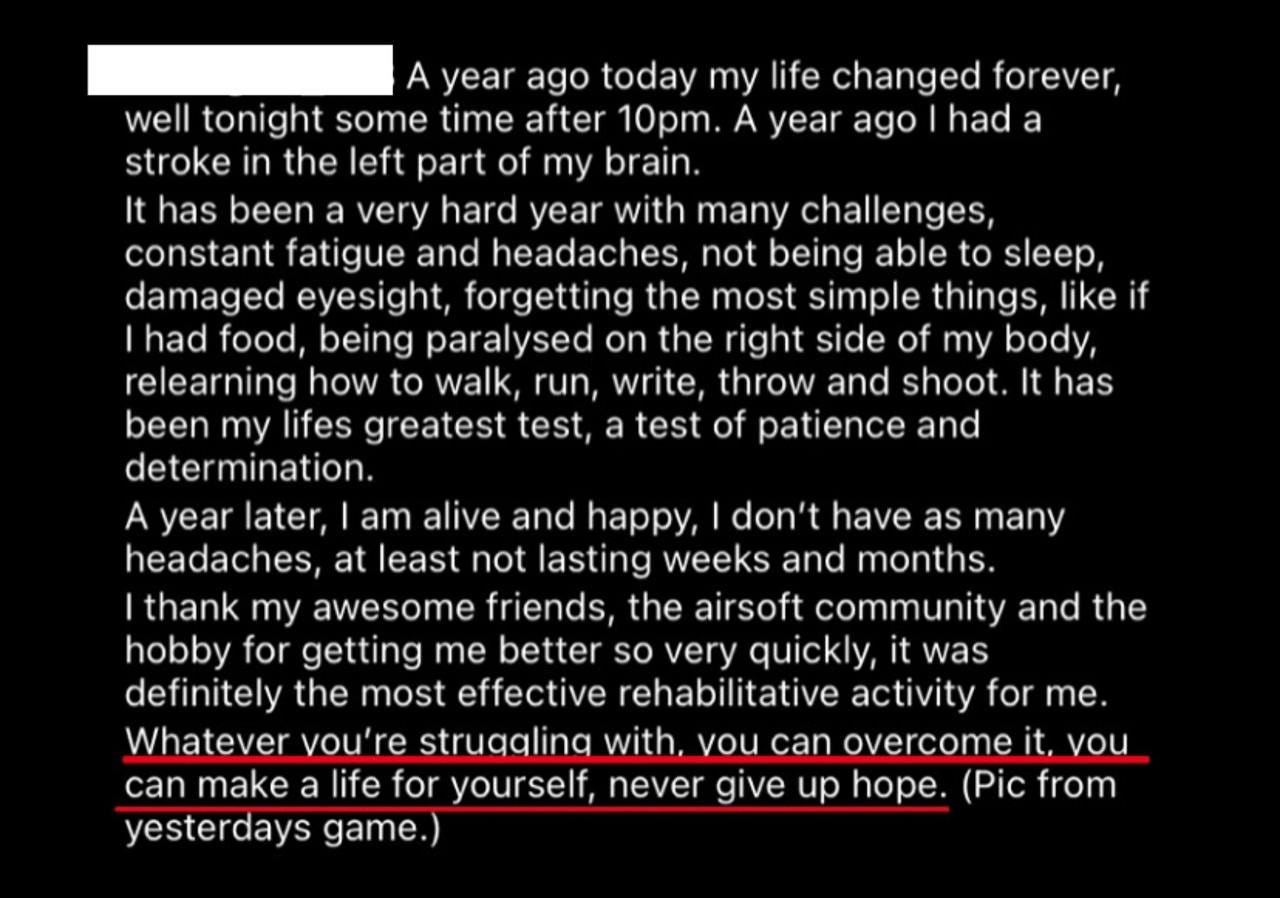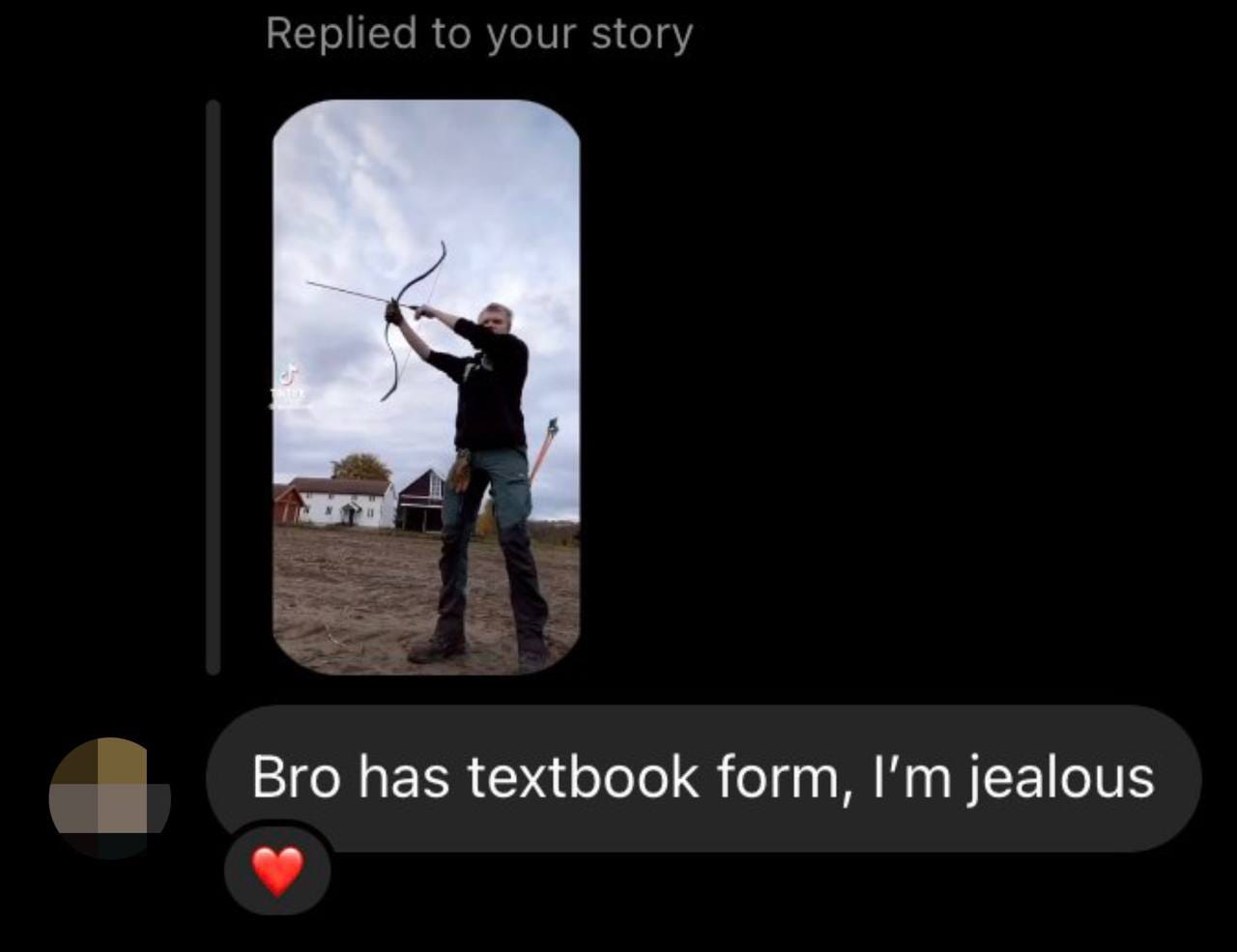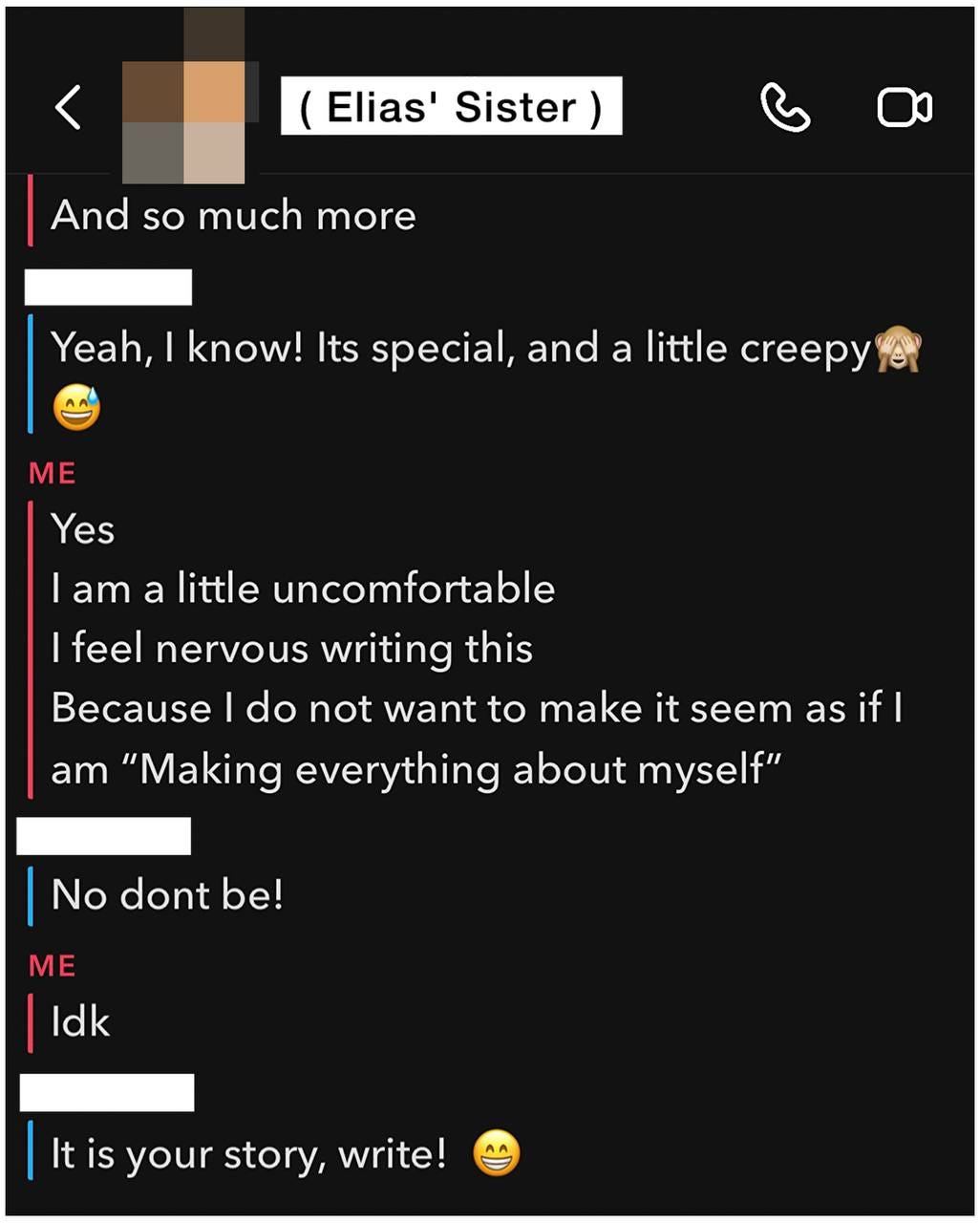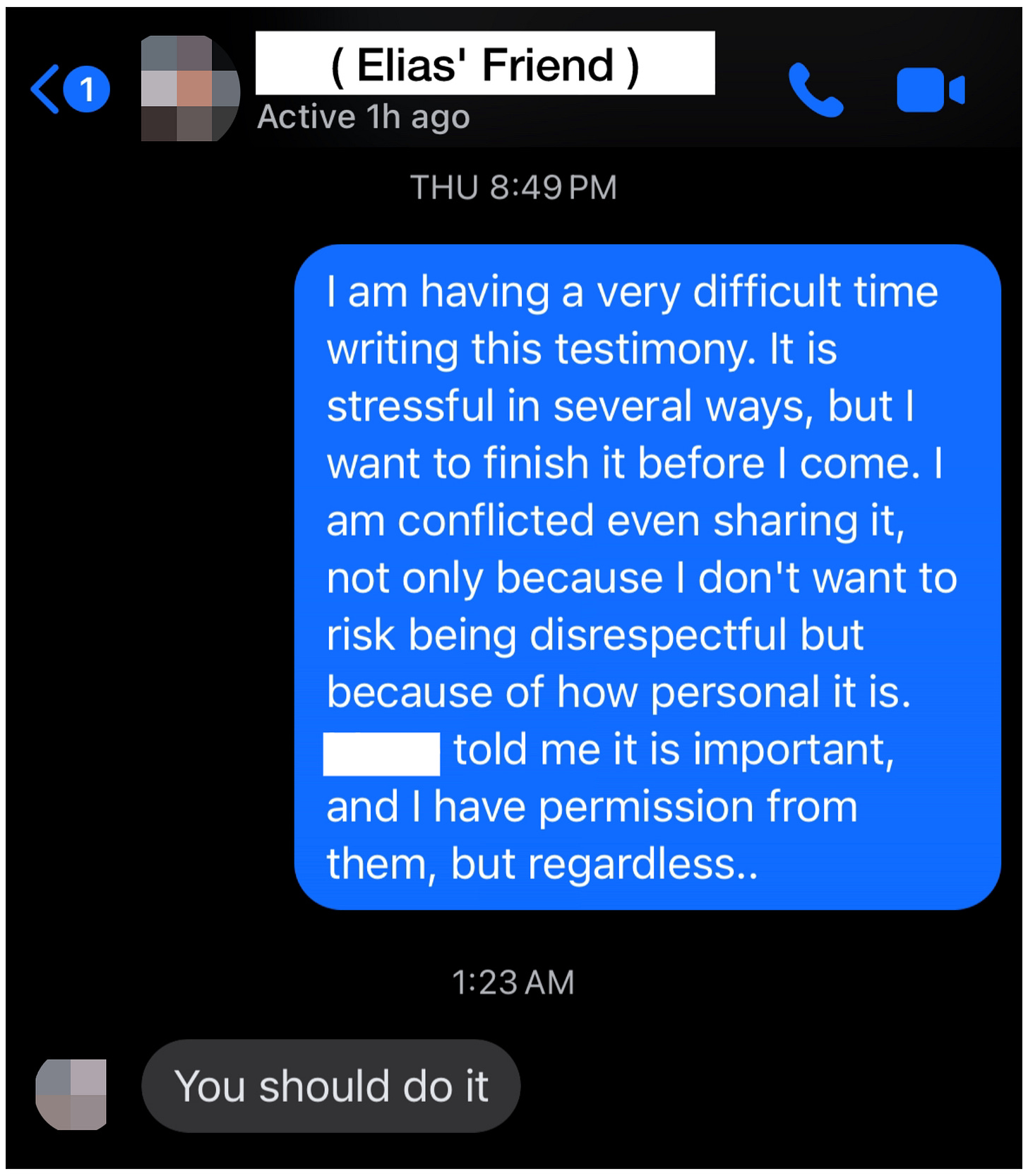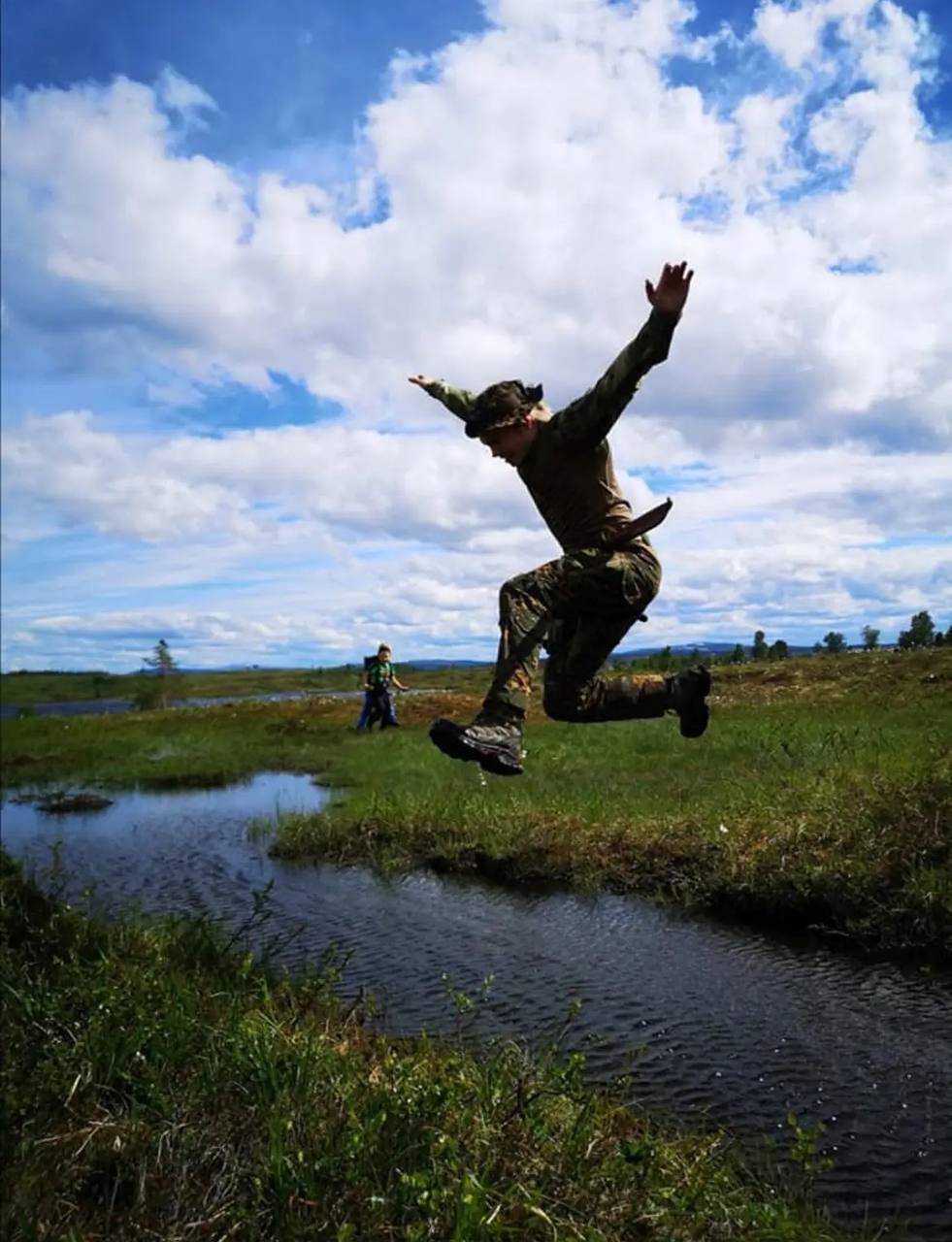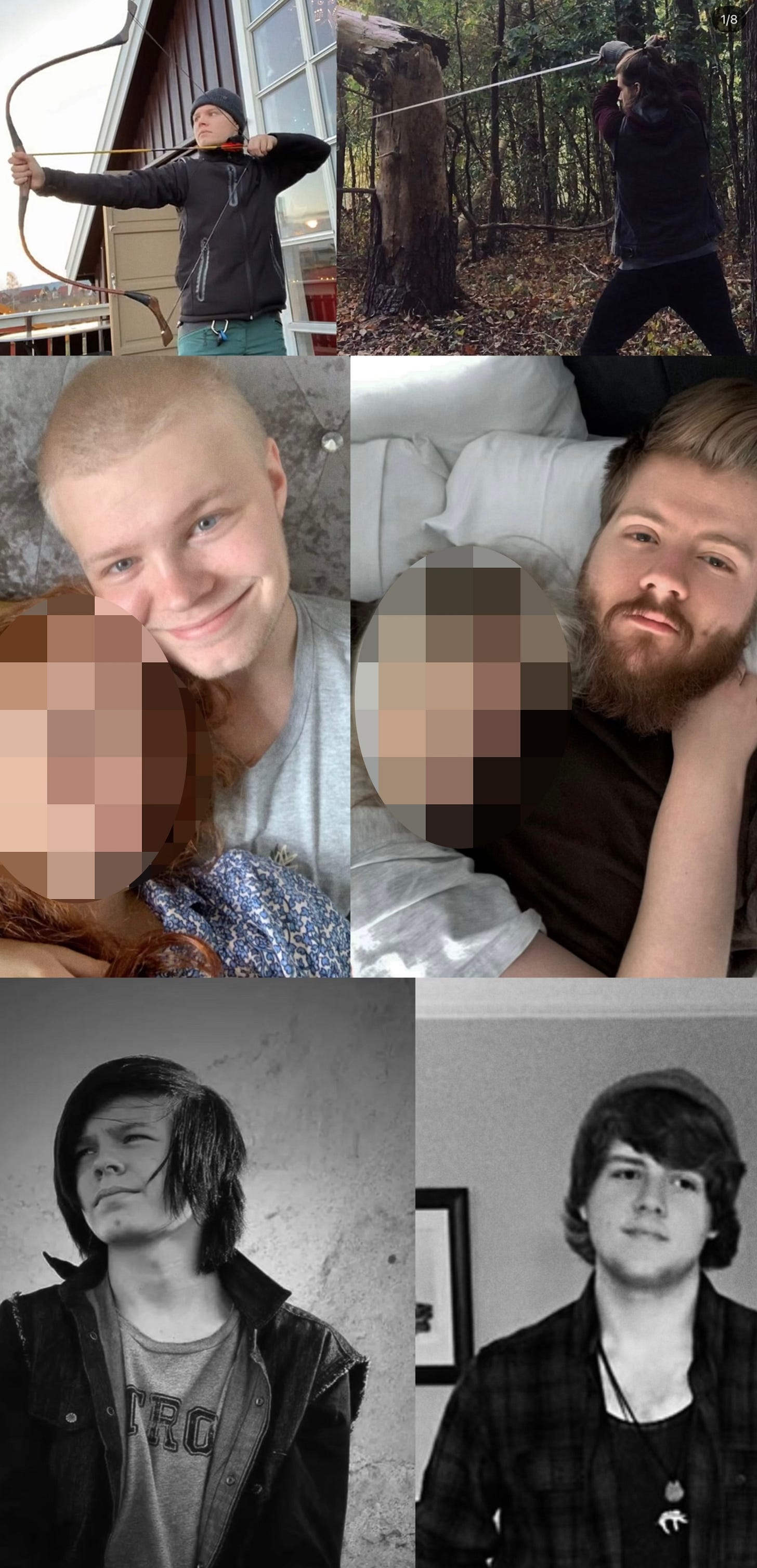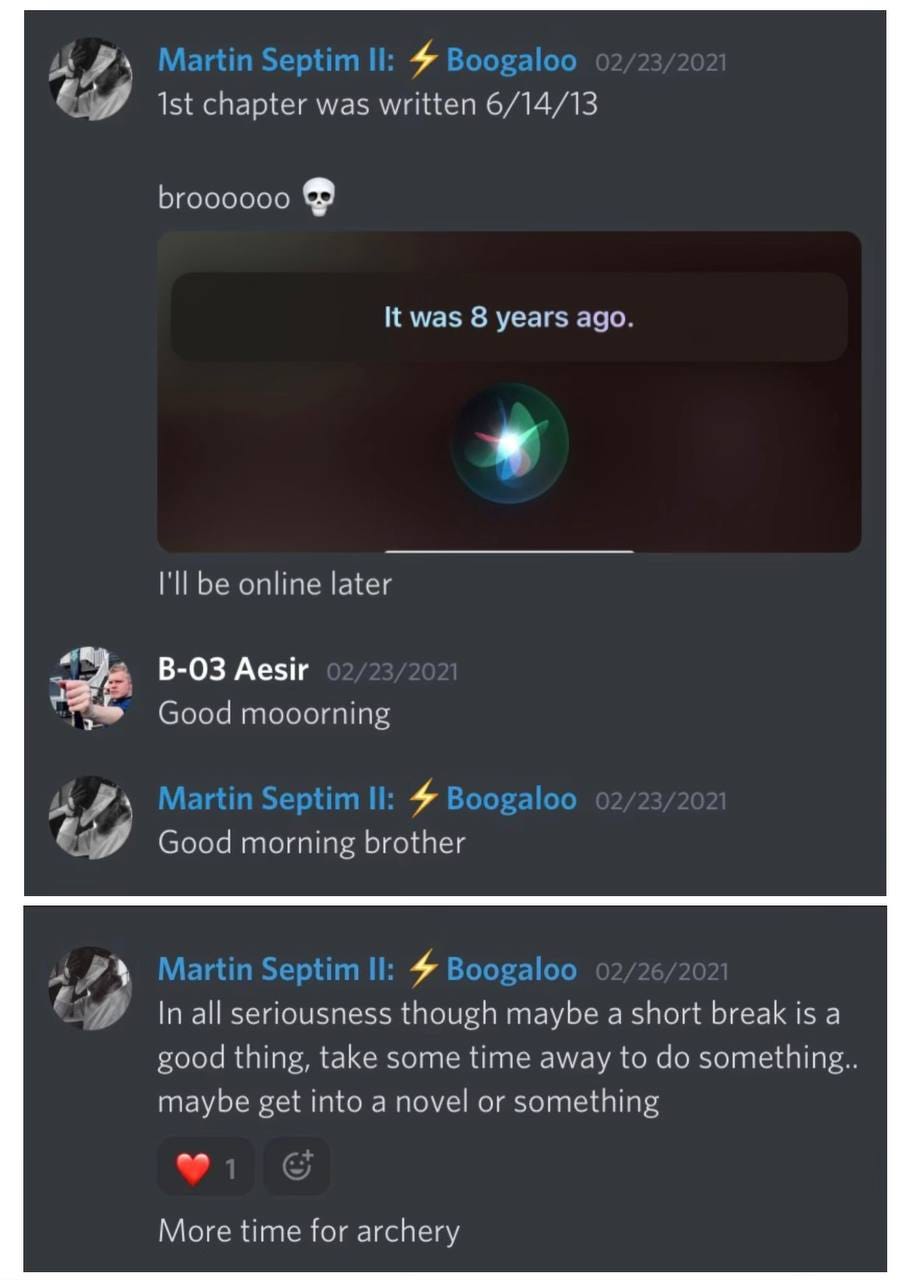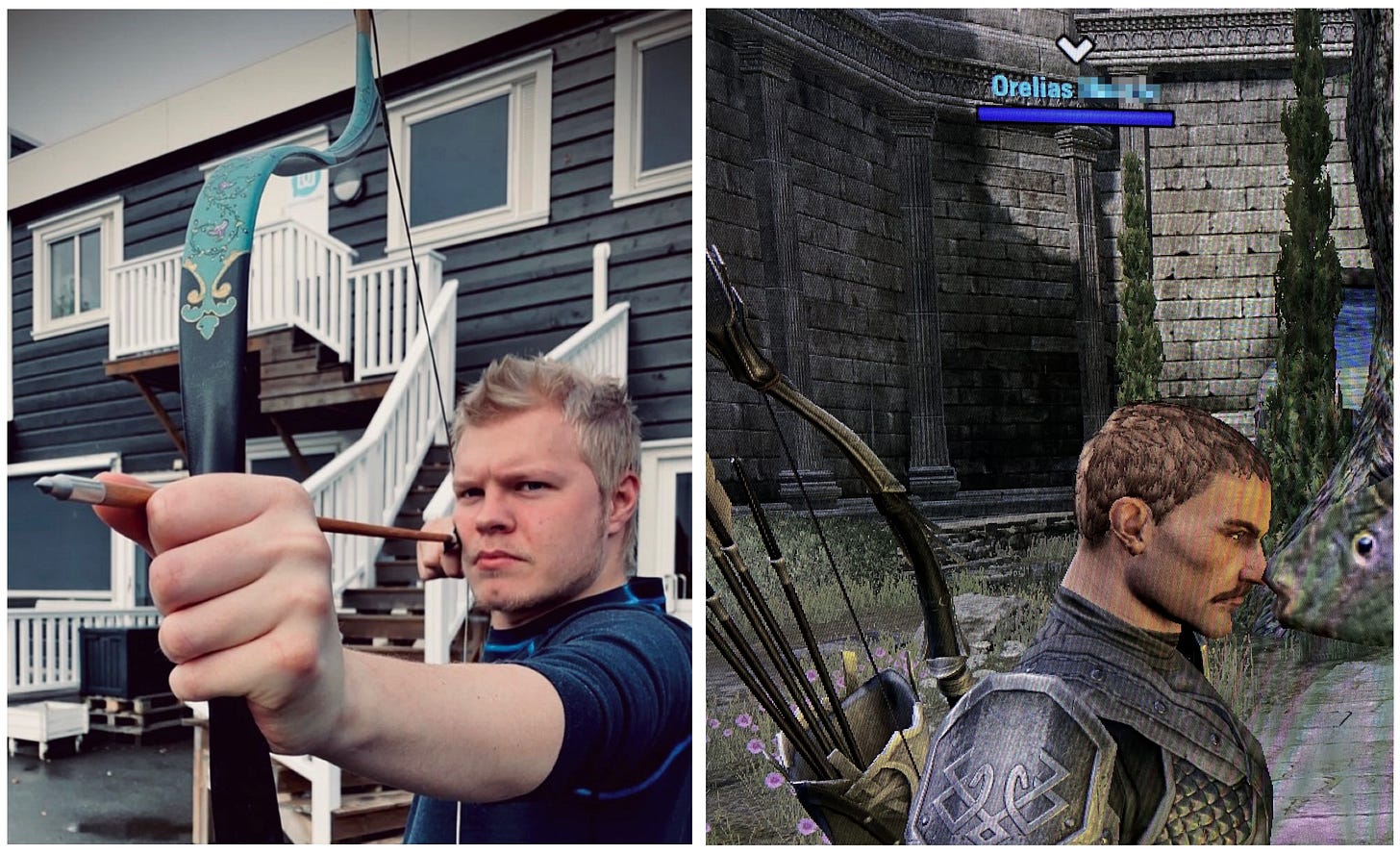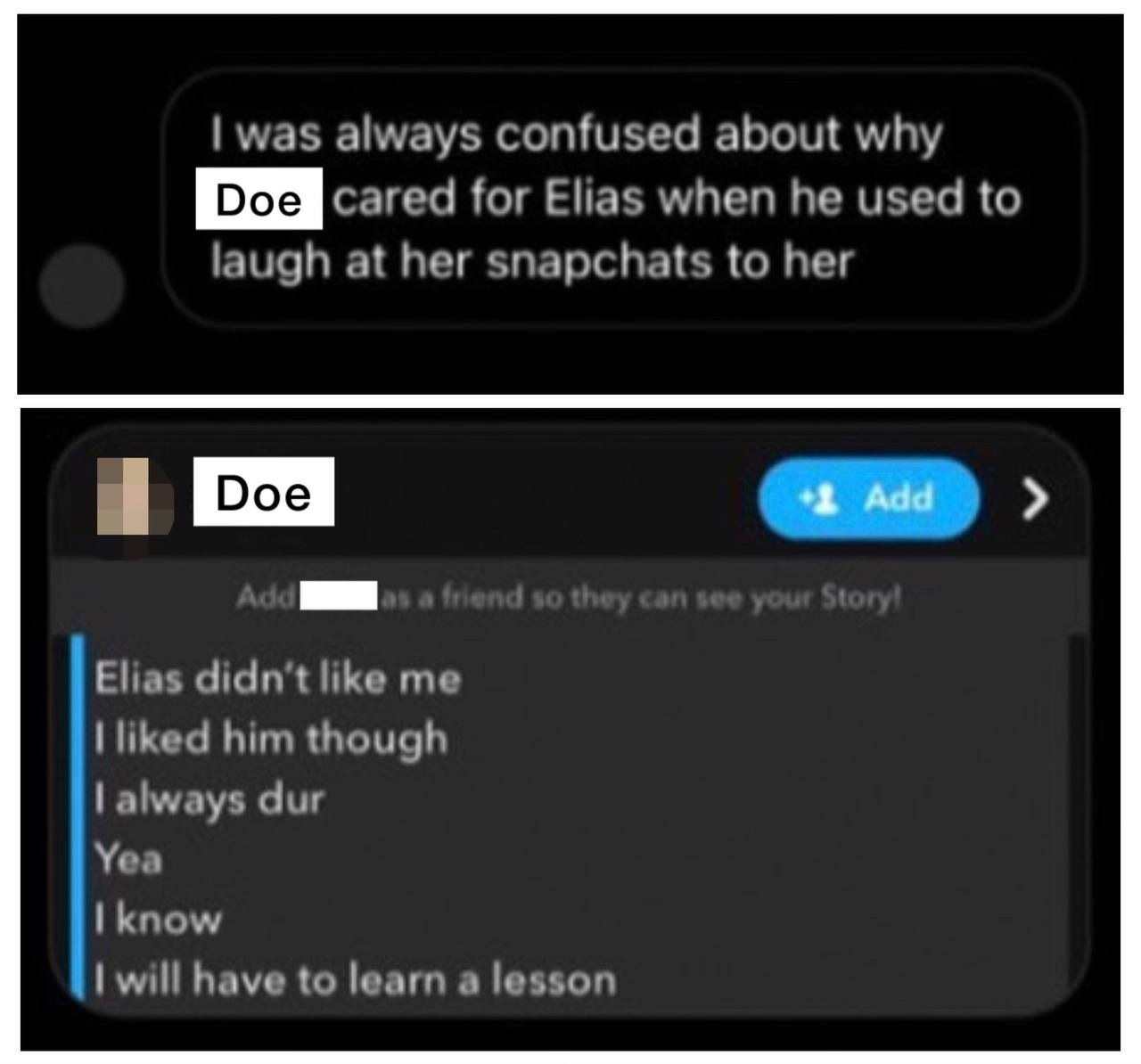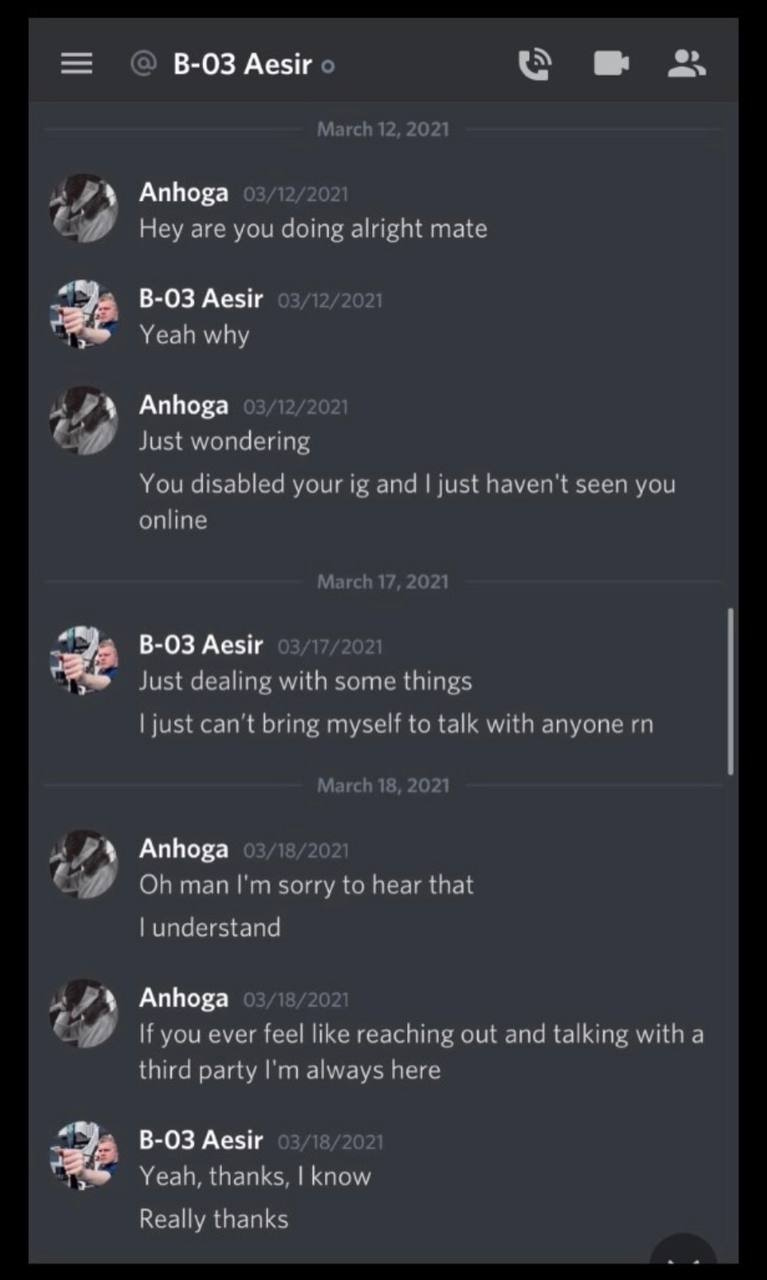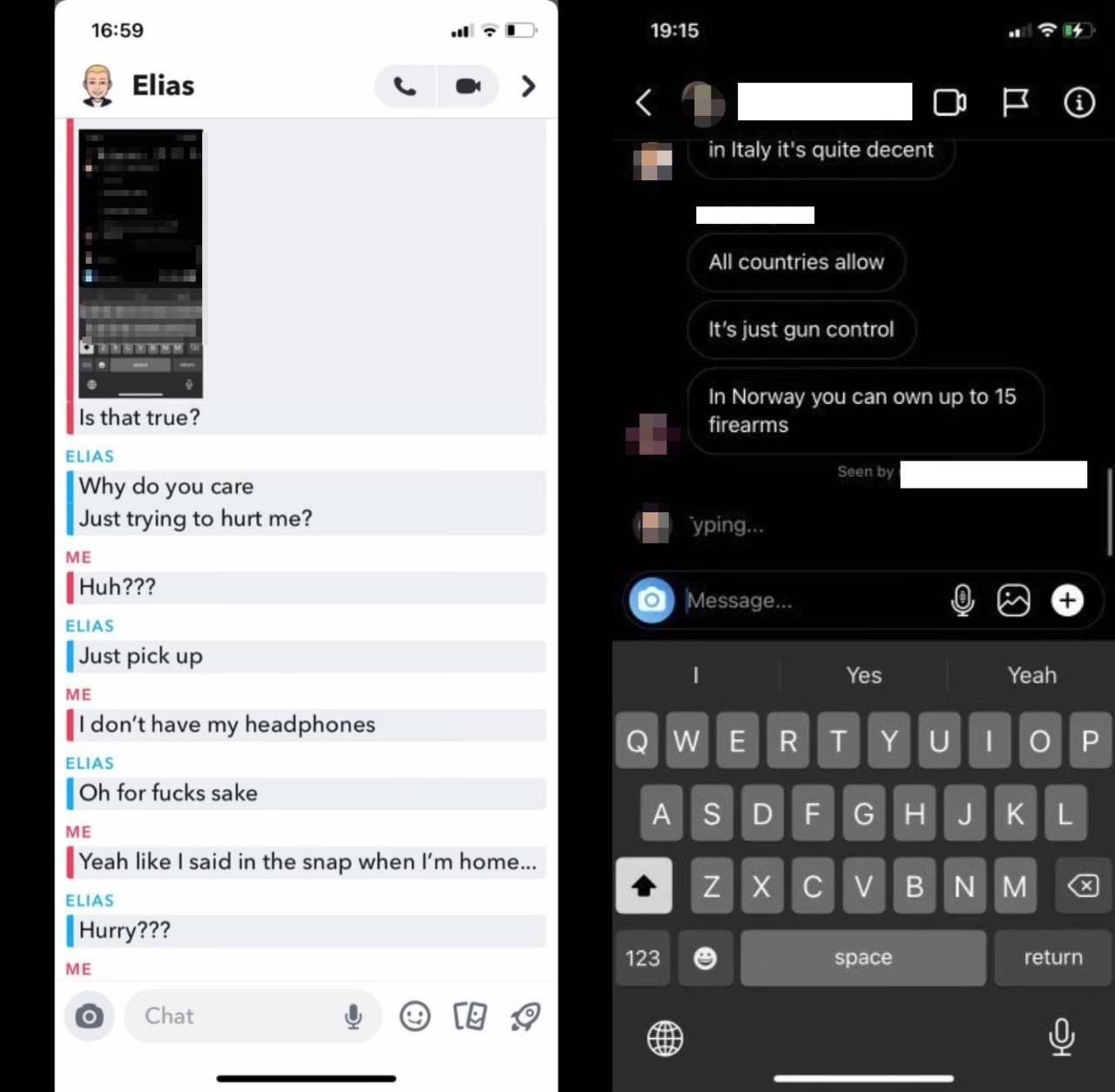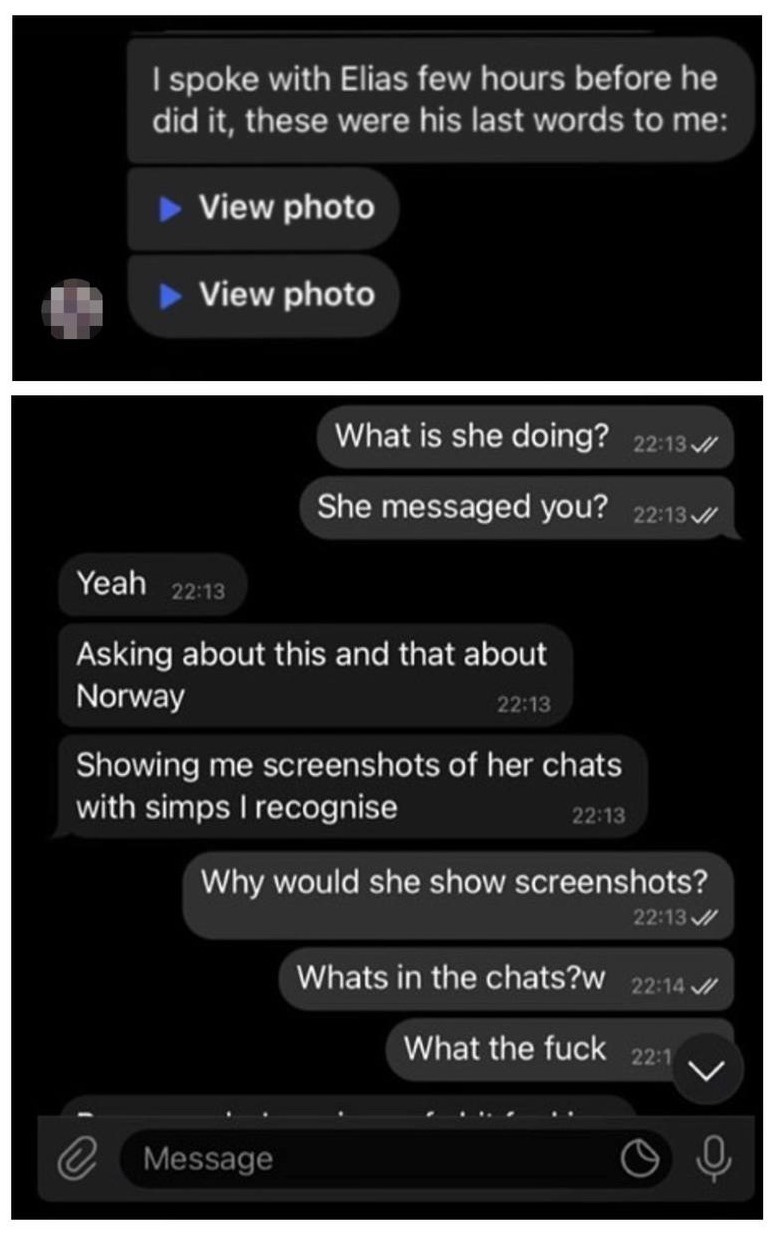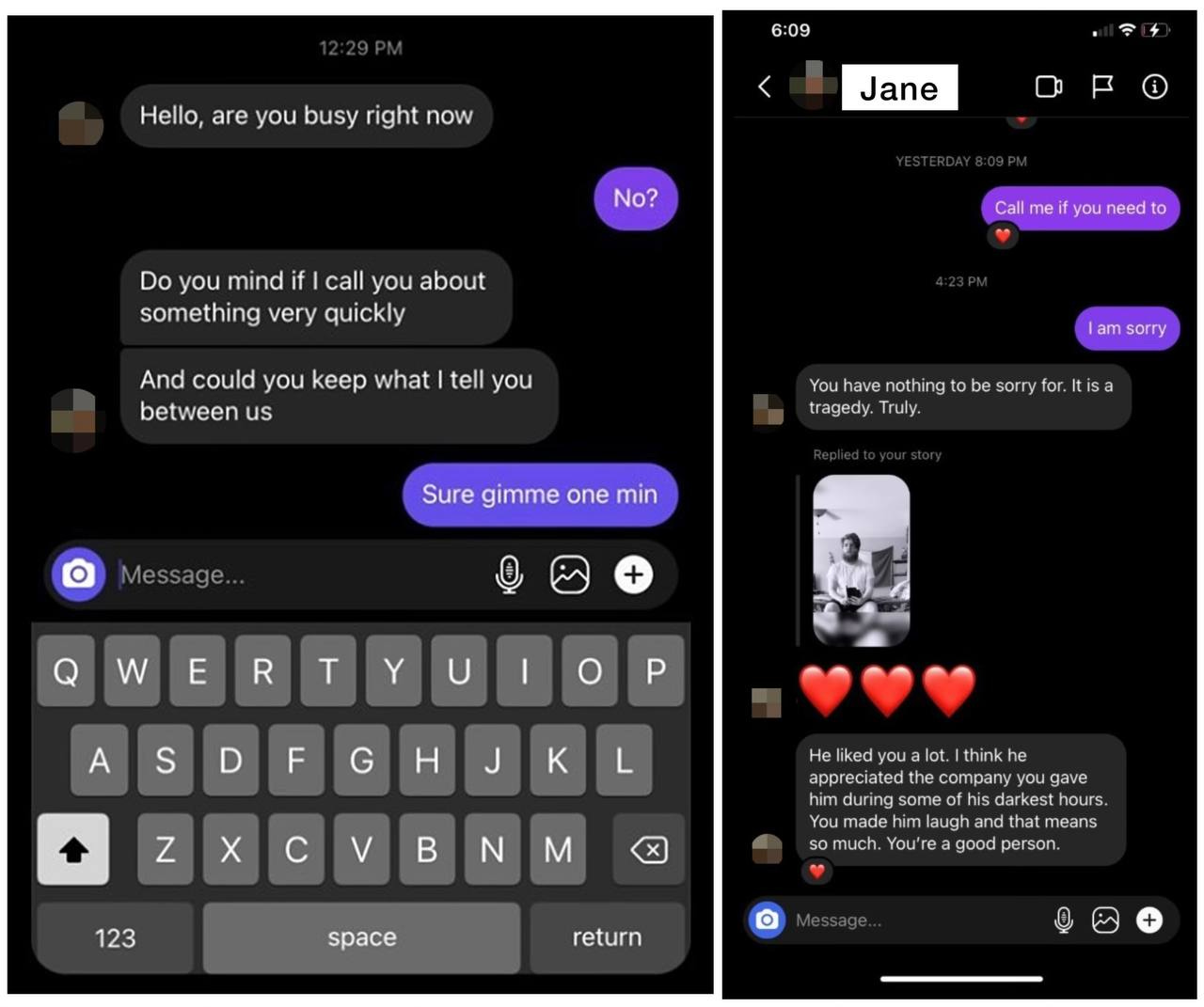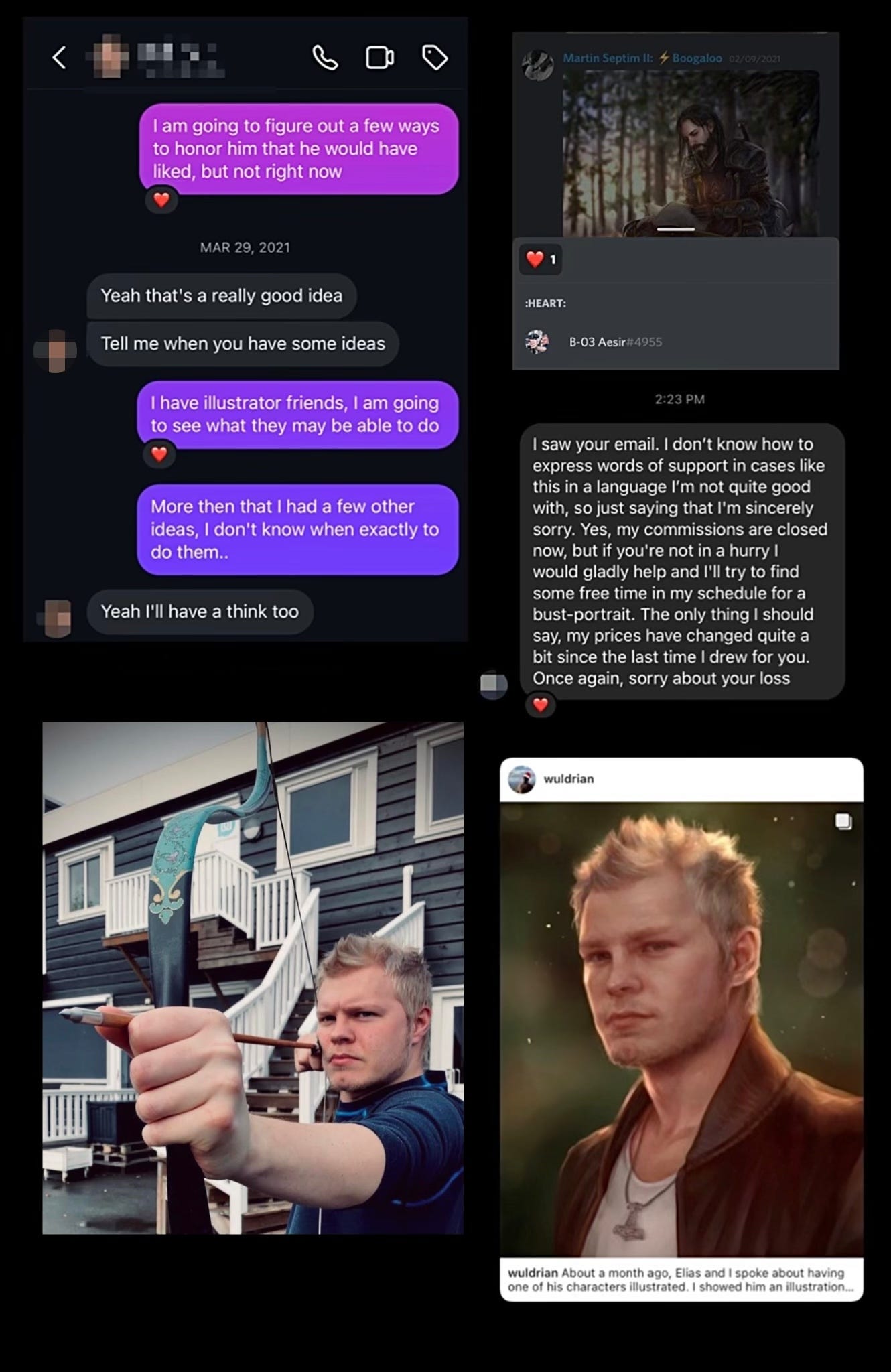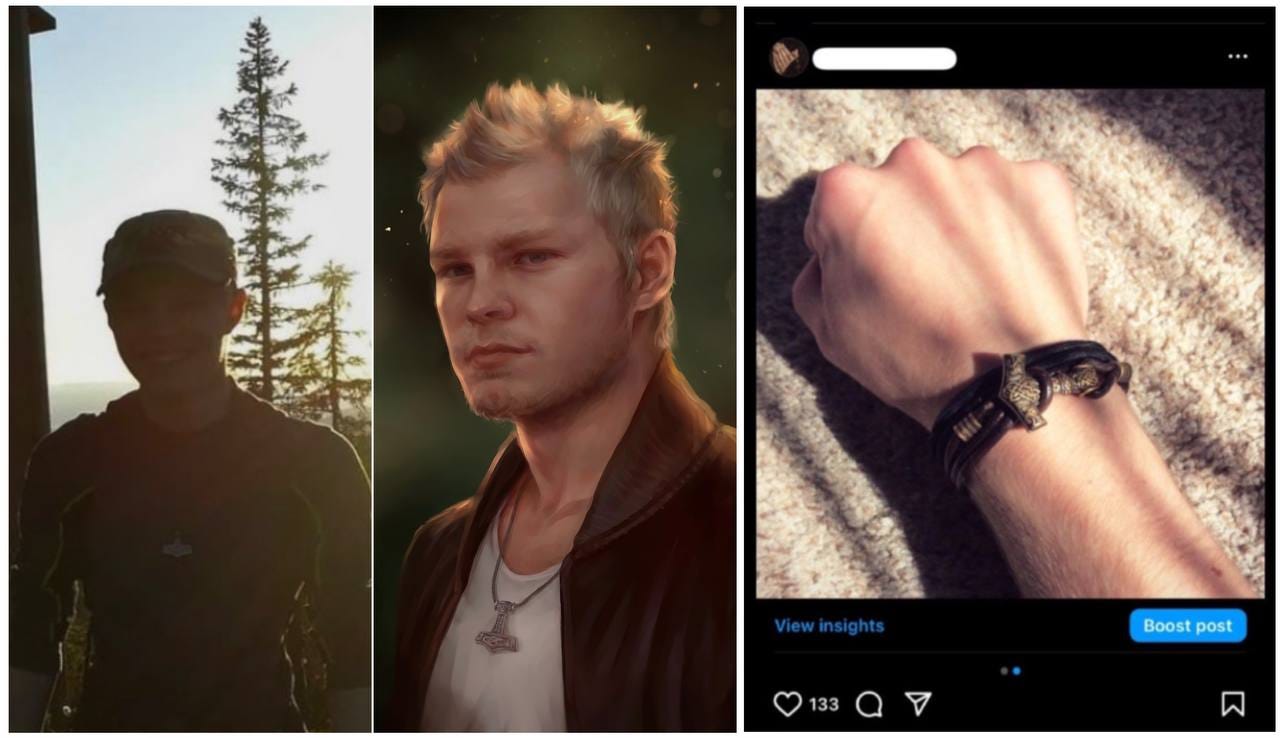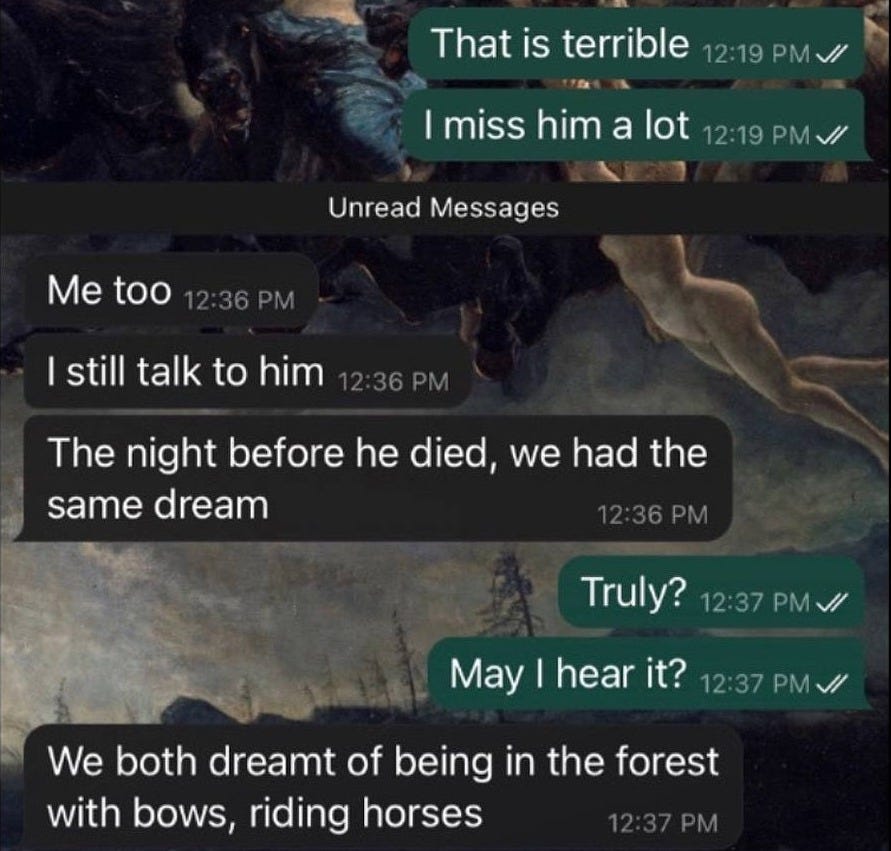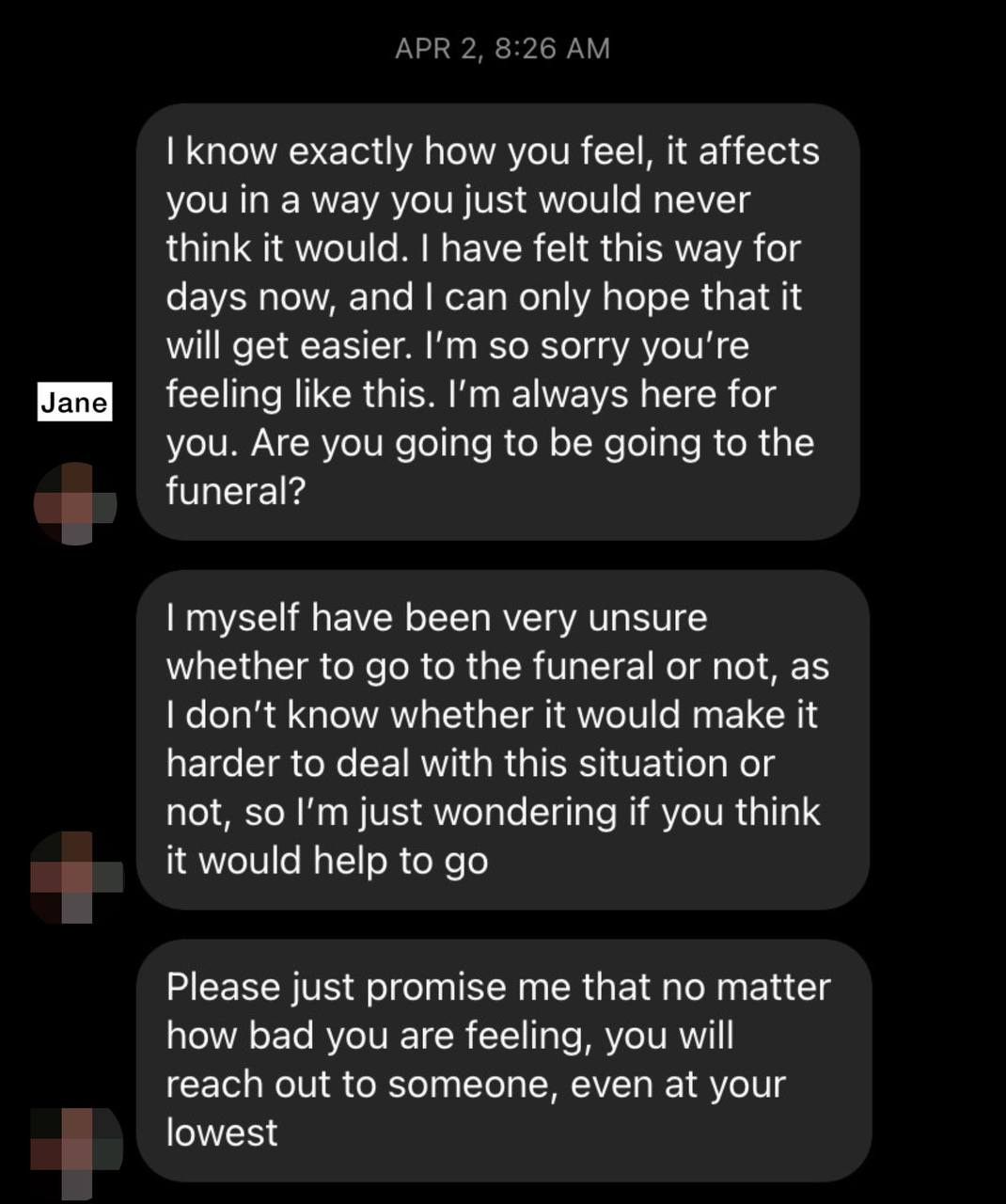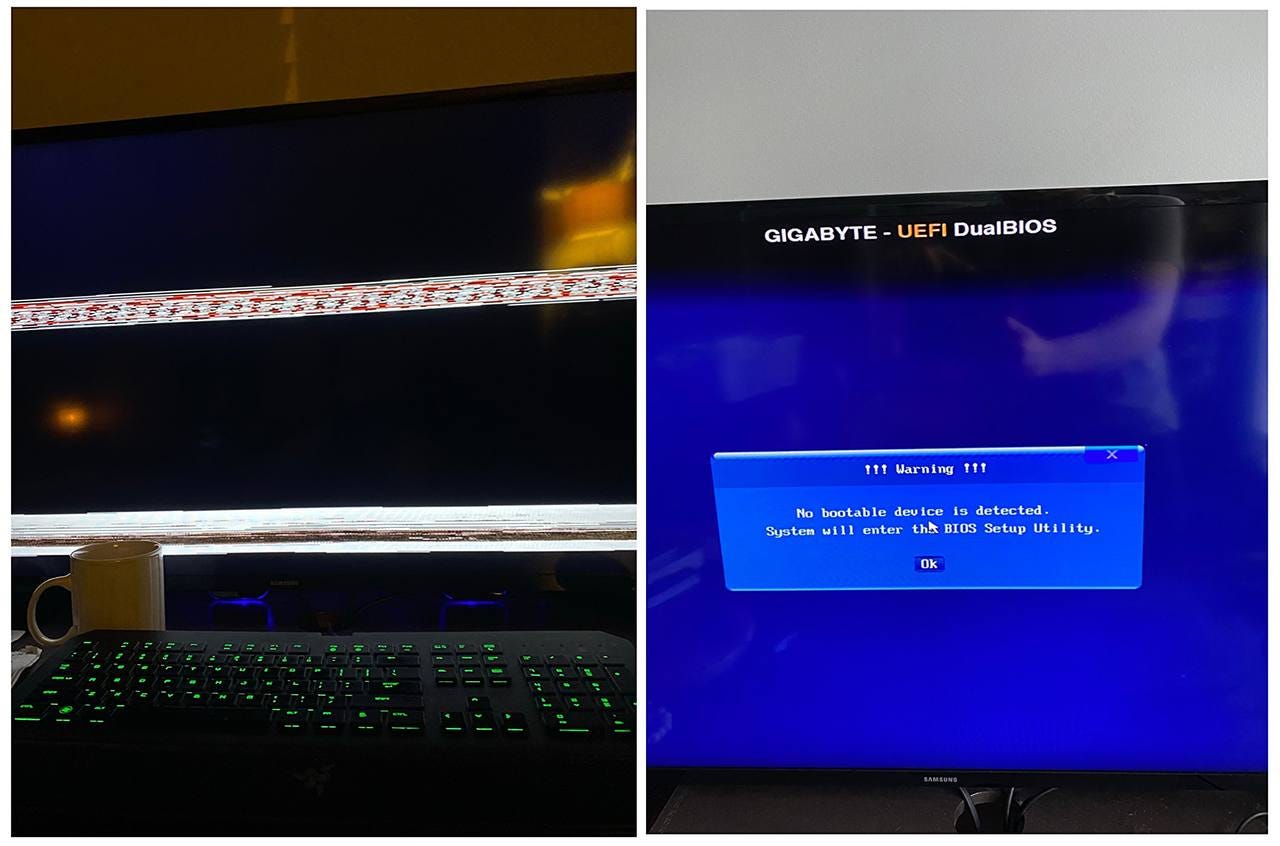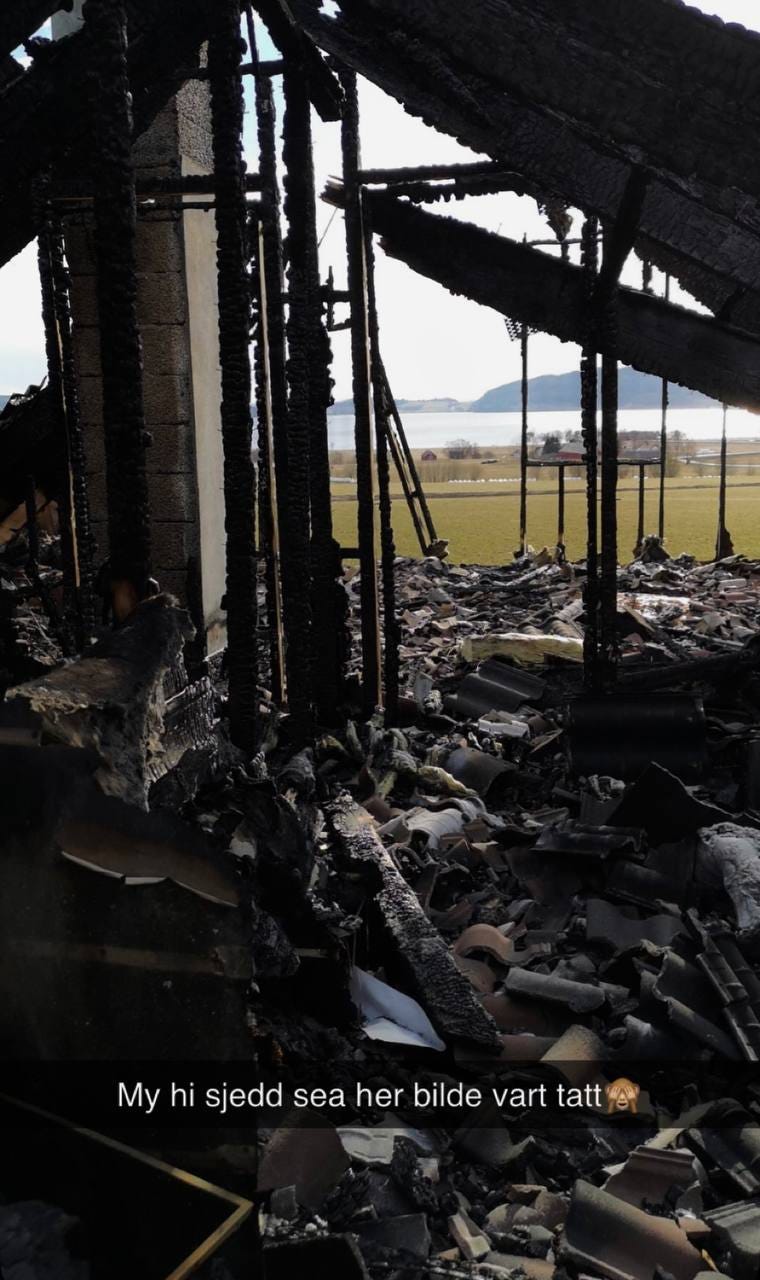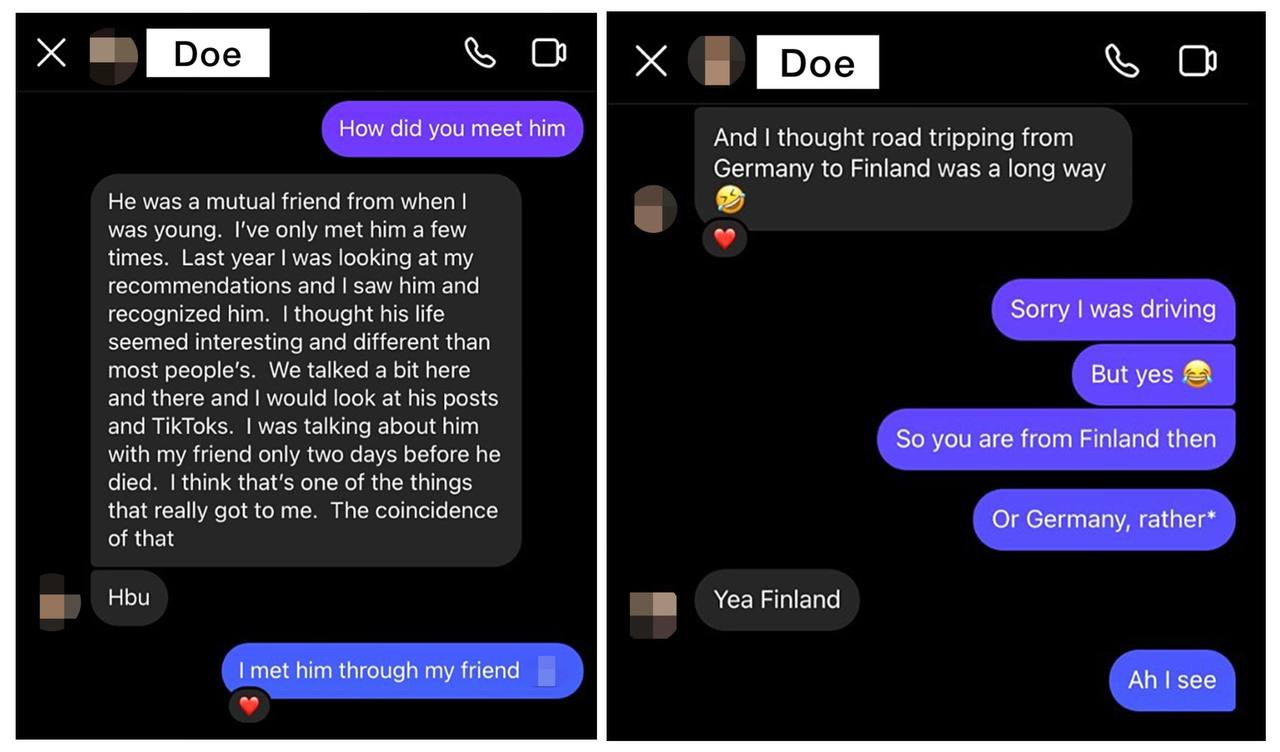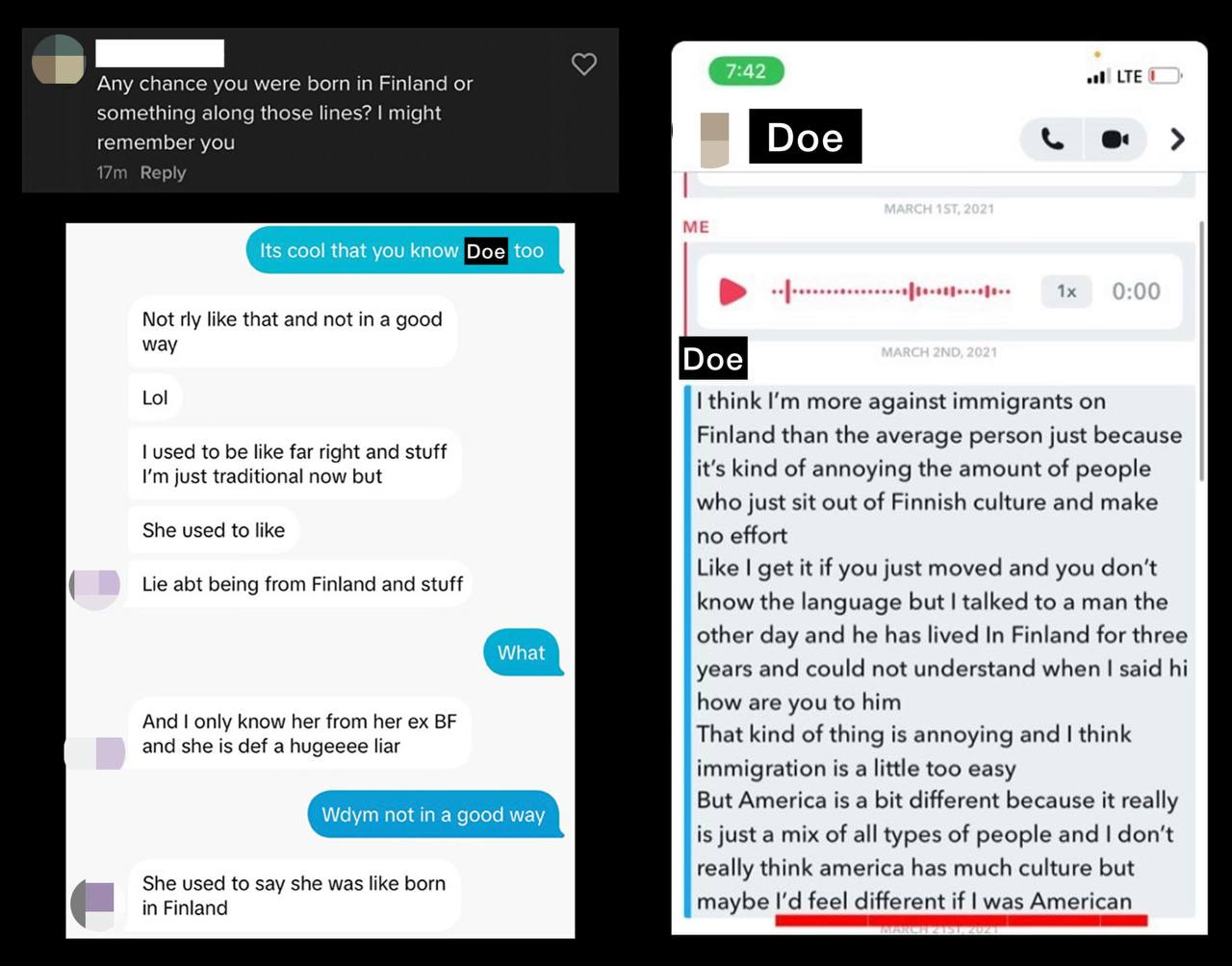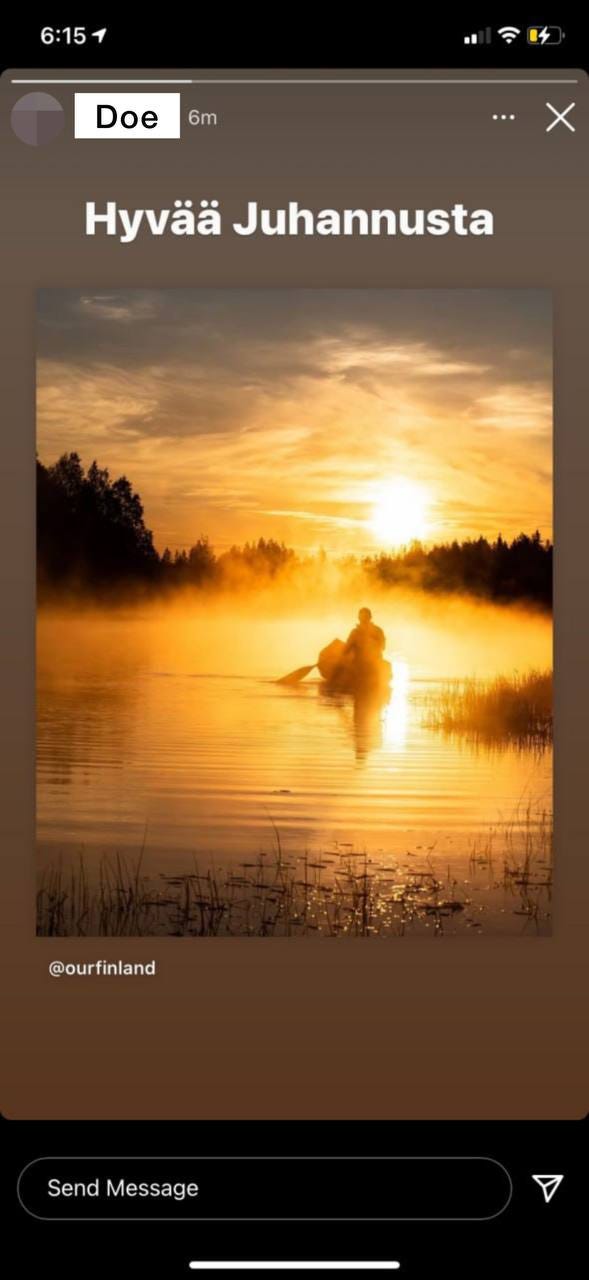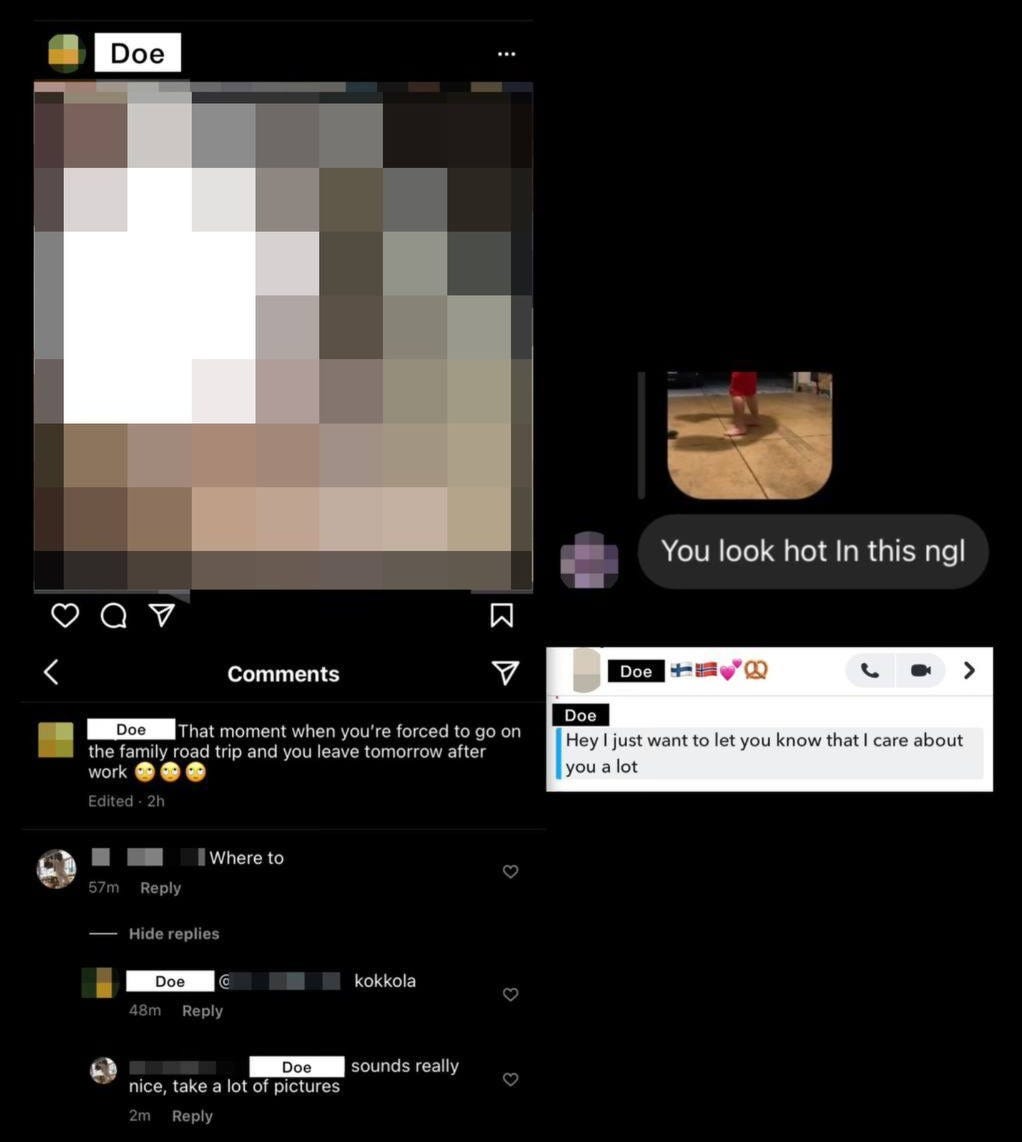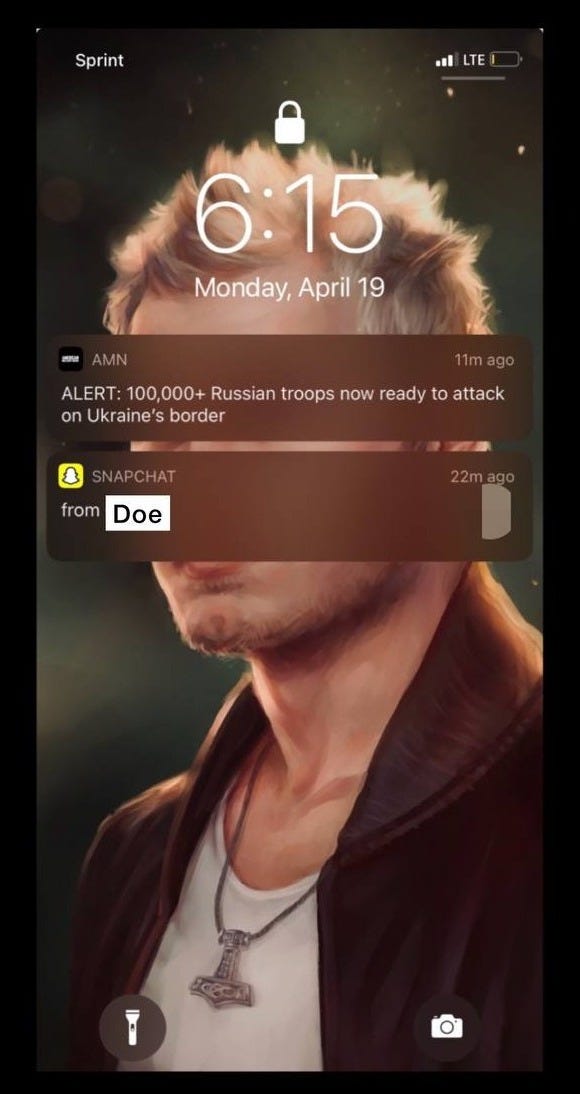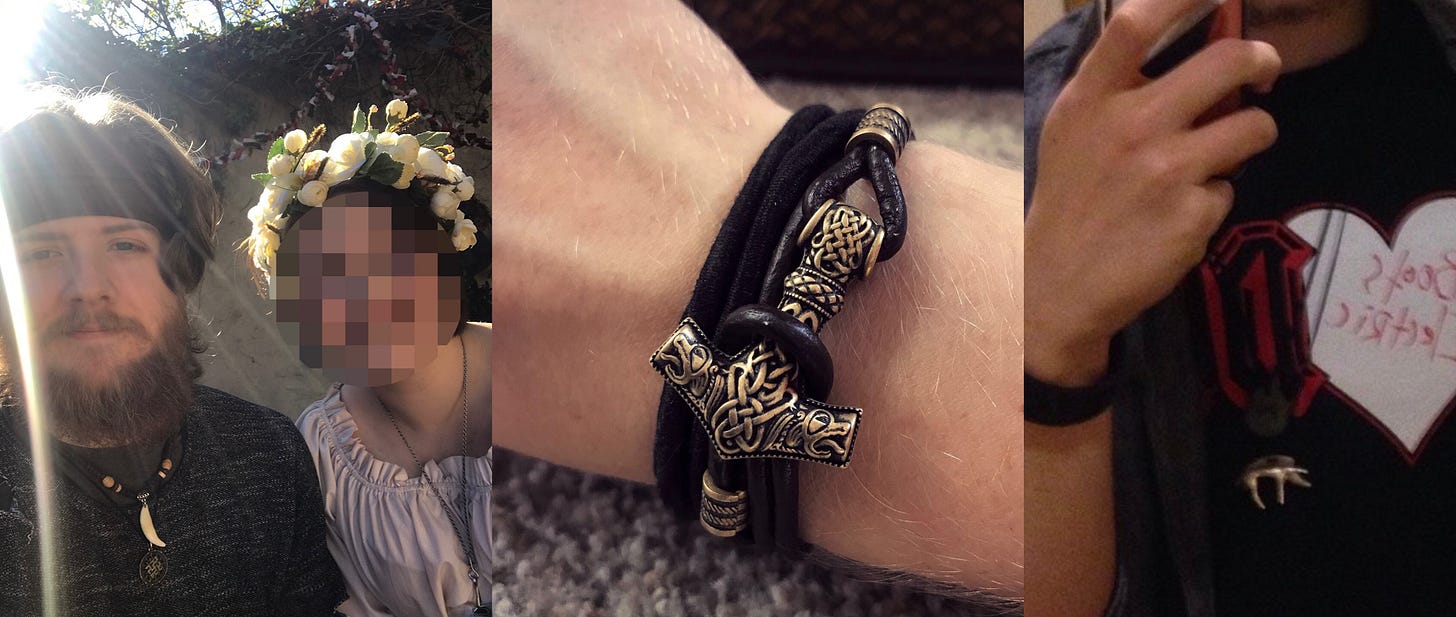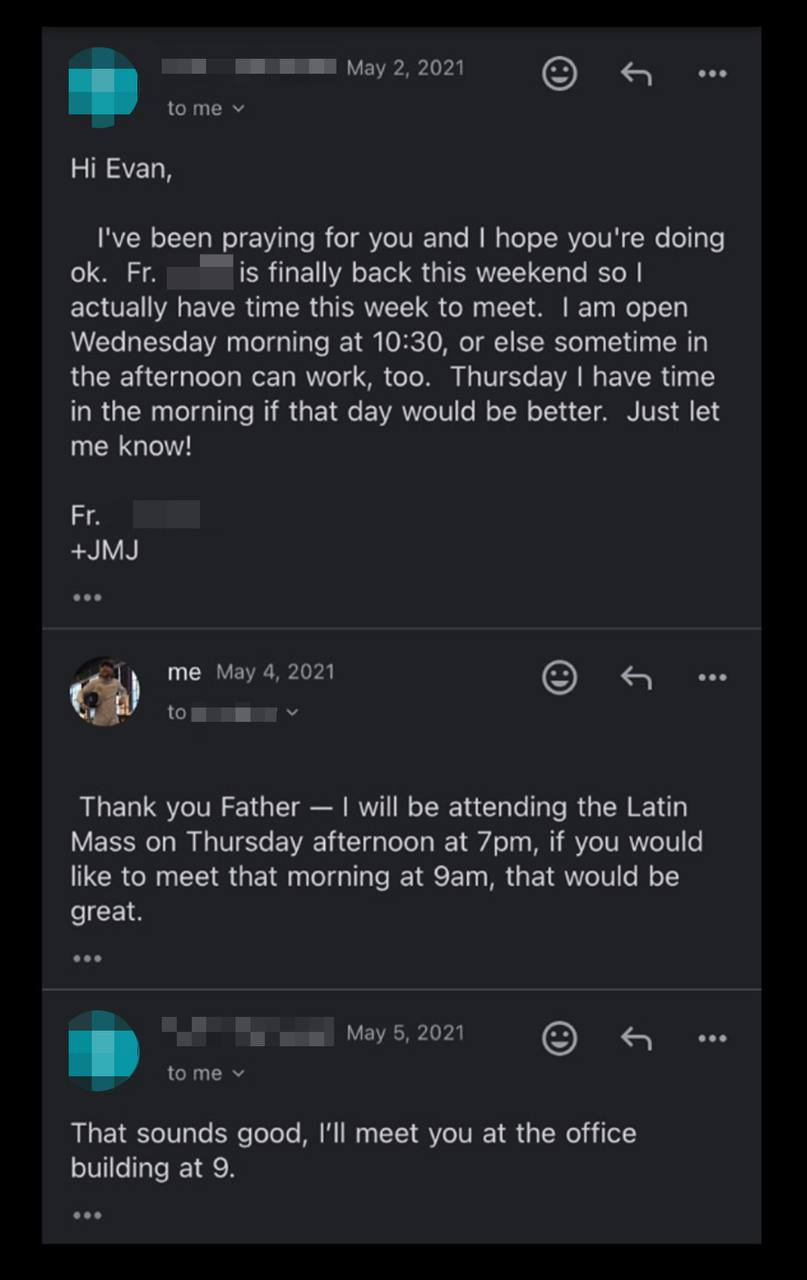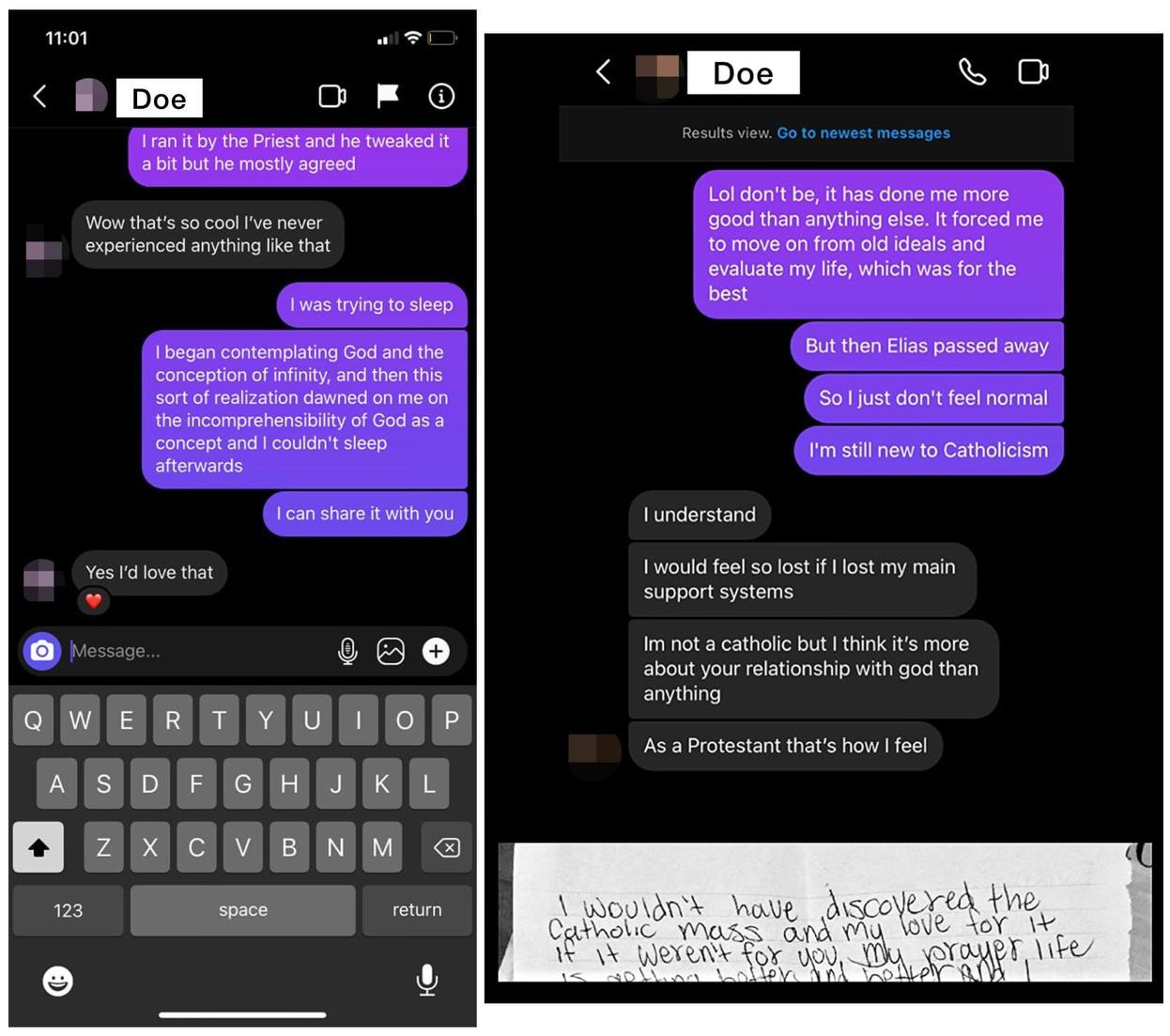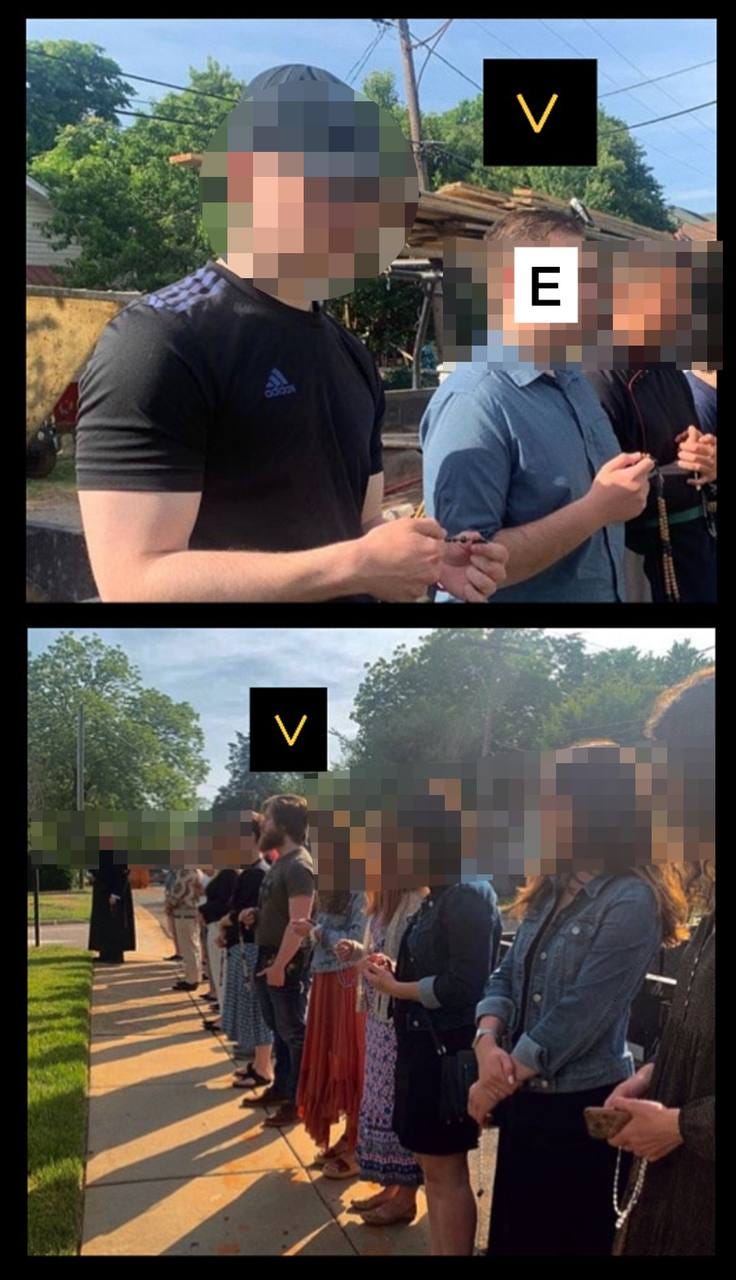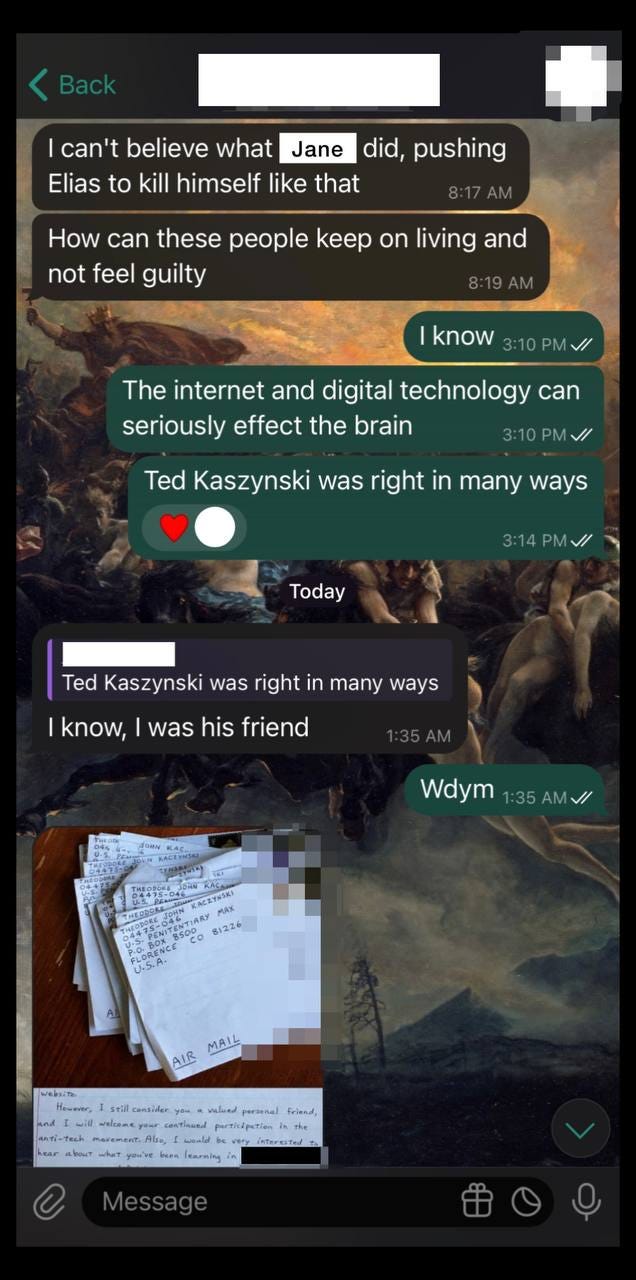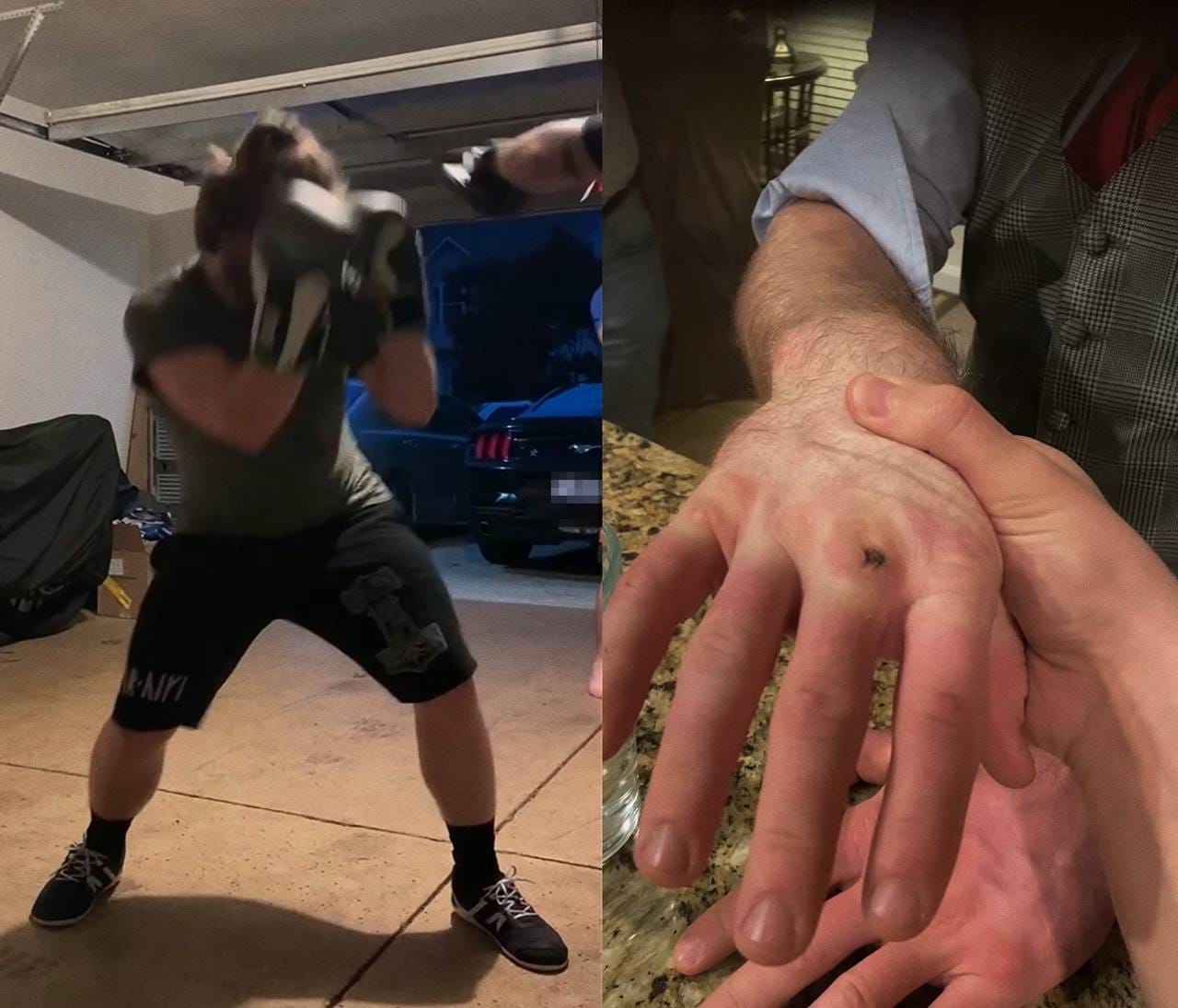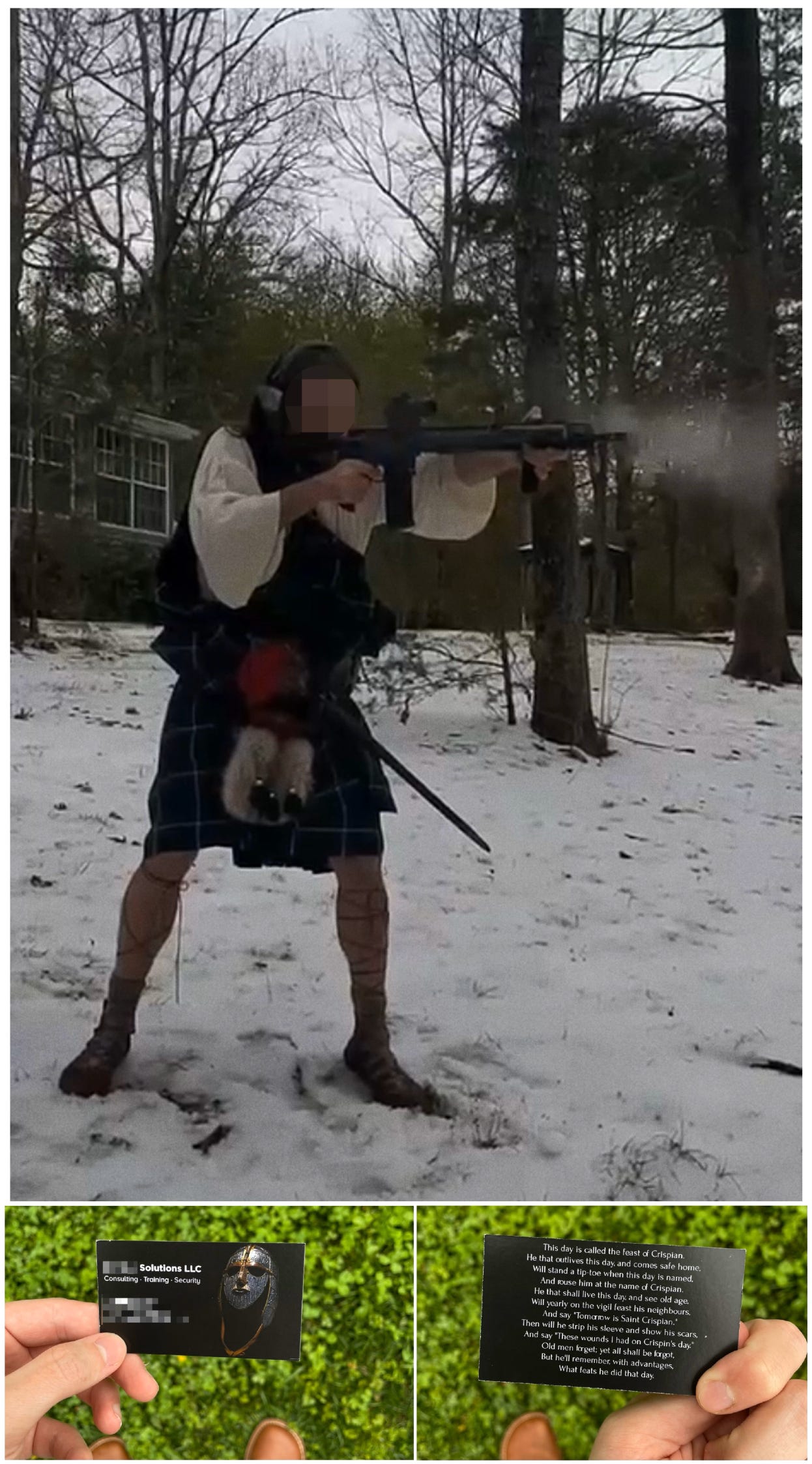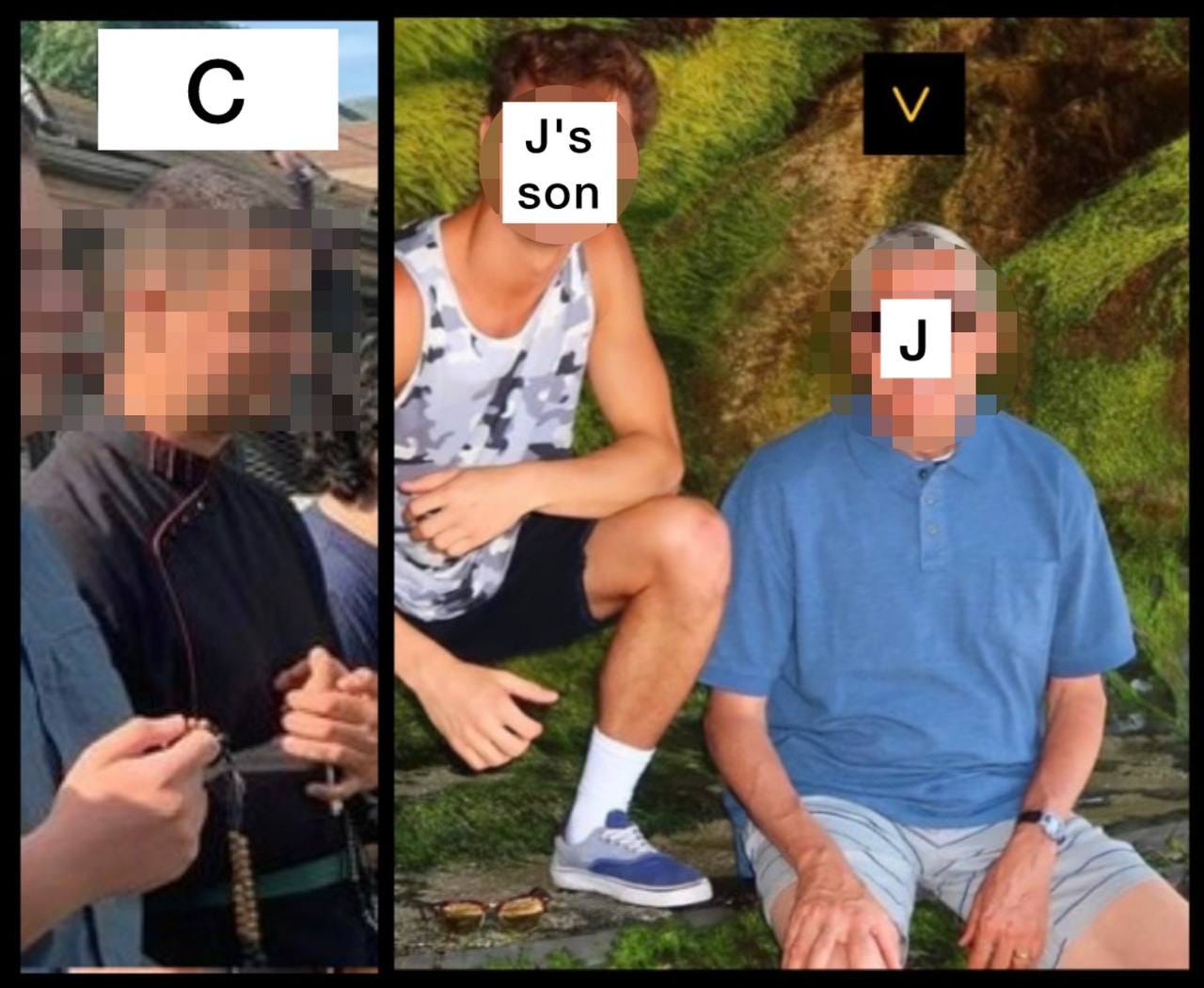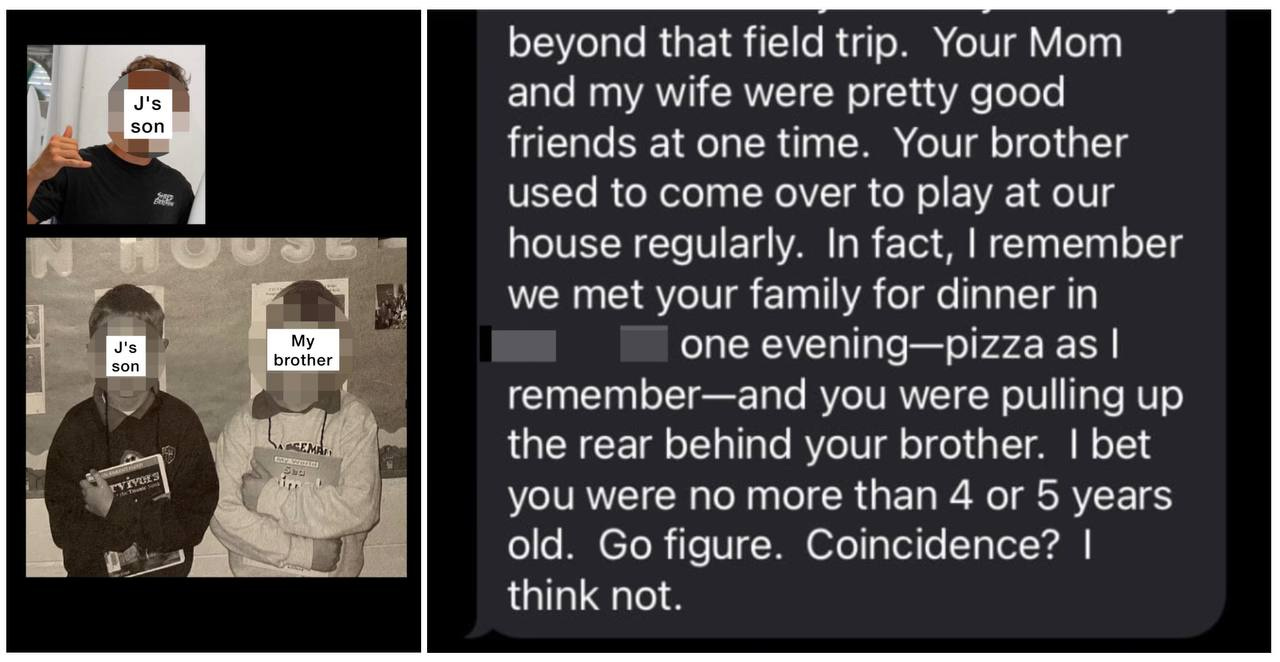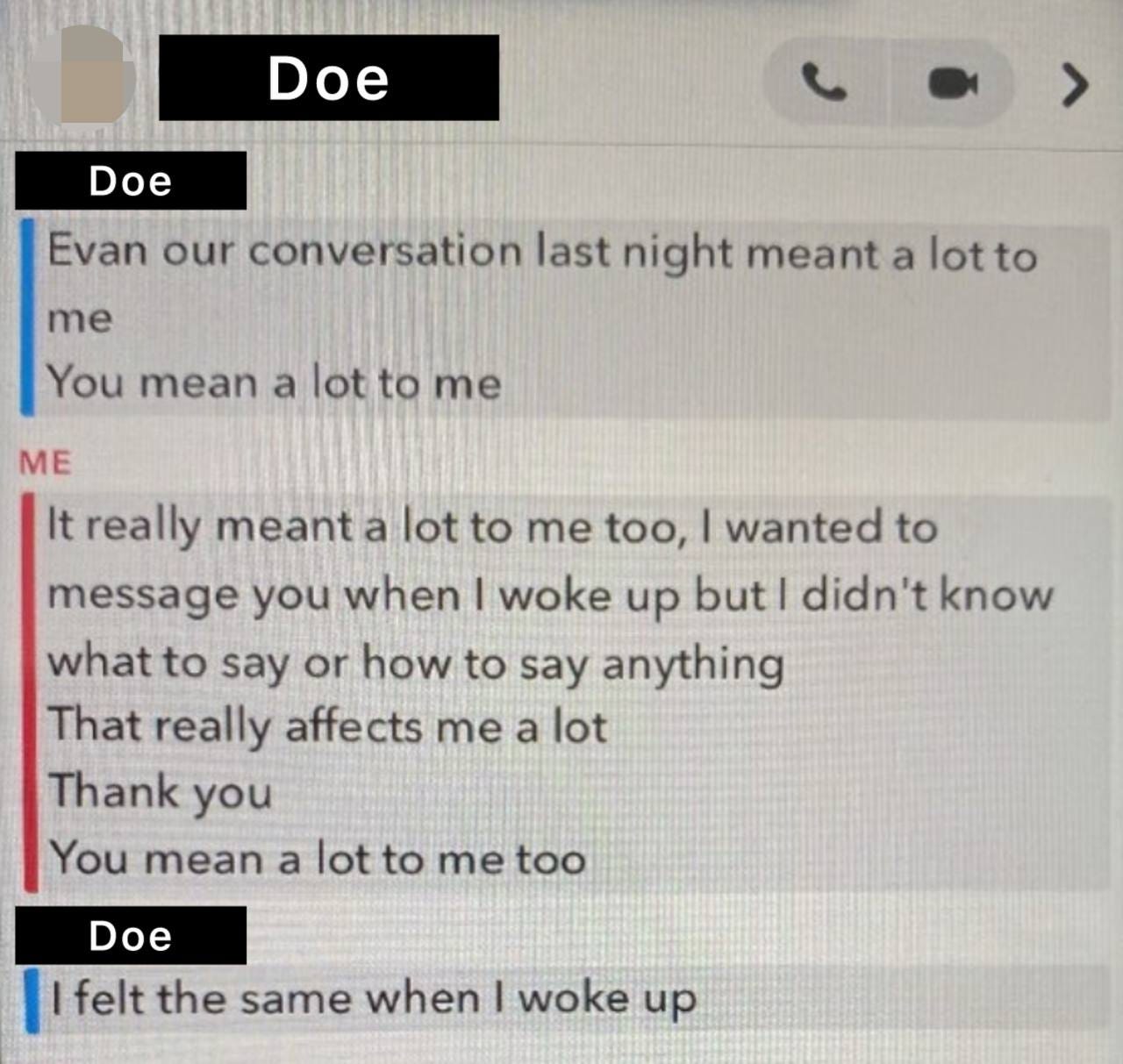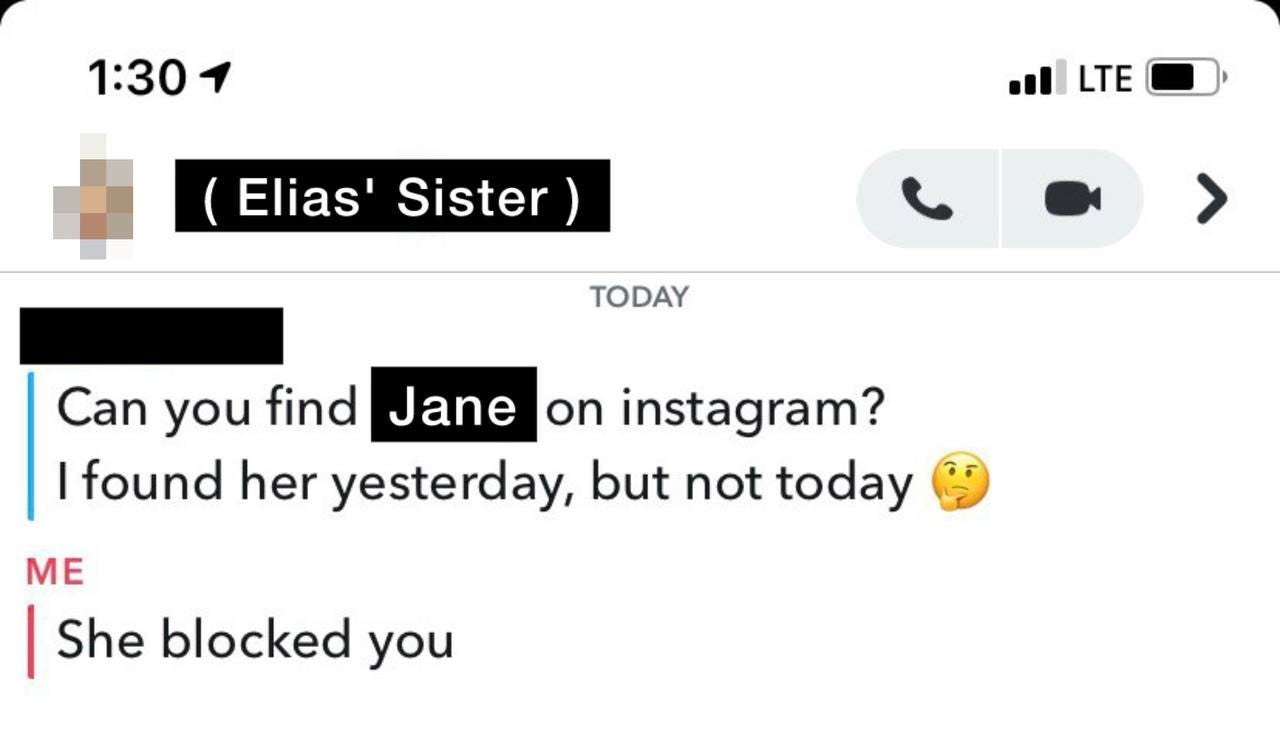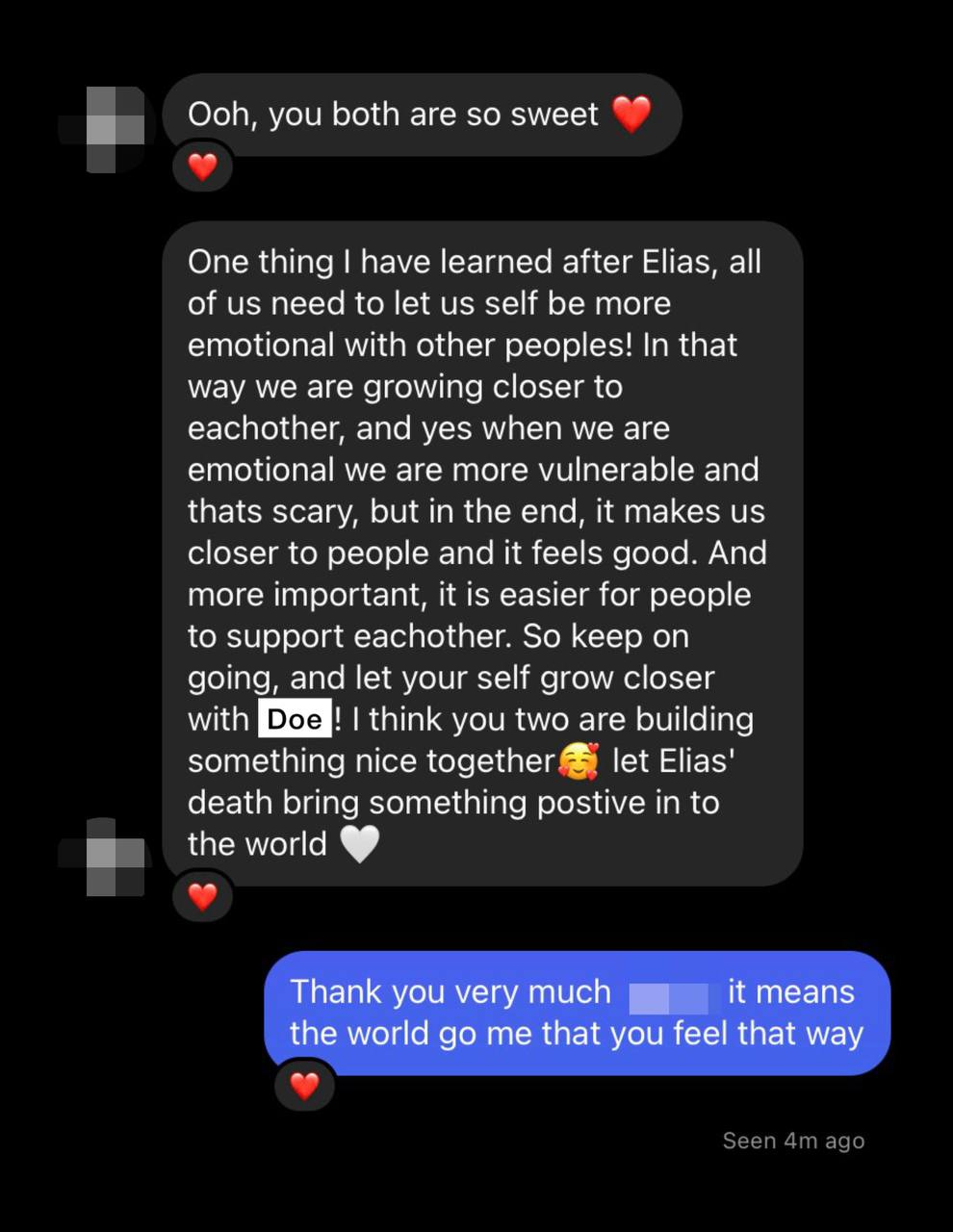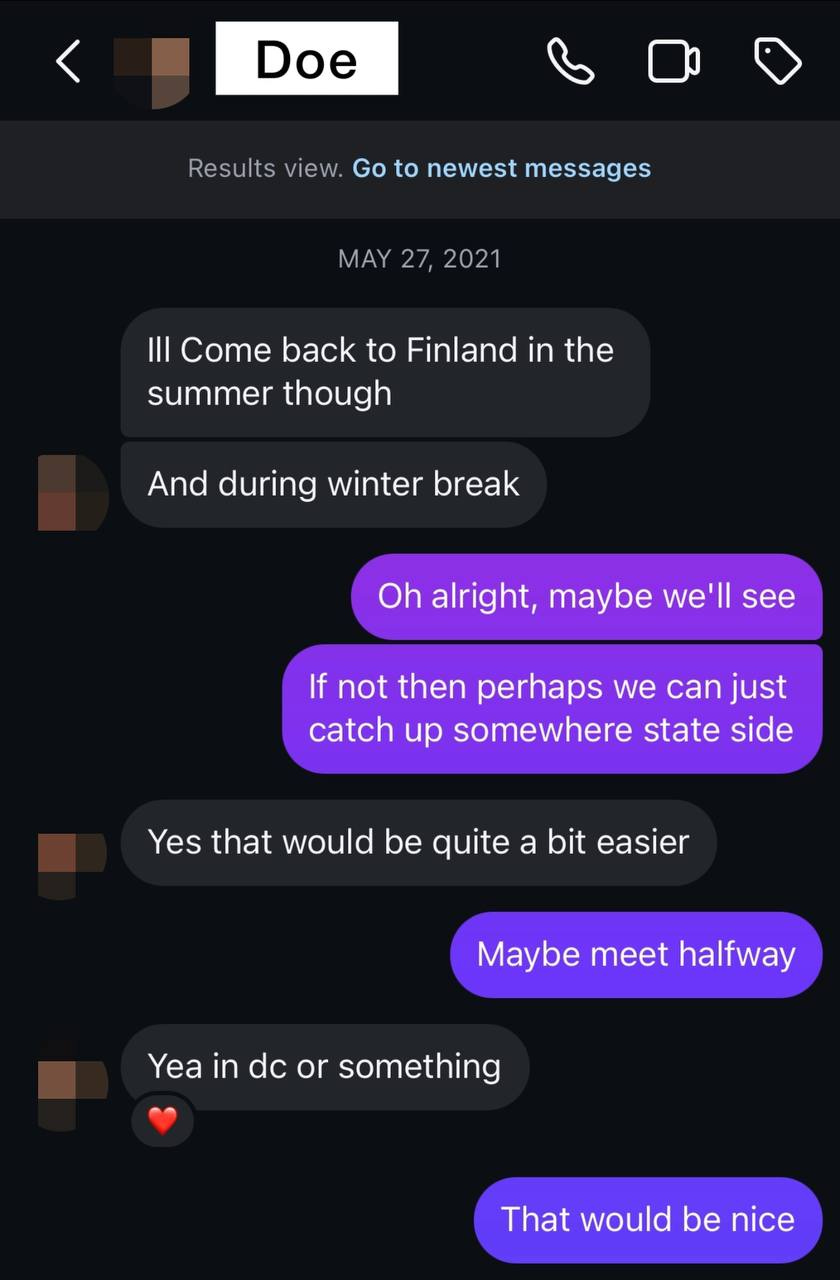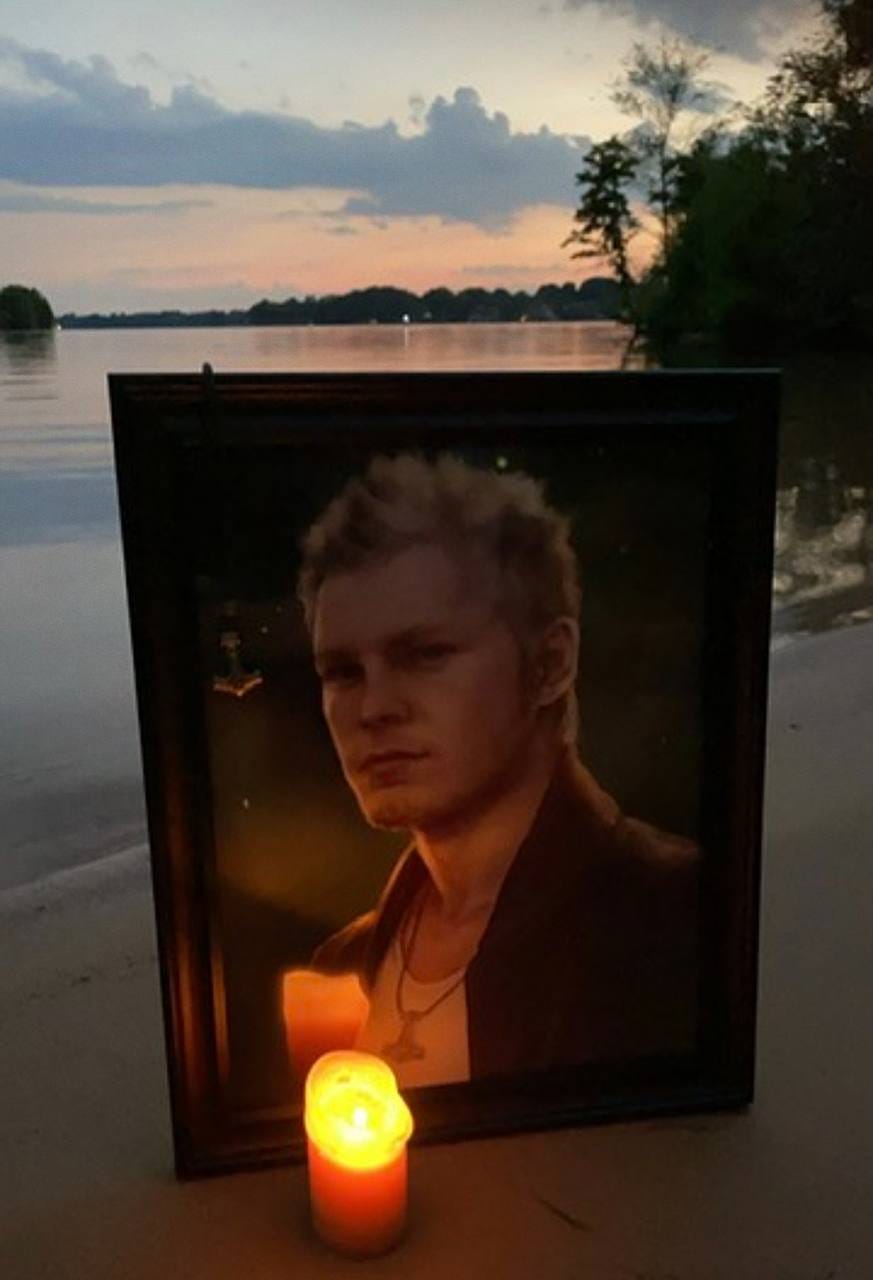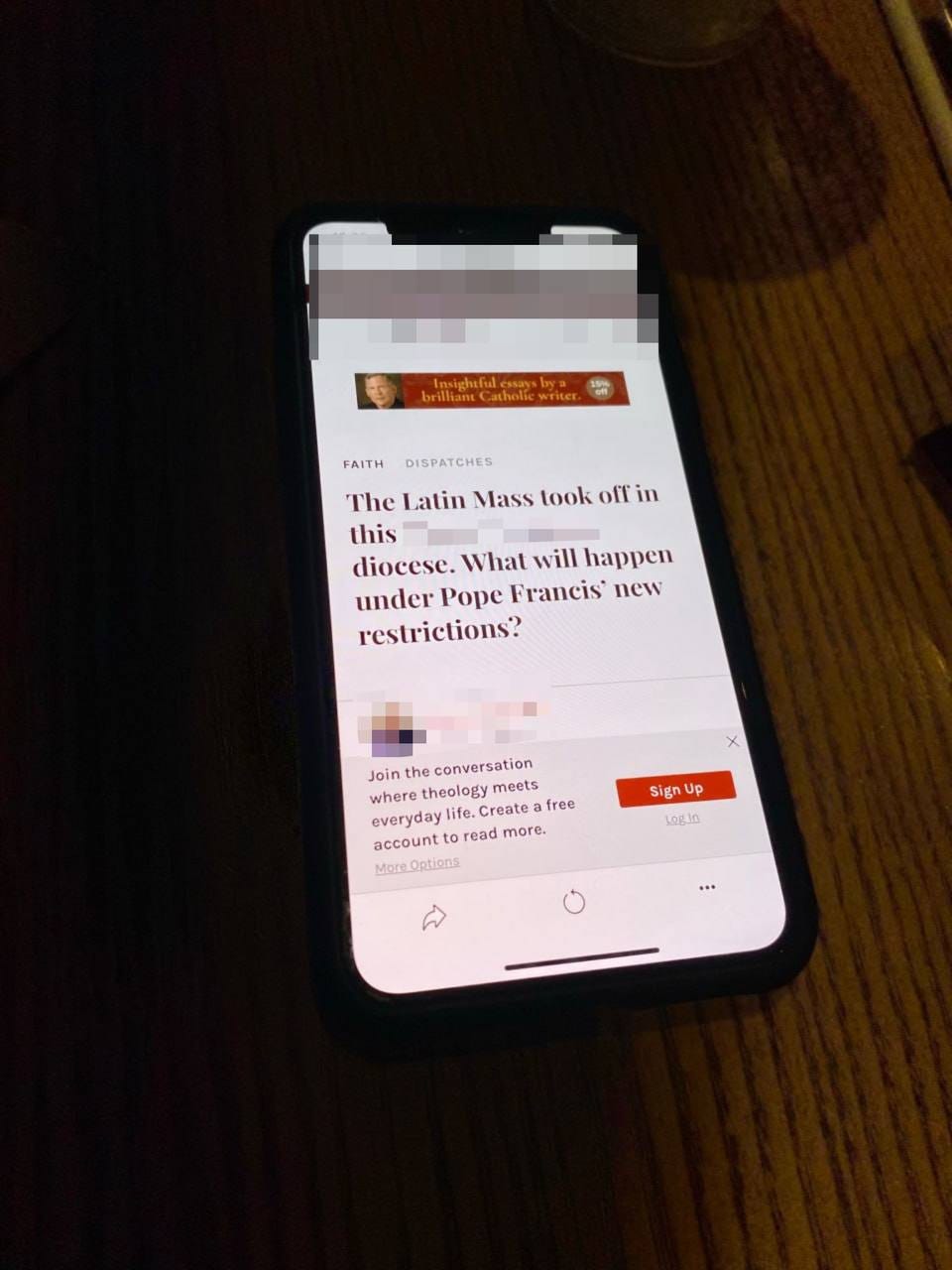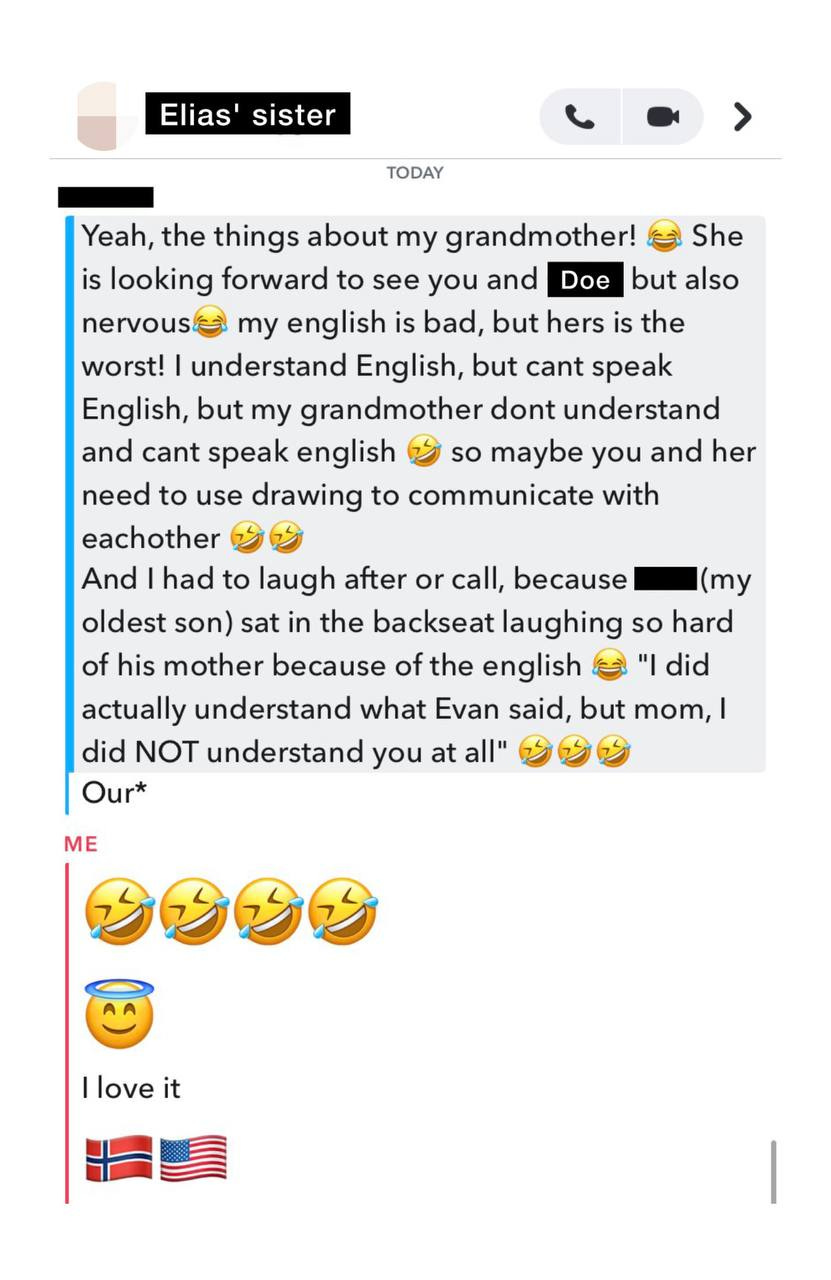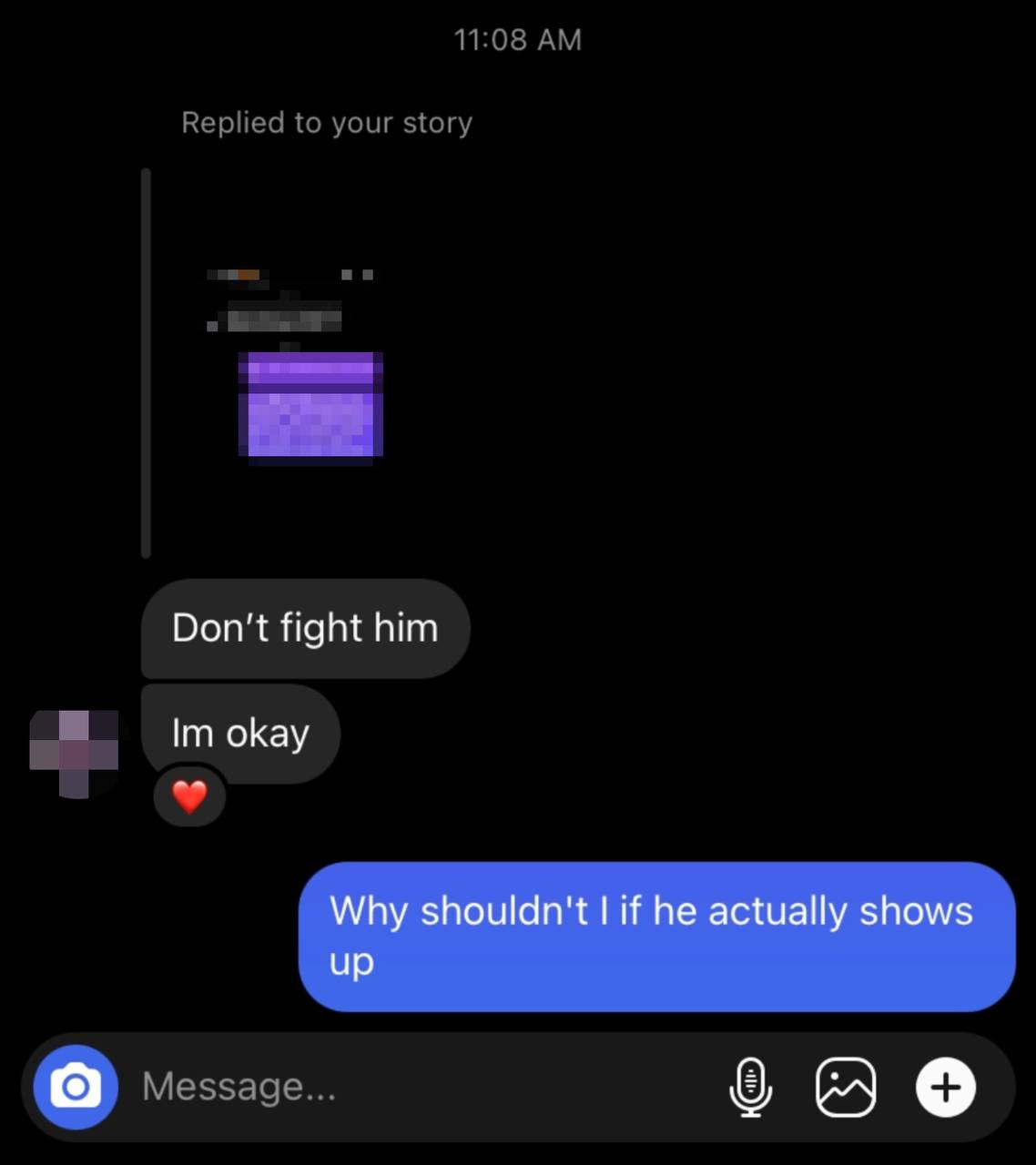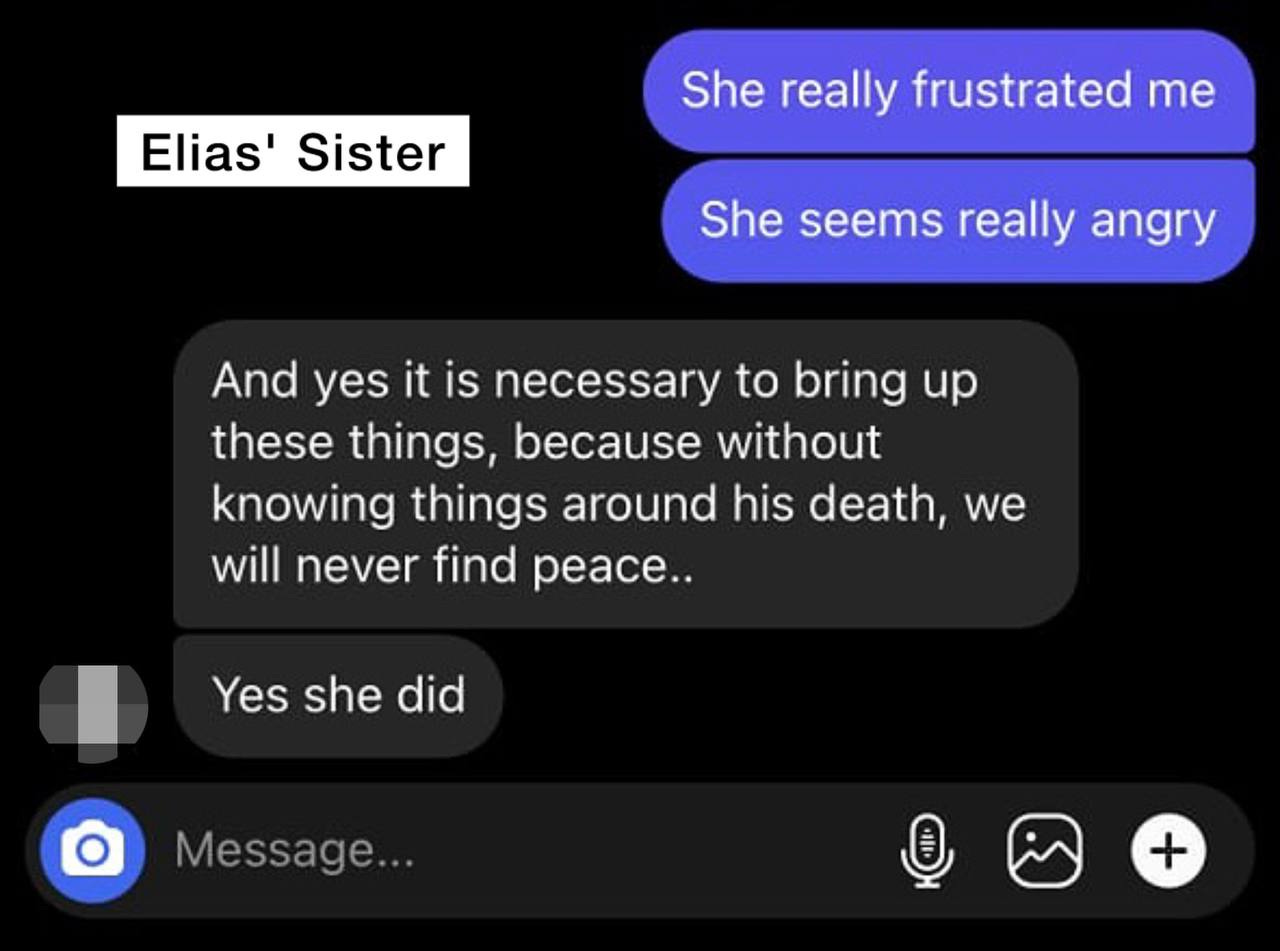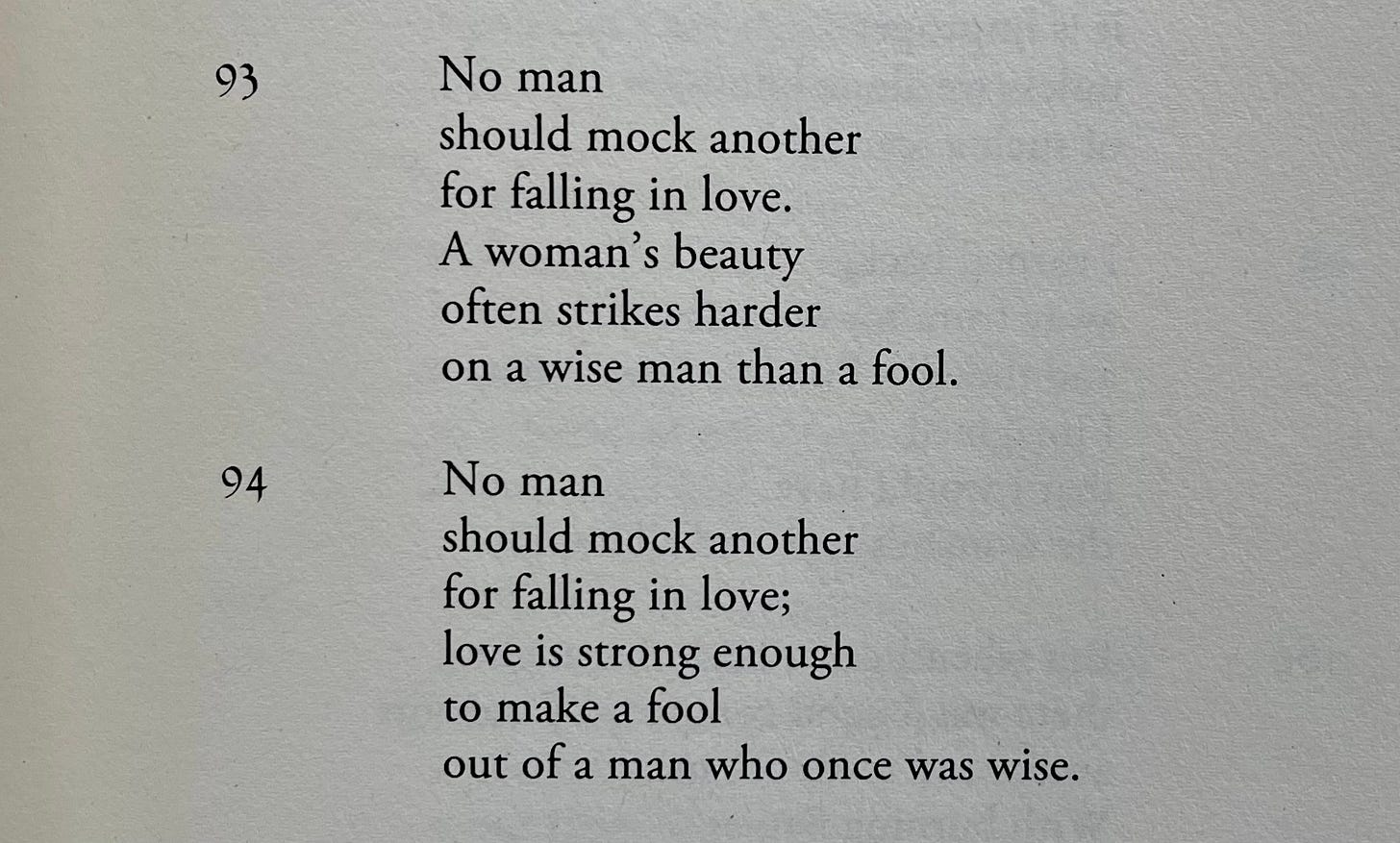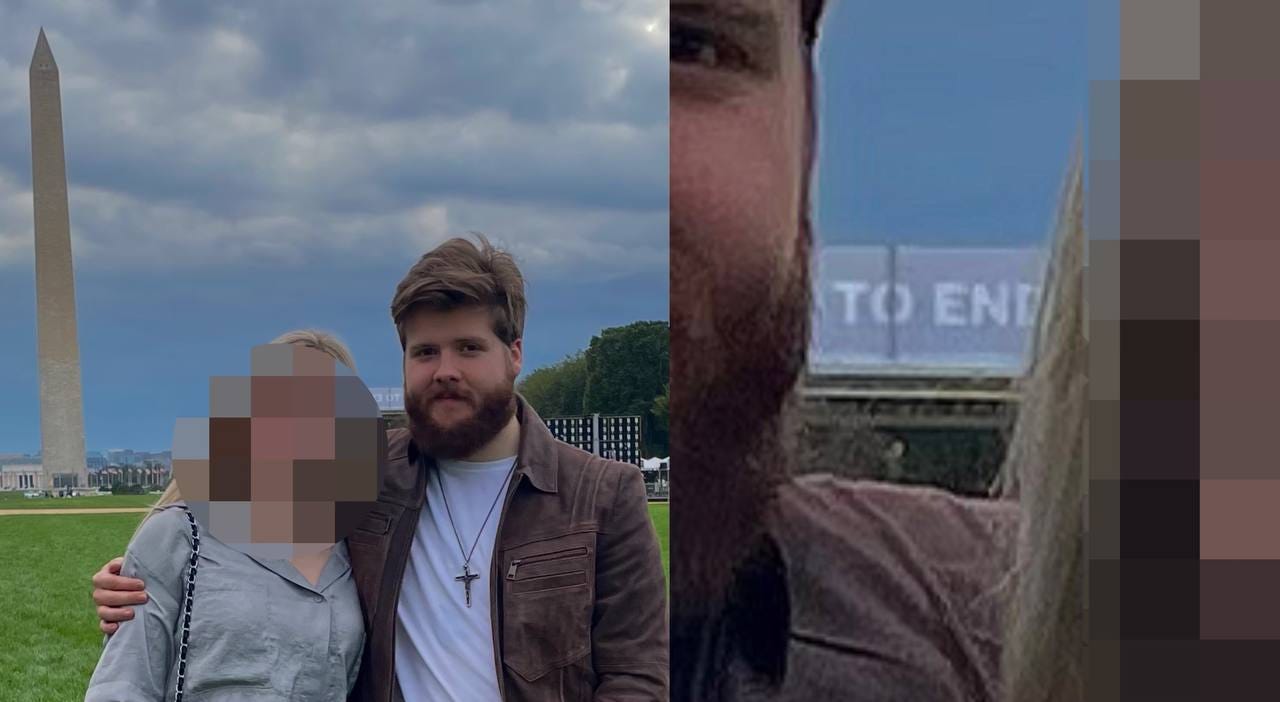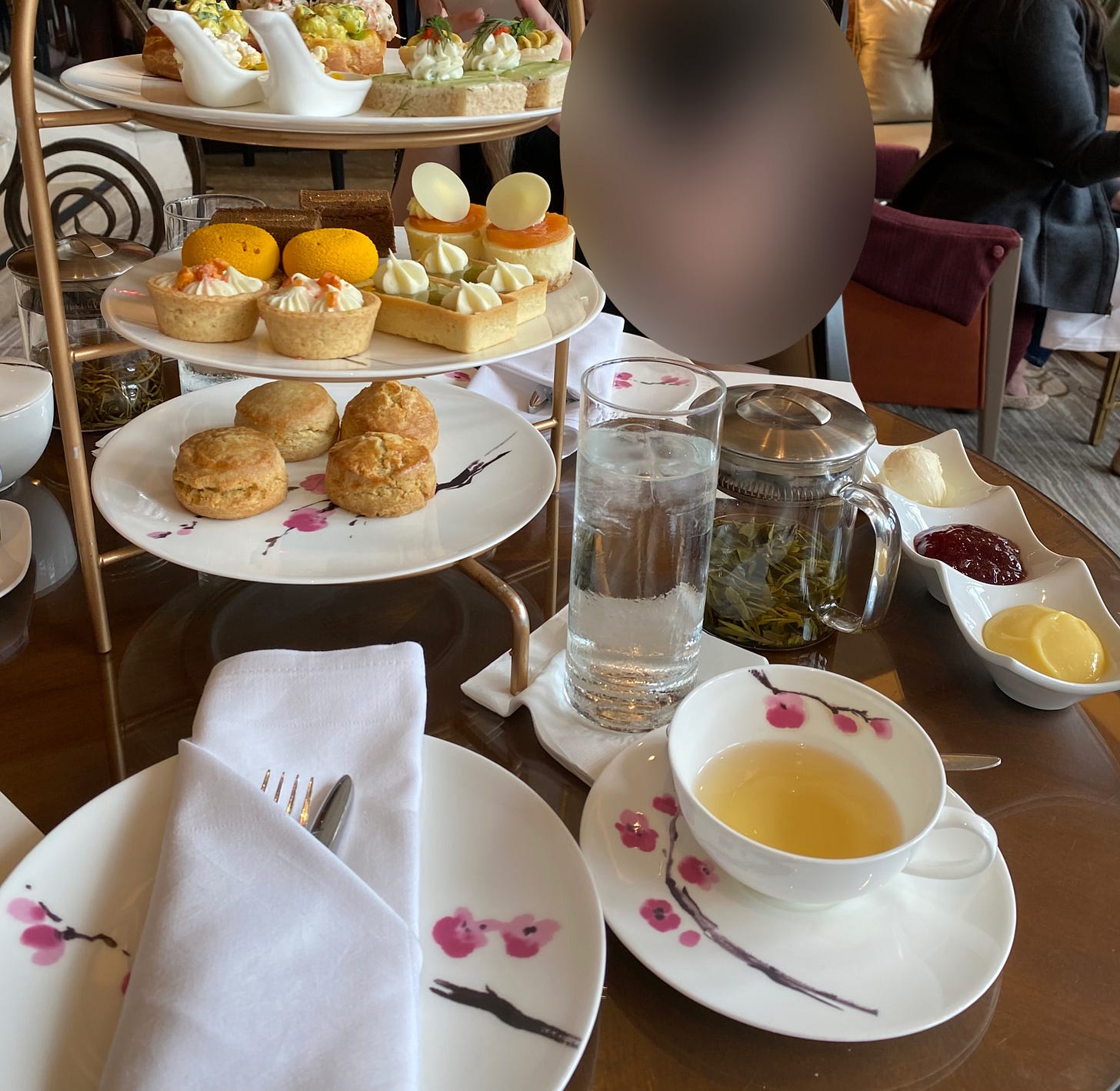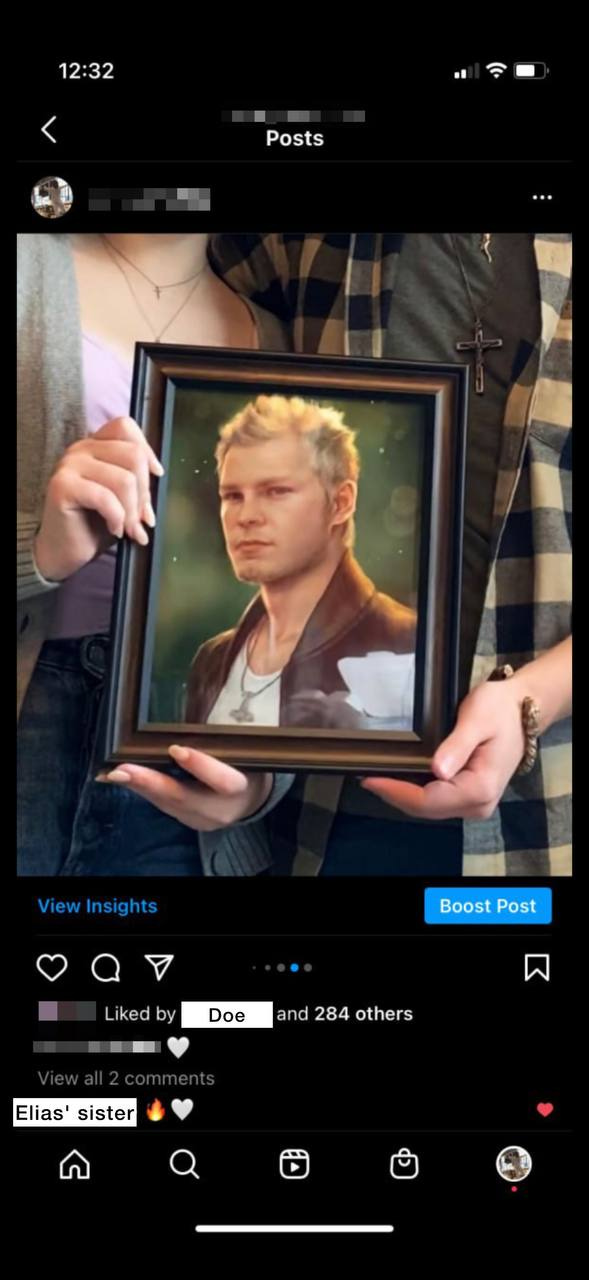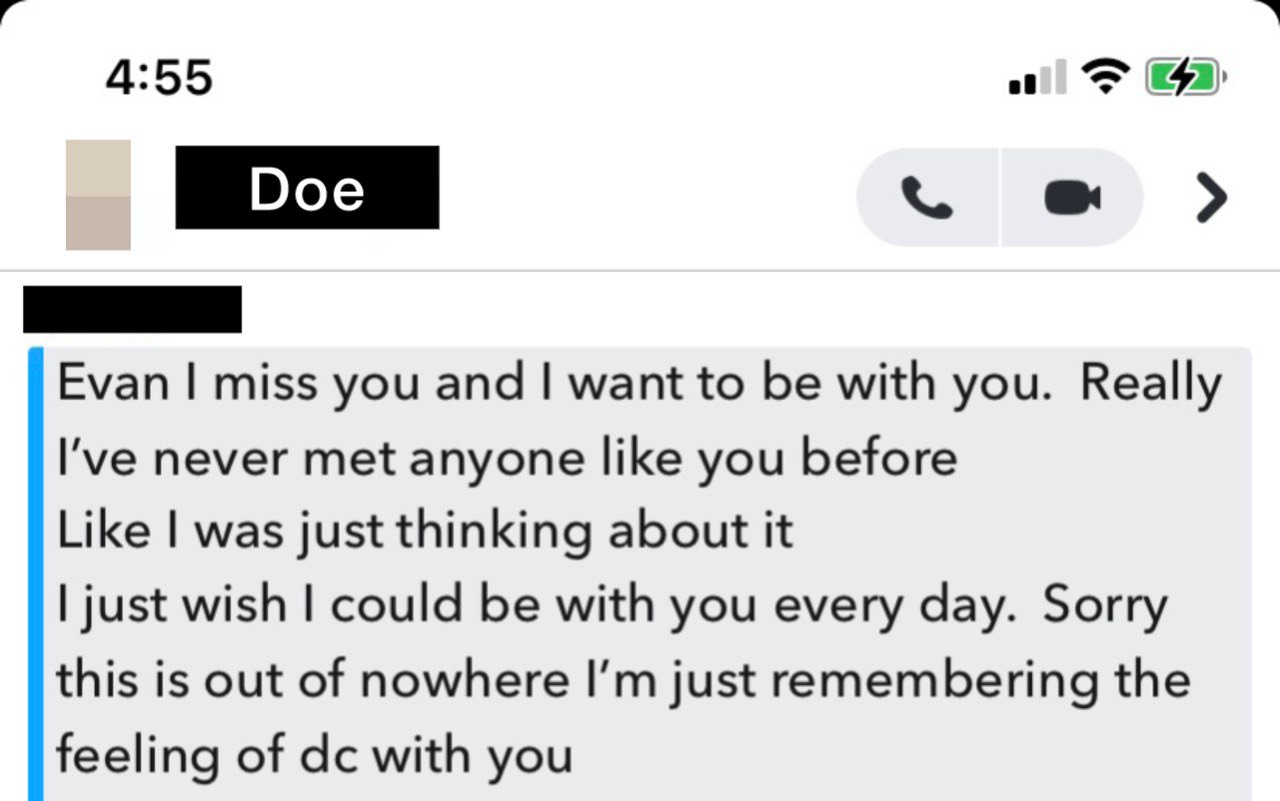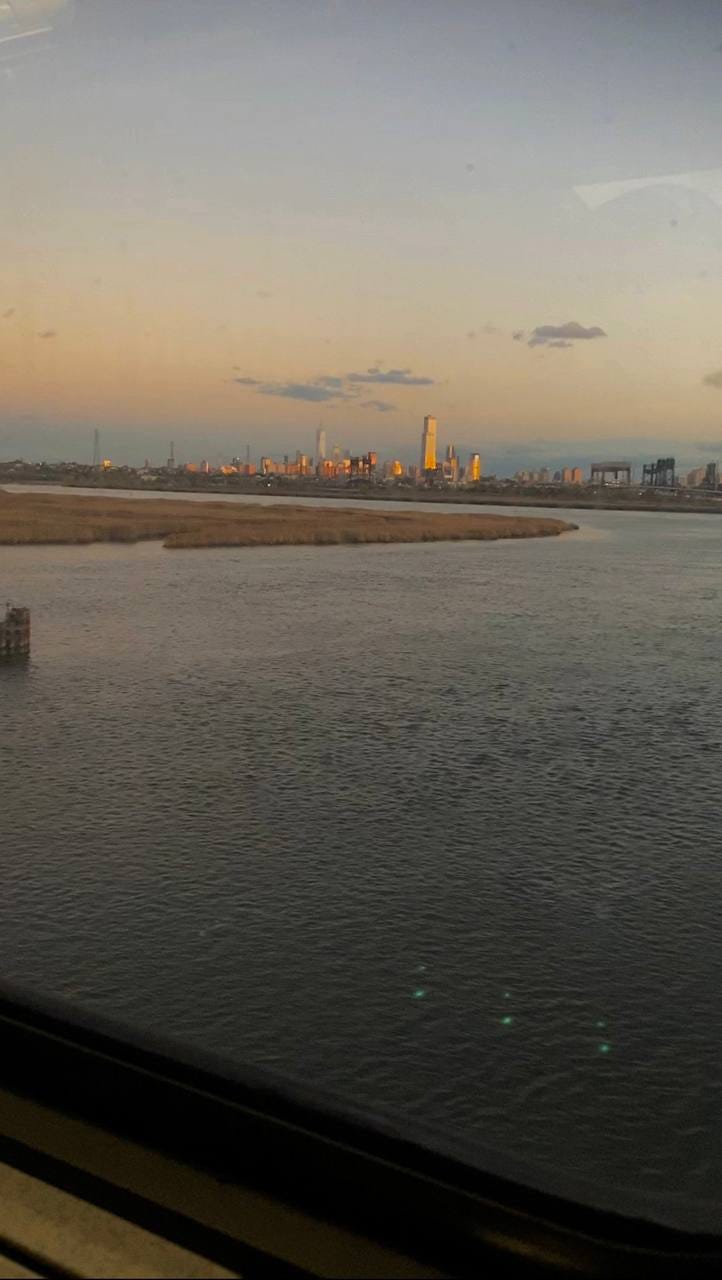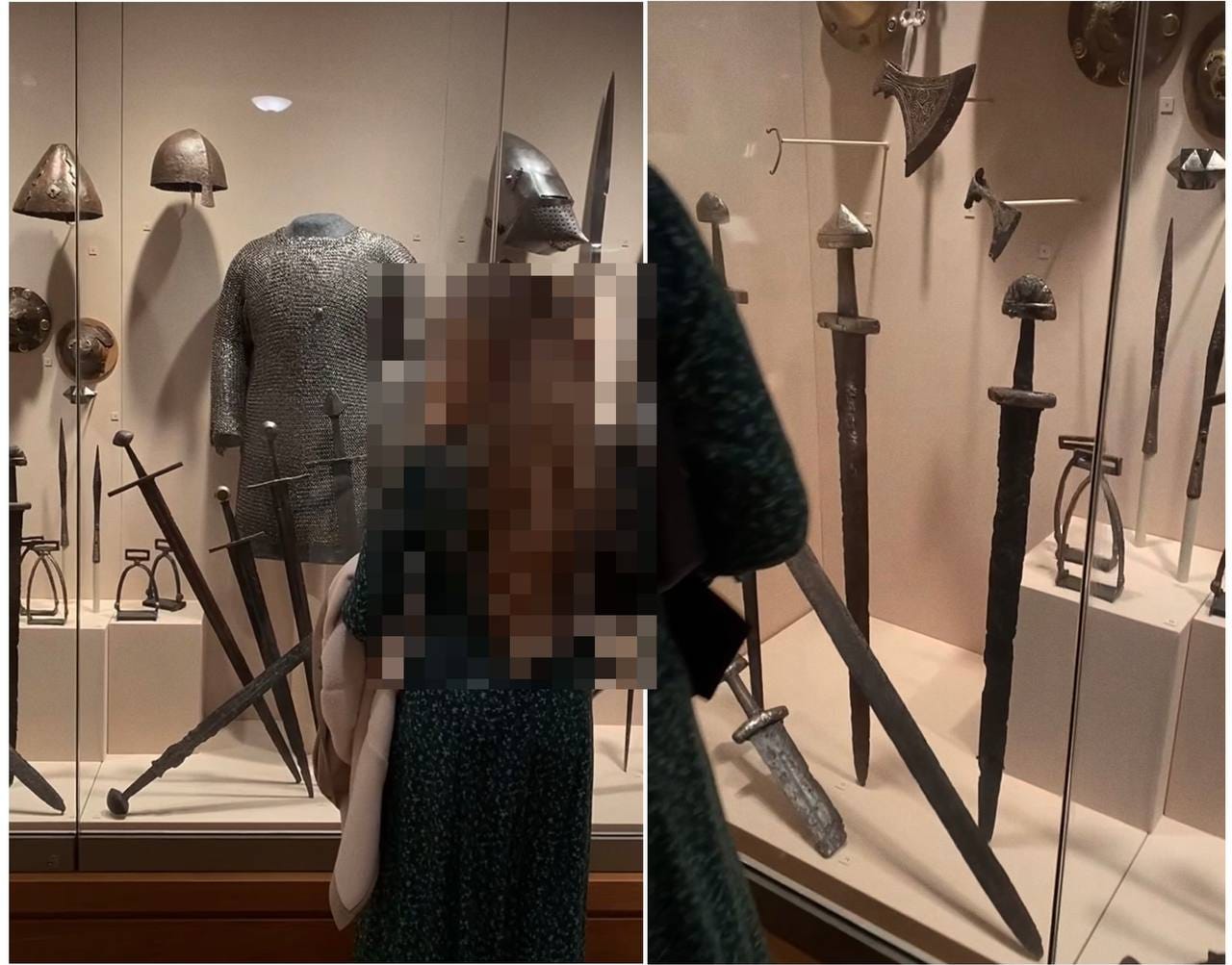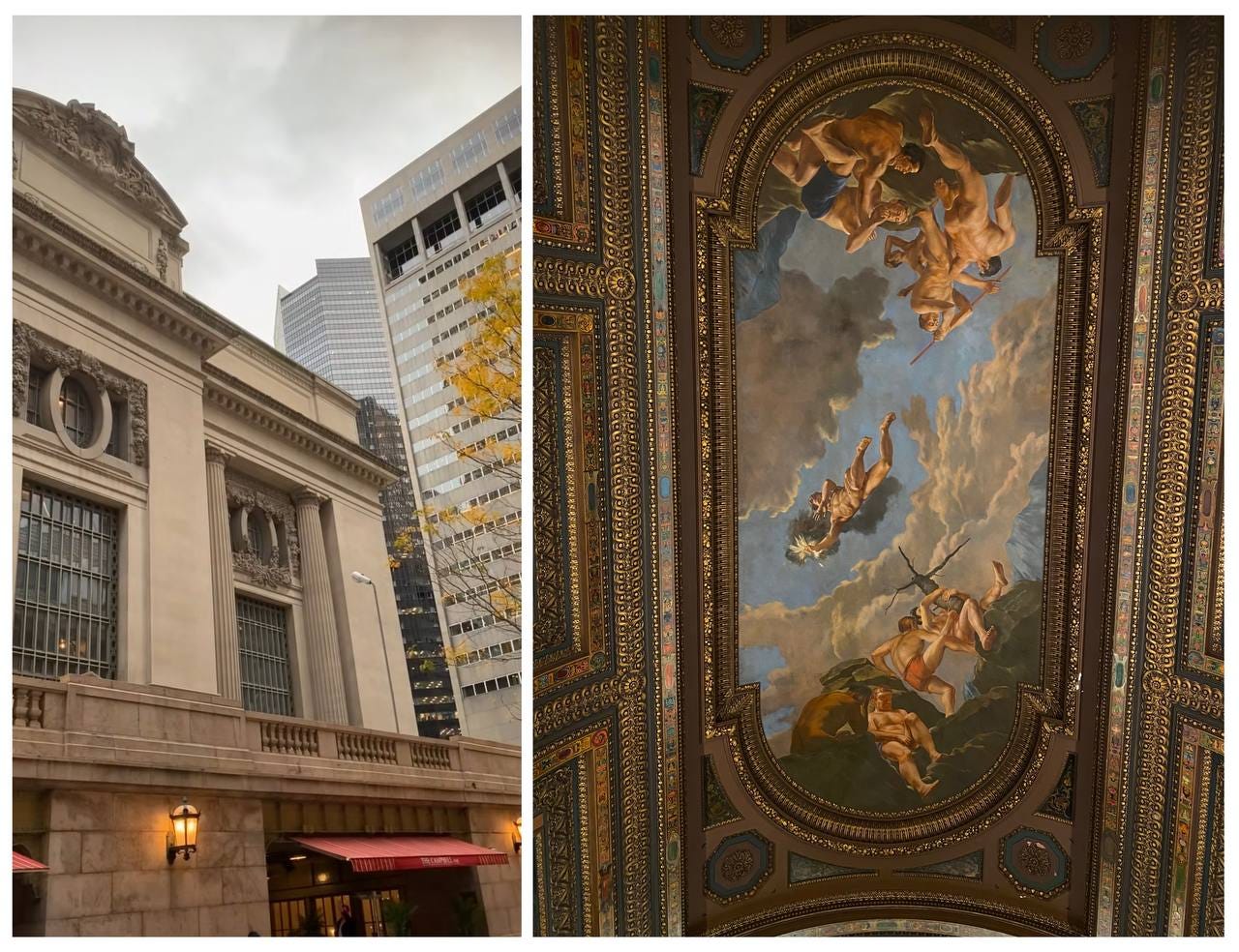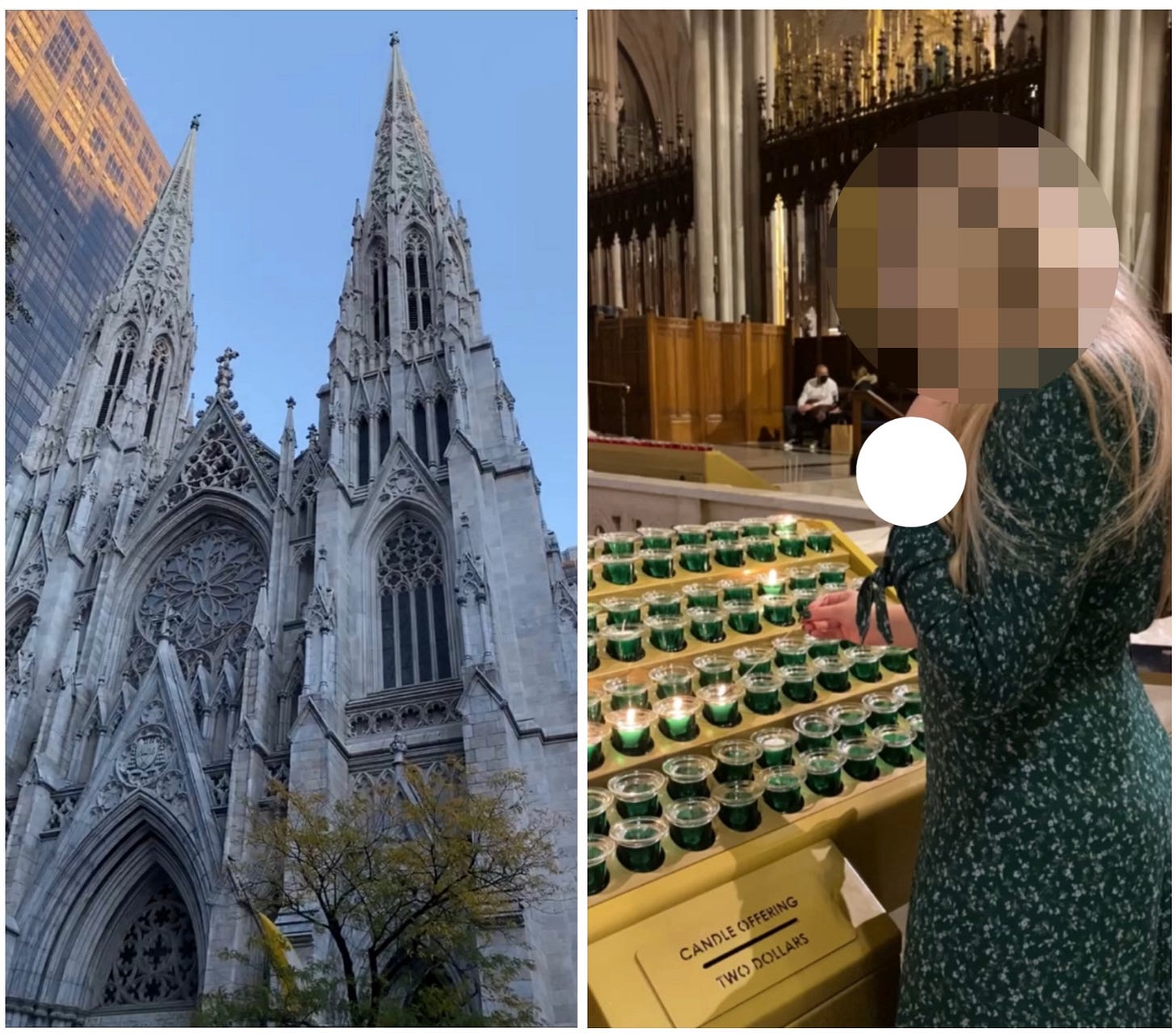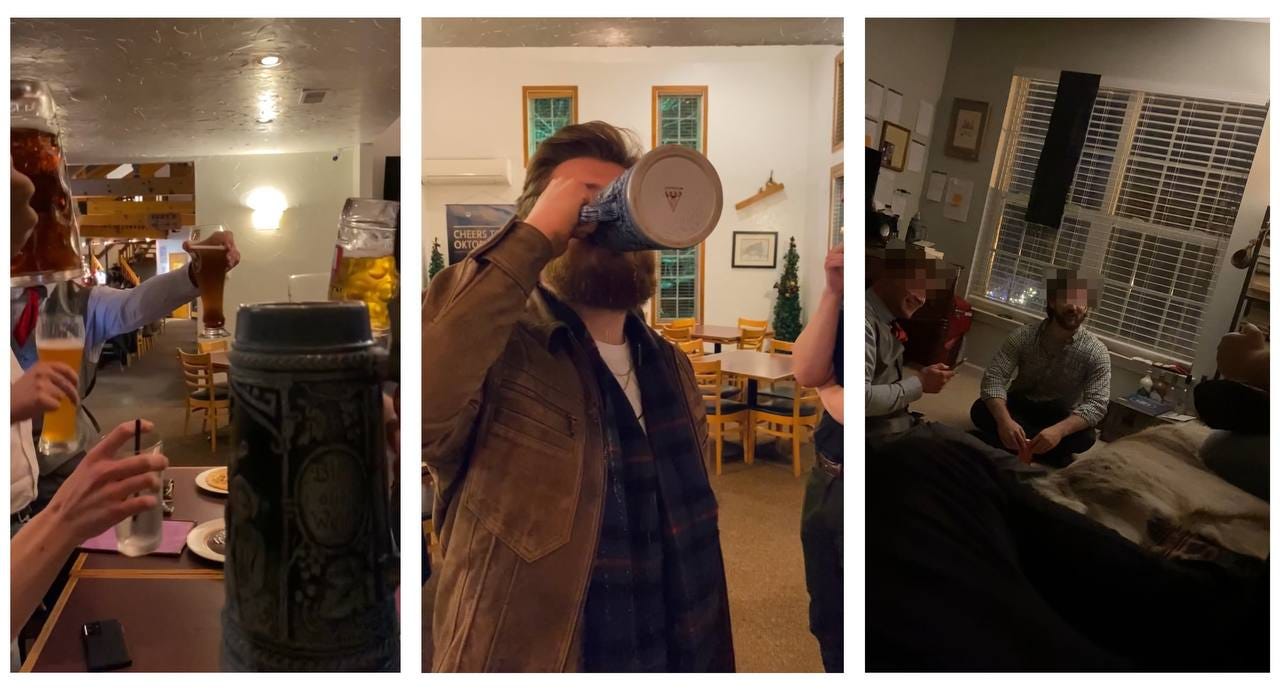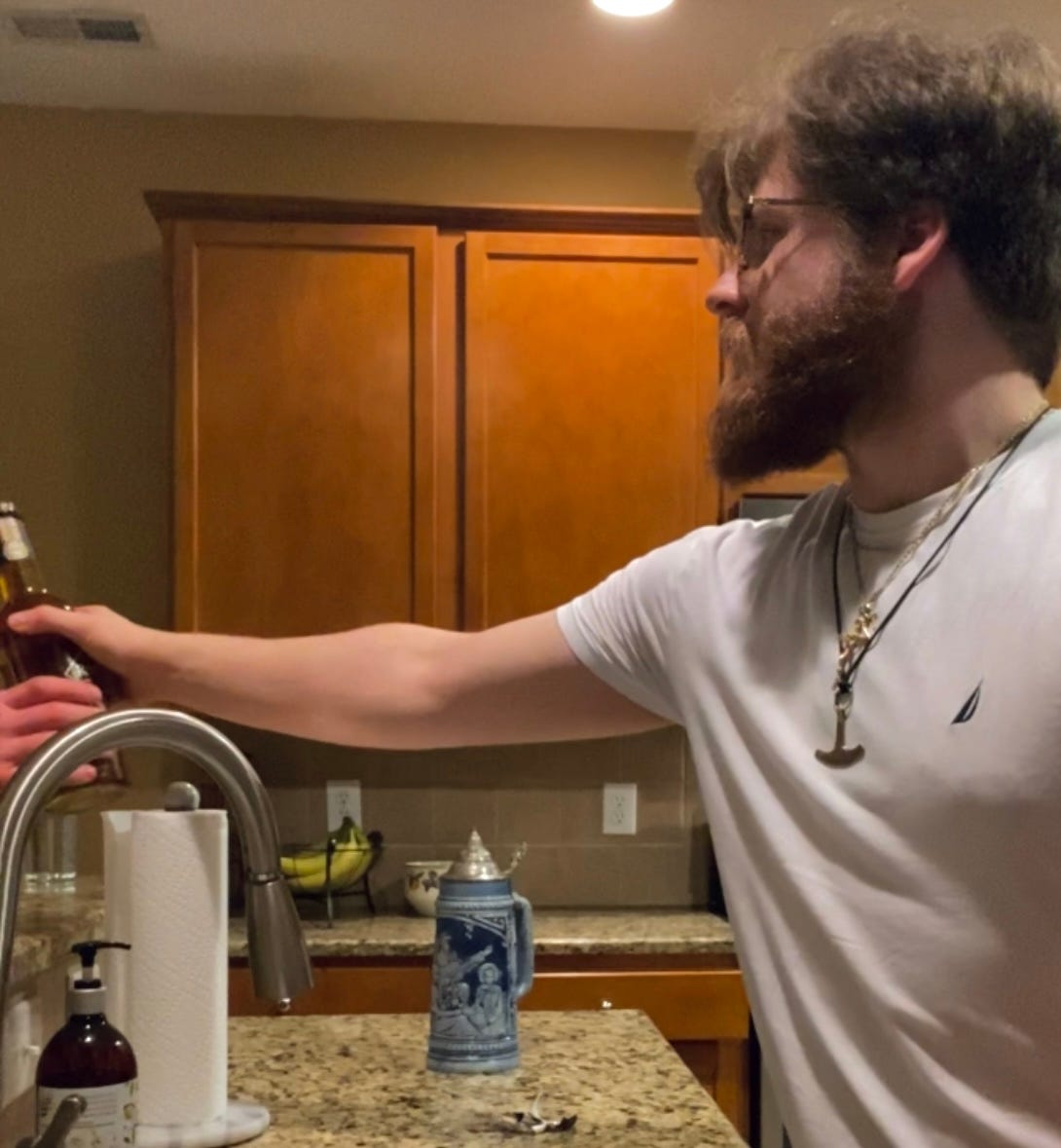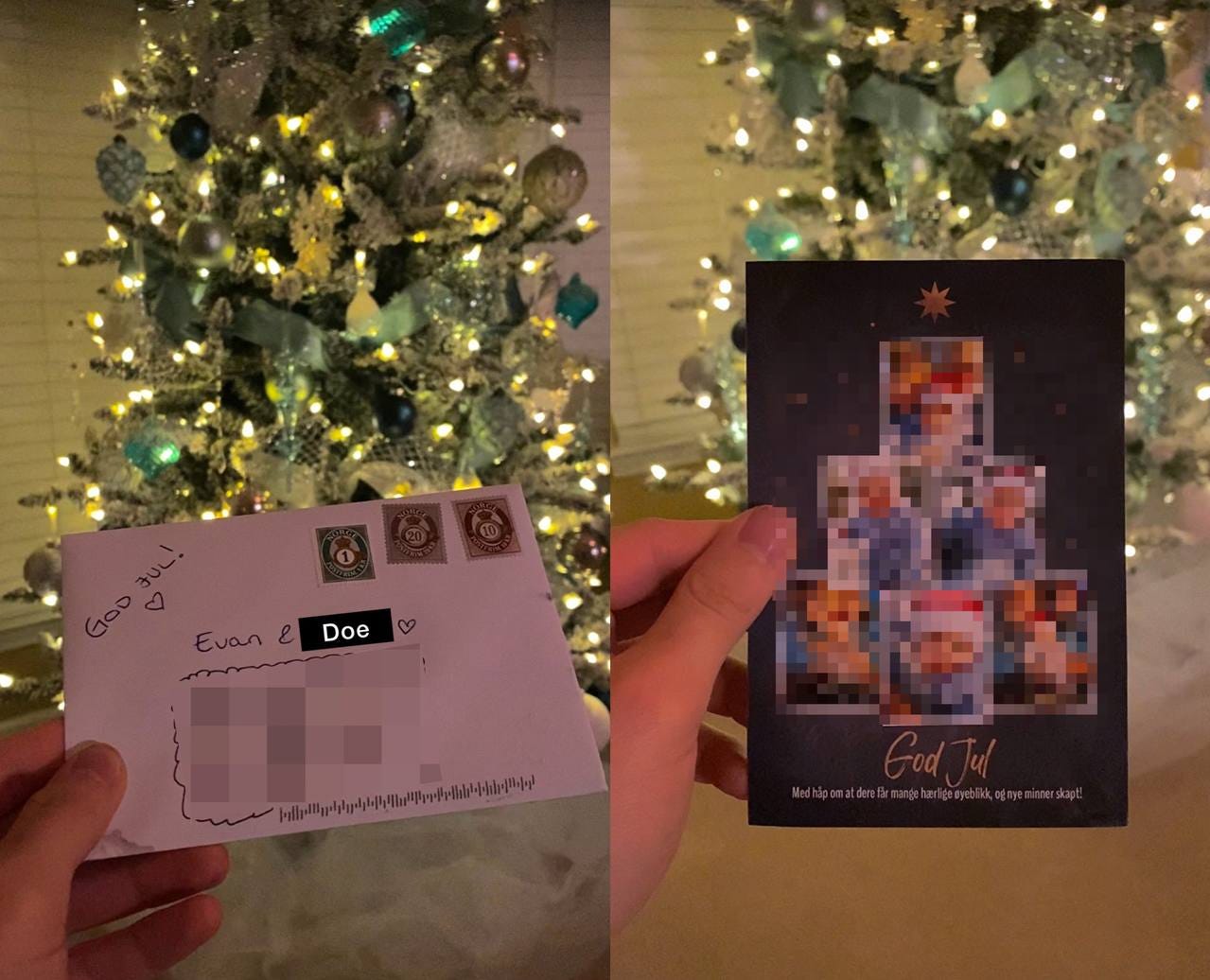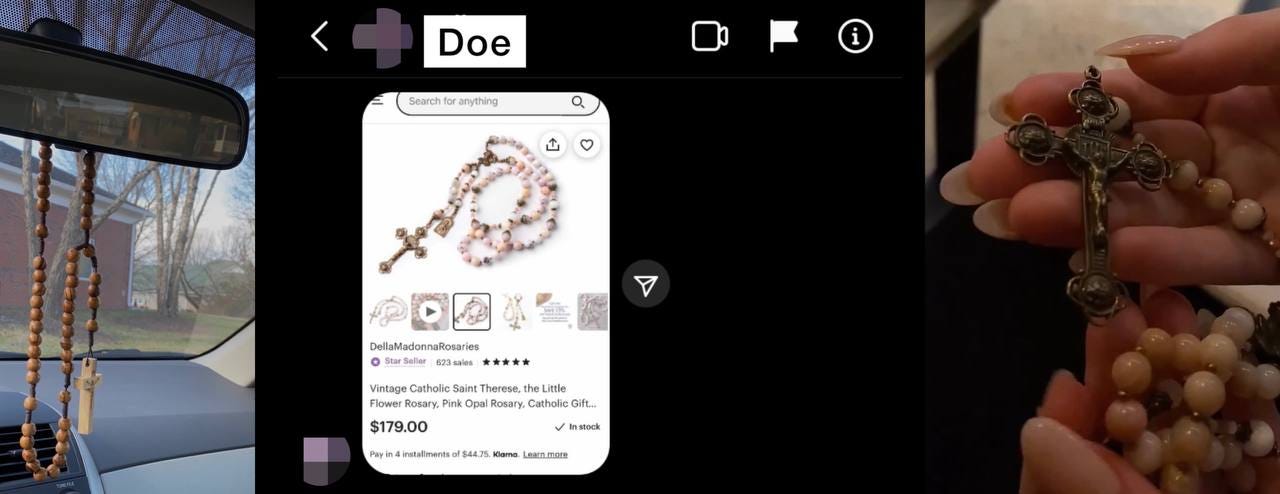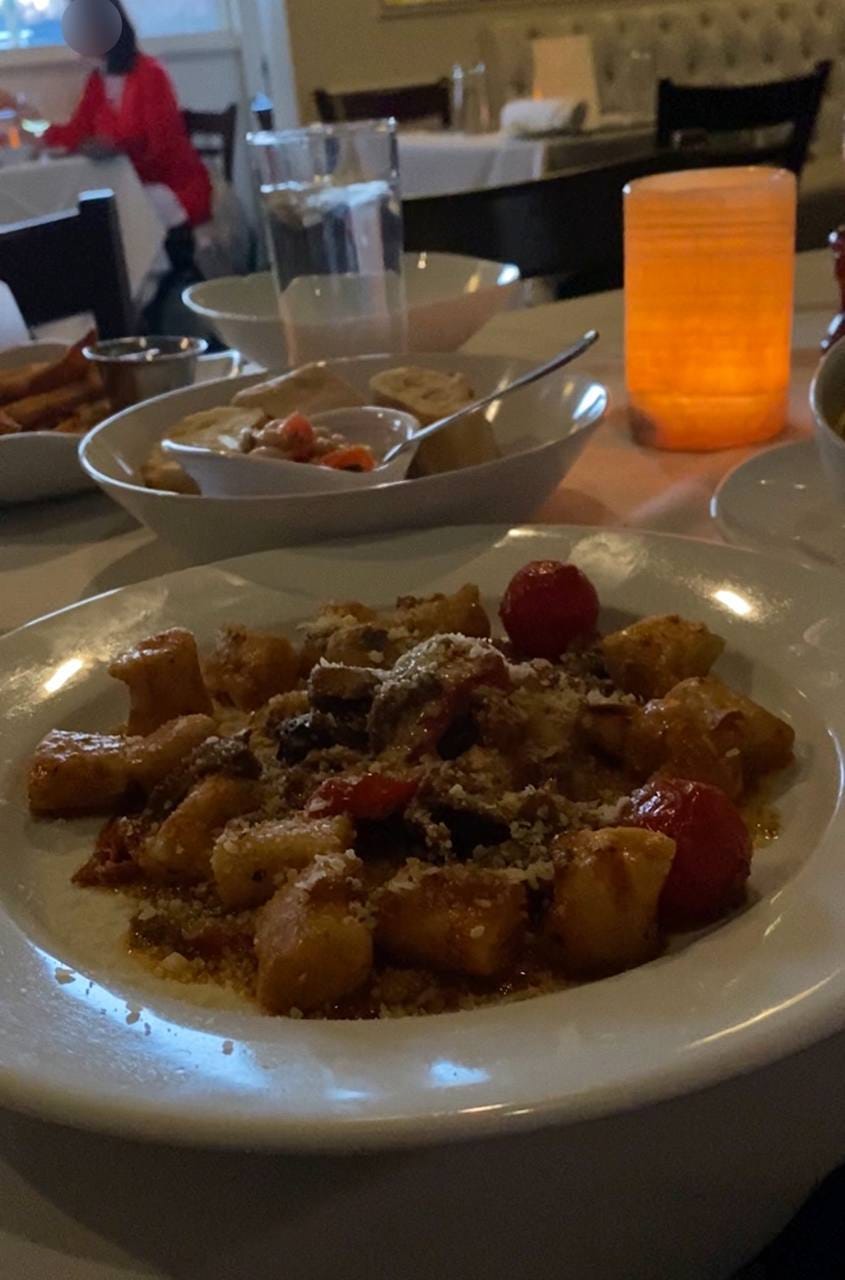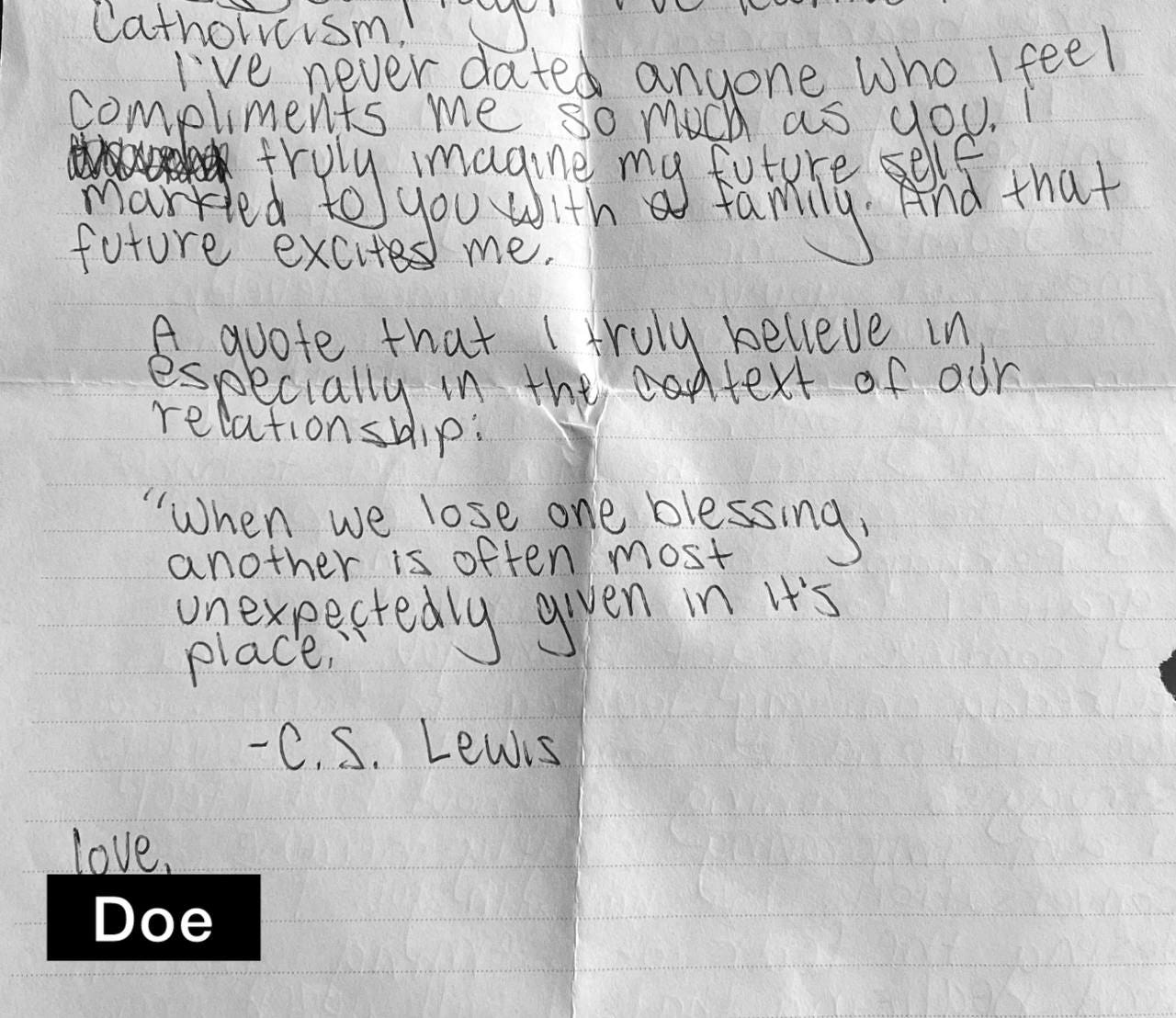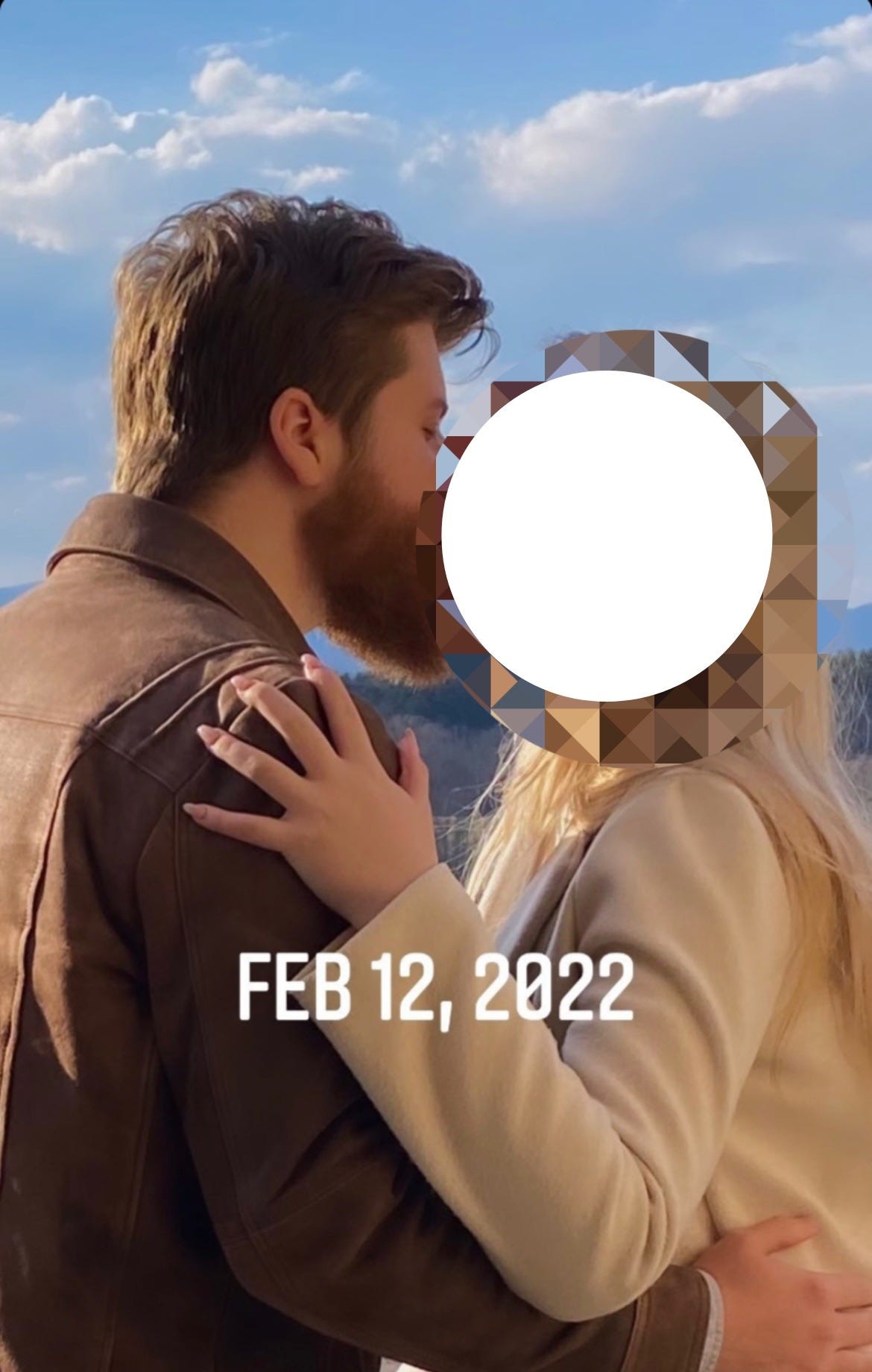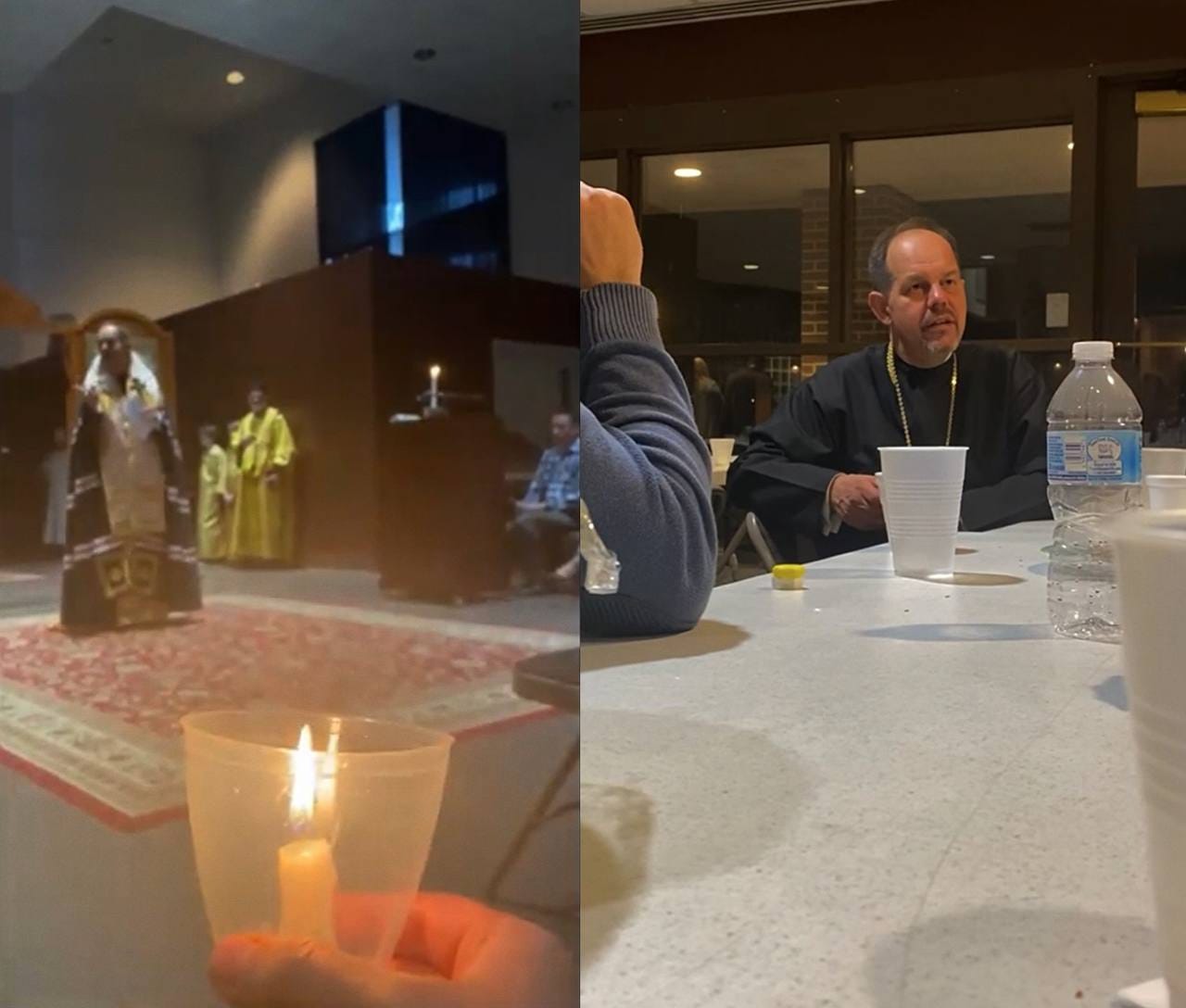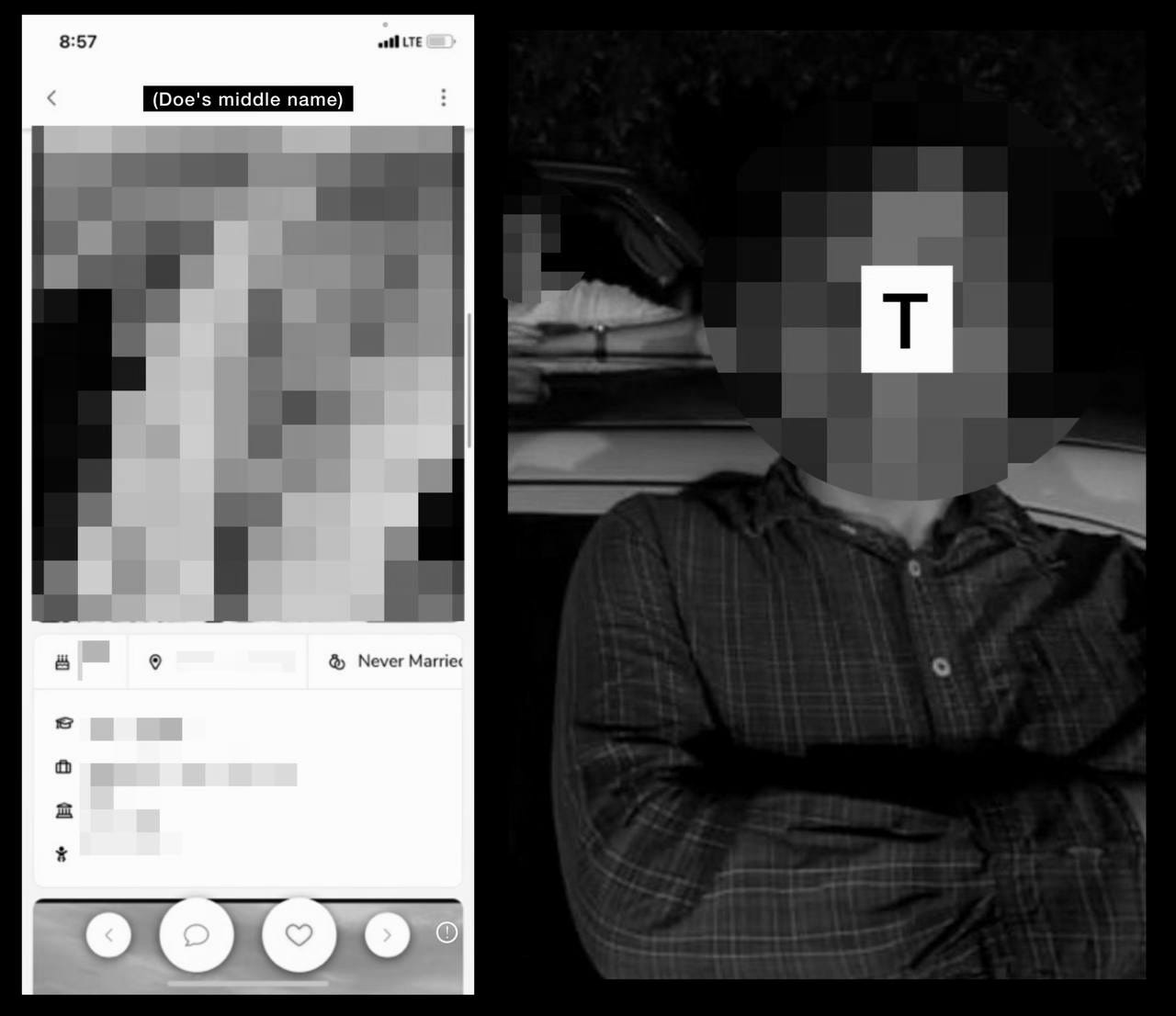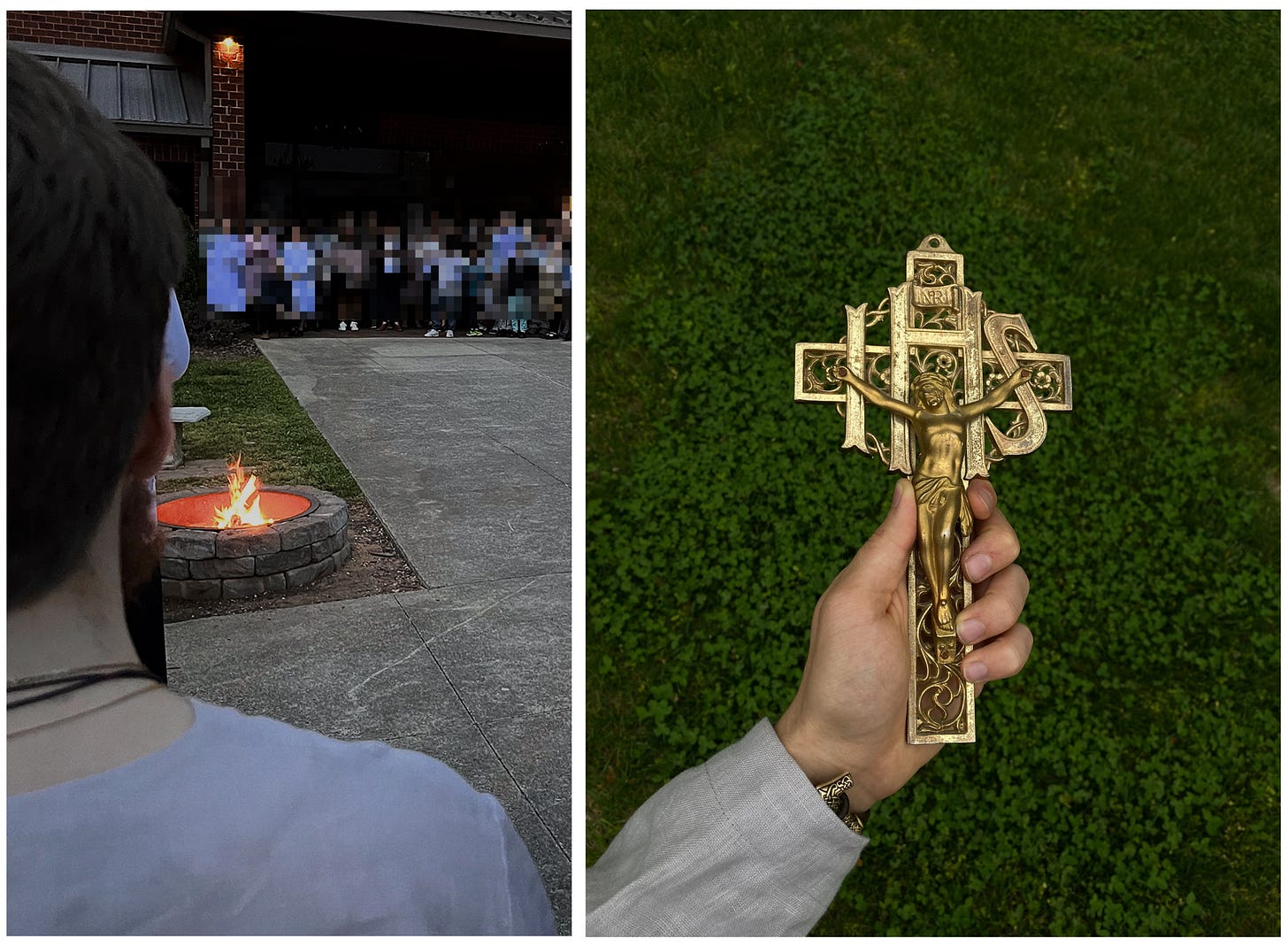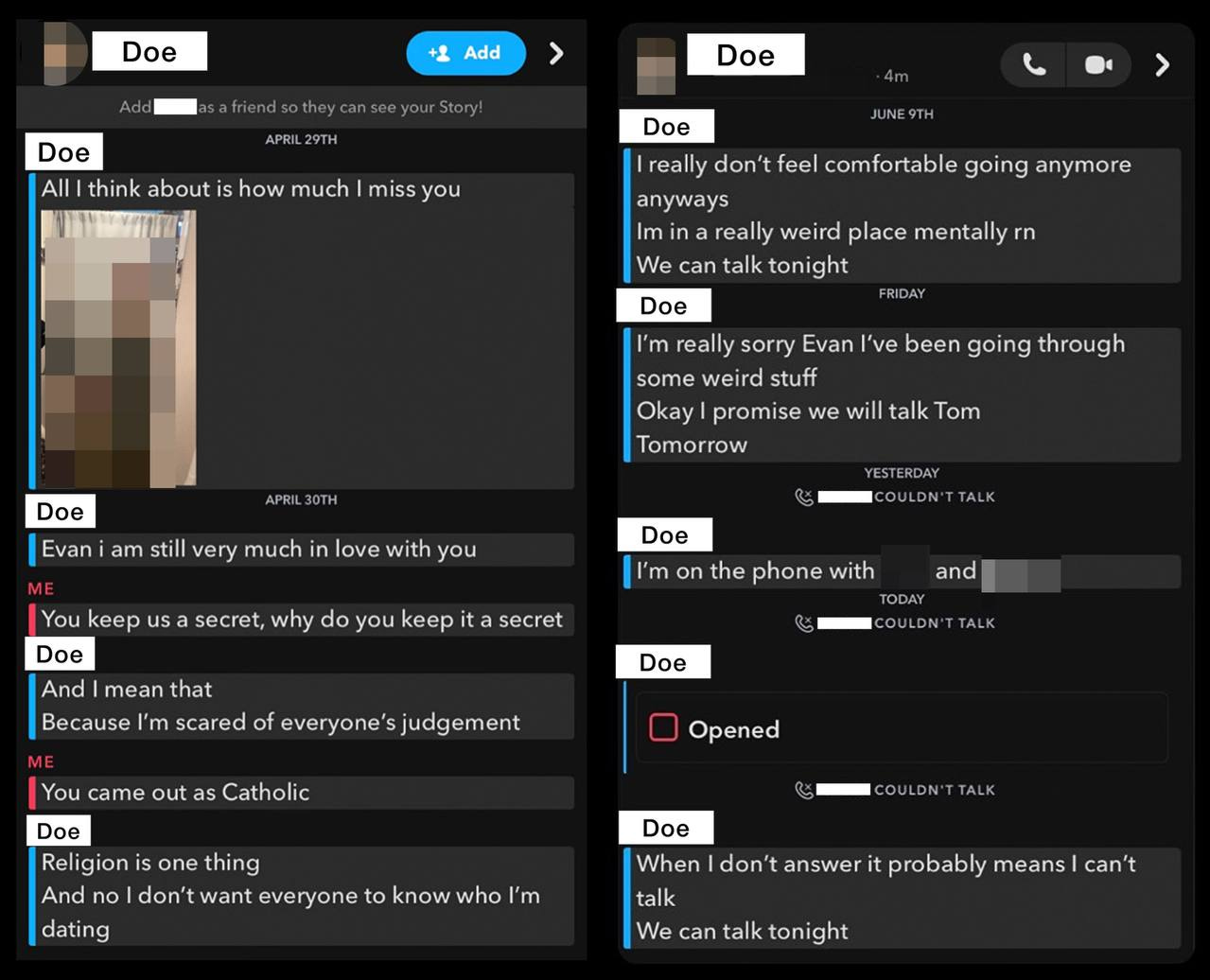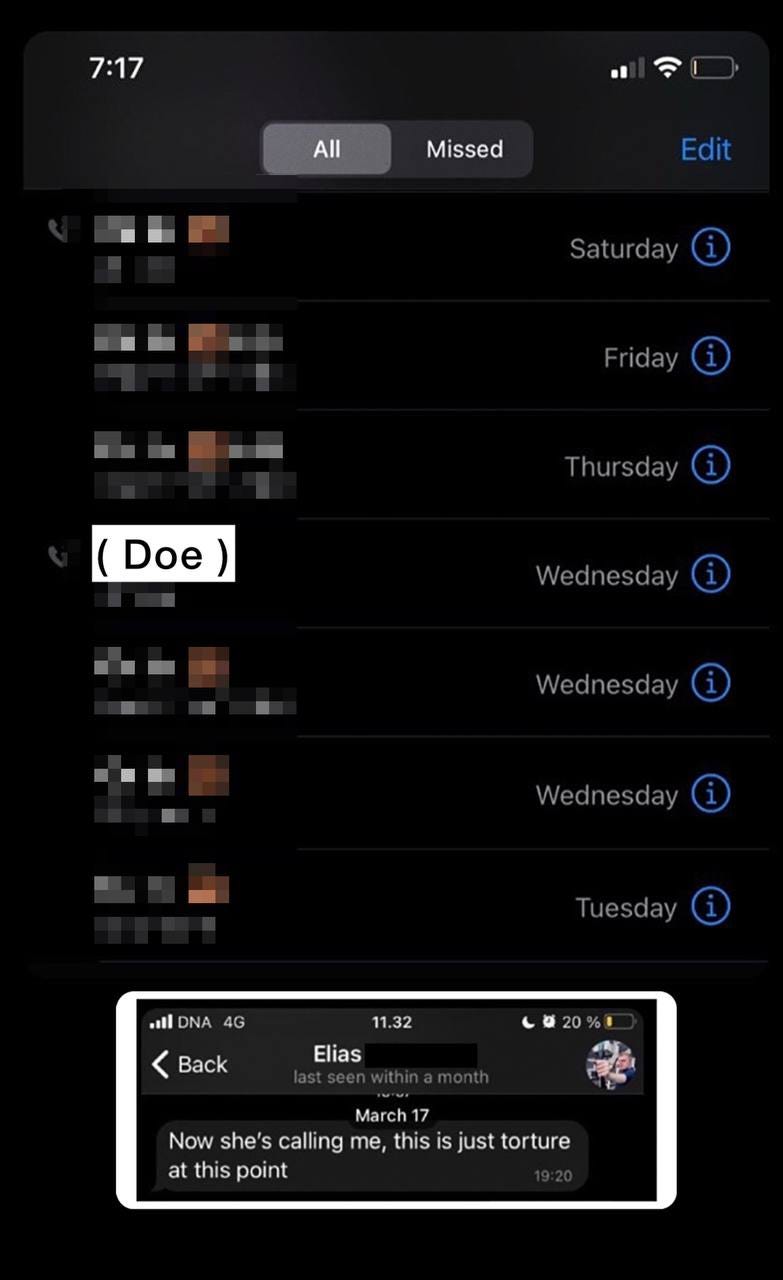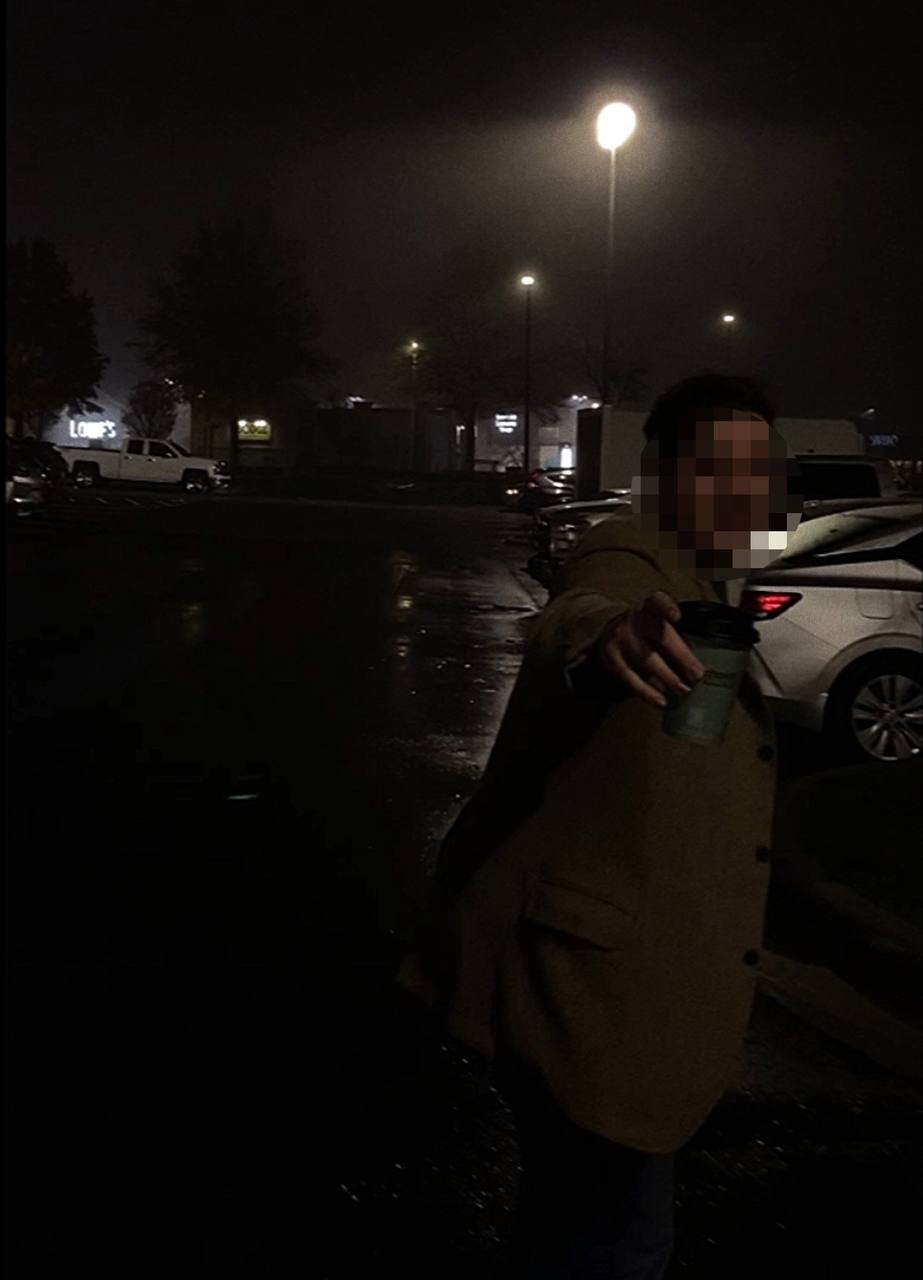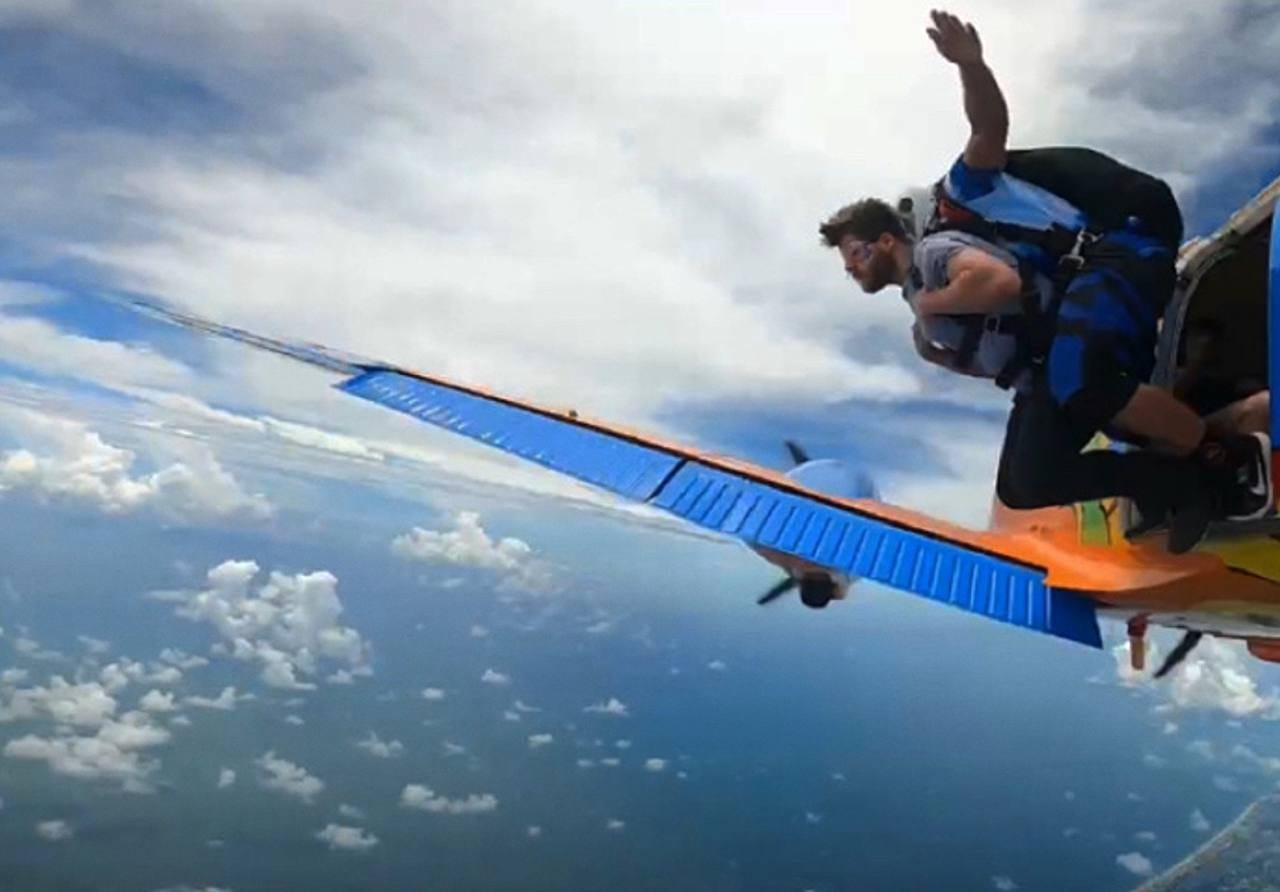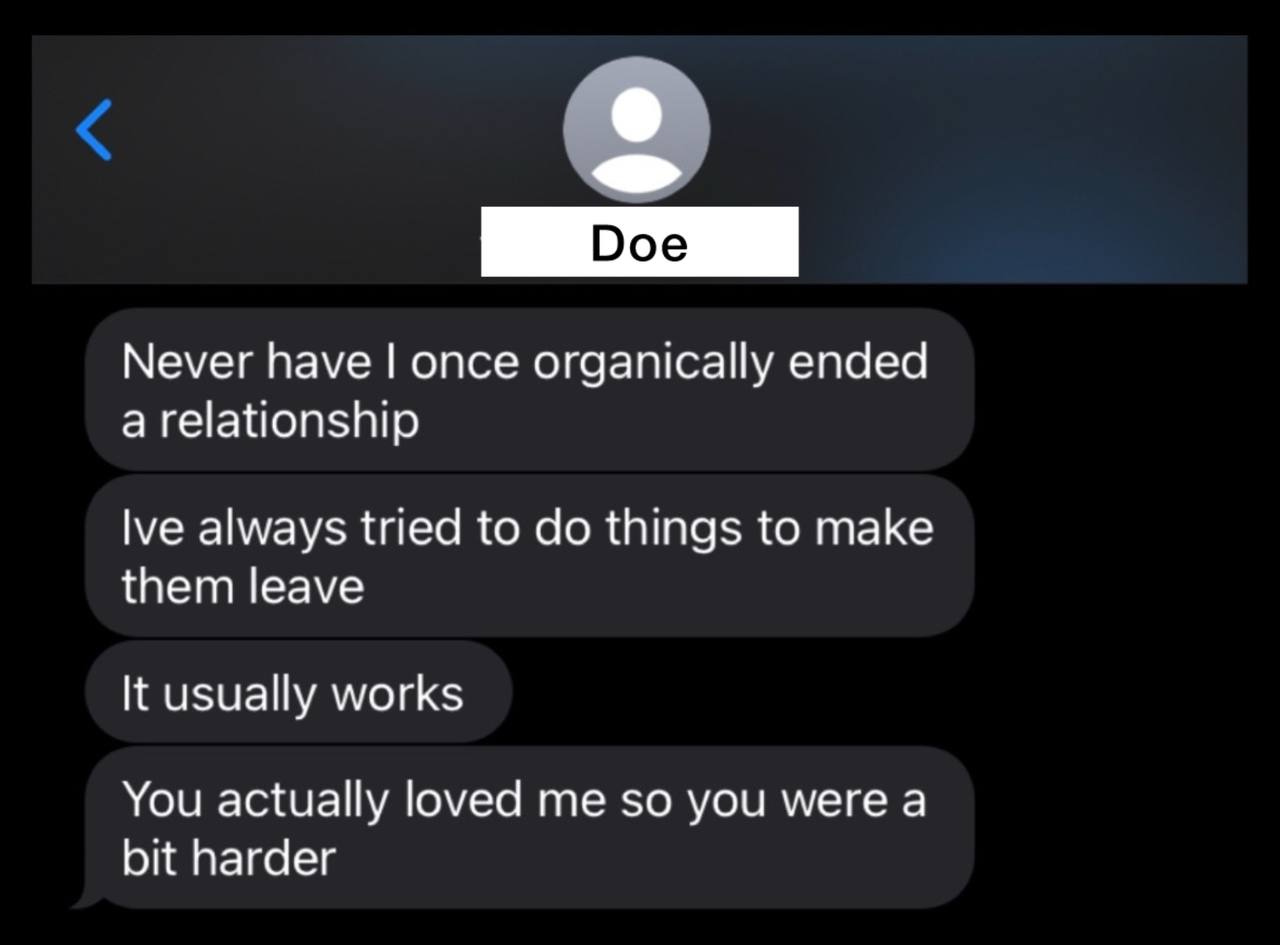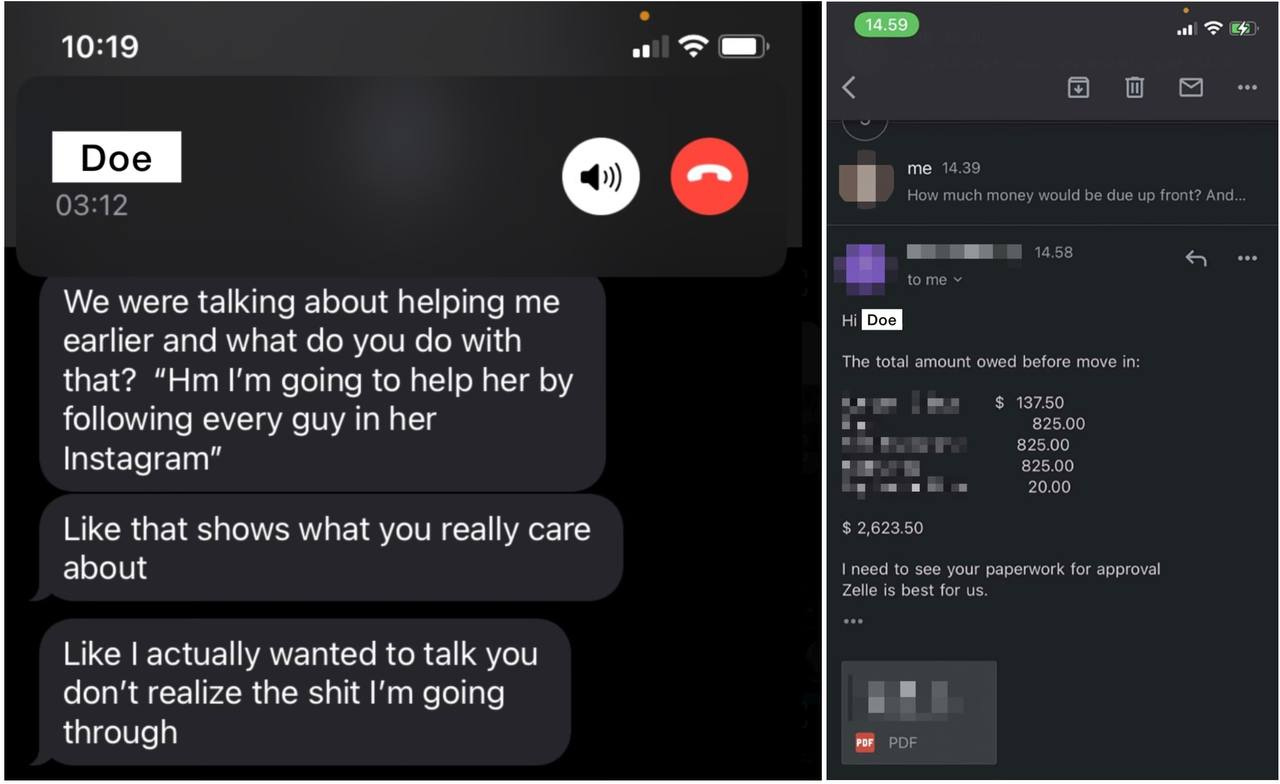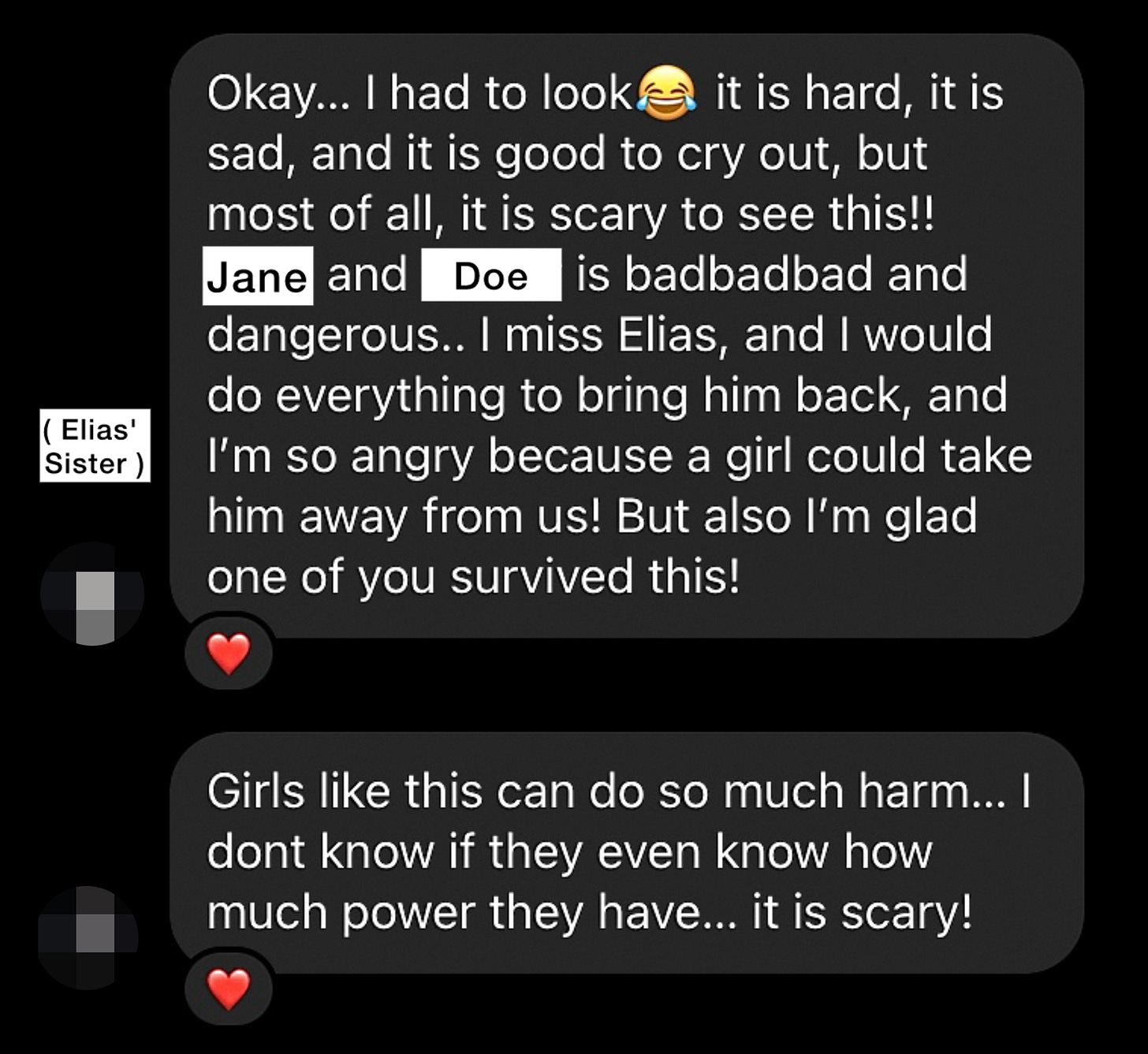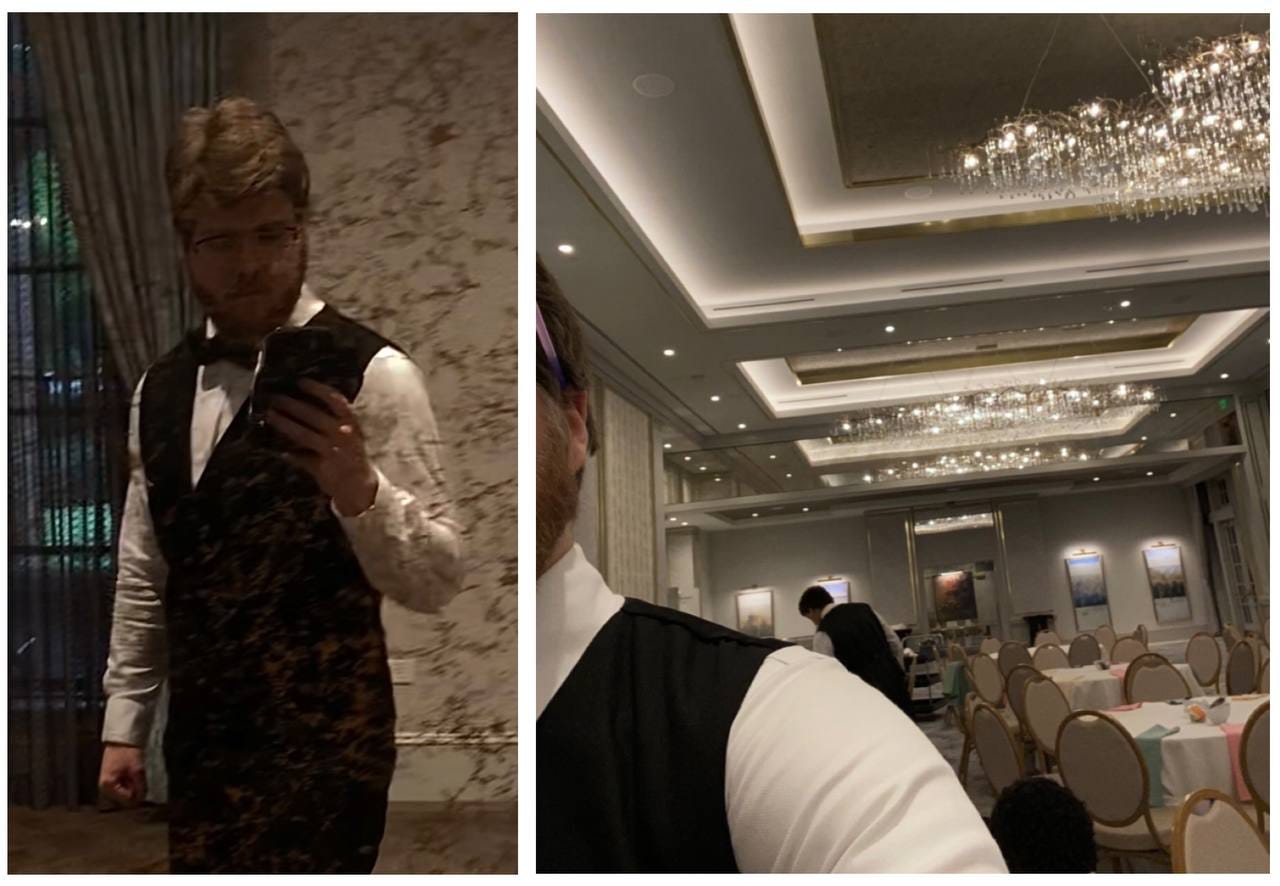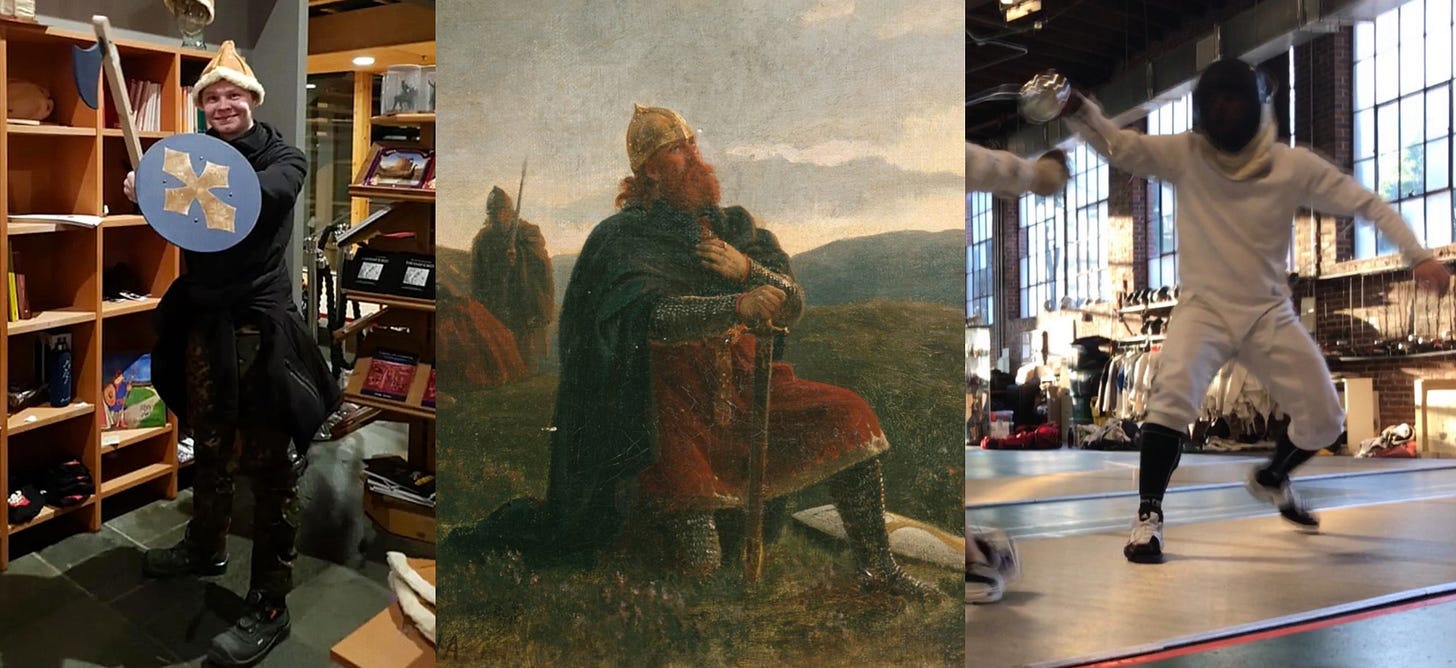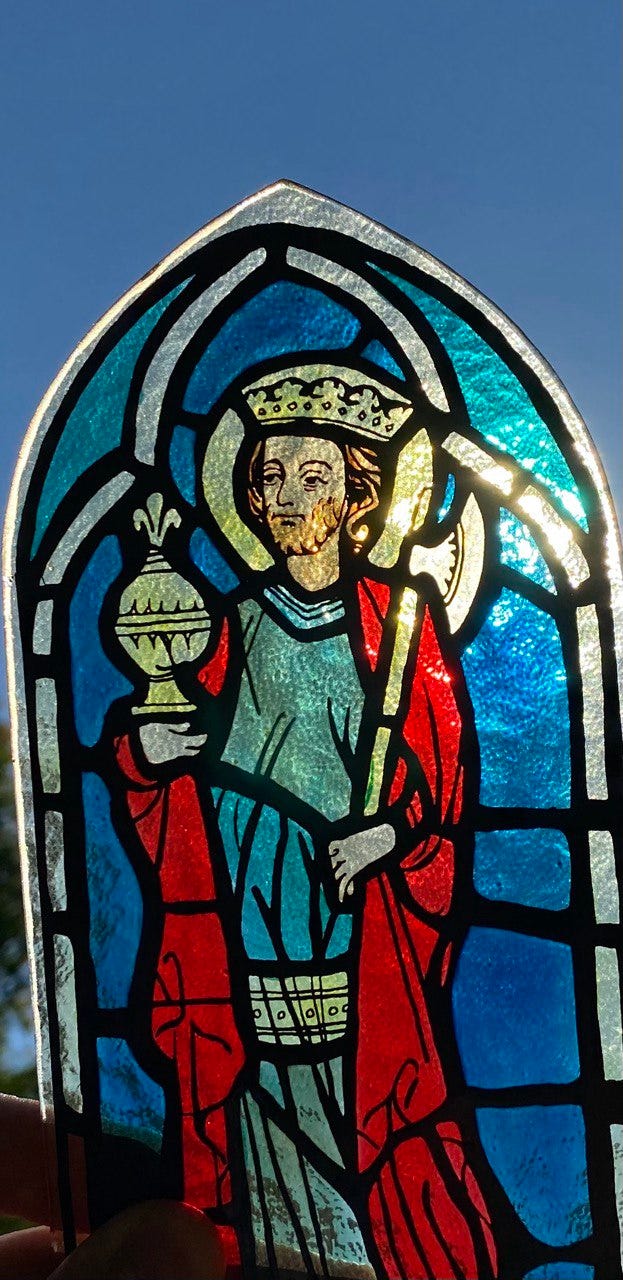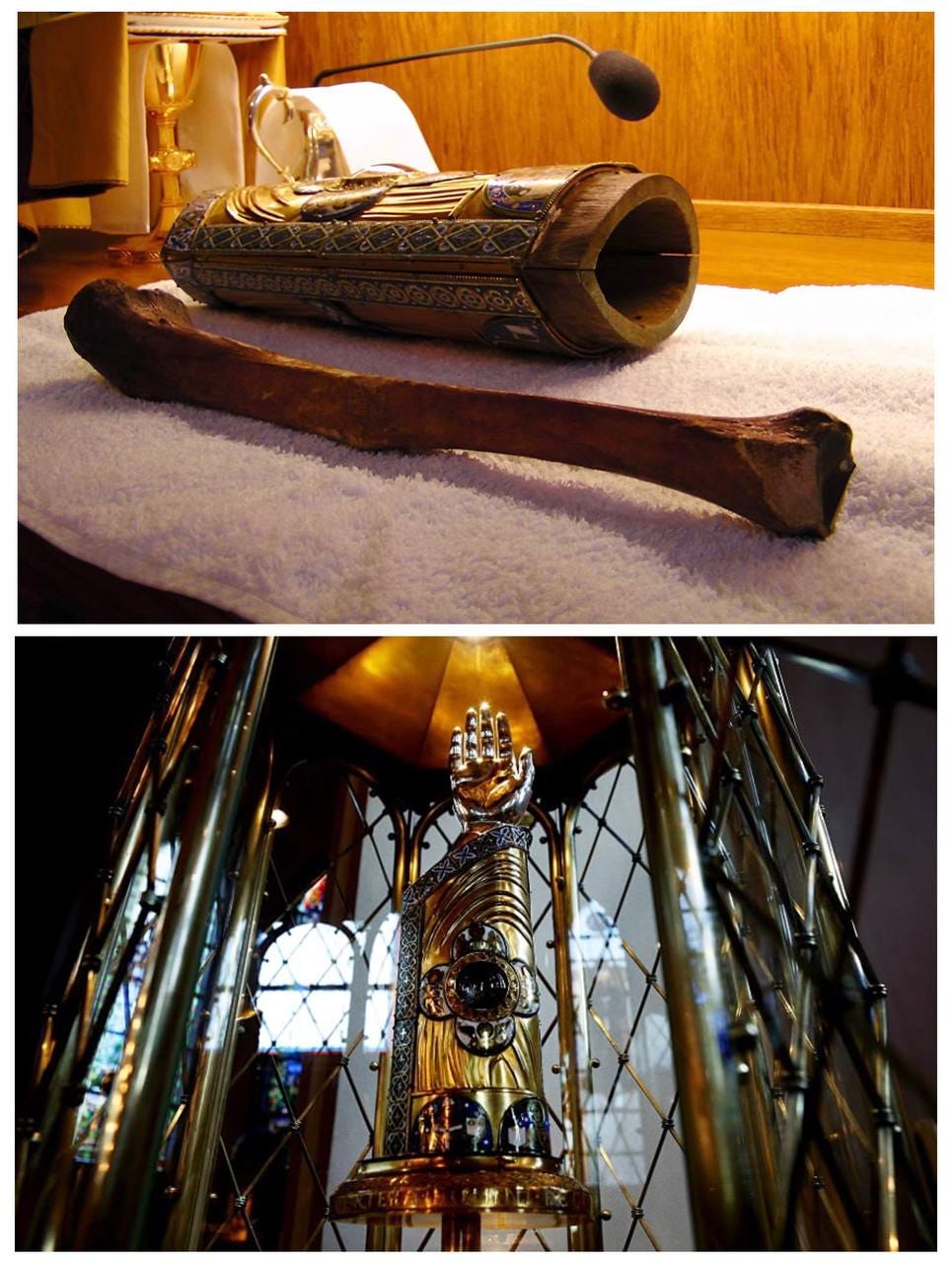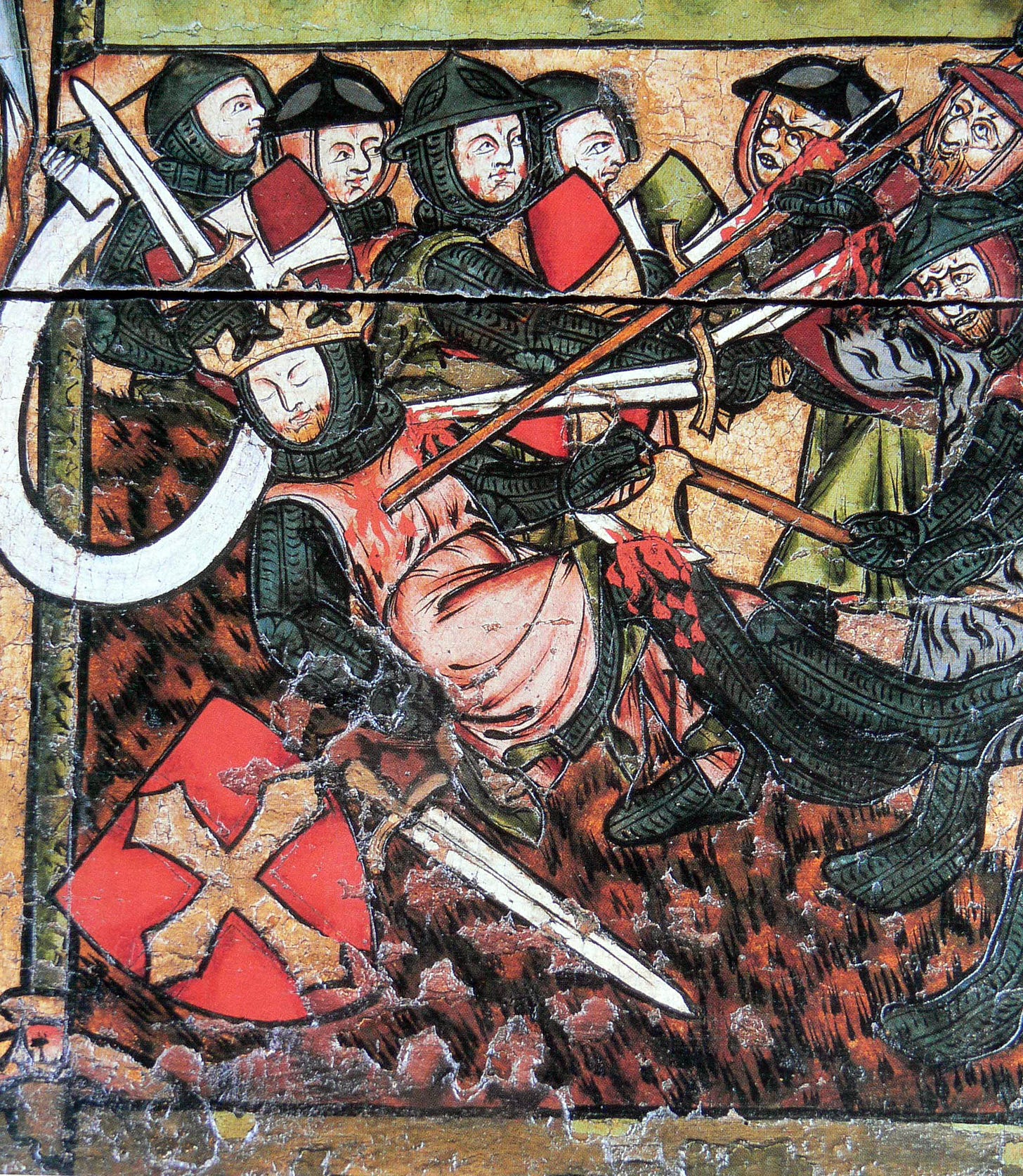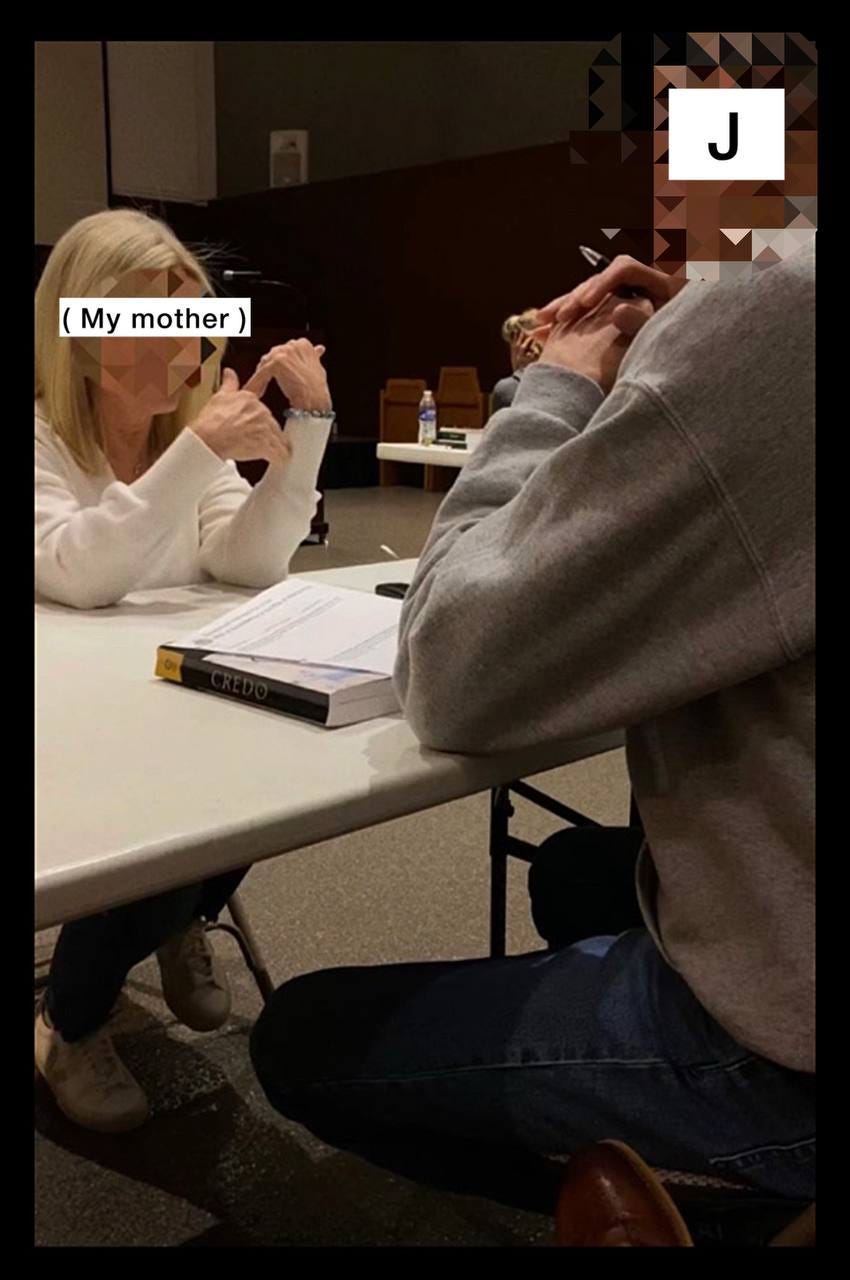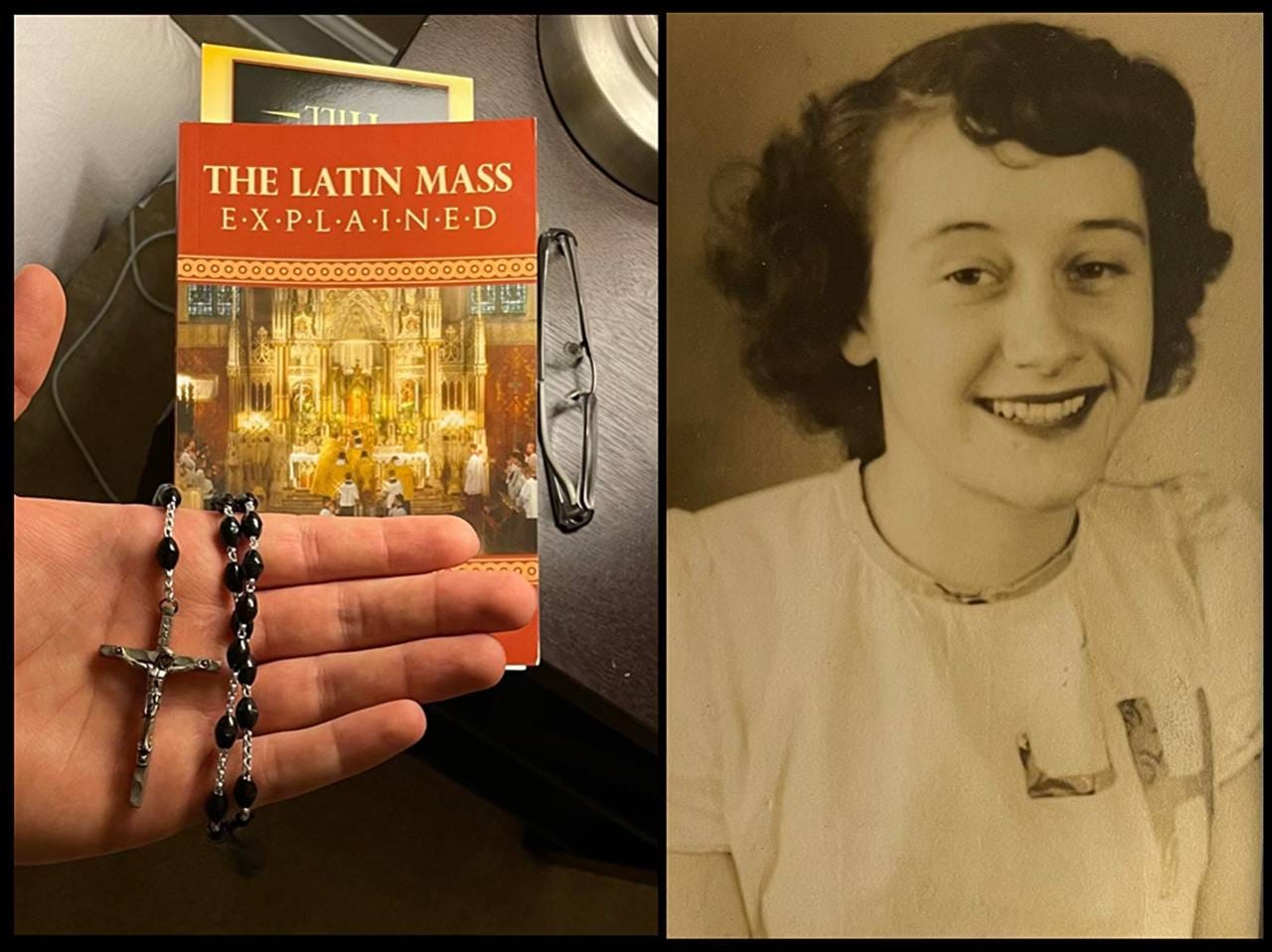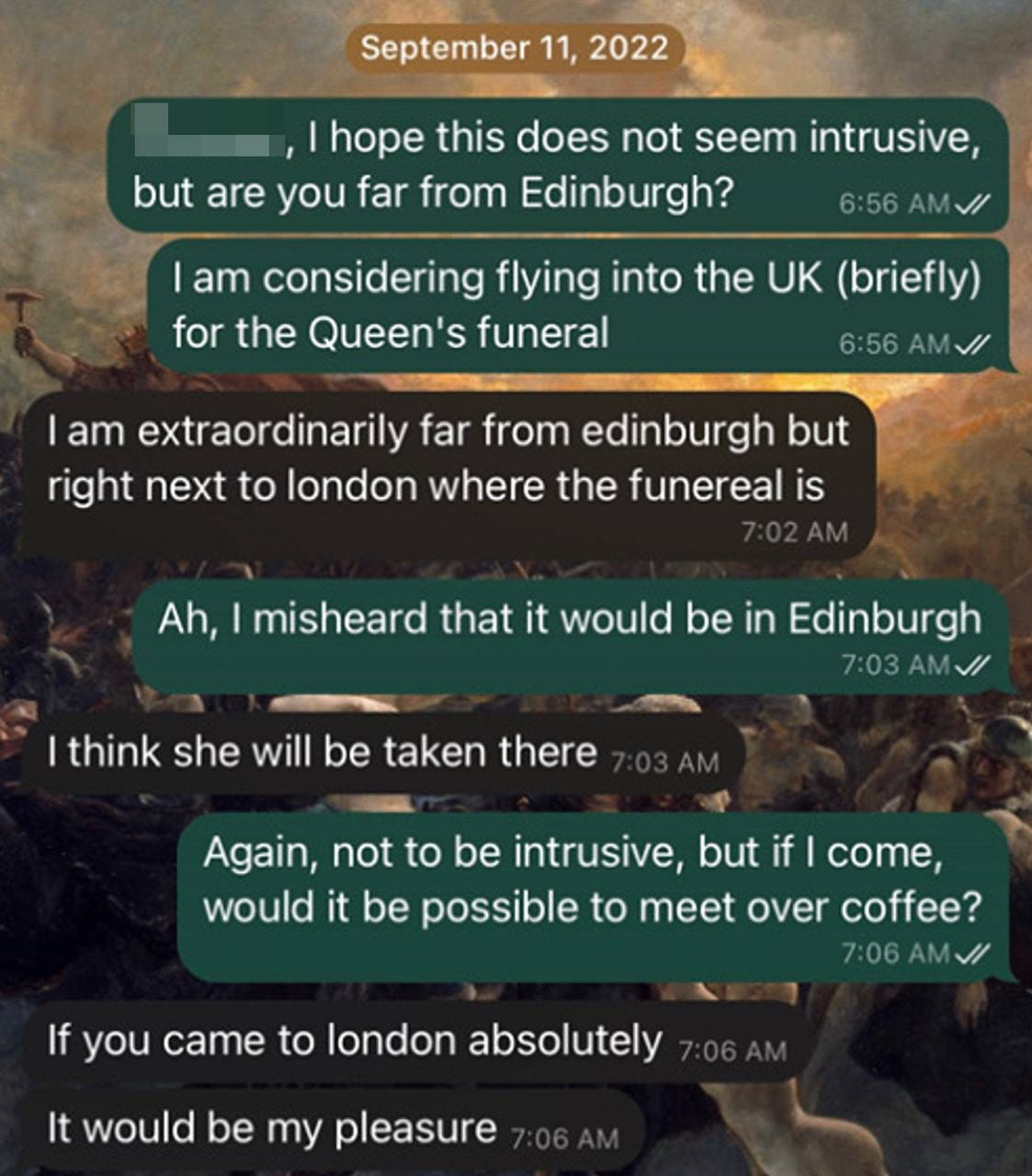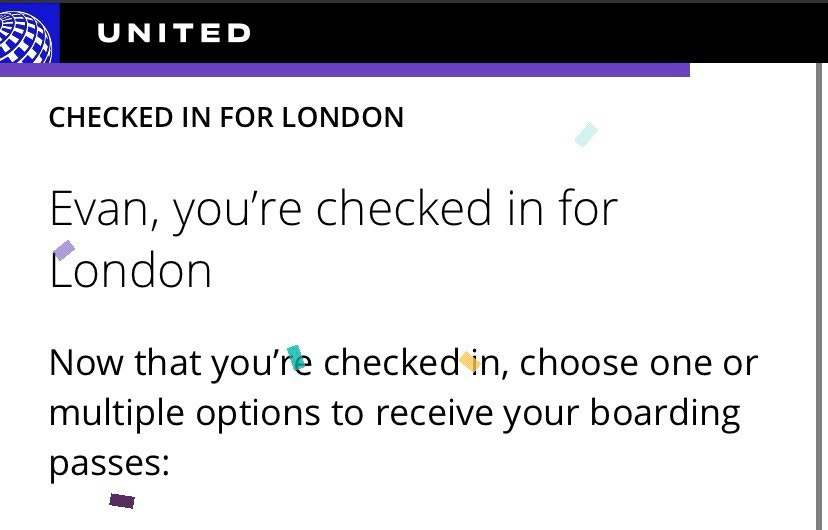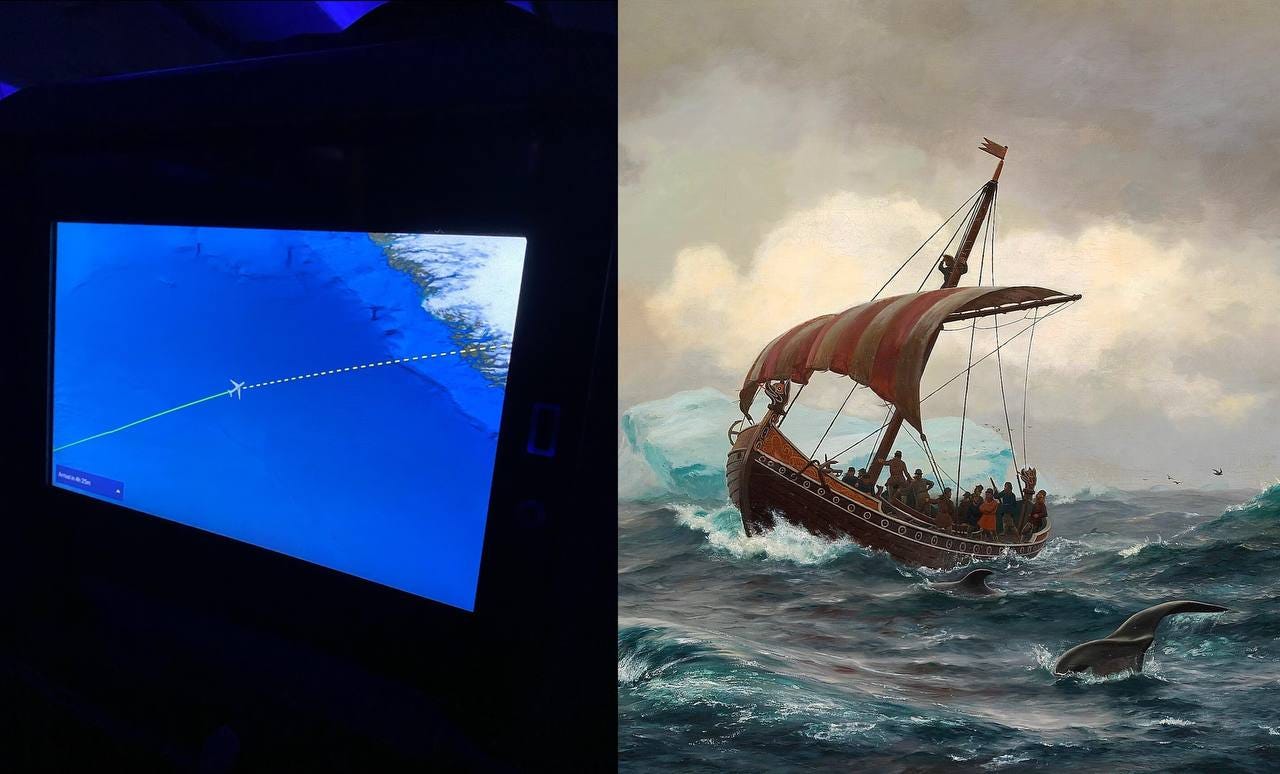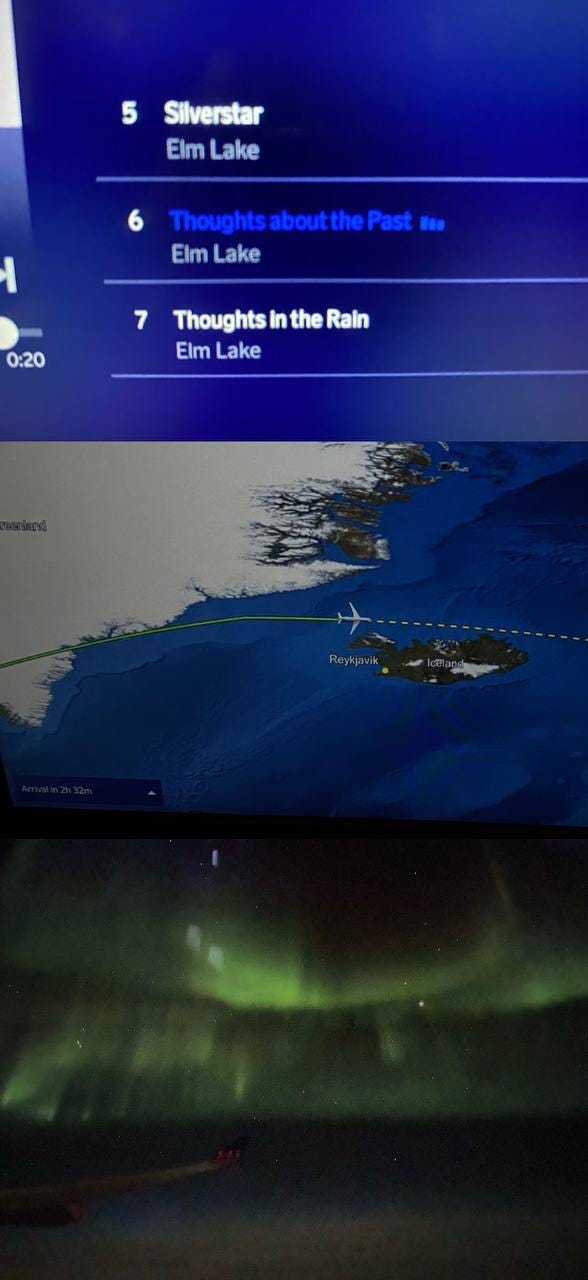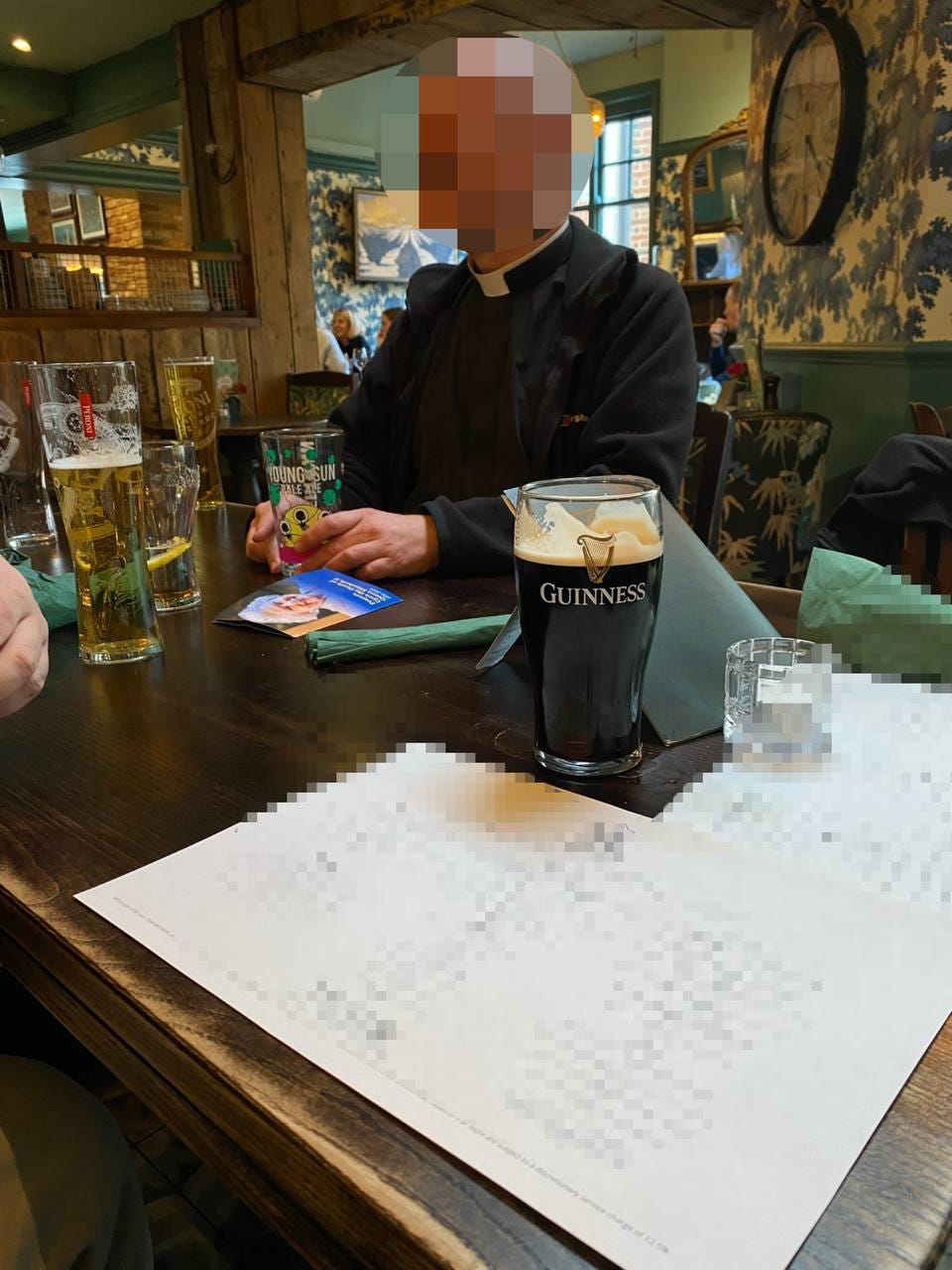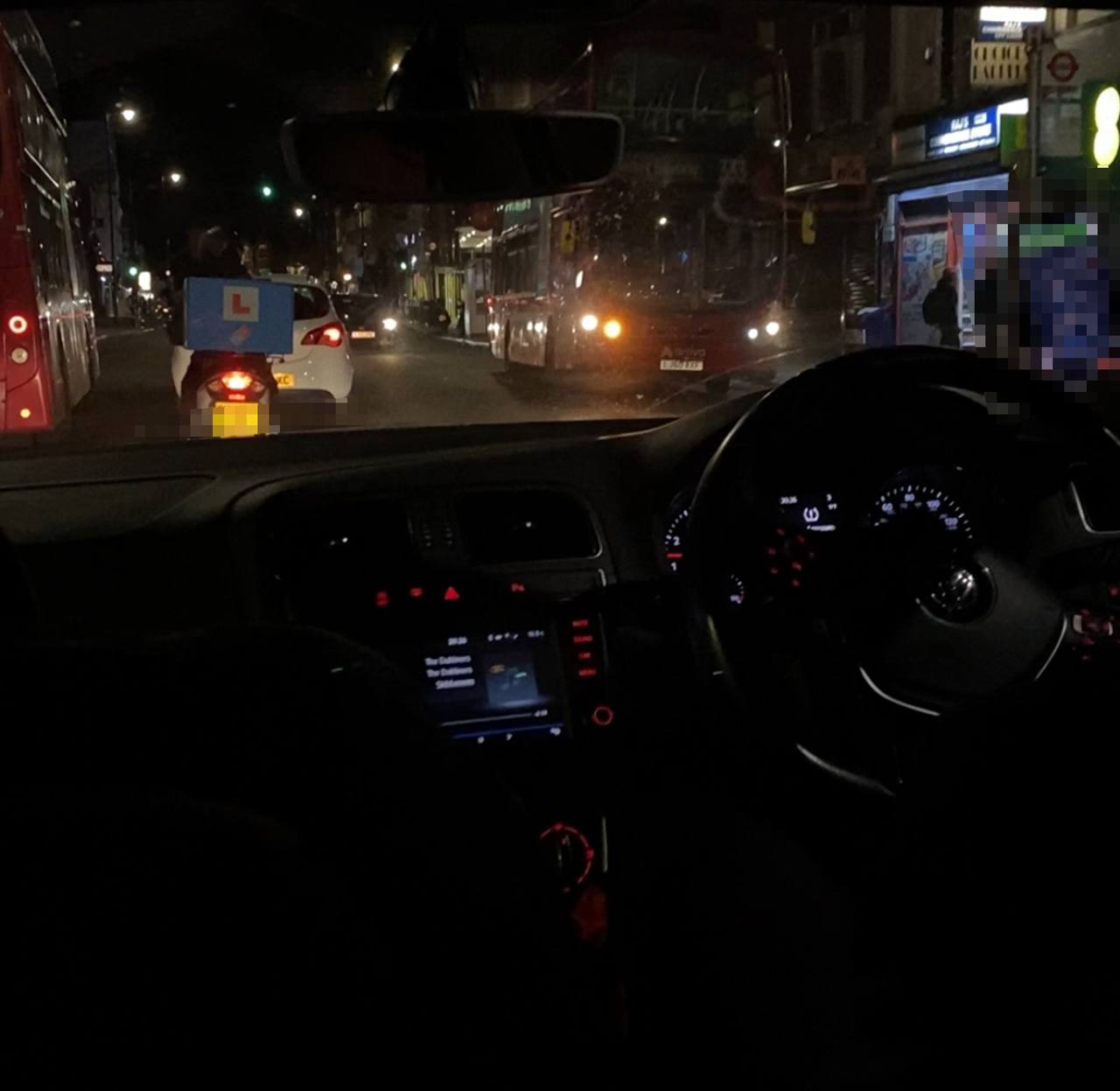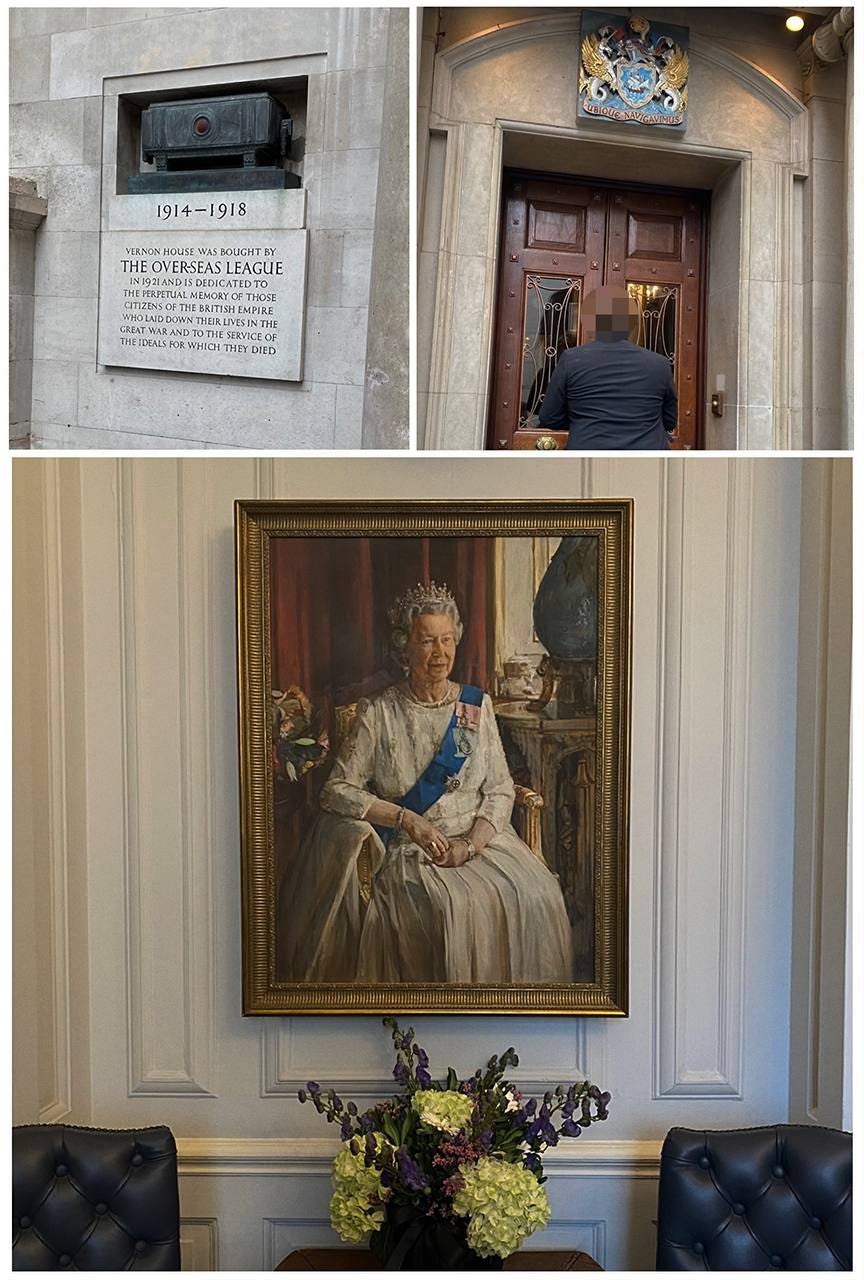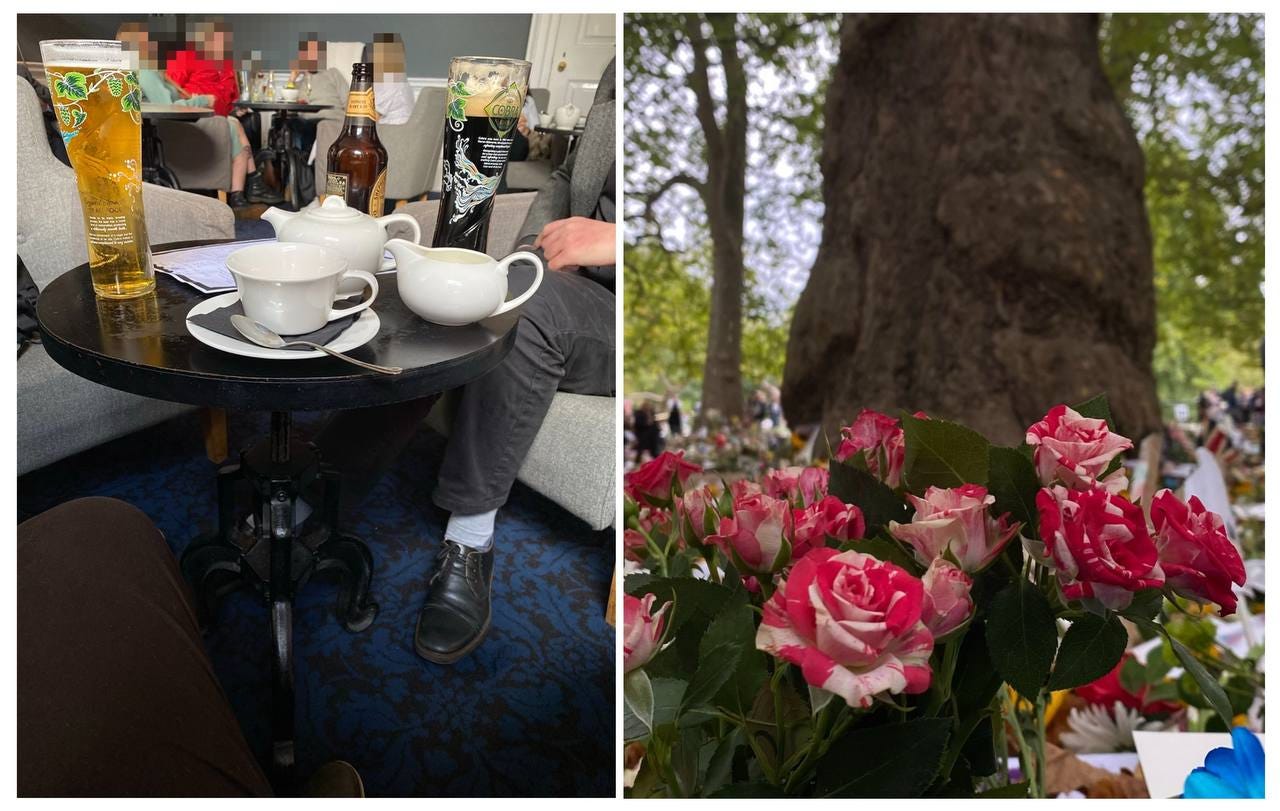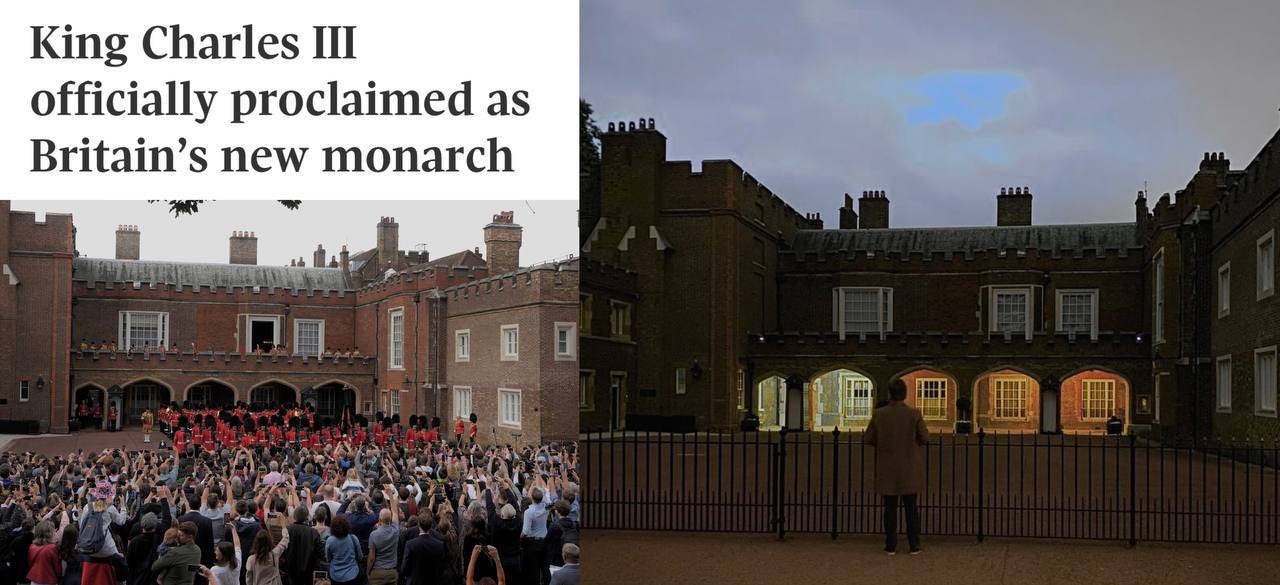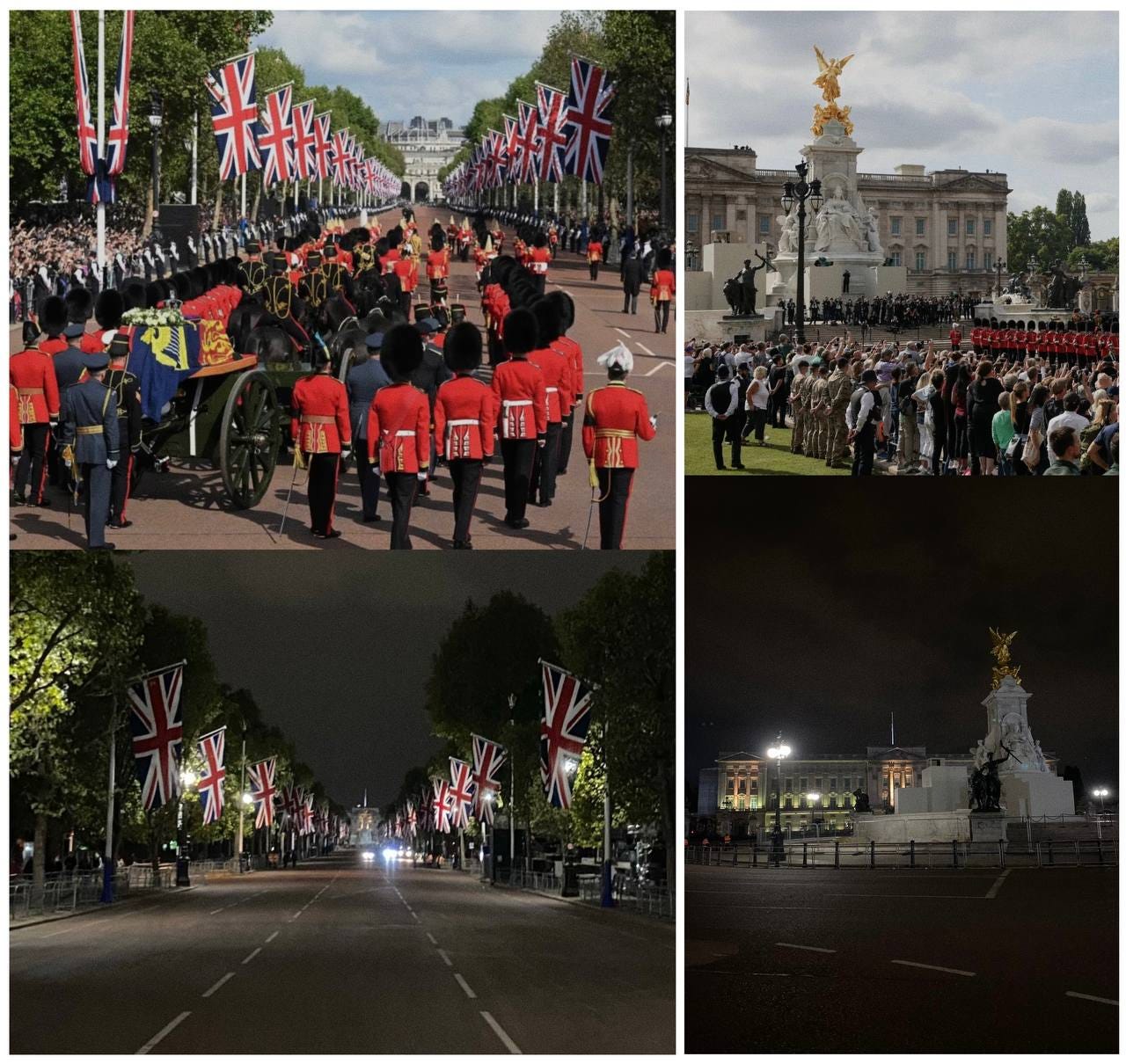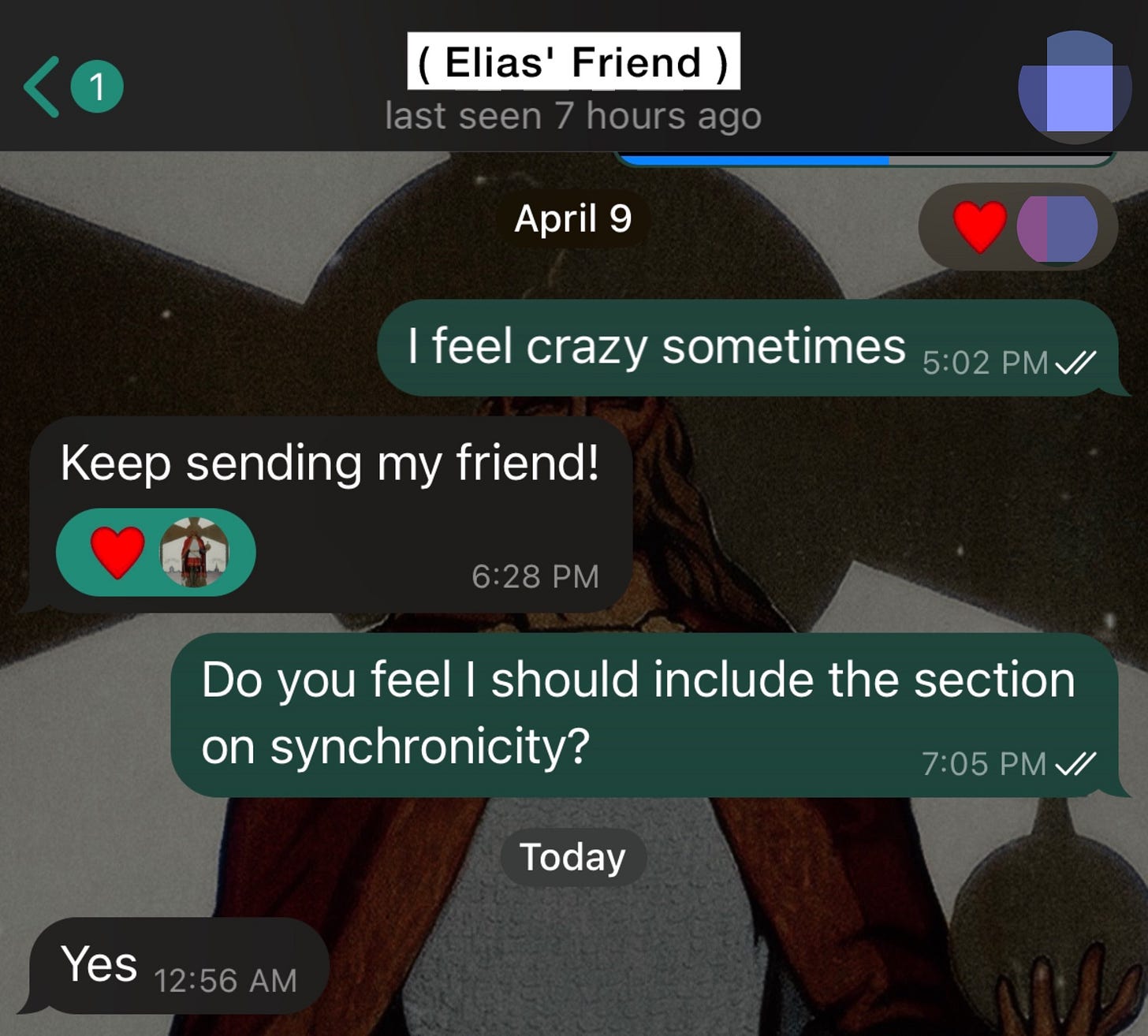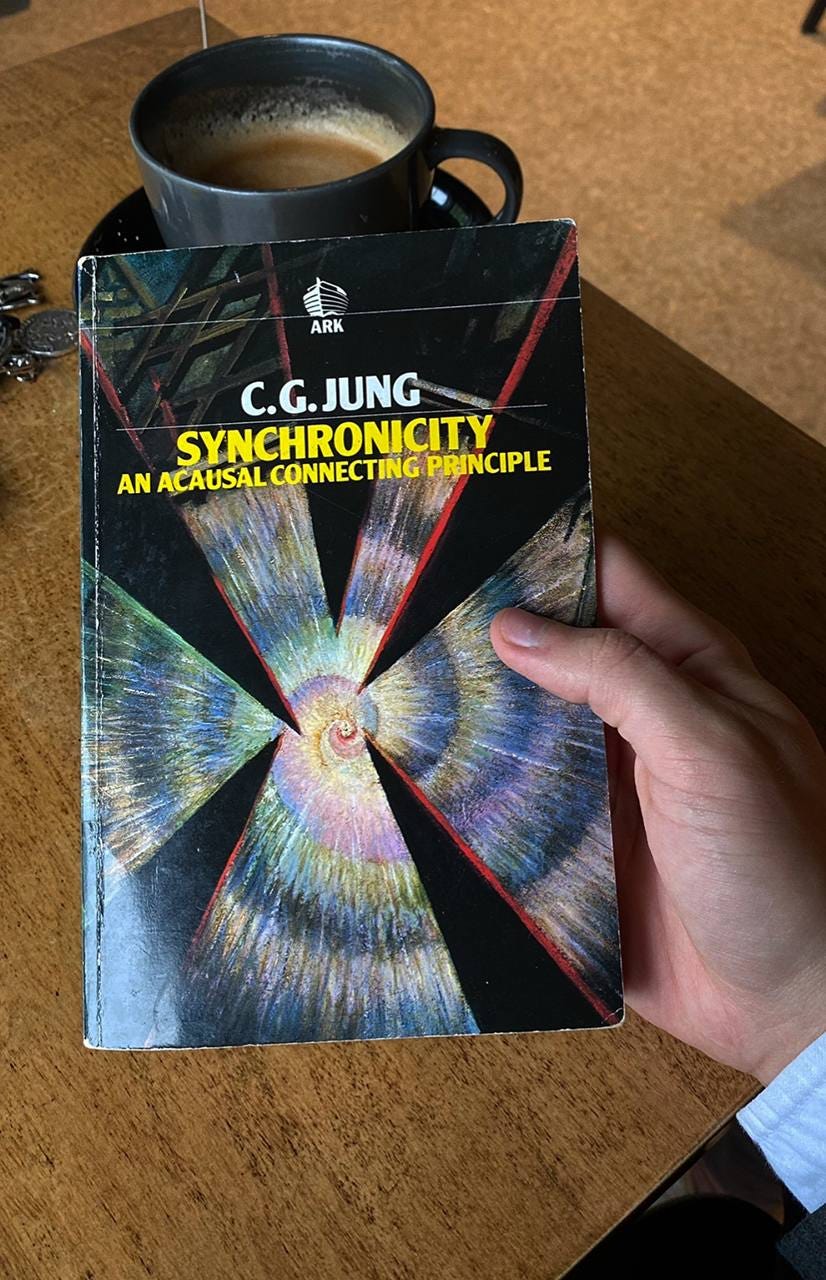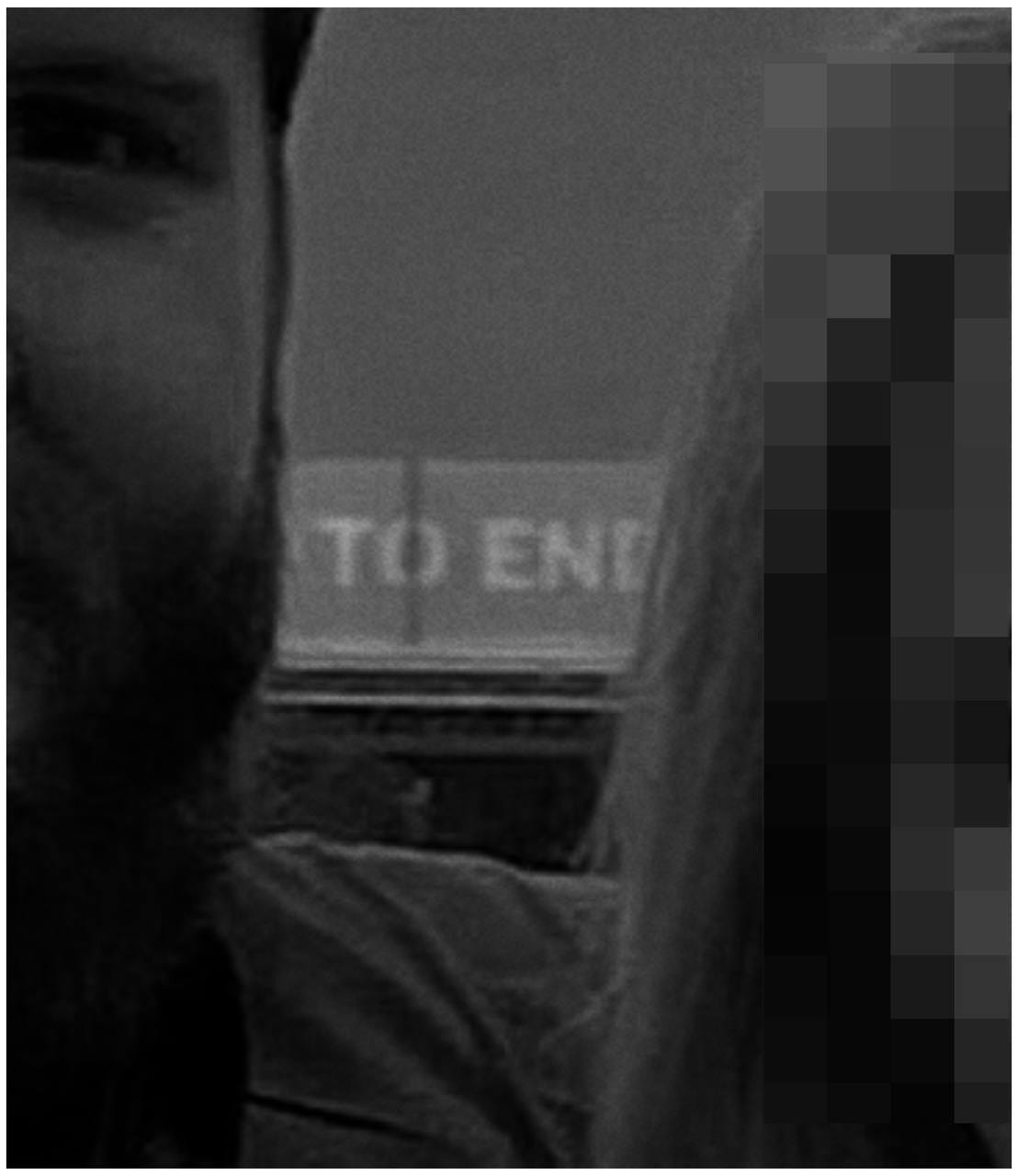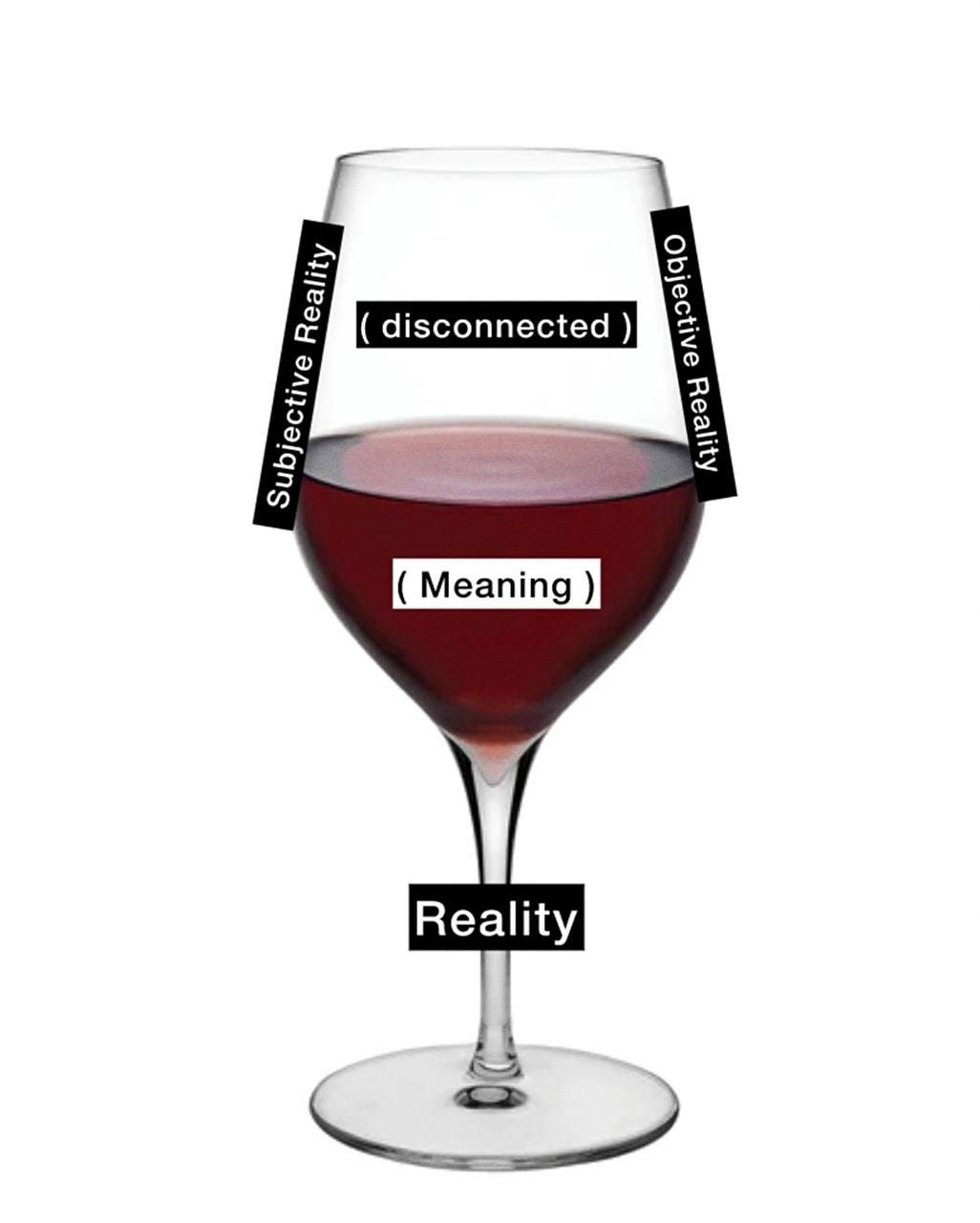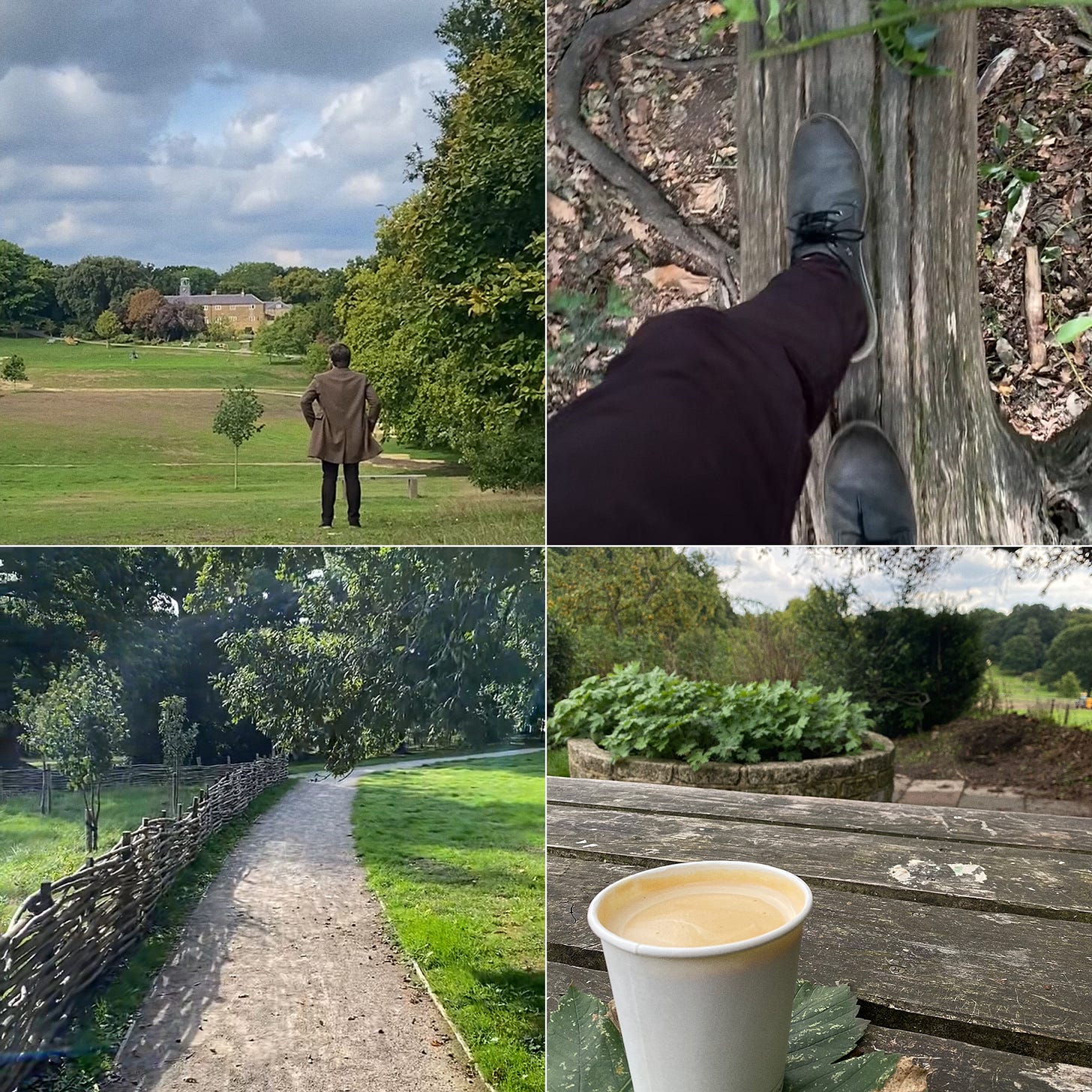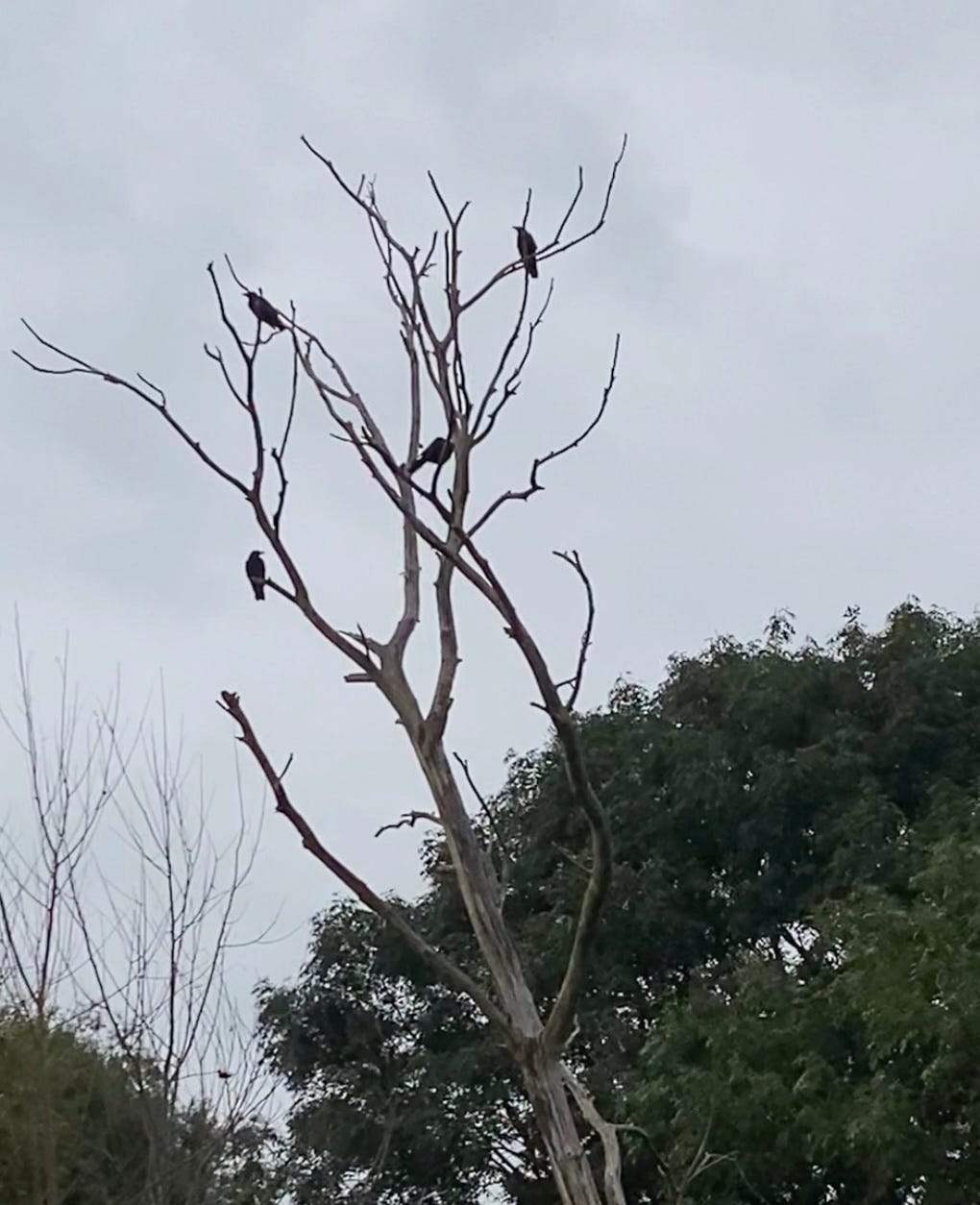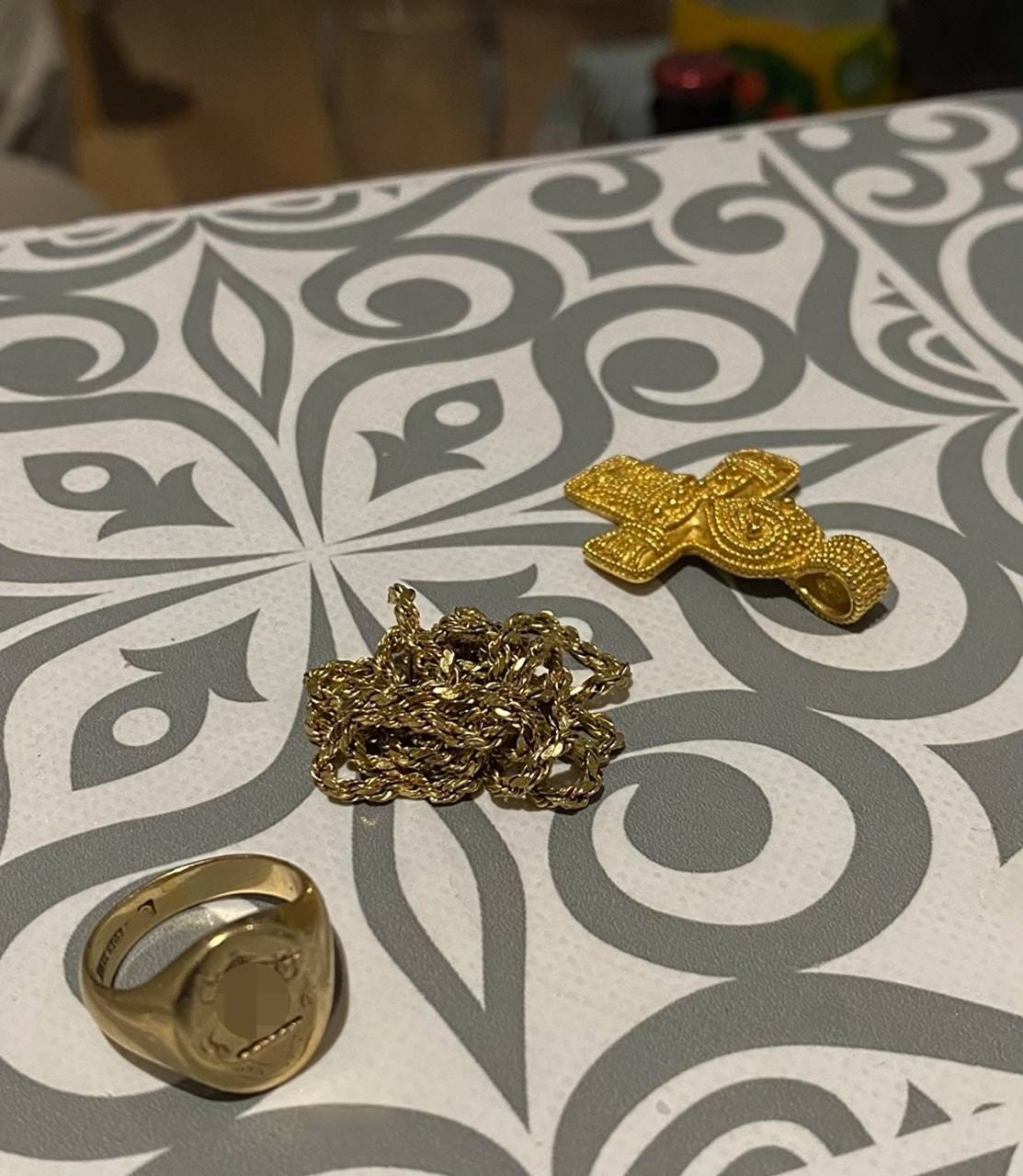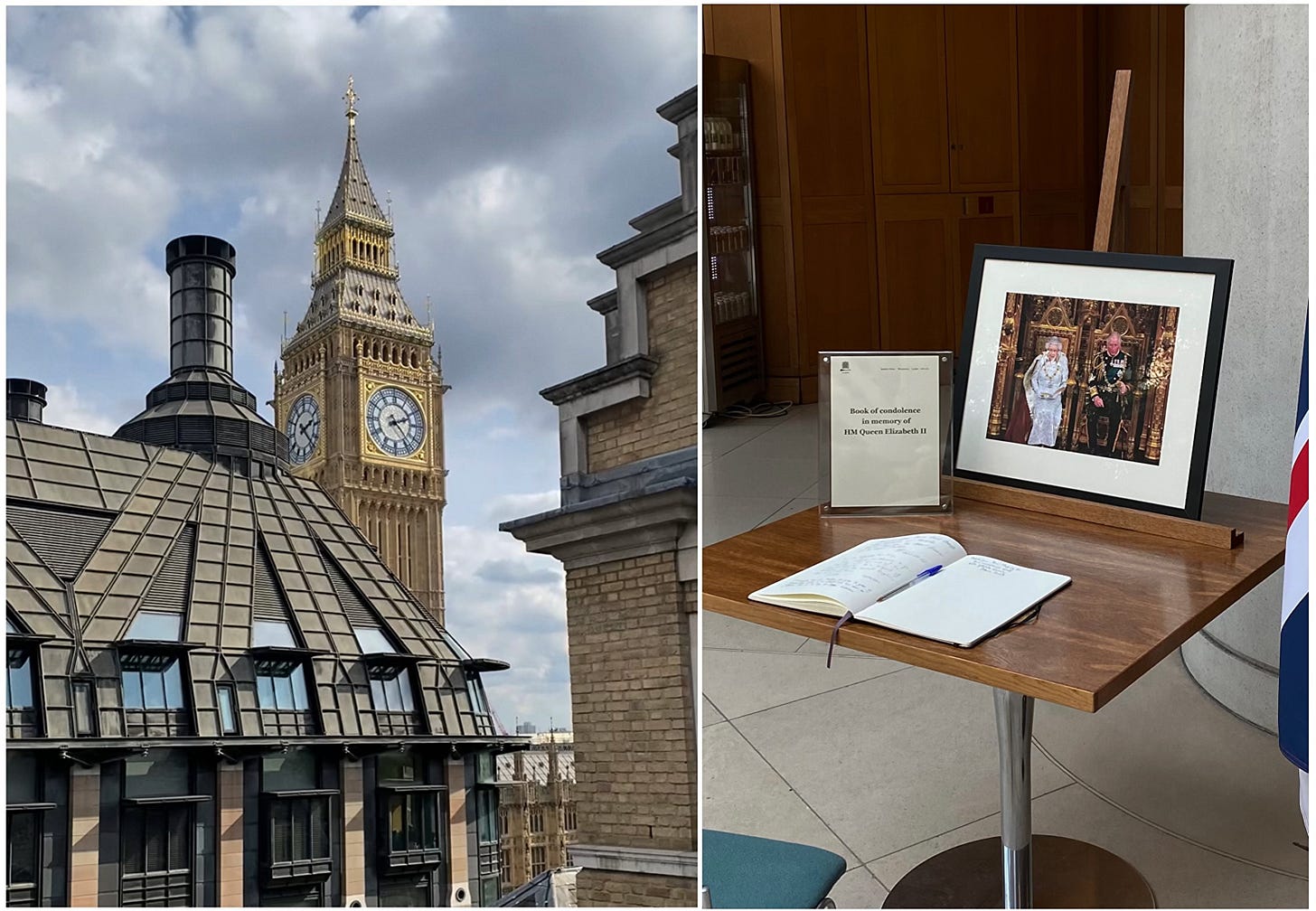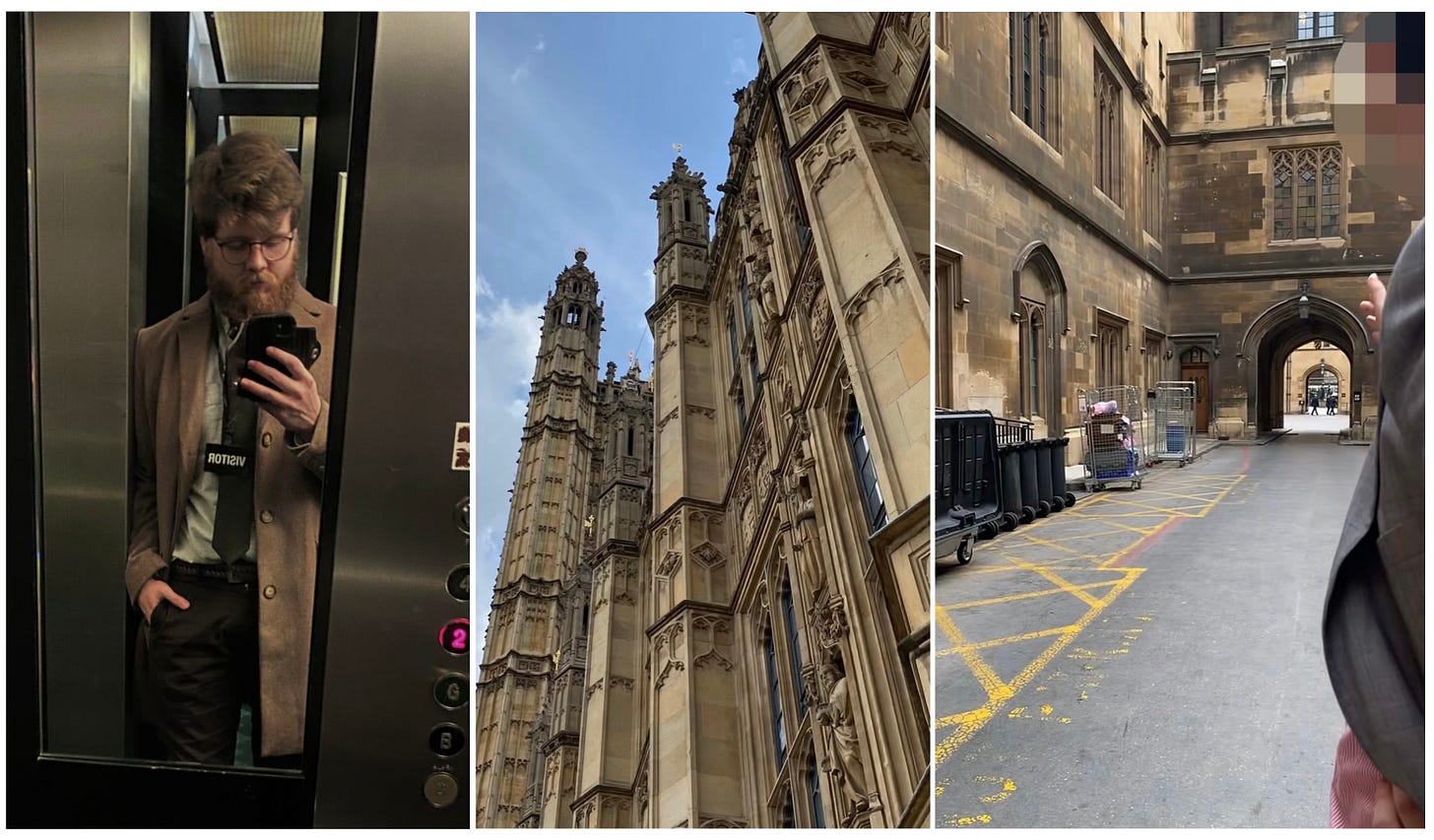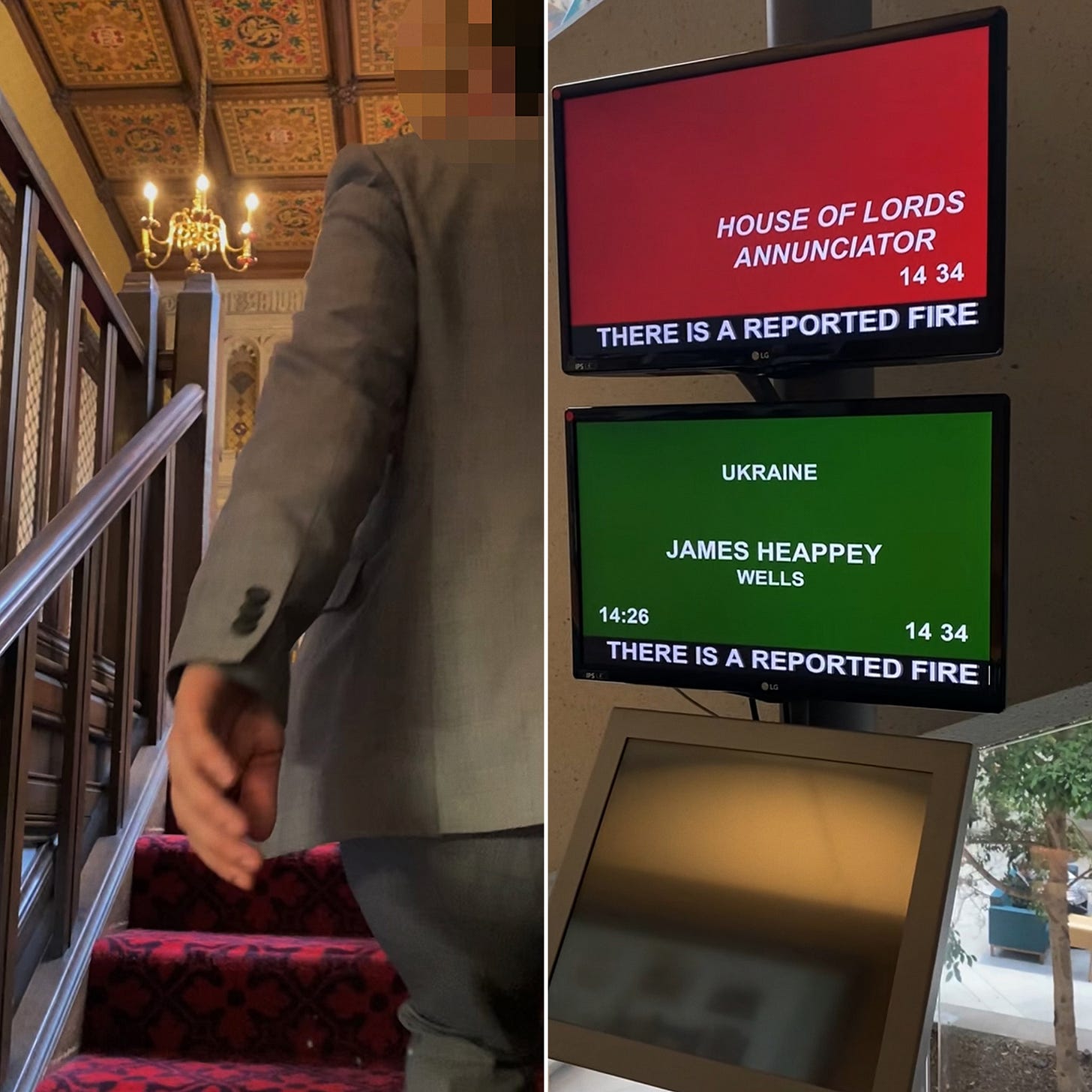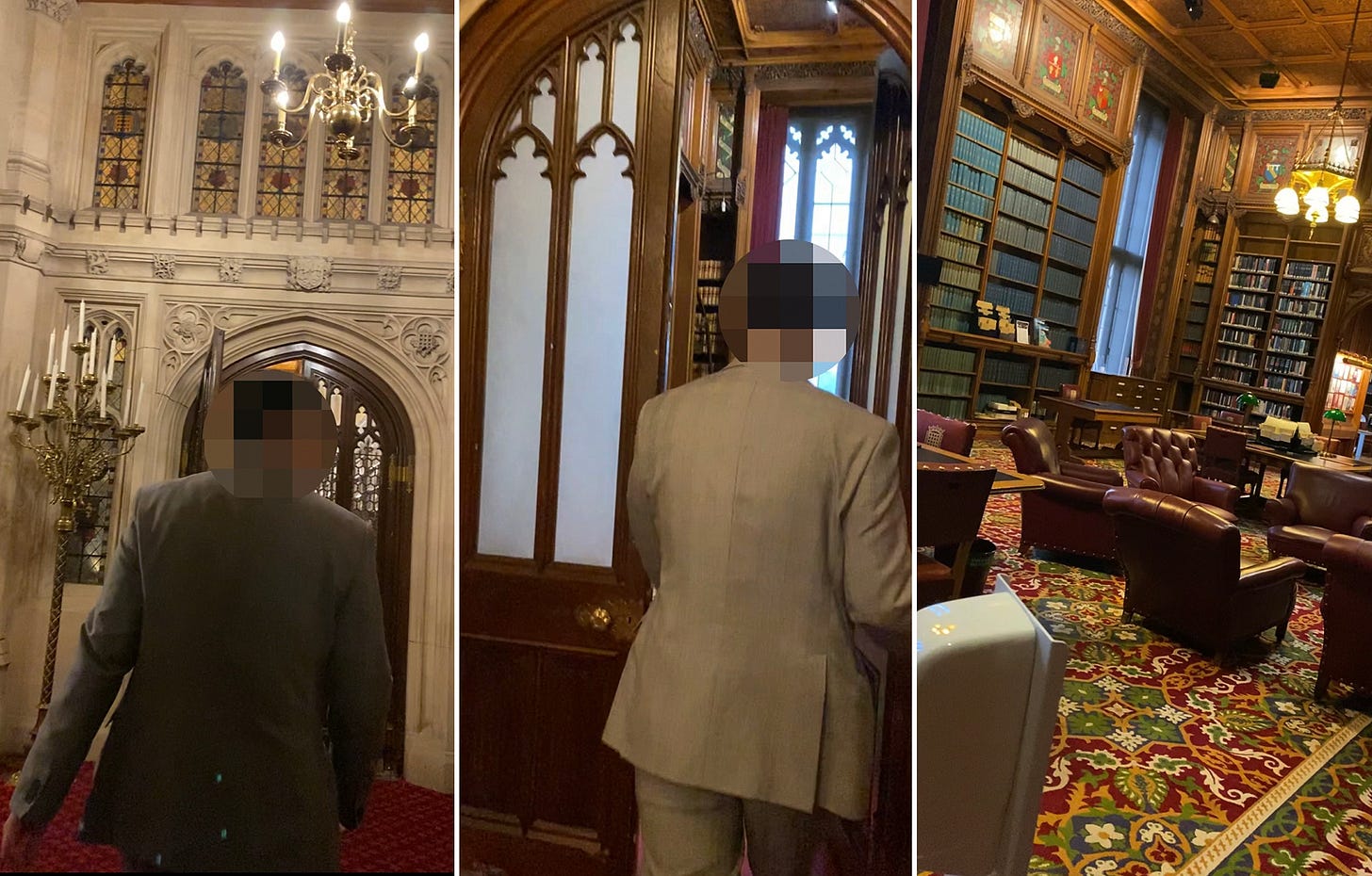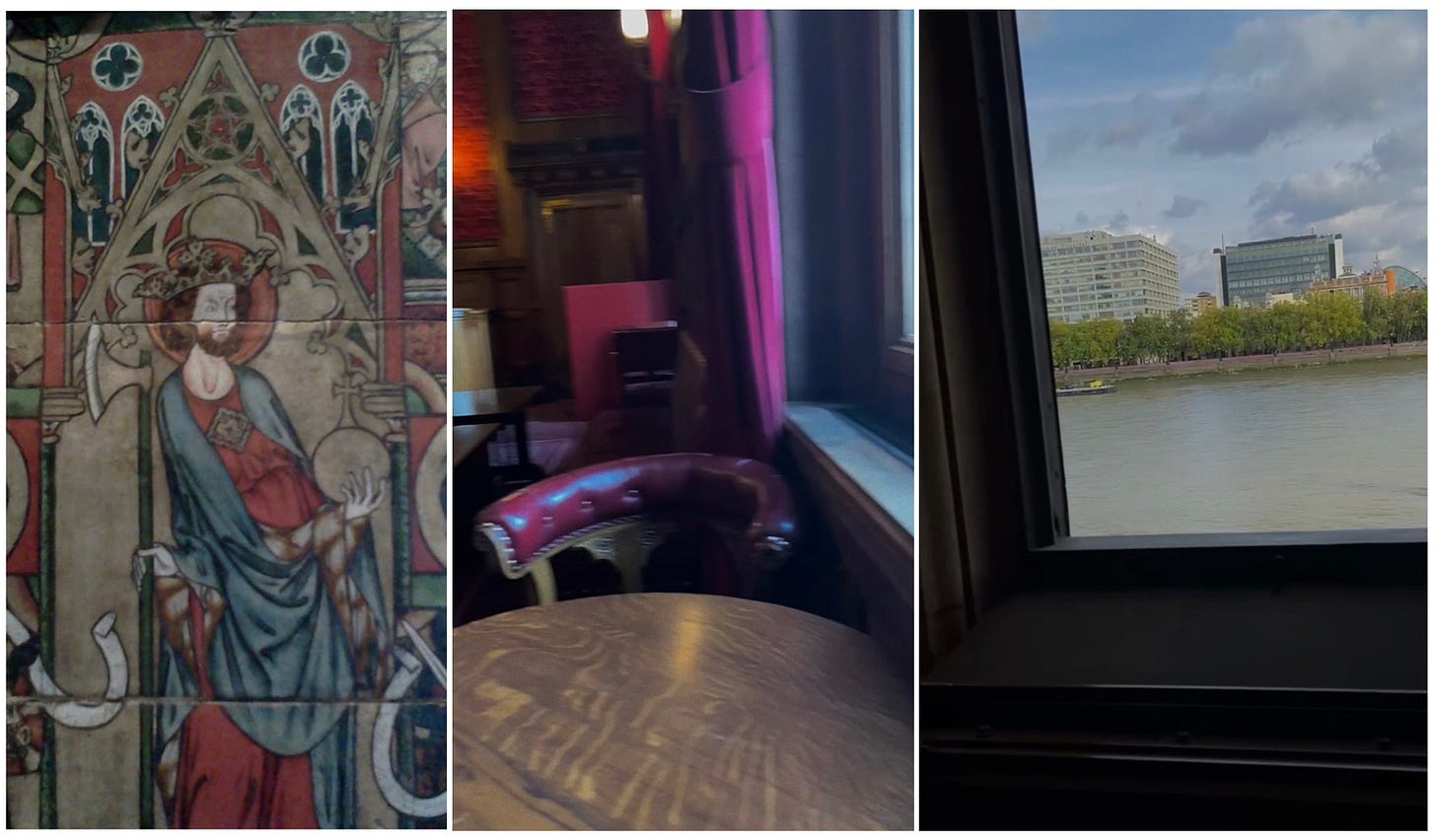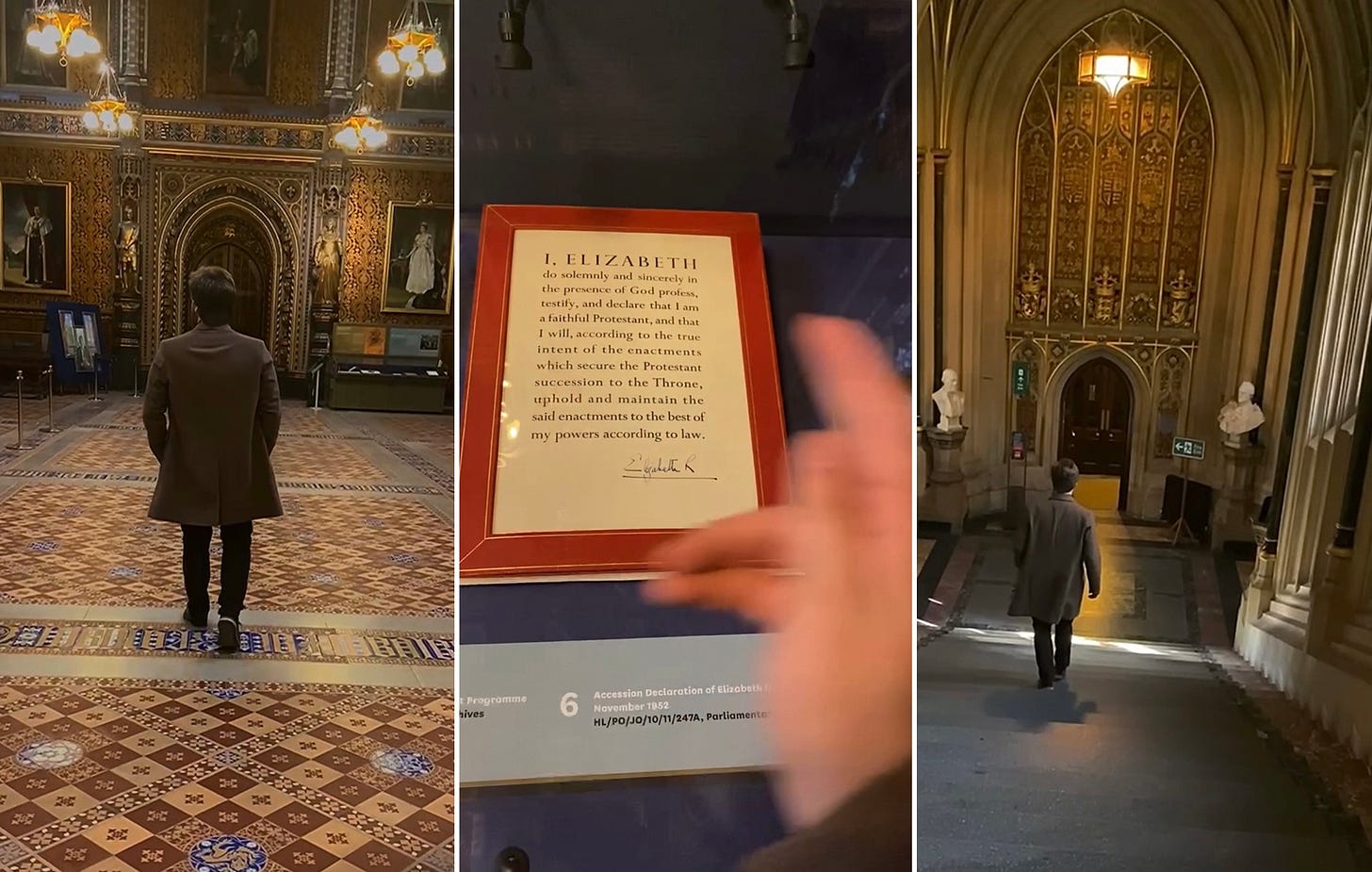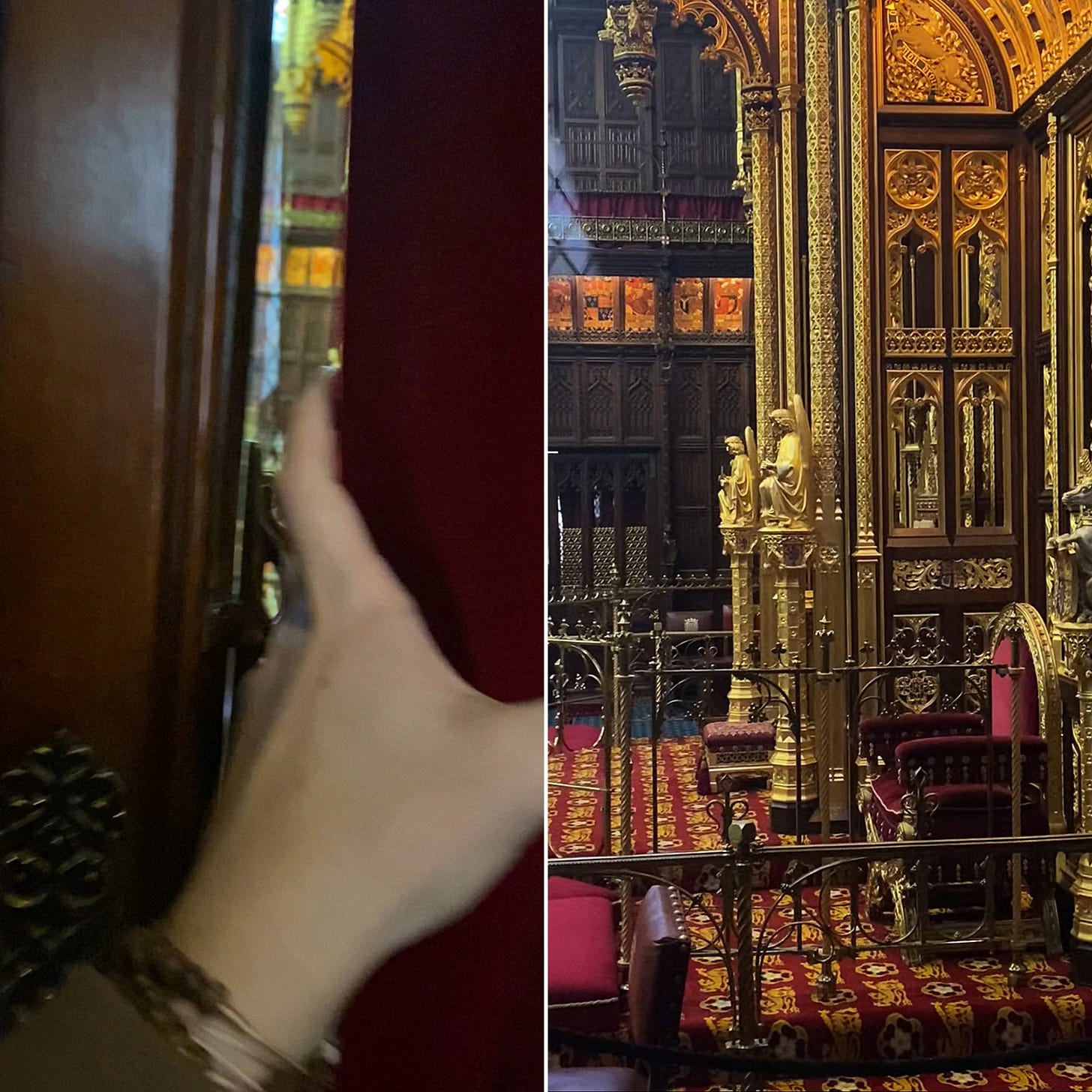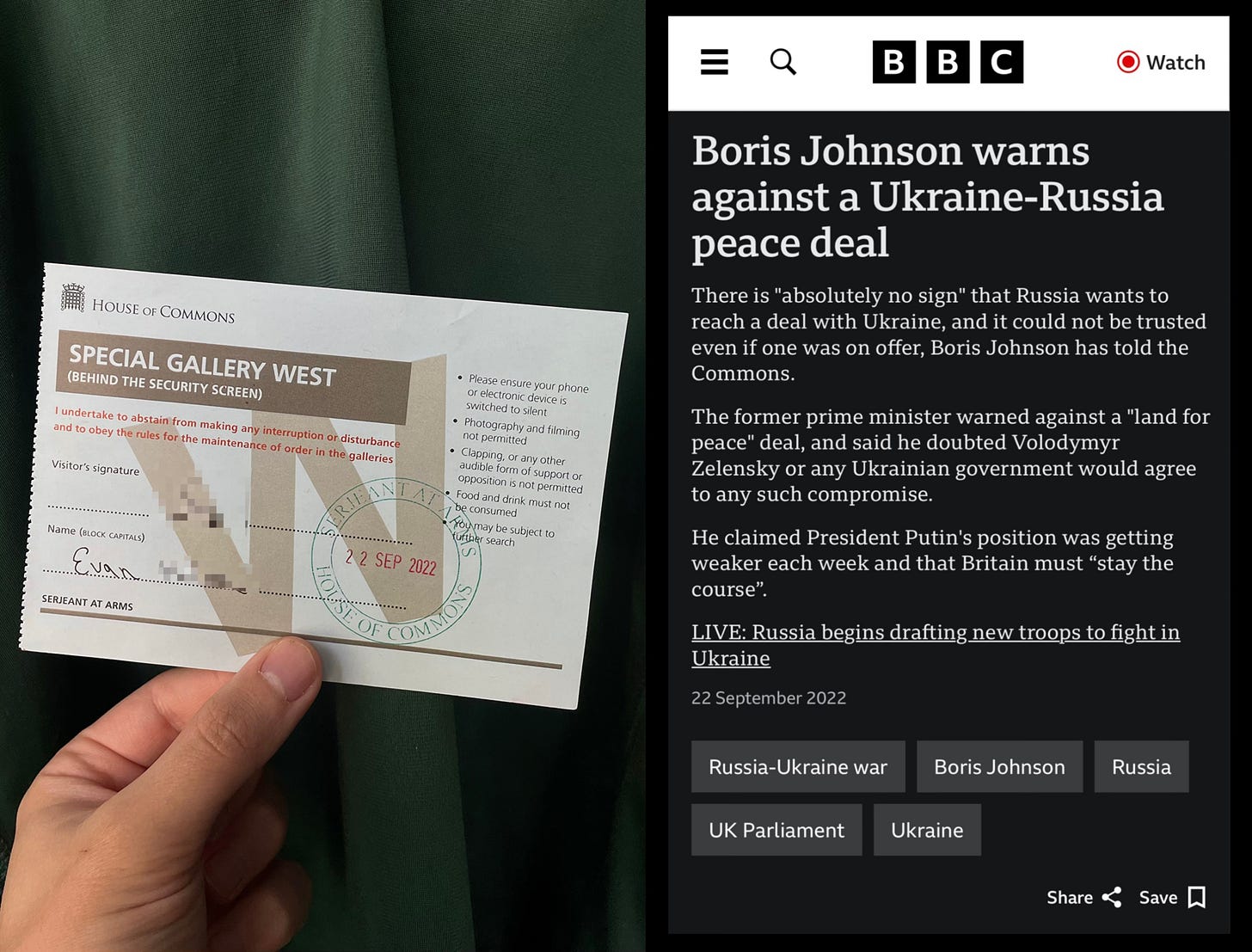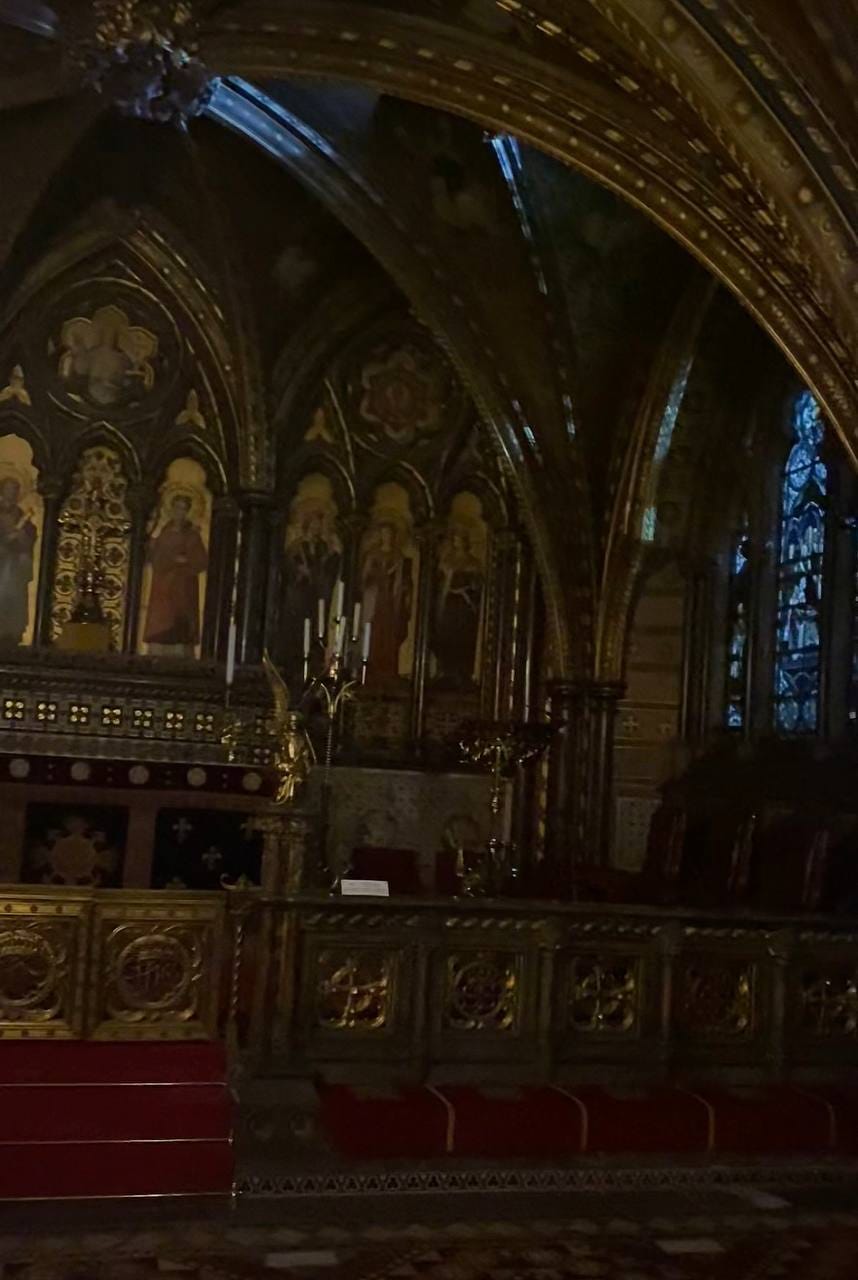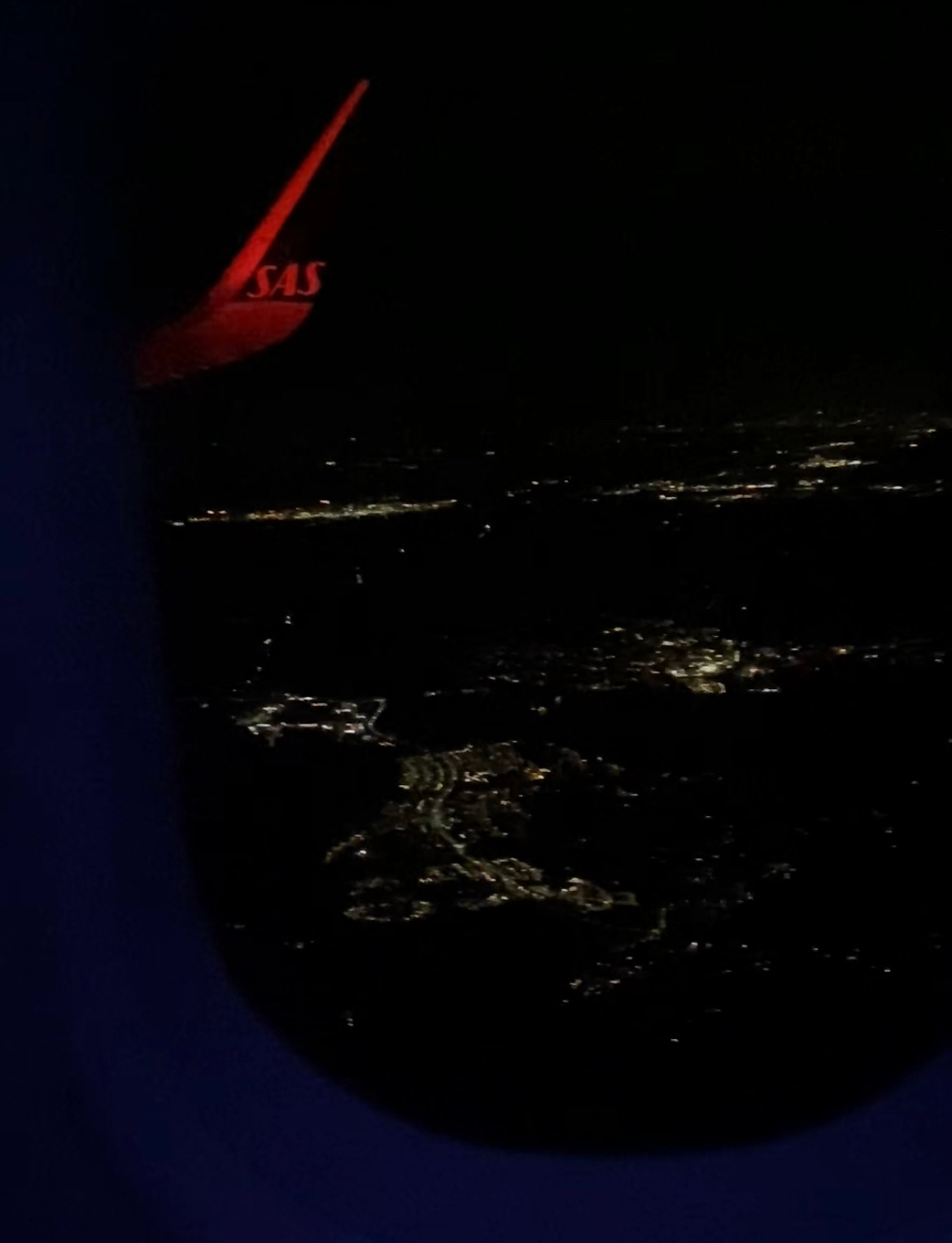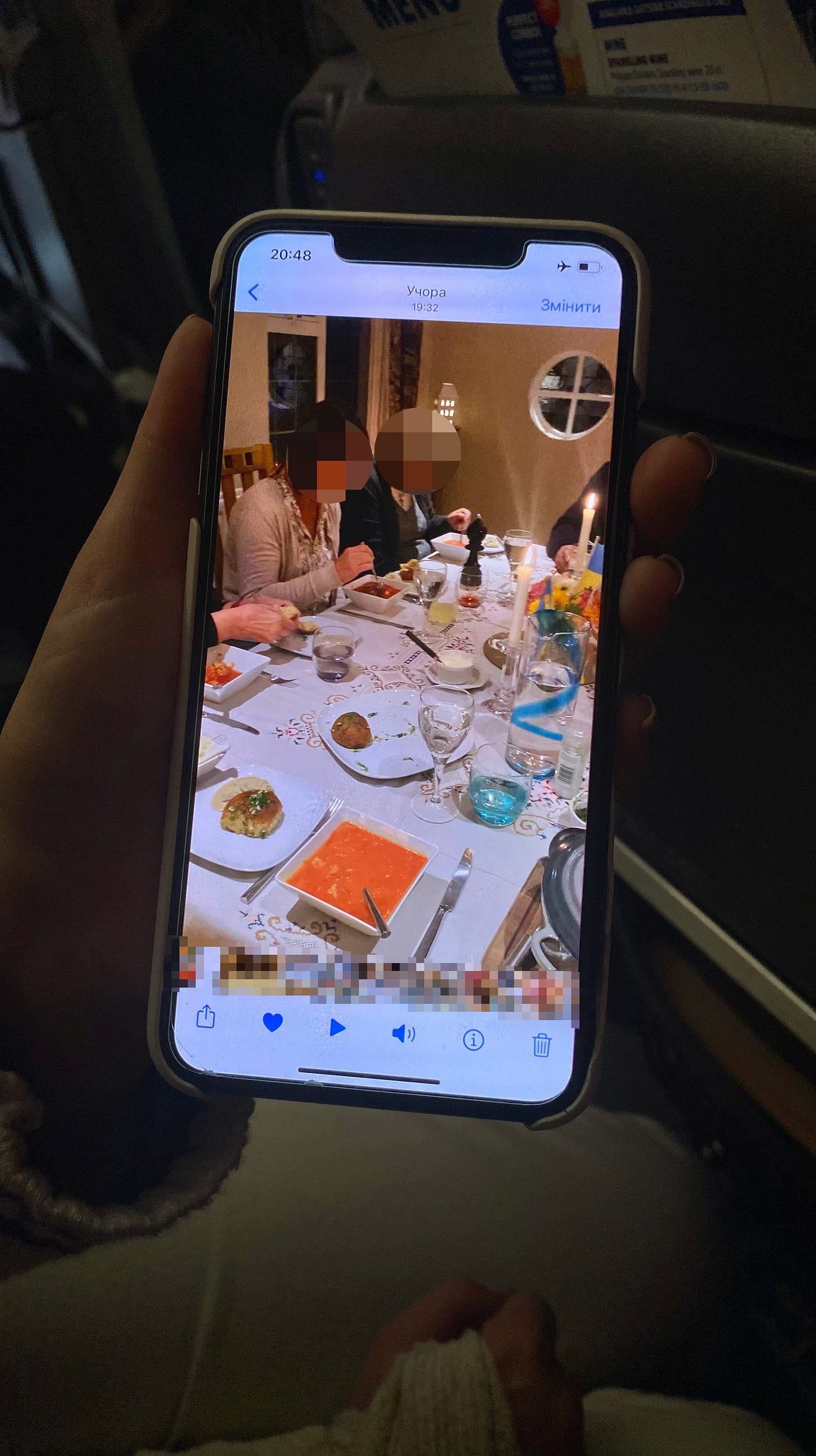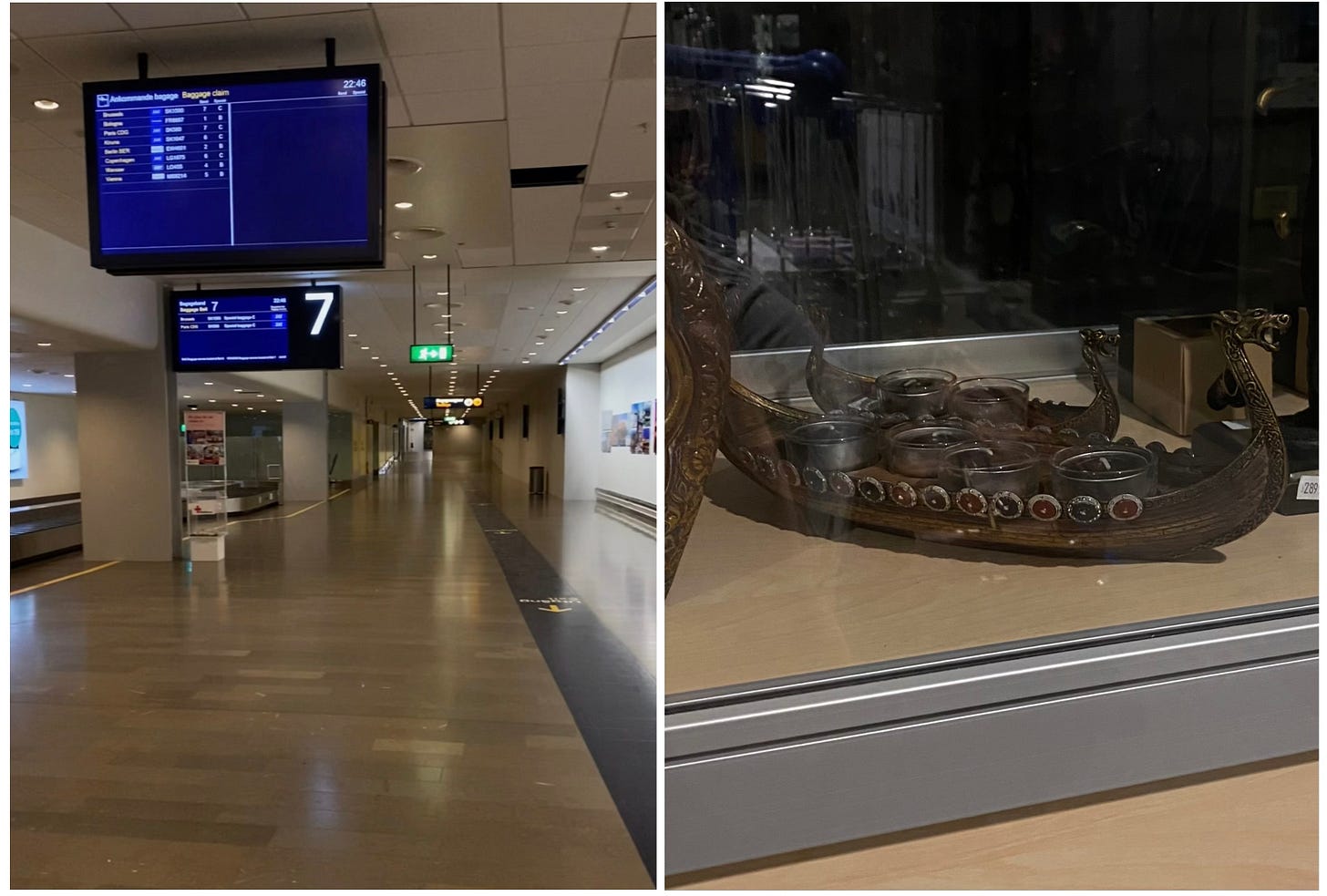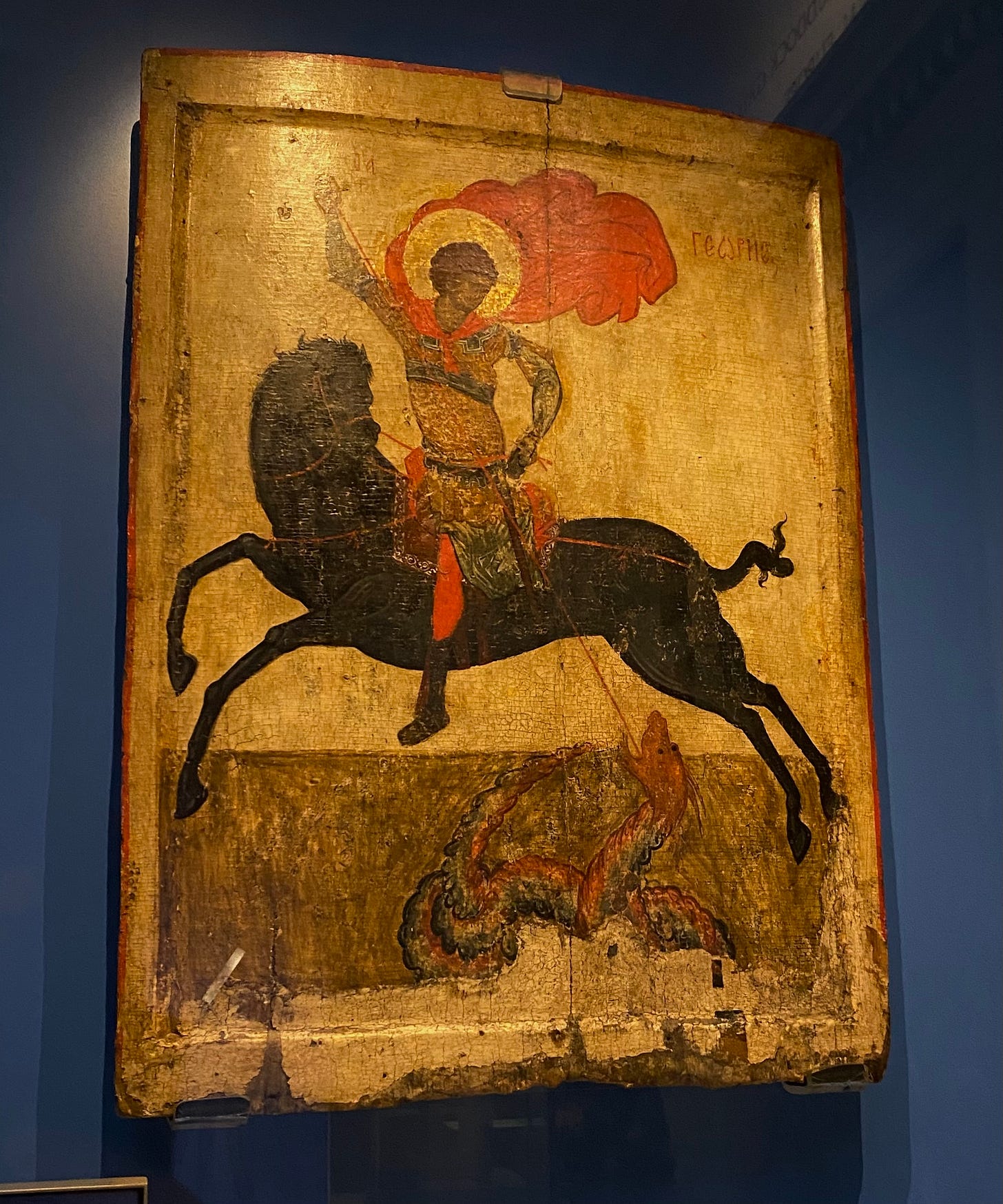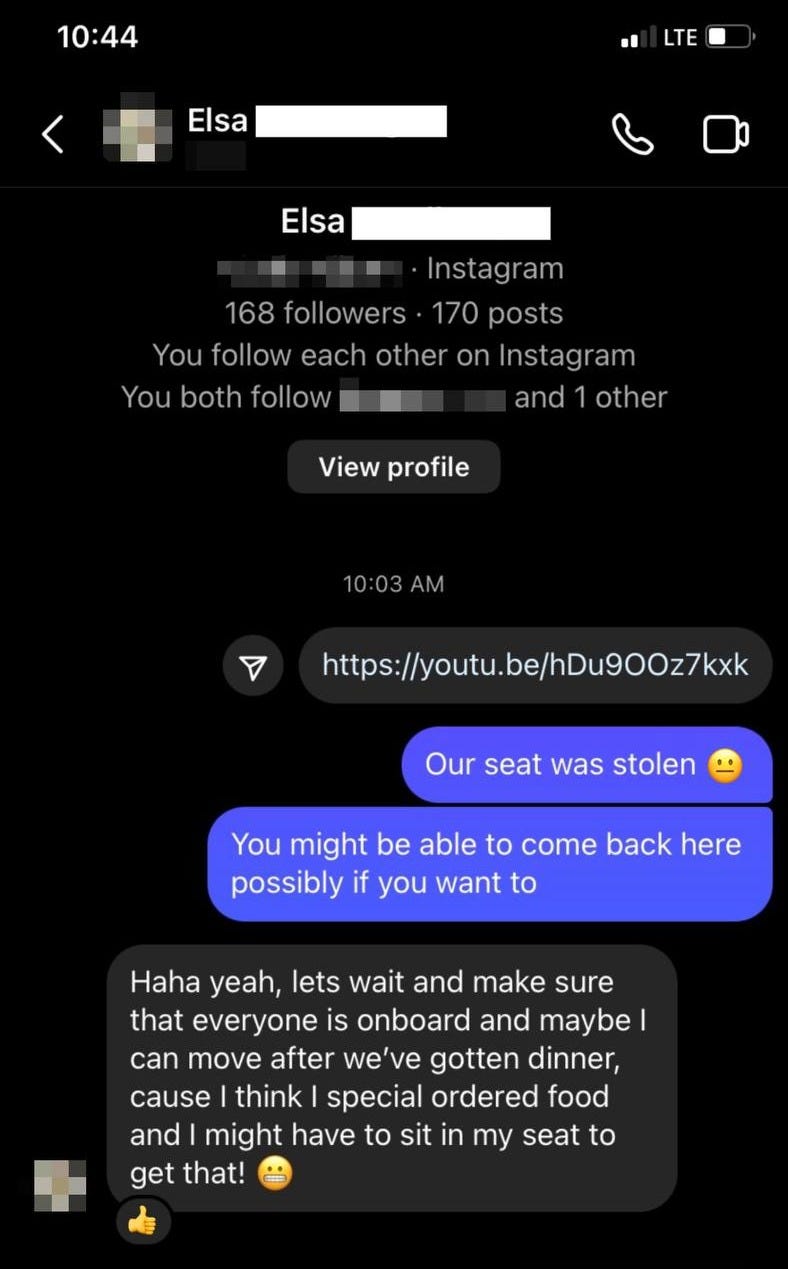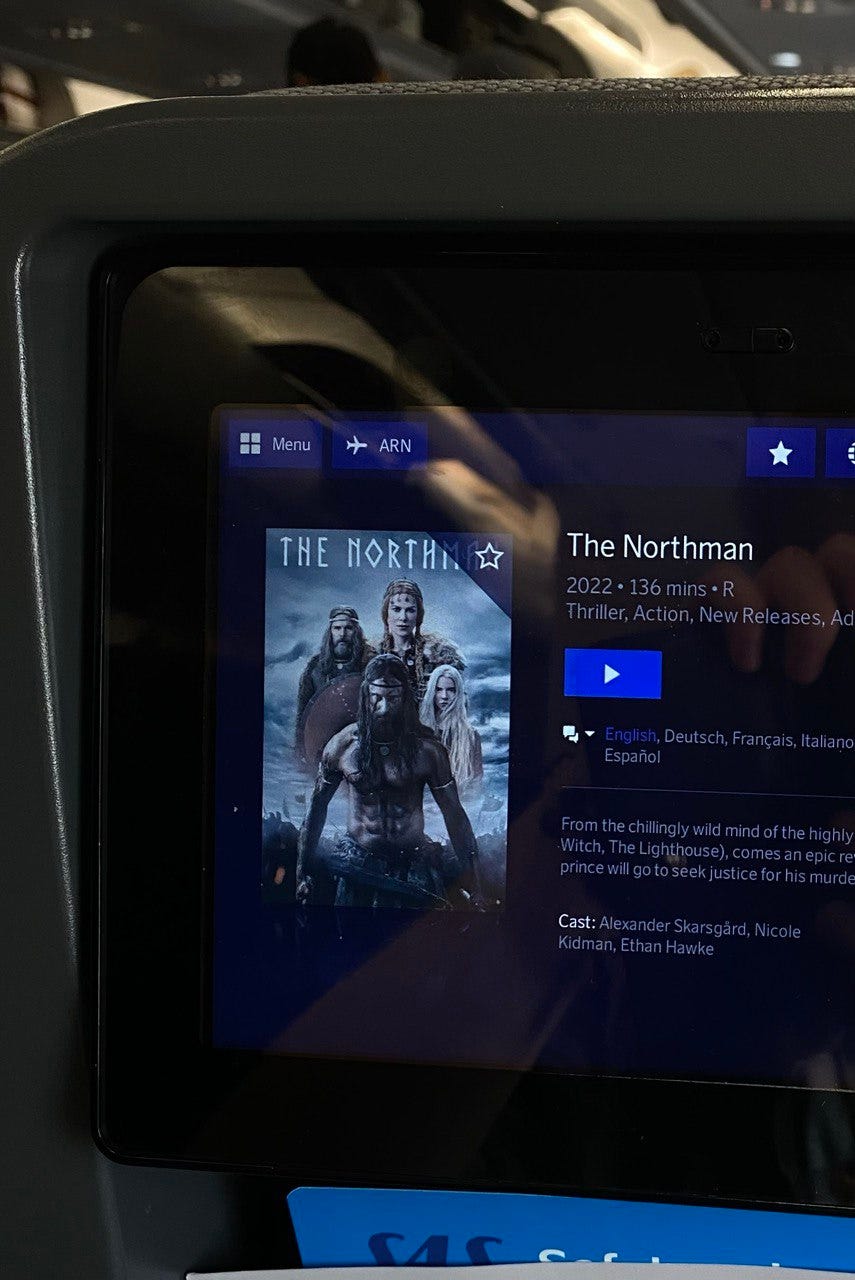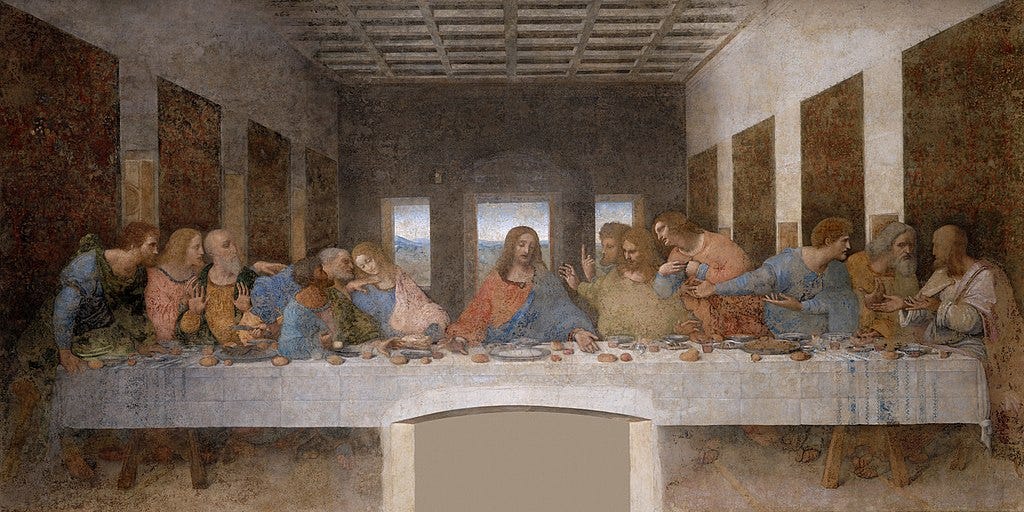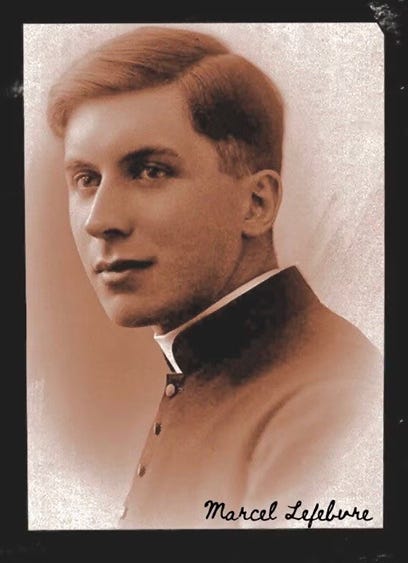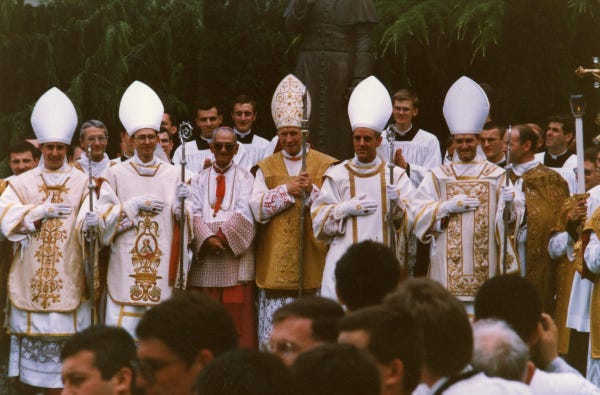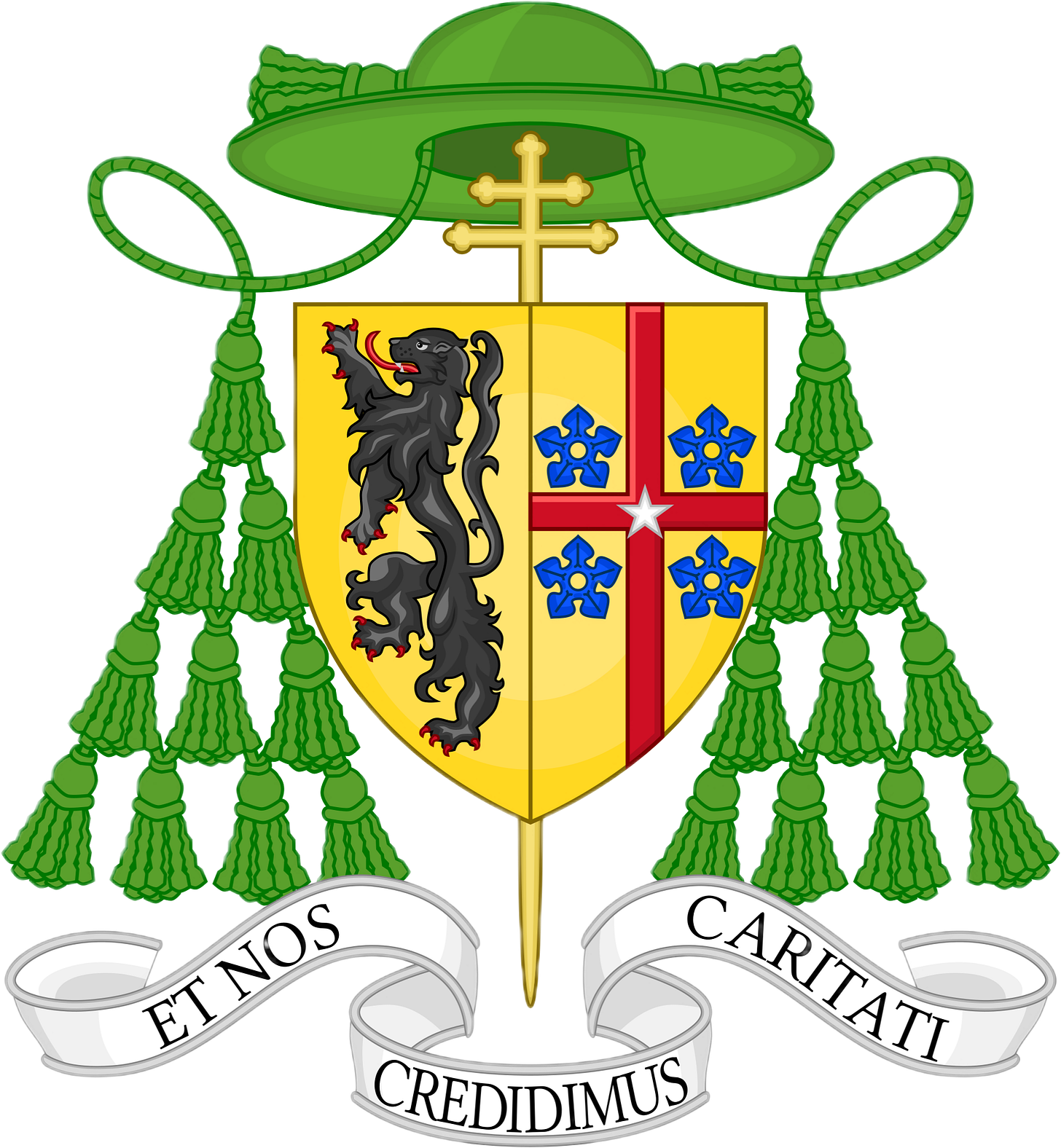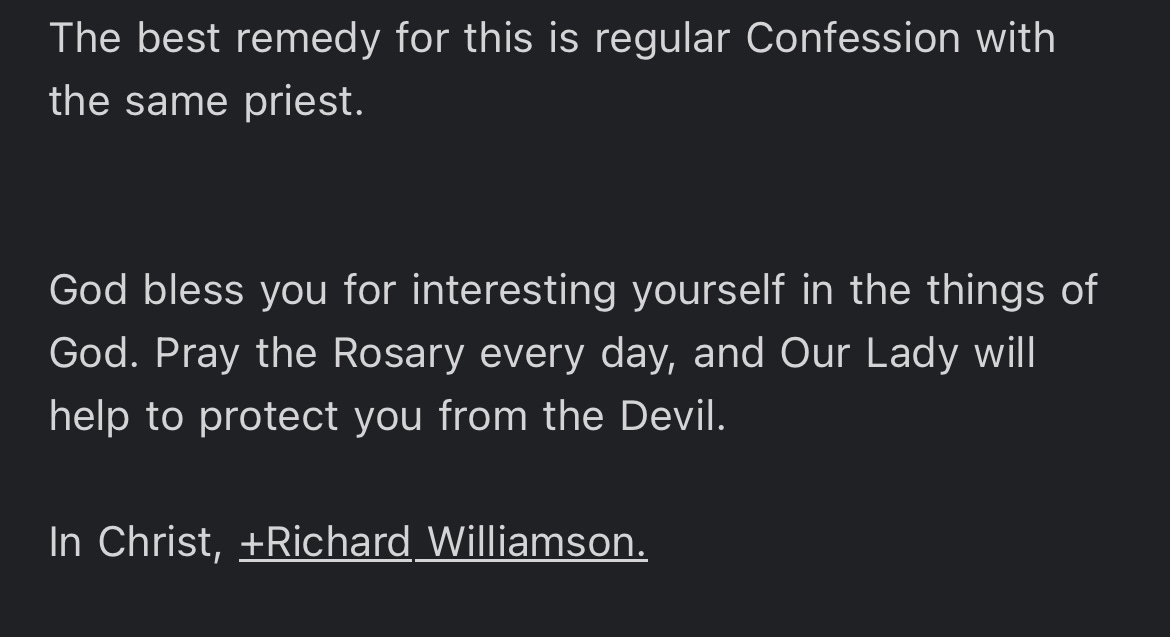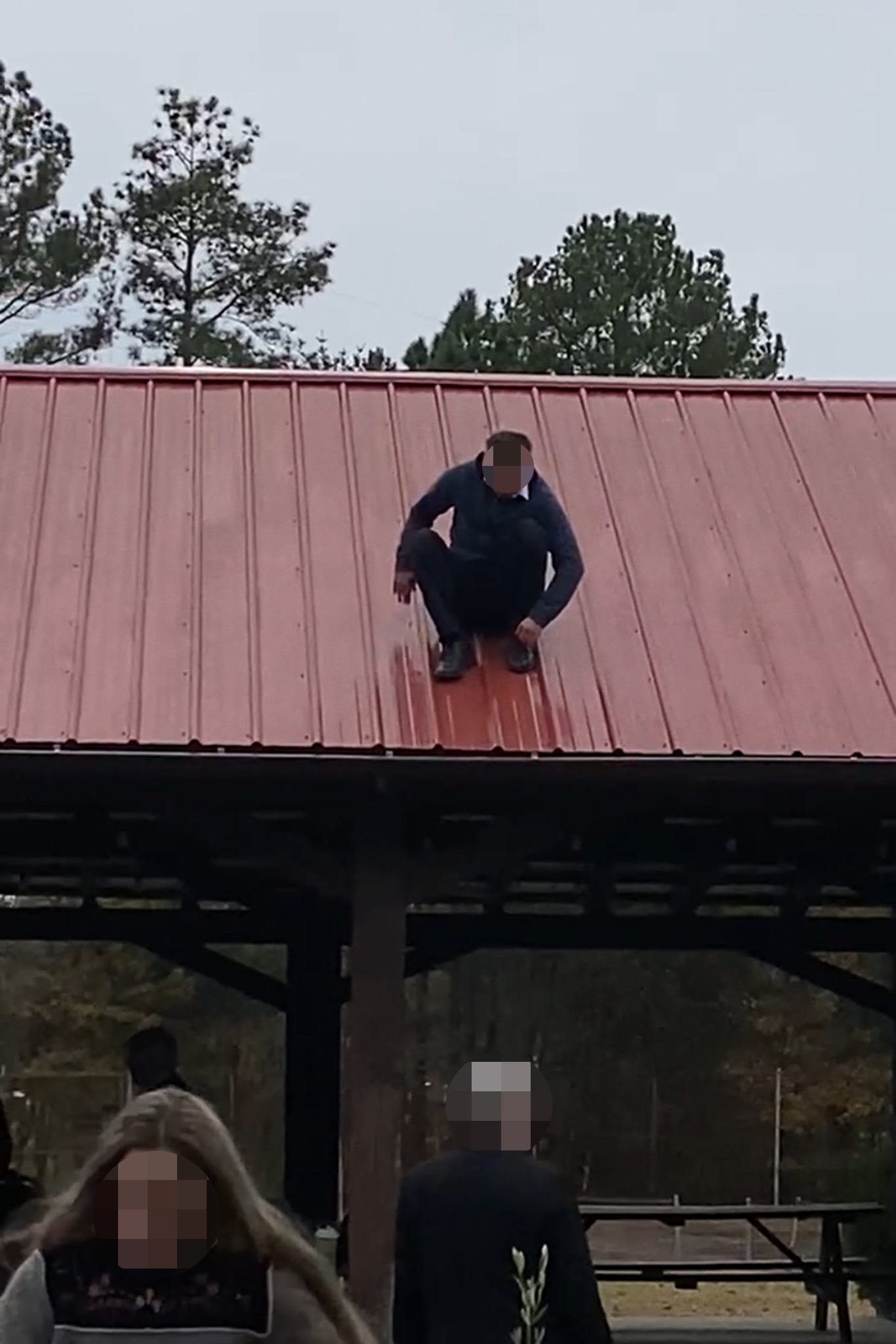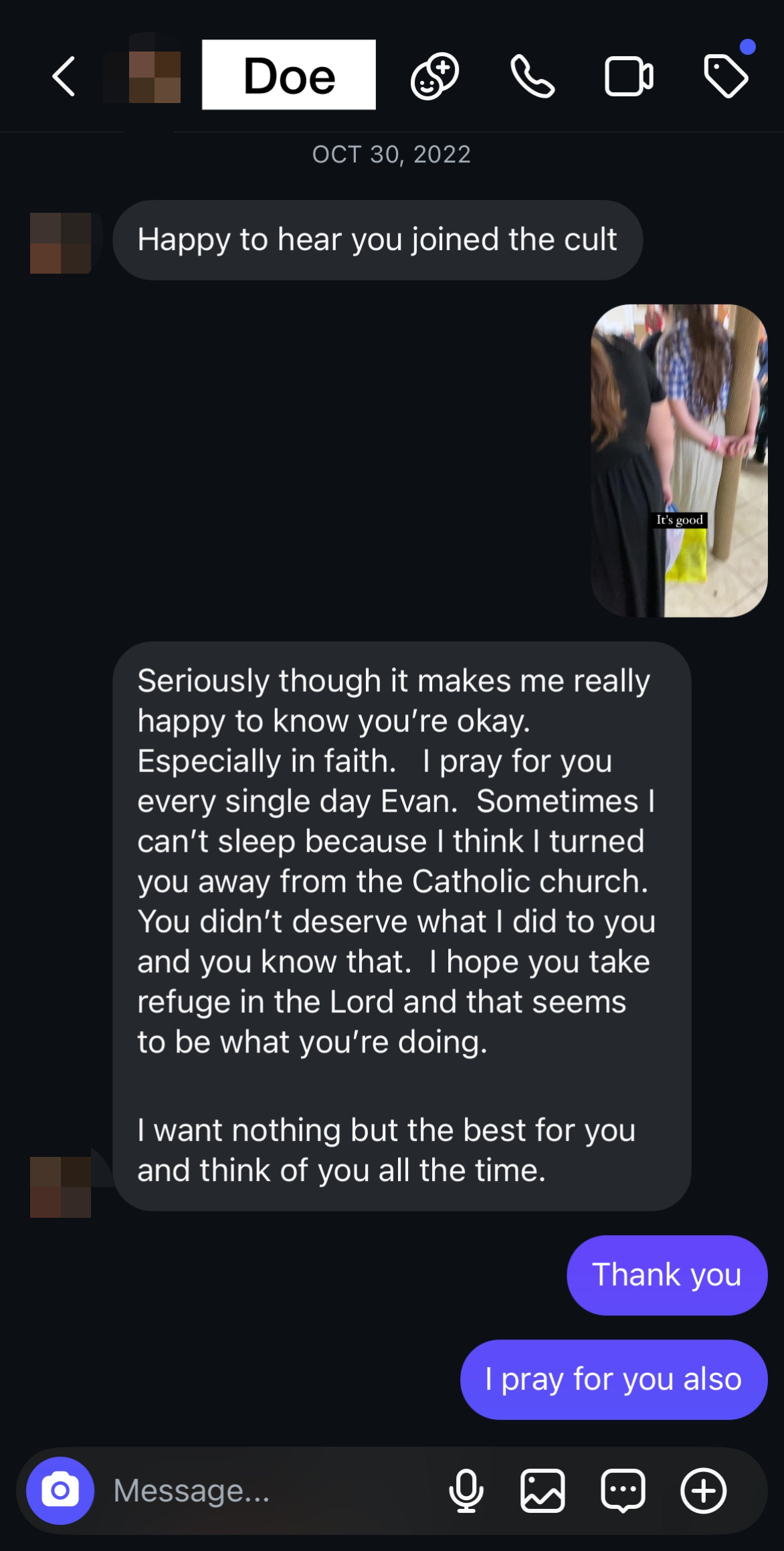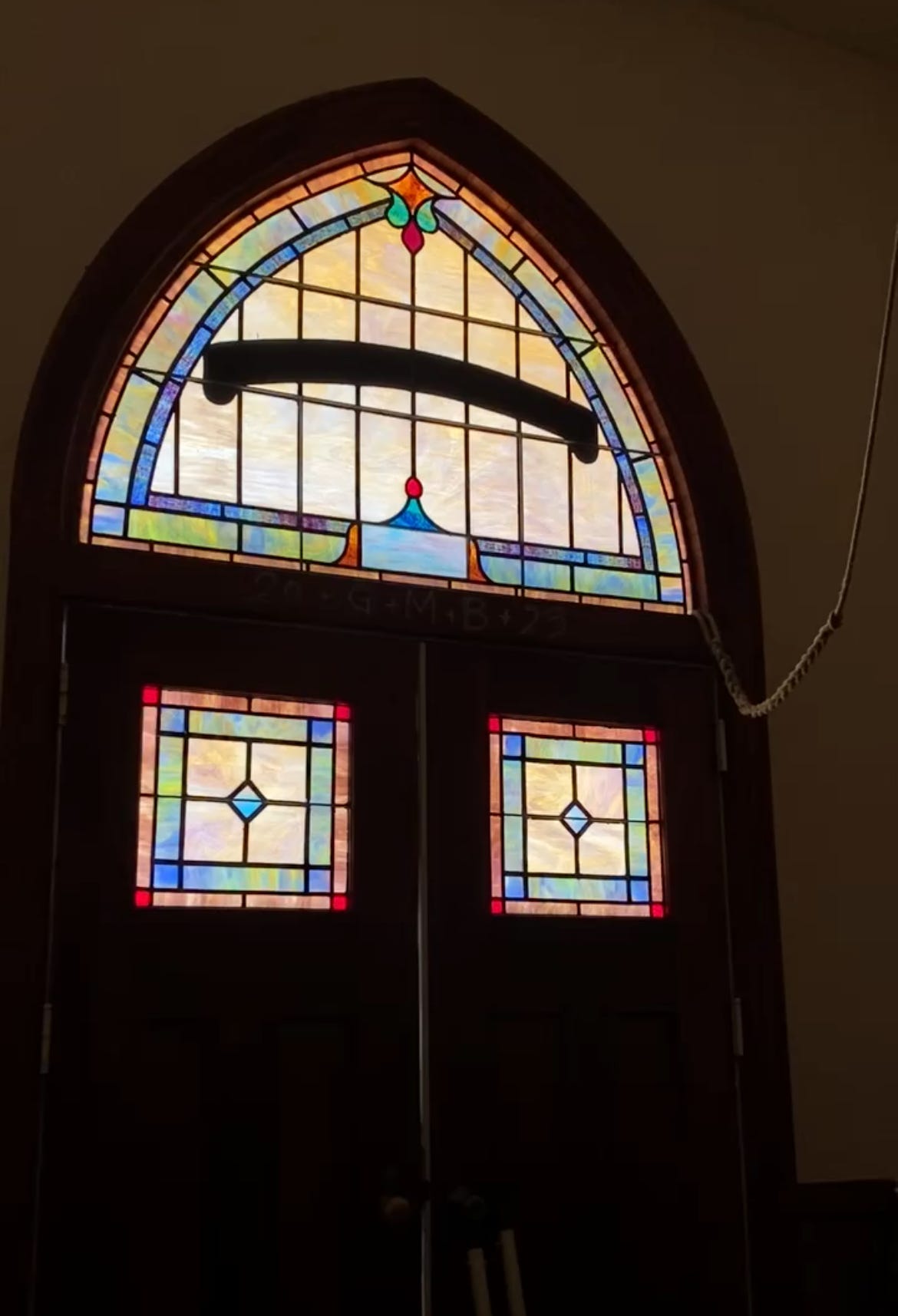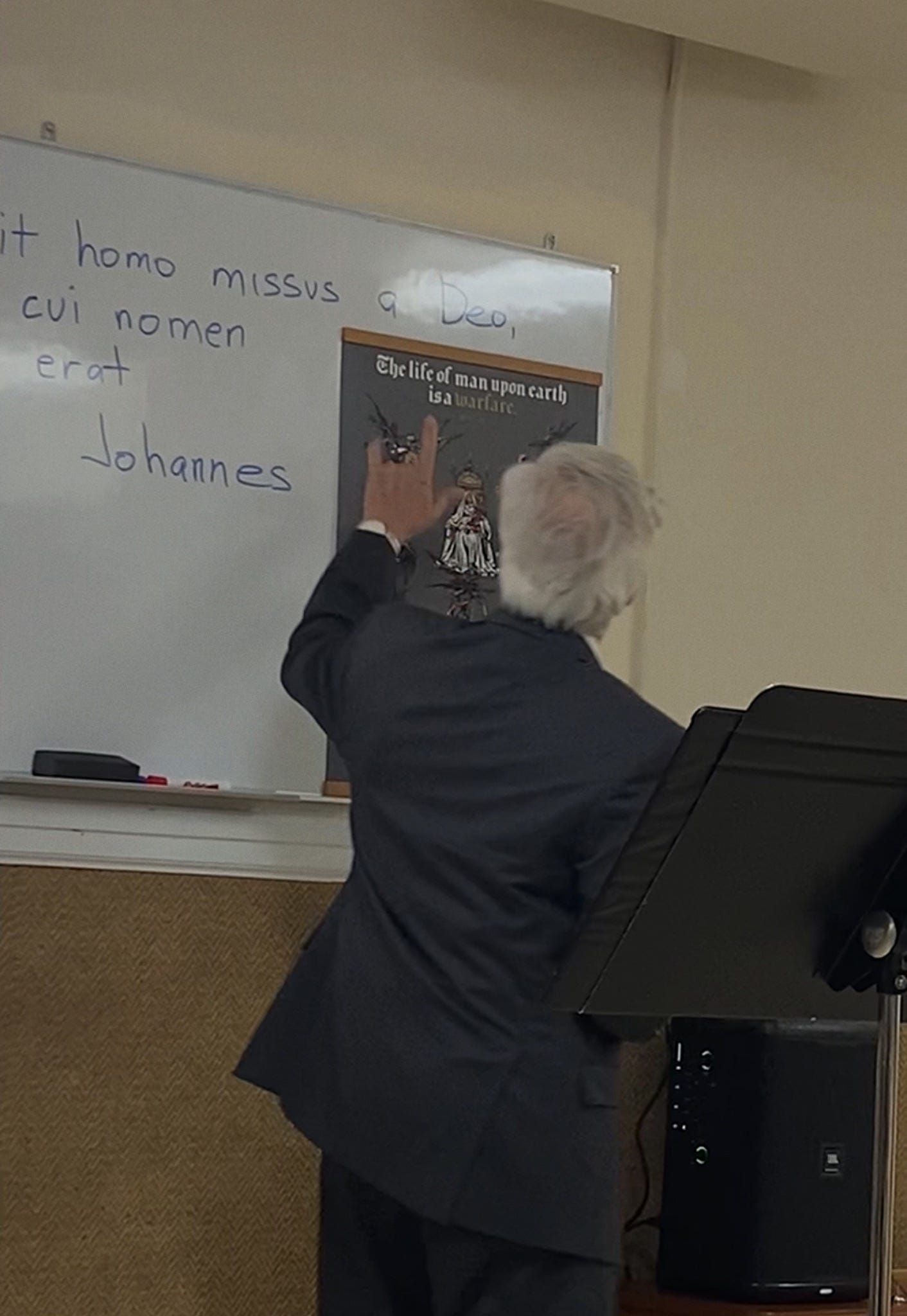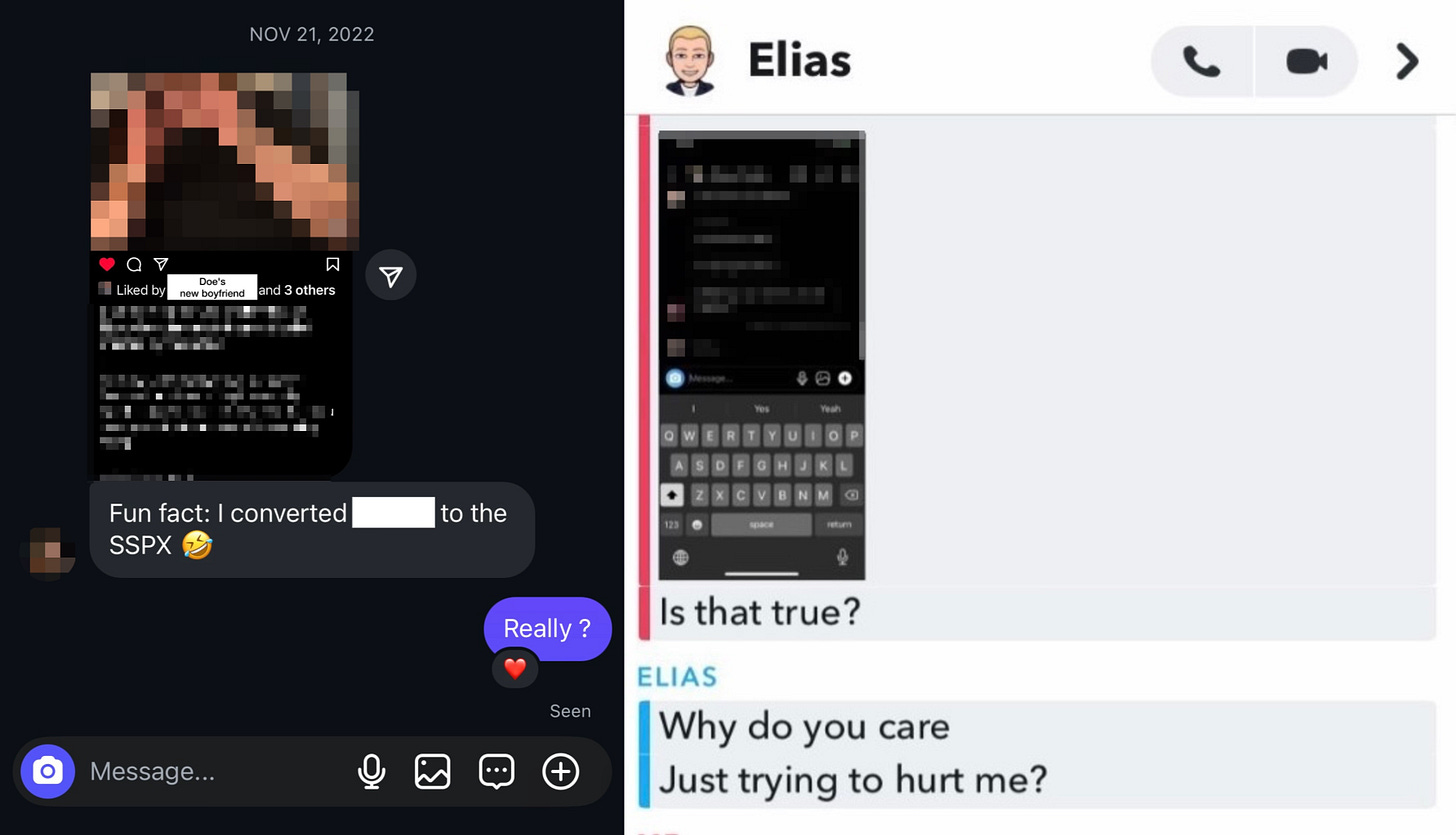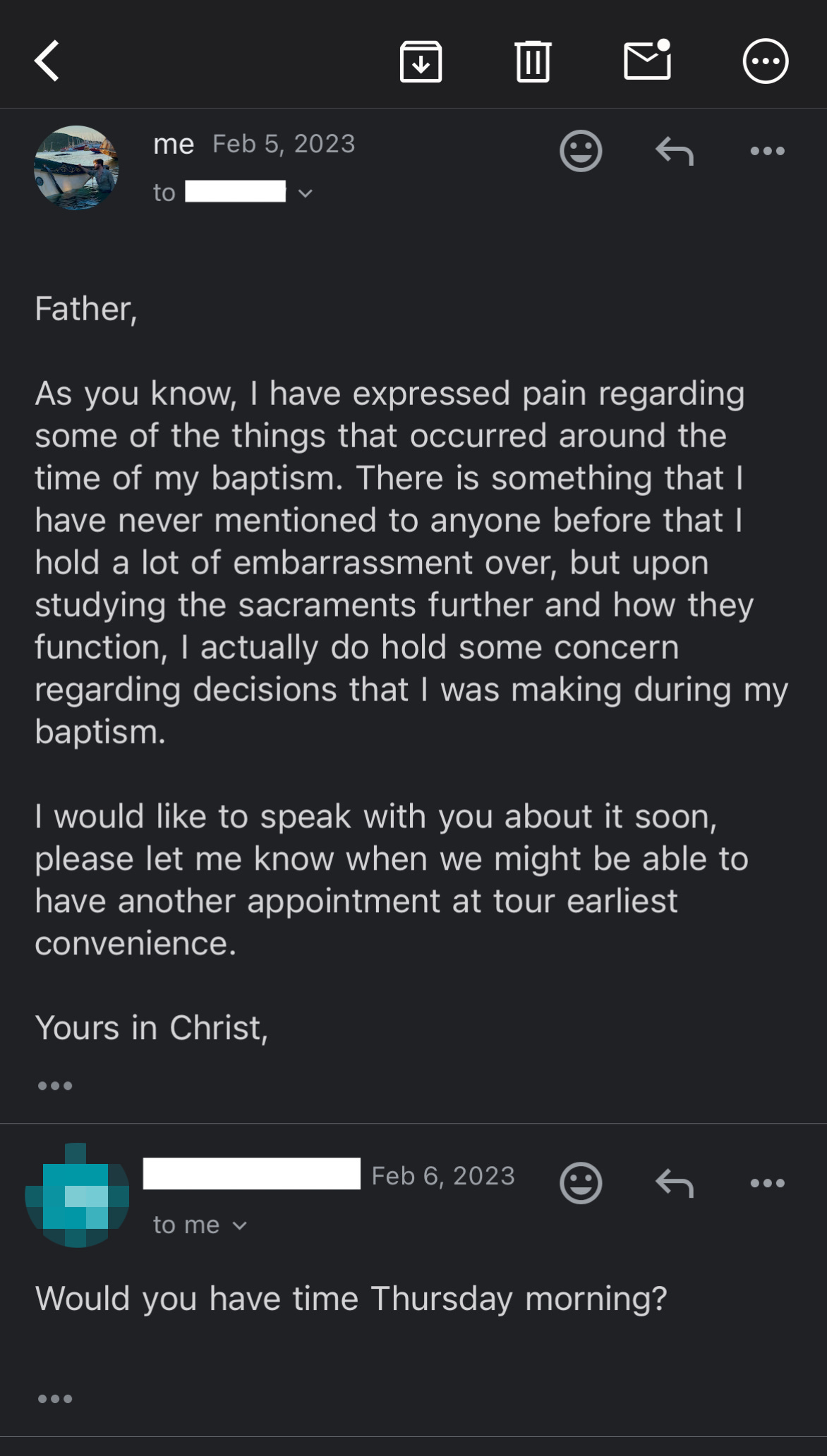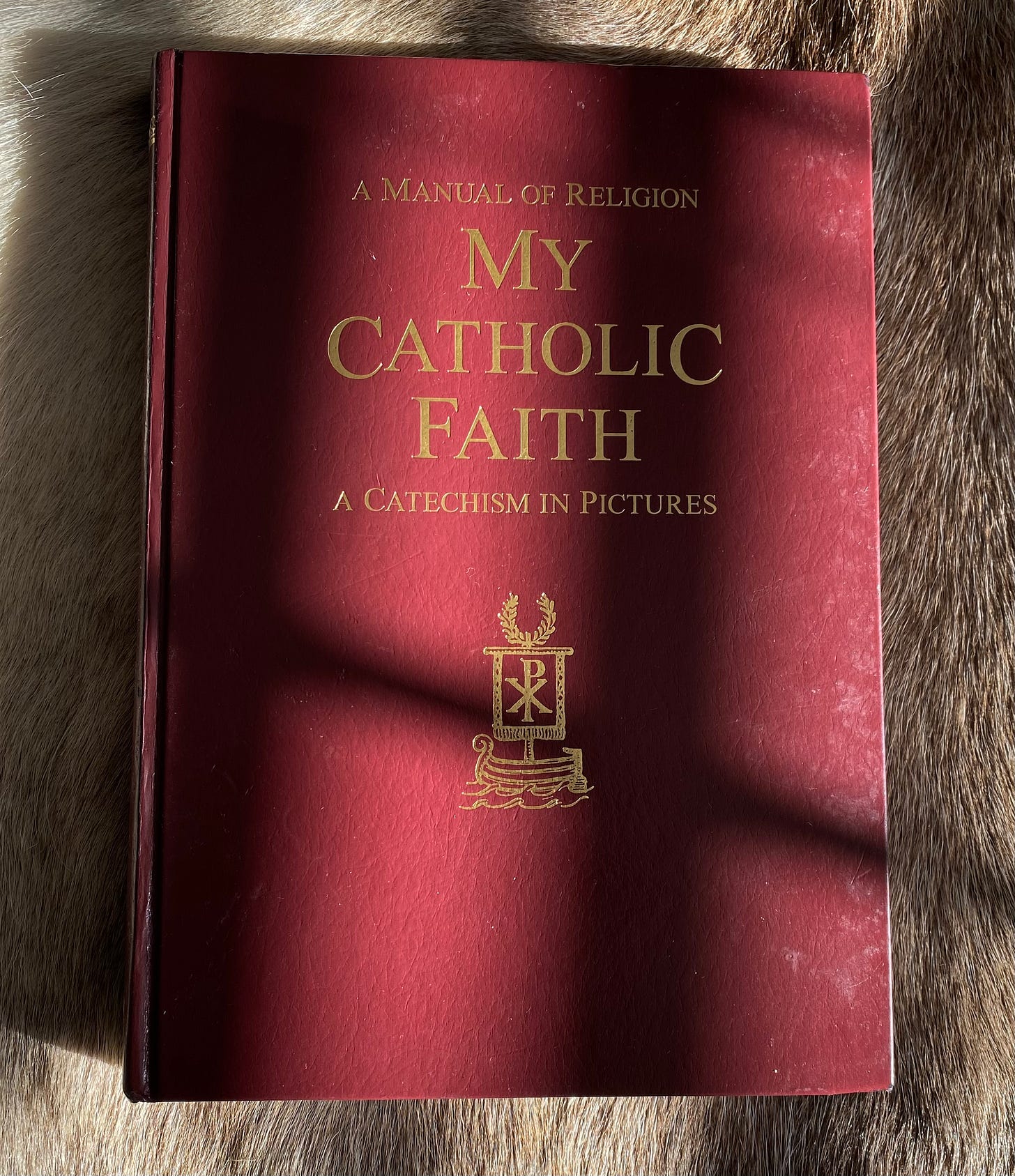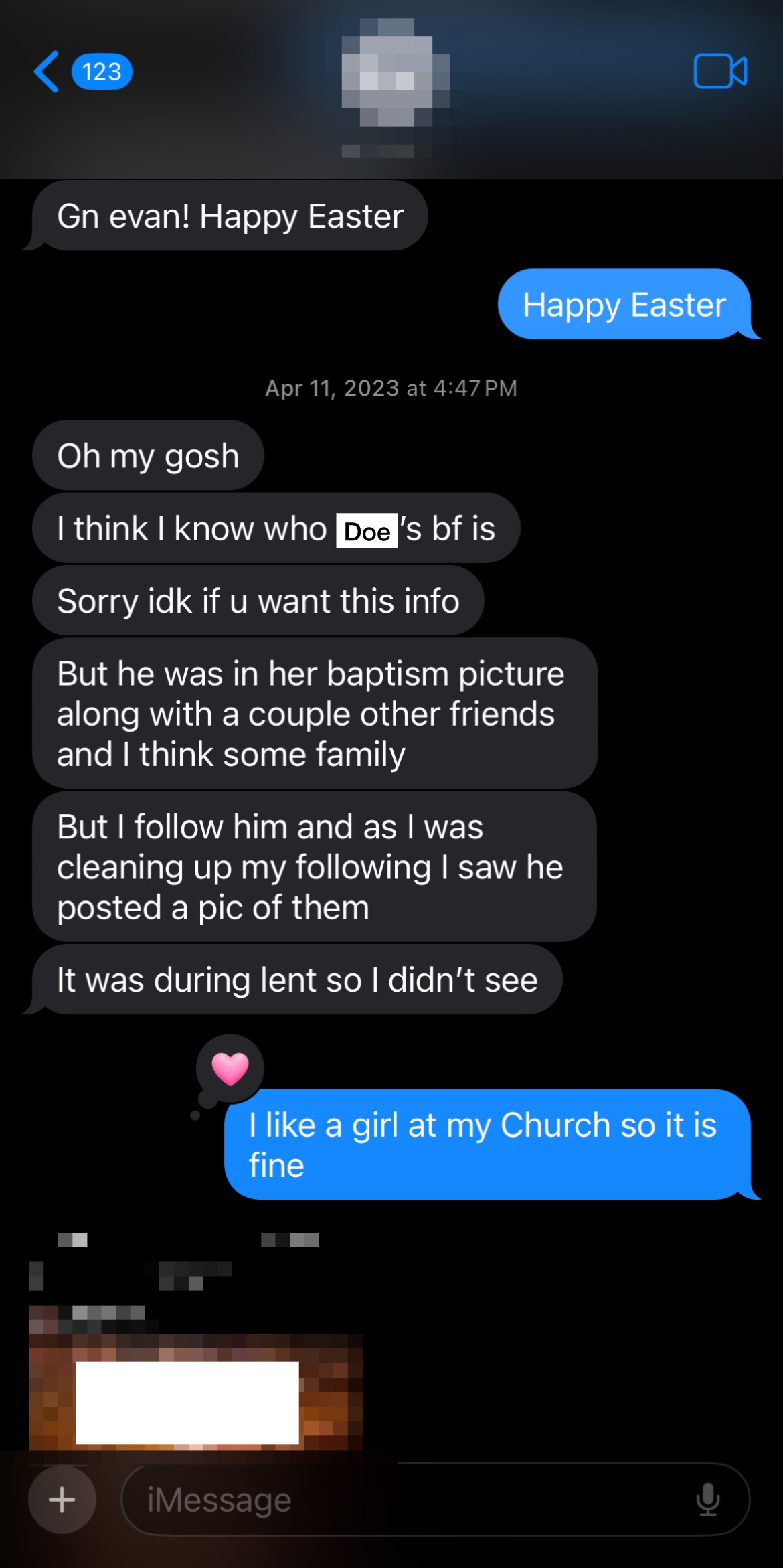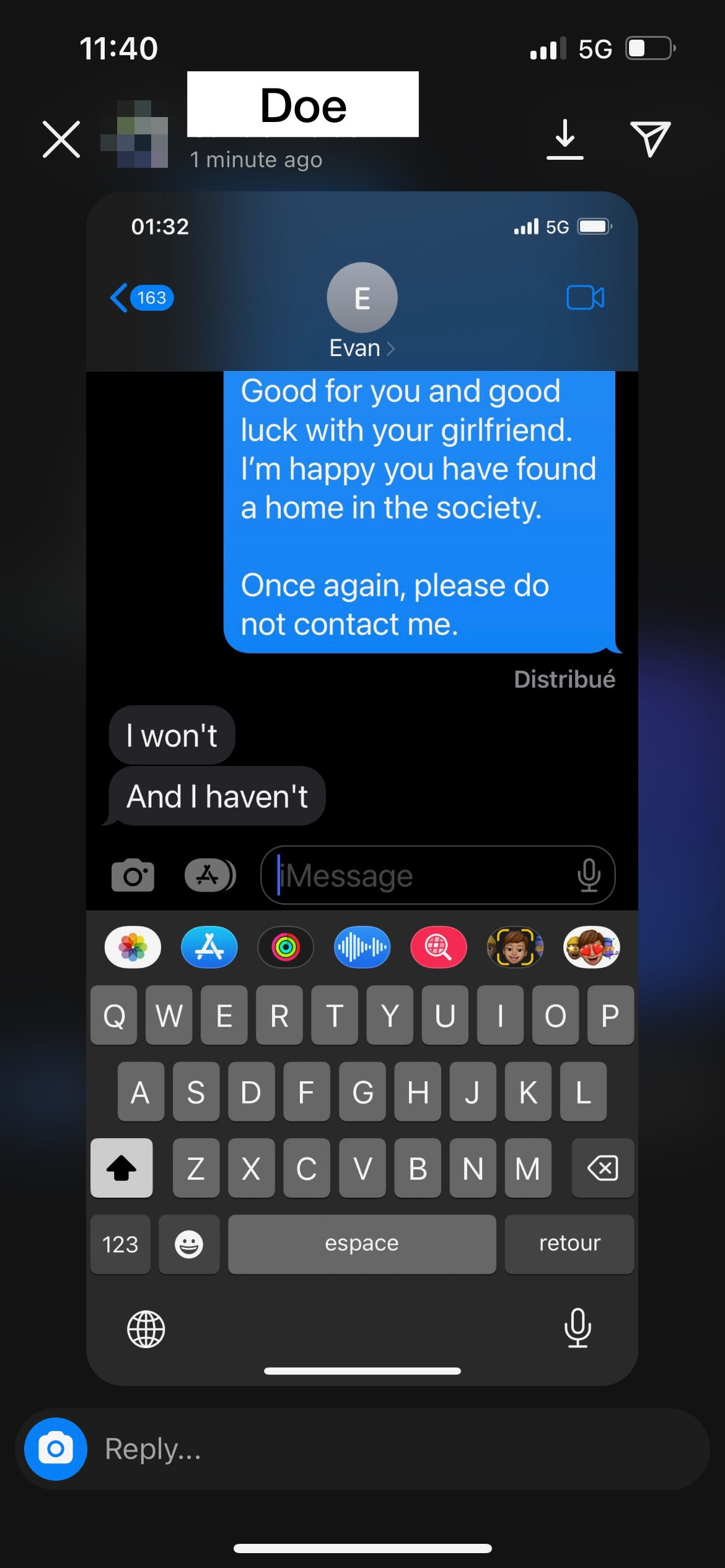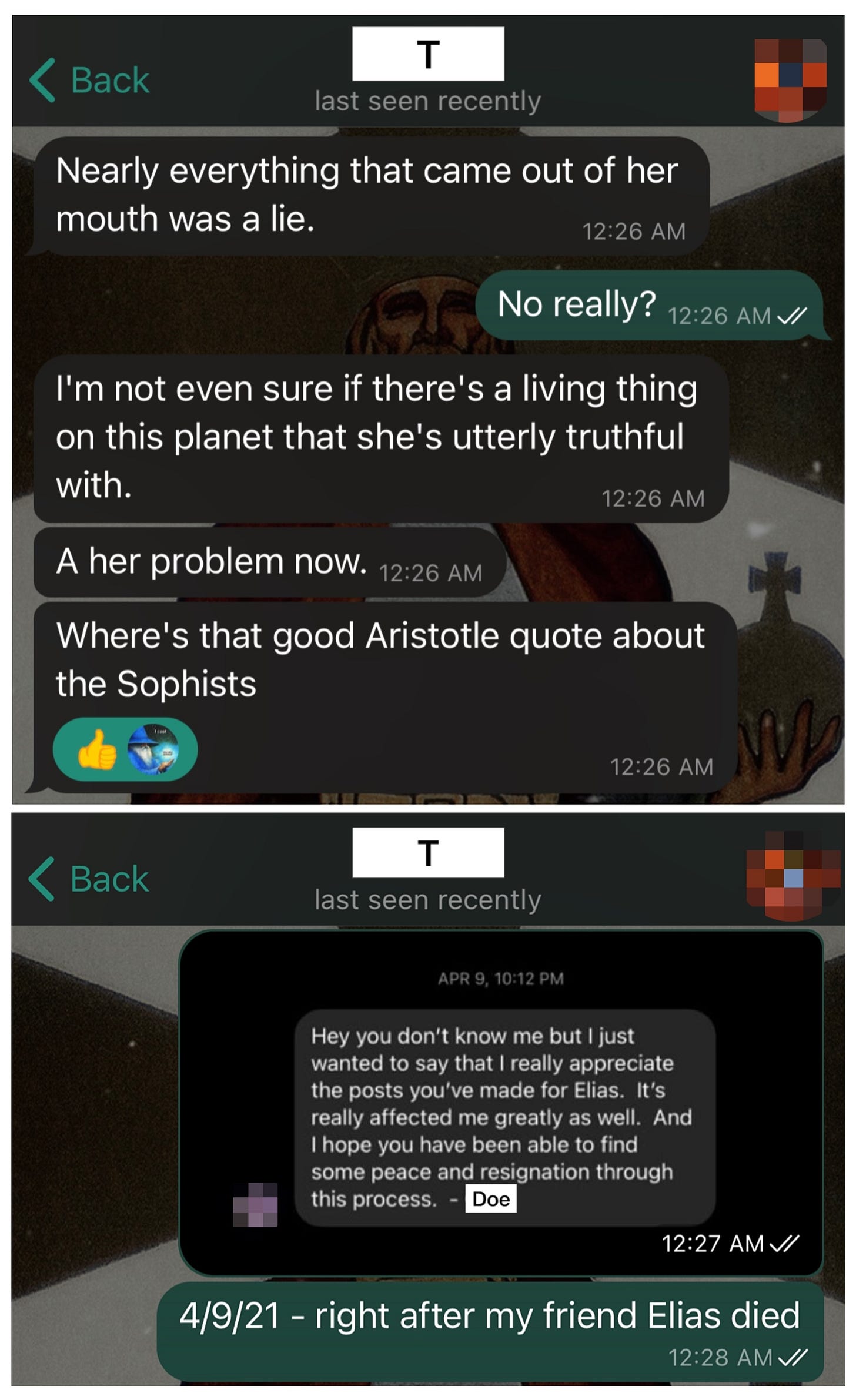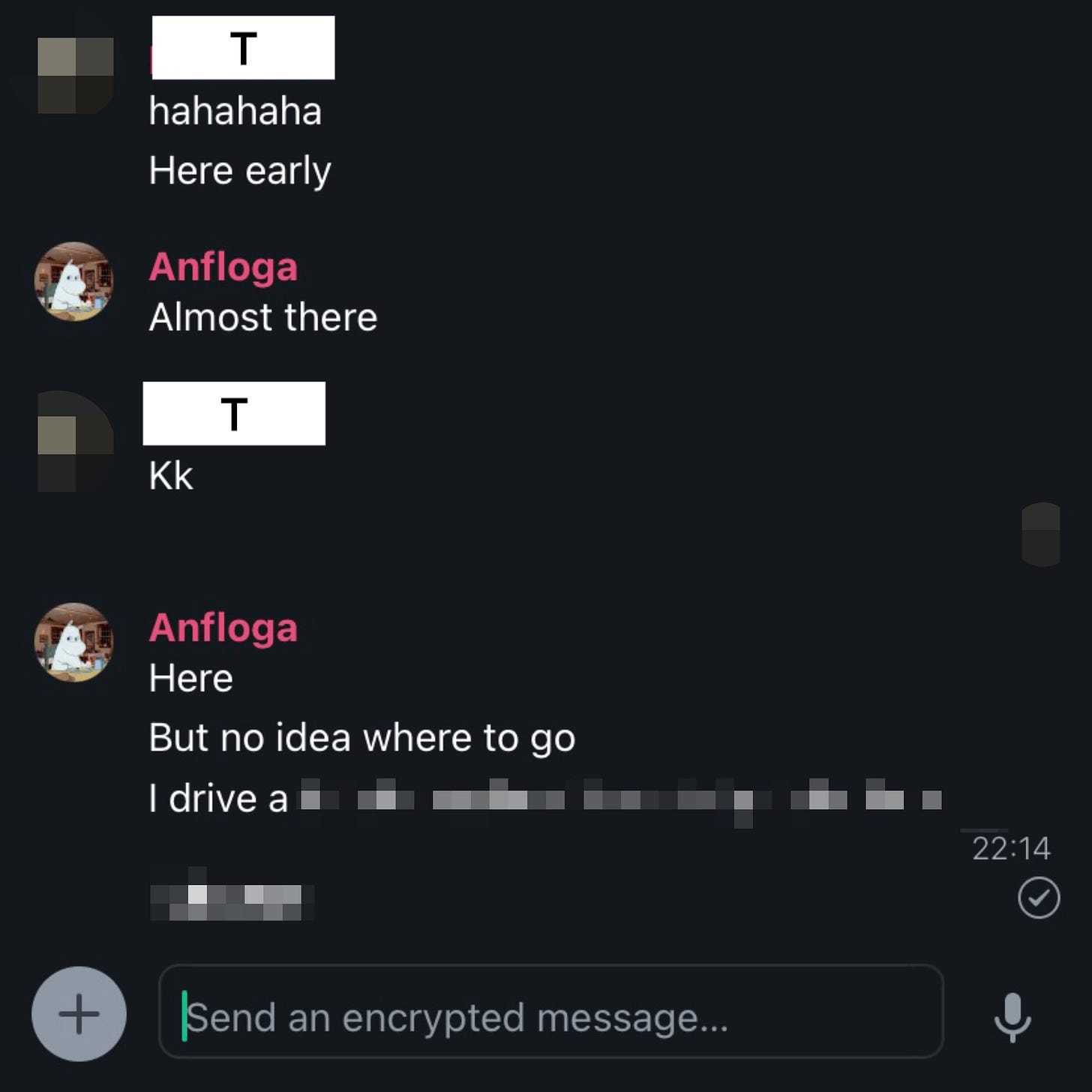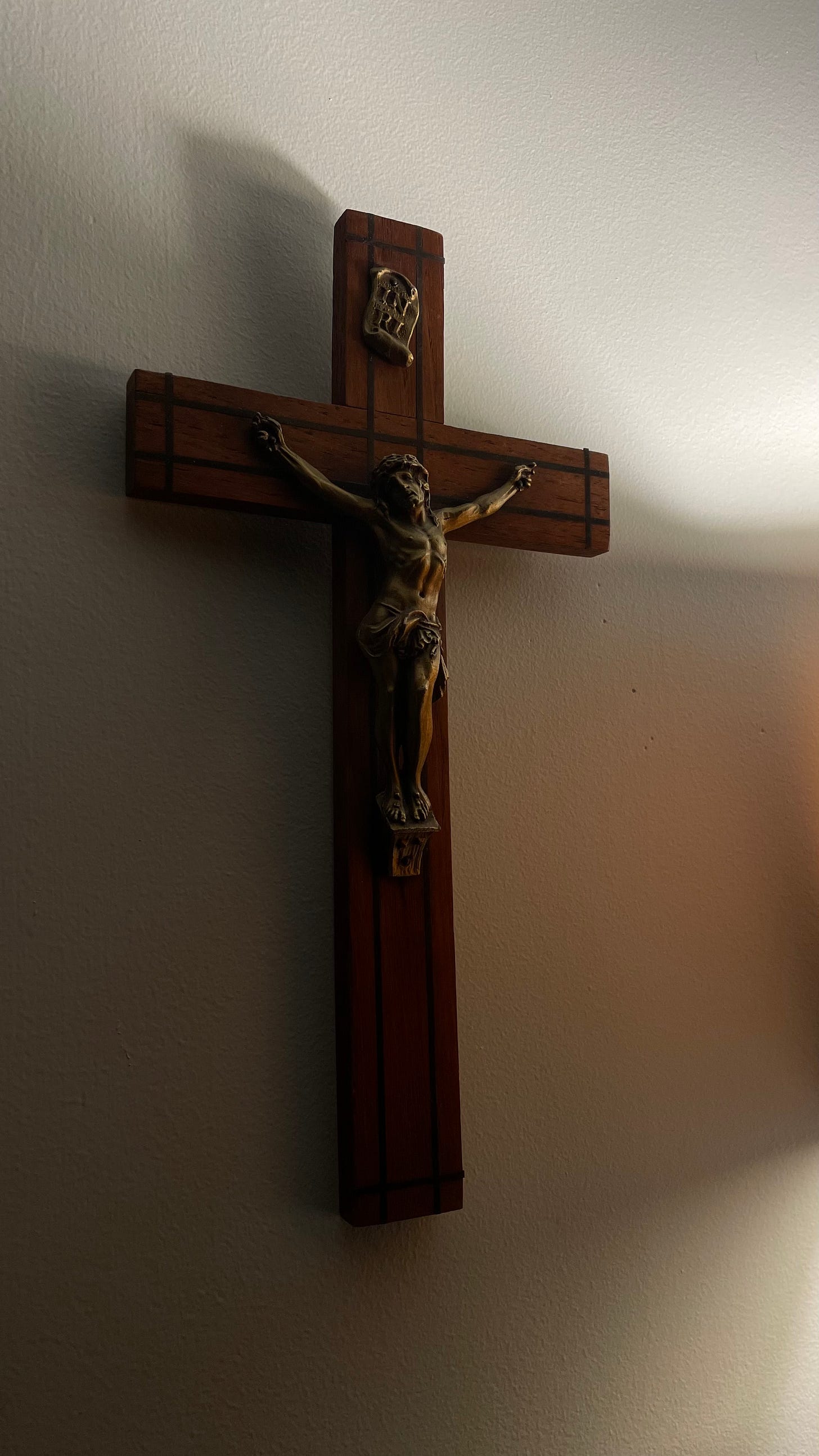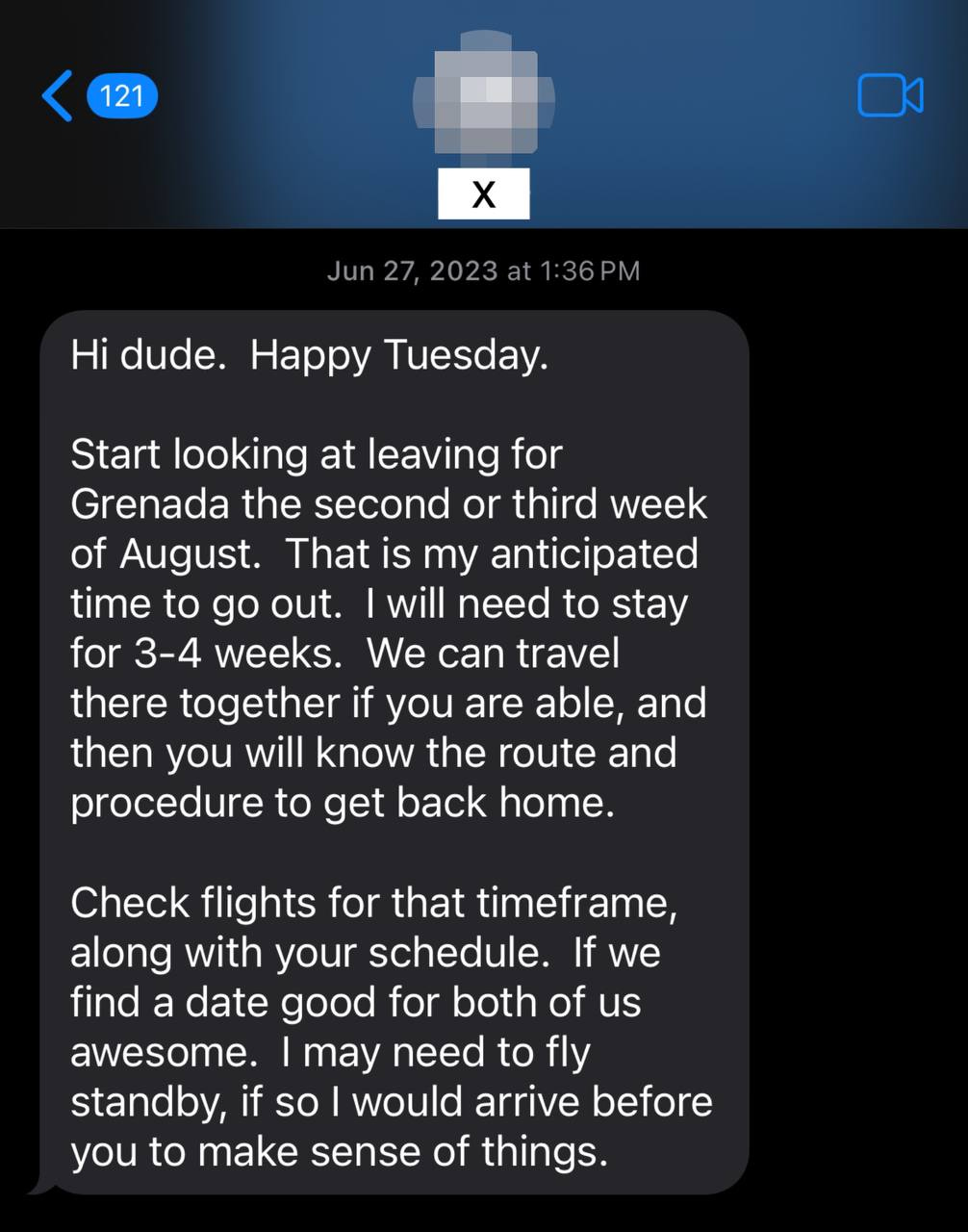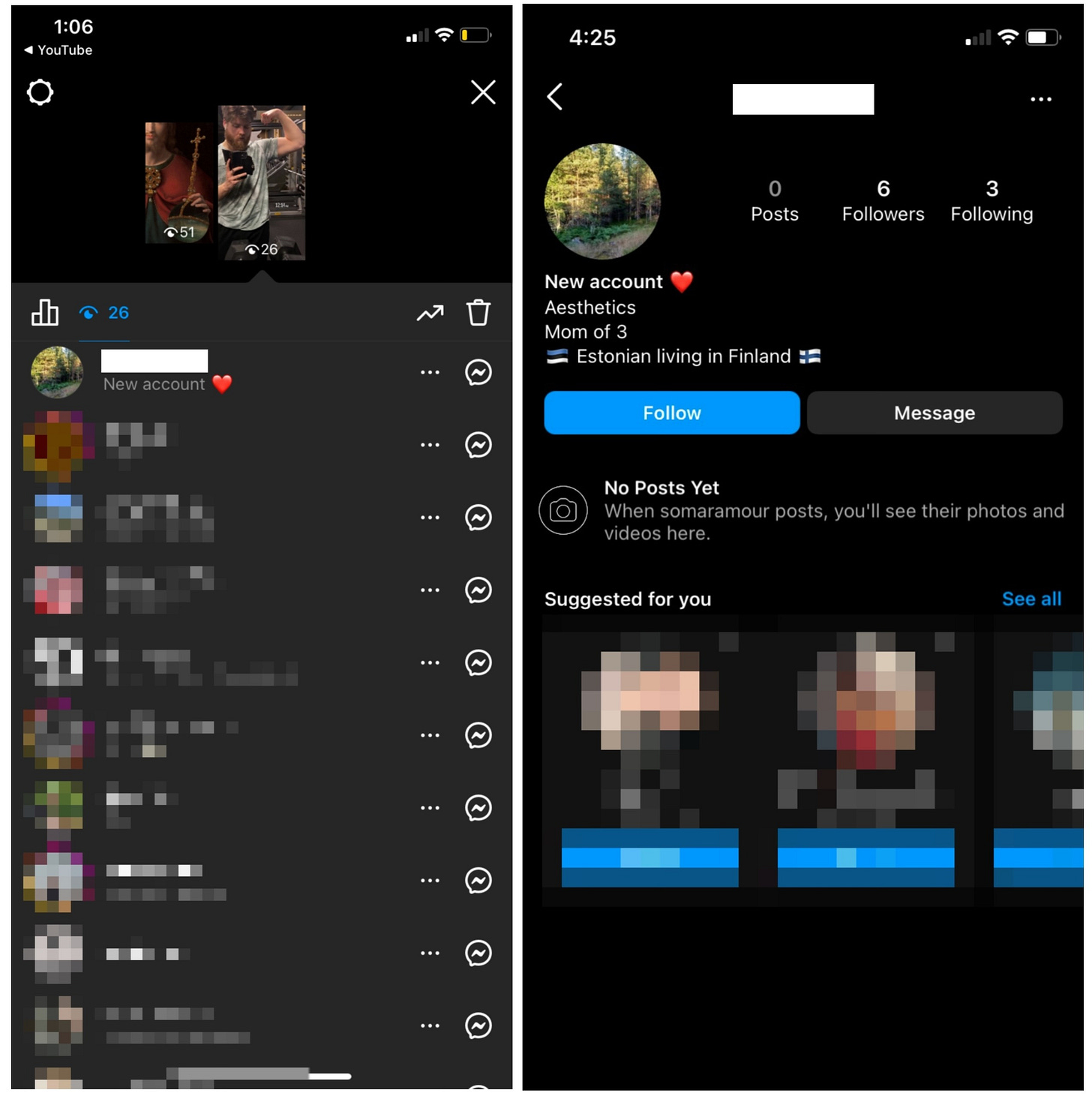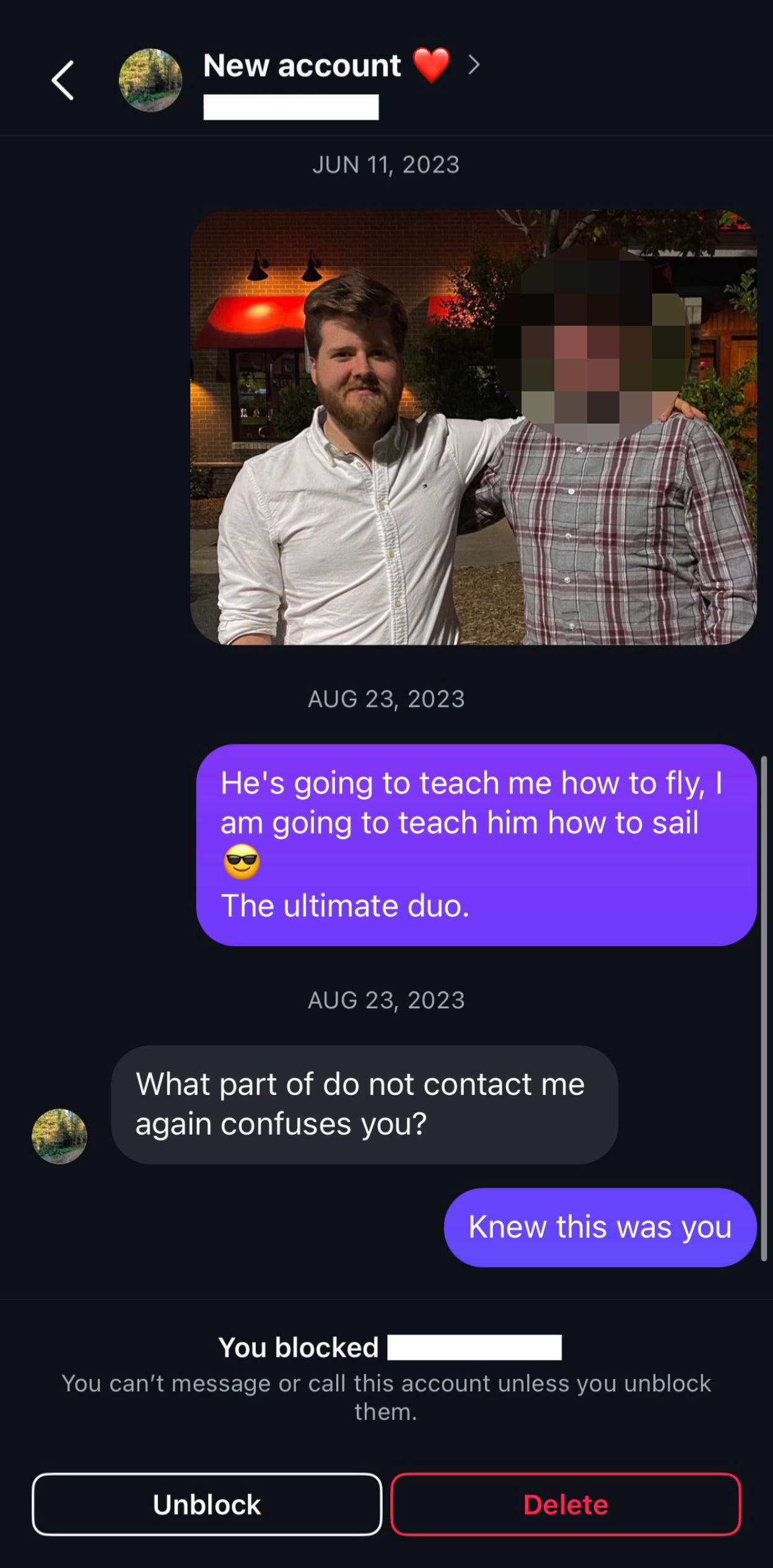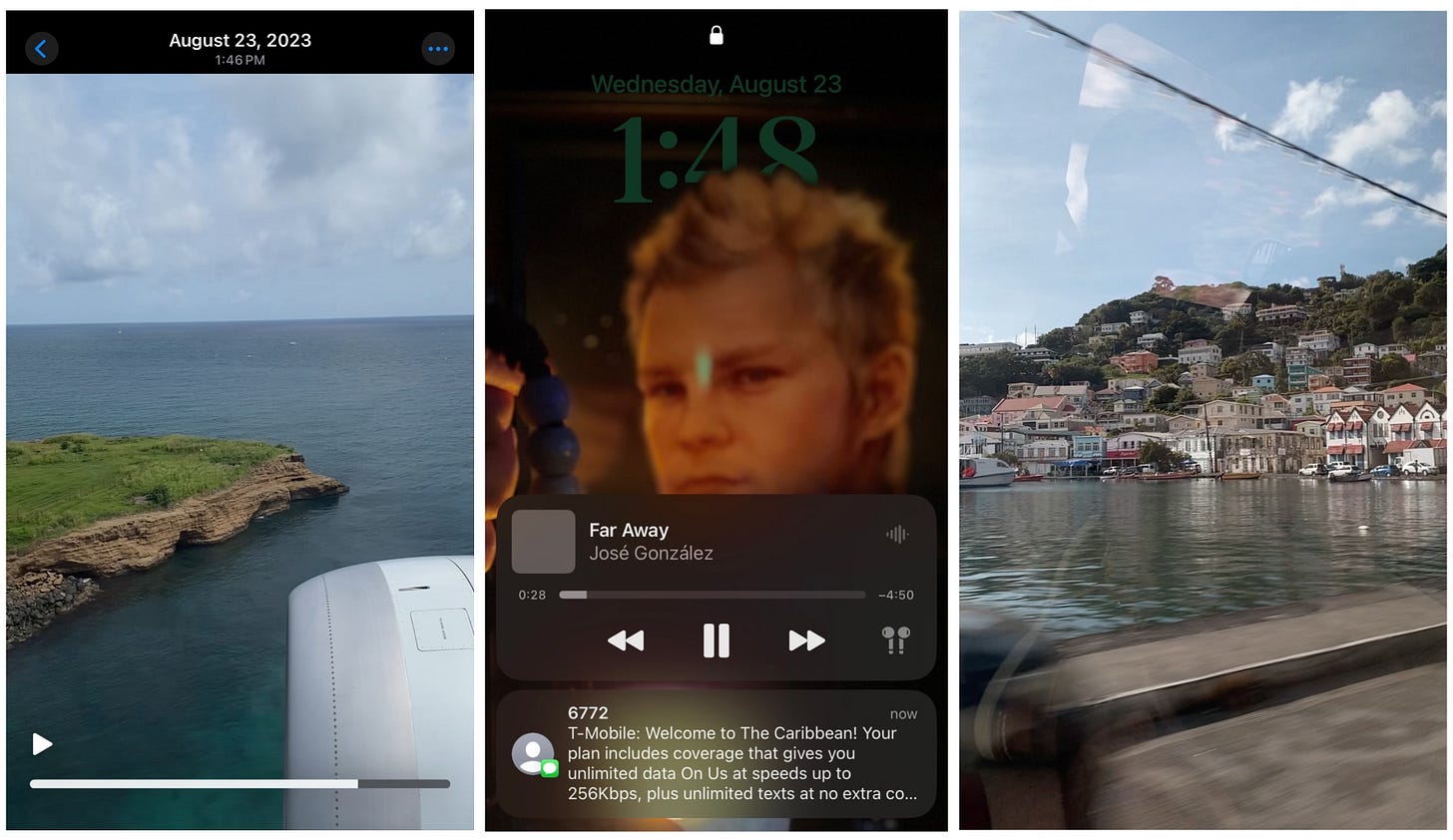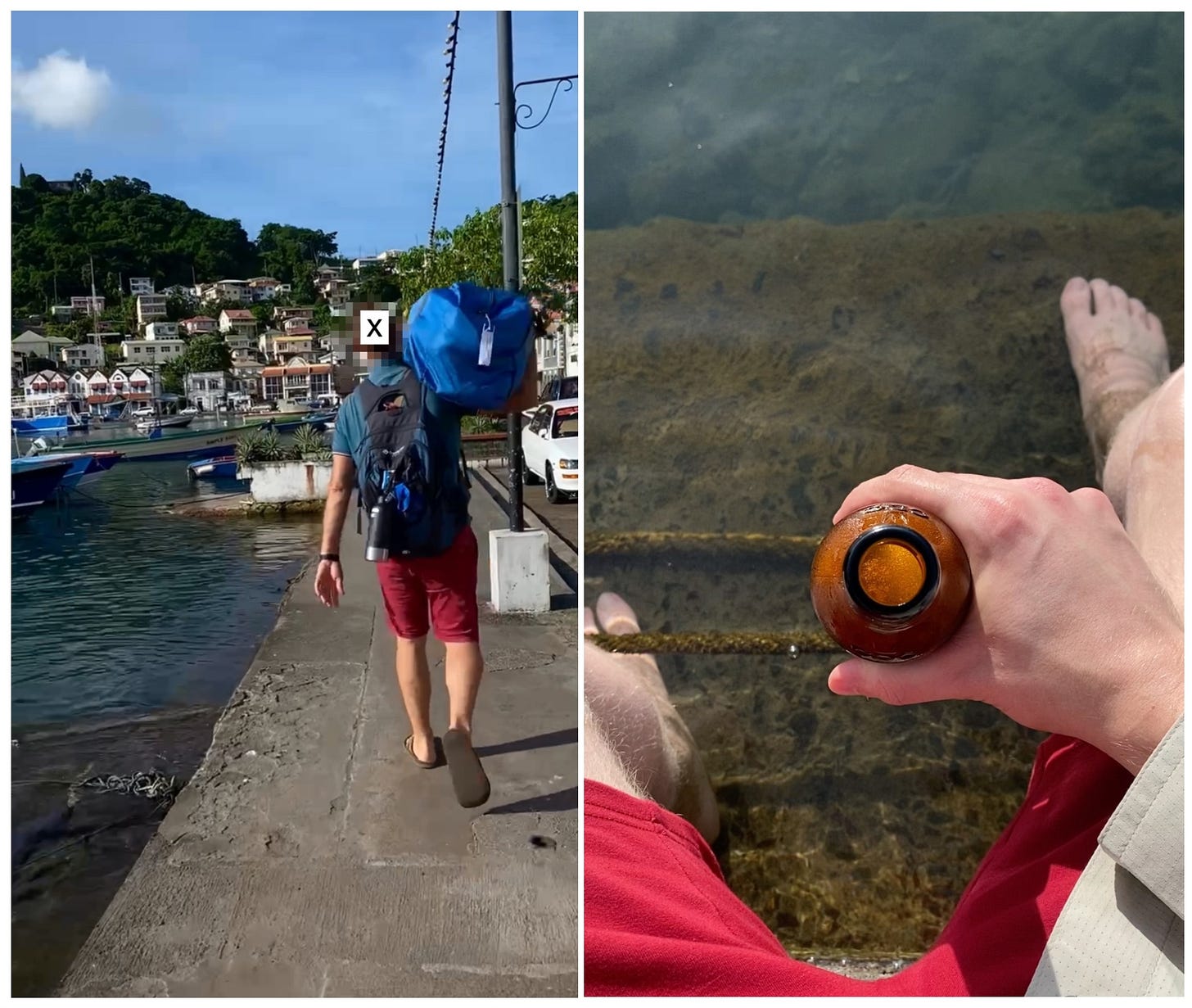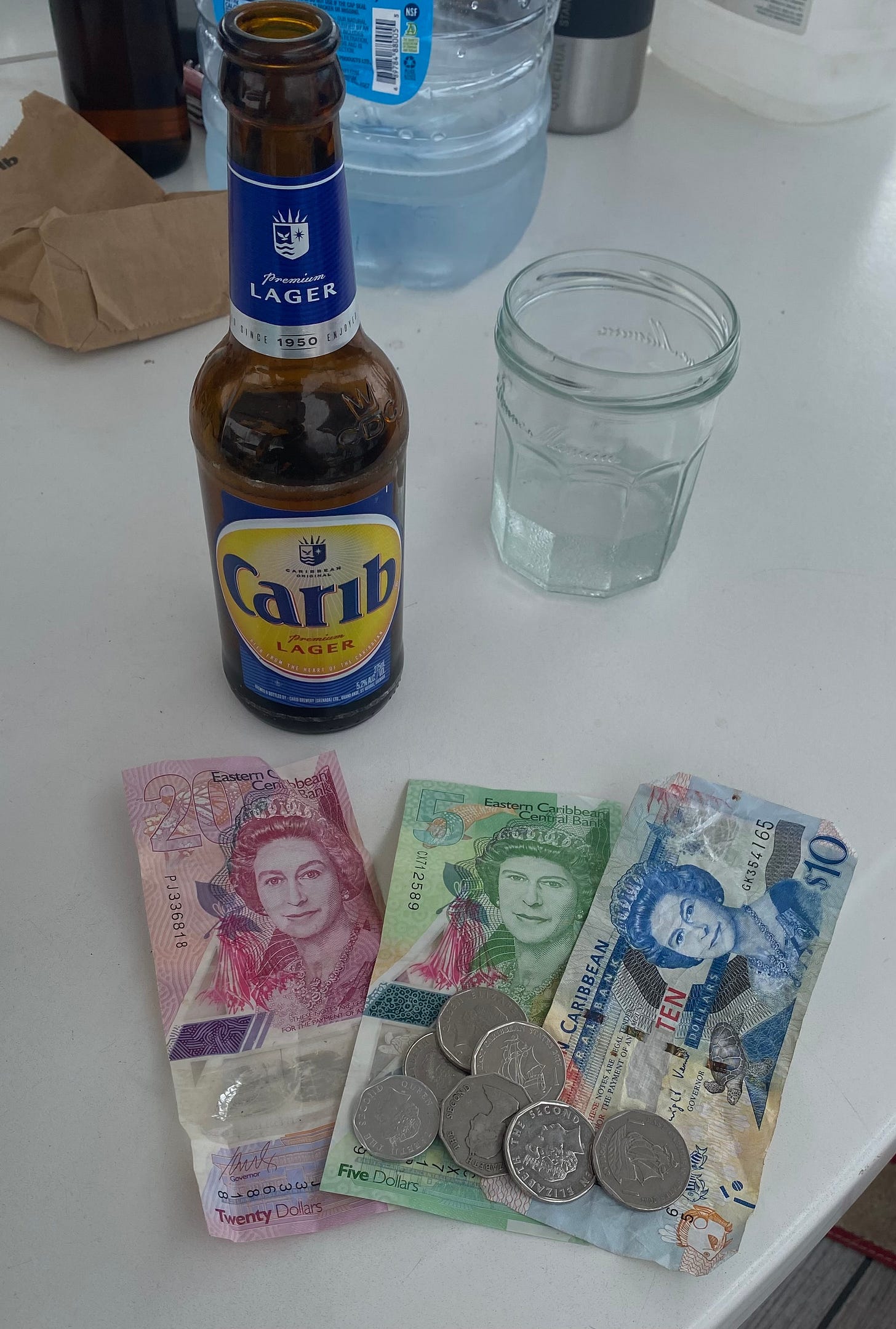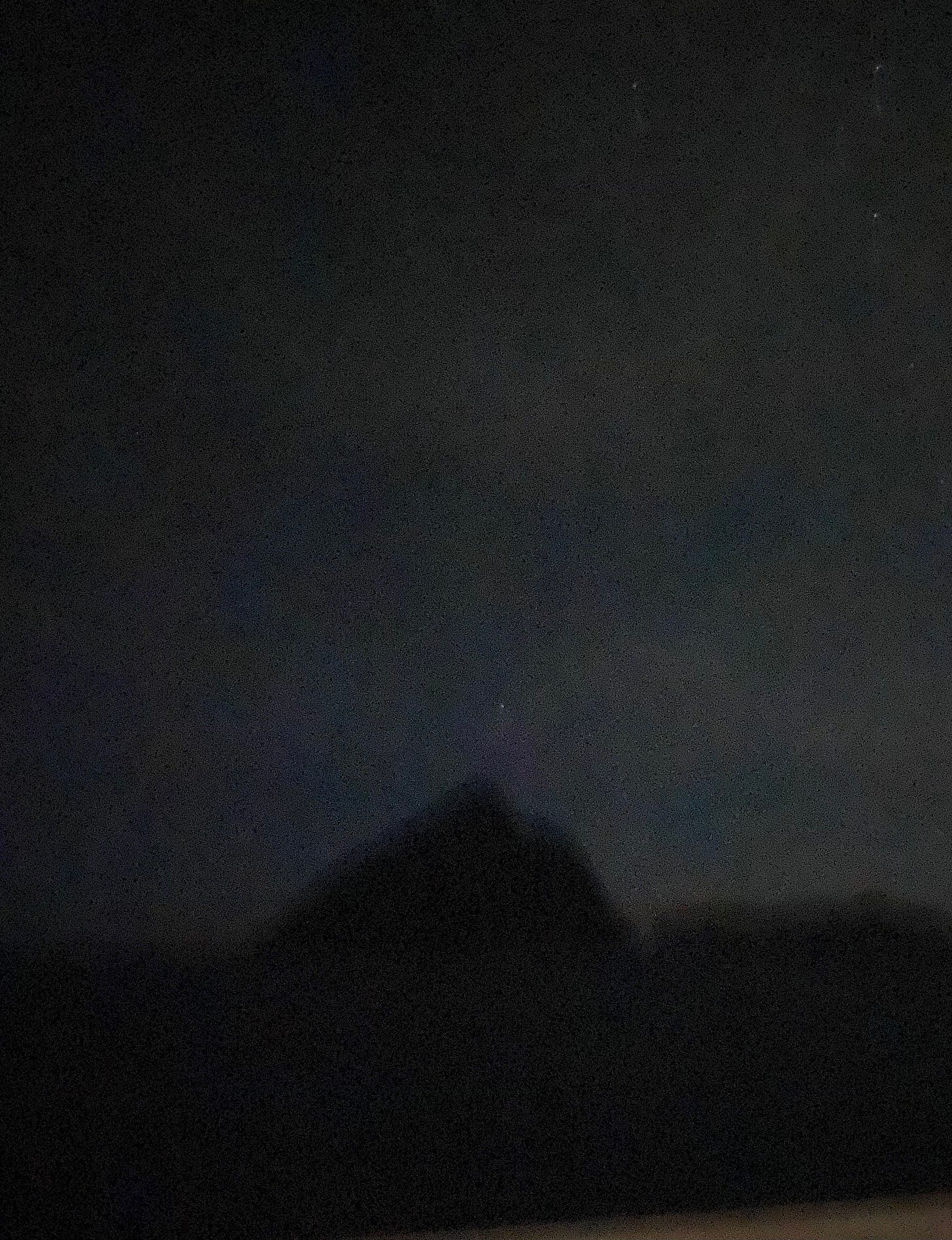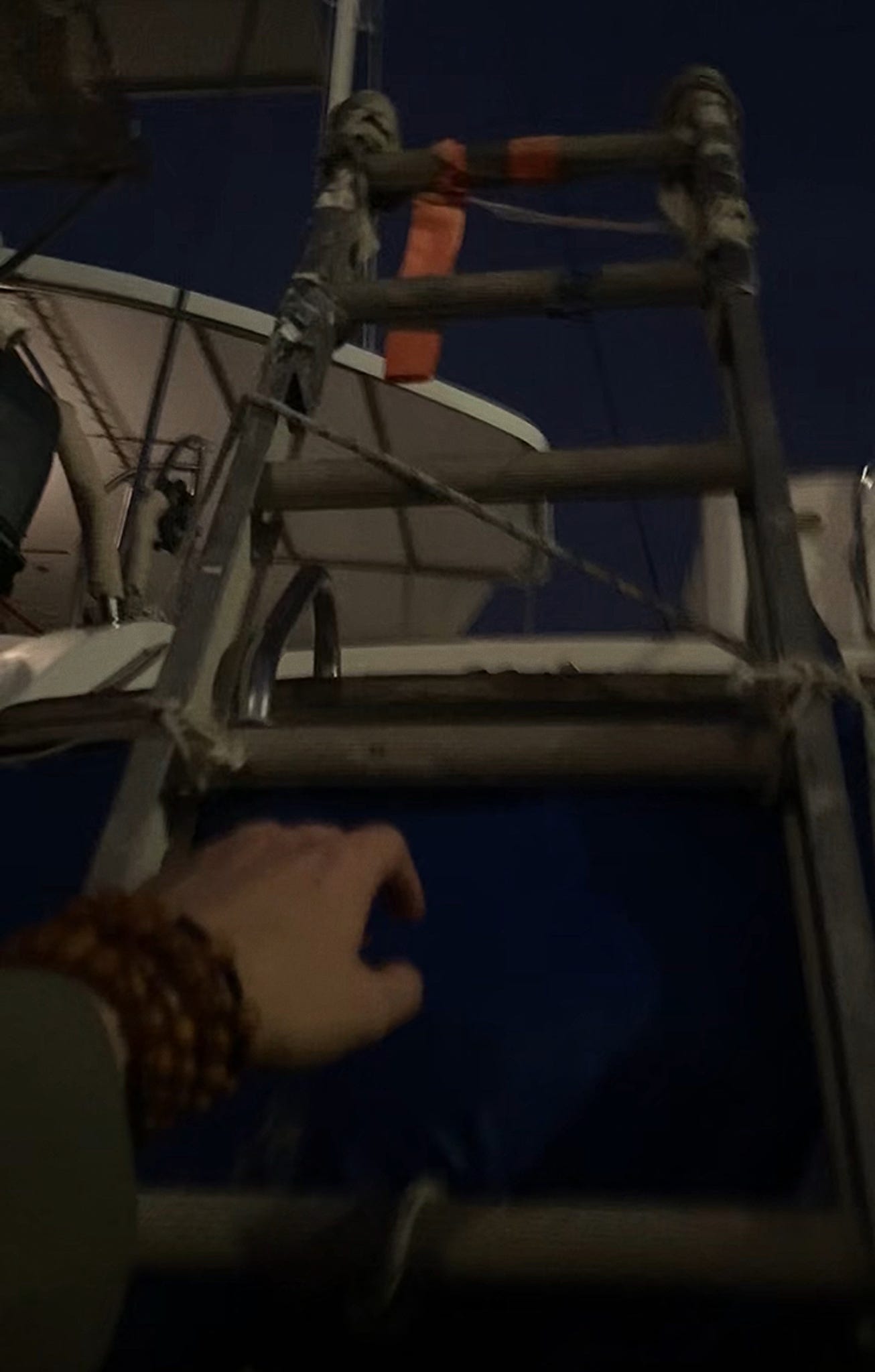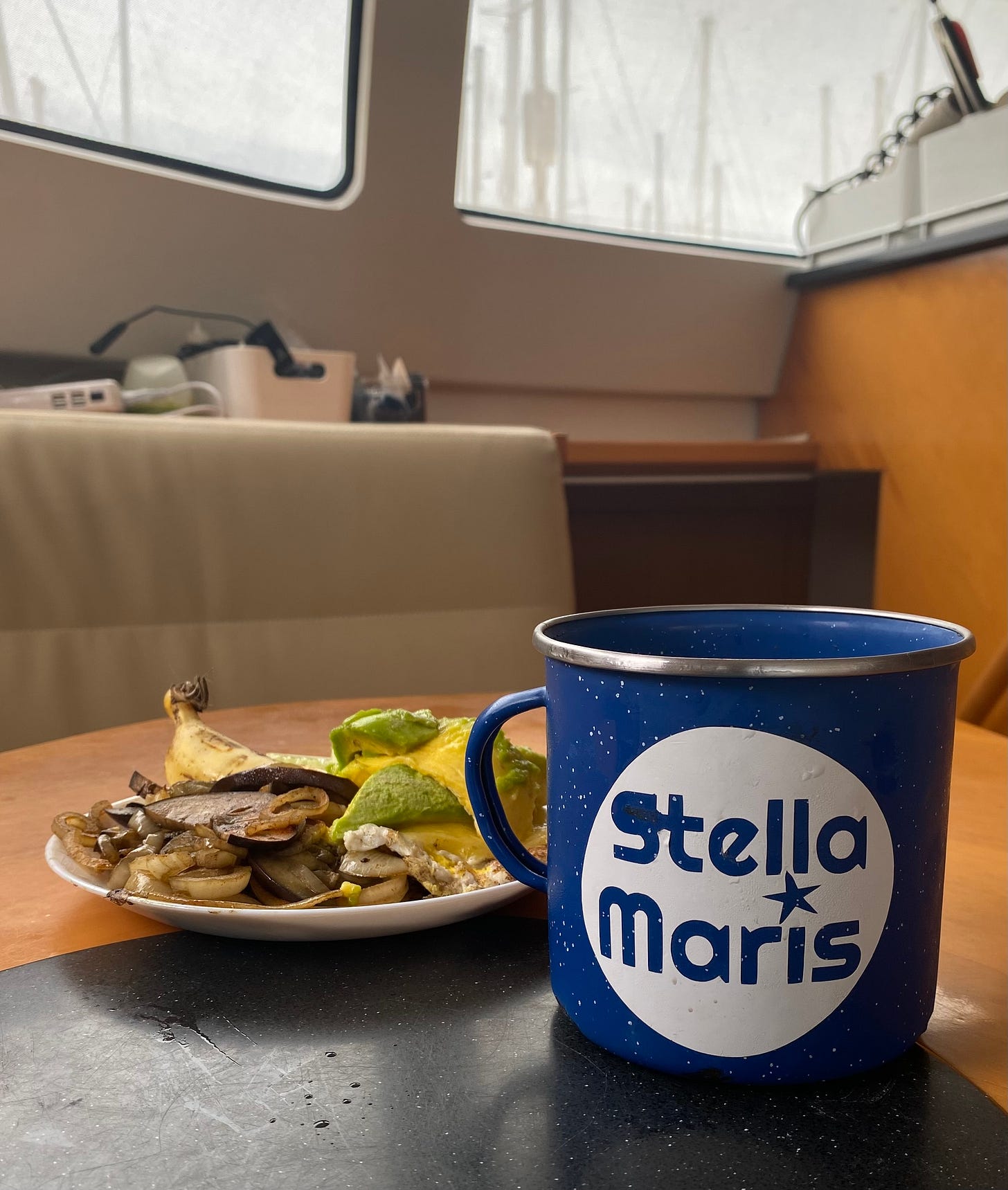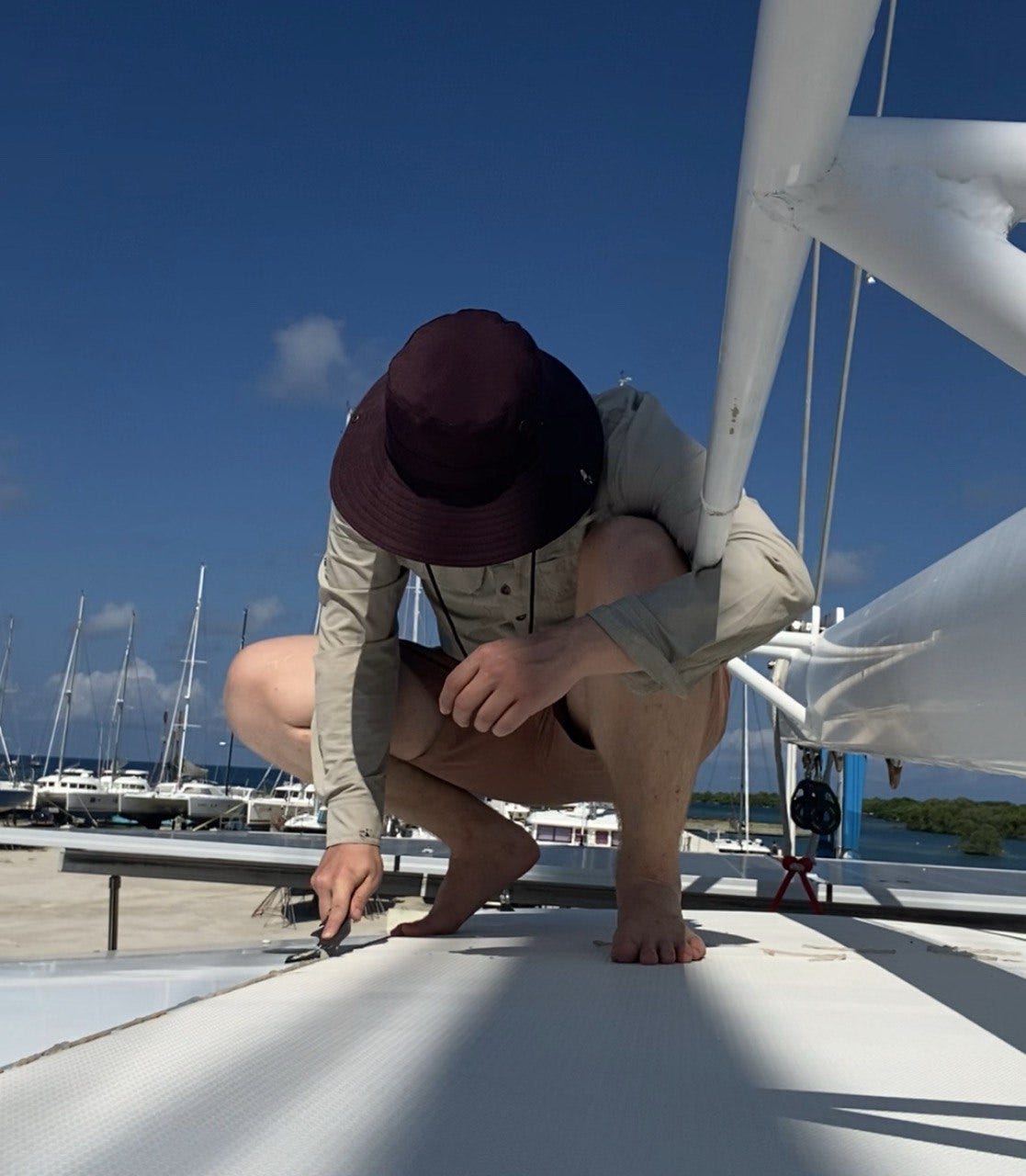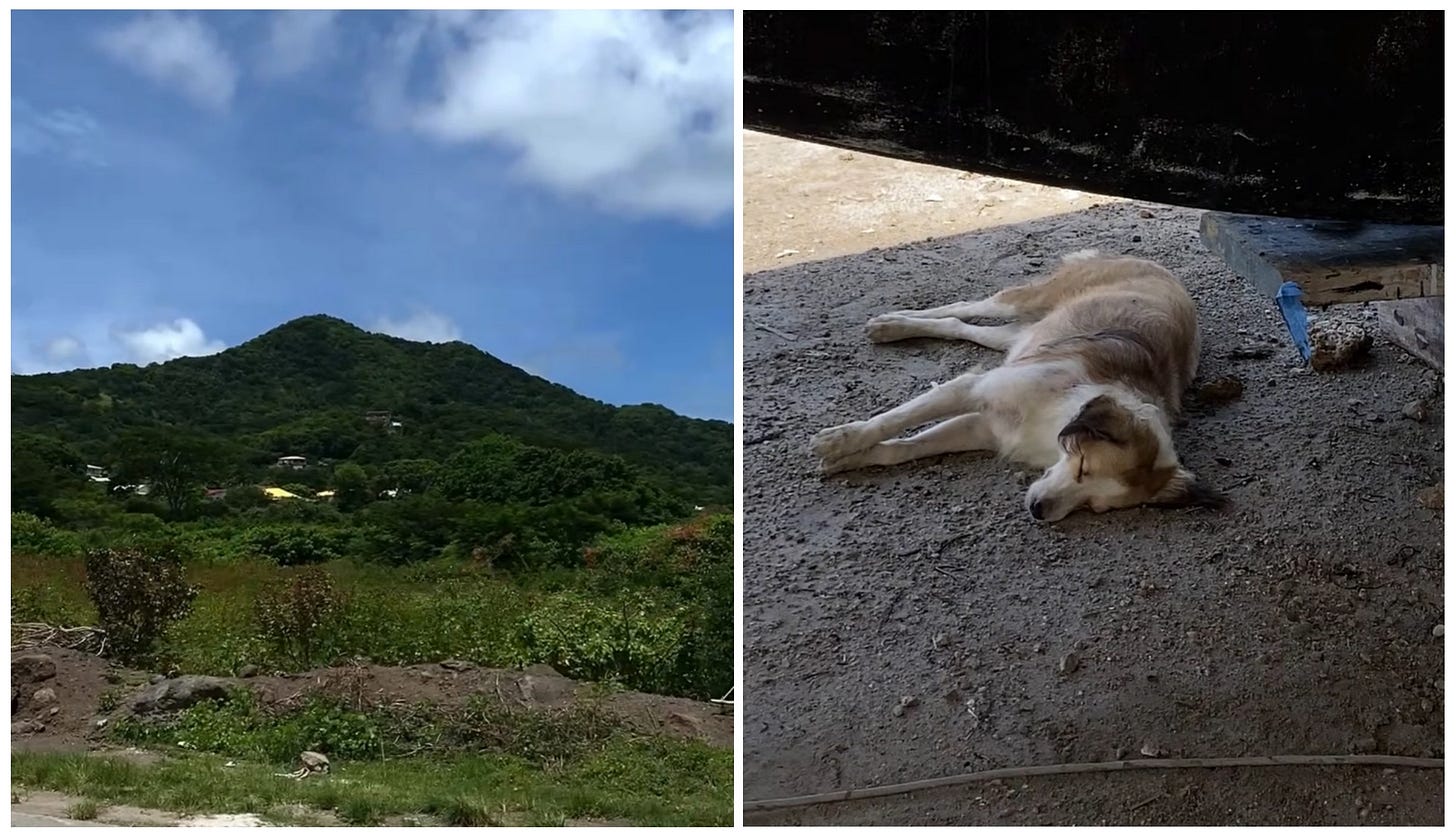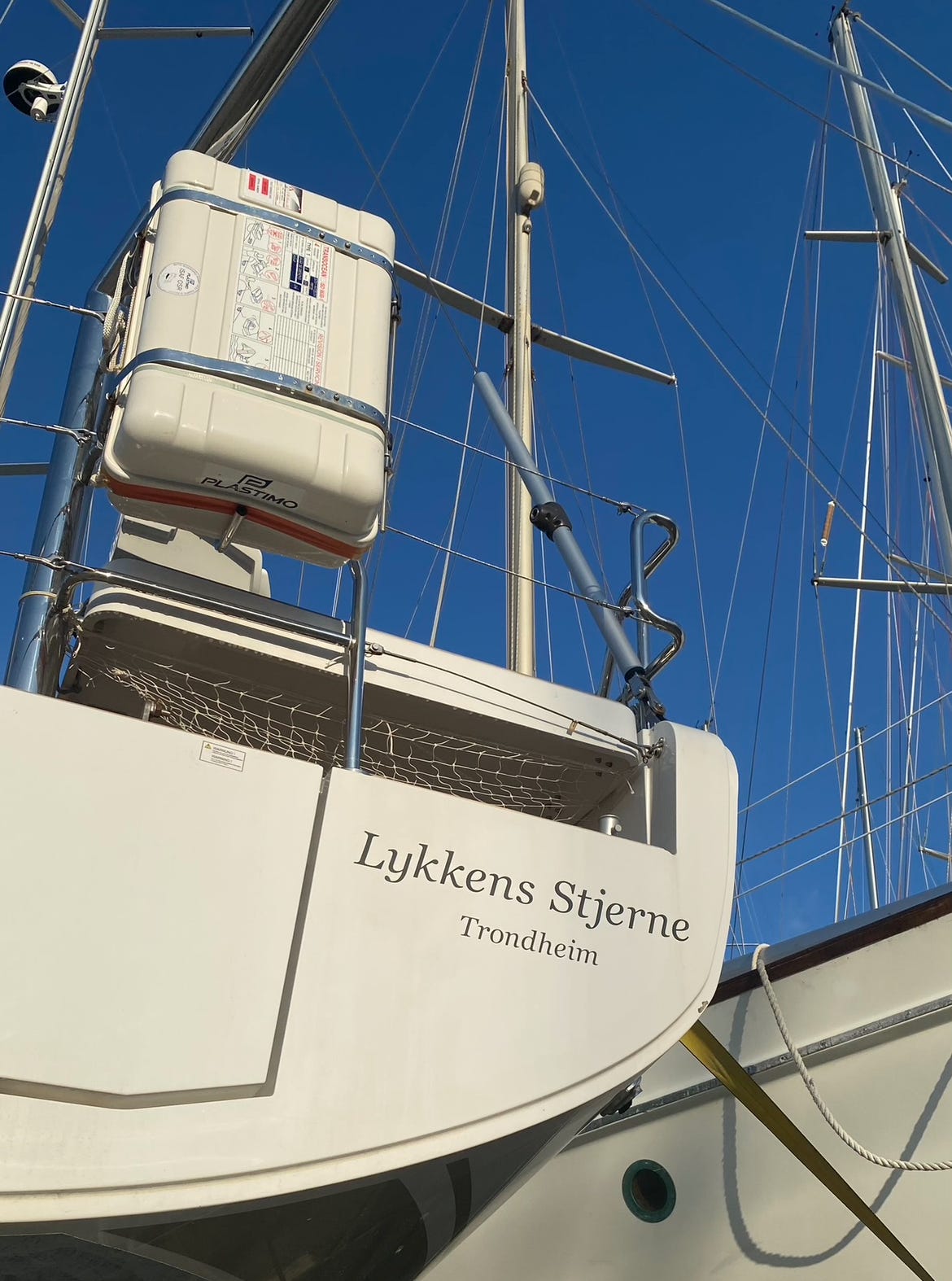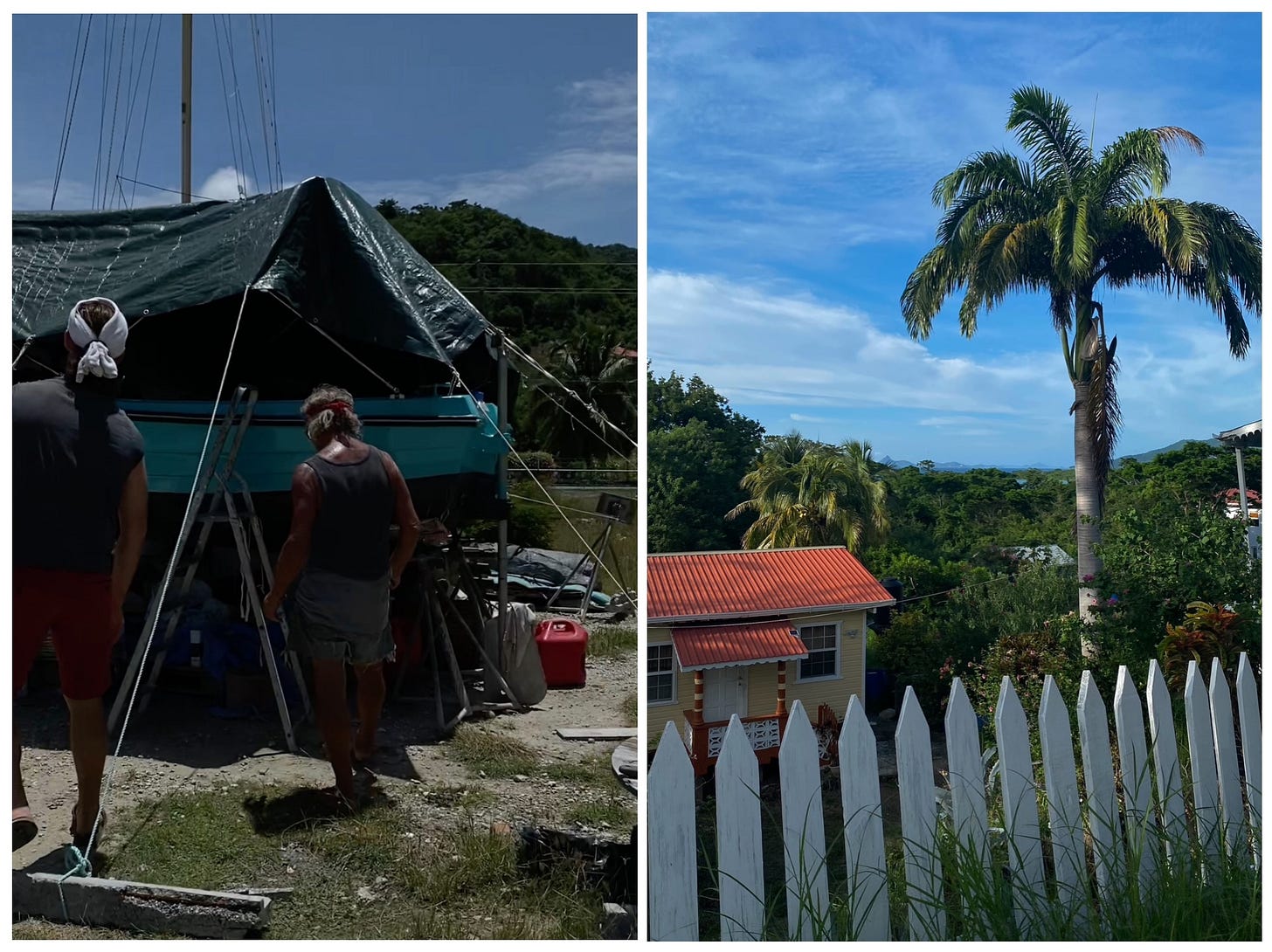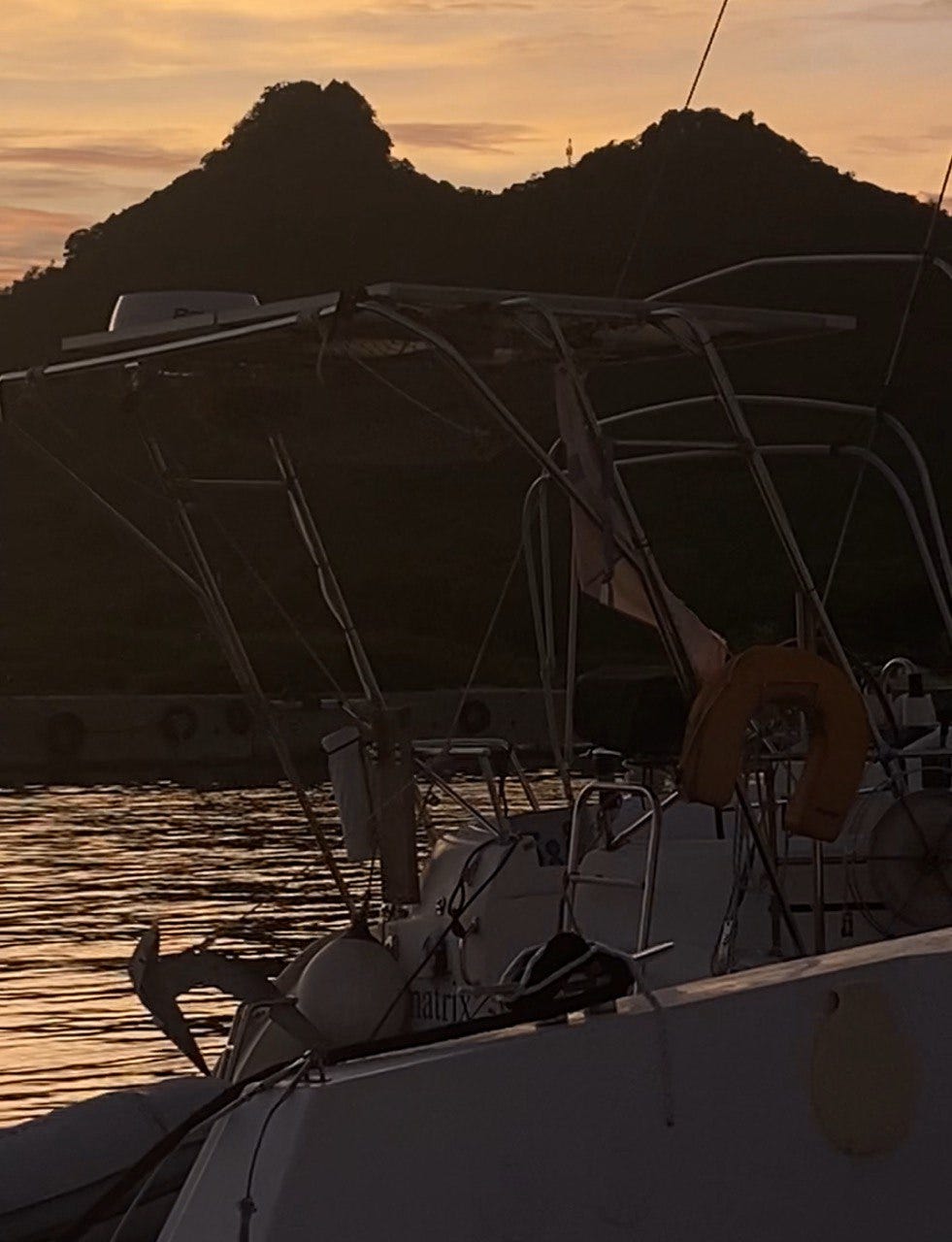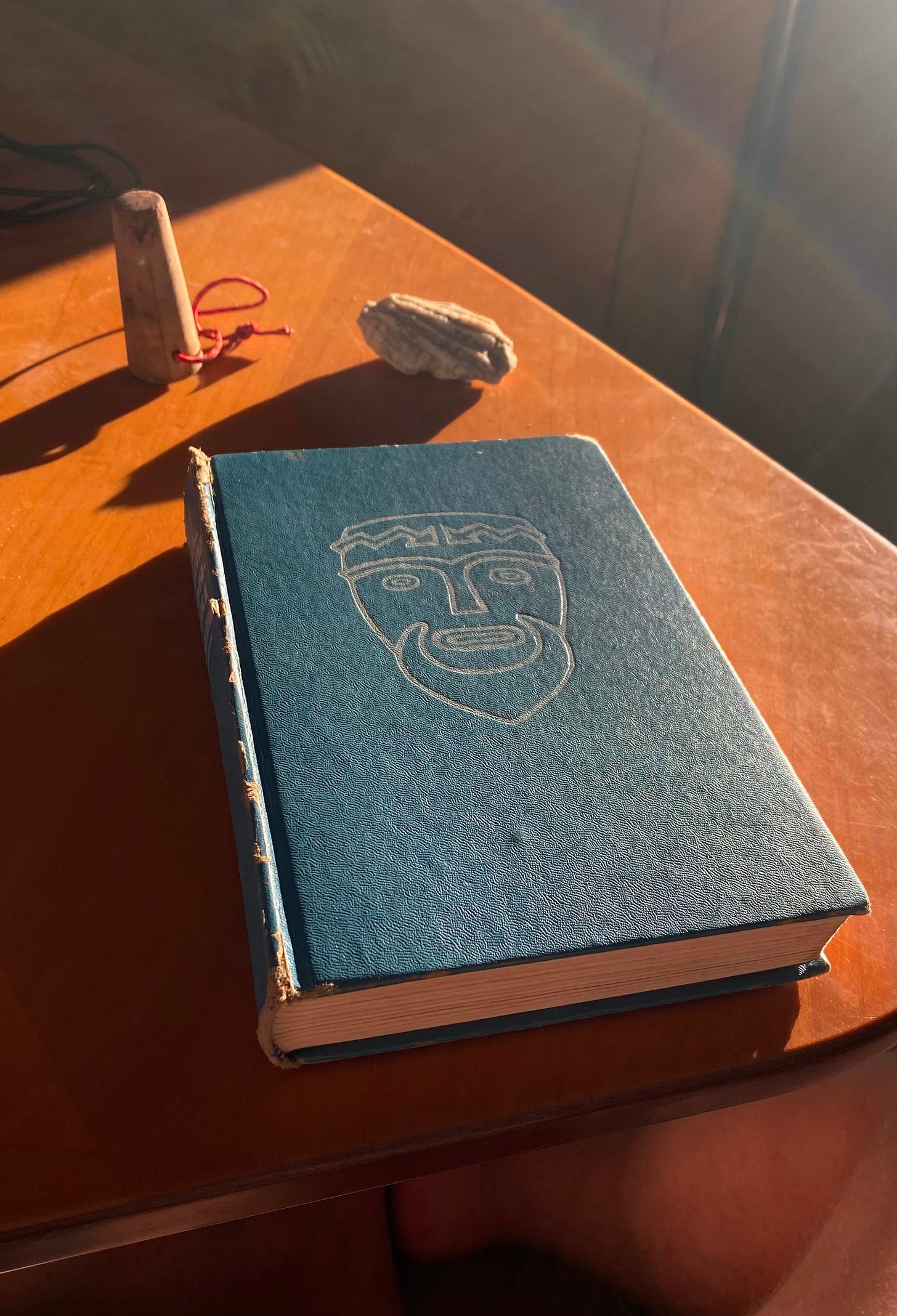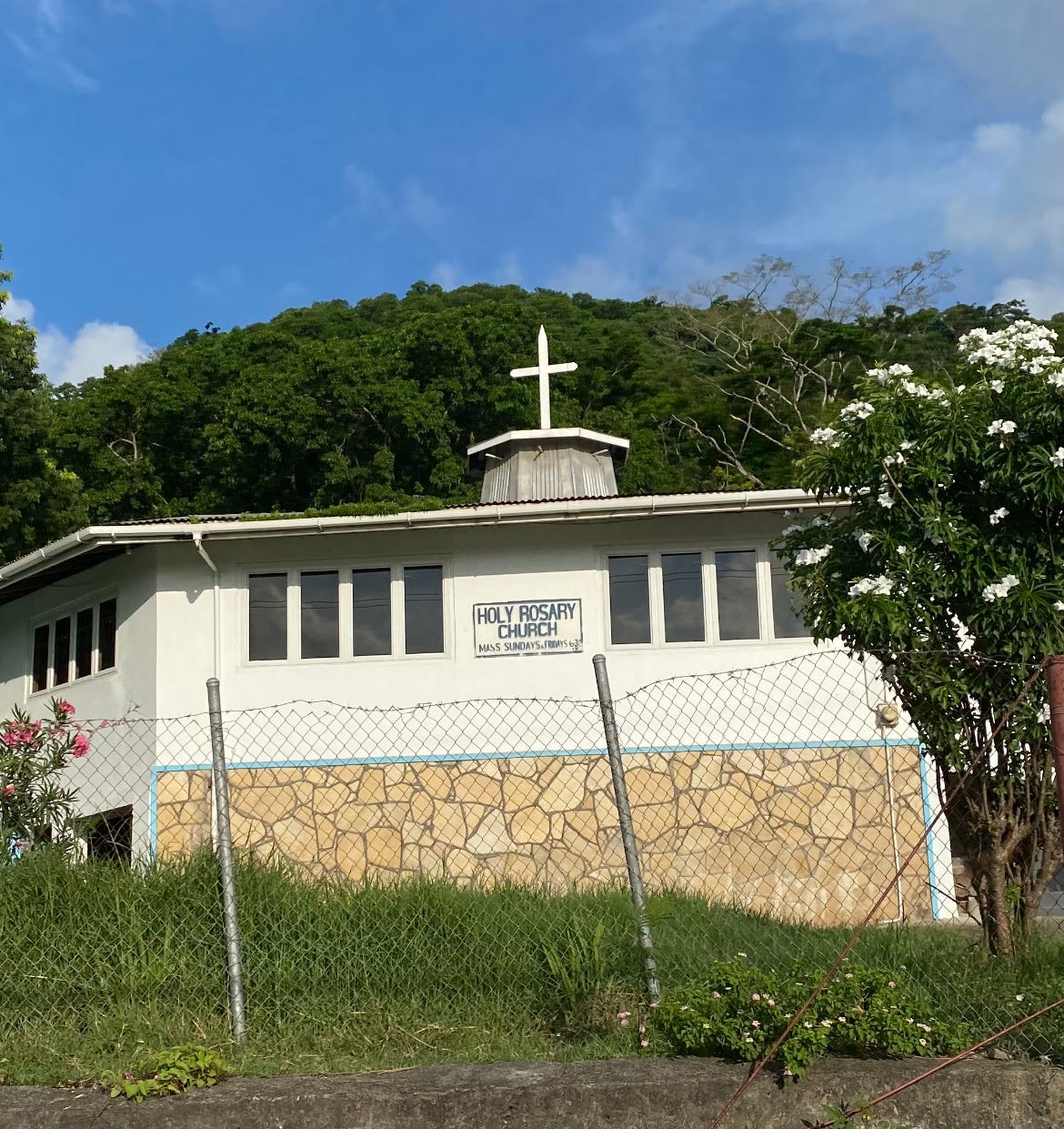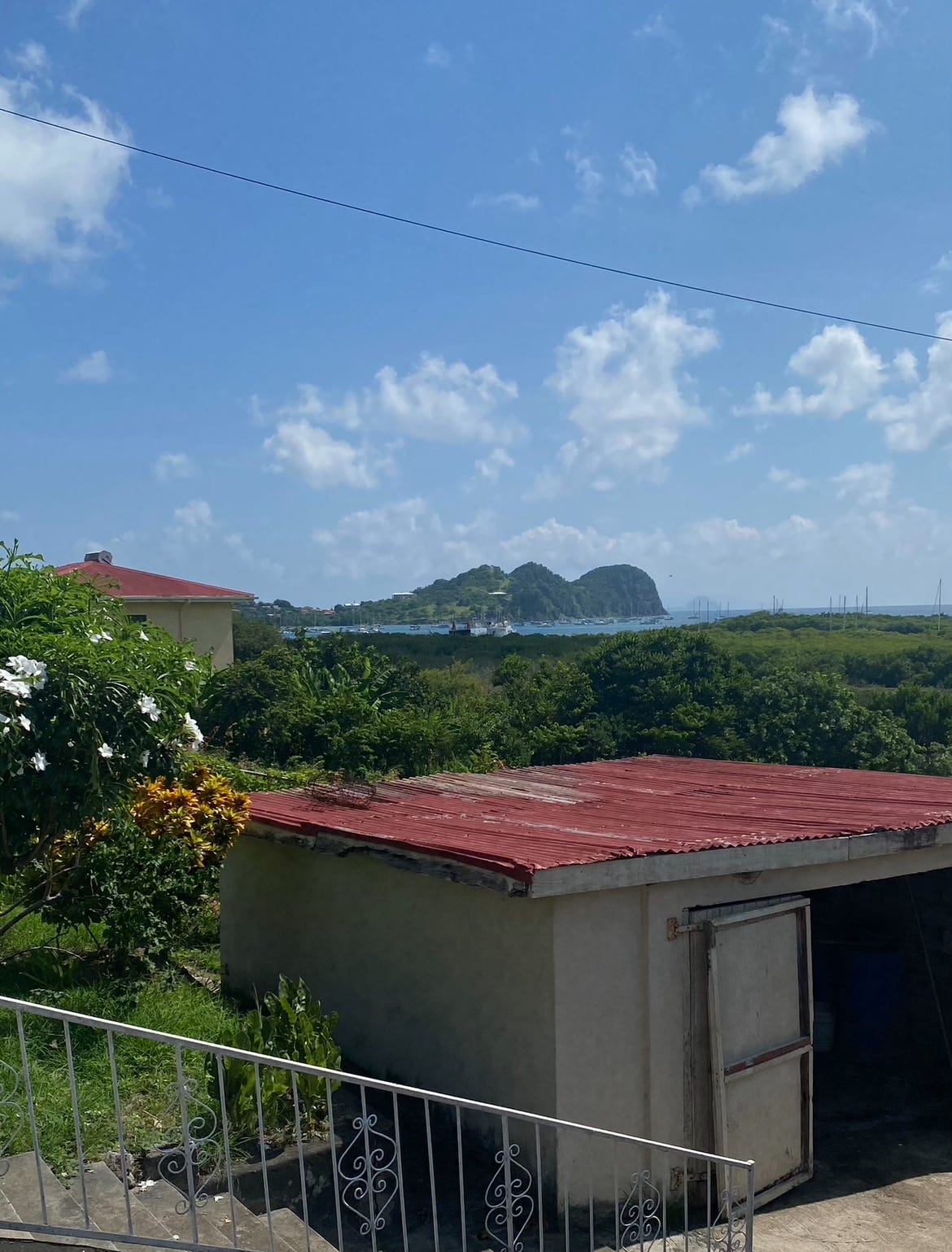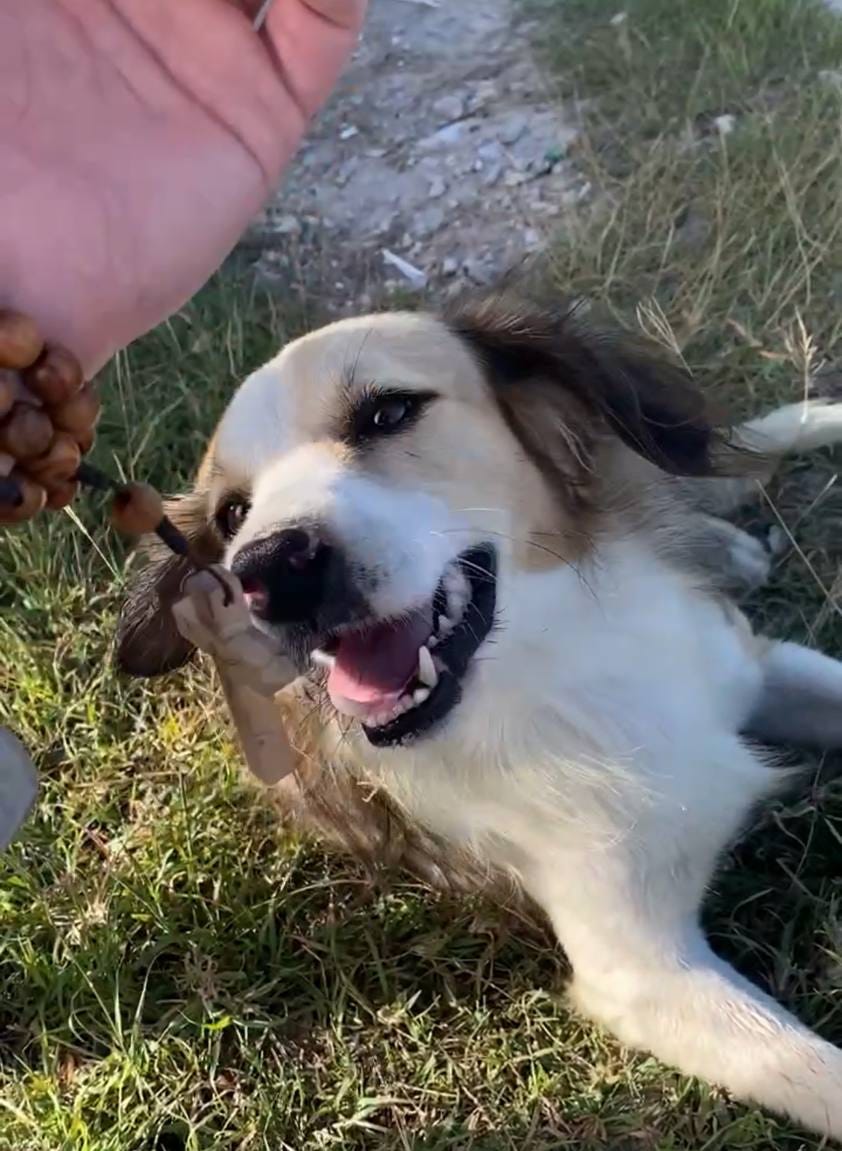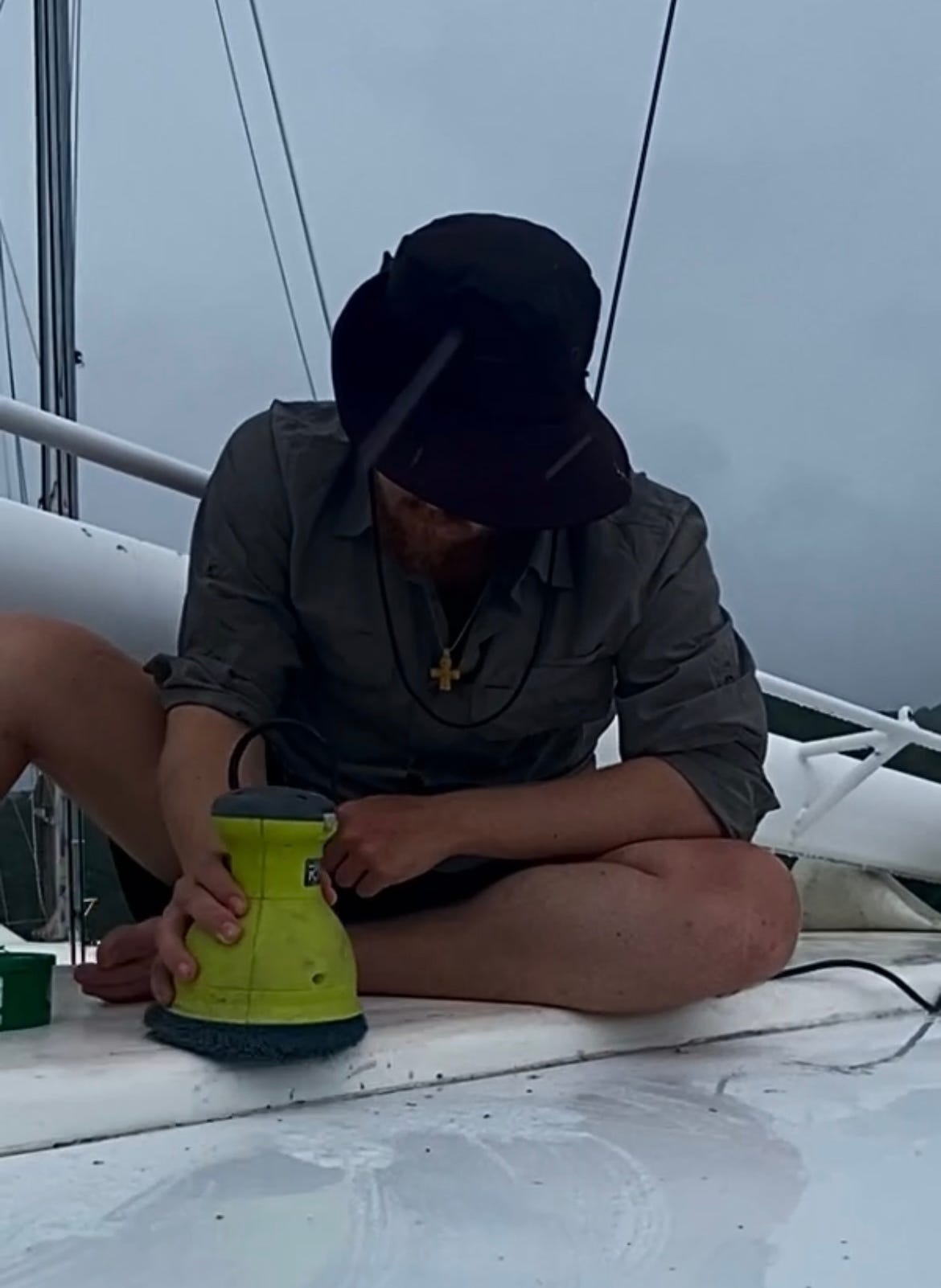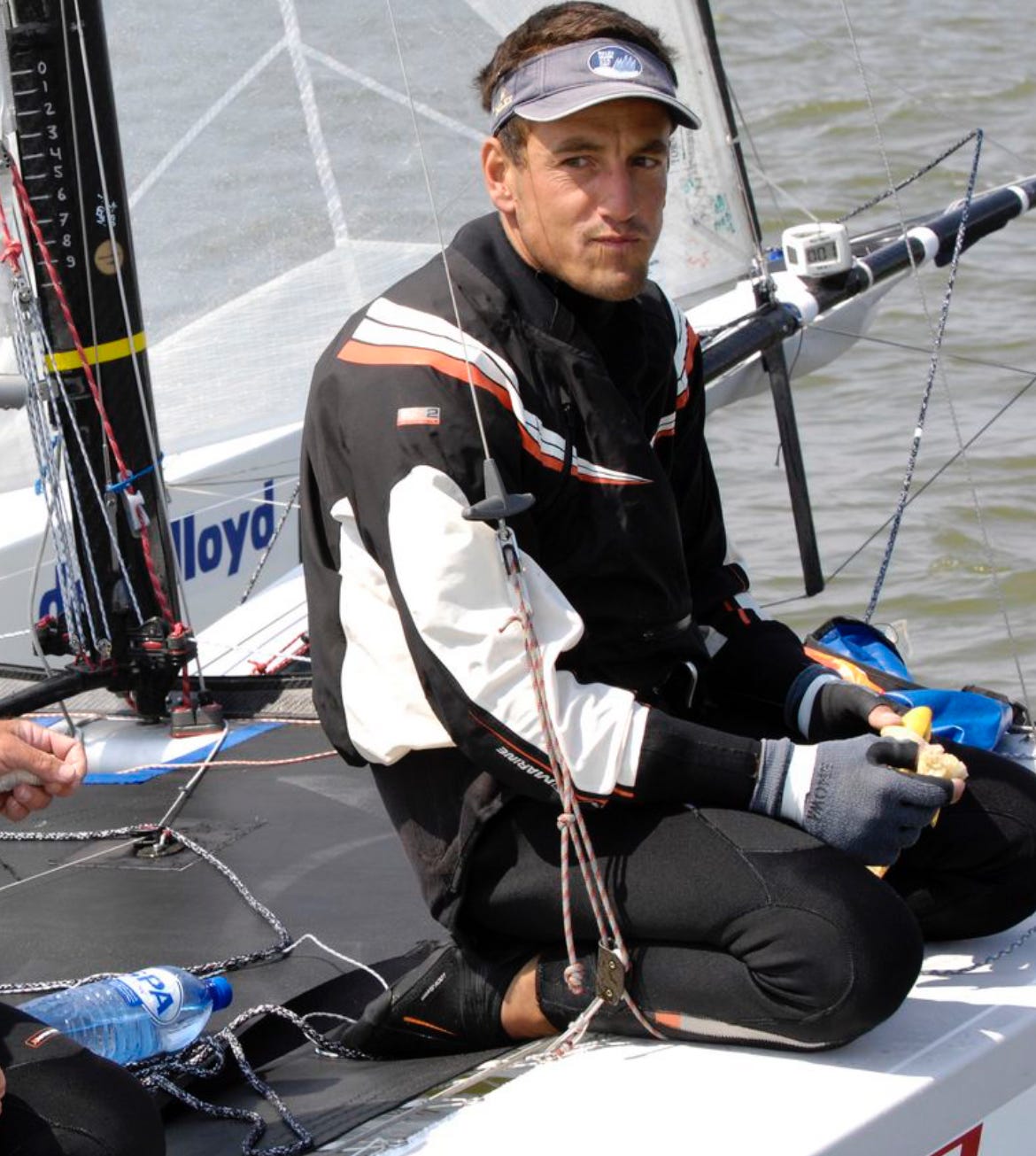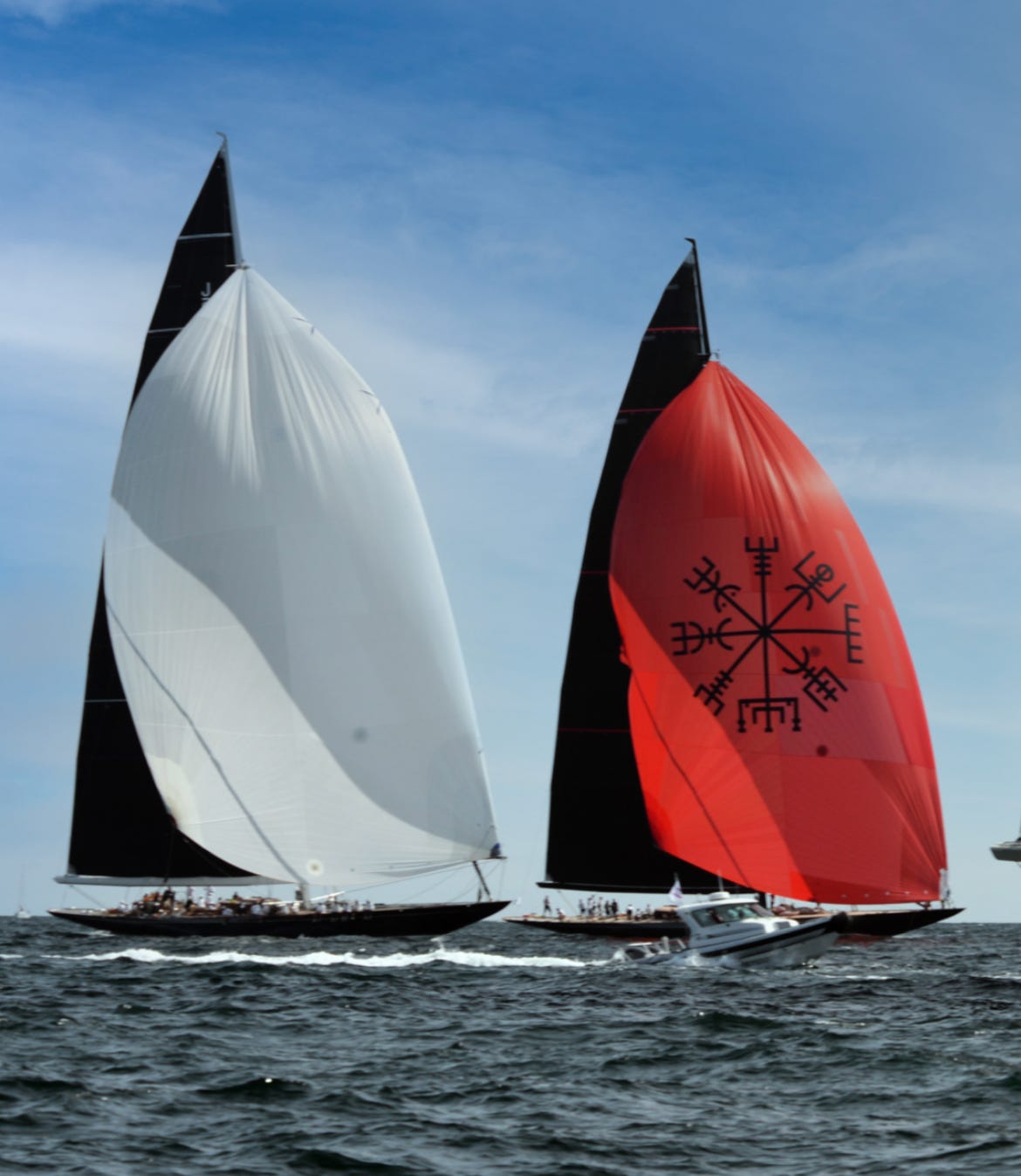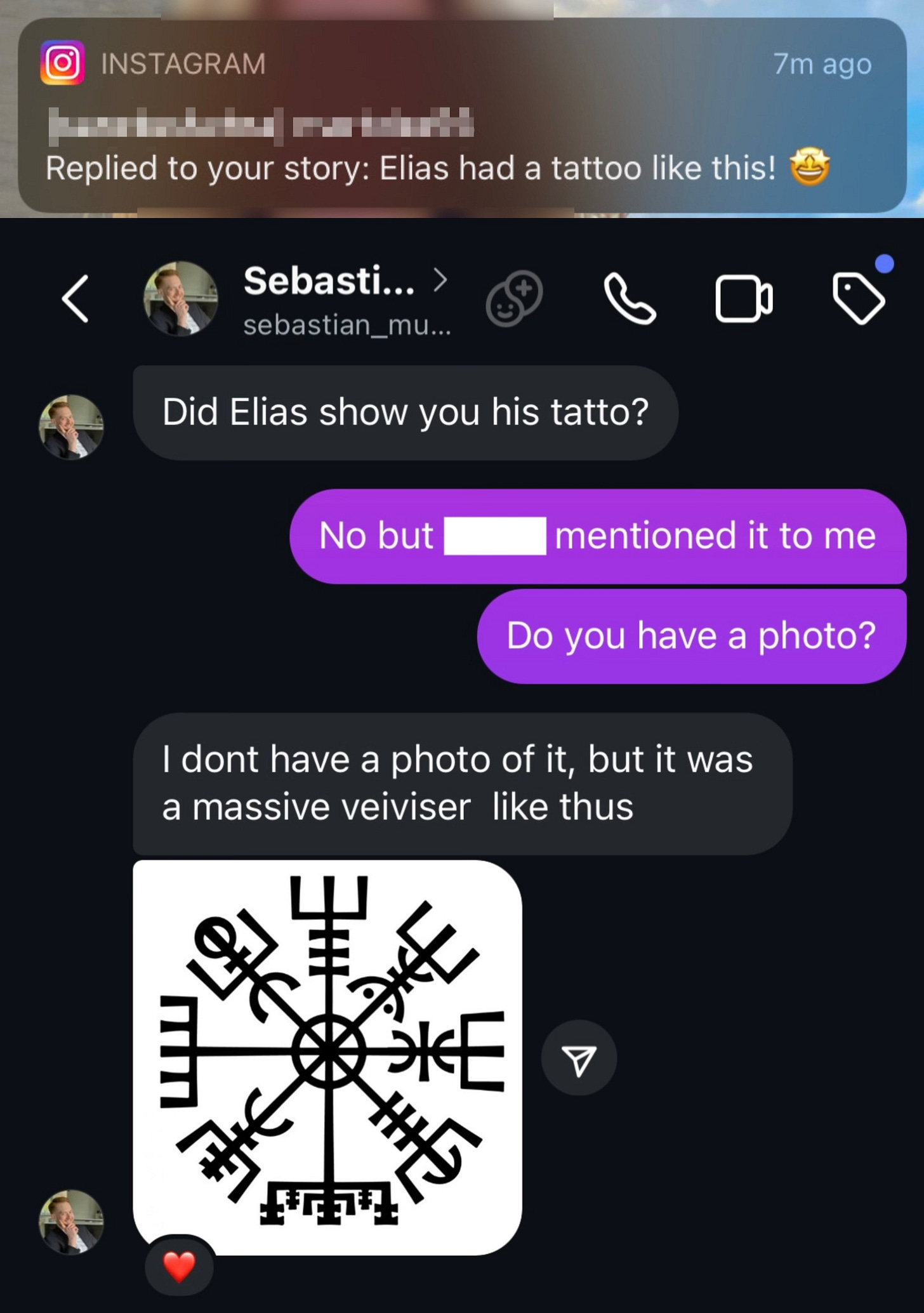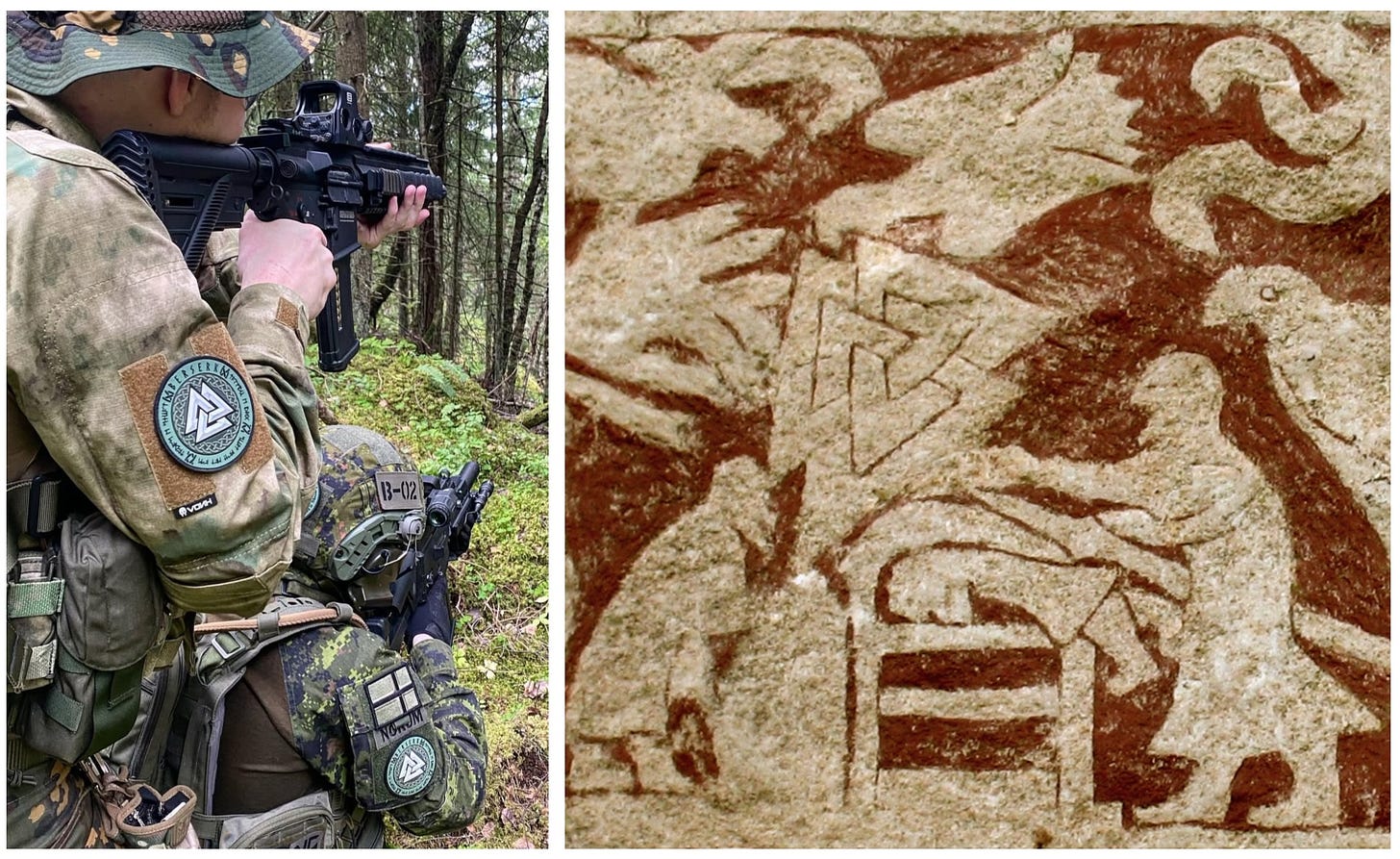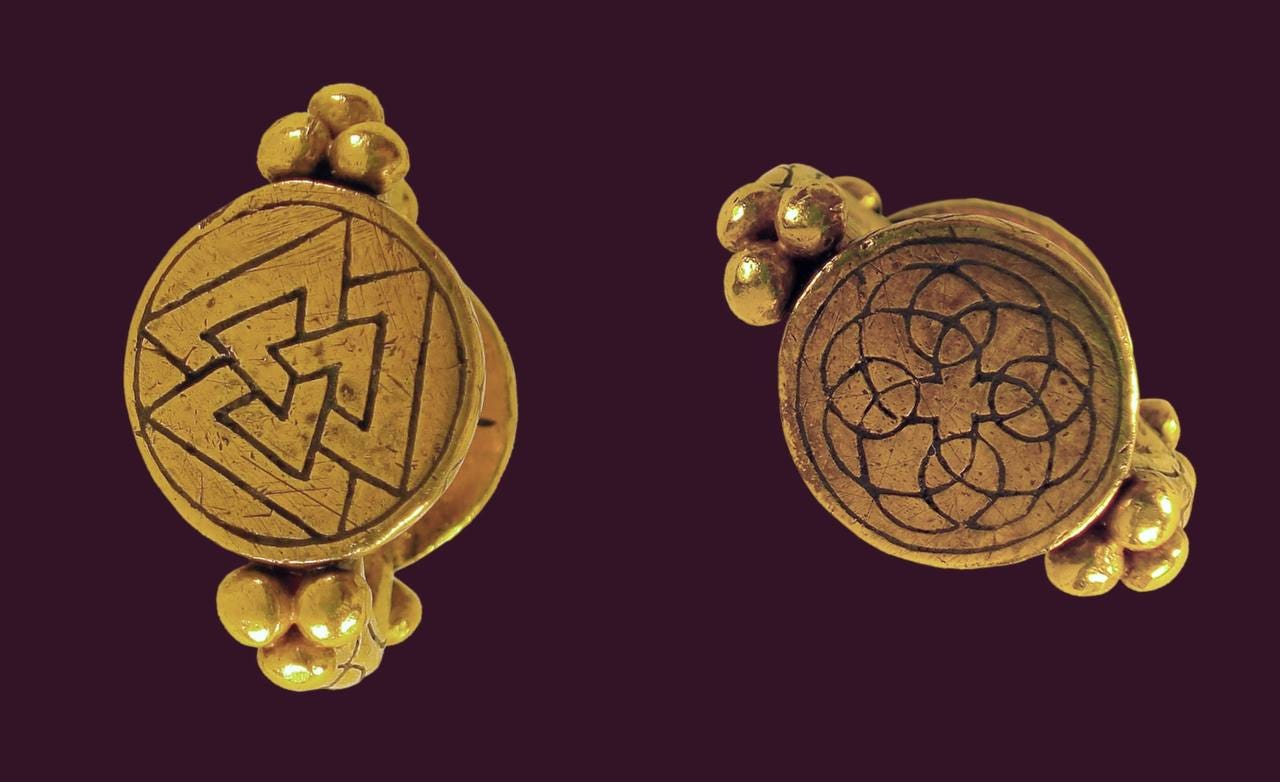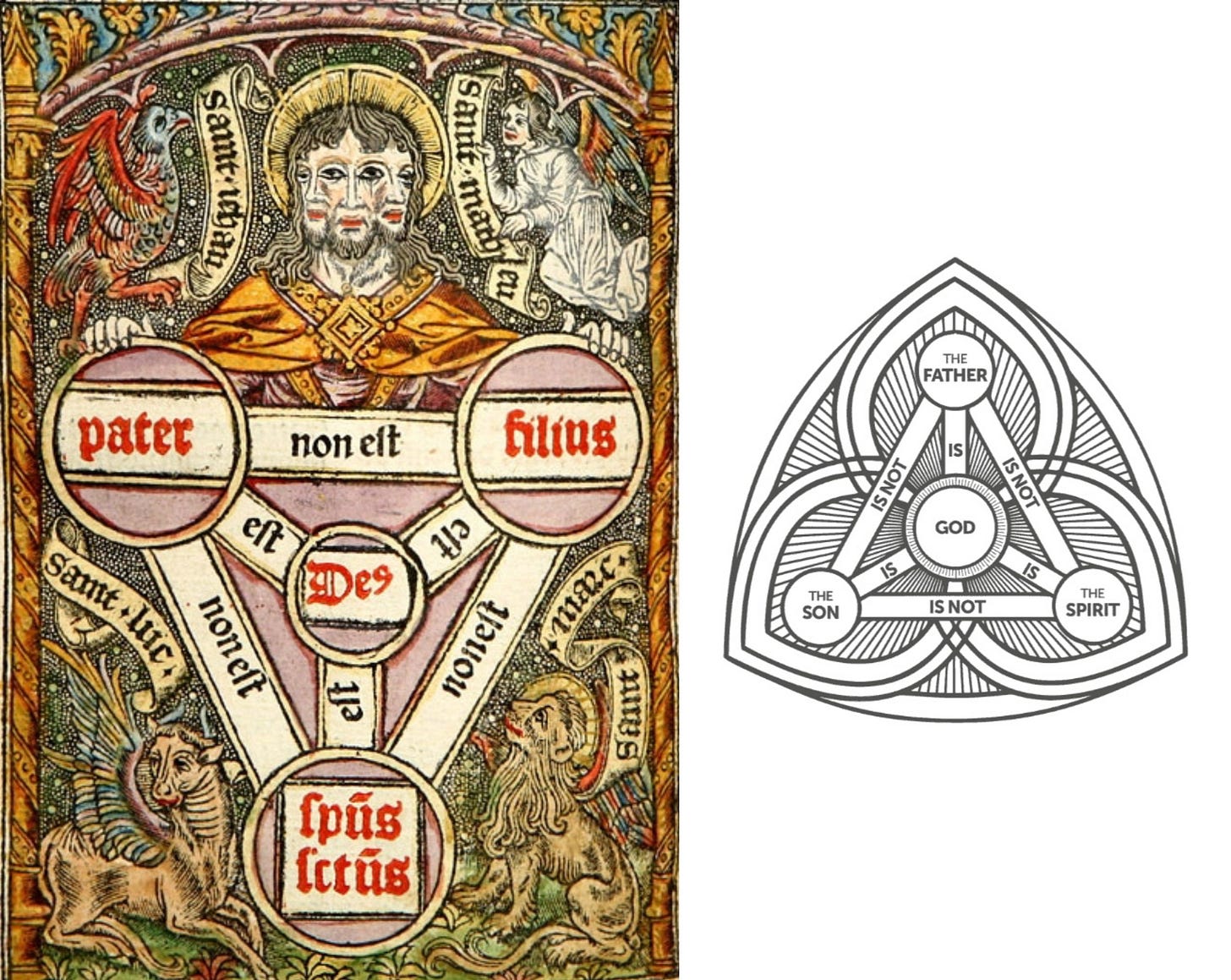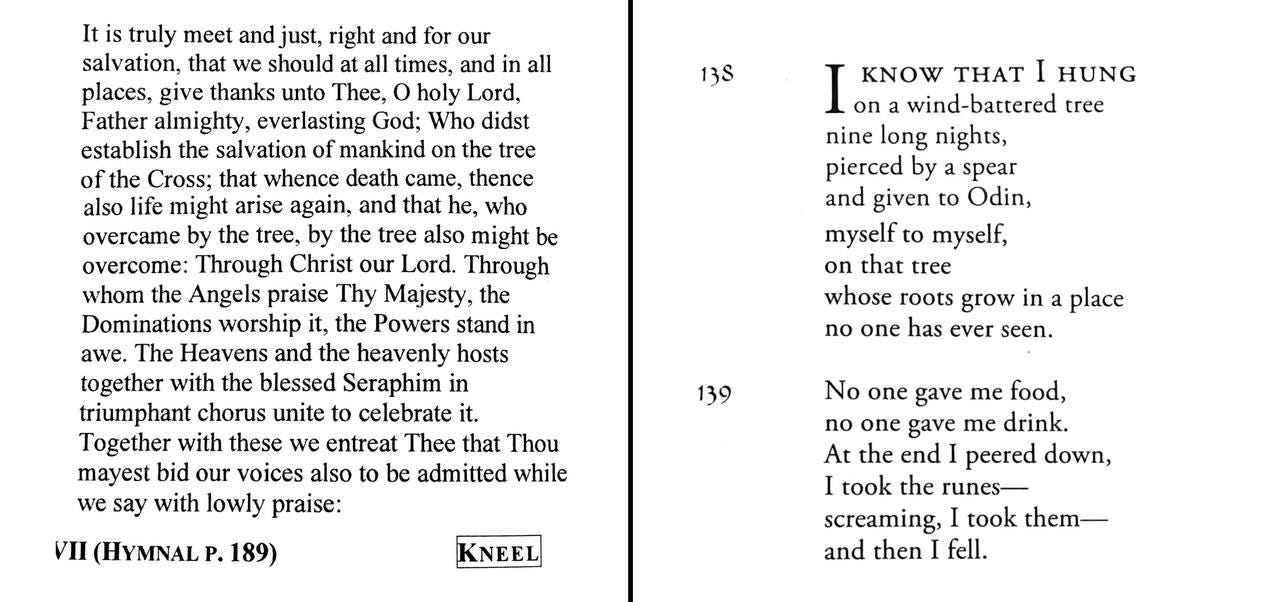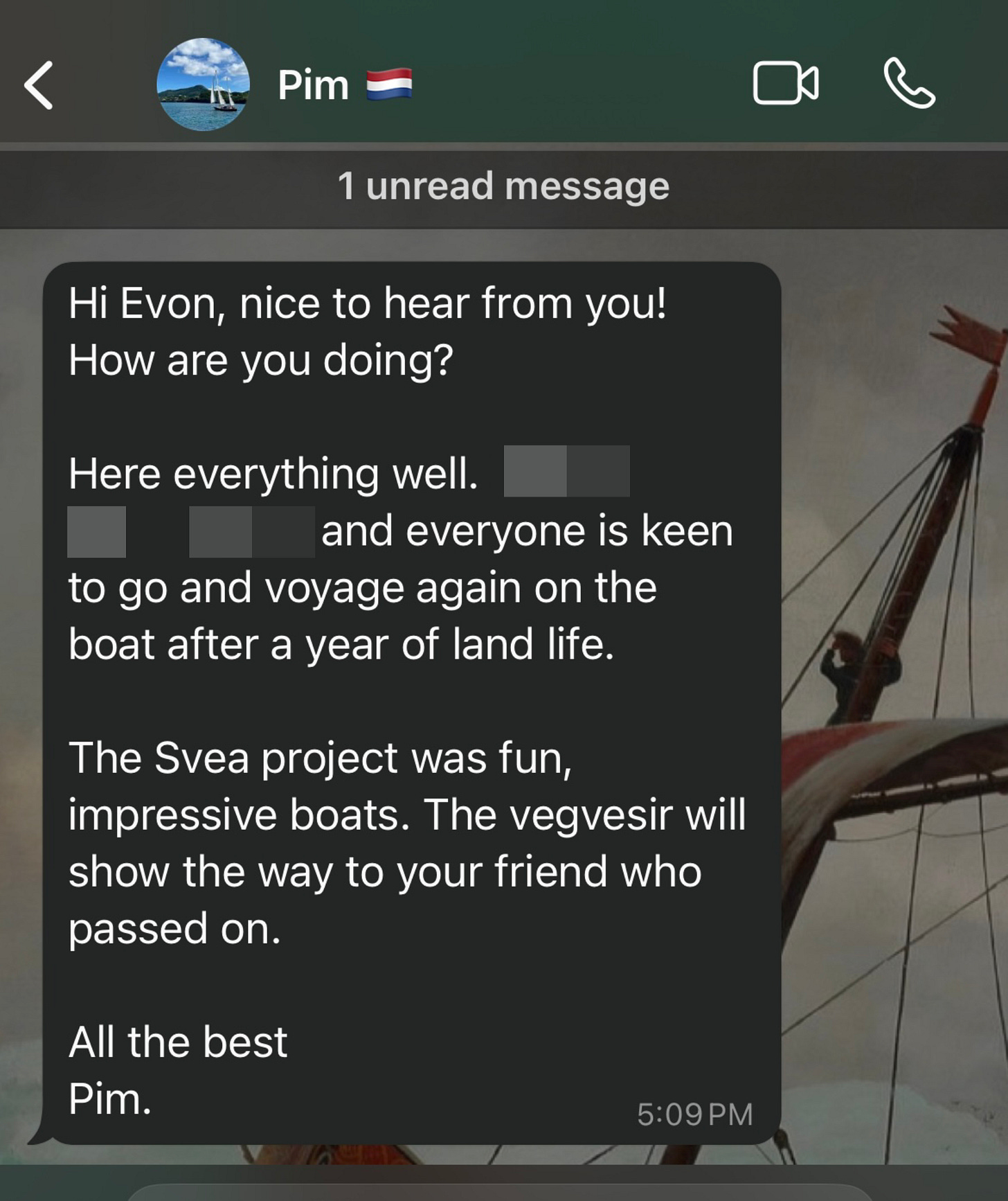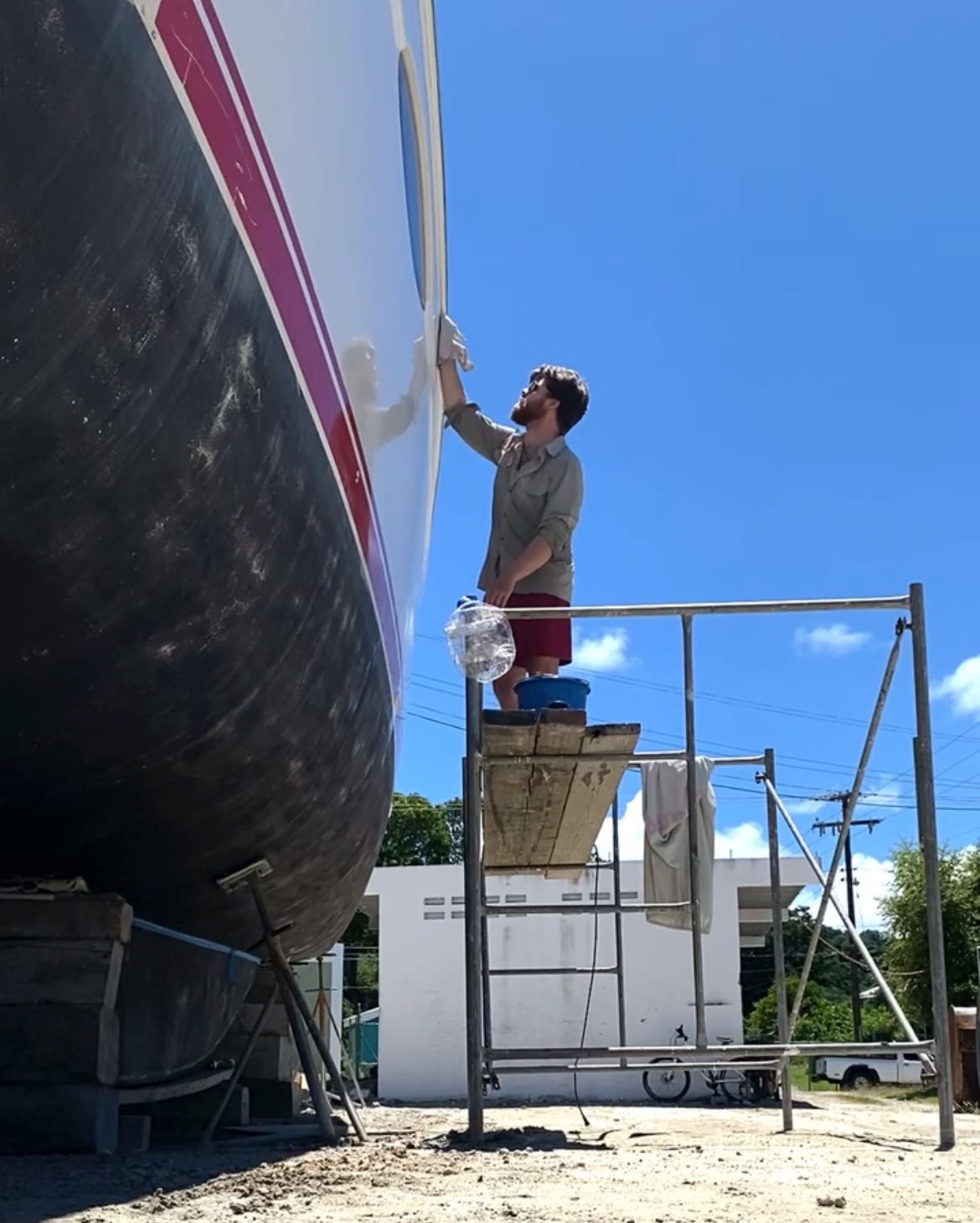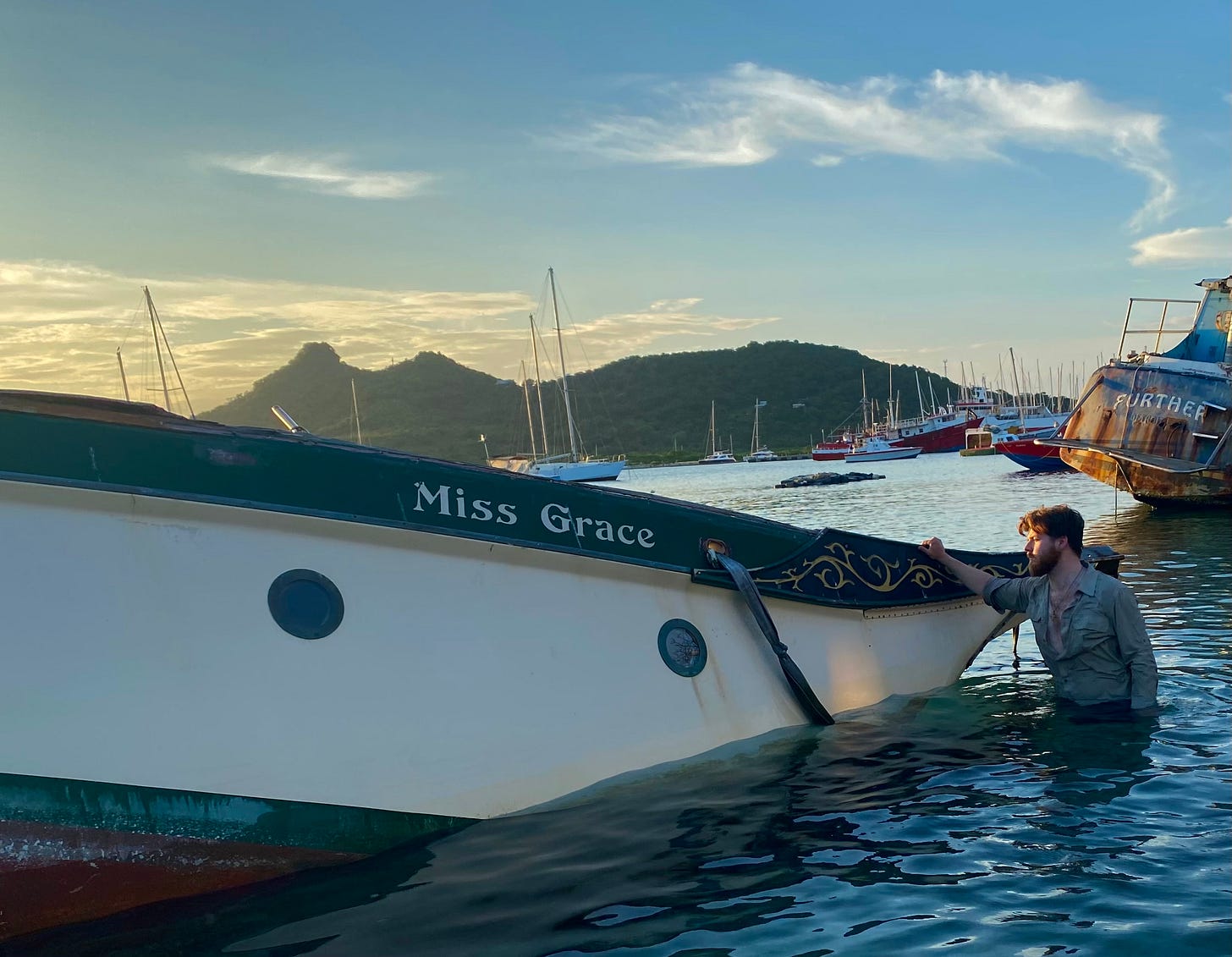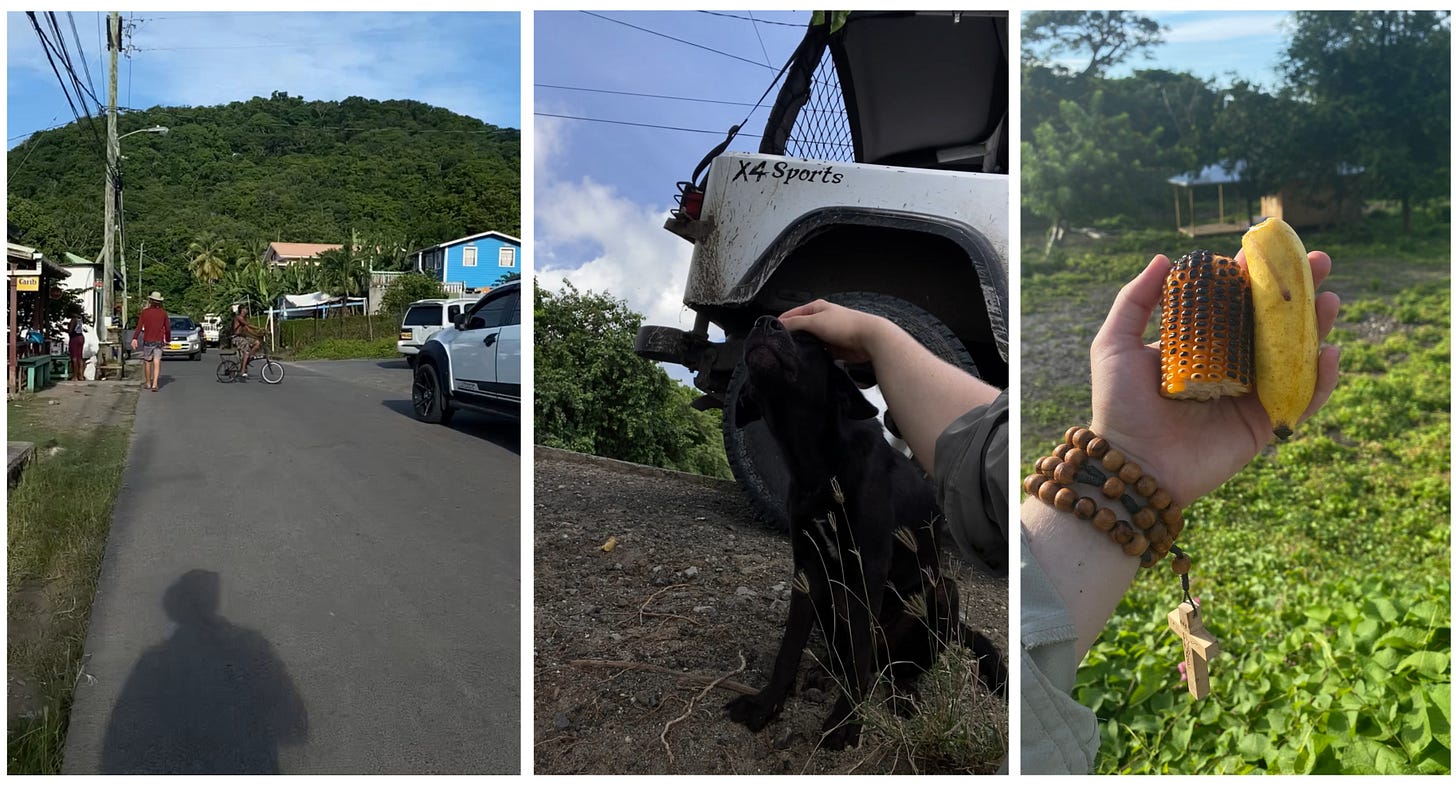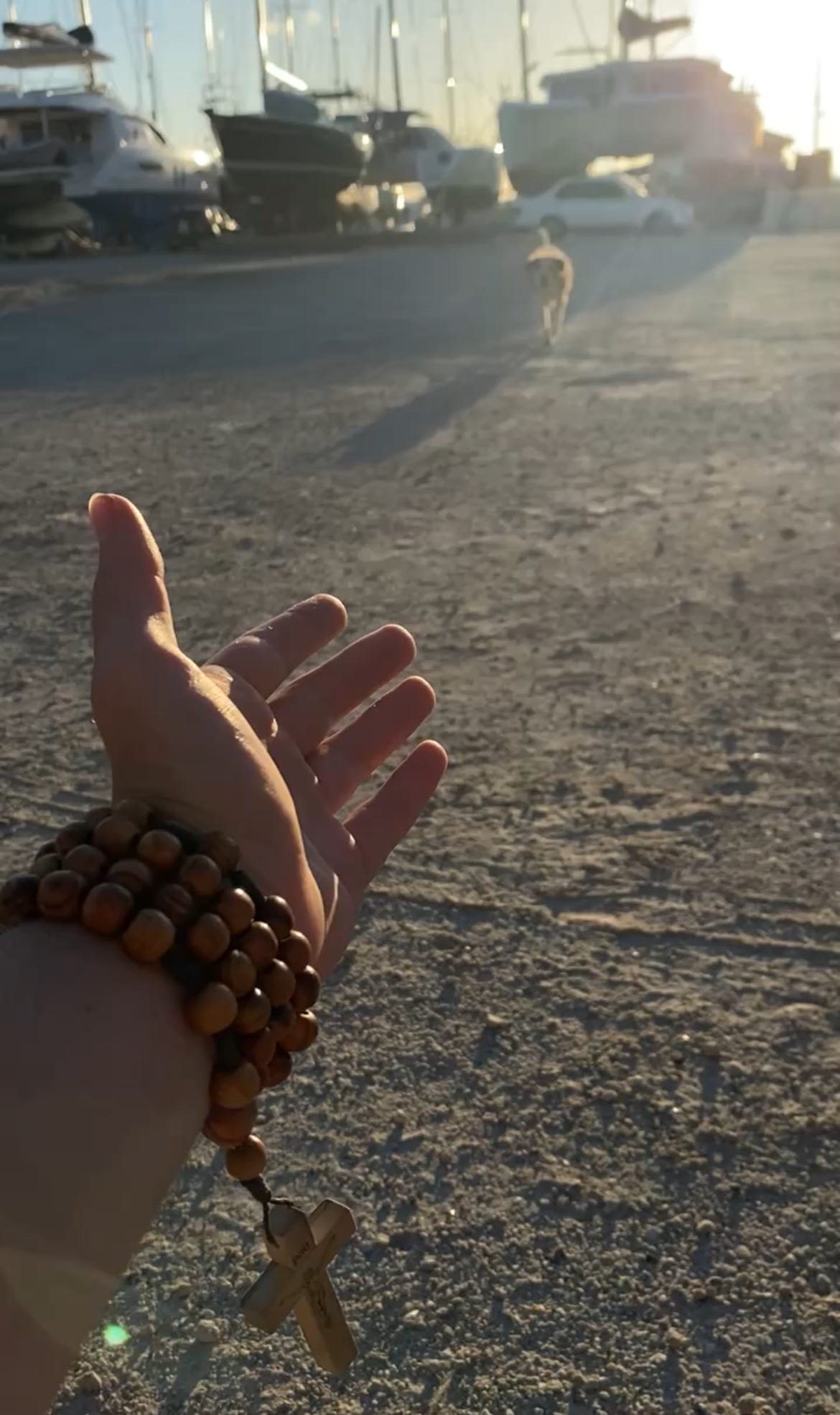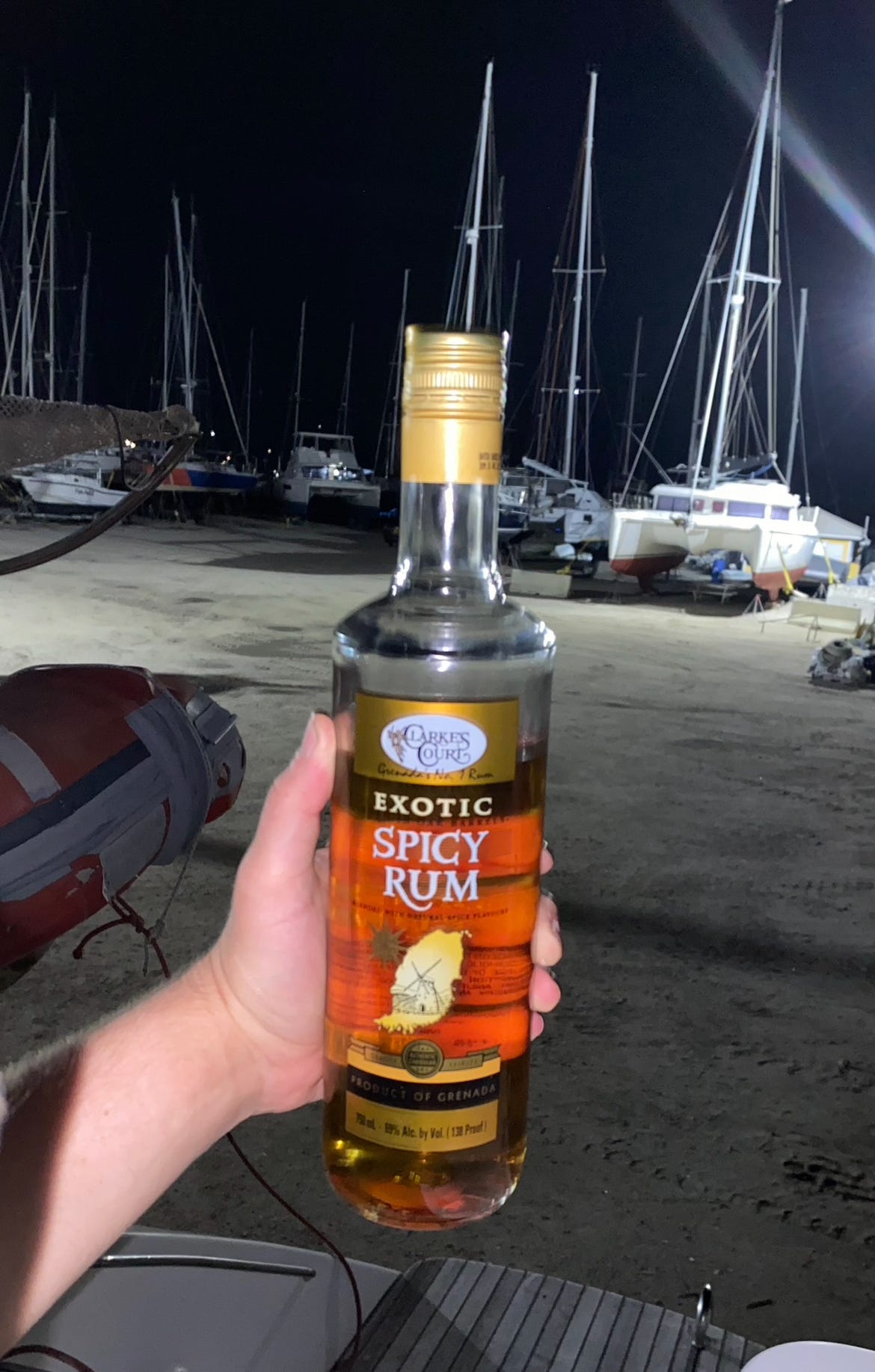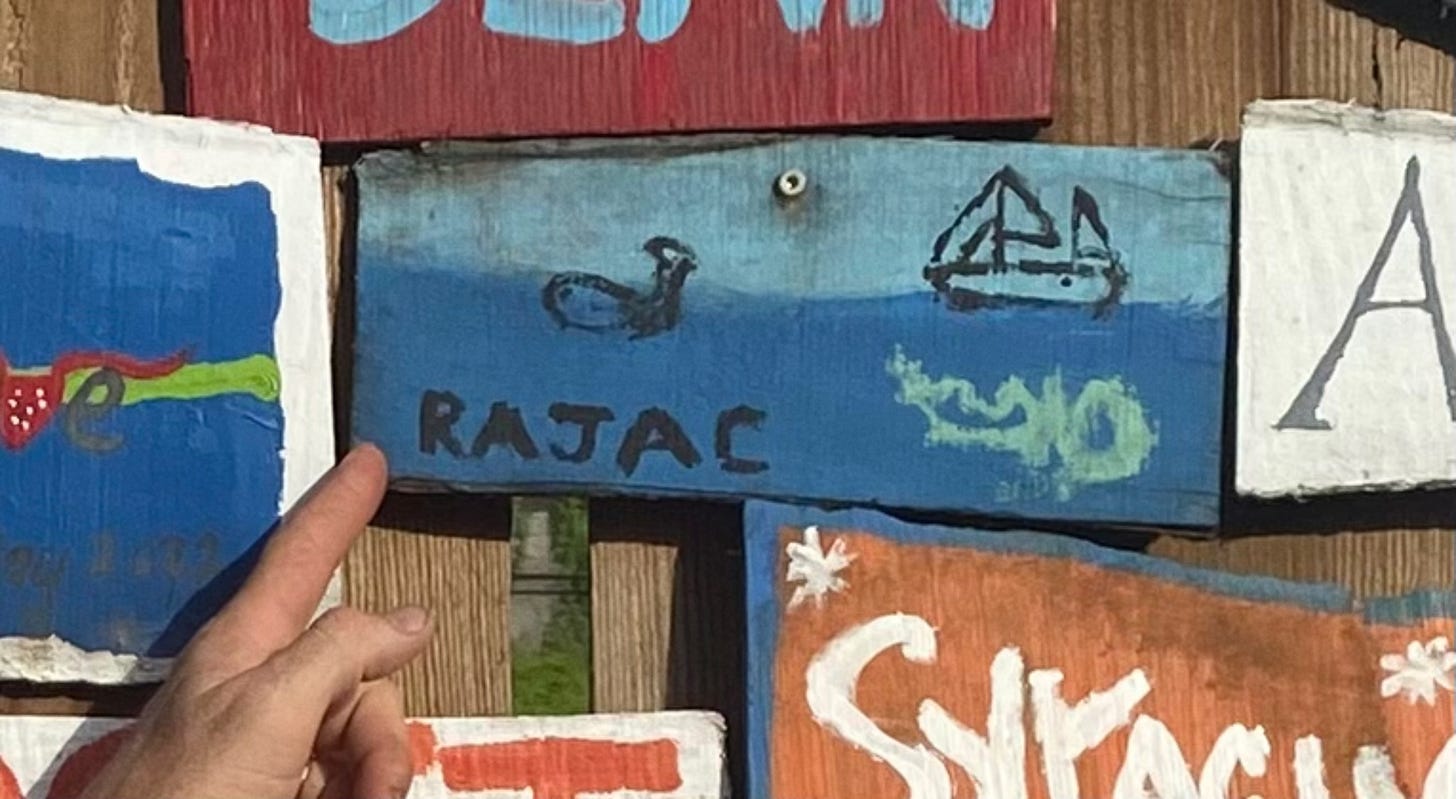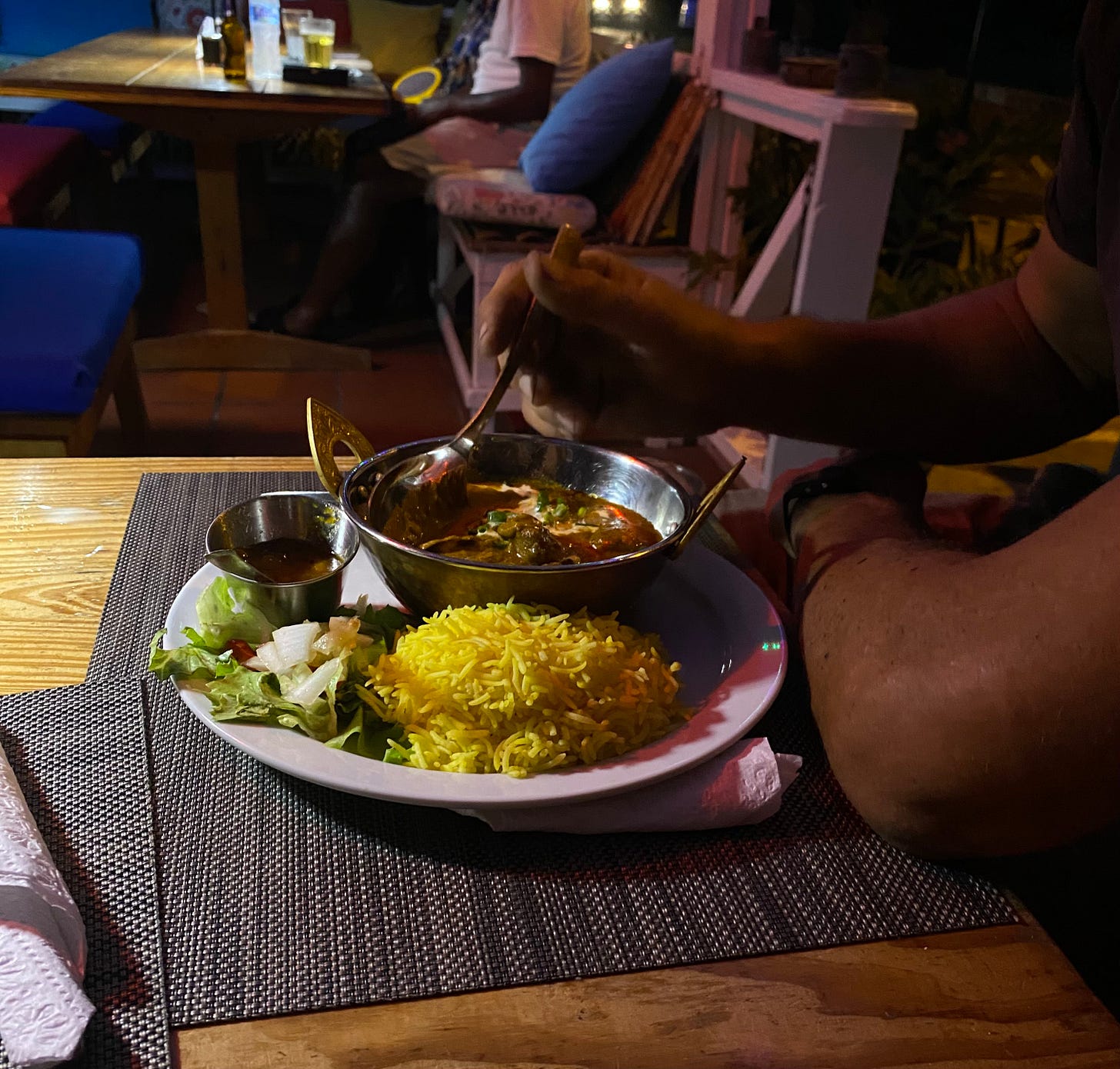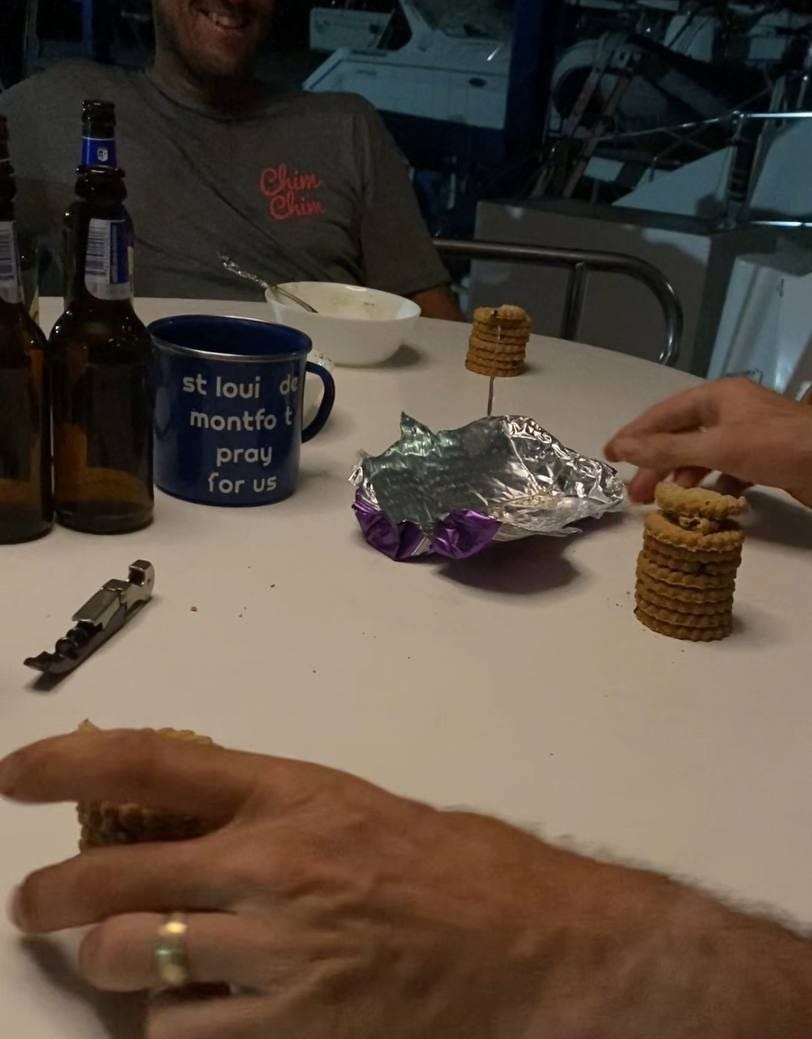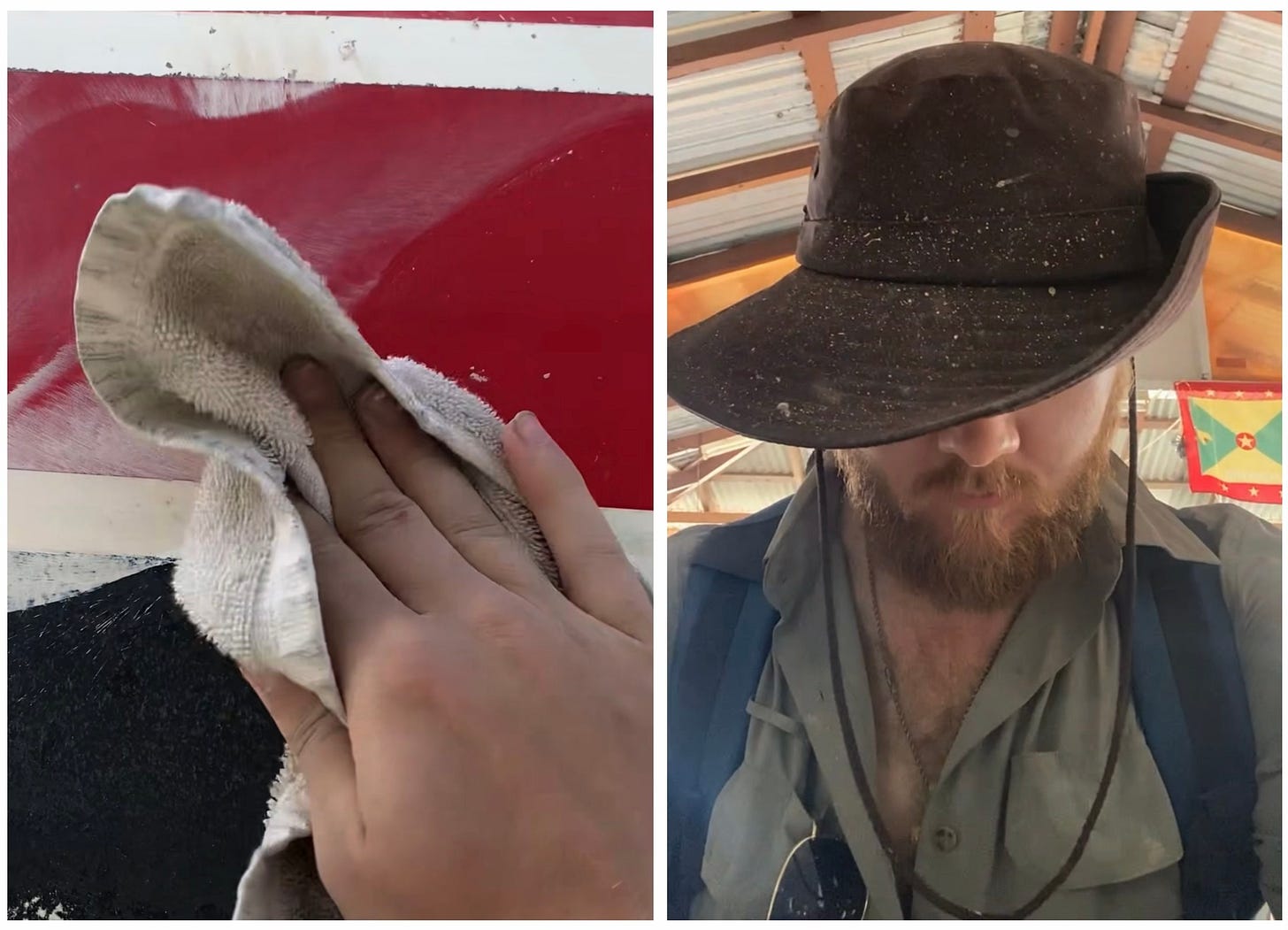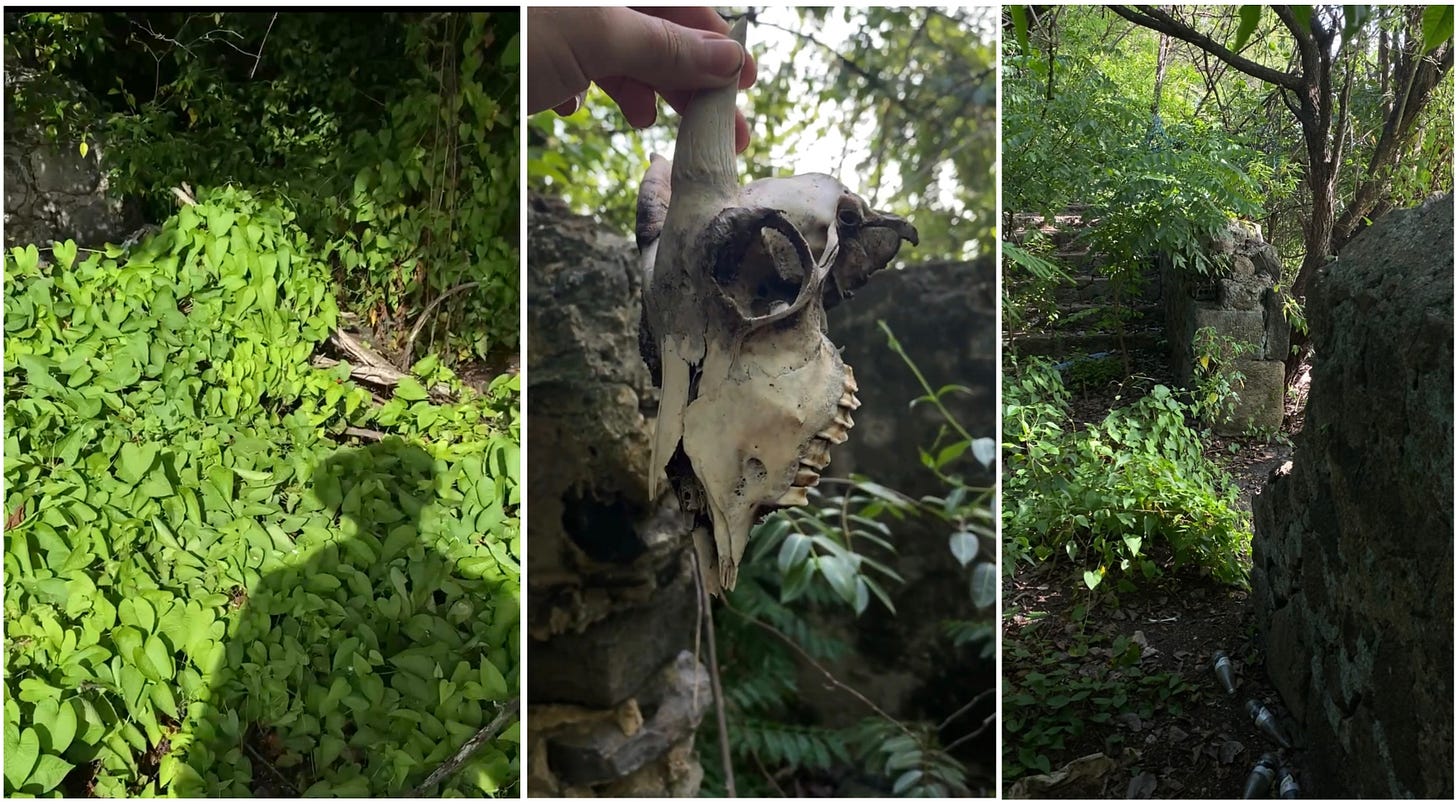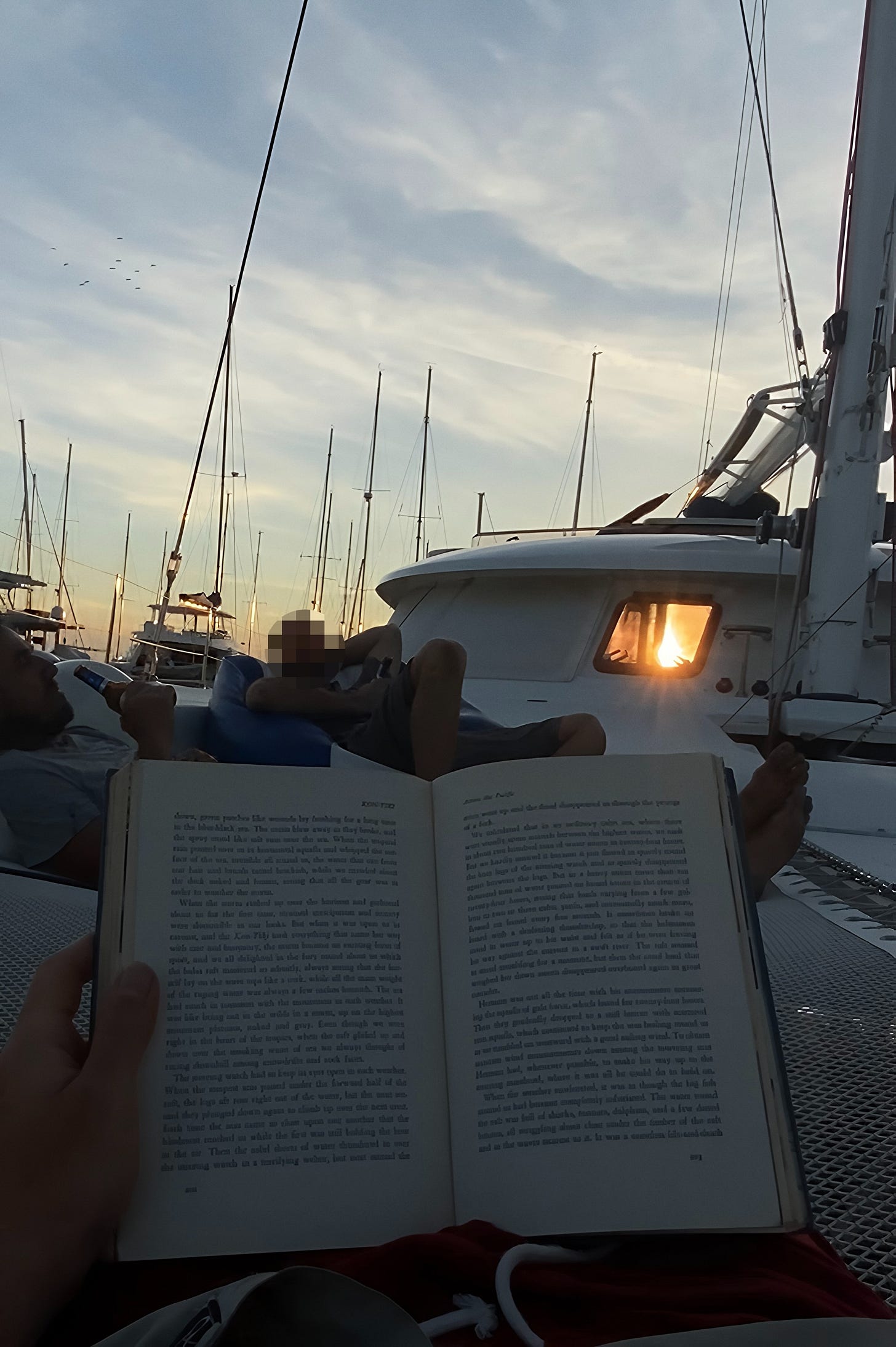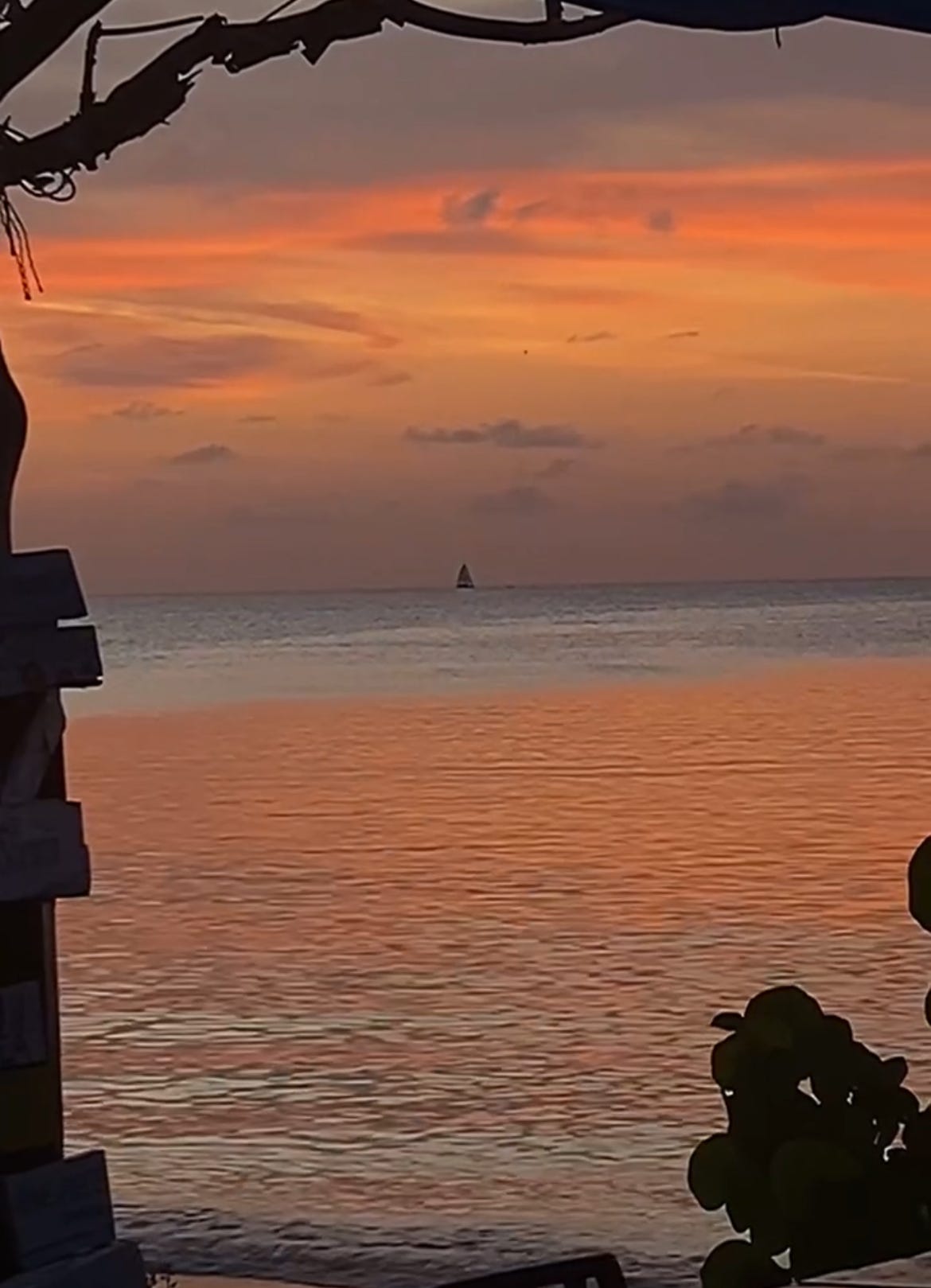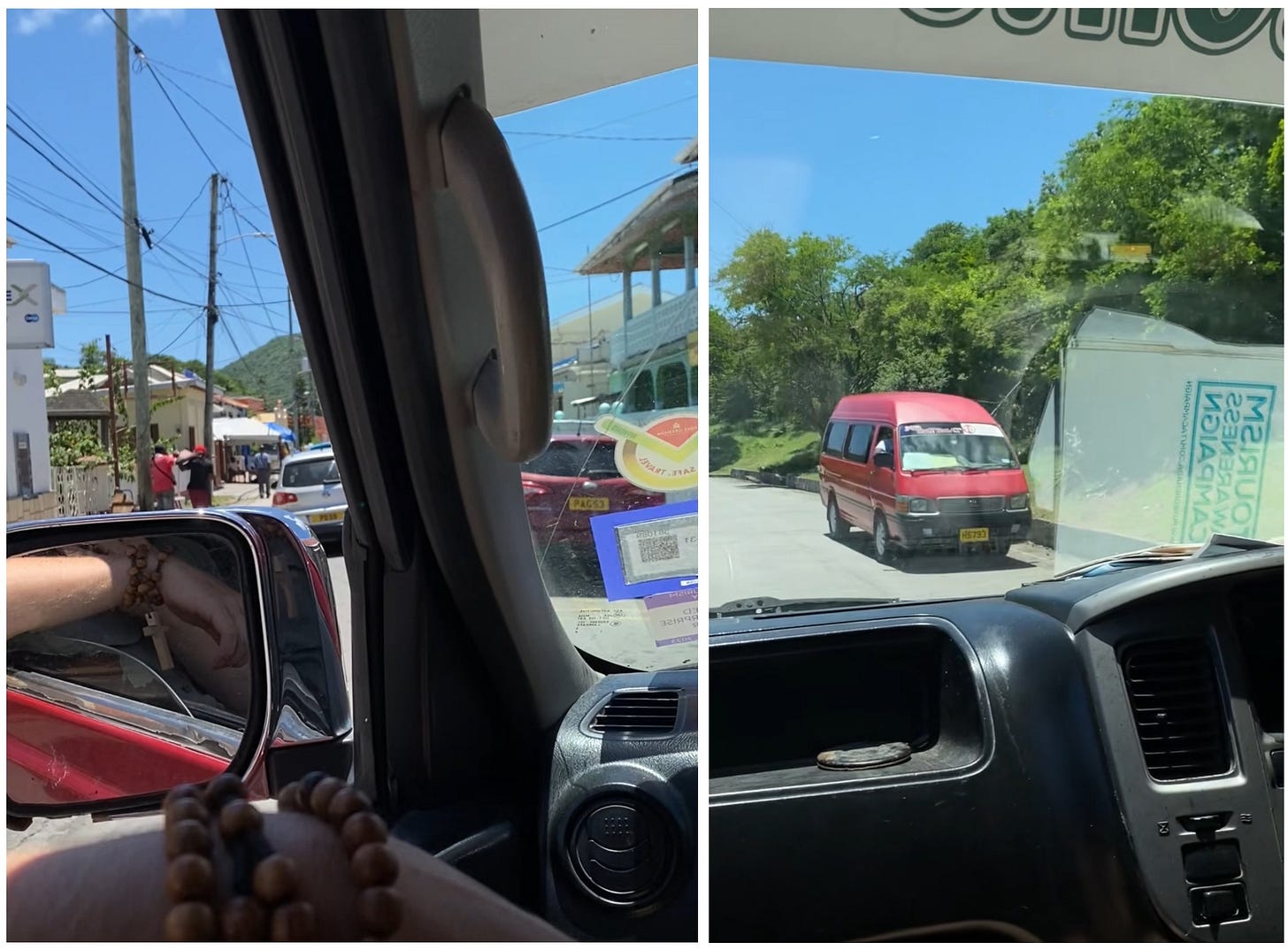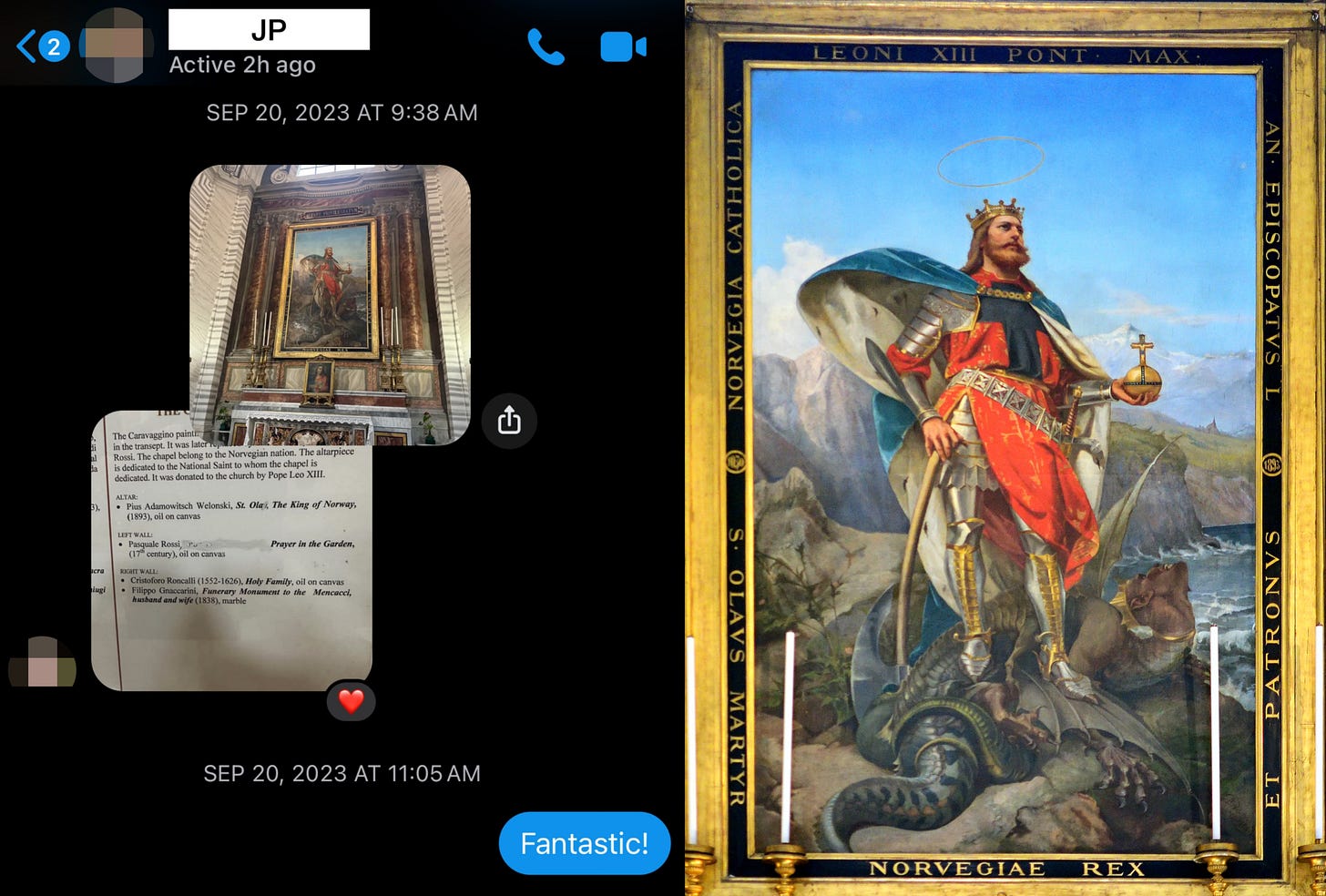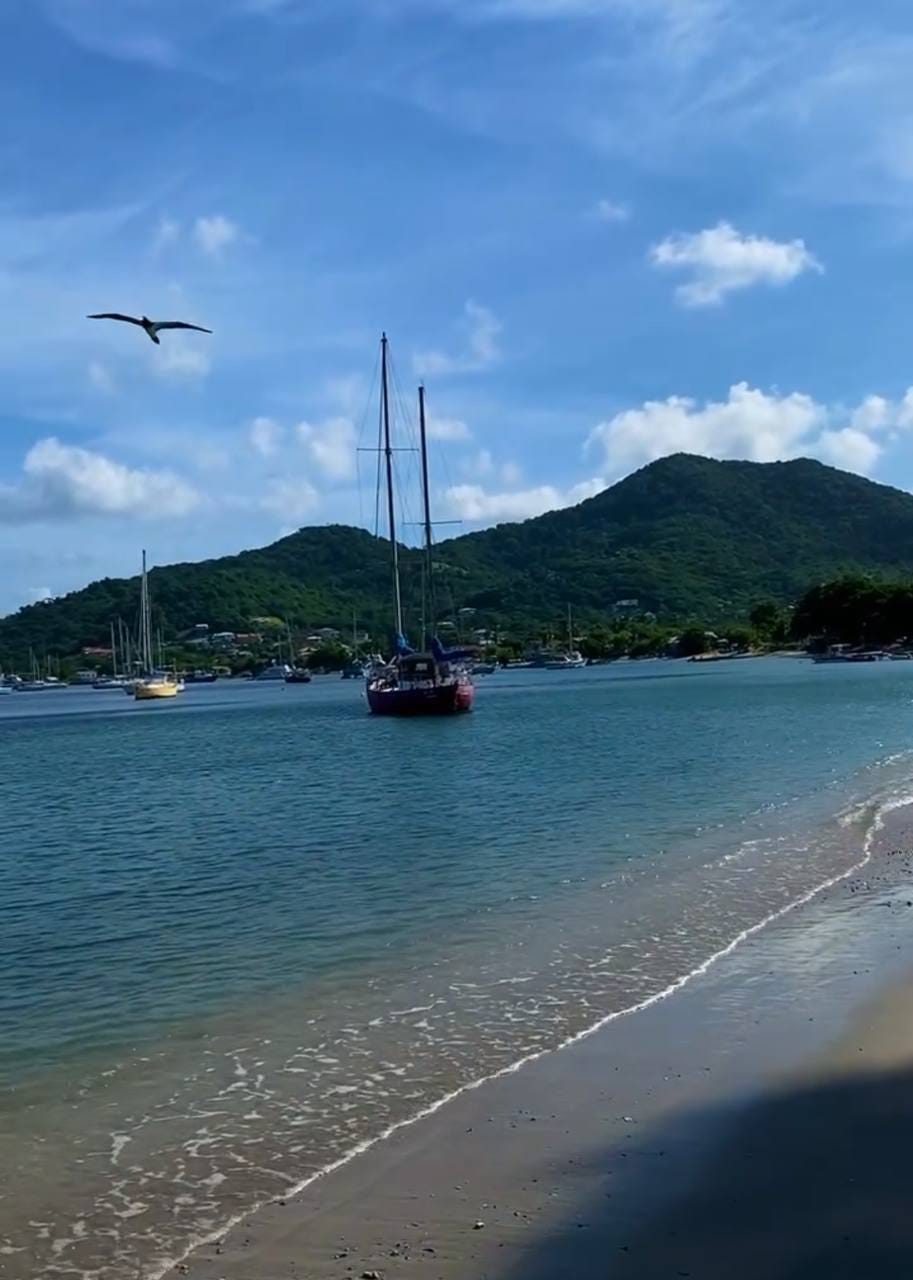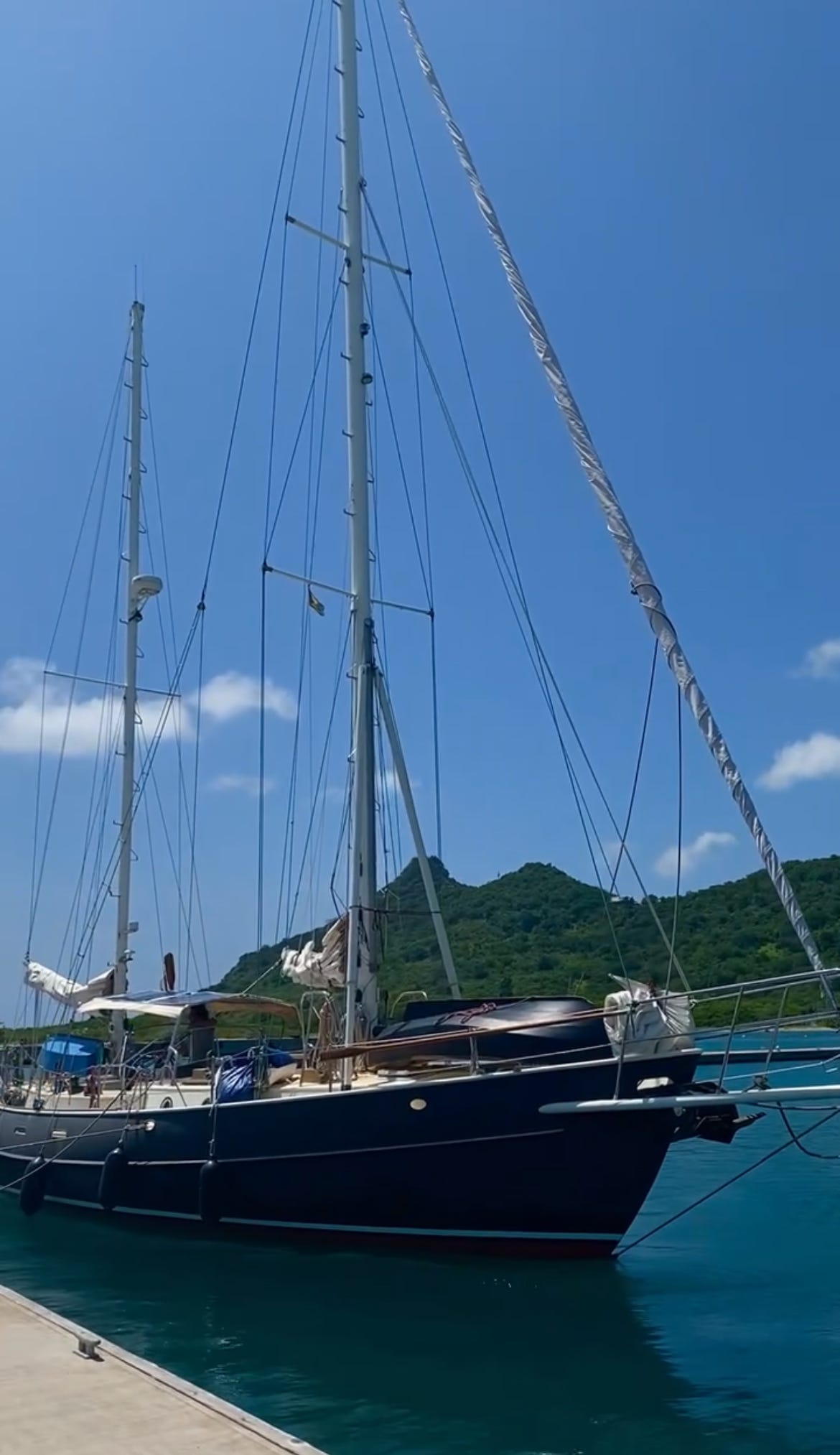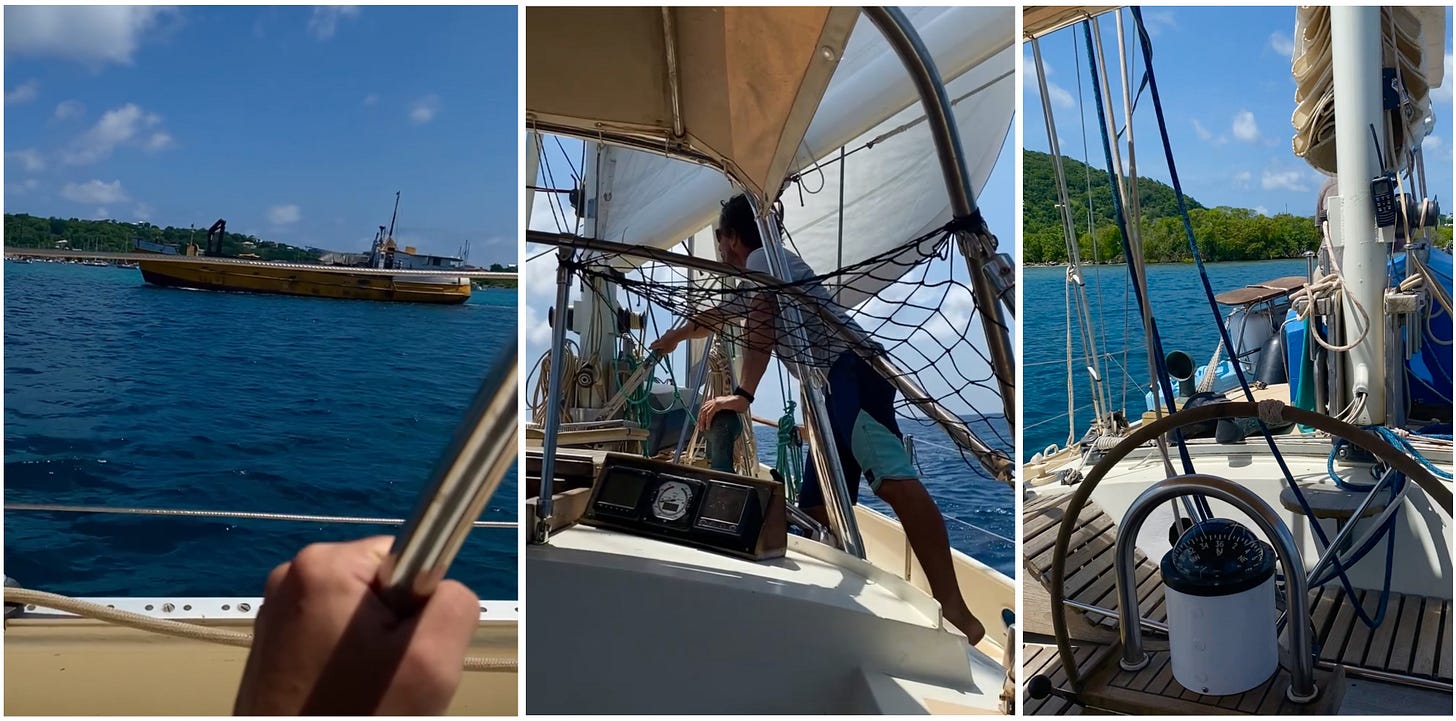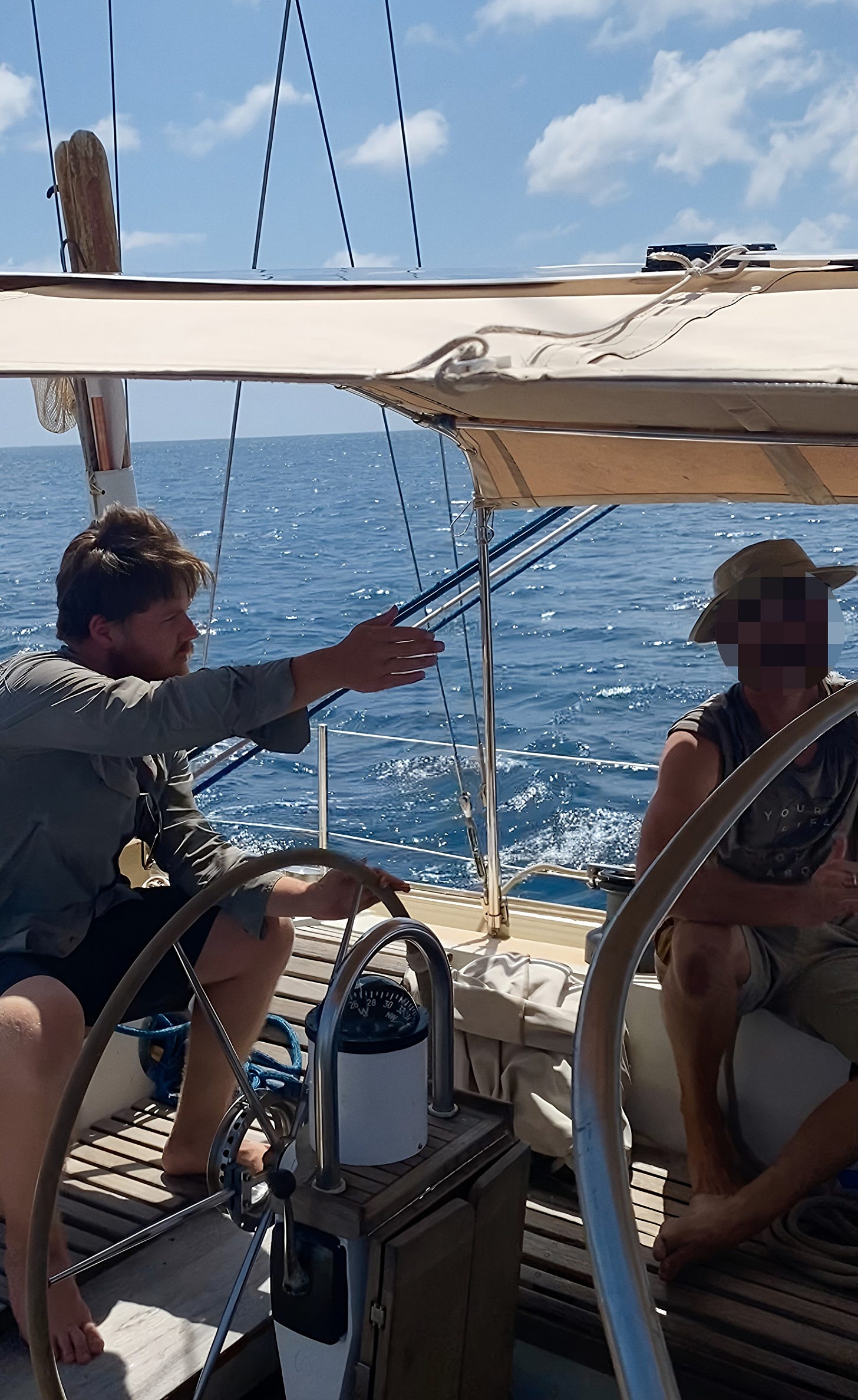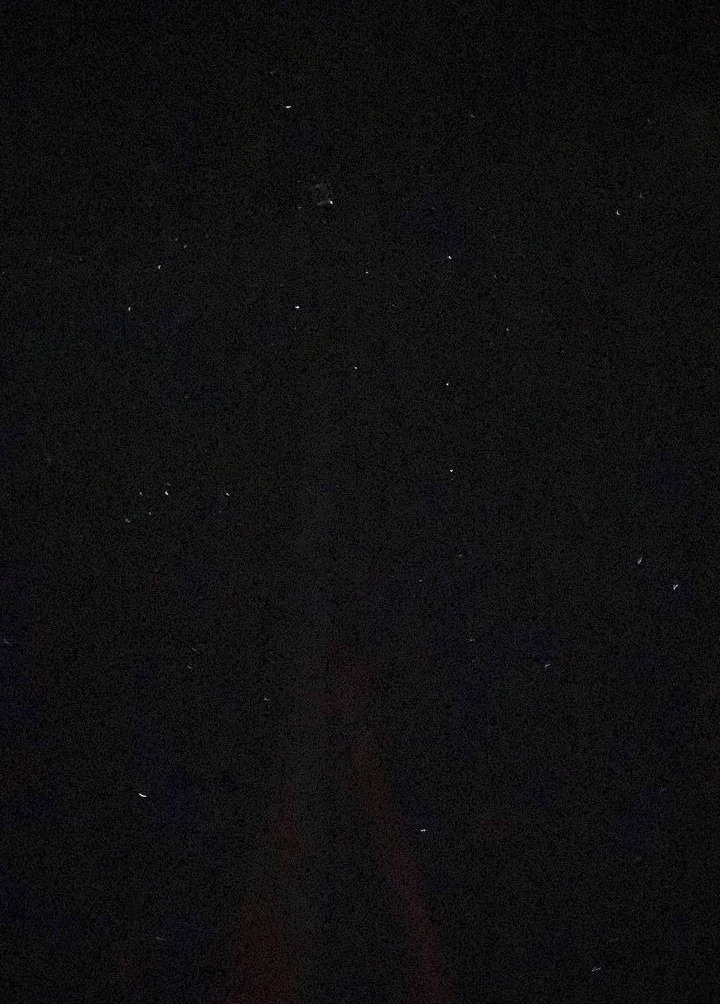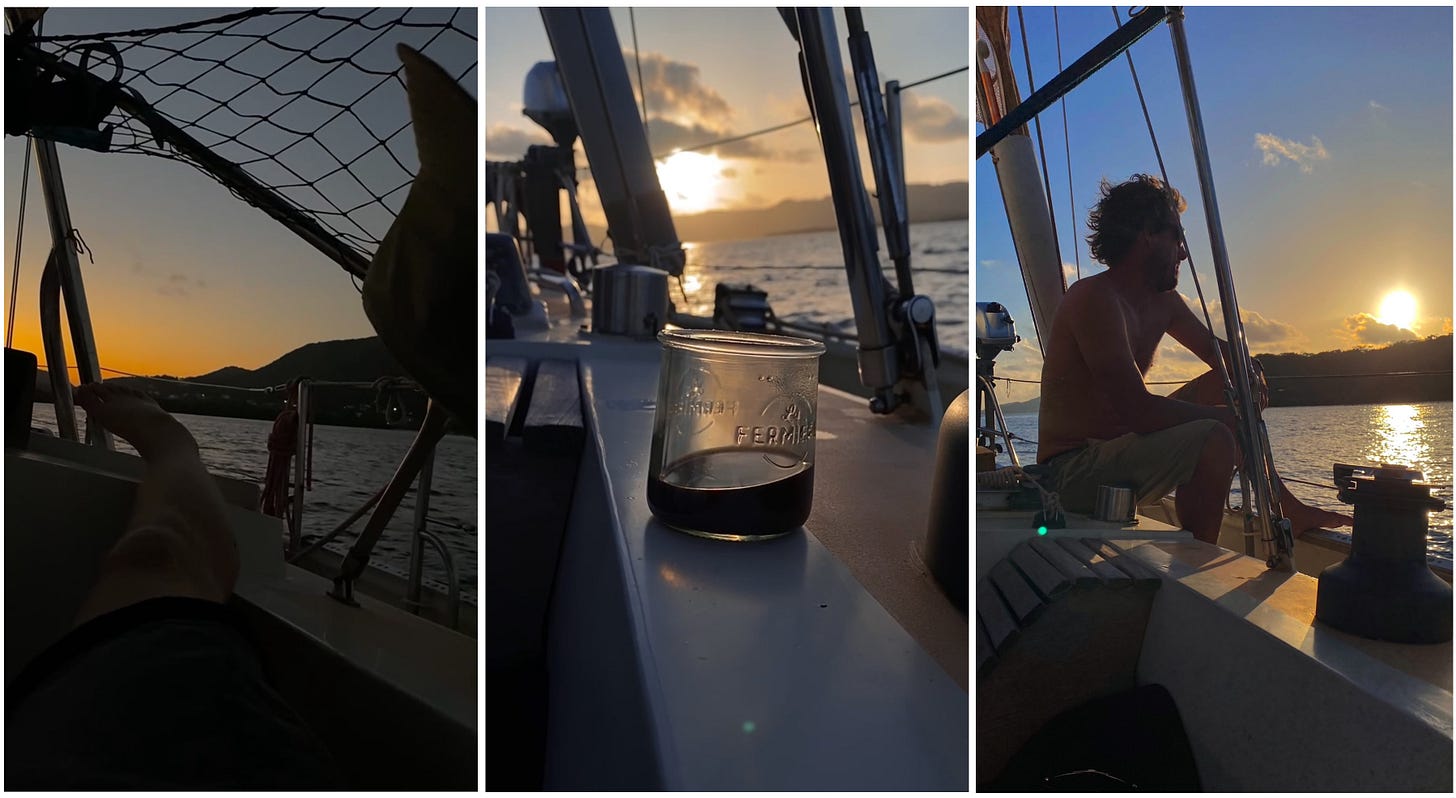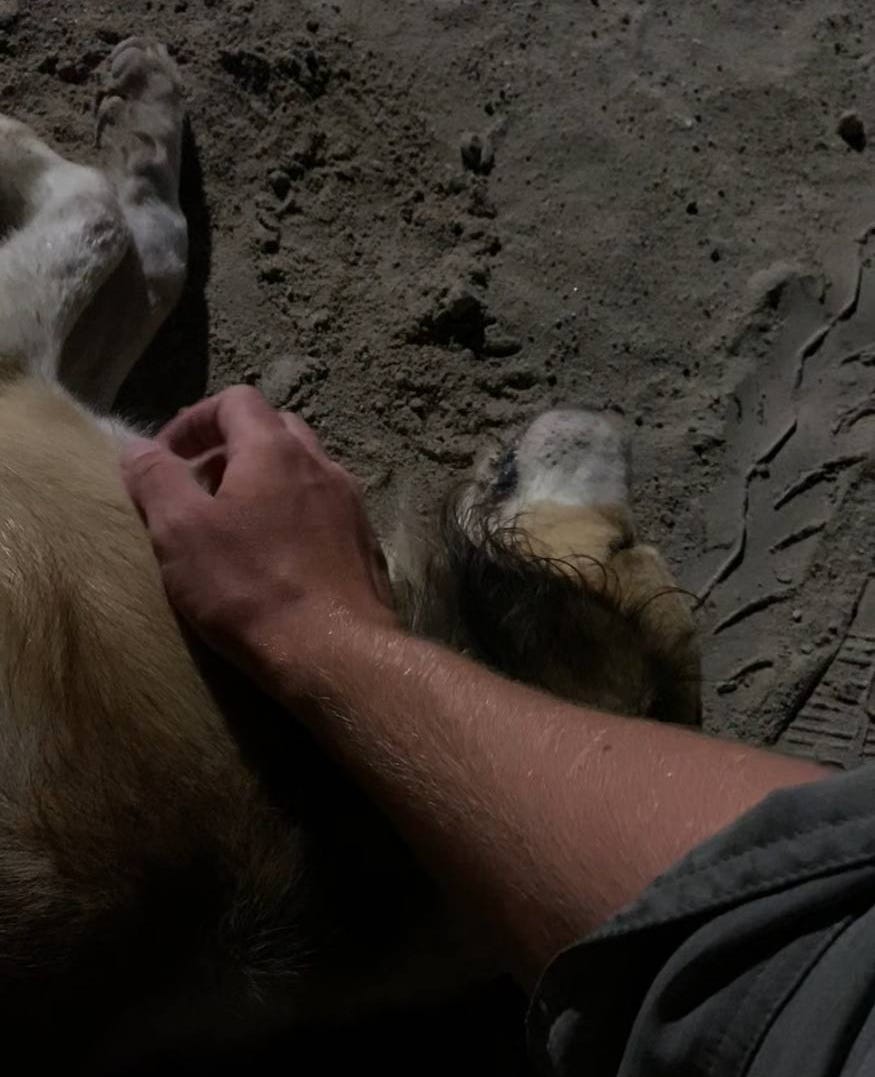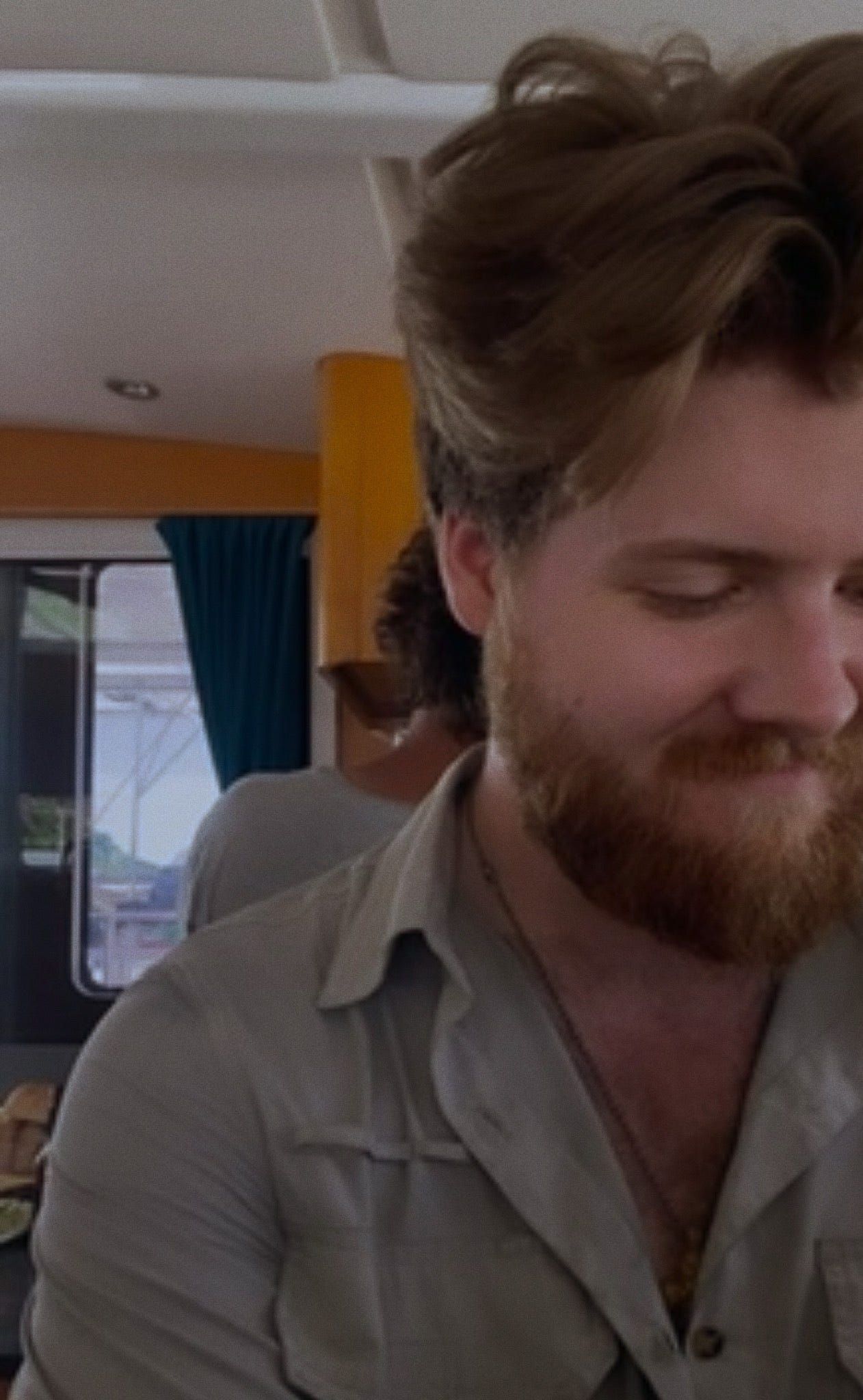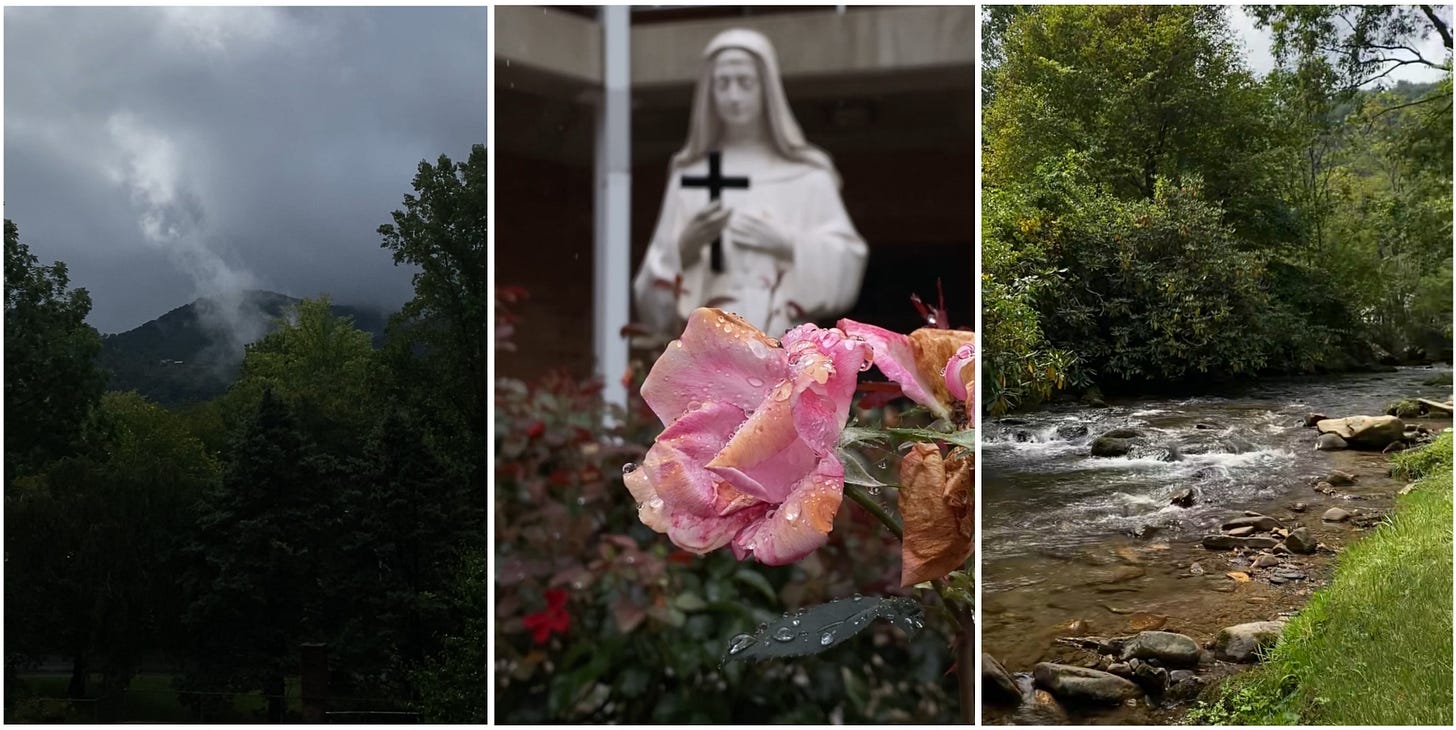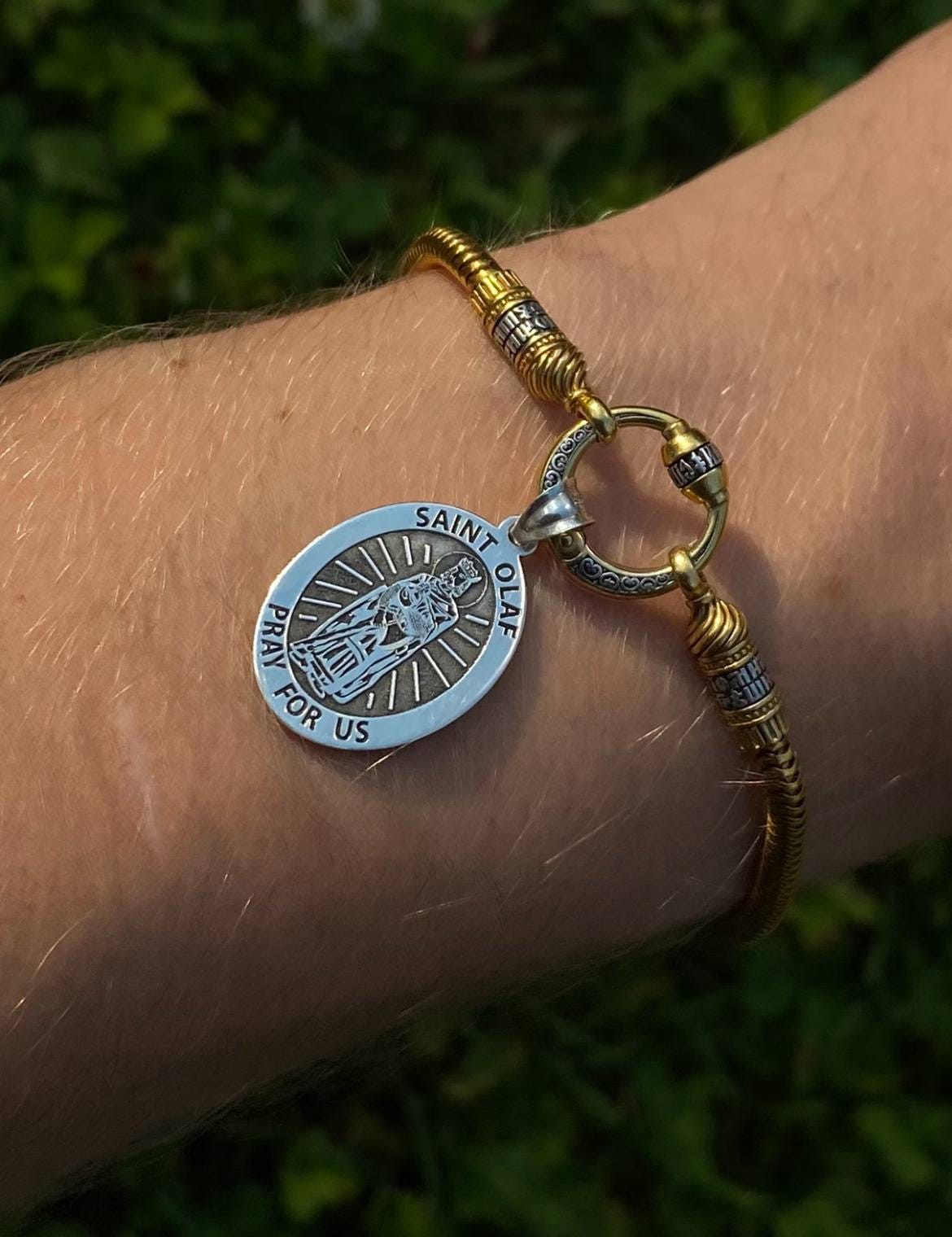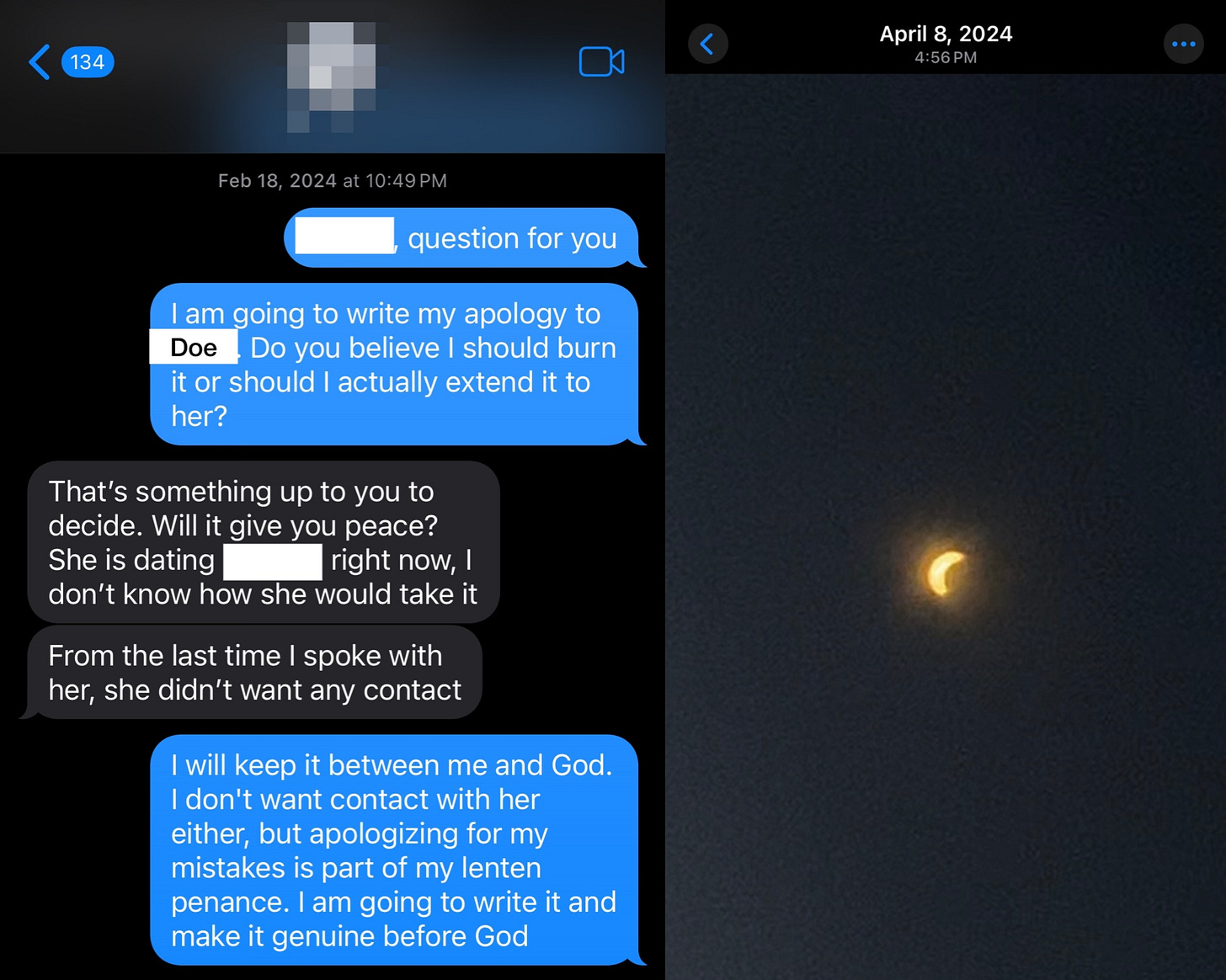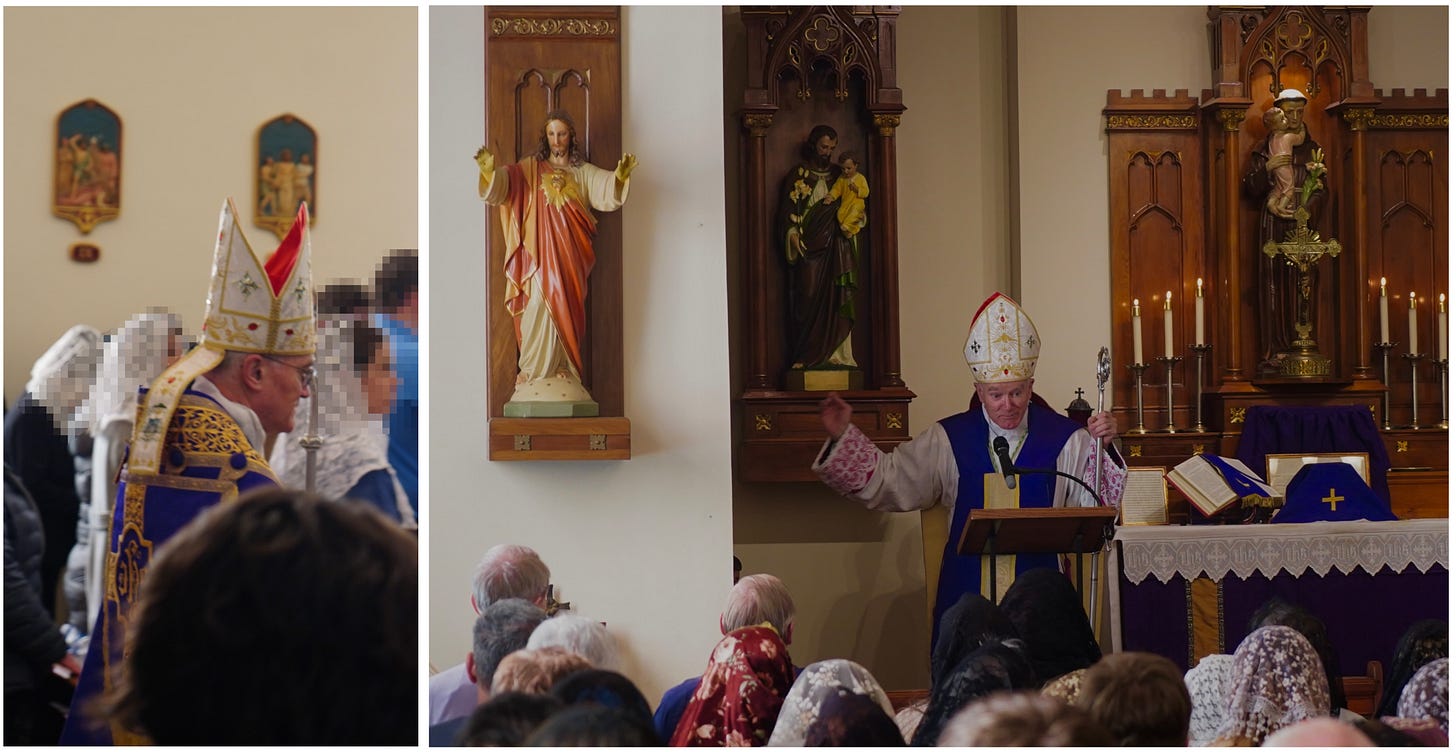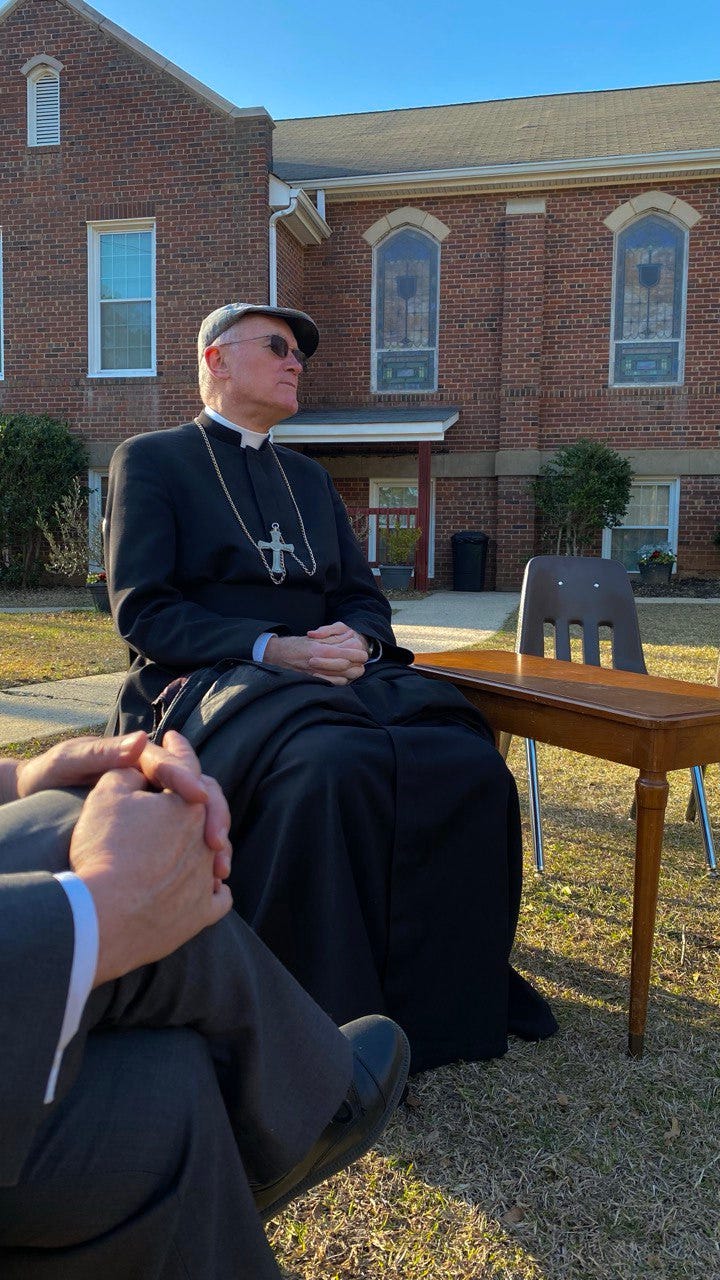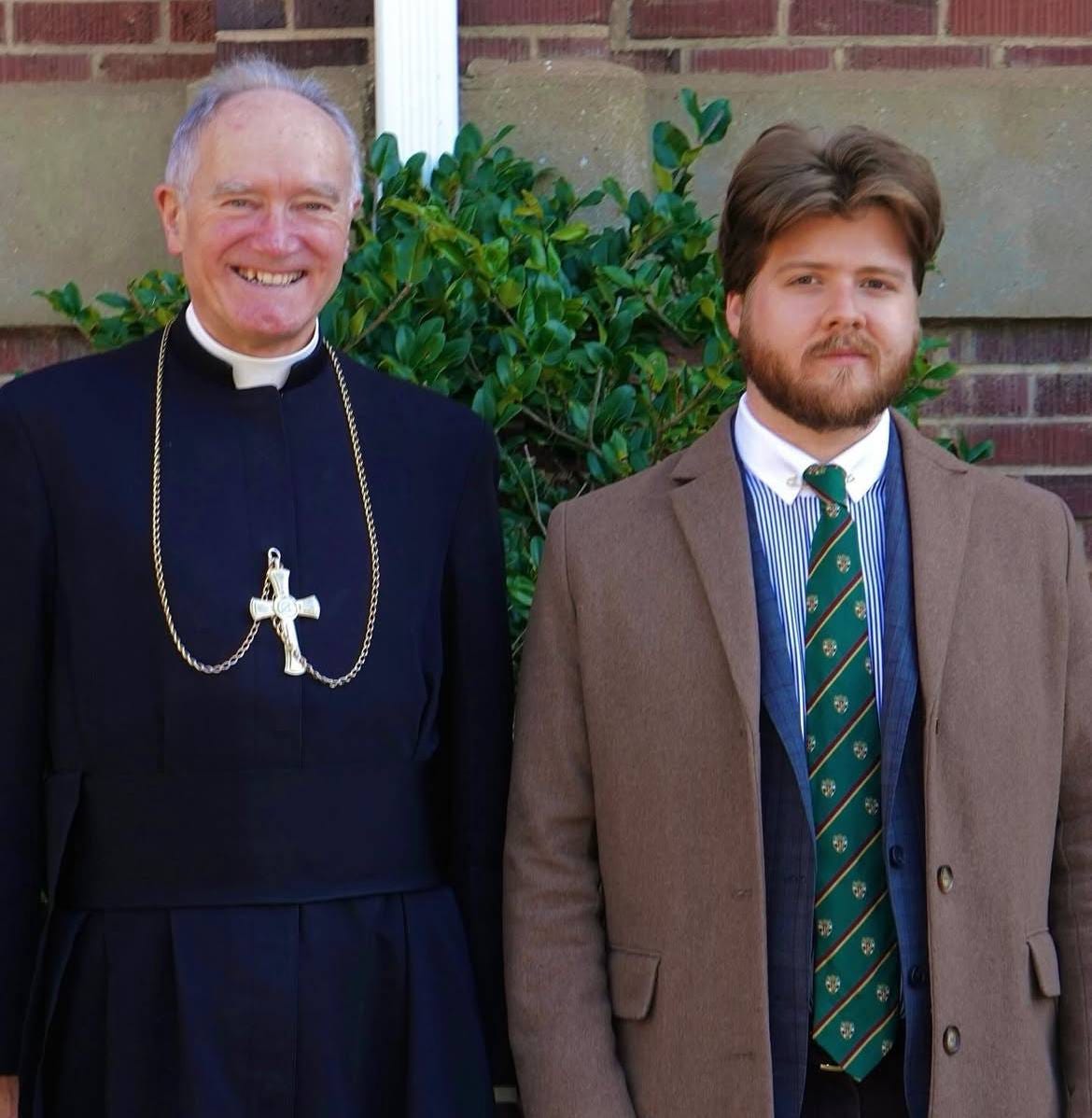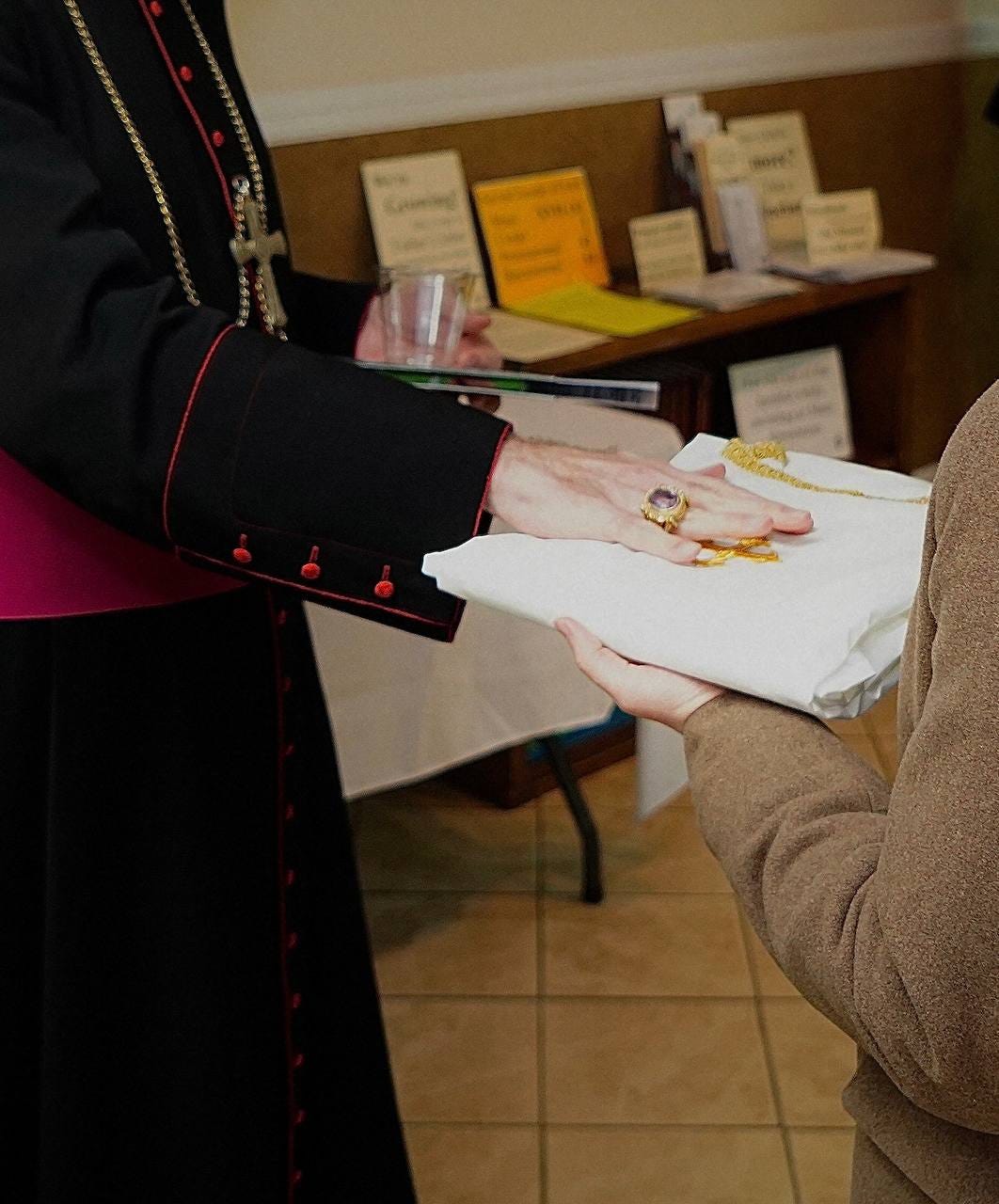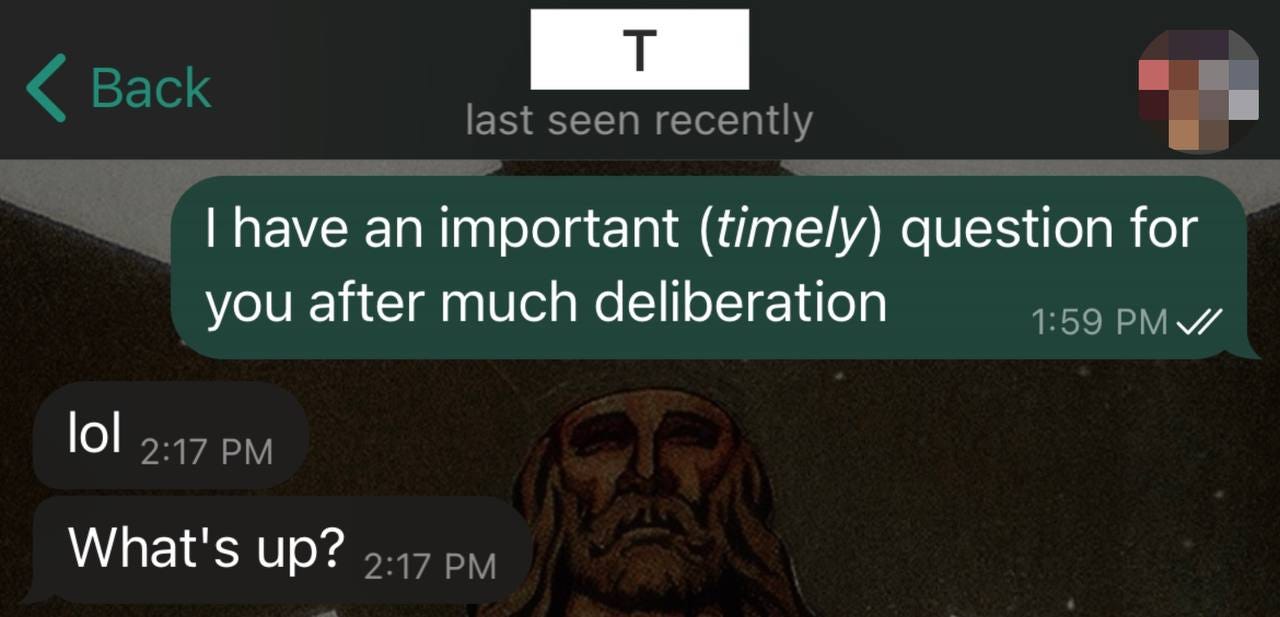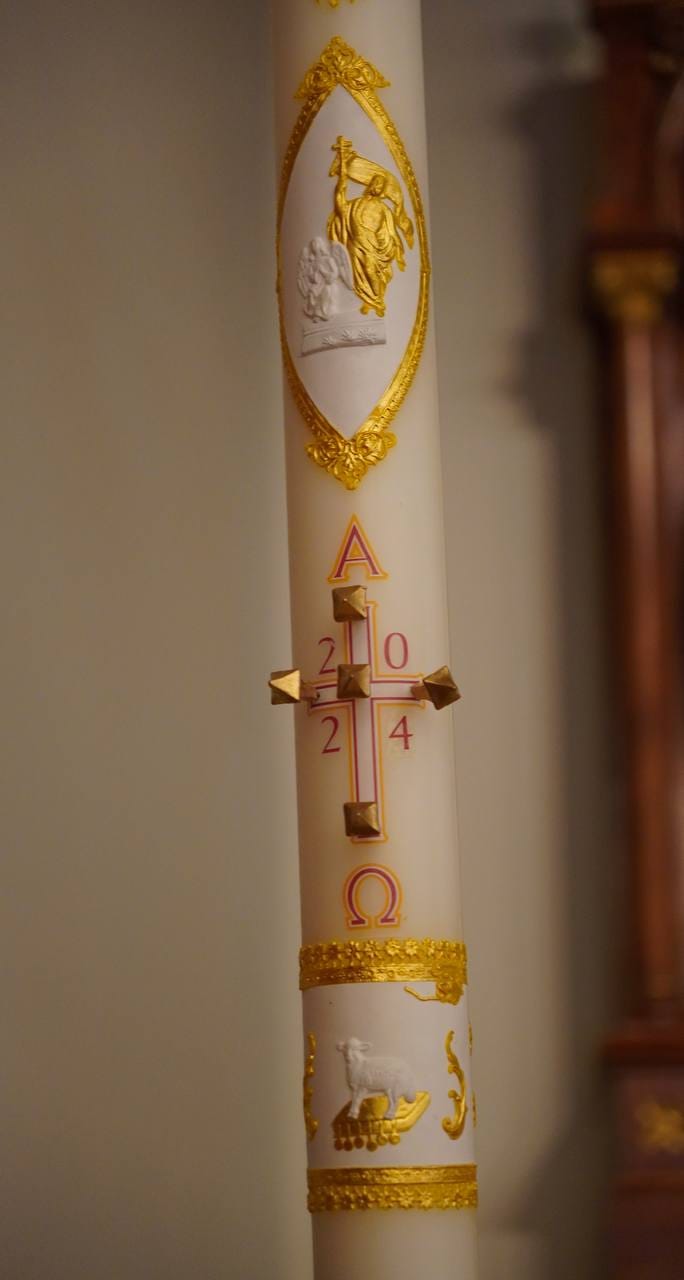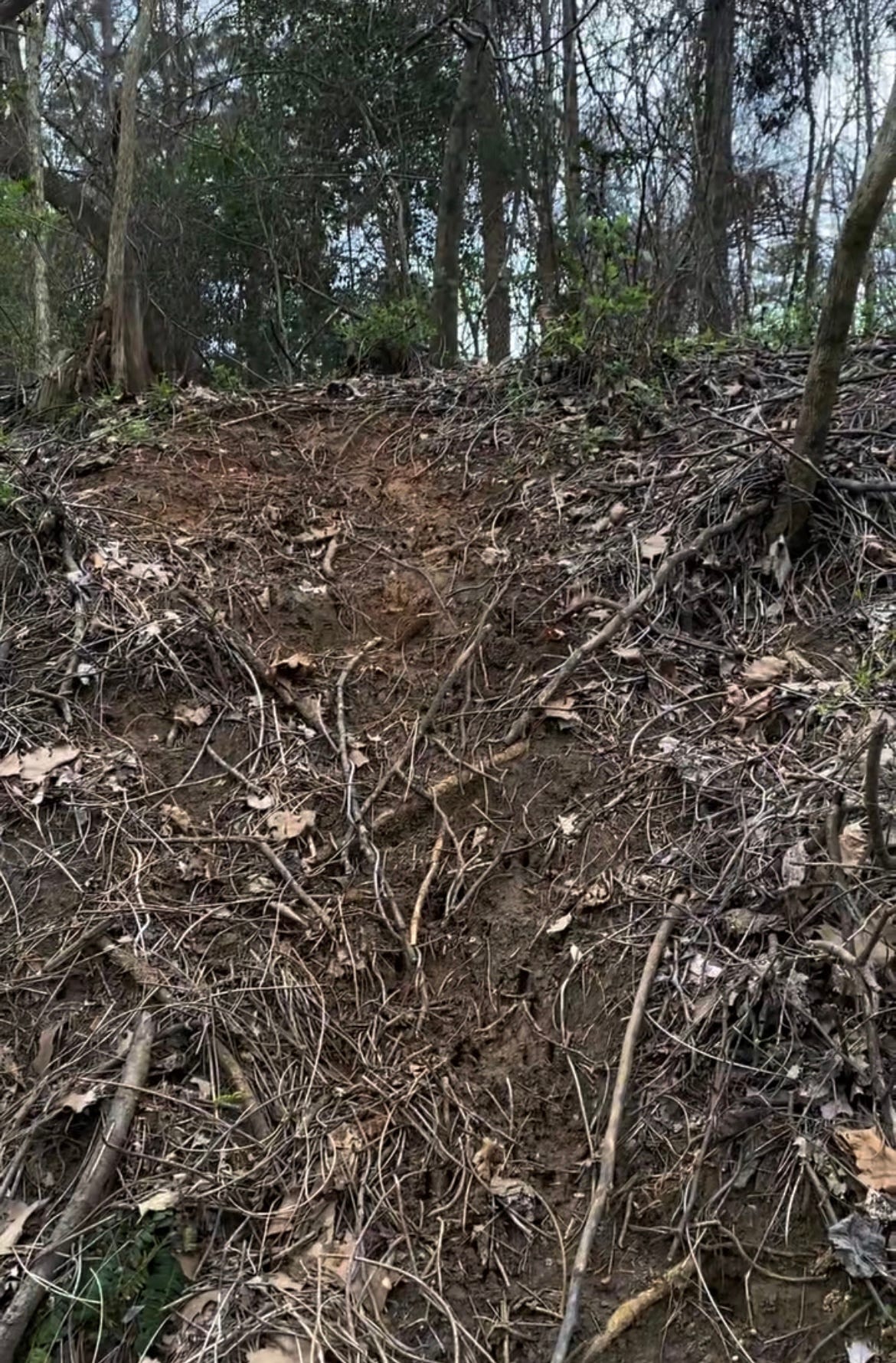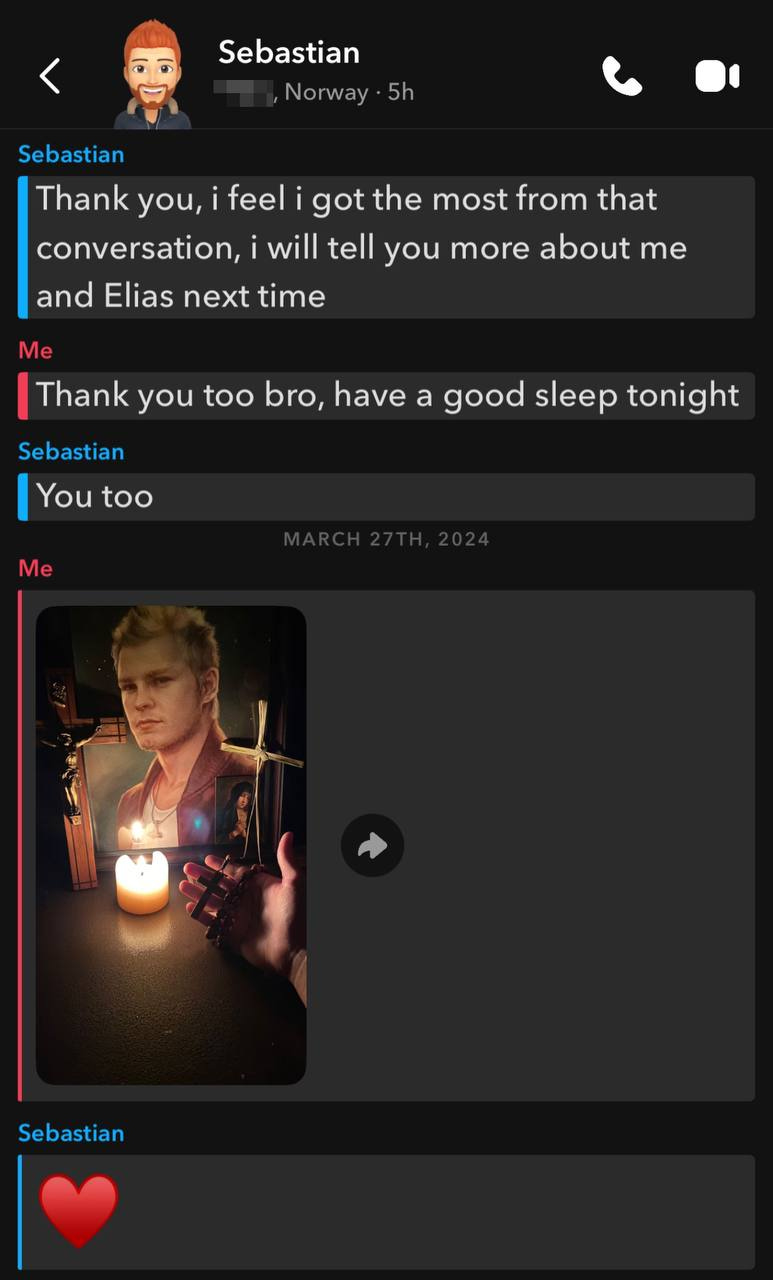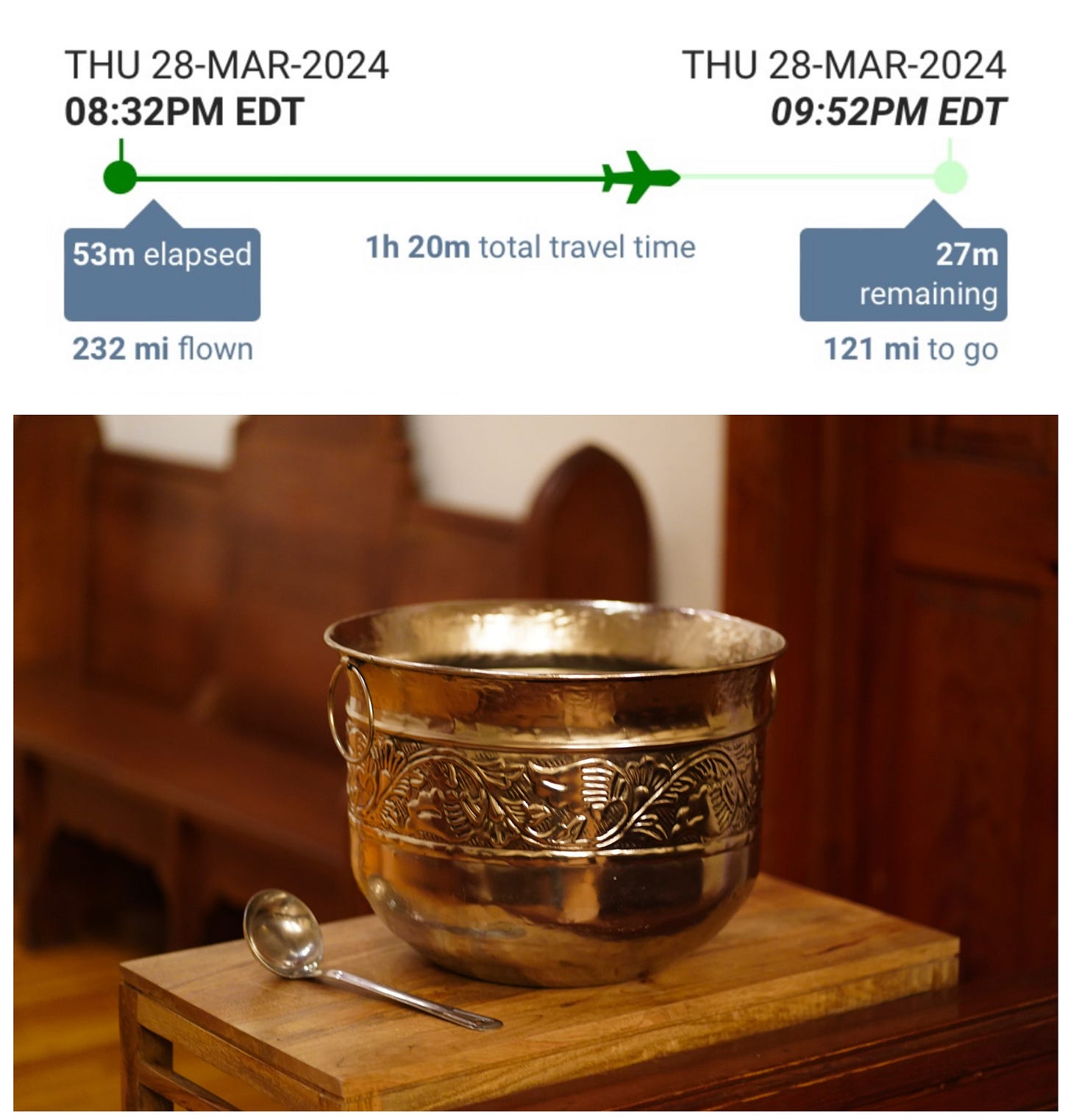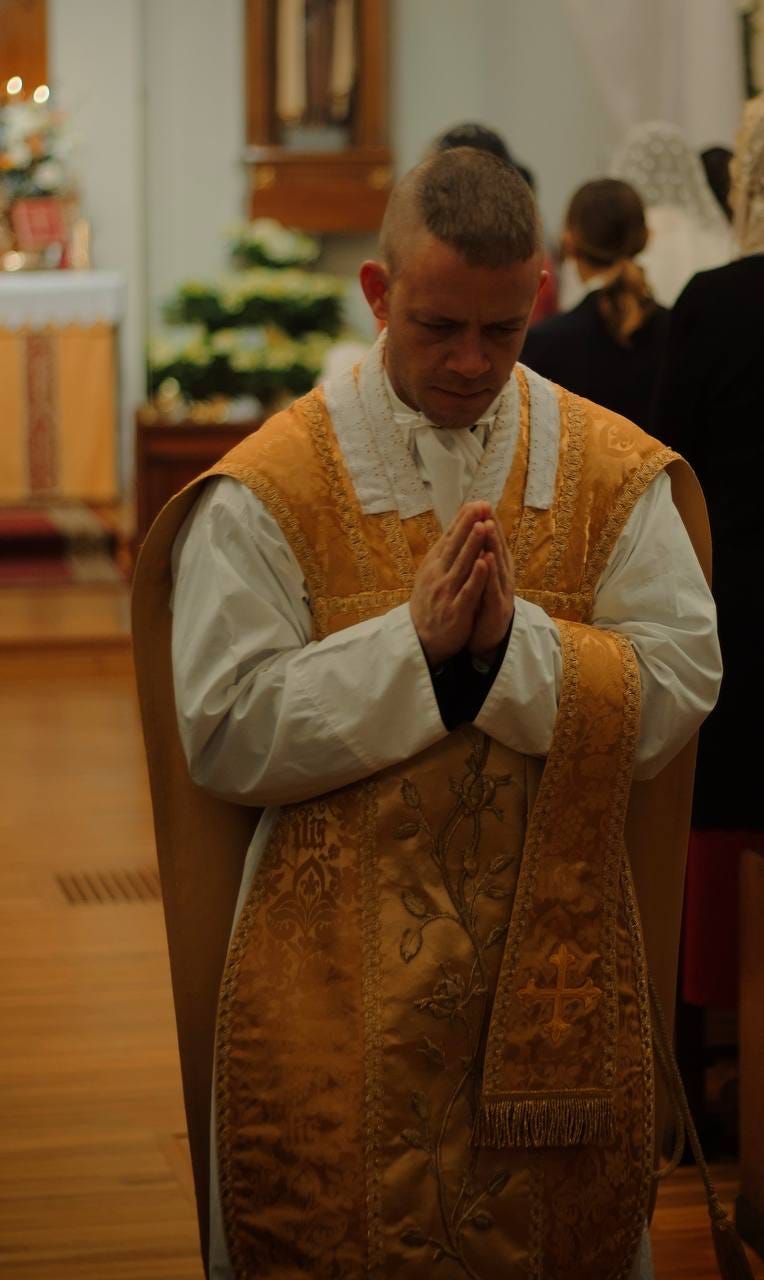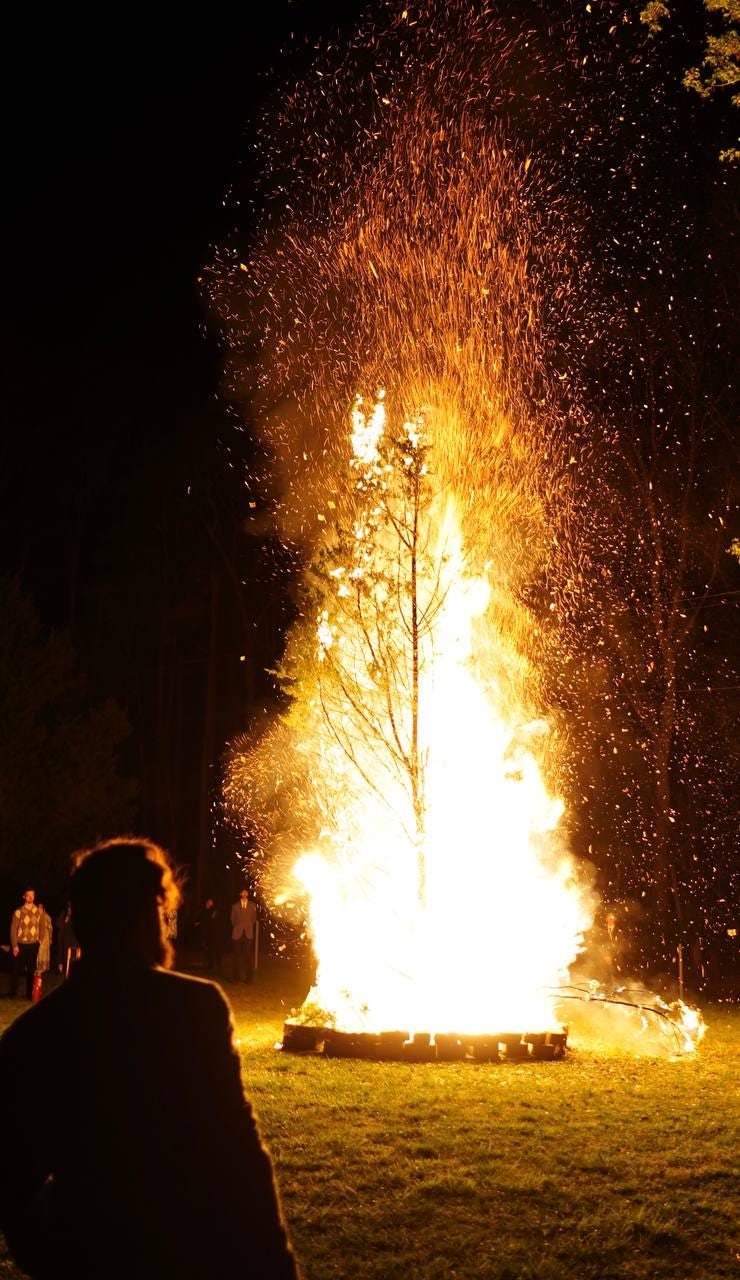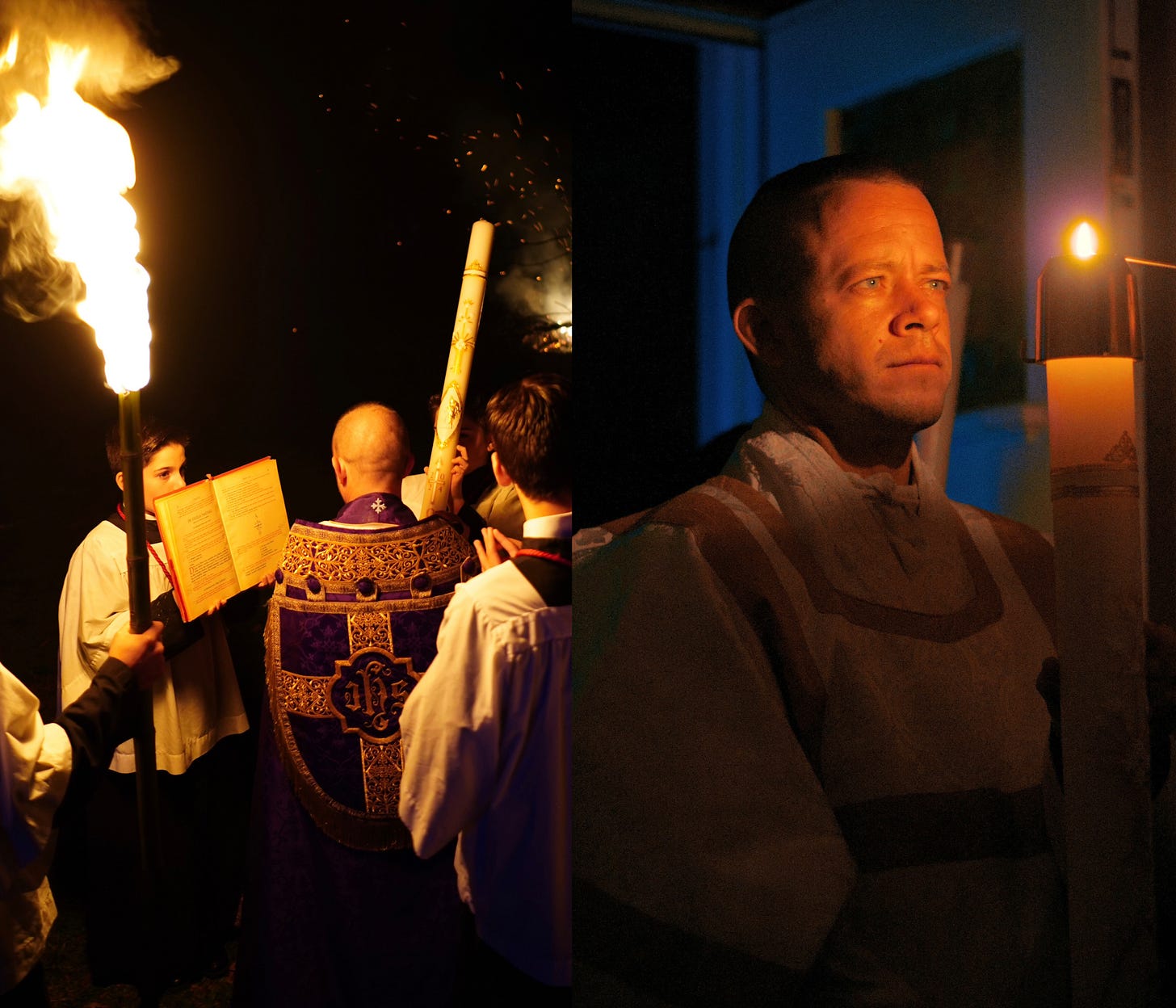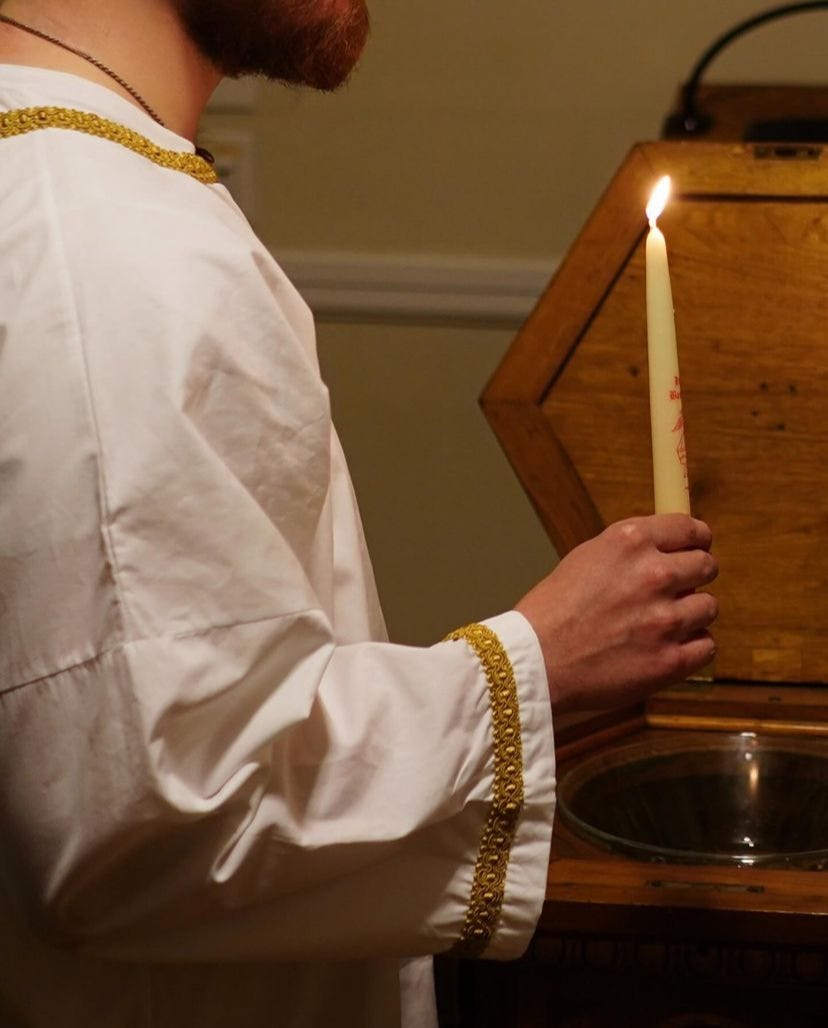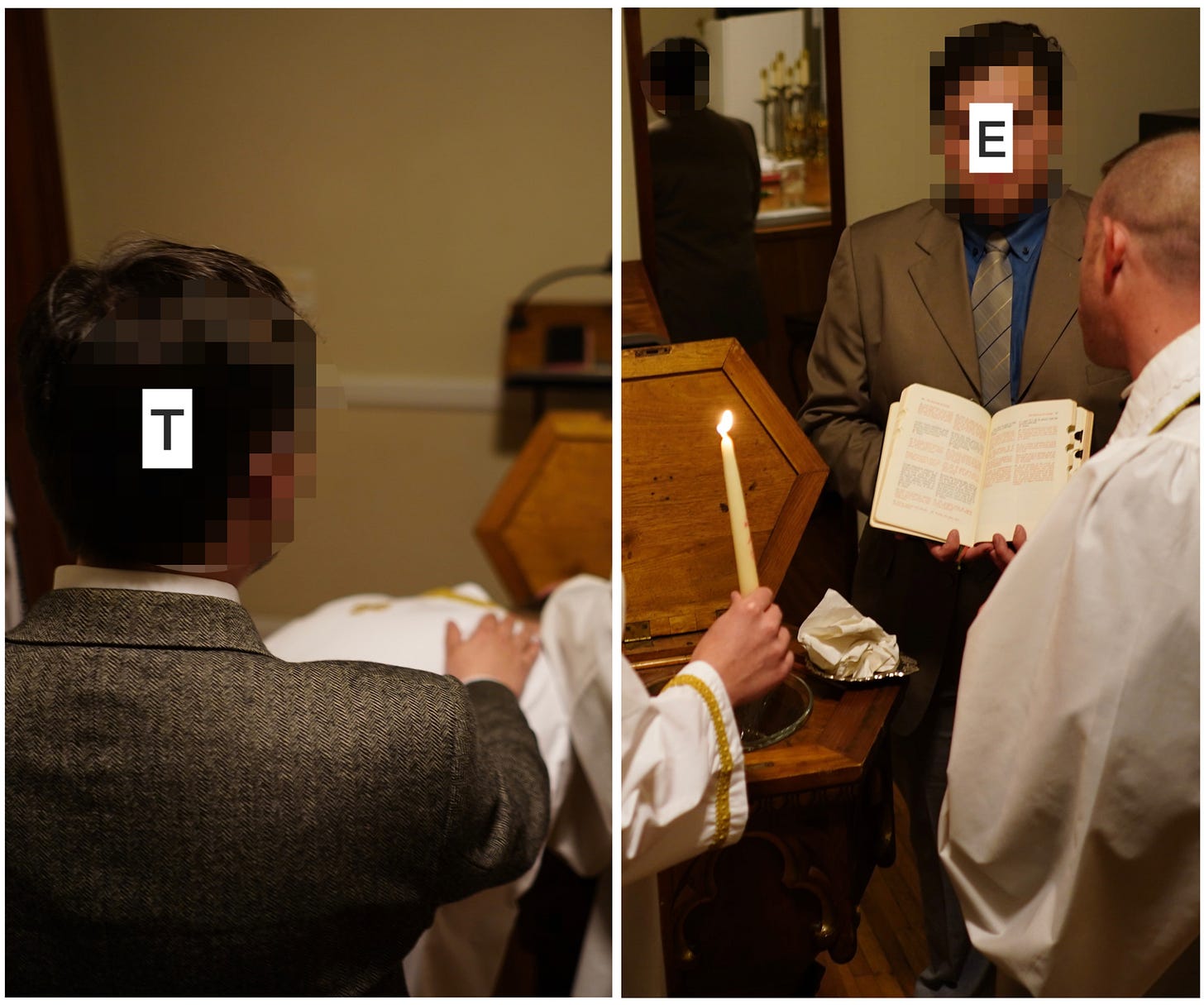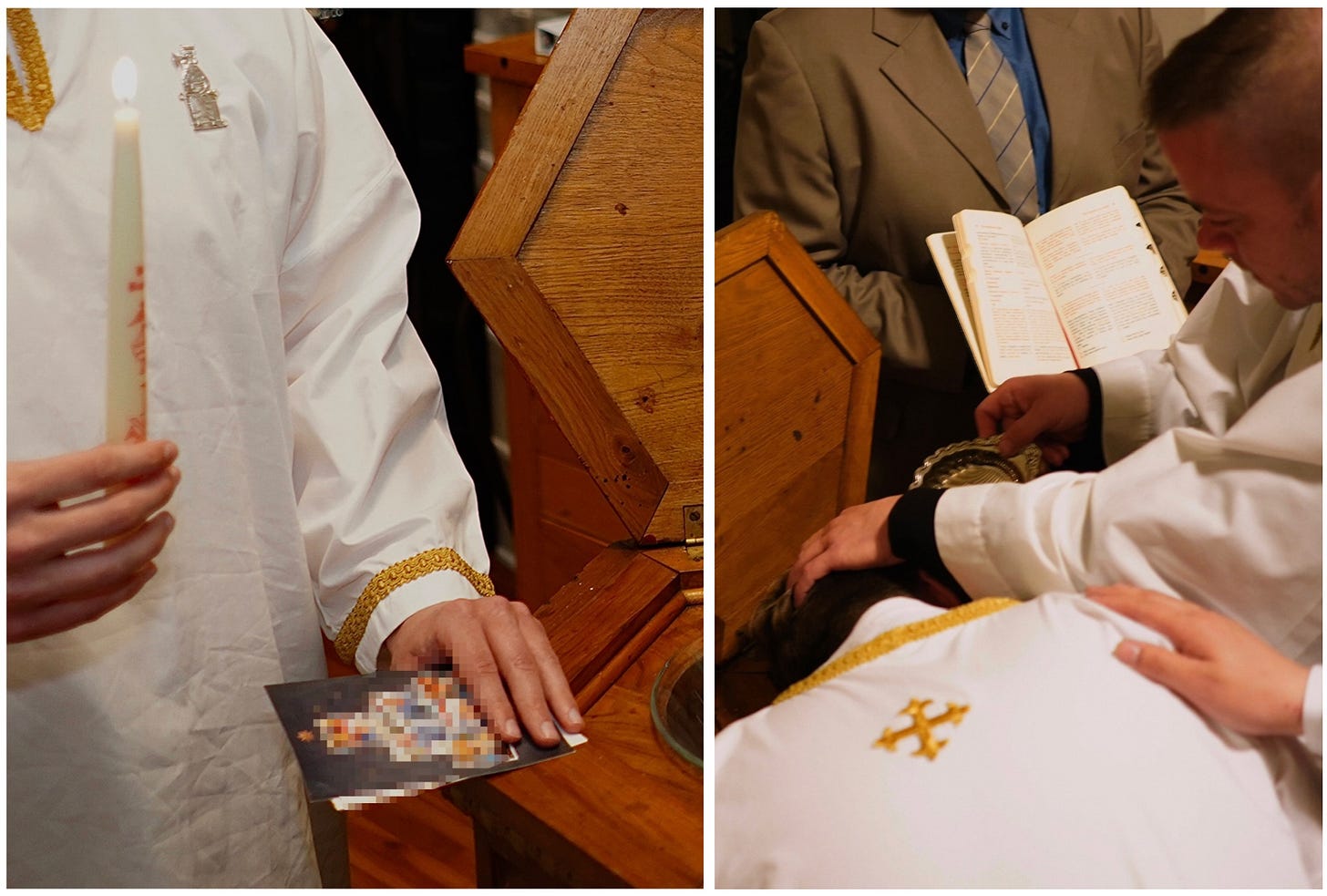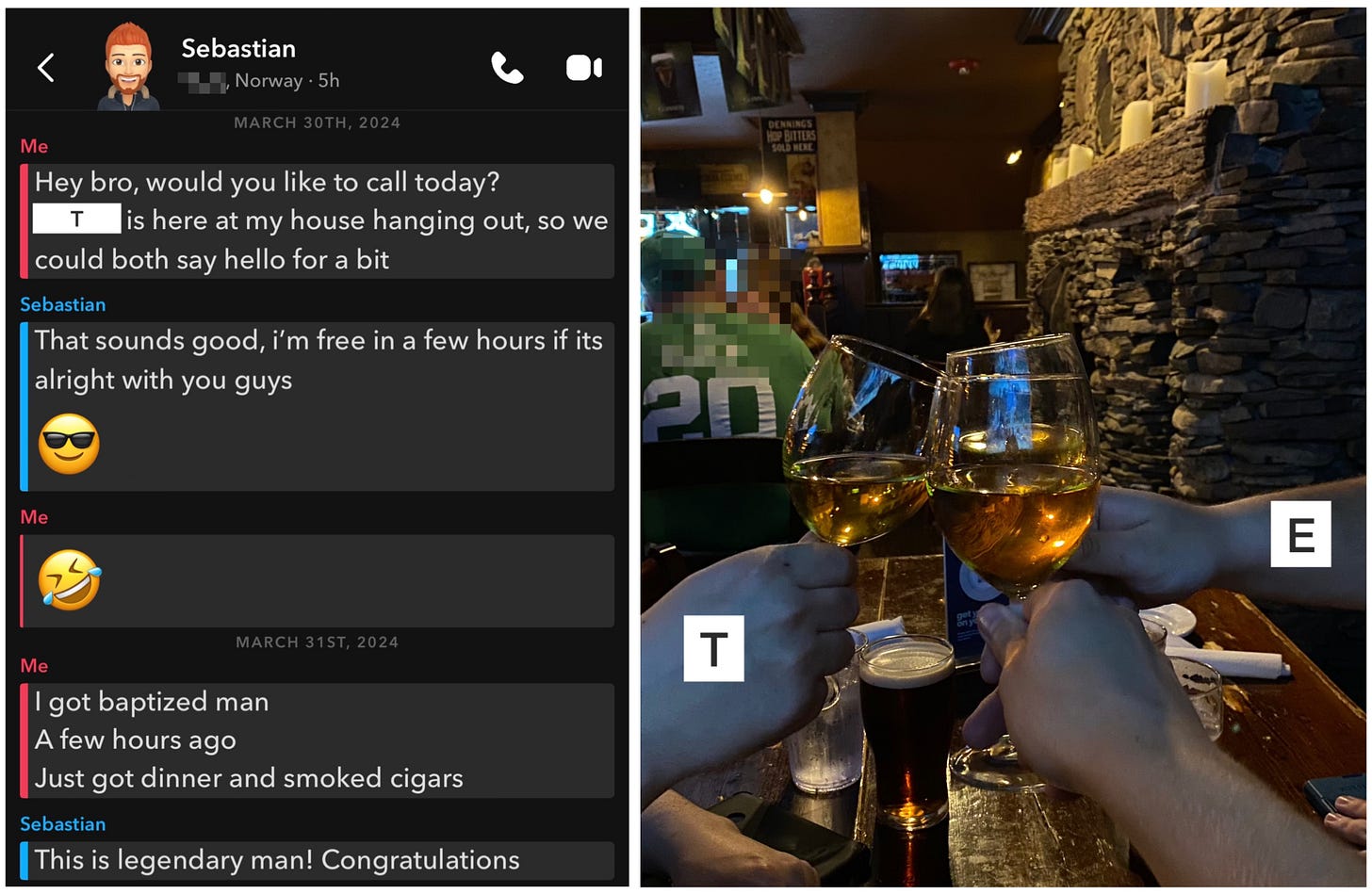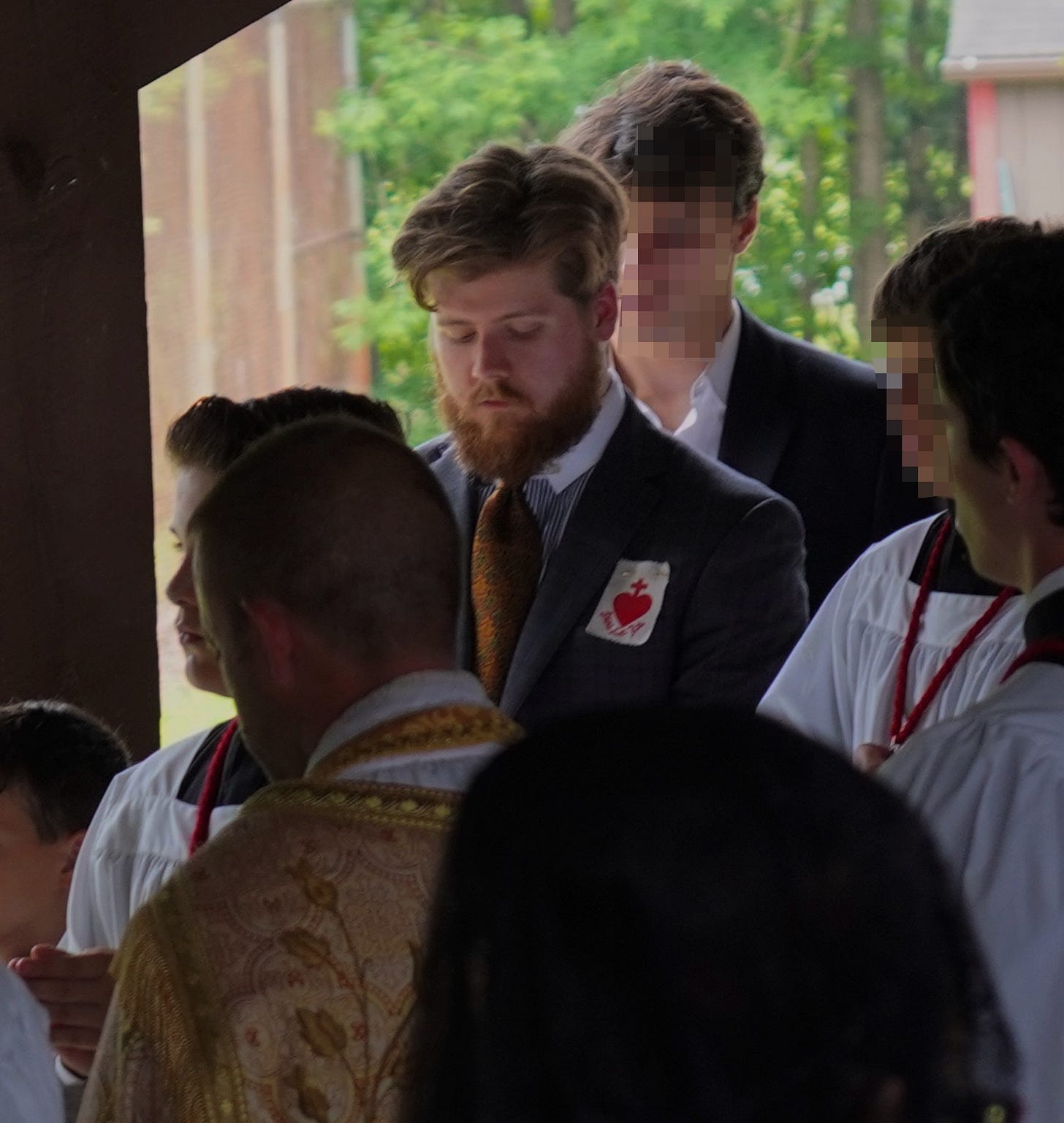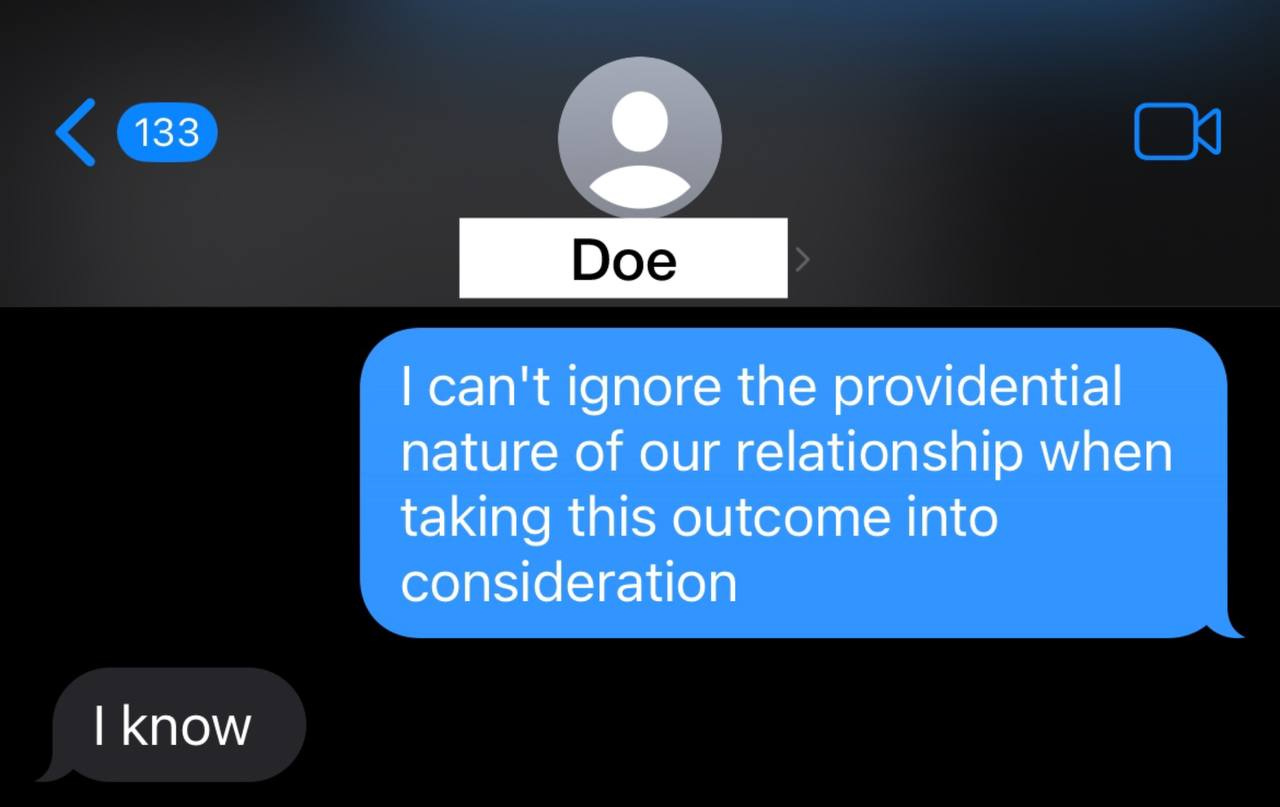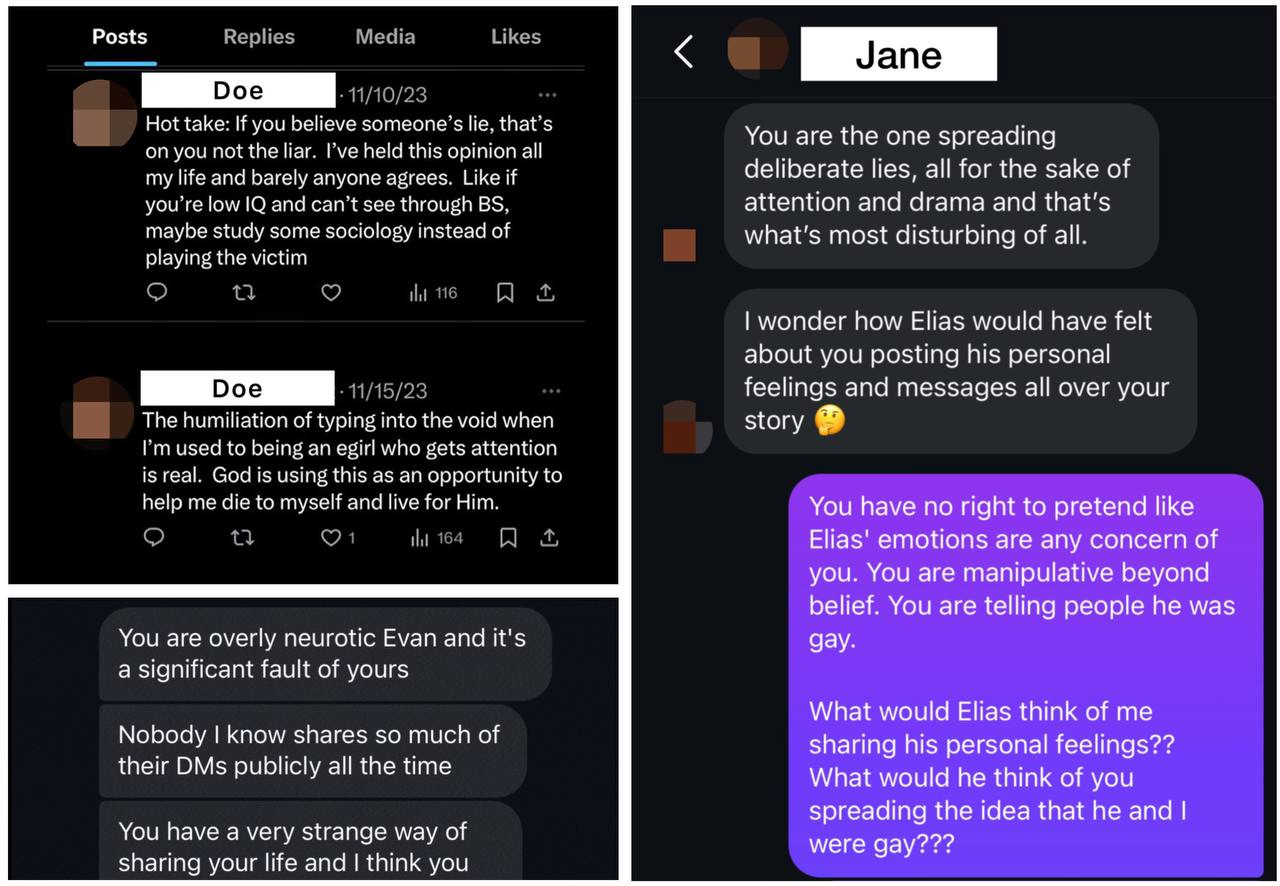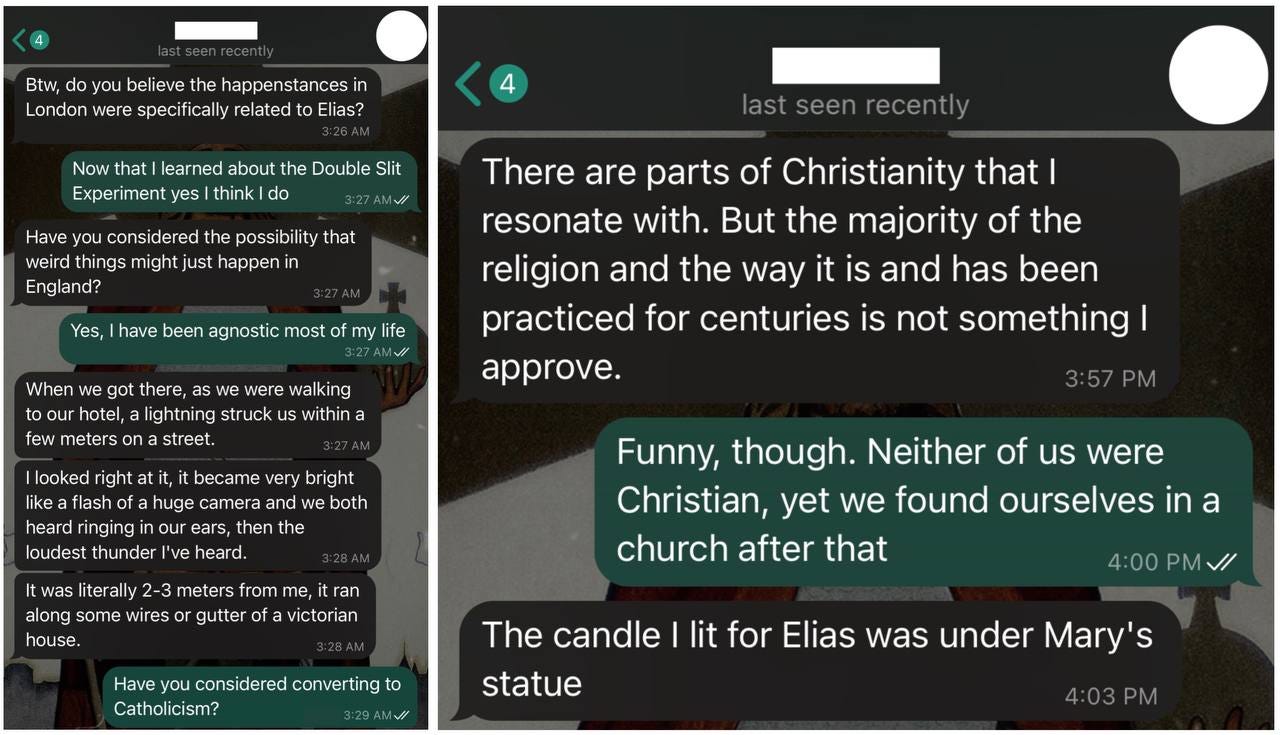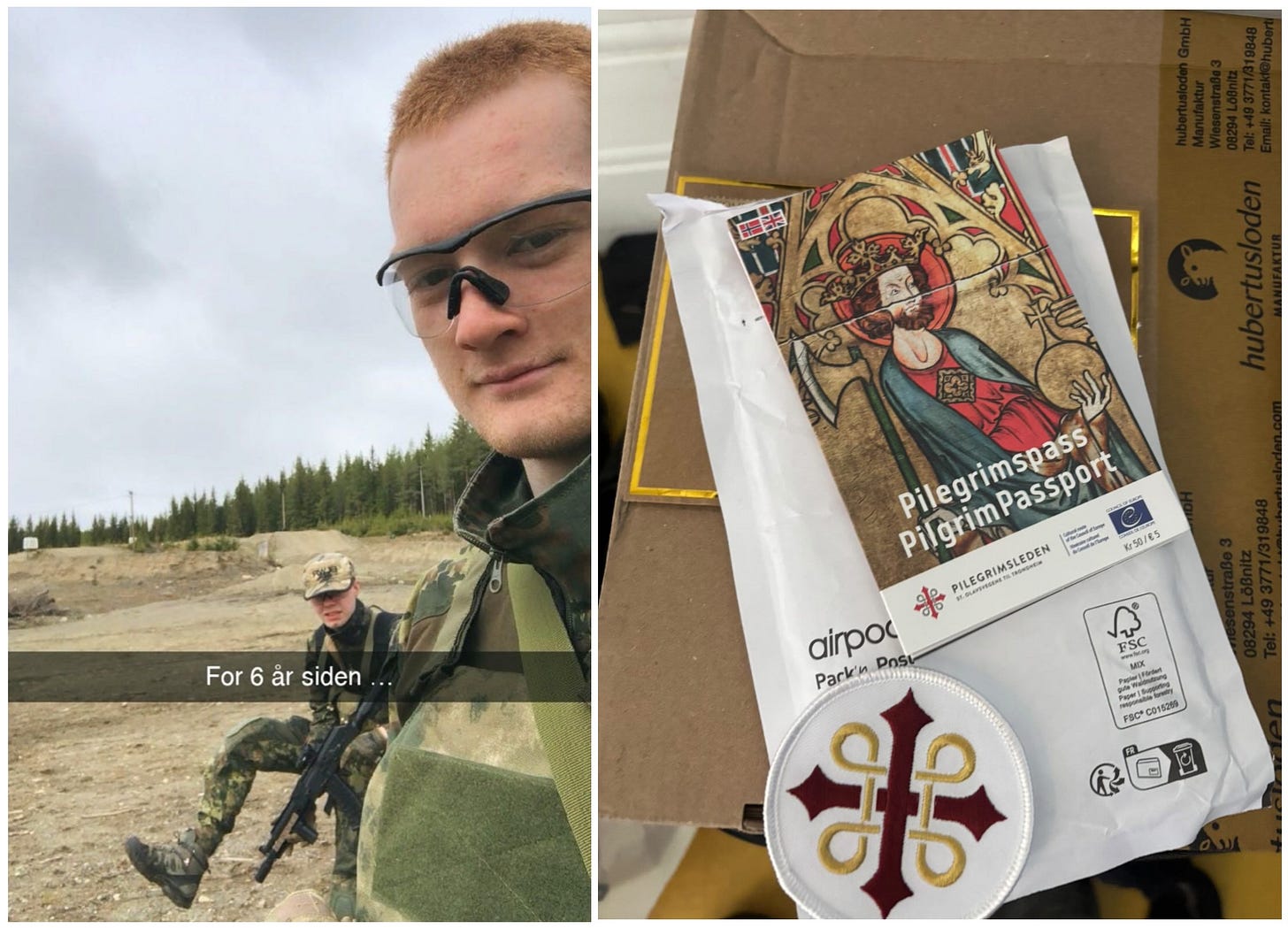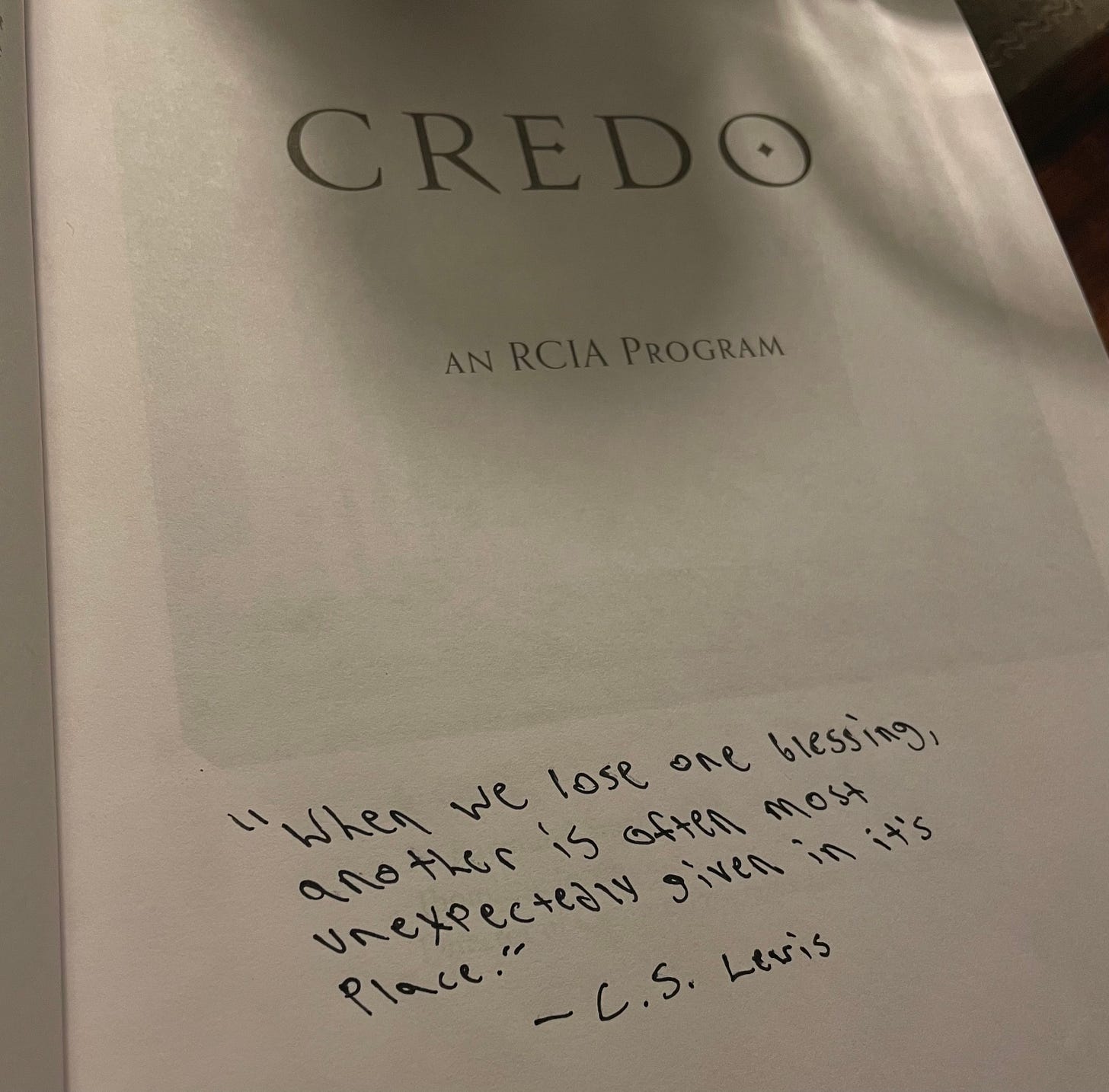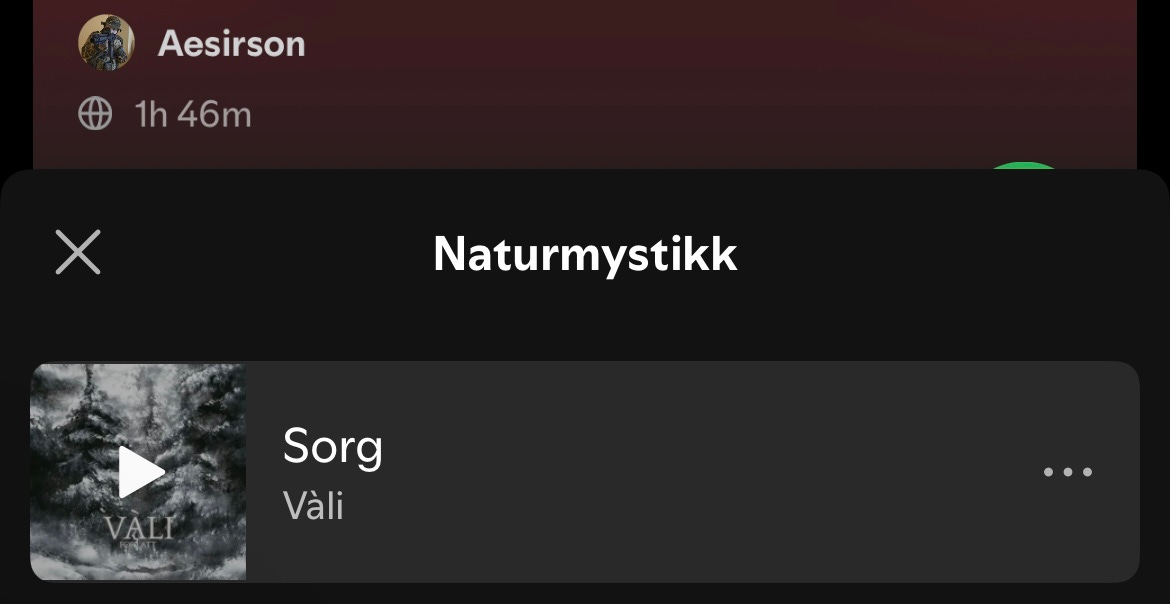“ Whatever you’re struggling with, you can overcome it. You can make a life for yourself.
Never give up hope. ”
— Elias
Four years ago, on March 25th, the world became forever less bright. An ardent, determined, steadfast soul left this world behind him far too soon.
Elias was an intelligent and outgoing young man. He knew more than anyone the value of tradition, the necessity of standing up for what he believed in, the significance of natural living and resisting propaganda, and the importance of perseverance—even in the face of overwhelming hardship.
Elias was a talented archer, training in Eastern styles of archery and becoming quite skilled in his form, which he demonstrated in the videos he uploaded online. He was outgoing and good humored, always brightening a conversation with laughter and lighthearted jokes. He held deep admiration for The Lord of The Rings, as well as the classic Star Wars films.
He also enjoyed competitive airsoft with his friends. Despite enduring a stroke, Elias did not allow this challenge to keep him down, and he physically overcame being paralyzed in half of his body, partly through his vigorous airsoft games.
Elias was Norwegian, and he was proud of it. He valued his heritage like a treasure and considered himself a pagan, which was something we held in common at the time.
I have received permission from Elias’ family to share this testimony. They know how his death affected my life, unexpected as it was.
However, words cannot express how inadequate I feel attempting to honor the memory of this young man, because frankly it is not my place to do so. I do not deserve the liberty of writing this.
Elias and I were not relatives. I was not his closest friend, nor was he mine. We were pen pals. But despite the many long conversations we shared over the phone, discussing history, religion, politics, our lives and our struggles—neither of us could have anticipated having as much in common as we eventually would. I desperately wish to be able to convey that to him now, somehow.
I began writing this during Lent as a eulogy for Elias, intended to be released on March 25th, 2025. The more I wrote, the more I recognized how many details were directly interwoven with my conversion to Catholicism. Soon I realized that I was simultaneously authoring my testimony.
This presented a very difficult challenge: I was writing an autobiographical account of events in my life that were consequentially caused by someone else's death. This felt like an insurmountable ethical problem.
How does anyone write about themselves in that context? Therein lies the source of my hesitation to do so all these years. The sensitivity and care required to write such a memoir is immense, and I have gone through lengths to ensure I maintain strict respect. I am imperfect, and if at any point it seems I breech this respect, please be merciful. It was not intentional.
As a foreword, I would like to clarify several things:
This tragedy is not about me. Elias left behind many loved ones who were dear to him, his family and closest friends, and the loss each of them carry in their hearts eclipses whatever impact it had on me. I acknowledge this completely and I pray for those who mourn him. I am reticent to describe how my life was altered as a consequence, because I will never be able to comprehend the grief they carry.
I feel nervous that some people will perceive this testimony as making my friend’s death all about myself. There is a feeling of imposter syndrome. I have removed sections, came back and added them again, removed them again, and finally added them back once more—all due to this hesitation I feel.
I am not making this young man’s passing about myself. I am outlining how my life was altered as a consequence of befriending him; I don't know where I would be had I never befriended him. This is a matter of fact: I did not anticipate these events before I received a call on the morning of March 26th, 2021. Regarding coincidences, I am as surprised as anyone.
By no means am I eager to share this testimony. I have enough self-awareness to understand the risk of how it might make me appear: irate, self-absorbed, foolish, possibly psychotic. Writing this has been difficult—I cannot engage with drama for very long without incurring migraines.
I do not expect this to have a positive impact on my reputation. Never again in my life do I anticipate sharing a litany of screenshots, conversations and other personal vulnerabilities as I do here. But this strikes me as exceptional. I feel it must be shared—not only to dispel false allegations and lies about Elias and I both, but to document the abundant providence that unfolded throughout the course of these events.
None of this was any of my business (until it was). I was informed of Elias’ death when I received a phone call from his ex-girlfriend hours after he passed explaining to me what happened. I had to be the one to inform his father and sister of what actually transpired once it came to light.
Much of what occurred in 2021 has already been made public by others involved. In recounting them here, I am not revealing anything new, but clarifying what truly took place, hopefully to dispel lies and hearsay, while keeping those involved anonymous.
To be clear: I found my faith as a consequence of these events. I fell in love with a young woman as a consequence of these events. I travelled across the world, flew through the aurora borealis, sat over a Prime Minister, sailed an Olympian’s sailboat—none of which would have happened had I not been acquainted with Elias.
Attempts at writing a testimony without mentioning Elias have proven impossible.
Finally, I must acknowledge a difficult reality. The individuals who were involved in what transpired, including in the aftermath of losing Elias, do not want it archived. They want everything erased.
Many lies were spun by certain individuals, and if I were to shed light on them [tell the truth], it may possibly tarnish their online reputations. These individuals would sooner see it all buried and forgotten about, along with Elias, if not to maintain their reputations, then to preserve their consciences. This testimony therefore places a target on my back, which causes me no small degree of stress.
However, I believe this only serves to justify detailing the truth of what actually happened all the more. I am unafraid of telling the truth.
I do not believe that telling the truth is an act of revenge. I forgive those involved.
Notice: Names and identifying details of certain individuals within this testimony have been redacted. This memoir reflects my personal experience and is not intended to defame or expose any individual. This article complies with Substack’s Content Guidelines. All factual claims made herein are truthful and can be substantiated if necessary; all other statements are personal opinion. The purpose of including anonymized evidence (i.e. screenshots) is to prevent accusations of defamation or hearsay. Any information disclosed regarding anonymously referenced individuals has been shared with careful intent and respect for privacy. I have elected to keep certain identities anonymous as a courtesy. I will defend this testimony if necessary [counterclaim]. Concerned parties are kindly asked to respect the privacy of others and to consider the Streisand effect. Out of respect for privacy, I will not reveal the identities of anonymously referenced individuals if asked. (Do not inquire.)
I. Elias
II. Conversion
III. Washington, D.C.
IV. New York City
V. Home
VI. The Easter Vigil
VII. Saint Olaf: Rex Perpetuus Norvegiae
VIII. Above Iceland
IX. England
X. The Chapel
XI. The Caribbean
XII. Baptism
Elias
I never anticipated my friendship with Elias, an overseas friend, to play any significant role in my life at all. However, were it not for befriending Elias, my life today would be unrecognizable.
When asked to give a testimony of conversion, I must condense this information altogether while simultaneously respecting the privacy of those involved, and it becomes cumbersome to explain and difficult to articulate.
Much of what is documented within this testimony is digital. It is a natural consequence of our age; I do not believe communication between individuals being digital reduces its significance—any less than exchanging letters. One lesson I have taken from these experiences is to greatly limit my use of social media.
It is probable I will receive criticism for openly sharing such a personal memoir, of relationships, conversations and mistakes. To those who may hold such an opinion, I ask you: since when have religious conversions ever been impersonal? My hesitation to share this testimony parallels your criticism of it.
“Just move on;” this almost always means “just shut up.” Individuals who say this never express concern for my wellbeing in any other context. It is practically always an attempt at obstructing the truth. It is rarely an attempt at compassion.
For these reasons, I feel it impossible to give a testimony of conversion accurately without simultaneously sharing the truth of what transpired surrounding the death of my friend, and what happened in my life as a consequence.
Often I would come home and immediately join a call with Elias. Sometimes I would talk with him while he played a videogame and I sat at my desk, or vice versa, and other times we would play the same multiplayer game together while we spoke. Other times still, we simply talked over the phone while cooking or finishing work.
Most of our conversations were over the phone, and as a consequence we hadn’t messaged as often as we spoke. Frequently, we would be in the middle of a deep conversation about history, or some similar topic, when suddenly he would interject saying: “hold on, my girlfriend is calling.”
For the sake of anonymity, the young woman that Elias was dating at this time will be referred to as Jane.
I remember once discussing women with Elias and what traits we both preferred in a partner, and I distinctly recall him describing Jane, his girlfriend. He would not hesitate to drop whatever he was doing to speak with her when she called him, at least during our talks. He would log out of whatever game we were playing to give her his undivided attention.
Jane was a popular figure in some online circles, and to my surprise, when Elias described his girlfriend and shared her social media with me, I noticed that we had once briefly interacted over a song she had posted; ‘Teardrop’. She had a fairly large following, which included accounts that followed me, so this wasn’t entirely shocking.
Although there were occasionally moments I detected stress in Elias’ voice when we would talk, I mostly was unaware of the challenges he was enduring in his relationship with Jane during this time. Normally, we discussed things we actually enjoyed talking about.
It would eventually be revealed publicly, by multiple people who came forward, that Jane had been flirting with other men while still officially in a relationship with Elias.
These interactions with other men deeply bothered Elias when he would find out about them, and he would have arguments with Jane about her online ‘simps’ [admirers] that she would communicate with, asking (understandably) that she cut them off and block them instead of flirt with them.
(Audio messages of Elias describing these interactions exist and have been forwarded to his family. I have carefully decided to include one excerpt of these audio messages for the sake of defending the truth, and dismantling false narratives surrounding what happened).
Elias primarily posted content about archery and airsoft on social media, however he also discussed diet and nutrition, inspired primarily by the work of Aajonus Vonderplanitz, an advocate for the Primal Diet and raw foods.
In one of the public groups he was in, Elias would occasionally get into disagreements with a young woman from America about veganism, which she advocated for. This young woman will be anonymously referred to as Doe.
Elias did not like Doe. Elias disliked Doe. Elias and Doe were never friends—quite the opposite. I did not know who Doe was, nor had we ever interacted in any way. I did not even know that she existed.
Elias informed one of his close friends that Jane decided to end their relationship. She had already began a new relationship with someone else. However, despite this fact, Jane continued calling Elias frequently, for weeks, while dating her new boyfriend.
Elias expressed to this friend, through texts and voice messages, that he was still deeply attached to Jane. He wanted to mend their relationship. However, Jane was not allowing Elias any space to move on—nor was it obvious that she wanted him to. She continued calling him and messaging him after breaking up with him, and it can be reasonably deduced that she may have enjoyed his attention.
I knew something was wrong when I noticed that Elias had deactivated one of his personal social media accounts we messaged each other on. I regret not saying more than I did.
Sadly, this was our final conversation. I deeply regret not presenting myself more forthrightly in that moment. I knew by this point Elias was enduring a break up, but I did not feel it was appropriate for me to ask for the details. Perhaps I should have.
Jane would directly tell Elias “not to ask about her new boyfriend” when she would call him, and she continued sending him screenshots of messages that men would send her on social media for inexplicable reasons, such as in the image below of three men in her groupchat (discussing Norwegian gun laws).
In one archived voice message, Elias describes how Jane “keeps sending me screenshots of her conversations with other men” around this period.
Considering that Elias had already expressed to Jane multiple times during their relationship that he disliked the way she interacted with other men online, and considering she had officially left Elias for one of them, it is reasonable to suggest that Jane likely knew that it would bother Elias if she continued sending him screenshots of messages she received from other men.
(Note that Jane did not ask Elias the question: “How many firearms are you allowed to own in Norway?” Instead, she sent him the screenshot and asked him to look at it. “Is that true?”)
Indirectly making Elias feel jealous was probably deliberate, but it is impossible to prove that it was deliberate, because Jane was clever enough to use plausible deniability: “I was just asking about gun laws in Norway,” in her case.
However, Elias was smart enough to recognize that Jane was trying to manipulate him and he criticized her for it. Sadly, this message exchange was shortly before Elias passed away. He ended his life that night.
It is important for me to state that never once have I blamed Jane for what happened: I have always acknowledged that it was impossible for her to have predicted the future, or to have known how badly her behavior would affect Elias.
However, it is equally important to acknowledge the likelihood that Jane was deliberately trying to make Elias feel jealous the night he committed suicide, even if it is plausibly deniable.
Hours later, I received a message from Jane. She was aware of my friendship with Elias, and all three of us shared jokes with one another from the videogames he and I played. We knew of one another in this context alone.
I was confused as to why Jane wanted to call me, it was unusual, and when I had answered her call, I could hear her holding back tears. She then told me that Elias had killed himself. I responded by saying: “No he didn’t.” I could still see him logged into a videogame on his computer.
Sadly, it was true. I tried calling him dozens of times before it set in that he was gone.
“Every new beginning comes from some other beginning’s end.”
— Seneca the Elder
I was struck very deeply by the news in a way that surprised me, partly because of how much in common I had with Elias. It felt as though I could have been in his place if circumstances were different.
We shared several mutual followers on social media, but I did not know how to respond to the news, or if I even should. It came out publicly the following day that Elias had passed away, and people were beginning to post respectful messages in his memory online, including in the comments beneath his posts.
By this stage, I decided to do the same, and I posted a video offering my condolences to his friends and family, briefly explaining how I knew him. Jane reacted positively to this video and told me that I gave him “company during some of his darkest hours … made him laugh.”
Before he passed away, I shared with Elias artwork I had commissioned of a character that I designed. He admired it and told me that he would like to have a character of his own illustrated by the same artist—but sadly her commissions were closed at the time. He never had the opportunity to.
I contacted the same artist and explained the tragic circumstance, commissioning an actual portrait of Elias to be made. The artist was very kind and accepted the order despite her commissions still being closed. I figured that Elias would have liked this.
Specifically, I requested that he be depicted wearing a Mjölnir amulet. I had worn the hammer on my wrist since I was a teenager, and soon it began reminding me of Elias.
Multiple people whom Elias was close with, all deeply affected by his passing, had dreams of him around this period. It is not my place to describe anyone else’s dream, but for someone of a religious mind, I feel that these may have been positive signs.
As far as I was aware at the time, Elias simply could not handle the break up he endured with Jane. I assumed that, combined with health concerns, his girlfriend breaking up with him was too much for him to bear all at once.
I did not know the breadth of what actually happened with Jane, who by this stage was still publicly mourning his loss.
I was very sympathetic towards Jane, having been unaware of the context behind what actually transpired. She had no animosity towards me whatsoever, and neither did I have any towards her.
It is important to mention that Elias’ family were also very sympathetic towards Jane, and they tried their best to reassure her that what happened was not her fault—they made certain that Jane did not blame herself for anything, describing various other challenges that Elias endured as an explanation. However, they were unaware of what actually transpired, just as I was. They also believed that Jane simply broke up with Elias. They had no idea she continued contacting him.
About a week after Elias had passed away, my desktop computer I had played videogames with him on inexplicably broke down. The hard drive became corrupt. I still have not repaired it four years later and have decided to leave videogames mostly behind me, enjoying the memories I had made as a child when I played them.
Much to my own shock, as I would later come to discover, Elias’ sister’s house burned down in a fire around this same period. Thankfully nobody was hurt.
One of the only items belonging to Elias to survive the housefire was his baptismal dress that he wore as a newborn, which his sister’s baby later wore in honor of him. (Lutheran baptisms are Trinitarian and therefore valid; sacramental graces are conferred).
As explained to me by Elias’ sister, the fire had started in the upstairs portion of the house, and firefighters on scene were unable to ascertain what caused the flames.
(Whenever I dwell on this incident and the way in which Elias’ sister described it to me, I always recall the description from Njáls Saga of a berserker walking through two fires but refusing to walk through flames that were blessed in the name of Christ by a Priest).
I shared the artwork of Elias I had commissioned with his friends and posted it publicly on social media. Many people left their sympathies in the comments beneath it, including Jane.
From strangers I didn’t know, to longtime friends unaware of what transpired, to public figures such as Mikhaila Fuller, daughter of psychologist Jordan Peterson—whom I occasionally spoke with and whose advice on nutrition paralleled the advice given by Elias—I received many comments and messages offering respects to him.
During this exchange, I discovered that Peterson’s father grew up in a Norwegian-speaking log cabin in Saskatchewan, Canada. The impetus to include this detail relates to the providence that progressively began to unfold surrounding the patron Saint of Norway, St. Olaf.
Similarly, I commented my own condolences beneath some of Elias’ posts on his instagram account. It was through the comments I had left that some of Elias’ friends would discover my account and reach out to me, including members of his family, who were grateful for the posts I made honoring him.
Only a few weeks after Elias passed away, I received a message from an account I had never seen before.
Conversion
* I feel it is important to emphasize for a second time that I acknowledge these events are not about me. In acknowledging this however, I never would have met Doe, nor scheduled a meeting with a Catholic Priest for the first time, if not for being affected by the loss of Elias.
I knew nothing about Doe. She once had engaged in political commentary across social media and was well established. It was later revealed to me that Doe had once been acquainted with a man who was part of the organization O9A. This was described to me in detail by Doe herself, as well as Jane much later, who knew of it. The man died in prison.
I was getting contacted by many people during this time, most of them close friends and relatives of Elias, so I did not scrutinize Doe’s message when I received it.
I offered her my sympathies. Naturally, I asked her where she was from (America) and how she knew Elias (she personally didn’t).
Doe lied about living in Finland, and as a means of getting close with me, took advantage of Elias’ death by pretending to have been one of his childhood friends. Elias disliked Doe and barely knew her.
Had I interacted with Doe while he was alive and mentioned her name to him, Elias likely would have warned me to avoid her. For inexplicable reasons I still cannot fully understand, this was not the first time Doe lied about being from Finland, as I would only later coincidentally discover.
Not having Elias to talk with over the phone anymore formed a hole in my life that I was not anticipating.
I had other friends who I would occasionally spend time with, however these interactions were always superficial, unlike the conversations Elias and I shared. Talking with Doe was beginning to help me feel better.
At this point in time, Doe began messaging me every day, and soon we were texting frequently. It started quite casually, such as her sending me ‘Little Dark Age’ videos and sharing our thoughts about life. But it steadily progressed, and soon we began calling one another over the phone.
I didn’t think to question Doe’s American-sounding accent when we spoke over the phone because I had other Nordic friends whose accents were the same, and they also sounded American when they spoke English. This was the same explanation Doe gave me herself, and at the time it was believable.
Before I knew it, Doe and I would call one another multiple times each day, sometimes talking for hours at a time.
Long conversations about our lives, beliefs and aspirations unfolded every day between us, and gradually this developed into flirting. My romantic life prior to this was strictly paused, as I had been primarily focused on self development.
I was not particularly ready to be in a serious relationship again; my last relationship had ended several years prior. But the bond I was beginning to develop with Doe, especially in the wake of all that had occurred, disrupted my plans.
Although talking with Doe over the phone allowed me to decompress, I felt spiritually empty. Before Elias had passed away, my religious beliefs were not interpersonal.
I had taken an interest in Germanic paganism as a teenager and had celebrated it casually for years, but I never anticipated turning towards it in such a serious way.
I knew Elias had been deeply invested in Norse paganism, but I was unsure what precisely a pagan should do when it came to mourning the dead, or praying for their soul, or even if such things were truly appropriate, or if they were genuine.
Moreover, there were no authentic spiritual advisors I could consult according to the beliefs I held—that I might have received genuine counsel for these questions. Only peddlers of snake oil, activists and hobbyists.
Wearing a Mjölnir amulet and venerating pagan deities was straightforward, but the need for consolation was not. Having been fascinated by the iconography of St. George for a long time, I was vaguely curious about the history of the Catholic Church. I held nothing against Christianity and was openly positive about many Catholic traditions.
In any case, I knew I didn’t want to sit across from some secular therapist who would charge me $100 a visit for an hour a week. I looked up the nearest Catholic parish on GPS and scheduled an appointment to speak with a Priest for the first time regarding Elias and the wellbeing of his soul.
Although the Priest had scheduled a thirty minute discussion with me, we spoke for nearly two hours. I had never before felt consolation like I had felt during that conversation. Without hesitation, the Priest suggested I pray the Liturgy of the Hours for Elias’ soul. Rather unexpectedly and informally, my gradual conversion to Catholicism began in that room.
The spirit of peace that washed over me was unlike anything I had ever experienced. As I left for my car, the gaze of a nearby stone statue of Mary pierced me.
I told Doe that my conversation with the Priest went well, but I kept what we discussed private. For the most part, I kept my exploration of Catholicism itself private.
When I would discuss religion with Doe, she made it clear that she was not a Catholic, nor had she ever considered becoming Catholic before.
Doe would even thank me directly in a note that she later gifted me for introducing her to the Catholic Mass. But during this early stage, I had not yet discussed Catholicism with her very deeply, as I was still learning about it myself.
I enrolled in the RCIA program at the same parish where I spoke with the Priest about Elias: Rite of Christian Initiation for Adults, a weekly class teaching newcomers about the Catholic Faith and instructing them on how to practice it. If I was committed to the Faith by the end of the course, I would proceed to receive baptism and confirmation on Easter.
It was during this time I decided to join a prayer vigil alongside a Catholic youth group that was advertised in the parish bulletin, despite not being Catholic myself. It was here that I met a group of men who would go on to become my closest friends. (A young man I will call ‘E’ became my closest friend. He still is my closest friend to this day).
After the vigil concluded, the group departed to get breakfast together, and I was invited to join them. I did not know anyone at the table, so I casually introduced myself. As we ate, the men conversed among themselves, laughed, and had a great time.
I overheard them make a lighthearted joke about Ted Kaczynski, whose criticisms against technology resonated with me (despite his methodology). I even recall discussing Ted’s criticisms of the industrial revolution with Elias.
I chimed in, saying something to the effect of “I don’t know, I feel like Ted made a few good points.” It was later revealed to me by my friends that, quite humorously, all of them suspected I was some kind of undercover agent when I first said this.
To my surprise, it later came to light that one of the mutual friends I shared with Elias had been a close friend of Ted’s, and they corresponded regularly for years prior to his death from cancer in 2023.
The group of Catholic men soon dropped their suspicions of me and accepted me into their fold. Even though I was not yet a Catholic, they would invite me to their functions and pray that my conversion be fulfilled.
They even invited me to their fight nights, which some of them held among themselves each weekend in a garage. Whenever a moment arose when I might mention Elias for any reason, my friends were always respectful and warmhearted.
One of the men in the group, though only a peripheral friend who lived a fair distance from the rest, was an Iraq War veteran who dabbled in security contracting.
He gave me his business card, upon the front of which was the ornate Anglo Saxon helmet found at Sutton Hoo. ‘Spear-dancers’ depicted on the helmet are believed to be warriors associated with the Germanic figure Wotan, according to archaeologists.
When a person is enrolled in the RCIA program at a Catholic parish, they select someone to become their sponsor, or godparent, who acts as their guide throughout the course—someone who is already knowledgeable in the Catholic Faith.
I decided to choose among my new Catholic friends a sponsor for myself: a seminarian I had met from Sweden who I will refer to as ‘C.’ He humbly accepted my request to be my sponsor and was honored that I asked him. However, once the RCIA program formally began, C unfortunately did not have adequate time in his schedule to attend the weekly classes given he was already quite busy at seminary.
It was too late for me to select my own sponsor by this stage, and the director of the program randomly assigned me a sponsor instead, who I will refer to as ‘J.’ I was rather disappointed to discover this, but I accepted it. J was also Swedish, ironically.
As it so happened, the more J and I conversed with one another, the more familiar we found each other to be. We went out for lunch one afternoon and J asked me about my childhood. As I described it, such as the schools I attended and the years in which I attended them, J would continuously interject with comments such as “my children also went there during that year.”
J, it turned out, was a long-lost family friend of ours, and his son was best friends with my brother in school when they were children. When I asked the director of the RCIA program why they selected J to be my sponsor, they shrugged their shoulders and replied simply by saying: “I prayed about it.”
I told J about what happened with Elias and he was deeply sympathetic. By this point, I also started to mention the young woman I had recently began speaking with, who I happened to meet through Elias’ death, and who was a childhood friend of his from Finland* …
By this point in time, I began to grow quite attached to Doe. There was a moment during one phone call when, much to my own surprise, I became overwhelmed with emotion while discussing the death of Elias, and Doe likewise became emotional.
Following this interaction, we had formed quite a strong bond with one another.
I was still on good terms with Jane, I had no reason not to be. I had checked her profile one afternoon and saw her with another young man, about a month after Elias had been buried.
This was the first time I had discovered the reality of what actually transpired between Jane and Elias. I did not really know what to make of it, or how to feel. I was very much aware of the fact that, for the most part, none of this was any of my business. Again: I was pen pals with Elias.
But as I have already outlined, Elias and I were alike in many ways, and I could feel deep in my chest the pain he must have endured dealing with Jane’s disloyalty when I discovered it. Not even to mention the fact that it was Jane herself who called to inform me of Elias’ death the morning after it happened.
Someone had been sharing a very skewed version of events regarding what happened between Elias and Jane, and I decided I would directly confront Jane about it after a screenshot erroneously describing them was shared with me.
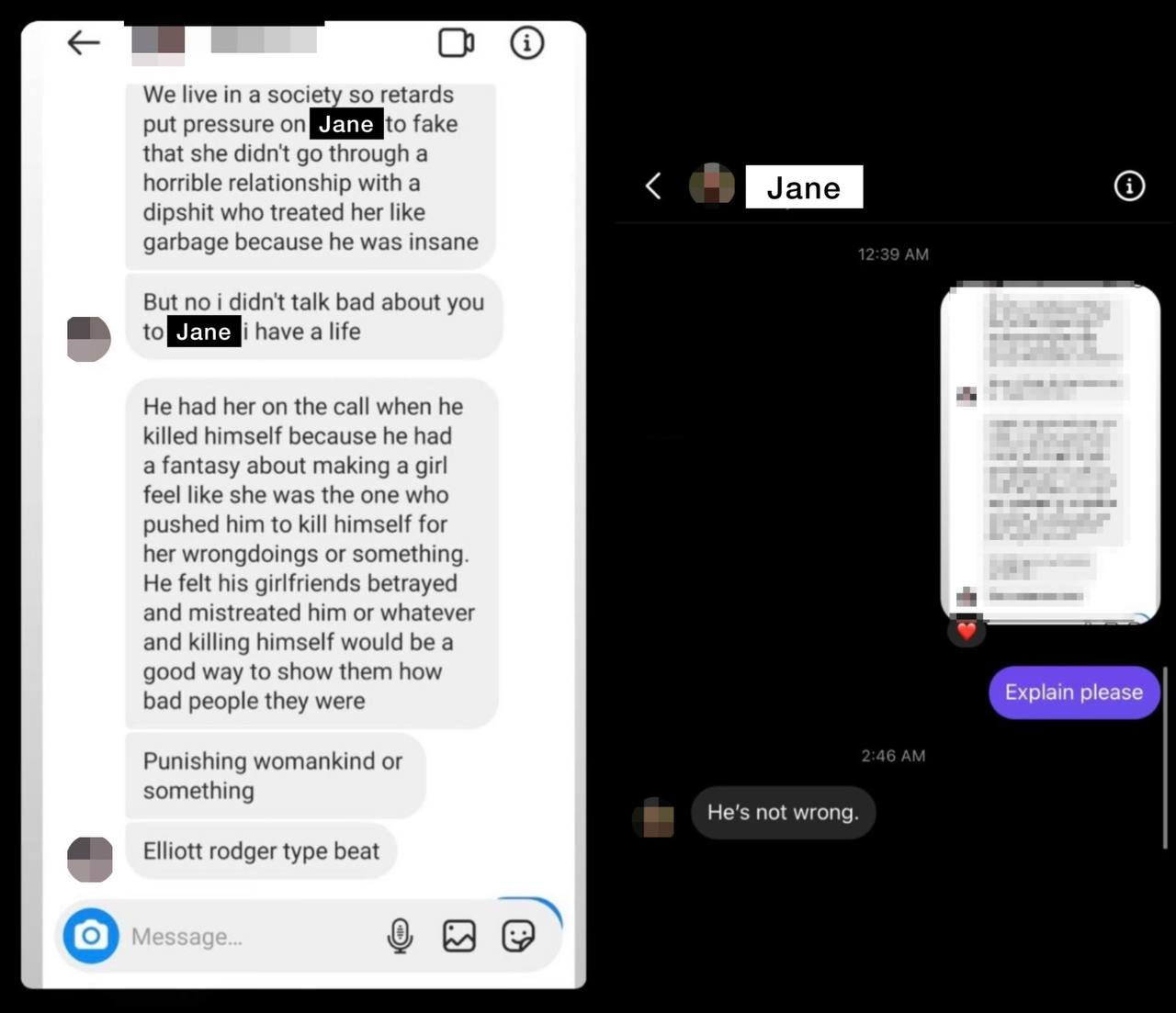
Jane was still dating the boy that she had left Elias for, and with the shock of his death beginning to subside, Jane’s concerns likely shifted back to achieving her own satisfaction—which may have been the very thing that pushed Elias over the edge to begin with in March.
After a month had passed, Jane was no longer afraid to post pictures of her boyfriend, who will be referred to as ‘F’, and was now claiming that she had endured a deeply abusive relationship with Elias. These claims were based on the fact that Elias would ask her to block the men she would message, (and flirt with), as well as personal struggles with depression that Elias had been vulnerable enough to share with Jane.
It is very important to point out that Jane had only began stating publicly that Elias was ‘abusive’ after it came out publicly from multiple people that she had been flirting with other men while she was still in a relationship with him.
I was very taken aback by Jane’s radically different disposition towards Elias, as it completely contradicted everything we had discussed prior to that moment, and the way that she described Elias at this point flew in the face of everything she had said about him previously, including before his death.
(Why would someone continue to call and message a partner they believed had abused them?)
Jane would also proceed to block all of Elias’ family members, including his sister, who expressed disappointment over this to me. I also was unfortunately the one to inform her, and by extension the rest of Elias’ family, of the truth behind what transpired the night that her brother ended his life; that Jane had been disloyal to him leading up to that moment. I felt like I was in way over my head, because none of this should have been any of my business.
Not long after this rupture between Jane and I, she announced that she was pregnant with F’s child on social media—approximately a month after Elias had died. As congratulatory praise and ovations came pouring in beneath Jane’s announcement, Elias’ family continued to grieve the death of their son, brother and uncle.
However, one thing that did bring some of Elias’ relatives a modest amount of comfort was the fact that I was forming a relationship with a girl who was one of Elias’ childhood friends living in Finland* …
Elias’ sister was very happy to hear this, and she encouraged my relationship with Doe. She was glad, at the very least, that something positive might be able to come out of this tragedy.
Sadly, Elias was not alive to inform his sister that Doe was lying about who she claimed to be.
Just as Elias could not defend himself against Jane’s accusations of abuse, Elias could not prevent Doe from using him for her own personal gain.
On Elias’ birthday, I held a vigil for him at the lake with the portrait I had commissioned of him. My newfound Catholic friends also prayed for the repose of his soul and celebrated his memory with me, which was quite kind of them.
None of them questioned the Mjölnir amulet that he was wearing in the portrait, nor the Mjölnir that I draped over it at the lake. They simply offered their prayers for him.
Regarding a conversion to Catholicism, it must be said that I still indulged in pagan practices at this point in time, and based on the conversations we had, I knew that Elias was not particularly fond of Christianity.
I was concerned that Elias might have felt disrespected if I brought Christian sacramentals and prayers to honor him with, so I employed pagan prayers and amulets instead. I clung to paganism throughout the entire RCIA program I was enrolled in, despite simultaneously falling in love with Catholicism.
News quickly spread within our Diocese that our Bishop, following the Pope’s Motu Proprio ‘Traditionis Custodes,’ was intending on suppressing the traditional Mass that would take place at the Easter Vigil at my parish: the day of my baptism. In other words, my baptism that was going to be in the Tridentine form after the conclusion of RCIA was instead going to be in the modern form, per the dictates of the Pope himself.
Despite being myself an irrelevant catechumen, the board in defense of the traditional liturgy at this parish argued that, in some sense, I had more power than anyone else to sway the Bishop’s decision since I was the very demographic the hierarchy sought to attract into the Church. If I forwarded my concerns to His Excellency, as opposed to older disgruntled Catholics, he may actually consider what I have to say.
The letter I drafted received the signatures of several catechumens in my class and was subsequently mailed to the Bishop’s office.
My relationship with Doe was developing strongly, and by this point we both expressed that we wanted to meet each other in person. She claimed that she would be “visiting the United States” during Autumn and proposed we meet in Washington, DC.
I had already decided for awhile that I would like to visit Elias’ family in Norway and pay my respects at his grave, and his family also expressed interest in meeting me as well. However, by this stage, his family also took interest in my relationship with Doe.
Assuming our meeting went smoothly in DC, Doe and I agreed that we would travel to Norway together, and Elias’ family also liked this idea. They wanted to meet us both.
Rumors surrounding what transpired between Elias and Jane continued to spread on social media, and I continued to catch wind of it. Jane was standing by her narrative of surviving abuse. It was around this period that I discovered the username of her boyfriend, and quickly noticed that he was viewing my story posts. I also began looking at his, and we soon thereafter began messaging one another.
Unsurprisingly, F stood by Jane and cast blame at Elias for being mentally ill. I stood by Elias and accused Jane of being manipulative. We argued over this, and both of us exchanged insults. This ultimately concluded in the following exchange.
I was truly considering fighting F, but Doe convinced me otherwise, raising the reasonable points that it was legally risky and a waste of money that otherwise could be put towards a trip to Norway, and that fighting F would not bring Elias back.
I also had a good thing going with Doe, (as far as I believed at the time), and did not want to jeopardize something good over something petty.
F proceeded to block me shortly afterwards in any case—Jane probably talked him down as well. It is important to emphasize that, up until this point, I had not posted anything publicly about Jane, nor about what happened between her and Elias, unless it was indirect. I also had not spread any rumors about her, nor anybody else. It was only after this altercation with F that I shed light on the disparaging things he said.
However, not long after this altercation with F, I received a message from someone I had never interacted with before containing a screenshot of a conversation they had with Jane, in which she mentioned me.
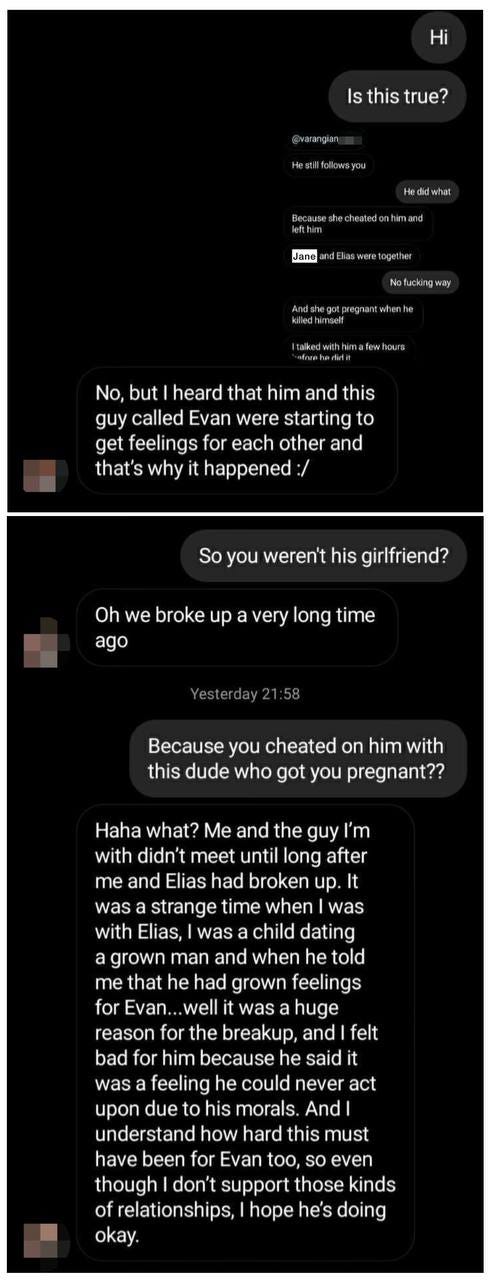
Somebody had been publicly sharing the details of what happened between Jane and Elias on social media, and Jane thought that the person doing this was me. It wasn’t.
It is also very important to emphasize that Elias never did anything illegal, but Jane was doing everything she could to paint him in a bad light. (She became pregnant thirty-some days after Elias died, she was not a child).
Jane subsequently crafted a lie about Elias that the reason he committed suicide was because he was a closeted homosexual who had a secret gay relationship with me. Jane took no issue with dishonoring her dead ex-boyfriend if it meant preserving her own reputation, and this false narrative she invented was quite clever, because it forced me into a corner. If people heard these rumors and looked at my profile, they would see the multiple posts I had made honoring Elias, potentially leading them to believe that Jane’s lies about us being homosexuals were true.
My options were to either remove my posts honoring my friend to avoid feeding into Jane’s lies, or publicly release all of the evidence that I had against Jane’s manipulation in order to defend myself, and more importantly, Elias. I chose the latter option.
As a consequence, dozens of people offered their sympathies, and dozens of people criticized me very harshly: calling me a stalker, harasser, drama obsessed, mocked my posts about Catholicism and cast a variety of other insults.
Some people even today still buy into the narrative that Jane tailored, that Elias and I were “secretly homosexual lovers” of some kind. Frankly, I find this so self-evidently false that it does not even bear defending against it any further, especially given all of the evidence disproving it. People who are inclined to believe such blatantly false accusations would do well to consider the words of C.S. Lewis.
“ Those who cannot conceive of Friendship as a substantive love but only as a disguise or elaboration of Eros [erotic love] betray the fact that they have never had a Friend ... Lovers are normally face to face, absorbed in each other; Friends, side by side, absorbed in some common interest ... true Friendship is the least jealous of loves. ”
— C.S. Lewis
Other people, of their own accord, would make terrible posts about Jane and all that had transpired. I was strictly uninvolved.
In spite of what one may think, I have a low tolerance for drama. I begin feeling physically ill if I engage in it for very long, which was starting to manifest.
I was feeling quite stressed already having to come forward publicly to defend Elias and myself against Jane’s lies. But I was partially encouraged by the fact that Elias’ own family wanted answers.
Doe herself would comment beneath some of these posts against Jane, hypocritically.
It was around this point in time I happened to notice a tagged picture of Doe on her social media where it was mentioned in the caption, quite plainly, where she actually lived. It wasn’t Finland.
By this point I already had my suspicions—it became increasingly obvious, but now I had proof that she had been lying to me this entire time about living in Finland.
I texted her saying that we needed to talk. When she called me, she had already guessed what it was about. I confronted her, and she pleaded with me that she truly did care about me and still wanted to have a relationship. The reason she gave for lying about having been childhood friends with Elias and living in Finland was that she felt strange being so affected by the death of someone she never knew in person.
Ironically, (and foolishly), I actually related to Doe when she admitted this to me. I also had moments of imposter syndrome with regard to caring about Elias, since we were only long-distance friends. At this point, I was still unaware that he ever disliked Doe.
Doe insisted that she still wanted to meet me in Washington, DC, and that she truly did care about honoring the memory of Elias. She even insisted that she still wanted to accompany me to Norway to visit his family—though I was unsure how to break the news to them that she had been lying this entire time, or if they would even still wish to meet such a person. Doe seemed serious. And then, I also considered the fact that living in the same country actually simplified things between us significantly.
This was a lesson for me. And it is embarrassing. Despite uncovering the truth behind Doe’s lies, we had spoken for hours each day for months, and the thought of being alone again was difficult to consider.
I acted foolishly, and I agreed with Doe that I also still wanted to meet her, too.
Washington, D.C.
I took the train into Washington, DC rather than flying—this was towards the end of the COVID lockdowns. Travelling by train was far simpler than dealing with airports.
I woke up around 4AM since the train departed early. Fog covered the roads of my town and was quite dense—it was alluring to see the nearby city in such a state, the neon lights from the skyscrapers coloring the fog below with no cars on the roads.
Once settled aboard the train, I began listening to music as we set off from the station. Light began to break over the horizon as I viewed the sunrise through the train windows—I distinctly remember listening to ‘Sodus’ by Cemeteries during this, and I recall this moment anytime I hear the song today.
Shortly after putting away my music, I happened to overhear a family sitting close by speaking what sounded to me like German or Dutch. I turned to them and said the only bit of German I know: “du spich Deutsch?”
The patriarch, a stout man in suspenders with a full white beard, replied with similar gobbledygook. I quickly explained that I don’t actually speak German, and in a very gentle Pennsylvania accent he introduced himself to me in plain English, along with his wife and two daughters, offering me a seat beside them. Noticing the traditional colonial-style hats the girls wore, I realized they were Amish.
I showed them my rosary, and they showed me their books. I sat with them the entire train ride, sharing stories from my life and why I was becoming Catholic. There was some mild sense of disagreement about historical events, but nothing that derailed happy company. We laughed and shared details about our lives.
The girls both seemed captivated by my rosary, and their father was very intrigued by the fact that I was travelling to meet a young lady I had formed a romance with online. Reflecting upon this, he was very right to be puzzled by such a pursuit.
By the time our train had arrived in DC, the man handed me his paper business card upon which was listed the address of his farm—the only means by which I might ever reach him again, and we all five said goodbye to one another.
I made my way to the place I was staying and got situated. Not long afterwards, Doe had arrived in DC as well, and we finally met face-to-face for the first time. We both were put at ease by the fact that we actually looked the same as our pictures online, and subsequently went for a walk to see the Washington monument.
It was during this walk we had our first picture taken together. Long after the picture was taken, I happened to notice behind us, arranged perfectly between our heads, were the words ‘To End’ on a distant billboard.
I am as disturbed describing this detail as I had felt when I first happened to notice it—but frankly I feel it would be irresponsible of me not to include it, given all of the providence that continued to transpire.
Doe and I wanted to visit the Capitol building, but it was still closed to the public following the riot that occurred in January. The day continued well and we enjoyed our time together, getting dinner and feeling happy to finally spend time together in person after talking for most of the year.
There were lighthearted moments, such as both of us echoing the chorus of ‘What a Wonderful World’ in an elevator (for no real reason). Or Doe loudly reciting the lyrics of ‘Gdzie jest biały węgorz’ by Cypis in perfect Polish (somehow). However, the main subject that continued to be brought up between us was Elias.
I formally asked Doe to be my girlfriend, and she said yes. Shortly thereafter, as a couple, we both agreed to travel to Norway to pay our respects at Elias’ grave and spend time with his family.
Doe and I were seemingly both happy with one another, and we never would have met if I never formed the friendship I had with Elias before he passed away.
We felt, or really I should say I felt, that I owed Elias for that. Norway was officially on our itinerary.
Doe did not share anything of our time together publicly, and that was perfectly fine with me. This was our first series of dates. However, I was surprised to learn that Doe had lied to her family about travelling out of town with her girlfriends. When they happened to discover that she actually met a guy instead, they obviously were upset and disliked me heavily. I can’t blame them for this, even though Doe was an adult.
But I had no way of knowing, until it was brought to my attention after the fact, that Doe had lied to her family about our trip to Washington, DC. Her family’s fervent dislike of me remained permanent, never changing, even though they never interacted with me directly in any capacity.
Prior to us meeting in Washington, DC, there were several occasions when I would describe to Doe the things I was learning about Catholicism in the RCIA program during our phone calls.
There was one conversation I recall us having when I taught her about transubstantiation and the presence of Christ in the Eucharist. I remember debating whether or not it was alright for me to be upset with people receiving communion in the hand; (she did not think that I should care). I tried explaining to her why it mattered.
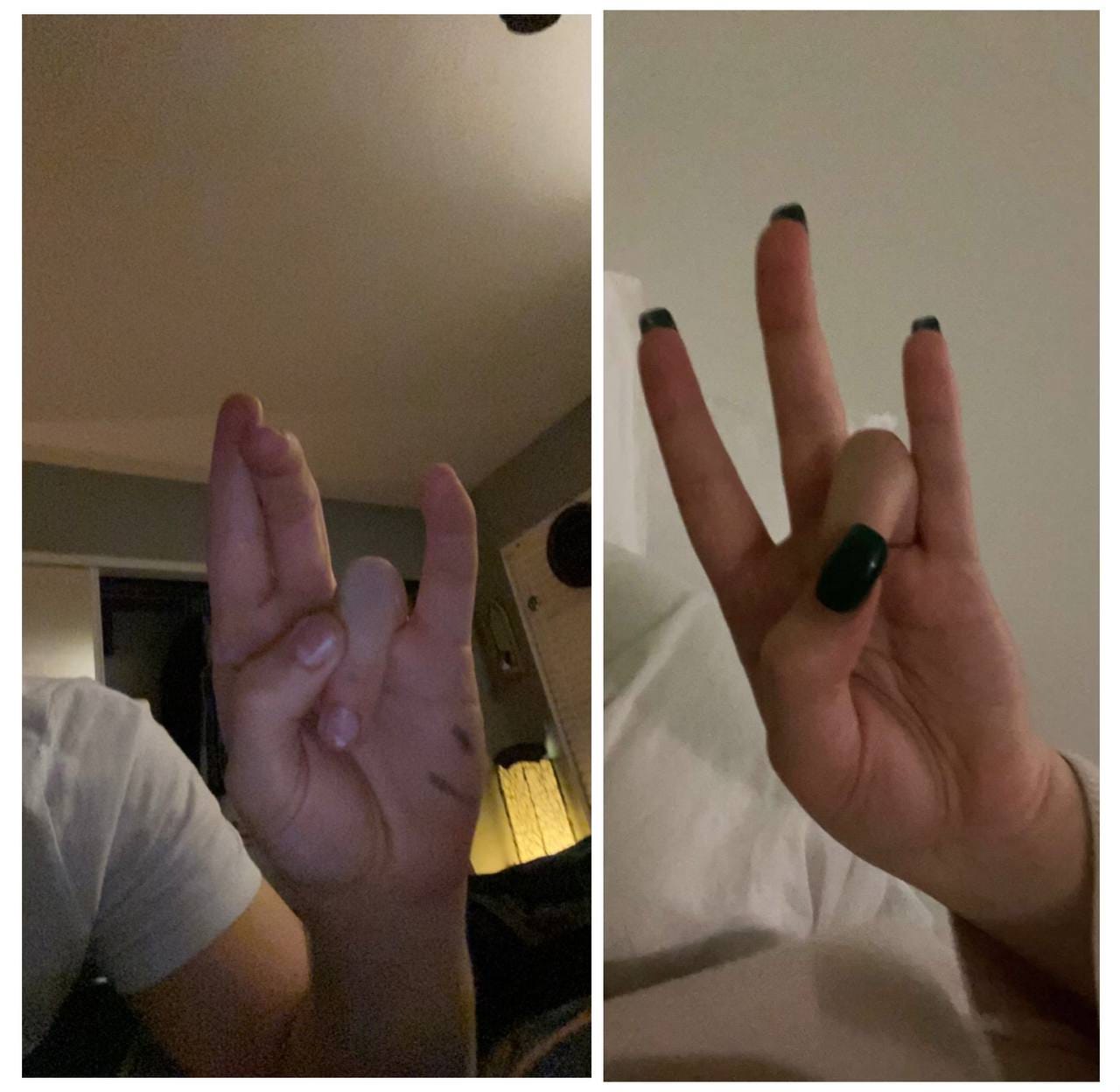
By the time we had met in person, Doe expressed a moderate interest in my conversion to Catholicism—looking over my rosary and suggesting we visit the National Museum of Catholic Art and History downtown. Sadly, the museum was closed for the duration of our stay.
As our visit came to a close, we kissed one another goodbye before departing separately. My return train was scheduled to run late into the night, not arriving home until 2AM. I had some coffee to keep me awake and remained in the café car most of the way home.
During a stop at one station, probably around midnight, a noisy group of men entered the café car—half of them in tank tops, most of them tattooed along their necks and faces. (The Amish family took the train because they didn’t believe in taking airplanes. Based on their volume, I assume these gentlemen were not even allowed on airplanes).
I put away the book I was trying to read, one that was supplied to me by the RCIA program, as the noise the group of men were making made it nearly impossible to focus—one of them continuously shouting “it smells like old people in here.” Only a few minutes later, a woman entered the café car behind them wearing a full burqa.
Instantly, the same man talking the loudest said “this train is gonna blow up. She gonna blow us up!” He continued repeating this as the woman sat alone as far from them, and me, as possible. When she eventually made her way to the concession counter, I stood and walked beside her. As she finished ordering herself something to eat, I asked if she would like to sit with me, and she accepted.
We sat and began to talk, just as I had talked with the Amish family, about our lives and backgrounds. The men behind her began to focus on themselves once their joke became stale, eventually leaving the café car altogether. I explained to the woman that I was converting to Catholicism, and she admitted to me that she was a convert to islam. At the very least, we found commonality in being converts.
I showed her my rosary and she complimented its beauty. Neither of us had anything disparaging to say to the other, and we mostly related to stories of having grown up in similar places. We sat and talked until the train inevitably arrived at my station.
New York City
After meeting in DC, the relationship I had with Doe seemed to blossom. Whatever reticence either of us may have held towards being with the other seemingly melted away, and our relationship felt more tangible and real than it had throughout the year.
In some way, strange as it may seem, meeting Doe also brought a certain tangibility to the friendship I had with Elias. I sadly never met him in person, and neither had I met his family or friends in Norway by this point. But, despite this feeling, I still could not forget the fact that Doe had indeed lied about having been friends with Elias.
We discussed where we might like to travel next, and we decided to visit New York City. I had never been to New York before and was curious to explore it. One month after meeting in DC, my train was booked, and Doe was likewise ready to meet again.
Unsurprisingly, Doe and I had a great time together. Admittedly though, I greatly disliked New York and thought it was rather disgusting. It was incredibly loud, dirt and trash littered the streets, and the people were detestable.
I could not understand the appeal whatsoever. But being able to spend time with Doe was worth it to me at this point, and we did enjoy the restaurants and the Met Museum, which we visited together.
On one occasion, Doe and I went for dinner at a place based on someone’s suggestion from their experience in the 80’s. As we sat down, our waitress was fairly exuberant and odd, and by the time our food came, it appeared as though I had received a bowl of liquid feces, and Doe received what appeared to be a microwaved sandwich.
We both asked to swap our plates for something else, offending the waitress, who we agreed looked like a character out of Harry Potter. The second course was hardly any better. We at least ordered champagne, though we only got half ways through our bottle when we realized the staff were not keen on us staying much longer. I paid the bill and we hauled ass—only, we still had half a bottle of champagne left, and the waitress was unwilling to give us a paper bag to take it with us.
Having limited options, I stuffed our large bottle of open champagne down the front of my coat, carrying it like a newborn baby as we hurried through the streets of Manhattan—hoping not to be apprehended by police.
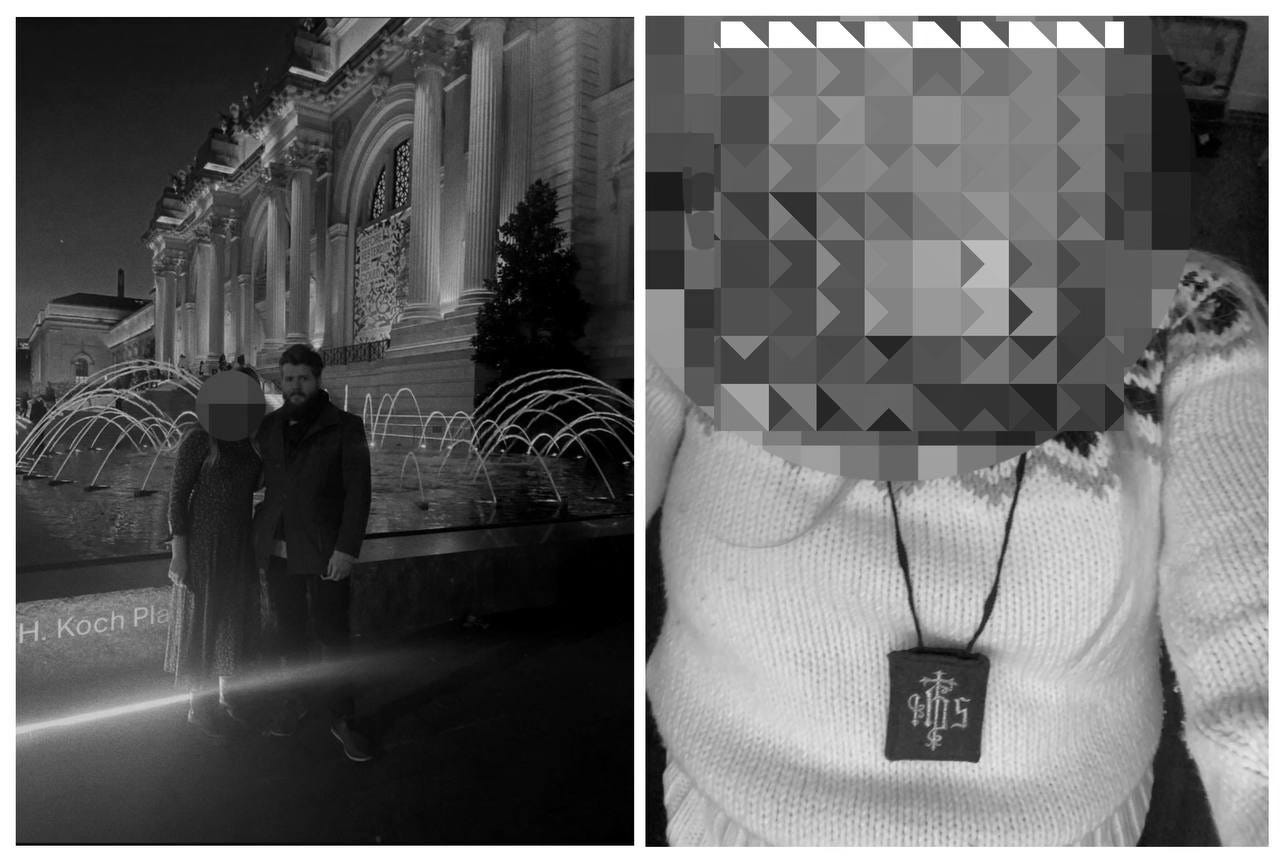
My conversion to Catholicism was steadily coming along, however my affinity for paganism still clung to me. I felt in part that shedding them would be putting a barrier between myself and Elias, and I did not like that. This was partly, I believe, a factor that contributed to the pain that would befall me, and I acknowledge that.
On one occasion, I recall Doe and I making our way through Grand Central Station, and later the New York Public Library. We explored its open corridors for awhile, admiring its fresco ceiling. Doe would waltz up to large wooden doors, reach for the old brass doorknobs, turn them, and push to see if they might open.
“Are we even able to go in there?” I’d ask.
“Let’s see,” she’d respond. Though I cannot clearly remember how we ended up there, I remember us walking into a private backroom packed with books, quiet enough to hear a pin drop, and two employees glaring at us in confusion as to how we ended up where we stood. We promptly spun on our heels and walked back the way we came.
During one evening, Doe and I made reservations at a restaurant for dinner. We were on the other side of Manhattan when we realized our reserved time was near. We raced to get to the restaurant, and along the way, purely by accident, we stumbled upon St. Patrick’s cathedral, one of the largest cathedrals in the United States.
Naturally, given I was converting to Catholicism, and despite needing to make it to our dinner reservation, we entered the cathedral.
While inside, we noticed by the altar a man and a woman nicely dressed, rehearsing their wedding vows alongside a Priest. At the time, Doe and I simply took this as a positive sign and found it endearing. Aside from that, we didn’t dwell on it.
After our trip concluded, Doe mentioned this moment to someone she knew, and after cross-referencing the dates, they realized that the woman we happened to see rehearsing wedding vows was their friend.
Returning home, I noticed that Doe still had not acknowledged our relationship publicly. We discussed it together and she gave me her reasons, but I was unsure how to feel about them. It concerned me only due to her history of lying. The idea of keeping our relationship strictly private (or secret) did not sit well with me.
After visiting St. Patrick’s cathedral alongside me in New York City, Doe told me that she was also interested in exploring Catholicism, and she scheduled a meeting with a Priest. I was proud of her for this.
However, she was fairly quick to announce on social media that she had decided to become Catholic, which is no small thing to do—making it all the more strange that she was so hesitant to acknowledge our relationship.
The glaring contradiction being that it was through our relationship, which came to exist because of Elias, that Doe had found interest in Catholicism to begin with.
Home
My birthday had arrived faster than I was expecting it to, and although Doe was unable to visit me since it was around the holidays, my newfound Catholic mates were more than happy to celebrate with me. In any case, Valentine’s Day was around the corner, so Doe and I agreed to plan for her to visit and meet my family in February.
By this point, I was beyond grateful for each of my friends. They all were great men, (and continue to be).
Most of the party met at my place after dinner, enjoying whiskey that had been given to me as a gift as we recounted stories from our lives.
It was all fun and games until an antique fencing foil from Toledo was snapped in two by one of the men, who was a competitive weight lifter. (The foil was not valuable).
I still missed talking with Elias, though. I kept his portrait visible and would think about him frequently—most especially since I had no idea where my life would have been by this point if I had never become friends with him. I would send messages venting my thoughts to his instagram account, hoping in some way he might know what they contained.
Come Christmas, Elias’ sister had sent a heartfelt card on behalf of her family addressed to both Doe and I as a couple.
There was an occasion when, shortly after Christmas, Elias’ sister reached out to me regarding her son having written a secret message in runes on his hand, asking that I might help her translate them, which I did. (They translated into English, not Norwegian).
February soon arrived, and Doe had booked her flight to visit. As I pulled up beside her at the airport, she threw her luggage in the trunk of my car, flung the passenger side door open, and kissed me. I had to reach over and close the door since there was a line of cars behind us.
It was quite surreal introducing Doe to my parents, but it all went smoothly, and everyone got along. We enjoyed dinner that night at the house, and Doe met some of my siblings as well.
Since she had also decided to begin converting to Catholicism by this stage, I gifted Doe the rosary she wanted as a Valentine’s gift. She likewise gifted me a handcrafted olivewood rosary, as well as a small statue of Saint George.
It was during this visit together that we both professed to love one another. (She had actually said so first). We agreed however that it was important to take things slow, despite having been talking exclusively for nearly a year at this stage.
I let her choose where we would go for our Valentine’s date, though in hindsight I should have been better prepared, and having chosen the restaurant, we set off for dinner.
When we arrived, the outside of the restaurant, an Italian place, seemed somewhat dilapidated. You had to take a flight of rusty stairs connected to a laundromat in order to access it. I kept questioning if it was the correct address as we exited the car.
However, once we entered the front door, the interior of the restaurant was immaculately clean, the walls painted in Roman-style frescoes. Tables were sat beside leather sofas, and each white-cloth table was adorned with flowers and candles.
It was after we finished eating that Doe had gifted me the letter thanking me for introducing her to Catholicism, and expressing that she “truly saw a future married to me with a family,” and that this future excited her, closing with a quote from C.S. Lewis in reference to Elias.
“ When we lose one blessing, another is often most unexpectedly given in its place. ”
— C.S. Lewis
After dinner, with our waiter referring to us over my shoulder to coworkers as “that sweet young couple at table [whatever-the-number-was],” I left him a nice tip and we got in the car.
I turned on classical music for the drive back, (we technically were a Catholic couple now, I naïvely thought)—however Doe suggested we listen to something ‘more fun.’ She turned the radio to another station, and shortly thereafter ‘Don’t Stop Believin’ came on, and we rolled the windows down and sang it together loudly despite it being late. It was corny and cliché and immature and we didn’t care. I drove a little too fast.
The following morning, we decided to go out for coffee. I suggested we get ready and head to a café that my friends and I frequented. Instead, she handed me her phone which displayed the address of a coffeeshop five minutes down the road. I insisted it must be an old address, but we made our way over to it, and sure enough there was a family-run place tucked away that I had never noticed before.
As her visit came to a close, Doe and I exchanged “I love yous” as I dropped her off at the airport, wishing her a safe trip home. Afterwards, I had noticed that, still, in spite of her going so far as to admit that she loved me, Doe had not acknowledged our time together in any way publicly.
On February 24th, news broke around the world that Russia had invaded Ukraine. Attached to the Roman Catholic parish I had been attending was a Ukrainian Byzantine Catholic parish, and two days later on the 26th, I found myself attending the Byzantine liturgy, sitting across from Bishop Bhodan Danylo, who Pope Francis had named the Eparch of the Ukrainian Catholic Eparchy of St. Joseph in Parma in 2014. He happened to be flying into the USA from Ukraine to give sermons at our parish.
He gave a compelling sermon on how quickly life can change in an instant, and that we can never fully be prepared for when difficult times are thrust upon us.
I was grateful to have the opportunity to converse with him at the table, alongside Ukrainian parishioners. We discussed the tragedy of the Hagia Sophia, a Byzantine cathedral, being desacralized into a mosque, which had only occurred two years prior.
Etched into marble parapets of the cathedral are runes in Old Norse that translate to “Halvdan was here.” It was likely inscribed by a Norse Varangian.
I enjoyed the discussion until a crew of journalists from a local news channel requested they have a formal interview with the Bishop.
The Easter Vigil
In recounting these events, I occasionally wonder if St. Augustine faced derision when he published Confessions. In books VI & VIII, he describes the end of his relationship with a woman he loved, who he anonymously called his mistress.
“ Meanwhile my sins were being multiplied. My mistress was torn from my side … my heart which clung to her was torn and wounded till it bled … Nor indeed was the wound healed that had been caused by cutting [her] away; only it ceased to burn and throb, and began to fester, and was more dangerous because it was less painful. ”
— St. Augustine, ‘Confessions’, Book VI, Ch. XV (4th C.)
Unbeknownst to me at the time, less than a month after professing she loved me, Doe created an account on a dating app. With the novelty of our relationship beginning to subside, Doe’s concerns likely shifted back to achieving her own satisfaction—which may have been the very thing that inspired her to lie about being childhood friends with Elias to begin with.
She used her middle name in place of her first and a picture she had taken of herself sitting in my car as her profile photo. I did not discover this until nearly four months later in July, when Doe admitted it herself.
Following February, during one of our many phone calls, Doe suddenly expressed to me (verbatim) that she was “uncertain about her future.” I asked her to elaborate on what she meant by this, but she remained vague. I was unsure if she was referring to her state in life or our relationship, (less than thirty days earlier she told me she saw us getting married and having children), and I professed how much I cared for her.
I proposed that if our relationship ever ended, I would find work in the maritime industry, aboard a cargo ship or a yacht, rather than rush to find someone new. I had previously mentioned that I found a career in maritime captivating, but that I wouldn’t want to be away from home most of the year if we got engaged.
The conversation concluded with both of us reaffirming that we loved one another. Doe reiterated this many times afterwards. Never once did she propose breaking up.
I was later informed that Doe claimed she had attempted to end our relationship during this interaction, which was a lie, but that I threatened to end my life if she did, which also was a lie. Never did she propose an end to our relationship, nor did I make any threats to entrap her. She travelled to visit me again following this discussion; it ended positively with both of us on the same page. Deceitfulness was her own choice—it was never forced upon her.
It was during March when she began speaking to another man, who will be referred to as ‘T.’ They would speak for hours over the phone.
I could detect a shift in how Doe began treating me, namely that she began speaking down to me quite coldly, and generally began to communicate with me less frequently as time progressed.
However, because Easter was approaching, my focus likewise shifted away from our relationship and more towards my upcoming baptism. As a consequence, I distinctly recall beginning to mourn Elias all over again. I began to vividly remember how tragic everything that happened between him and Jane was. It was hard to believe that a year had passed since he died.
On April 8th, exactly one day before the anniversary of when Doe had first messaged me about Elias, she travelled to meet T in person, and they had a date. T was entirely unaware of my existence, and I his. Doe had told him that the reason she decided to begin converting to Catholicism was because she was feeling stressed one day and decided to visit St. Patrick’s cathedral in New York.
Despite having travelled to meet T and continuing to communicate with him romantically, and despite the fact that Doe was beginning to treat me increasingly poorly, she still wanted to include herself in what was going to be the most important moment of my life; my baptism.
In April, with Easter upon us, Doe booked a flight to visit me again, asking that I pay for her plane ticket this time around. She arrived shortly afterwards.
Eight days prior to these pictures being taken, Doe was sitting across from T on a date. Aside from her subtle change in demeanor, I had no way of knowing she was intending on unceremoniously ending our relationship.
(Again: the ink had hardly gone dry on the letter she wrote claiming to be my future wife), let alone that she was already seeing somebody else in secret. Of course, had she been upfront with me about these things, I certainly would not have wanted her to attend the Easter Vigil alongside my family.
My letter to the Bishop had not received a direct response, though the Bishop made it clear that he was sympathetic to our pleas—but his hands were tied. The Pope was clear in Traditionis Custodes, and the Easter Vigil would remain in the modern form.
Throughout the entirety of the RCIA program, I had been contemplating which Saint to take as my patron. For several months I had decided on St. George, since it was because of him that I had been superficially intrigued by Catholicism prior to befriending Elias. However, I never would have decided to actually convert to Catholicism until after I was impacted by his loss.
It wasn’t until one afternoon, as I prayed for discernment and read through the lives of the various Saints that, with Elias in mind, I simply typed ‘Norway’ into the database I was searching through. Instantly, I was presented with a page for Olaf Haraldsson, the patron Saint of Norway.
It is obvious in retrospect that Saint Olaf had been metaphysically by my side this entire time. (It is understood in traditional doctrine that Saints in Heaven choose their subjects long before their subjects recognize them as their patron). And it was at that moment I formally recognized St. Olaf to be my patron Saint.
Unfortunately however, as I have already admitted, I had clung to paganism. While I truly did love Catholicism, I disliked the idea of enrolling into something that would have permanent restrictions on my religious beliefs, and I reflected on the conversations I shared with Elias about religion.
I was uncertain how exactly he would have felt about me becoming Catholic. Not only this, but in truth, I did not want to let go of what I found familiar. Bearing this in mind, during the Easter Vigil, I wore pagan amulets beneath my clothing and fully intended on continuing to practice polytheism when I was baptized (among other sacrilegious intentions). Doe even noticed, saying “you’re wearing too many necklaces.”
Doe sat directly with my family as the water was poured over my hair. After the vigil had concluded, we all went for dinner, as I hadn’t eaten any food the entire week leading up to Easter. My Catholic friends and I, along with Doe, all went and feasted. Doe nearly fell asleep on my shoulder since it was well past midnight, so I decided to depart from the celebrations early and take her home.
When Doe’s visit during Easter concluded, same as in February, I drove her to the airport. I pulled up to the curb, we kissed, I said “I love you,” to which she replied “love you, too,” and exited the car. I turned the radio on, drove off, and didn’t even glance in the rearview. I was expecting to see her again in a month, tops. I never saw Doe again.
By the end of April, my suspicions of Doe had never been higher. It was one thing not to share a first date, or a trip you take together to New York City, or even your first Valentine’s with someone—but not acknowledging your partner receiving baptism while you are standing alongside them was substantially different. She even announced publicly that she was “happy for the catechumens.”
We would have arguments about this. It would not have mattered so much to me if she hadn’t demonstrated a history of lying. I demanded that she tell me upfront if she was talking to someone else behind my back, to which she replied verbatim: “I swear to God there is not another guy.”
We were planning a trip to the mountains together in the hopes of starting fresh, but after a few more dates with T behind my back, come June, Doe decided to end our relationship over a phone call.
Before ending the call, I couldn’t resist asking Doe the loudest question in my mind: “What about us traveling to Norway together and visiting Elias’ grave?”
To which she replied: “I wasn’t really planning on going, anyway.”
Despite having ended our relationship, Doe would continue to call me frequently, for weeks, while dating her new boyfriend.
I was beside myself. Every time I would try to focus on my prayers, or go to Mass, or otherwise delve into Catholicism, it simply reminded me of Doe. Wounds were reopened; the depression I felt following Elias’ suicide returned.
In hindsight, this was very clearly a trial of Faith. (Everyone wants to wear a crown until they discover it is made of thorns). Becoming Christian might seem like a simple affair, but Christ taught us very directly that we are to “Pick up our Cross and follow Him.” (Matt. 16:24-26).
Showing off my fancy rosary to an Amish family during a train ride and taking pictures of a cathedral in New York City is easy. Anybody can do such simple things. I am not special for having done them. When the time came for me to truly amend my life, I chose instead to turn my back on all that I had learned throughout my catechesis.
When reflecting upon every coincidence and happenstance that brought me to this point in time, in a rather surreal way, it seemed as if I had been delivered a burden similar to what Elias had carried. Our circumstances by this point had many parallels, to say nothing of the fact that it was through his loss that I came to meet Doe.
But I didn’t think this clearly at the time. Shortly after Doe had ended our relationship, I drove to the small café that we had discovered together in February. I sat alone at the same table we had sat, staring at the empty chair opposite to mine. A corny song came over the speakers that seemed annoyingly fitting given my circumstance, so I pulled out shazam on my phone—‘Manhattan Skyline’ by the Norwegian band a-ha. “Fucking really?” I said to myself.
I stood up and left shortly afterwards because it began to irritate me. I even thought this was the devil trying to taunt me in that moment, but I am not so sure in hindsight.
My friend E, who I mentioned meeting at the prayer vigil prior to my trip to Washington, DC, supported me loyally throughout my depression. Everyday after work, without fail, E would meet me at the same café. Even when he worked late or when it was pouring rain. He became my best friend over those weeks, and still is today.
He would give me good advice, such as “just give Doe space” and “try not to reach out to her,” which was difficult to follow since Doe was continuing to message and call me despite the breakup. I recognize in hindsight that I should not have answered Doe’s calls, but I lacked the willpower to decline.
As E and I would continue meeting daily, I would explain to him in detail everything that happened until this point. Most of our friends were aware of the significant moments that transpired, but not everything.
E was himself taken aback by all of the providence involved, as well as the coldness of what transpired between Jane and Elias. He would look at Doe’s social media a few times while we sat together at the café, (Doe was still contacting me during this time)—and one afternoon, E happened to notice a young man connected to her social media who happened to live near her and who posted frequently about Catholicism. (T).
I tried to deny it. I had gone through breakups before and always overcame them, but the idea that Doe would do to me a similar thing as Jane did to Elias, the consequences of which she was aware of, was far too painful to consider. That was until she publicly posted about a ‘friend’ picking her up at the airport and his car breaking down. (T).
The tension I felt was too much, and I felt that we both deserved the truth. Rather than calling Doe to ask her directly, knowing she would simply lie again, I decided to send a carefully-worded message to T explaining who I was, and that Doe had just ended our relationship, but that we had been together as late as June. He was shocked to say the least, and we had an argument. (I felt a sense of deja vu from the argument I had a year prior with F, the person that Jane left Elias for).
As fate ordained, T’s car broke down as soon as he arrived to pickup Doe for a date. They had to cancel their plans and he stayed behind to have it towed. That was the very day he was intending on formally asking Doe to be his girlfriend. He never saw her again.
After our tense discussion, T blocked me and immediately called Doe to confront her, which just so happened to be precisely as Doe was walking out of Church, as she would later reveal to me. She lied to T about having ended her relationship with me in February, claiming that I was her severely mentally ill ex-boyfriend who was stalking her and would not stop harassing her. (Doe was still regularly calling me during this period).
One of T’s friends who he had informed about the situation sent me a stern message to leave him alone, but this simply allowed me the chance to explain the truth, which I did. And as I did, they forwarded it to T, who began realizing that Doe was lying to him about everything.
T understandably ended his acquaintance with Doe. While the two of us had not necessarily become friends by this stage, we had a mutual understanding of one another’s positions. He was kind enough to tell me that he prayed his rosary for me, and I likewise prayed my rosary, the olivewood rosary that Doe gave me, for him.
My friends supported me loyally. One night, I stayed at J’s house, my previous RCIA sponsor and old family friend, simply to clear my head. It wasn’t enough, so I joined a getaway to the beach to stay at his son’s place, (my brother’s childhood best friend), and we went skydiving. I blasted Dvořák’s Symphony No. 9 during our drive to the coast in an attempt to convince my friend to start listening to classical music and we laughed along the way, cracking jokes and sharing stories.
The camaraderie did help take my mind off things, if only temporarily. J’s son’s patron Saint was St. Michael the Archangel, who also was E’s patron Saint, and whose patronage extends to skydiving.
Unfortunately, even during this trip, and despite the tension between us, Doe would continue calling me, or sending an occasional message, and I would continue answering and replying. I had built such a strong bond with her after so long that it was difficult to resist responding to her, even after everything she had done.
I hadn’t been in love before. It must be understood that, not long after the time we shared in February, I felt as though in a single instant the girl who professed to be my future wife was gone forever. Now, instantly, she seemed vaguely interested in me again. My emotions were complex. Again, this was a lesson for me, and it is embarrassing to admit. I should have (and would have today) cut her off completely.
I already related very much to Elias when we spoke—even more so, now. It had actually become challenging for me to comprehend the parallels between us both.
Since Doe and I were still communicating, and I foolishly considered the idea of us repairing our relationship somehow, I became very advertent towards all of the men she followed on social media. Just as Elias had become towards Jane’s admirers.
It was during this time that Doe asked me for financial help towards a deposit for a new apartment. Obviously, I told her that I would not be giving her any money, to the point of outright mocking the idea during our phone call—we were not even in a relationship anymore. She did however become aware of the fact that I had begun following some of the men that she followed, and she was upset about this.
My friends and I all returned home from our trip to the coast and settled back into our normal routines.
Skydiving was nice, but whatever distractions I had enjoyed during this brief getaway vanished, and I once again was left with a sense of despair. It returned with force.
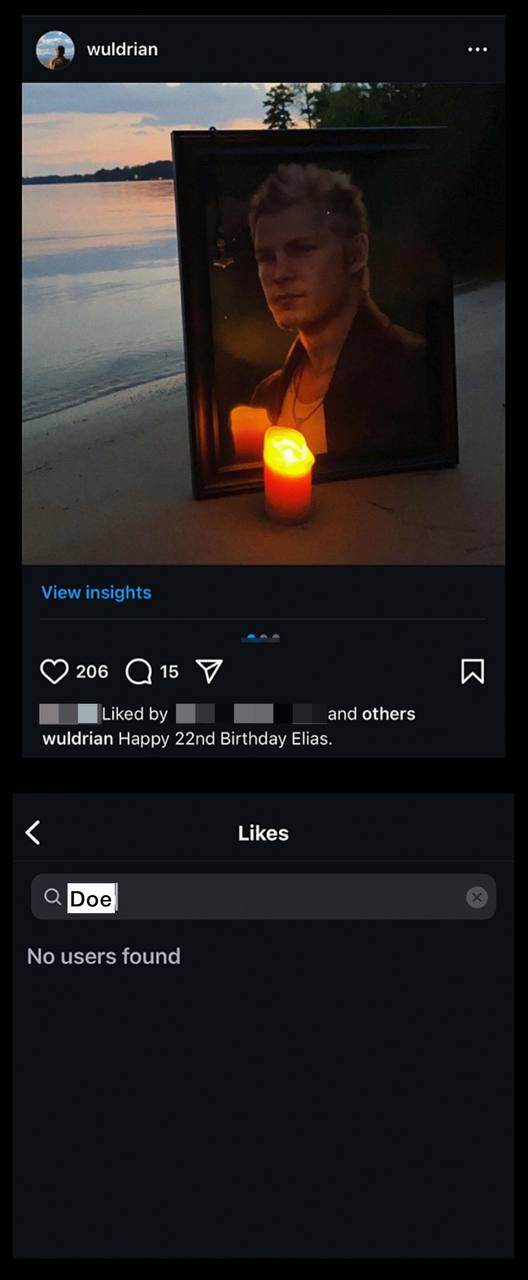
Being uncertain of what Doe’s motives were in maintaining contact with me despite ending our relationship only caused my depression to worsen—which included difficult thoughts that I had to resist—but which only appeared after Doe ended our relationship and admitted to being disloyal and continued contacting me. (Not when Doe had told me over the phone that she was “uncertain about her future” in March).
I began to admit these thoughts to my friends, some of whom by this point also knew Doe; Doe had been posting frequently on social media about Catholicism. On one occasion, when I truly felt as though I had reached my lowest point, and relating very much to Elias, I reached out to one of them—who out of concern for me proceeded to share what I was going through with Doe.
Doe’s response was to claim that I had been mentally ill this entire time, and though what she did may have been wrong, it was not the true source of my depression, which actually came from being mentally sick. My friend decided to support me.
I had updated Elias’ family about the state of my relationship with Doe, and I explained to Elias’ sister how much I related to her brother in that moment.
She asked to see examples of what Doe had been saying, and when I shared the screenshots with her, Elias’ sister felt that the way Doe was treating me was similar to how Jane treated her brother prior to his death. Doe took no issue with dishonoring her ex-boyfriend if it meant preserving her own reputation.
I was deeply struggling to remain positive about my Faith. Anything and everything to do with Catholicism was a blatant reminder of Doe and all that transpired. The only things that brought me comfort were things other than Catholicism. God wanted me to lift up my cross, not go around it. But I kept going around it. Whether it be travelling with friends, going out to the bar, sitting at the café, or in one instance indelicately flirting with a new girl after the breakup—I was avoiding the cross that God wanted me to carry.
On August 15th, 2022, Doe called me. I answered, and we had a quiet, somber argument. She was hurrying through the streets of her hometown and the noise in the background was loud. She stated clearly that she never wanted us to speak again. And at this point, deep down I frankly agreed with her.
Without either of us uttering “goodbye” to one another, Doe unceremoniously hung up the call. This was the last time we ever officially spoke.
On the advice of my friends, I entered strictly into no contact.
I happened to notice on my liturgical calendar that, exactly one month from the date, September 15th, was the Day of Our Lady of Sorrows—which would also mark the longest amount of time Doe and I had gone without speaking since she first messaged me about Elias in 2021.
It was due to this providence that I decided to take up the black scapular instead of the brown scapular, which takes as its devotion the seven most sorrowful moments from the life of Mary, mother of Christ.
The Seven Sorrows chaplet dates to the 14th century, when an apparition of Mary purportedly appeared to St. Bridget, the patron Saint of Sweden, and revealed the devotion to her.
During this time, I had been working at a country club and happened to be scheduled on a shift that ran late past midnight.
I was helping the bartenders wipe down one of the bars for the night following a wedding event, (ask me how it felt pouring wine at a wedding during this time), and was very obviously not in a good mood. One of my coworkers asked if I was sick.
While helping to clean the bar, I began to notice the music that was being played across the club—at least the lyrics that were being continuously repeated within a song caught my attention. At first it blended in with the usual jazz, but once I listened to the lyrics, again, annoyingly, this song seemed far-too appropriate. “Pick yourself up, dust yourself off…” etcetera.
I have heard the expression “God has a sense of humor” before, but this was a little on the nose. It actually pissed me off. It wasn’t until I heard the line:
“ Will you remember the famous men who had to fall to rise again? […] start all over again ”
It took a moment to combine what I was hearing together with my intuition, and I shuffled for my phone to use shazam once again: ‘Pick Yourself Up’ by Nat King Cole. The lyrics of the song reminded me of my patron Saint.
Saint Olaf: Rex Perpetuus Norvegiae
Elias and I would frequently discuss history and religion together, especially medieval history and the Viking Age. Sometimes we would talk about archery and fencing, other times we would discuss historical battles themselves.
I feel that it is very important to state this explicitly before proceeding, to ensure this section does not seem disrespectful or inconsiderate. I have spoken to one of Elias’ close friends about it at length and he encouraged me to include this section.
Although I have written about a conversion to Catholicism throughout the course of these events, it is fair to say that up until this point, a true conversion to being Catholic hadn’t even started. I might have been carrying a rosary and attending Mass, but my primary focus was centered on my relationship with Doe.
I had allowed a young woman to effectively become an obstacle to the deepening of my Faith, rather than a companion who complemented its growth. And while I might have been able to pass the Faith along to her, I allowed her to obstruct my own development of virtue in the process.
I began focusing on the actual practice of my Faith, expressing my pain to God directly, memorizing prayers in Latin, and praying to St. Olaf for his intercession—something I hadn’t really done all that frequently until this point.
Olaf Haraldsson, or Óláfr Digri (Olaf the Stout) was born in the year 995 to a local ruler in Vestfold, Norway. He was a descendent of Harald Fairhair, the man who once successfully united Norway into a single Kingdom, and he practiced paganism from an early age, as well as throughout the duration of his youth. His name in Old Norse, Óláfr, derives from ‘anu, forefather’ and ‘leifr, legacy’— or “heir of the forefathers.”
Much of what we know about Olaf was recorded in the Icelandic Sagas. His father had died while his mother, Åsta, was still pregnant with him. Åsta would eventually get remarried to a man named Sigurd Syr, who became Olaf’s stepfather and with whom Åsta had multiple children, including Olaf’s half-brother Harald Hardrada.
In the year 1008, by the time Olaf was twelve years old, he began going viking—or raiding, alongside his fellow Norsemen. He primarily went raiding throughout the Baltic Sea, targeting fellow pagan territories. However, in the following year, Olaf sailed for England.
On September 8th, 1011, the Nativity of the Virgin Mary, Olaf and Thorkell began their Siege of Canterbury, where together they fought alongside their men against the Christian Anglo-Saxons for three weeks.
A shinbone that has been historically documented as a relic of Saint Olaf resides in St. Olav’s Catholic Church in Oslo, encased inside of an ornate medieval reliquary. The shinbone is fairly large [Olaf the Stout], (which led medieval people to believe it was an arm bone, hence why the reliquary they created for it is shaped like an arm)—and it contains several scars from where cuts into the bone had healed, suggesting Olaf had sustained multiple injuries throughout his life in combat, but survived them.
The bone has undergone tests to verify its authenticity, such as radiocarbon dating, and the results found that the owner was a man who died from blood loss between the years 980-1040, (+/- 30 years). Olaf died in 1030.
After Olaf and Thorkell successfully besieged Canterbury, their men took several hostages, including a Catholic Archbishop named Ælfheah. After unsuccessfully attempting to ransom Ælfheah throughout the course of seven months, their men pelted the Archbishop with scraps of food and were prepared to murder him.
However, Thorkell was against this, and he unsuccessfully tried his best to prevent the death of the Catholic clergyman, pleading with his men and offering them everything he possessed to prevent the murder—except for his sailboat.
We can imagine the impression this incident may have left upon the young Olaf if he was present, who was only fifteen years-old at the time. He witnessed an innocent man be executed and dishonored in the process.
Olaf himself had probably killed people by this point, but I suspect that watching a hostage be murdered and subsequently mocked, while also witnessing his close friend try to defend the innocent man unsuccessfully, left a certain effect on him.
Ælfheah was himself later canonized a Saint after his death.
Some time after the death of St. Ælfheah, likely in the year 1014, Olaf gathered his sailboats and led a seaborne attack on London.
Norsemen had previously attempted to besiege London on September 8th, 994, but they were unsuccessful. Olaf was wiser in his approach. He ordered his men to repurpose thatch from local rooftops to use as cover against the arrows that would rain down upon their boats. This strategy worked, and Olaf tore down London bridge.
A verse about this event may suggest an origin for the nursery rhyme. There is speculation that the lyrics “my fair lady” is in reference to the Nativity of Mary, September 8th, which was the date of two significant Viking attacks in England: the unsuccessful siege of London in 994 and the successful siege of Canterbury in 1011 led by Olaf and Thorkell, culminating in the destruction of London Bridge in 1014 by Olaf.
“ And further, prover of the serpent of Ygg's [Odin’s] storms, valiant in war, you broke down London's bridge. It was granted you to win lands. Iron ring-swords, swung fiercely in the war-meeting, had their course, while old shields sprang asunder. Battle waxed fierce at that. ”
— Óláfs Saga Helga, Stanza 8.
Olaf did so under the service of the King of England, King Æthelred, and successfully drove out the hostile Danes. Olaf considered it his mission to reunite Norway like his ancestor Harald Fairhair had accomplished, and before sailing home, he stayed with Normans in Rouen, France for the winter.
It was while he remained in France that Olaf decided to become Catholic. He was baptized in Rouen Cathedral by the Archbishop Robert II. Whatever personal reasons Olaf held for converting to Catholicism are lost to history.
By the year 1015, Olaf returned to his homeland and received the support of the local pagan rulers to officially be crowned King of Norway.
For a period of time, King Olaf was in a relationship with a Swedish Princess named Ingegerd. However, the relationship they shared did not receive her father’s approval, and the courtship between them did not last.
Despite Ingegerd’s father promising her hand in marriage to Olaf, he went against his word and married her to a different man, Yaroslav the Wise, Grand Prince of Kiev. When King Olaf uncovered this, that his wife-to-be was no longer going to marry him, he was not pleased.
However, King Olaf eventually married a different woman in any case, Astrid, who was the half-sister of Ingegerd and promised to him by the same man.
In 1029, the petty nobles of Norway had become discontent with King Olaf’s reign, and they began conspiring to betray him. Although Olaf had bestowed Christianity to his people, to the point of personally granting baptisms despite being himself a monarch, the irritation with King Olaf’s reign was not so much about religion as it was politics: Olaf was trying to dissolve all of the local ruler’s ‘fiefdoms’ and unite Norway into one Kingdom.
The local rulers beneath Olaf took no issue with dishonoring their King if it meant preserving their own reputations. They ceased supporting King Olaf and instead gave their support to King Cnut of Denmark (also Catholic)—which forced King Olaf into exile.
Olaf then left Norway and travelled to Kievan Rus’. It was during his time in exile that Olaf stayed with his brother-in-law Yaroslav, Grand Prince of Kiev, modern day Ukraine, and husband to his ex-fiancé, and was protected by Byzantines. (I sometime meditate on how Olaf felt during his time in exile, betrayed by his former allies).
In the end, Olaf held no spite towards Yaroslav despite what happened with Ingegerd, and the Prince of Kiev would go on to shelter Olaf’s son Magnus. In 1030, King Olaf amassed an army in Kievan Rus, including Varangians, and with this army, the King was prepared to return to his homeland and reclaim his throne.
In February of 2024, the American journalist Tucker Carlson had the opportunity to interview the Russian President Vladimir Putin about the ongoing War in Ukraine.
Vladimir began his defense of the military invasion of Ukraine by describing the Varangians and the Rurik Dynasty, and how Kievan Rus had been strengthening its ties with Scandinavia during this period.
4 minutes and 40 seconds into the interview, Vladimir Putin directly mentions Yaroslav the Wise, Saint Olaf’s brother-in-law.
Varangians were primarily Scandinavians who had settled modern-day Ukraine, Russia and Belarus. The Kievan Rus who lived there had converted to Christianity in 988 under Vladimir I of Kiev, and by Olaf’s time as King of Norway, the Varangians served not only as elite warriors, but as personal bodyguards to the Byzantine Emperor.
Leading at the head of his army, which was supplied with extra troops in Sweden, and with his fifteen year-old little brother Harald Hardrada by his side—around the same age Olaf was when St. Ælfheah was murdered in England—King Olaf sailed to Selånger, Sweden, and with his forces behind him, walked from the Baltic Sea towards Trondheim in an attempt to reclaim Nidaros—but he was ambushed at Stiklestad by a hostile army of traitors; one of their commanders was Kálfr Árnason, a previous friend to King Olaf, who now had shamelessly betrayed him.
Combat ensued and in the midst of the action, just as he may have witnessed the Archbishop be martyred in Canterbury, King Olaf was himself martyred and killed—some sources indicating that it was his friend Kálfr who dealt him his fatal injury.
Five years from when I am currently writing this will mark 1,000 years since Saint Olaf was martyred in battle.
Despite falling himself in combat, King Olaf’s army killed more of their opponents than they had lost—4,600 to their 4,200 dead. Harald Hardrada, after fighting loyally against his brother’s traitors, was able to escape the battlefield without being killed.
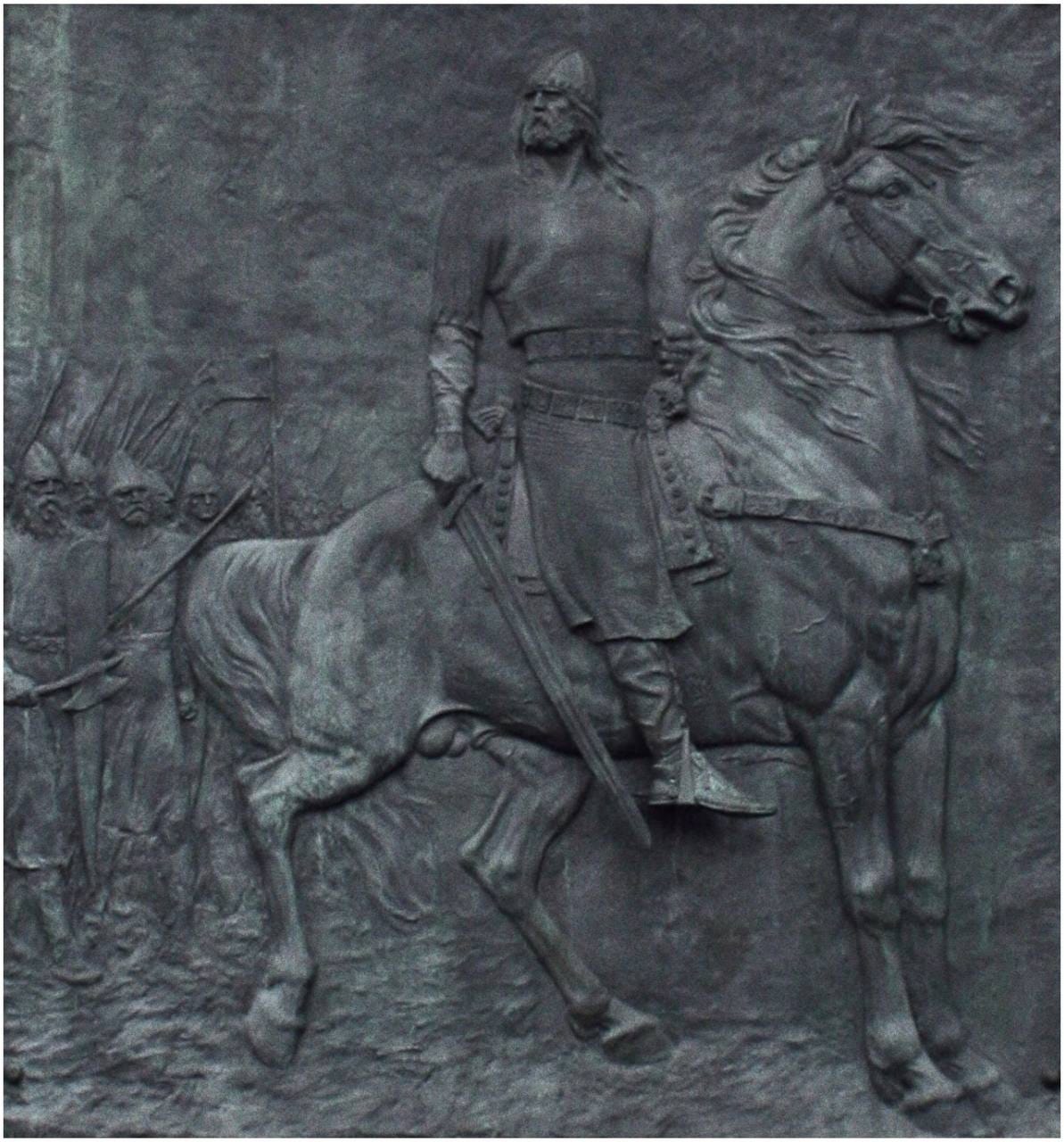
King Olaf’s son, Magnus, with the help of Yaroslav the Grand Prince of Kiev, would eventually find his way to reclaiming the Norwegian throne in his father’s stead—and after him, Harald Hardrada would also successfully reclaim the Norwegian throne as well, and the land was finally united once again into a single Kingdom—just as St. Olaf had fought so hard to accomplish.
Hardrada himself became a Varangian, fighting far and wide, from Armenia to Sicily, and he even attempted to conquer England as the King of Norway, dying in a last-stand at the Battle of Stamford Bridge in 1066, which historians consider the climax of the Viking Age.
Where Olaf had fallen at Stiklestad, a fresh water spring was said to burst from the ground directly beneath where the King’s body laid. Miracles began to be associated with the holy water from this spring.
King Olaf would be canonized a Saint one year after his death on July 29th, 1031—which still is celebrated across Nordic countries today as Olsok and its variants. His canonization was confirmed by Pope Alexander III in 1164 and he was posthumously recognized as Rex Perpetuus Norvegiae; The Eternal King of Norway. A title he still holds.
Saint Olaf became the patron Saint of the Chapel of the Varangians in Constantinople, modern day Istanbul, as well as the Church of the Varangians in Novgorod, Russia, and he was also the very last saint canonized by both the Catholic and Orthodox churches before the Great Schism.
Real life is messy, complex and often unceremonious.
Though I began improving my practice of Catholicism, I would have good days and I would have terrible days. There were days when I would pray the rosary multiple times and attend Church events, and then there came days when I genuinely wanted to skip Mass and crawl into a hole.
One Sunday morning, I forced myself to get dressed and drive to Mass. It was the last thing I felt like doing at the time, remembering Doe, and I had my head down throughout the entire liturgy. As I darted for my car, a young man in blue jeans holding a KJV Bible approached me. He introduced himself and extended his hand.
I shook it, and he said “you seemed down during Mass.”
The last thing I felt like doing in that moment was debating a protestant about theology, and I arrogantly expected him to invite me to his protestant congregation—instead, he explained to me that this was his first time attending a Tridentine Mass, and he was curious about Catholicism. I briefly explained to him how my conversion began and encouraged him to sign up to the RCIA program.
I later discovered that I was the very first person he had spoken to at the parish, the very day I did not feel like being there, and he has since converted to Catholicism and contemplated entering seminary to become a Priest.
Had I been a stronger man during this difficult time in my life, and carried my Cross properly, I may have served as a better companion for him during his conversion.
I told myself by this stage that, with Doe no longer in my life, perhaps I could begin focusing on the wellbeing of those loved ones who I knew would never betray me. With this, I began encouraging my mother to consider converting to Catholicism.
She of course had known about my own conversion, having met Doe personally, and it was far simpler to convince her to sign up to RCIA than might have been expected. (My maternal lineage was partly German, and my mother was only the 5th generation within our Swiss-German family to be protestant following the Thirty Years War—the 6th generation and beyond having Catholic baptismal records in Switzerland. My mother had therefore become the first person in five generations to reclaim the Catholic Faith in our family).
One man I knew, who already had been baptized and raised Catholic but who abandoned his Faith decades prior, had similarly heard of my conversion. We would have conversations discussing the Faith, and I began to explain in detail the crisis that had struck the Catholic Church in the 1960’s catalyzing as the Second Vatican Council, which compromised the strict standards of the Priesthood.
He was completely unaware of these events, and once being introduced to the traditional Liturgy, he also joined RCIA in order to reignite his Faith and return to Mass once more. He dug up his old childhood Rosary from a dusty box stashed away in the attic. Today, every Sunday, he attends the Tridentine Mass (exclusively).
Prior to her death, his mother was a deeply devout Catholic. She attended daily Mass until the very day that she died.
None of this would have happened without having befriended Elias.
I never would have scheduled that meeting with the Priest had I not been friends with him before he passed, nor would I have discovered Olaf to be my patron Saint.
I thought about Elias a lot during this time, and the good days and bad days became unpredictable. Nothing guaranteed if my mind would be plagued with memories of all that transpired, or if it would be clear and silent enough for me to focus on the day.
E and I would always find time to grab coffee and talk after work, but there were still dark moments that possessed me. I couldn’t believe everything that transpired with Doe actually happened, and how none of it would have happened had I never become friends with a young man from Norway. Frankly, it felt like a fever dream.
I needed to get away again. Just like I had during the skydiving trip, only farther—as far as possible. Obviously, I considered traveling to Norway to visit Elias’ grave alone and meet his family. But at this point, I was unsure if I could handle that by myself.
On September 8th, the Nativity of the Virgin Mary, it was announced that ‘London Bridge was Down.’ News spread across the world that the Queen of England had died.
Above Iceland
Becoming Catholic comes with a litany of spiritual benefits, but it also comes with benefits this side of Heaven. I had formed a modest network of online friends through social media by now, largely through Catholicism—several of my contacts living in England. (The word Catholic derives from the Greek ‘katholikos’, which means universal).
The death of the Queen of England served as an excuse to leave the country for awhile, which I deeply desired. My depression remained stagnant. I decided to reach out to one of my Catholic friends in England to see if he might have me for a visit.
Him and his friends were members of the Royal Over-Seas League, an institution founded in 1910 with the sole purpose of increasing international friendship. It received a Royal Charter in accordance with this mission, and Queen Elizabeth II herself was the patron of ROSL.
The world was collectively descending upon London, so finding an affordable plane ticket at such short notice was not a simple task. After searching through every database available to try and book a flight, the only reasonable option I was able to find was a Scandinavian Airlines flight that would have a layover in Chicago, and then Stockholm, until finally reaching London. Overnight.
The redeye flight would take over 24 hours altogether before finally reaching London, and the day after arrival was the Queen’s funeral. It was a stretch, but I took the risk and booked the flight.
Come morning I was to depart for Chicago. A rather bittersweet sense of deja vu crept upon me as I began to feel the same as I had felt when I woke up early to catch the train to Washington, DC in 2021.
After navigating through the airport in Chicago and finally boarding my plane, I was quite surprised by the size of the airbus—I had never been on an international flight before. I became situated in my seat, retrieving my book about Anglo Saxons that I had purchased at the Met Museum alongside Doe in New York. I skimmed through it, awaiting whomever was going to be the passenger beside me to take their seat.
Ten minutes passed. Then twenty. Then forty—at which point the gate closed and the plane began making its way towards the runway. I had all four seats to myself.
After takeoff, as we reached a steady altitude, I promptly unbuckled my seatbelt, lifted all of the armrests, and lounged out completely with the back of my head against the cabin wall. I remained that way for awhile, until jolting up as soon as I heard a Swedish accent ask me if I preferred coffee or tea.
By the time we flew over Newfoundland and started veering towards the ocean, the sun began to set, and I looked out at the vast nothingness that was the Atlantic—trying to comprehend how the Norse settlers managed to navigate their way across such a massive plane of emptiness in a wooden boat. (A Norse settlement was found not far from the town of St. Anthony in Newfoundland dating to approx. 1014).
I read my book until the cabin lights dimmed and night was upon us, at which point I listened to the music on my phone until my headphones died. I was given wired earbuds to plug into the touchscreen in front of me, and having not much else to do, I plugged them in and began playing the music that was available. I shut my eyes and laid against the cabin wall to try and get rest before the layover in Stockholm.
I cannot recall how much time had passed as I laid there. All I remember is that something stirred me awake, and I tapped the touchscreen. ‘Thoughts about the Past’ by Elm Lake was playing. I switched tabs to the flight map, only to see that our plane was directly overhead Iceland. I squinted at the map, and then looked out of my porthole window to see if I couldn’t spot land.
This was the farthest from home I had ever been. I may have been separated from Elias by distance, and I may have been separated from Olaf by time. But never have I felt closer to two people in my life.
For the first time in a very long time, in that moment, I was grateful to be alone. That I might share my company with the men of Heaven.
England
As the coast of Norway came into view and the sun began to rise, our plane steadily reduced its altitude, and we soared past the many fjords that scattered the landscape below. I obviously hadn’t slept after seeing the aurora surrounding us—laying there as it caressed our airplane, the many boats and lights of Iceland visible below—for the duration that it had revealed itself. So, by the time we had landed in Sweden and I gathered my belongings, I was already quite tired.
I found somewhere to rest for a moment in the Stockholm airport, and shortly thereafter sat by a window looking out at a distant tree line as I had coffee.
With a sudden burst of energy, I found myself wishing I could stay for awhile and explore Stockholm. But, my next flight was only hours away from departure. And soon after departing Sweden, I had finally landed in London.
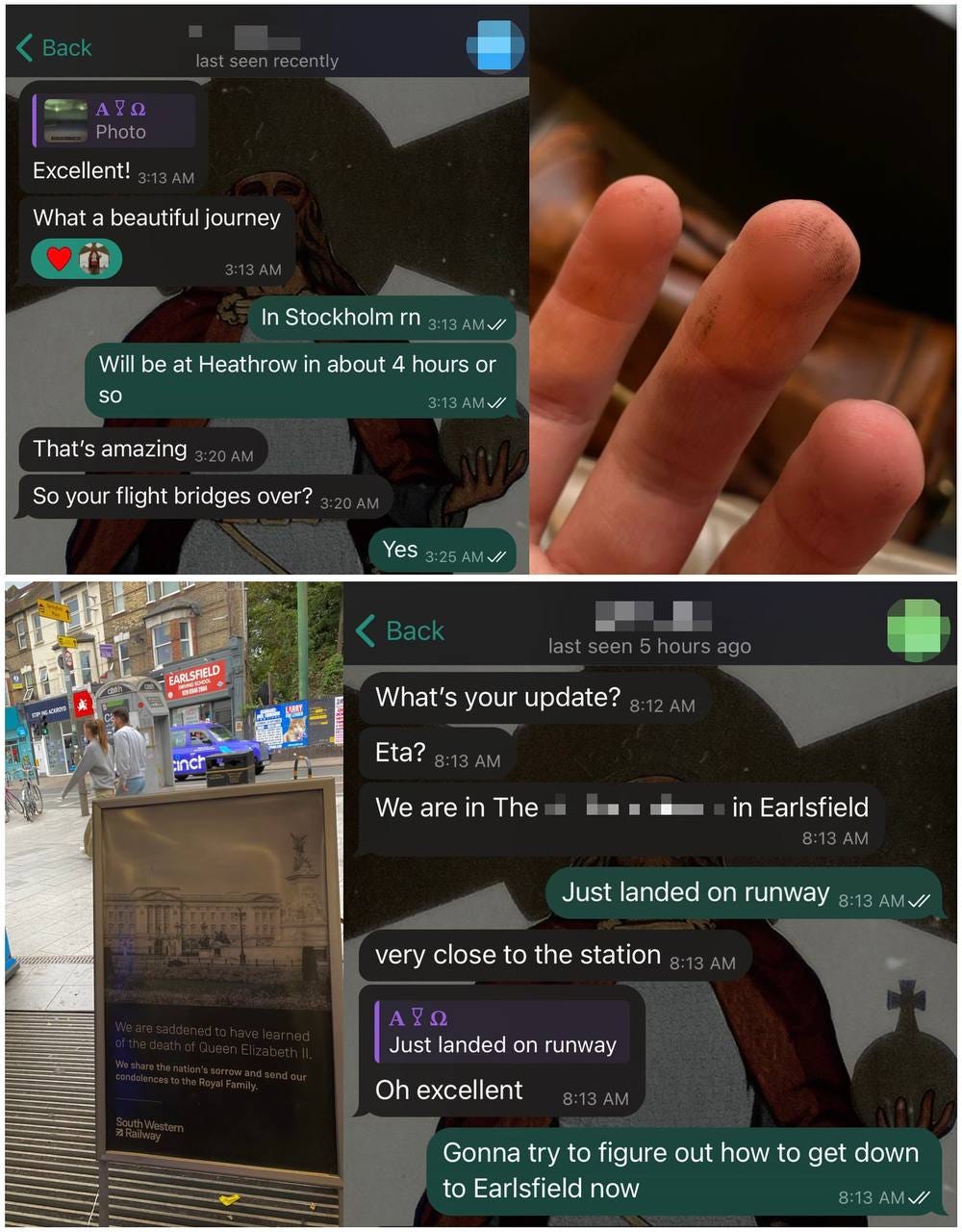
I made my way through the maze that was Heathrow and found myself aboard a train, which was noticeably nicer than Amtrak, and soon after had arrived in Earlsfield. Though I had consulted a particular friend of mine about meeting in London, he himself was unable to greet me upon my arrival due to work. In his stead were his ROSL friends—whose faces I did not know. I only had the names of the men I was to meet and the name of the pub in which they sat.
Opening the creaky wooden door of the pub and stepping inside, I looked around aimlessly as I dialed my friend’s friend’s number; my leather duffel bag still slung over my shoulder. “I’m inside the pub, where are you guys?” I asked. We looked for one another only moments before I noticed a wooden table wherein several well-dressed men sat—at the end of which was a Priest.
Each of them were as well mannered as they were dressed, and they all shook my hand and exchanged smiles. I sat my luggage down and thanked them for accepting me with such hospitality. I made the mistake of saying “Guinness” in response to one of them asking what my favorite beer was, being too tired to understand this would swiftly result in a frothy pint being sat in front of me. Which was the last thing I needed given the jet lag, but which I began drinking anyway. (I was in Britain).
“I wanna talk to the American,” said one of them in an Irish accent with a smirk, a middle-aged man. I recognized the incoming friendly banter that was to ensue and tried to keep up with it best I could, despite my fatigue. It was at this moment I realized that half of them seemed to be English, and the other half Irish—but all were Catholic, save one who was later revealed to be Orthodox.
I foolishly thought to please them by mentioning that I had almost chosen Saint George as my patron Saint. The Irishmen cast me a glare, and the Englishmen seemed no more pleased by my comment as they squinted. (It was all lighthearted fun).
“Right. So who is your patron Saint?” asked the Priest. When I had answered him “Saint Olaf,” neither him nor the other fellows had ever heard of him.
“The patron Saint of Norway,” I explained.
“Oh, right! Are you Norwegian?” asked the Priest.
“No, Father,” I replied.
“Ah, have you spent time in Norway?” he asked.
“No, Father,” I said again. Though, I technically did just fly over Norway only hours prior. Not only the Priest, but the other gentlemen were perplexed.
“And yet all this about Norway,” [I mentioned other things but I cannot remember what I said]. “Do you have any Scandinavian ancestry? Why did you choose Olaf?” he asked. My maternal surname was ‘Walser’, i.e. Walser German, a Swiss dialect of Highest Alemannic German—but I had no immediate Scandinavian blood.
To which I proceeded to summarize, as succinctly and as accurately as I could, my testimony of conversion until that point; how I was friends with a young Norwegian man who passed away, and to whom I related very much, whose name was Elias, and proceeded to endure a challenging heartbreak. (I did not elaborate on the connection between the two events. Far too complex to delve into with strangers I only just met).
They all expressed their sympathies for Elias, the Priest most especially, and tossed some advice about women my way. It wasn’t entirely unwelcome.
We enjoyed chatting a little longer until my glass was mostly empty, at which point we decided to switch to sitting at a table outside, though the Priest sadly had to depart.
We all sat and exchanged stories and banter, though I cannot recall much of what we discussed—but all of it was in good humor. I do recall getting my book about Anglo Saxons out of my bag and allowing them to peruse it, which they seemed interested in.
Before I could do anything about it, a magically refilled pint of Guinness spawned in front of me. Although a second pint of Guinness was the last thing I needed due to the jet lag, I drank it anyway. (I was in Britain).
Not much time passed before the sun had set and, after finishing our dinner, it was announced across the entire country that there was to be one minute of silence in honor of Queen Elizabeth II, whose funeral was the following morning. We all rose from our seats, along with everyone else in the pub, and those on the curbside along the street also went still. Truly, you could have heard a pin drop—which was quite impressive, given we were beside a road.
Each of the men standing alongside me made the sign of the Cross, and I followed suit. Suddenly, a distant bell cracked and all around began to cheer. And after this, though I might have expected it, I was surprised that they all broke out in song. All of them—even the ones along the road. For the first time in 70 years, the British people sang “God Save the King!”
As the applause began to quiet and the pub returned to its clatter, one of the gents I was with, an Englishman, began insisting we go to a proper English pub. They all spoke among themselves about the adventure ahead—I sat with my arms atop my duffel bag like a pillow. Indeed, it was settled that we would go to the English place.
“Right, sorry Evan, we know you are tired—trust us, you will love this place, it is a proper English pub” is approximate to what one of them assured me.
Not that I had much choice, I was more than happy to go despite my tiredness. The English were already off in their car, so I subsequently joined the Irish in theirs—tossing my luggage in the trunk and getting into the backseat.
Not very long after the engine turned on did Skibbereen begin to play. Just like that, we were off. I must admit that, despite everything leading up to this point, it wasn’t until I was sitting in an otherwise familiar setting, such as the quiet backseat of a car, that it began to strike me where I was. I watched the unfamiliar roads and buildings pass by during the drive and it began to sink in that I was an ocean away from home.
It wasn’t long after we arrived at the second pub of the night that, after sitting down at a table, the men each had their respective pints of ale in hand. One of the Irishmen happened to be some kind of mystic, and was able to summon yet another pint of Guinness into my hand. Although a third pint of Guinness was the last thing I needed due to the jet lag, I began sipping it anyway. (I was in Britain—but damn I was exhausted).
“Okay, okay,” said one of them sitting down with the rest, “we need to explain the house rules,” he said to me. “Rule one: no wanking.” I laughed, and so did they. I cannot recall the other rules, something to do with the shower and wifi. I was only able to finish half my drink, and I was somewhat nodding off by this point. Aside from the brief naps on the plane, I had been awake for over 20 hours. We eventually departed the English pub, and standing beside the car, one of the Irishmen said to me “alright, so hear me out…”
He proceeded to promise me that the next pub, a proper Irish pub, would be an absolute banger place.
I made certain this time, after we arrived at the third pub of the night and found a table, to tell them not to order me another beer. I do not remember this place so well, as I would periodically fall asleep on the table. Folk music rang about, and I woke up for a moment. It was about 1:30 in the morning, the Queen of England’s funeral was today. Lifting my head, I turned to see that these boys were dancing—right in the center of the place, as if they themselves had just been crowned Kings.
I may be confusing if they dragged me from Irish pub to English pub, or English pub to Irish pub—but it was only until sitting in the third pub of my first few hours of arrival and two-and-a-half Guinnesses in that I realized I truly was in England.
I do not very well remember arriving at the house and getting situated, but I woke up quite comfortable on a couch in a room alone with a blanket over me, the door of the room closed. Sheer white window curtains shielded the morning sunlight from blinding me, and my phone was charging in an outlet, plugged into the converter I brought with me, and it laid atop my luggage. I checked the time, and we had just enough of a head start to make it into London before the funeral began.
We took the train into the city and, having some much-needed sleep under my belt, I enjoyed the journey into London far more than I had the other way round.
Church bells rang as we made our way towards the crowd of people lining the peripheries of the procession route. Just as we had stepped forward to walk towards the massive crowd, an officer in a reflective vest, rifle hanging from its sling across his body, raised his hand to us. (The other lads were at the ROSL clubhouse).
“Stop! Go back! Turn around, this area is full. It’s full this way. No more people allowed, no more people,” he shouted to us and the strangers behind us. Prior to today, approximately 250,000 people queued to pay their respects over the Queen’s casket, and today was to be considered the largest security operation ever mounted in UK history. I glanced at my friend.
“No matter. Let’s go to the clubhouse, the other guys are there anyway,” is approximately what he said to me. In any case, the Royal Over-Seas League clubhouse was a stones throw from Buckingham Palace, it would be better than sweating among others for a glance at the casket.
We met the other men at a table upon arrival, across from which were other members who I happened to notice were quite somber and teary-eyed, which swiftly reminded me that this occasion was more than a mere historical event. There was a strict dress code to enter the clubhouse, but gratefully I dressed well enough to blend in.
Some of the men got ale, others tea, as we sat facing a television broadcasting the funeral. The door to the balcony was kept open, and the speakers of the television would echo the sounds outside, with a delay of only one second or so—4.1 billion people were estimated to have tuned in across the world. Occasionally, I would step out onto the balcony and face Buckingham Palace.
Shortly thereafter, my friend who I was supposed to meet upon my arrival in England joined us, and together we all observed the Queen’s funeral until its conclusion.
As the ceremonies came to a close, the other men decided to give me an off-the-cuff tour around London. I placed flowers near a tree beside Buckingham Palace out of respect for the departed Queen, and we carried on until the sun began to set.
I believe the first place the men led me to was St. James’ Palace, where Charles III was proclaimed King eleven days prior.
My newfound friends would continuously ask if I’d like for them to take my picture. (It was the mission of ROSL to foster friendship with international folk, and it was evident by their hospitality that each of them took this mission seriously).
We then proceeded along The Mall, where the main procession had only just happened, and finally to Buckingham Palace.
It is challenging to put into words how surreal it felt walking, what felt to be almost alone, in the same place where only hours prior such a historic event occurred. My friends and I chatted along the way about various things—and as we did so, the topics we discussed reminded me of the conversations I would have with Elias. I recall becoming somewhat quiet around this point, remembering our talks, and thinking about the fact that I would not be here had we never been friends.
Given the massive scale of the Queen’s funeral, it was rather surprising that everyone had seemingly vanished so soon after the ceremonies concluded. Walking down The Mall, you could practically hear your own footsteps against the pavement.
I cannot recall what we did for dinner, but eventually we made our way out of Westminster and returned to the house.
Disclaimer #1: This is one of the sections I have added and removed several times. I have discussed with Elias’ friend whether or not I should include it, and they agree that I should. I do not want to appear inconsiderate towards Elias by discussing these topics. However, it seems far too important a detail not to include. Possibly the most important detail. Even if it makes me appear psychotic.
Needless to say, a variety of strange coincidences continued to unfold throughout the course of these events, such as Queen Elizabeth II dying on September 8th, the same day that St. Olaf began his campaign in England that culminated in the tearing down of London bridge, and the codeword for the death of Queen Elizabeth II likewise being “London Bridge is Down.”
When the other men and I returned to the house after Queen Elizabeth’s funeral, we all sat around the table in the living room—on the edge of which sat a book. The cover depicted a sci-fi looking portal of some kind. I cannot recall how it came to be mentioned, but it belonged to one of the men at the table, who promptly handed it to me and began explaining what it was about.
‘Synchronicity: An Acausal Connecting Principle’ was its title, written by the Swiss psychologist Carl Jung, the progenitor of analytical psychology.
‘Synchronicity,’ as would be explained to me, was a concept formalized by Dr. Jung that helps to describe events wherein two things appear to be meaningfully connected, but do not have any observable connection within the objective world.
I had never heard of this concept before. It wasn’t until this moment I ever even heard the word ‘synchronicity.’ One might argue that it was extremely coincidental by itself that this book was laying there in the first place given the chain of events that brought me to England to begin with—and the book was subsequently gifted to me. I still have it.
An example of Jungian synchronicity that occurred throughout the course of these events would be the billboard behind Doe and I in Washington, DC saying ‘To End.’
The billboard behind us was most likely an advertisement for a politician or some irrelevant business, it had absolutely nothing to do with our relationship (or its outcome). The fact that Doe and I happened to stand in such a way that the words ‘To End’ formed between our heads, in our very first picture together, is what a healthy person would refer to as a coincidence—and Carl Jung would agree: this was simply a coincidence. Nothing connected these things.
However, from a subjective point of view, this coincidence makes us feel weird. It feels as if the billboard was prophesying the eventual end of my relationship with Doe.
It feels like there is meaning behind the coincidence—and indeed, had I noticed this coincidence sooner and it evoked in me anxiety, such that I preemptively ended my relationship with Doe before she could ever betray my trust, it would have been as if I avoided fate by way of believing in prophecy, simultaneously fulfilling the end of the relationship along a different path—all because of a subjective coincidence.
This is where Jung’s synchronicity differs from mere coincidence. Jung suggests that the meaningful connections we subjectively associate between things that are not objectively connected is just as real as the objective world, despite not being observable.
In other words, according to Jung, the subjective world exists in reality just as much as the objective world—even if the two are not always bridged in a measurable way, implying that the meaningfulness we experience when we see the words ‘To End’ between the heads of a couple whose relationship would eventually end is real.
In moments of synchronicity, the subjective world and the objective world are acausally connected by meaning.
To list some of the synchronicities described thus far:
The computer I played videogames with Elias on broke down one week after he passed away, the only thing belonging to Elias that survived his sister’s housefire was his baptismal dress, my assigned RCIA sponsor was a long-lost family friend, Doe and I unintentionally attended the rehearsal of wedding vows of a friend in New York City, the car T drove to pickup Doe in before asking her to be his girlfriend broke down upon arrival preventing him from doing so, Elias’ username Varangian refers to the same warriors the patron Saint of Norway assembled in exile, and a song titled ‘Thoughts about the Past’ began to play as I awoke above Iceland.
After I was handed the book by Jung and had the concept of synchronicity explained to me, I began contemplating all of the synchronicities I had encountered until that point. This caused me to feel that I was falling into psychosis.
Carl Jung also felt psychotic when he dwelled upon synchronicities in his own life. (He happened to meet Adolf Hitler and Mussolini at a rally and was able to psychoanalyze them). However, one tool that I had at my disposal that Carl Jung did not have was my smartphone—and looking at all of the pictures and recordings I had captured of synchronicities helped to placate my concerns of being psychotic.
Disclaimer #2: This testimony is not merely about my religious conversion, it is also meant to serve as a eulogy for Elias. I must balance this as respectfully as possible. For this reason, I have decided to remove a lengthy section I had previously written delineating the Double Slit Experiment, out of respect for Elias.
I explored a variety of subjects after reading the book given to me in England, mostly about the nature of reality, a few of which happened to delve into quantum physics.
The double slit experiment is hard to explain using classical logic (wyrd bið ful aræd). If the reader wants to learn more about the experiment, they can do so here. If they want to read the latest defense of the Von Neumann-Wigner interpretation, the theory that consciousness causes wave function collapse, they can do so here.
In hindsight, it seems quite remarkable that this was the manner in which I discovered Jung’s concept of synchronicity; sitting somewhere in England, among men I had only just met, due to a breakup I endured with a girl I only became acquainted with after being affected by the loss of Elias.
Because of my lingering feelings of psychosis, I find it psychologically accurate to describe a copy of the book ‘Synchronicity: An Acausal Connecting Principle’ laying atop a table in England, and being promptly gifted to me shortly after my arrival, as an Odinic coincidence, in the Jungian sense of the term. (Old Norse ‘Óðr’ [adj.] - ‘mad’).
In metaphysical terms: all of this was Divine Providence.
Our discussions continued well into the night, veering from one profound topic to the next, and soon I was laying on the couch alone in the dark room once again. I laid the book by Jung atop my clothes in my duffel bag and fell asleep.
Come morning, everyone in the house had returned to work and wouldn’t be home until late that afternoon. I was alone, and no plans were made for the day ahead.
Having just spent the previous day in London, the thought of immediately returning to the city and wandering around by myself seemed unappealing. Instead, I decided to immerse myself in the nature of the nearby countryside.
Until then, all of my time in England had been spent either in the company of others who served as my guides or in total exhaustion. Being well-rested and having no one to lead me, I began to get acquainted with the land itself.
For years, I heard the popular trope that England had devolved into a “shithole,” and all that remained of its former glory was slop food, rude people and trash-covered streets. I was half expecting this when I arrived. I told myself on the airplane to forget all about Tolkien’s ‘shire’ lest I be sorely disappointed. Instead, I was surprised.
It must be said that not only were the strangers I encountered some of the kindest people I’ve ever met, but the restaurants were excellent and the countryside of southern England remains the most beautiful nature I have ever explored.
I began quieting my mind and listening to the sounds of bustling trees and singing birds, all of which gave me much-needed comfort. In some way it was strange; never had I felt so familiar and restful in a country I hadn’t ever stepped foot in.
I traversed through a nearby tree line deep into the woods where I found running along an embankment a flowing stream. At first, a pile of netting stopped me dead in my tracks as it looked as if it were a coiled snake. I kicked it aside when I realized what it was and began sifting through the stones under the water.
A faint glimmer of light from beneath the flat stones caught my eye, and I recovered a rusty iron ring from the stream. When I brought it back to the men that afternoon, they each passed it around giving their thoughts about what it might be. Obviously, the mind likes to wander, imagining it was a medieval horse bridle or some such riveting artifact—but probably it was a piece of doorframe from the 1800’s.
We ordered dinner in that night and sat around the living room table, discussing various aspects of Catholicism and sharing tales from our lives, just as we had the day of my arrival. Only this time, being well-rested and sober, I was far more engaged in the conversation.
Placing the iron ring I found aside, we each presented to the other our valuables. One of the men wore a signet ring he inherited as an heirloom from his aristocratic family. I passed around a gold crucifix I had commissioned in celebration of my conversion, which was crafted by Marta & Wojtek Kochman, an archaeologist and gold smith couple. It was a reproduction of multiple crucifixes found in parts of Denmark and Sweden dating to 900AD, and it is considered the oldest known depiction of Jesus Christ ever found in Scandinavia.
Although I was unaware when I initially commissioned the crucifix, Marta & Wojtek had produced much of the jewelry for The Northman film by Robert Eggers. My friends and I went to see this movie in theaters not long after my breakup with Doe.
The following morning, I once again was left to navigate the day independently. With the iron ring I found in the stream on my mind, I felt inspired to take the train into London and visit the British Museum.
Being able to recognize so many artifacts I had once seen in books was a privilege. As a child, I always professed that I wanted to become an archaeologist.
Immediately upon entering the second floor of the museum, gazing right at me from behind its plexiglass cage was the Sutton Hoo helmet—the same helmet my friend in security contracting had used on the face of his business card.
Visiting the museum did draw forth memories from when Doe and I had wandered around the Met together in New York, but the aura that emanated from such captivating artifacts drove these thoughts away as soon as they arrived.
The day carried on quietly, and for a time, the thoughts in my head were swept away from all of the worries that brought me to England in the first place.
As the next day arrived, while a few of the men and I sat around the living room, it was mentioned in passing that one of them worked in parliament. I cannot divulge much about his role for the sake of anonymity, but he asked if I might be interested in a tour of Westminster Palace.
Naturally, the train into London this time around felt much faster than before, as I greatly anticipated being able to explore the palace. I never could have expected this opportunity when I first arrived; I had no idea one of the men I was meeting had any connection to parliament.
Upon arriving, I had to pass through a security screening much like that of an airport, and I was subsequently given a ‘visitor’ tag. My friend led me through one of the adjacent office buildings and up a flight of stairs, leading to its roof, where we leaned against the terrace railing and struck up conversation.
We remained on the roof for awhile before deciding to make our way to the palace proper. Right when we set off, as we began opening the door leading back down the flight of stairs, an alarm began shrieking across all of the office buildings.
For a moment I thought it had something to do with our accessing the roof. Surely this violates a litany of security protocols, I assumed. We quickly realized it was actually a fire alarm, and security began ushering people out of the building.
St. Olaf sacked London in 1014; if a fire breaking out upon arriving at Westminster Palace was not another manifestation of synchronicity, then surely it was Divine humor.
As we made our way out of the building and shuffled past the workers who were exiting due to the alarm, I was quite surprised how simply my friend and I waltzed directly up to the palace courtyard and beneath its towering walls.
I was even more surprised how easy it was for us to enter inside the palace, as there quite literally was an old wooden backdoor that remained unguarded.
Thanks to the fire alarm, with others processing out of the palace and its related buildings, it rather conveniently allowed for my friend and I to slip in without having to traverse through crowds of people.
A session discussing the Ukraine War was ongoing in the commons once we were inside. As we walked the halls, and my friend opened several doors peering into rooms, you likely could have heard a pin drop. I am unsure if it was solely due to the reports of a fire or a variety of other reasons, but not a soul was in sight.
There was no scrap of wall or floor or ceiling that was not extravagantly decorated, etched or gilded. My friend whispered to me all kinds of explanations about the plethora of artworks hanging from the walls. We turned one corner leading us to a closed door, my friend turning the brass doorknob cracking it open. We poked our heads in. I believe he said: “I’m not sure if we can go in here.”
At any rate, nobody was inside. We stepped in for a moment and looked around, admiring the towering bookcases. We continued traversing the hallways leading to a spacious room with an open window, which presented an excellent view of the River Thames. This was the river that St. Olaf had sailed with his army when he brought down London bridge.
“We can actually eat here if you like. But it is quite expensive,” my friend said. I noticed a bar adjacent to a series of small tables, each with tufted leather chairs. However, there was no bartender behind it. We were the only people in the room.
“Sure, I’d say it is worth it,” I replied. I took a seat at the table by the open window. My friend then stepped out to look for waitstaff who might serve us, and I was left sitting alone for awhile.
I looked down at my phone and decided to share some of the pictures I had taken from my trip on social media. It was during this time alone I noticed that Doe was viewing my posts.
Obviously, I ignored it. My friends and I all agreed the best and only course of action from this point was no contact. And the ability to put Doe out of my mind came quite easily in this moment, as I was sitting in the heart of Westminster Palace.
And it was in that moment, sitting there alone looking out at the Thames, that it began to set in how lucky I was. When I had initially messaged my friend about coming to England, I was half-dressed sitting in my bedroom with disheveled hair and no elaborate plan in mind. I was expecting to crash on his couch and go drinking at a few restaurants around London—I had utterly no expectation of being where I was, three days after the Queen’s funeral.
“Can’t seem to find anybody,” my friend announced upon his return. I stood, and we continued our way around the palace towards the Royal Gallery, which often is used for state receptions and parliamentary ceremonies.
My friend was kind enough to ask if I’d like him to take pictures along the way. At some point, we happened upon a document Queen Elizabeth II had signed when she ascended to the throne declaring allegiance to protestantism; i.e. to reject Catholicism. It was sealed under a glass case, and I proceeded to make the sign of the Cross over it, offering a short prayer for the repose of her soul and for God’s mercy.
As we made our way back from the gallery, we stumbled upon the throne in the Lord’s chamber. As my friend went to open the door leading into the chamber, it was locked.
“Damn, this door isn’t usually locked. Normally we can go inside and walk around.” He thought about finding a colleague to acquire a key that would give us access, but to no avail. Enraptured in the moment, I lifted my leg and jokingly pretended to kick the door down. This was a very stupid joke, not least because of security cameras—but it evoked a laugh from my friend and nothing came from it.
We finally exited the House of Lords and returned to where other people congregated, going about their usual work day. As we did so, my friend pointed to the monitors displaying the ongoing session in the House of Commons about the Ukraine War, which was emblazoned with the name of the incumbent speaker: Boris Johnson.
“Boris is about to speak, good timing. Want to sit in on the session?” asked my friend. I hadn’t expected I even had the right to do so, but I affirmed that I would like to. With haste, we navigated our way to the visitors’ gallery.
We walked several long flights of stairs winding through slim stone corridors before finally reaching yet another security checkpoint, behind which stood two well-dressed men in tailcoats. I had to sign a ticket swearing to abide by house rules and my smartphone was subsequently confiscated. As I began placing my phone case back into my pocket, one of the men in tails stopped me. “Oi is that a phone!?” he asked, pointing at the case. His buddy smacked his arm. “No mate, that’s his wallet. Look.” He pointed to my credit cards tucked inside of it. With that, we were let into the chamber and took our seats.
I sat directly adjacent Boris Johnson, who couldn’t have been more than 12 feet below me. How I went from grieving a breakup shirtless in my bedroom to sitting overhead the former Prime Minister of the United Kingdom I still cannot understand.
Boris was already yammering away by the time we had taken our seats. He had resigned as Prime Minister on July 7th, 2022—two months before Queen Elizabeth died. There were growing allegations of misconduct against Johnson culminating in his resignation, and the last photograph taken of the Queen was during her meeting with Liz Truss, who succeeded Johnson as Prime Minister.
“Putin’s war” this and “Putin’s war” that, he cried. Boris was insisting that the war between Ukraine and Russia should continue, and that any hope for peace was erroneous. He proceeded to declare the following:
“ We have absolutely no choice but to stay the course [continue the war] … with every week that goes by, our position gets stronger and Putin’s position gets weaker. And though times are tough for families now . . .- ”
— Boris Johnson, 9/22/22
When Boris Johnson said this, I wanted to spit on his mop blonde head. Surprisingly, I actually could have; the security screen was unsealed and there were gaps between the plexiglass panels. However, such an action would have ruined my life, had me imprisoned, and subsequently ended my friends career, (though possibly rendered us a footnote in Johnson’s biography). I made no disturbance.
Boris Johnson is singlehandedly responsible for the Ukraine war continuing to rage on to this day. In April of 2022, Russian and Ukrainian delegates met in Istanbul and formalized a peace agreement. Both delegations agreed to the terms outlined in the armistice and the Ukrainians were ready to sign: the Ukraine War would have lasted only 90 days—but it was Boris Johnson who pressured Ukrainian President Vladimir Zelensky to back out of the agreement during his unannounced visit in Kiev.
Following the botched armistice, hundreds of thousands of deaths, Ukrainian and Russian alike, lay at Johnson’s feet. He probably has financial incentives for keeping the war ongoing, which is equally true for many individuals who occupy positions within various intelligence agencies. A journalist once requested an interview with Boris to discuss Ukraine, but he demanded to be paid $1M for the privilege.
As the proceedings came to a close, my friend and I made our way out of the chamber and I retrieved my phone. Before leaving the palace, my friend led me to St. Mary’s Undercroft, a chapel founded in 1297 in dedication to Our Lady.
The following morning, my time in England had come to an end. I sadly did not have the opportunity to bid all of my new friends a proper farewell, as they were already off to work by the time I was up. Though I often regret not staying longer, regardless.
The morning sunlight cast a radiant glow across the frosted glass windowpanes of the front door. I hesitated for a moment, partly to ensure I had all of my belongings, but also because I did not really want to leave.
Upon arriving at the airport and boarding my flight, I took my seat closest to the window. I was set to have a layover in Stockholm overnight, and the flight back to Sweden wouldn’t be long enough for a proper sleep. I also wasn’t so lucky to get all the seats to myself this time around; a middle-aged man sat down beside me, and I rested my head against the cabin wall.
I glanced around and noticed that all of the passengers boarding the flight were far older than me—save one, a young woman about my age, who was carrying a large bag over her shoulder. One of her hands was wrapped in a bandage, which didn’t seem to prevent her from hurling a suitcase into the overhead compartment above my seat. She promptly sat down beside the man, closest to the aisle.
After takeoff, as we came to a steady altitude, I looked around the plane once again. The man beside me had his eyes closed and seemed to be listening to music. I happened to notice the bag resting beside the young woman, and tied upon its handle was a small, silk-like ribbon. Half of it was blue, the other half yellow. Despite the dim lighting, she was reading a book. I leaned forward in my seat slightly.
“You must be from Ukraine,” I said to her. She glanced up from her book.
“Yes, I am,” she replied. I pointed to the ribbon.
“I thought so when I saw that.” She smiled and held up her hand.
“Yes, and these,” she said, referring to her nails, which were also painted blue and yellow.
“What happened to your hand?” I asked. Despite it being wrapped in gauze, she replied simply: “it happens.”
Lights flicked on, and soon there were flight attendants pouring us coffee. The man sitting between us removed his headphones and also retrieved a cup. The girl introduced herself to me, P. We sipped our coffee and went right back to talking. She told me about the book she was reading, ‘Ordering Your Private World’ by Gordon MacDonald, and soon the topic shifted to the war in Ukraine.
The man between us also began asking P questions about the war. He seemed quite curious about things he had seen in the news. After answering him, P would lean forward and tell me something, to which I would reply, then she would reply, and I would reply again. After several minutes of this, the man flicked his finger back-and-forth between us both. “Do you two wanna sit together?”
After swapping seats with the man, P explained that she was a refugee from Kiev, and she showed me videos and pictures of destroyed buildings and ruins on her phone. However, she would proceed to happily show me pictures of all the food she had once prepared for her friends and family. I asked if I may take a picture so I could share it with the Ukrainians at the Byzantine parish back home, who fed me my first bowl of borscht during Lent, and she said yes.
The conversation shifted to me when P asked why I was traveling. I told her about Elias, and how through his death I met a girl who hurt me quite deeply. Despite having just showed me pictures of rubble from war torn Ukraine, P’s face darkened when I mentioned Elias’ death.
“I am very sorry about your friend,” she said. I said that I was, too.
Our discussion soon returned to the war, which caused the man to chime in with another question for P.
“I saw somewhere that the group Azov Battalion were neo-Nazis. Is that true?” he asked. P shook her head. “No. They are our heroes,” she replied. “They are like your Navy …-”
“Navy SEALS,” I said. “Yes, like special forces,” she finished. Several seconds passed, when P then added:
“But they are pagan, and I don’t like that about them.”
(It strikes me as I recount this how fictional it sounds. All I can do is state firmly that yes, P really did say this. It took me by surprise. In any case, we are still connected. She can confirm that she made this comment if necessary).
Given all that transpired leading to this moment, it was quite disorienting for me to hear a Ukrainian refugee say that she didn’t like a unit of soldiers for being pagan. But I made no mention of my past. (What could I have said?)
“But I heard that they wore Nazi symbols and patches,” is approximately what the man said in reply.
“No, they are symbols from history. They are like an alphabet,” P replied.
“They are called runes,” I interjected, which P affirmed. I opened my book about Anglo Saxons and turned to a page with Elder Futhark runes to show the man, and he seemed satisfied with our explanation.
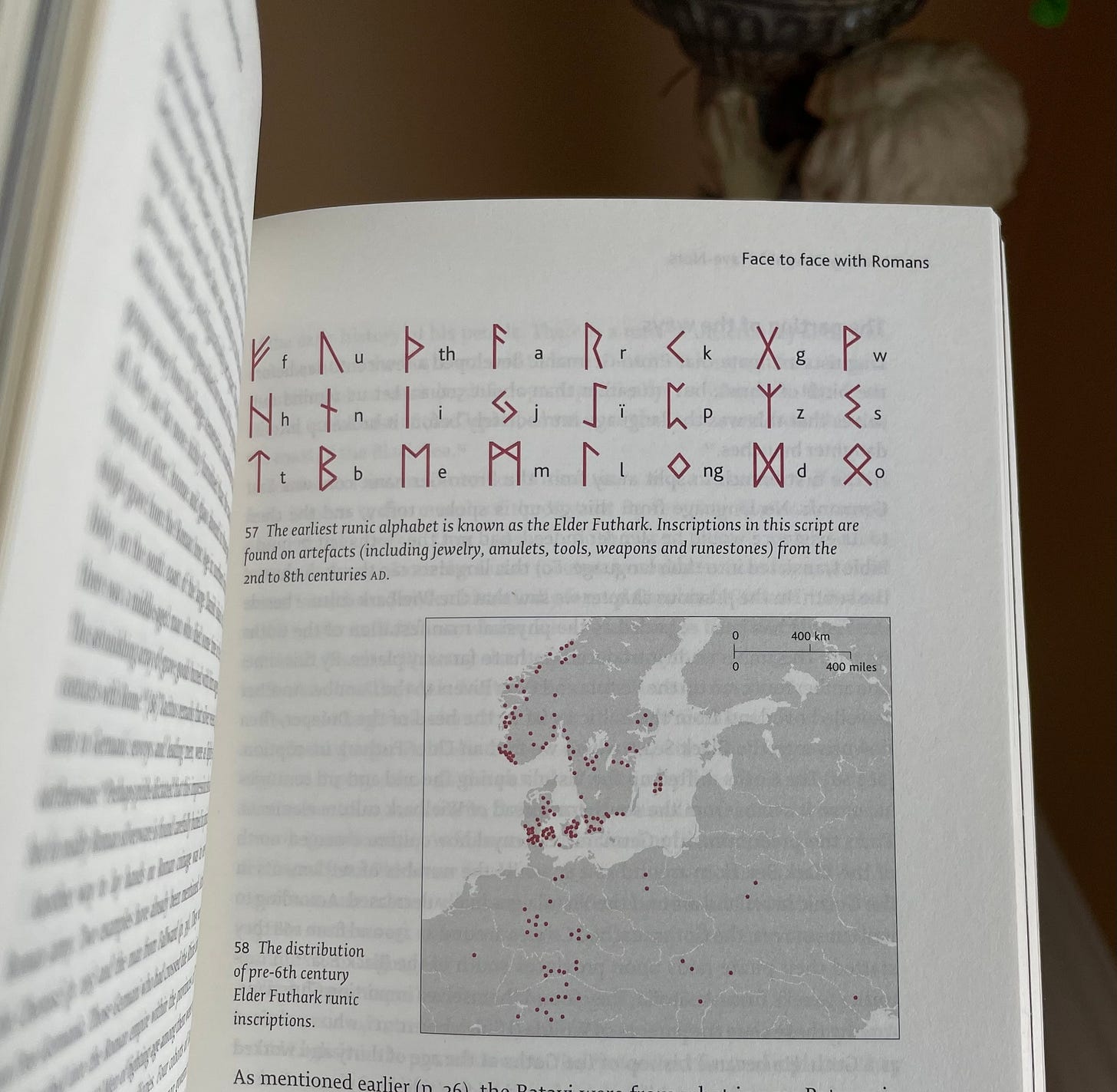
P mentioned that she wanted to assist humanitarian groups as a volunteer back home, and I said that I would be interested in joining her when that day comes.
We landed in Stockholm not long after, and I subsequently joined a telegram group for humanitarian assistance in Ukraine. After we had our passports stamped and exited the security gate, we were separated by plexiglass due to having passports in different categories. We both glanced at one another with a look of disappointment.
However, once inside Arlanda, as I passed the line for retrieving checked luggage, I saw P awaiting her bag. We stopped and talked for awhile, and I grabbed her luggage off the conveyor belt for her. We hugged and said farewell.
I found somewhere to rest and laid my head against my duffel bag. Since I was going to be here all night, I considered leaving the airport for awhile—but walking around Stockholm at night with all of my luggage on my back wasn’t very appealing.
I was surprised how dead the airport became past midnight; American airports always feel busy. Unable to sleep, I explored Arlanda, and for awhile it felt as though I was wandering an empty building. Pop music sung in Swedish echoed throughout the hallways as I walked entirely alone.
I peeked into various shops that were closed and ended up having a drink by a large window offering an open view of the runway. I checked my phone, and sure enough, Doe was continuing to look at all of my posts. I simply ignored her.
I was able to get a few hours of sleep before sunrise and proceeded to navigate my way to the gate where my flight would depart. As the chairs around the waiting area began to fill and the crowd grew large, a young woman sat down beside me. I began reading my book.
I cannot remember how we started talking, but somehow the girl and I entered into conversation, and she likewise had an American accent. Our flight had another hour before boarding, so we had time to kill.
A Harry Potter book sat in her lap, and she expressed that she was a fan. I mentioned that I had just flown in from England and that I had seen all of the films as a child.
“Why were you visiting the UK?” she asked.
Not wanting to sound like a tourist, I replied: “I was visiting a few Catholic friends.”
“You’re Catholic?” she asked. Ironically, she looked at me as though I had just told her I was a wizard. When I affirmed that yes, I was Catholic, her demeanor shifted to a mix of curiosity and skepticism. Hoping to break the ice, I told her about my visit to the museum in London and showed her a picture of a St. George icon I had captured.
I described how Harry slaying the basilisk and rescuing Ginny in the second Harry Potter book was inspired by the folktale of St. George slaying a dragon, a Catholic Saint and martyr who is also the patron Saint of England.
This seemed to dispel the tension, and she appeared genuinely intrigued by what I was saying. As we spoke, a man wearing a nametag approached her and asked a question in Swedish. She presented her ticket to him and responded to his question also in Swedish. As he scanned the ticket and walked off, I looked up at her.
“I assumed you were American based on your accent,” I said.
“No, it is pretty common for us to have American accents when we speak English because we grow up watching American stuff,” she explained. I’d heard that before.
She introduced herself as Elsa, and our conversation carried on for some time. We began boarding the plane not long after, discussing cultural differences between Sweden and America as we did, and we sat down beside one another.
Several minutes passed before a flight attendant approached us. Swedish was spoken between her and Elsa, and it was explained to me that she had to move seats since they were assigned. She moved, however we already exchanged contact info prior to boarding, so we were able to communicate before takeoff.
Soon we were in the air, and watching the fjords of Norway pass by once again was bittersweet. Meals were served, and some time after dinner, Elsa sat beside me once again. Now that everyone had boarded and we were in the air, the flight attendants didn’t seem to mind.
“Have you ever been to New York?” she asked. (Manhattan was the next layover).
“Yeah, once,” I replied. Unfortunately, I cannot recall much else about this conversation, but I vaguely remember telling her about one of the good restaurants I had visited.
As we finished talking, I tapped the screen in front of my seat and scrolled through the list of inflight movies. One of them was The Northman. I selected it and began watching it silently with subtitles.
Several minutes in, Elsa leaned over to me. “Have you seen this before?” she asked.
“Yeah, I watched it with my friends in theaters when it released.” I didn’t think to mention that my cross, which she had complimented prior to boarding, was made by a few who worked on the film.
She handed me an unopened bag of wired earbuds that the flight attendants provided us. We plugged them into the outlet, and with the left earbud in my ear and the right in hers, we rewatched the movie together.
After arriving in New York we said our goodbyes. By the end of the day, I had finally returned home. And by the early hours of the morning, I was once again laying in my bed, exactly as I had been when I first messaged my friend about travelling to England.
In some way, it felt surreal being right back in the same spot, as if I had awoken from a dream. My mind returned to the radiant white windowpanes of the front door of my friends’ house from when I departed for Heathrow. Holding the book by Jung in my hands assured me that it had all been real.
The Chapel
The men I met in England were not simply members of the secular Royal Over-Seas League, they were also ardent defenders of Catholic tradition, and each of them were supporters of a Priestly fraternity called The Society of St. Pius X: The SSPX.
When I began RCIA at my parish in May of 2021, the Easter Vigil Mass that was planned for April 2022 was intended to be in the traditional form. However, the Vatican announced a ‘motu proprio’ (i.e. personal order) by Pope Francis on July 16th, 2021 with the intention of suppressing the traditional Mass in order to further promulgate the modern Mass, which was created in 1969.
(For those unfamiliar, ‘Mass’ is the Liturgy which has been celebrated by Catholics in one form or another since the 1st Century, when Christ held the Last Supper with the Apostles).
Catholic Bishops across the world were expected to obey the motu proprio issued by the Pope, and suppression of the traditional Mass soon commenced.
This is why I was asked to send a letter to the Bishop of my Diocese requesting that the Easter Vigil remain in the traditional form, to no avail.
Without delving too deeply into the modern history of the Catholic Church, prior to the 1960’s, Catholicism was nearly indistinguishable from how it was liturgically practiced during the Middle Ages, and the traditions of the Church remained steadfast.
However, as Western culture began to drastically liberalize in the decades following World War II, the Church convened in what would come to be known as the Second Vatican Council, from 1962 until 1965.
It is speculated that the Vatican had been infiltrated by anti-Catholics in the aftermath of WWII. Annibale Bugnini, the mastermind behind the modern Mass (novus ordo), was caught directly lying to Pope Paul VI numerous times during this period. He also spread lies claiming the Pope had said things that he never truly said.
The result of the Second Vatican Council was therefore the simplification and modernization of Catholicism in several aspects, the most egregious of them being the planned replacement of the Tridentine Mass, or the ‘Traditional Latin Mass’.
Supposedly, the objective behind modernizing and simplifying Catholicism was to encourage non-Catholics to join the Church, but it had the opposite effect.
This is also the reason behind why certain Vatican officials, such as Pope Francis, espoused non-Catholic opinions despite being a leader within the hierarchy.
One of the men present at the Second Vatican Council was an Archbishop named Marcel Lefebvre. Archbishop Lefebvre was a man of profound Faith, born in Tourcoing, France, a region adjacent to Normandy in the Northwest—and he strongly believed in defending the traditional customs of the Church that were passed down to us by our ancestors. He recognized the looming threat of modernism that was beginning to invade the Vatican and deconstruct centuries of tradition.
My letter to the Bishop in 2022 requesting the traditional Mass be preserved for Easter was ignored. However, I was an irrelevant catechumen; Archbishop Marcel Lefebvre was an Archbishop—and Archbishops are not so easily ignored.
In 1970, Archbishop Lefebvre founded a fraternal society that continued training Catholic Priests how to celebrate the traditional Mass: the SSPX—despite the ‘new mass’ that was being promulgated following the Second Vatican Council.
Tensions between the SSPX and the increasingly-modernizing Vatican steadily intensified with time.
By 1988, understanding the need to act urgently in a proactive defense of Catholic tradition, Archbishop Marcel Lefebvre consecrated four Bishops at the SSPX seminary in Écône, Switzerland, without first receiving the Pope’s permission. These events have come to be known as the Écône Consecrations.
The Priests whom Marcel Lefebvre consecrated as Bishops were Alfonso de Galarreta, Bernard Tissier de Mallerais, Richard Williamson, and Bernard Fellay.
The SSPX continues its mission defending traditional Catholicism to this day, and it has many chapels spread throughout the world, all of which celebrate the traditional Mass. Archbishop Lefebvre died on March 25th, 1991—the Day of the Annunciation.
The subject of the SSPX is contentious within the Catholic Church; some Catholics believe they are correct, others believe they are incorrect. I do not partake in debates. My own opinion begins and ends with the inscription that is etched into the side of Archbishop Marcel Lefebvre’s tomb in Écône: “I have passed on what I have received.”
After returning home from England, my proverbial cross hadn’t gone anywhere. It was awaiting my return, and being home once again reignited my forestalled depression. I had previously rebuked the SSPX as a ‘cult’ while confronting Doe over the phone about T, the guy she had been talking to behind my back—but I only said this because T supported the group, and I was bitter.
Consumed by despair once again, but with a newfound sense of determination, I decided to try and contact one of the Bishops that Marcel Lefebvre had consecrated at Écône, whom my English friends personally knew: Bp. Richard Williamson.
The Bishop wrote me a detailed personal response less than a week later, the majority of which I will keep private, but which concluded with His Excellency advising that I pray the Rosary every day. This was good counsel.
However, sitting through Mass every Sunday in the very same parish that Doe and I attended together was distracting. I knew that my ability to concentrate on the Faith rather than Doe would improve if only I had a fresh start.
With this in mind, I requested permission to attend the SSPX chapel in my Diocese, and the same Priest whom I met after Elias passed away granted me this permission.
The very first Sunday I ever visited the chapel was quite remarkable. As I stepped inside the quaint little building, it was packed wall-to-wall with finely dressed men and women—many of whom had children who were just as nicely dressed. I was warmly greeted with handshakes and smiles, and once Mass began, every single person delivered responses in perfect Latin. These Catholics weren’t screwing around.
After Mass concluded, I began introducing myself to several congregants. Some of my friends had been attending the chapel for awhile, so I already recognized a few faces.
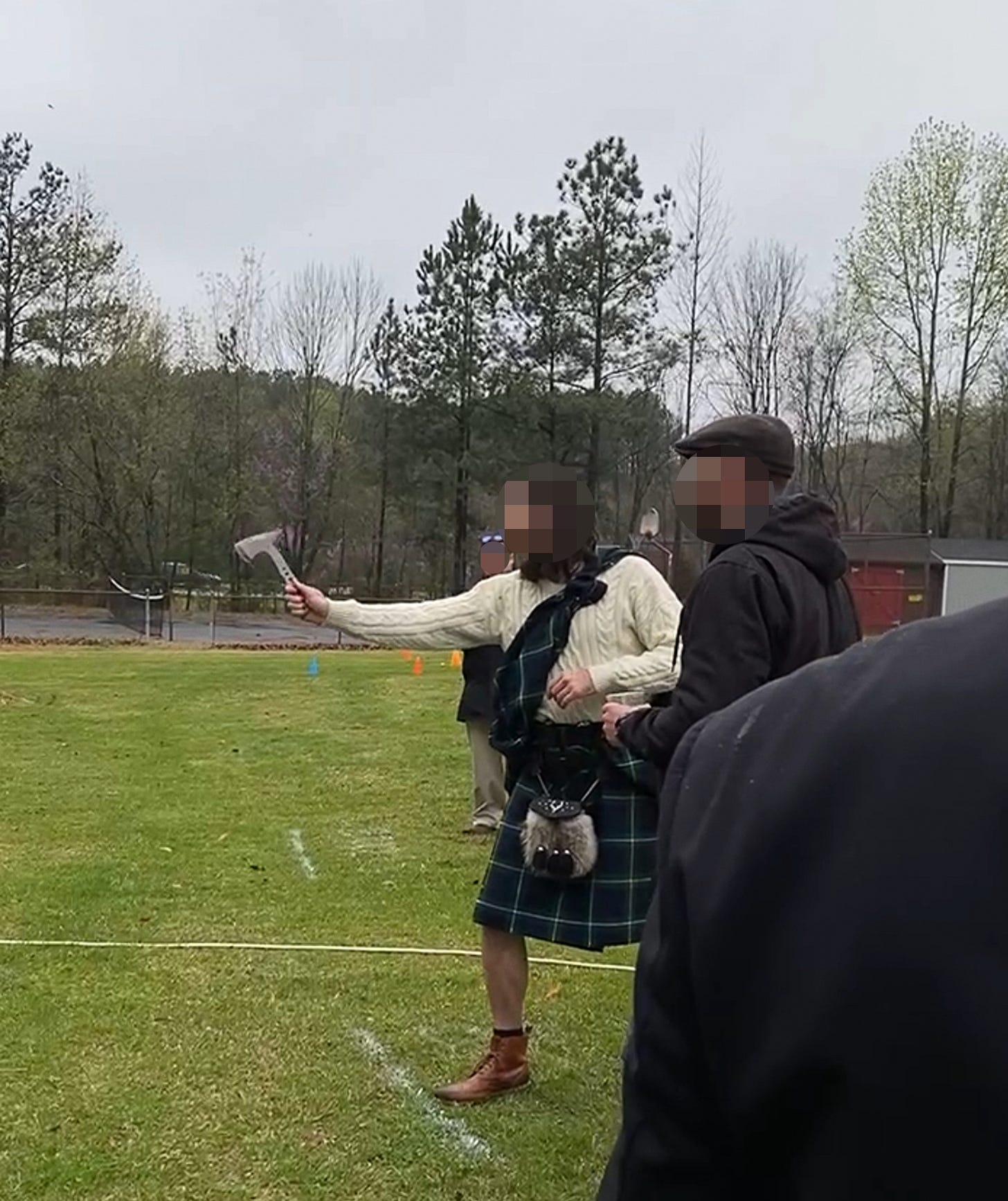
This Sunday happened to be All Saints Day. After Mass finished, several parents processed downstairs into a banquet hall with their kids who each donned costumes celebrating their favorite Saints. I recall one of them dressed as St. George, wielding a plastic sword and shield beside his little sister, who was dressed as a dragon.
I grabbed a cup of coffee and stepped out into the yard. It was gently raining, and as I looked over towards the nearby pavilion where a few of my buddies sat, I happened to notice a young man had climbed his way atop the slippery wet roof using the stone chimney connected to it.
It is somewhat difficult to put into words the aura that emanated from this place. It felt as though I had stepped back in time to one of the heartful Catholic communities that existed across Europe in the Middle Ages. I stepped over to where two of my friends sat alongside other men.
“Alright Evan, sit down,” one of them said. A friend of mine who I had previously sparred with at fight night sat across from me, grinning as he rolled up his sleeve. One of the men I hadn’t met before sat a bottle of whiskey down on the table.
“Oh, I’ve heard about this,” I remarked, taking my jacket off. It had already been mentioned by one of my friends that this SSPX chapel had an unofficial ceremony for men who attend the first time: they must agree to an arm wrestle.
My buddy laughed as I sat down. He was a competitive weight lifter.
“Okay. No leaning, keep your other arm flat on the table,” said the gentleman who supplied whiskey. We locked hands and began pushing, frozen in a stalemate for several seconds. Thirty-some seconds passed with little progress from either of us.
“Nope!” my friend said through clenched teeth, relaxing his arm as his hand went flat against the wooden table.
“Brother you let me win,” I protested. My friend insisted he didn’t. I was poured a shot of whiskey and was seemingly accepted by the other men—truthfully though, this was all just for fun.
I stayed with them awhile, discussing my trip to England and showing them pictures I had captured of the aurora above Iceland. Soon, I departed for my car and drove home.
Come afternoon, the sun had set and I was getting ready for bed. My phone buzzed to life with a notification as it sat atop my desk. I ignored it for several minutes until casually reaching for it to see what it was.
Immediately, I called E and told him that Doe had just messaged me for the first time in months. He was already made aware of the fact that she had been viewing my posts during my trip to England.
Last we spoke, Doe insisted that she never wanted to speak again. E said that it was ultimately my choice what I should do, if anything.
It was impossible for Doe to have known that I attended the SSPX chapel that morning. There was no way she could have known. I had not mentioned it to anyone, and I only came to the decision to visit the chapel that very same morning.
I responded to her message with a video I had taken of the All Saints Day celebration. She proceeded to offer an approximation of an apology, informing me that she “thought of me all the time.”
I later realized that Doe had said she was “happy to hear I joined the cult” referring to a public SSPX group on social media I had joined weeks earlier. She was a member of the same group, and likely noticed the posts I made in it.
Doe just so happened to feel the urge to message me the very same day I attended an SSPX Mass for the first time, despite not knowing.
“Thank you, I pray for you also” was all I responded with. That was the end of our interaction. When I reported this to my friends, none of them reacted positively to Doe saying she “thought of me all the time.”
I informed the person who previously supported me against Doe that she had messaged me. In response to this, they shared with me excerpts from a conversation they had with her weeks earlier:
Why would you ever change your mind about someone you claim had entrapped you?
It was all incredibly tiresome—and it was the last thing I needed to be focused on. I was annoyed that Doe was describing things in the form of half-truths; her parents never interacted with me in any capacity, and Doe herself would list me names she wanted to give our firstborn son or daughter if we ever had children one day.
I was well aware that I needed to turn towards God. I moved on from this exchange.
The next time I visited the chapel, after Mass concluded, a man from the choir with a full set of white hair greeted me. He introduced himself as JP.
“Will you be staying for the spiritual warfare lecture?” he asked.
Most of my friends had already left, and I was unsure what he was referring to. My mind was a haze throughout all of Mass.
“I am in the middle of a lecture series on the nature of spiritual warfare, we’re about halfway done. I’m about to begin in just a moment,” he explained. I was happy to join.
A group of people processed downstairs beneath the chapel, where rows of chairs were aligned facing a whiteboard, where JP promptly stood.
He opened his lecture by discussing historical conflicts from the Middle Ages, explaining in detail how there is nothing that happens on Earth that is not the proxy of a cosmic metaphysical battle between forces we do not perceive.
“ It is the quintessential battle between good and evil … the life of man upon Earth is warfare. That’s what this is about. ”
— JP
My mind was instantly drawn to all that happened leading to this moment, with Jane, Elias and Doe—as well as all of the Jungian synchronicities. Everything began to crystallize in my mind during this lecture.
The reason I attended the SSPX chapel on October 30th, 2022 was to try and clear my mind of everything that happened with Doe. And it was on October 30th, 2022 when Doe felt compelled to message me.
It felt as if the closer I came to God, the nearer my proximity to the Sacred, the more strongly I was pulled back into my vices by malevolent forces. Doe wasn’t the enemy.
Demons use sin to manipulate our emotions without us knowing their true origin, or what the ramifications of our actions will be. Whatever nostalgic thoughts or feelings of loneliness overcame Doe compelling her to message me that day, they did not come from nowhere. This was the devil’s work, and he wanted us both to falter.
The telegram group I had joined for humanitarian assistance in Ukraine was quite active, and I was fairly surprised when a recruiter for the Ukrainian Foreign Legion invited me to join their own chat.
The group I was already a member of strictly pertained to humanitarian assistance. I was uncertain how a recruiter for the Foreign Legion found me through it—however, I never blamed P for this.
The recruiter sent me various forms they wanted me to fill out and tried convincing me that I may be ‘eligible for sniper school’. My friends and I both laughed at this.
I was privy to the fact that this was merely a recruitment tactic. A civilian like me was not desired as a high octane operator. Once foreign recruits arrive in country, they often are sent to the front with minimal training.
Regardless, I had no interest in killing Russians. Just as JP outlined during his lecture, the conflict between Russia and the West is a proxy for a great metaphysical conflict; a positive conclusion will only result from the consecration of Russia to the Immaculate Heart of Mary. I left the group shortly thereafter.
By mid-November, the chapel felt like a second home. I maintained no contact with Doe following her message on All Saints Day—however, less than a month later on November 21st, she messaged me a second time.
Doe sent me a screenshot of a post made by one of our mutual friends, who she claimed to have ‘converted’ to the SSPX. This was quite random and irrelevant—it left me very confused. Why did Doe send me this? Neither of us are especially close with this person, I wondered.
It only later occurred to me that Doe was attempting to do the very same thing to me that Jane had done to Elias the night he ended his life.
Visible in the center of the screenshot Doe sent me was her new boyfriend’s username, who had liked the post. (Instagram only displays the username of someone who likes a post if you follow them). Doe could have simply sent the post to me directly, but instead she sent me a screenshot of it hoping I might notice her new prospect.
She most likely was trying to make me jealous, but Doe was clever enough to use plausible deniability: “I was just discussing our mutual friend,” in her case.
This is proven insofar as our mutual friend denied ever being ‘converted’ to the SSPX by Doe. It wasn’t the true reason behind her message.
I did not connect these details until weeks later. Again: I was trying my best to focus on my faith during this period. December came and went in the blink of an eye, and my birthday was a haze, unlike in 2021.
Though it didn’t feel like it, 2023 arrived.
As I began praying more often, my thoughts would occasionally return to the words of P during the flight to Stockholm, criticizing Azov Battalion’s paganism.
Her comment vexed me. Any time I encountered something pertaining to paganism, my mind replayed her words. I began researching historical accounts of pagan conversions to Catholicism, as well as accounts of pagan syncretism. This eventually brought me to reading St. Thomas Aquinas.
This entire time, I had assumed my baptism during the Easter Vigil was valid—I never truly considered whether or not what I had done during the ceremony might have prevented the sacrament from being validly conferred.
Most individuals are baptized as infants, prior to the age of reason. However, in the case of adult baptisms, converts must have the intention of fully receiving the sacrament, which marks the beginning of a new Christian life, in order for baptism to be conferred. (I do not consider it necessary to describe precisely what I had done during the Easter Vigil; this sin has been confessed to Priests & rectified according to their direction).
Overcome by a sense of unease, I felt compelled to admit what I had done.
I sent an email expressing my concerns to the same Priest I had first spoken with about Elias in 2021, and we met four days later in the very same room as then.
In my pocket were the pagan amulets I had worn on Easter, and I felt an overwhelming sense of embarrassment. I confessed precisely what I had done during the Easter Vigil, and I placed the amulets atop the table. I also admitted to having indulged in syncretism throughout my entire catechesis. Despite this, the Priest’s usual warm demeanor remained steadfast.
“Evan, do not feel as though letting go of these things is letting go of your friend,” he said.
My embarrassment vanished, and I felt embraced by a sense of total compassion. These words consoled me in a way I should have been from the very beginning, had I been honest about my practices.
A discussion about what I had done ensued, and the Priest ultimately concluded that I did indeed require a conditional baptism. Though I trusted his judgement, I sought the consideration of more than one Priest.
I scheduled a meeting with the Priest at the SSPX chapel and spoke with him not long afterwards. Upon confessing what I had done, he also came to the conclusion that I required a conditional baptism. The chapel offered a thorough one-on-one catechism program for adult converts, and it was agreed that I would start all over again, right from the very beginning.
Going through catechesis a second time was presented to me as optional, but I ultimately concurred that I should. My mind had been focused on my relationship with Doe during RCIA throughout 2021-2022. It was time to set things right.
A catechism textbook was given to me that I was to complete by April the following year, and each week after Mass I would attend my private catechesis classes.
March 25th was solemn. It was difficult to fathom that two years had already gone by since Elias passed away. It didn’t feel like it. I deeply wished to be able to talk to him again. I wondered what he would say about all that happened with Doe.
The following month, I attended the Easter Vigil at the SSPX chapel without uttering a word to anyone. I sat alone, clutching in my hands the olivewood rosary Doe gave me. Somewhere far away, she was receiving baptism. Knowing this felt bittersweet: bitter that I could not attend the baptism of someone I introduced to the Faith, and sweet to know that she had finally become Catholic.
As Easter Mass concluded, I left for my car, drove home and went to bed. Despite the messages Doe had previously sent me, I maintained no contact—even at the time of her baptism.
Information about Doe and her new relationship always seemed to find its way to me—not the other way around. (Recall JP’s lecture on spiritual warfare). By this stage, I was mentally exhausted and ready to move on. The devil had other plans.
In spite of this, I encouraged myself to remain focused on my catechism classes and enjoy time spent with friends during weekends. It was during this period I taught myself how to pray the rosary in Latin.
Following Easter, there was a moment when I unwisely sent a message to Doe’s deleted telegram account—in the same manner in which I would send messages to Elias’ instagram profile as a means of decompressing. The account was deleted and entirely dormant, I believed she would never receive it. I acted foolishly.
This message was promptly seen by Doe when she reactivated the account, which she immediately capitalized on. Both her and her new boyfriend texted my phone number demanding that I “stop contacting her.” Of course, I hadn’t been. This was as tiring as it was embarrassing. I hesitate to admit my fallibility, but it is the truth. I was a fool.
Doe proceeded to inform our mutual friend about my message, claiming that I was harassing her. Regardless, in a screenshot she had sent them of our conversation, it could be seen that I was still a contact in her phone.
Following this exchange, feeling agitated, I was inclined to reconnect with T, the man Doe had seen behind my back. Neither of us had any reason to dislike the other, aside from the fact that we both were lied to. Extending an olive branch seemed like a good way to move forward.
I messaged him asking if he would also be interested in talking, since we only knew about one another through Doe, who was a less-than-reliable source of information.
I explained to T all that happened up until then, about Elias and Jane. He was utterly stunned. Not only by what transpired with Elias, but by the abundant providence that unfolded after I met Doe—all of which somehow culminated in him unwittingly sitting across from her one afternoon on a coffee date, as she fed him lies about her conversion, erasing Elias and myself from it entirely.
Shortly after reconnecting, T and I decided to call one another. We spoke for hours over the phone, and it turned out we had much in common. What began as bewilderment describing our interactions with Doe ended in laughter and self-criticism. We both acted like fools. Providentially, he was set to have a brief layover in my hometown the following week.
“How far are you from [this] regional airport?” T asked me. Quickly, I typed the address he gave me into GPS. Lo and behold, the very airport he would be flying into was directly beside where I was living at the time.
Laughing at the serendipity, we ended our call looking forward to meeting face-to-face. After hanging up, overcome by a sense of peace, I went for a walk. During this, I listened to an album by Øneheart which a friend from Church had sent me. I vividly remember listening to ‘Nightfall’ as the sound of an airplane ascending from takeoff cut through the song, departing from the very same airport T and I discussed.
I informed all of my friends about T’s upcoming layover, and on June 9th, after rallying the troops at a local restaurant, I pulled up beside the curb at the airport, the passenger door swung open, and a young man in a flat cap got in my car.
“Well … hello, sir,” T said with a smile. I shook his hand as he closed the door.
“Can’t say this is the usual way I make new friends,” I replied. In the end, I held no spite towards T despite what happened with Doe, and hanging out with him in person felt no different than when I spent time with E.
When we arrived at the restaurant, all my friends welcomed him as if he were one of our own. Everyone present knew the story, so it felt surreal for T to be sitting alongside us. We had a great time, and after dinner, I decided to gift T a coin I had purchased at St. Patrick’s cathedral in New York.
Ironically, when I had purchased the coin, Doe remarked: “Why did you buy that little thing?” As fate would have it, to give to the man she would later see behind my back.
I had been reflecting on the remark I previously made to Doe that, if our relationship ever fell apart, I may try and find work in maritime. I meant this when I said it, and I had been trying to enter the field since March.
Trying to break into sailing as a greenhorn is much more difficult than it may seem. The first place I thought to network was the country club I had been working at. After all, if ever there might be a place where yacht owners congregate, a country club is not a bad guess. However, this turned out not to be the case.
I tried my luck in other places, contacting several marinas and relevant companies, all of which resulted in nothing. Months had gone by with no progress. I received a few email responses encouraging me not to give up—but no actual opportunities.
After many fruitless months, it felt as though I had exhausted all possible means of breaking into the industry. One night, feeling particularly passionate about a certain job, I knelt before a crucifix on my wall and prayed to Christ directly, requesting if it be according to His will, that He might assist me in getting started.
« A little while after a whale was driven ashore, and the men crowded round it, and cut it up, and still they knew not what kind of whale it was. Even Karlsefni recognised it not, though he had great knowledge of whales. It was cooked by the cook-boys, and they ate thereof; though bad effects came upon all from it afterwards. Then began Thorhall, and said, “Has it not been that the Redbeard has proved a better friend than your Christ? This was my gift for the poetry which I composed about Thor, my patron; seldom has he failed me.” Now, when the men knew that, none of them would eat of it, and they threw it down from the rocks, and turned with their supplications to Christ's mercy. Then was granted to them opportunity of fishing, and after that there was no lack of food that spring. »
— Saga of Erik the Red, Ch. 8
That Sunday, I decided to ask a few of the men at the SSPX chapel if they knew anyone in maritime. I hadn’t yet asked anyone at the chapel; doing so never even crossed my mind. It was a modest little building. Serene and beautiful, but in the middle of nowhere. It was hardly the kind of place you would expect to find an affluent yacht owner. However, it felt like my last remaining choice.
After Mass that morning, I processed downstairs where others were gathered and approached a few of the men I knew.
“Hey JP, question for you. I’m trying to find work in maritime, specifically to do with yachts. You wouldn’t happen to know anyone who owns a boat, maybe on the lake or something?” was approximately what I asked him.
“Yeah, Mr. X owns a big sailing yacht that he and his family lived aboard for years,” he said without blinking. Huh.
He pointed across the room towards a tall man with shoulder-length hair tied back, who was in the middle of a conversation with two other men. I made my way over to the group. Standing beside him, once he fell silent, I made my interjection.
“Excuse me, are you X? I was told you own a sailboat. I have been looking to get involved in maritime, would you happen to know anyone that could assist me?”
I cannot recall if he was in the middle of chewing food or not, but several seconds passed in silence as he looked at me.
“What’s a beam?” he asked. I was completely caught off guard, not expecting a question.
“Uh, a supporting structure? Like a column,” I said with no degree of confidence.
“Ha!” X laughed. There was another brief pause.
“The beam is the width of a boats hull at its widest point,” he explained. So much for first impressions. He asked me other questions, though I cannot remember them.
We discussed why I was interested in maritime and what I hoped to get out of it, and he seemed bemused yet vaguely positive about my interest. Our conversation that morning ended as well as it could have.
The following week, I approached X after Mass once more, asking him questions about his boat. He calmly described her to me—a sailing catamaran just over sixty feet long, with a spacious saloon and fiberglass hulls.
“Where is it now?” I asked.
“Right now, she is on the hard [in a boatyard] down in the Caribbean. There is a lot of work that needs to be done on her,” X explained, rattling off something about a genset.
This time around, I was a little more persistent expressing my interest to work with boats, and X seemed far more receptive than last we spoke.
“Alright dude. How about you come down island with me for a few weeks to work on her? Then you’ll see if you actually enjoy the work or not,” he proposed.
Surprised, I agreed to X’s offer. Honestly, after months of no opportunities, it was bewildering how swiftly this one found its way to me.
The Caribbean
X was a boisterous yet learned man, born in Switzerland but raised in the States. He was father to multiple children (more than four, less than fourteen), and he carried with him a fatherly nature. Though from my perspective, he quickly began to feel more like an erudite older brother.
Grenada, (not to be confused with Granada, Spain), is a small island country off the northeastern coast of Venezuela. It is part of the British Commonwealth, but was granted political independence in 1974. A Marxist-Leninist organization called the ‘New Jewel Movement’ (NJM) subsequently took over the island in 1979.
During the Cold War, Grenada began constructing airport runways large enough to accommodate Soviet military aircraft, and the United States was concerned over increasing Soviet-Cuban activity in the Caribbean. Fidel Castro once described the construction crews of Grenada as “workers and soldiers at the same time.”
By 1983, the NJM violently overthrew their Prime Minister and executed him, and come October that same year, American President Ronald Reagan authorized Operation Urgent Fury: the US Invasion of Grenada.
It was the largest American military operation since Vietnam; 7,000 US troops were deployed on the island, spurring Cuban officers to distribute rifles to workers, whom they ordered to defend themselves and fight to the death. But only eight days later, the island was successfully seized by US forces.
The invasion caused scandal across the globe, especially in Britain. Prime Minister Margaret Thatcher was furious that the UK was not consulted prior to the operation, since Grenada was still part of the British Commonwealth, rendering its official head of state Queen Elizabeth II.
X arrived in Grenada a week before me to acquire a new generator, leaving me to fly down alone. I didn’t mind—it afforded me the chance to rest before whatever work lay ahead. Sitting by a window in the airport awaiting the first leg to Miami, I ruminated on questions to ask X upon my arrival.
With nothing else left to do, I scrolled through social media. A strange account viewing my story posts caught my attention—the same profile had been sporadically viewing my posts for over a month.
Beyond appearing suspicious, the profile seemed rather familiar by its description: ‘Mom of 3 … living in Finland.’
By this stage, my sadness had been replaced with frustration. If this were Doe, it was hot off the heels of her claiming I had been harassing her.
I attempted to spur a response from the strange account in June; considering how trivial it was, I quickly put it out of my mind afterwards—but noticing this account still viewing my profile irritated me. Ever fallible, and overcome with disdain, I let my annoyance get the better of me while awaiting my flight. (Recall JP’s lecture).
Doe and I both were behaving immaturely. I regret not simply ignoring this obvious provocation—but I had ran out of patience in that moment. Agitated, I deleted the conversation and drove it from my mind once again.
Allowing my lower passions to control my behavior left me vulnerable to the very powers JP warned of in his lecture. Had I been wiser, I would have understood this and tempered my emotions. Once again, I played into the devil’s hand. But there was no time to dwell on it. The Caribbean lay ahead.
Several hours flying over open sea, the speck of green far below that was Grenada soon came into view. As previously discussed with X, I was to spend three weeks working alongside him. Exiting the plane and stepping out onto the runway, the air felt thick. My clothes stuck to my skin and my face flushed from the humidity.
I made my way over to the main road and found a seat at an open bar, covered by a palapa roof providing shade from the tropical sun. Behind the bar stood a woman with dreads asking what I’d have to drink.
Following a shot of rum, served to me in a paper cup, a black Toyota truck parked beside the curb minutes later, and the man sitting in the passenger seat could be recognized by his shoulder-length hair. I opened the backseat door, hurled my luggage inside, and X turned to face me.
“Evan! Look at those pale knees, dude you are going to get tan,” he remarked. We began driving towards the capital city of St. George; the driver was a local acquaintance of X, and he explained along the way how the island was slowly beginning to be gentrified by wealthy muslims who migrate from overseas, as well as the CCP, which owned many of the island’s supermarkets.
Several buildings we passed were quite old, and I noticed the faded ensign of the NJM painted across a few of them. The truck soon pulled over beside an old storefront, its windows dirtied and salt-beaten. X handed the driver a wad of cash, colorful bills emblazoned with the face of Queen Elizabeth II, and he promptly drove off.
“Stay here and watch my bag,” X said, stepping inside the store for a moment.
I awaited him outside, taking in the scenic view. It was something out of a postcard. A few minutes later, X exited the store holding two beers in one hand and his backpack in the other.
“Dark or light?” he asked, extending the beers to me. I grabbed the dark—X kicked off his sandals and sat by the curb, dipping his feet into the crystal blue water while motioning for me to do the same.
We discussed my mechanical abilities, and X began explaining local customs. When islanders come to fist-bump you, don’t use your knuckles, use the bottom of your fist. Never rush. Down here, you’re on island time: everything happens at a slow pace.
“Yeah you just don’t get hassled in places like this. This is technically a second-world country,” he said. Peaking atop the favela-like cliffside across the bay was a stone cathedral. I pointed towards it.
“That Catholic?” I asked. X nodded.
“Yeah, Immaculate Conception cathedral,” he replied. I looked over to him.
“Reckon we can go check it out?” I asked.
“We won’t have time. We need to catch the ferry to Carriacou, another island about twenty miles north. It arrives soon, and the route takes about an hour,” he explained. If Grenada wasn’t remote enough, Carriacou, a substantially smaller island, certainly would be. It was there that X’s yacht awaited us.
The ferry’s horn sounded upon its arrival shortly afterwards. The crew aboard took our luggage, placing it in a secure cabin, and we climbed up slim metal stairs to the top of the open deck. We then set sail from the mainland out into open sea; northbound, departing at sunset. Half an hour later, night fell upon us.
The water around us became dark beyond visibility. With the roaring engine of the ferry, falling overboard was likely fatal. The wind raced across the deck creating a relaxing breeze, and I sat beside X on a bench looking up at the star-filled sky. A peculiar row of what appeared to be stars, moving slowly across the celestial plane in a neat line, caught my eye.
“What are those? They’re moving” I asked, pointing to them.
“Elon Musk’s Starlink,” X explained. “Everyone now wants their boat to be fitted with starlink so they can have fast internet. Frankly, it’s also the death of privacy. What’s the point? Sailing is supposed to disconnect you from the world,” was approximately what he said. As we sailed past several small islands covered in forests, dimly-lit campfires occasionally flickered through the tree lines.
“People really camp out in these remote islands?” I asked.
“Sometimes. If a local commits a crime or kills someone, they can take a dinghy out here and camp in the mangroves. Wait out the storm, basically.”
For a moment, I suspected X was exaggerating, but he seemed serious. Carriacou was generally safe for tourists, but it wasn’t crime-free. Just three months earlier a man had been shot dead by a boat captain on the island, which I read about in the airport.
Soon the lights of a small harbor came into view, and after retrieving our luggage X and I climbed down from the boat onto the docks. From there, we set off on foot, walking beside gravel roads and small houses. Along the way, the bright neon sign of a nearby supermarket caught our attention.
Surprised it was still open, we stepped in for a look and X purchased a small box of fruit and a bottle of spiced rum. “Sometimes you’ll see a Chinese guy in a business suit walking out of these, surrounded by locals,” he said, paralleling the words of our driver from earlier.
Continuing half a mile further along the coastline, an array of masts and furled sails scattering across a spacious boatyard came into view. X greeted the lone security guard at the gate, introduced me as his younger brother, and led us into the yard. Upon rounding the corner, X’s sailboat came into view, suspended by keel supports.
He had already fastened a ladder to the stern, which I climbed up behind him. “Don’t fall and get injured, the only major hospital is on Grenada. And the ferry only comes once in the morning and once at night,” he said from above.
Finally aboard her deck, the boat revealed a spacious living area, and the sliding door leading into the saloon seemed inviting. The outdoor fridge sitting in the corner was covered in Catholic stickers, lavishly applied by X’s children.
“Welcome aboard Stella Maris,” X said. “Our Lady, Star of the Sea.”
Stella Maris is one of the many titles of the Virgin Mary, and has been employed since the early medieval period by sailors. Our Lady is often invoked under this title by seafarers and it frequently serves as the name for coastal churches.
After a brief tour, X showed me to my cabin. There was no power connected to the air conditioning, so we had to go without. I was supplied with three battery-powered fans to position as I pleased, and soon X and I bid one another goodnight. I closed the cabin door behind me and sat my luggage down.
It took all but five minutes before I removed my shirt. The sounds emanating from the forest across the road were loud. Peaking through the porthole window at the starry sky, I wondered if I’d get any sleep at all. The humidity felt like an inescapable blanket.
I awoke to the sound of wailing seagulls and the crackling of oil in a frying pan just outside my cabin door. I slept only an hour or two. Stretching, I walked to the restroom and was immediately struck by my reflection in the mirror.
“Shit,” I said to myself. Covering my neck, chest, forearms and legs were deep red mosquito bites. One, two, three … ten, twenty, thirty—I stopped counting around sixty.
“Good morning. Yeah, the mosquitos suck. It’s because we’re close to the mangroves,” X said as I walked up the steps and into the living area. He prepared a plate of food and placed it beside a mug of coffee where I sat. “Mosquitos aren’t a problem when out on the water,” he added. “There must have been a cracked window in your cabin.”
He sat down beside me with his own plate of food. “Let’s pray.”
I crossed myself. “Bless us, oh Lord-,” X cut me off.
“No. We pray in Latin aboard Stella Maris.” I shook my head.
“I don’t know the mealtime prayer in Latin.”
“You will,” he said bluntly. Walking me through every Latin word of the prayer, we finished our blessing and ate.
“Why’d you introduce me as your little brother to the security guard last night?” I asked. X took a moment to think before replying.
“Workers down here hardly get paid anything. They will see you working on the boat, and I don’t want anyone assuming I brought a foreign worker with me. Maintaining positive relations with the locals is important down here,” he replied.
I believed him, though it seemed immediately apparent that he enjoyed acting as a role model. No favor comes free; this was not simply a kind gesture inviting me down here to work, I thought. Perhaps X reveled in the fraternity for its own sake.
We finished our breakfast and X handed me a task list. Stepping out onto the deck delivered a cool, sorely-needed breeze. The boatyard seemed far more pleasant during daytime, and the crystal blue water by the beach looked inviting.
“I usually do stretching early in the morning before sunrise, near the bow. I pray the rosary as I do. You missed it today, but you will join me tomorrow,” X said.
The first day of work was straightforward. I was given a painters tool to scrape away old caulking that had deteriorated, and gently peeled off decayed UV protectors from hatch windows without damaging them.
The midday sun took its toll, but the ocean breeze helped mitigate the heat. Surrounding Stella Maris were many other yachts of various kind, each being tended to by crews of local workers.
“Dude, you can play your music on the bluetooth speaker if you want,” X called out to me from bowside, referring to the earbuds I was using. He already expressed dislike of me wearing them earlier that morning, partly for safety reasons—but blasting Sabaton across the boatyard seemed unwise. I removed them.
As I scraped, peeled, and polished the hatch doors, X’s stereo blared from behind me, echoing the music being played by the workers beside us. Shazam came back with ‘Kar Kar Madison’ by Boubacar Traoré.
To this day, I cannot lay eyes on a sailing catamaran without hearing “kar kar madison, kar kar madison” in my ear.
Climbing down from the ladder, I noticed a salty old boatyard dog enjoying the shade beneath the portside hull. I slowly approached her, and she seemed fairly timid and afraid. It was apparent that some of the locals mistreated her. But with patience, I soon gained her trust, and we became quick friends.
X climbed down behind me, and we began walking the yard. He explained to me the respective qualities of each boat we passed, and taught me about nautical miles.
As he did so, we happened upon a French sailor working intensely on his sailboat. His workshop was covered by a tarp and he did not speak much English.
I was unaware that X could speak French until he suddenly entered conversation with the man. They exchanged advice and laughed together.
As day one came to a close, X prepared a modest dinner of eggs, bread and vegetables. We sat along the deck enjoying our meal, as well as the falling temperature.
Though I vaguely remember how the discussion began, X inquired about how I ended up at the chapel where we met. I subsequently explained to him my conversion.
Unlike many others preceding him, X was far more critical of the choices I made throughout my testimony—which frankly was necessary for me to hear. I hadn’t yet been told how foolish I had been. This was a long overdue criticism.
However, when I described Elias and his loss, X expressed deep sympathy for him.
“I don’t know about this yacht job of yours,” X said to me. “I don’t think that’s why you ended up down here.”
“But I am down here. I showed up,” I said in my defense.
“True. I’ll give you that,” he capitulated. “But you need to get baptized.”
“I am attending the weekly catechism classes at the chapel,” I replied. “And I still want to visit Elias’ grave in Norway, without Doe.”
“Unless you have booked the ticket then stop talking about it,” he said. There were several occasions when X would say things that irritated me. You’re the one asking about my conversion, I thought. Though in hindsight, most everything he said was reasonable.
Before I could respond, he stood up with a beach towel in hand. “I am going swimming if you want to join,” proceeding to climb down the ladder. I climbed down behind him.
The cool water eased the first day’s burns along my neck and arms. X and I discussed simpler topics as we waded there, taking in the sunset. He squirted shampoo onto his head and began scrubbing away, which I didn’t care to question.
Hearing the waves around us and the occasional cry of the seabird instilled in me the same feeling I was overcome with while sat in Westminster Palace overlooking the Thames. It wasn’t until this moment that I was struck by the sheer unlikelihood of my being where I was.
As the sun fell closer to the horizon, we swam to shore and climbed up onto the docks. Toweling off, we headed back towards Stella Maris. As we walked, a speaker playing cheerful music intercepted us, coming from one of the boats docked sternside along the pier. A group of four men waved to us, each with beer in hand.
“Hello! Out for a swim?” asked one of them. X gave a smart reply and complemented their sailboat. As they began conversing about her engine, I recognized their accents.
“Are you all Norwegian?” I asked.
“Yes, I am from Oslo,” said the one. The other three mentioned their hometowns, though I sadly cannot remember them. Their sunbeaten, well-loved Norwegian standard hung from the stern above one of the other men’s boats.
The quietest of the four went digging in a cooler, stepping over the water to hand X and I two bottles of Carib.
“Do you ever miss home?” I asked one of the sailors, retrieving the beer. The four men glanced at one another for a moment and looked back at me.
“No,” the one replied. The others laughed.
“It’s raining all the time. And there are mountains all over. You go up, and then down, then up, and down, and then fucking up and fucking back down again.”
We enjoyed talking awhile longer before darkness crept upon us. Together, X and I returned to Stella Maris.
The following morning was no different than before. No matter what measures were taken to keep mosquitos at bay, they always found their way into our cabins. Once again, they had a feast.
I sipped the coffee X handed me. Due to the desalinator being broken, copious amounts of sugar was added to mask the taste of saltwater. Eating my plate of eggs, I looked up at him.
“So when was the first multihull boat invented?” I asked, rubbing my eyes.
Without saying anything, X stood up from the table and stepped over to the captain’s desk. Shimmying through papers, he retrieved an old, bright blue hardcover book, placing it on the table before me. On its cover was the ancient-looking face of a bearded figure.
“Polynesians had multihulled sailing rafts, kind of like catamarans. Skeptics disputed how effective they were until Thor Heyerdhal proved their reliability.”
“Who?” I asked. He tapped the book in response.
“Famed Norwegian explorer. He believed a long forgotten race of sun-worshipping, red-bearded men from South America were the first to sail to Polynesia. People doubted such an expedition was possible on a multihull raft, so he assembled a crew and sailed the distance with primitive equipment.”
As far south as the Caribbean, there was no escaping the Saint-King’s patronage.
I gazed at the outlined face on the front cover. “Who is this?”
“Some Incan god or something. Pale and bearded. It’s what Heyerdahl painted on the sail of his raft for the expedition,” X explained. “Come on, let’s finish up and get stretching done before the sun gets any higher. We both slept in too long.”
Making our way to the bow, I followed X’s routine as we prayed the rosary. I imagined what life aboard Stella Maris must be like when she was on the water, and all of X’s kids were strewn about the deck. Once finished, he tossed me his satchel.
“We’re out of eggs and bread. I need you to head into town and stock up. There is money in the bag,” he said. “And buy us a pack of Carib.”
I set off along the same road we walked the night we arrived. Small herds of goats passed by, eating away at the grass beside me, bells around their necks clattering.
Just as I was given the opportunity to explore the parks in England when my friends had gone to work, heading into town gave me the opportunity to explore Carriacou alone, beyond the boatyard.
Locals crowded around old boomboxes as they smoked blunts. I was offered weed, boxes of barbecue, and resold bottles of juice. Sleezy porno magazines were pinned along the wall of an old shandy shack selling drinks. Most everyone was friendly.
The market offered the first bit of air conditioning I had felt since arriving at the airport in Grenada.
Packing away the provisions, I slung X’s bag over my shoulder and stopped by the beach before heading back. Nestled neatly along the shallow waters a few meters away was a sunken boat with an elaborate prow, featuring elegant scrollwork. She was foundered along her port side, her deck facing away towards the ocean, out of view. Beside her was another sunken boat, rusty and ready to fall apart.
“Don’t eat of the apples there man, bad things. The tree there she’ll burn you bad,” said a local over my shoulder. I turned to where he was pointing—a large tree beside me with green apples bearing a warning sign. X already mentioned how one of his children received blisters from standing beneath a manchineel during a storm.
Thanking the man for his concern, I began my way back to Stella Maris. Upon returning, X was sitting by the stern talking loudly into his phone. The boatyard dog greeted me before I climbed up the ladder, laying the bag of food down and handing X a beer. He ended his call.
“This is everything,” I said. “There was a boat wreck along the way, just near the market. Maybe there’s something on board we could scrap. Think we can go look?”
“Some time next week, if we have time. Did you finish the hatch doors?” X asked.
“Only one is left. But all windows are done.”
“Dude!” X replied. “I thought you were finished. We need to start waxing.”
“I thought you said we’re on ‘island time,’” I retorted. He laughed as much as scoffed.
“Who were you talking to?” I reached for my hat, which I regrettably hadn’t brought with me into town.
“My friend, Pim. He’s at sea currently, but may be sailing in next week to help us install the genset,” X replied. “He is a laid back man. When he arrives, better to listen more than talk.” I bit my tongue and got back to work.
The way X described him, one would expect The Mythical Pim to come suited with eyepatch, peg-leg, and sharpened cutlass. At least, a highly serious, brooding boat captain shrouded in mystery.
In reality, Pim was an experienced Dutch sailor from West-Frisia.
He competed in the 2008 Olympics in Qindao, China—taking 5th place as a crewman aboard the Dutch Tornado. As my first week in the Caribbean ploughed ahead, X called Pim regularly, updating him about our progress aboard Stella Maris, and the whereabouts of the ever-elusive genset he ordered before my arrival.
Though I was unaware of it during my time in the Caribbean, Pim had once competed in the J Class Exhibition races in Bermuda, leading up to the 2018 America’s Cup.
The boat Pim had sailed during this race was JS1 Svea: a Swedish boat named after ‘Moder Svea’, which translates from Old Norse as ‘Mother Sweden’. She was built according to a 1937 design conceived by Swedish boatbuilder Tore Holm—though he never had the opportunity to build her due to the outbreak of WWII.
The symbol that cloaks JS1 Svea is the vegvísir, an Icelandic stave discovered in the pages of a manuscript compiled in 1860, referred to as the Huld manuscript, which contains various other staves and blessings, including certain invocations of Christ. (No. IV: “Guð gefi mér til lukku og blessunar í Iesu Nafni Amen.”)
The stave itself is described by the Huld manuscript as an aid for navigation. (XXVII: “Beri maður stafi þessa á sér villist maður ekki í hríðum né vondu veðri þó ókunnugur sá.” Translated: “If this sign is carried, one will never lose one's way in storms or bad weather, even when the way is not known.”)
The stave emblazoned not only Svea herself, but her crew as well—adorning swimshirts, lifejackets and other gear. Had I known about Pim’s time aboard Svea while in the Caribbean, I would have asked him what it was like to sail her.
It was fairly shocking to discover that Pim had sailed aboard a boat adorned with the vegvísir—Elias had a large tattoo of the very same stave along his upper back.
Aside from eight other J Class yachts that exist, having finally been constructed and launched in 2015-17, JS1 Svea became the ninth J yacht to exist in the world.
Disclaimer #3: This is another section I have omitted, added back and edited numerous times. I am not a numerologist, nor am I a symbologist. I also do not wish to seem psychotic. Most importantly, I do not wish to present anything that may seem disrespectful towards Elias. It must be emphasized that these speculations are my own, I am not speaking on behalf of anybody else.
The number nine is widely recognized by scholars as having been an important number in Germanic religion, prior to Christianization. The Valkyries, divine figures believed by the Norse to guide fallen warriors to the afterlife, are described as being 27 in number and “Þrennar níundir meyja,” or “thrice a group of nine.”
Adam of Bremen noted that nine animals of various kind were sacrificed in Uppsala every nine years by the pagan Swedes. The Stentoften Runestone describes ‘nine bucks … nine stallions’ having been sacrificed in thanksgiving. In their cosmology, the Norse suspected there to be nine realms.
Ubiquitous among all of the sacred numbers in Germanic religion, including the number nine, is the fact that each of them were multiples of three.
One Viking Age symbol that occurs in a variety of sources is a set of three interlocking triangles—found on picture stones, wooden trays, bedframes and jewelry. The meaning behind the symbol, or what it may have been named, is unknown.
Taking into consideration that nine was important in Germanic religious practice, this symbol begins to make clearer sense. Three interlocking triangles, each with three sides, forming a total of nine sides.
In essence, the number nine was sacred in Germanic religion owing to the fact that three identifiable things folded inwards, forming one single thing, can be expressed as nine. (i.e. the square root of 9).
Three being the most sacred number in Germanic paganism is not conjecture: all of the numbers we observe being historically invoked by Germanic pagans were multiples of three, such as twenty-seven, (27/9)—including three itself, which is evoked more than any other number in the Poetic Edda.
“ It is commonly assumed that on some given occasion in prehistoric times, the basic mythological ideas were ‘invented’ by a clever old philosopher or prophet, and ever afterward ‘believed’ by a credulous and uncritical people. But the very word invent is derived from the Latin invenire, and means ‘to find’—and hence to find something by ‘seeking’ it. ”
— Carl Jung, ‘Man and His Symbols’, Pg. 75
I believe this numerical structure may have been trinitarian at its core, and the trifold symbol a prefigurement of the cross. Once again: this is my own personal speculation.
If this were to be the case, it may bear some correlation with the significance of nine in Christian tradition. The hierarchy of Angels consists of nine types: Seraphim, Cherubim, Thrones, Dominions, Virtues, Powers, Principalities, Archangels and Angels.
The Nine Levels of Christian Prayer are divided into threefold ‘ways’, Purgative, Illuminative and Unitive: Vocal Prayer, Mental Prayer, Acquired Prayer (Purgative); Infused Contemplation, Prayer of Quiet (Illuminative); Simple Union, Conforming Union, and Transforming Union (Unitive).
The Nine Fruits of the Holy Ghost are: Charity, Joy, Peace, Patience, Benignity, Goodness, Longanimity, Mildness, and Faith. The tradition of praying Novenas, praying for nine consecutive days, or nine consecutive weeks, also stands out.
It is widely accepted that Christ died on the cross in the ninth hour: “And there was darkness over all the earth, until the ninth hour. And the sun was darkened: and the veil of the temple was rent in the midst. And Jesus crying out with a loud voice said: ‘Father, into thy hands I commend my spirit.’ And when he had said this, he gave up the ghost.” (Luke 23:44-46).
In Christian thought, it is at this moment, the ninth hour, that humankind ceased to be the givers of animal sacrifice to God, and became the receivers of His sacrifice in the Eucharist. "Whosoever eats my flesh and drinks my blood remains in me and I in him." (John 6:56).
In reading the Poetic Edda, the mythological sacrifice of the aforementioned Odin strikes me as Christological. The tree from which he sacrificed himself is believed to be Yggdrasil, the ‘world tree’ in Norse cosmology. (Yggr = Odin’s; Drasil = horse).
Yggdrasil was believed by the Norse to have three roots. In the Preface of the Holy Cross, the cross upon which Christ was crucified is referred to as a tree: “-Who didst establish the salvation of mankind on the tree of the Cross,” and how “-the heavenly hosts [Army of Angels] together with the blessed Seraphim in triumphant chorus unite to celebrate it.”
Regardless of my own personal speculations, it can be observed historically that certain practices native to Germanic paganism did not overtly clash with the Christian Faith, but seemingly squared with it. The Norse believed each person had a Vörðr, or ‘caretaker’—a guardian spirit that followed each person from birth until death.
A triune incantation that once invoked the pagan figure Odin, in later centuries, invoked Olaf in his place, using the same threefold [3x3] formula in prayer.
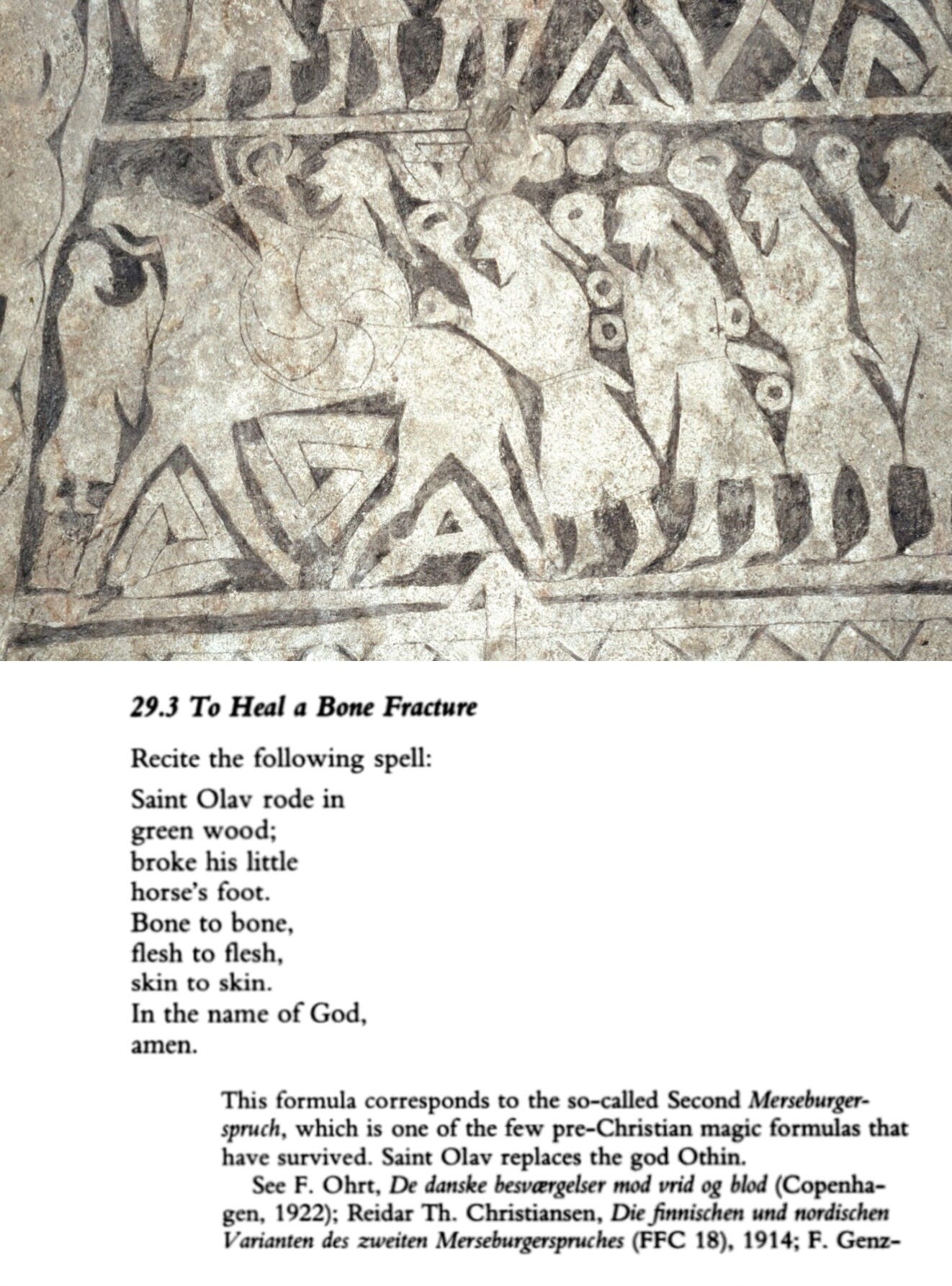
Whether through prophecy, providence or spiritual prefigurement—I wonder to what degree God revealed his plans to these ancient people, and to what degree this would have corresponded with Saint Olaf and his reign. Olaf the Stout was purported to share the same physical attributes as the figure Thor, and many of the legends corresponding with Thor were extended to him following his canonization.
Regardless, I have to remind myself not to dwell on these details for any length of time, as I have enough self awareness to understand that such obsessions can be harmful if not tempered with discussion, prayer and socialization. I do wish, however, that I would have known about Pim sailing JS1 Svea while in the Caribbean.
Stella Maris was a catamaran, meaning she had two hulls. This might have been cool while sailing her—but it was significantly less cool when you are the waxboy. I coated both of her hulls in orange boat wax. Once dried however, it stubbornly refused to come off using the electric buffer. While finishing the deck in the early morning hours, X and I would recite the rosary in Latin.
“We should have cut the wax with water,” said X.
With force, I was able to buff the wax using a rag, but it was a slow and arduous process taking far longer than expected.
One evening, buffing away with the rag, a local worker in overalls called out to me. “Brother why you are doing it this old school way?” he asked with a grin. Trying to explain the circumstance only made him laugh.
“Listen now, you gotta wet it, yeah? Take the brush. Wet the brush. Brush from side-to-side like, then buff with the towel,” he explained.
By the end of the first week, I was halfway finished with Kon Tiki and the humidity no longer felt unnatural. Sleep came more easily. With time to spare, I reminded X of the boat wreck. A sunken boat like that is fair game—if nobody comes to claim her, she can be taken by whomever will. I figured taking home part of her elaborate prow would make for good decoration.
“Alright dude. We’ll go look,” said X, retrieving his tools. Making our way into town, we bought some bread in the market before walking to the beach where the foundered boat came into view. Kicking off our shoes, X and I swam out to meet her.
Wading up to her, I gripped her starboard side and leaned forward. “Miss Grace,” I said, reading aloud the name painted along her side. X peered around towards her deck. Following behind him, I was careful not to get my phone wet.
“Pretty cool man, this used to be somebody’s dream,” X remarked. I swam over to one of her hatch doors, opening it carefully and peering in. The kitchen was emptied, with only a floating screen and debris inside. While X explored the deck, I climbed up her portside and carefully stood on top of her.
An empty carton once full of Carib, a battery coated in acid and other junk spewed across her starboard side. As I began climbing down, I noticed sitting across the water a group of men at a long table beneath a canopy, all smoking thick cigars and staring directly at me. It was difficult to see the expression on their faces, so I ignored them.
“Probably belonged to some rich kid who took her out during hurricane season,” said X. He offered to take my picture.
We swam back to shore and retrieved our tools. Returning to Miss Grace, we used a wrench to begin unthreading various bolts holding the decorative panels along the bow in place. I used the old painters tool to pry rust off of one. As we did so, a voice shouted behind us from the shoreline.
“Eh! Eh!” X looked over his shoulder briefly, but turned back to the boat. A few seconds later, the man shouted louder. “You man!! Eh!!” We both turned. A local man in a white t-shirt pointed towards us, cigar between his fingers, as he angrily rattled off something incomprehensible.
“Man,” X said. “What does he want?” With furrowed brow, the man continued spouting off angrily.
“What!?” X asked. Unable to understand the raving man, we both took our tools and swam back to shore. Slipping our shoes on, we stepped over to where the group of men were seated by the table. The man got into X’s face.
“That is our boat!” he exclaimed. X didn’t move.
“Easy. Why do you have to get in my face?” he asked gently.
“Eh do not! Do not talk to me! That is my boat!” The man put his finger in X’s face. All politeness in his voice vanished as he leaned forward.
“That is not your boat.” He replied firmly. “It is my brother’s boat!” The man insisted.
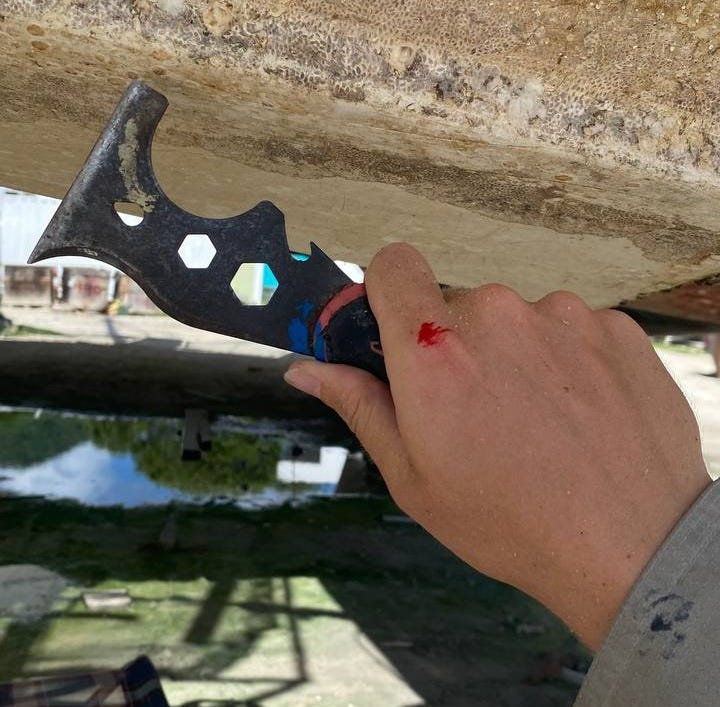
“It is registered in the US Virgin Islands, that is not your brother’s boat,” X said sternly. About six men were seated at the table, glaring at us. Resting atop the table were two or three rusty tourné knives. My hand went to rest upon the painters tool I had placed in my waistband.
My concern was not that we would have a dramatic brawl—but that even a superficial injury posed risks, given the primary hospital was on Grenada. The humidity could cause even a scratch to get infected, and the ferry wasn’t arriving until nightfall.
“Why are you disrespecting me? I am respecting you, so you show me that same respect,” X tried to reason. This banter continued a while longer. I returned the emotionless glares of the others, standing to X’s right. The man finally took a seat and returned to drinking. X and I began our way back to the boatyard, unscathed.
Both of us fell into a sour mood following this. As I recorded videos of the setting sun during dinner, X described the altercation to Pim over the phone across from me. This was the only means of convincing my friends back home it actually happened.
“Don’t let go,” X commanded. Gripping the rope tightly and heaving in intervals, we lifted up a heavy furled sail. The deliveryman and his wife below helped guide us, cushioning the hull of Stella Maris with a blanket.
“Almost there!” he called out in a thick English accent. Carefully, we eased the dense roll of fabric aboard, laying it down. X offered a wave to the deliveryman, and I dusted my hands clean.
“Nice bike you have” I said, complimenting the deliveryman’s black motorcycle. It was fixed with a sidecar. The man thanked me, his wife beside him joining the conversation.
“Where in England are you guys from?” I asked. They answered, though I cannot recall what they said. “I was just in south England last year. The parks in Earlsfield were beautiful.” The woman glared at me for a moment, hands on her hips.
“Earlsfield? Earlsfield’s a shithole.” Her husband laughed beside her.
“That was round’ the time the Queen died, right?” he asked. I nodded.
“Yeah. My friend gave me a tour through Westminster Palace a few days after her funeral. I sat right over Boris Johnson in parliament.” His wife scoffed.
“You should’ve pissed on him,” she said.
X and I took the afternoon off to get dinner at one of the beachside restaurants on the island. We helped ourselves to roasted sweetcorn and fig bananas sold by local vendors along the way. Seeing the rest of Carriacou filled me with a sense of calm.
Pim was set to arrive in a few days. I was looking forward to meeting the mysterious sailor, especially after X’s descriptions. After dinner, we returned to the boatyard.
X and I conversed along the stern of Stella Maris, opening the bottle of spiced rum he purchased when we first arrived. Come morning, I continued buffing the stubborn wax from the portside hull.
As the sun beat down upon us, and reggae music blared from X’s bluetooth speaker, I laid my rag down on the scaffolding and made my way up the ladder. Noticing our half-empty bottle of rum on the table, I decided to take a shot. Then another. Then one more. I’ve never had problems with rum I thought, returning to work.
Half an hour later, I was in quite a cheerful mood, rocking back and forth to the music above as I buffed the away the wax.
“Evan, what happened to the rum?” X called out from above, leaning over the deck. I looked up at him.
“I don’t know,” I said lying through my teeth. Only a few minutes later, I was laying down across a bench by the stern, cold rag on my forehead.
“Dude this is 69% alcohol by volume,” X said to me laughing. Stupidly, I hadn’t considered that Caribbean nations have different production standards. Walking slowly over to the edge of Stella Maris, I vomited over her portside, careful not to ruin what work I had finished. Rinsing my mouth out, X helped me inside and got me a glass of water. This was not my last act of stupidity while drunk in Carriacou.
After sunset, I could hardly stomach dinner. Having only some fruit, I laid down to try and rest—which did not come easily, as X was indulging in an old Swiss pastime.
By afternoon the following day, X and I put on our shoes and made our way to the docks awaiting Pim’s arrival. Removing our hats, we scanned the horizon.
“Ha, there he is,” said X, pointing out towards a distant speck of black.
I couldn't tell if it was the most badass thing I had ever seen or downright hilarious. All of these plastic, colgate-white yuppie yachts, and in sails Blackbeard himself on Queen Elizabeth's Revenge.
Fit with a solid-steel hull, at last arrived Pim aboard Rajac—ready to poke holes through anything that dared cross her path. A Dutchman for sure.
As he paddled his way to a nearby dock in a dinghy, X and I walked over to greet him.
“Hello boys,” he called out with a smile, tossing us line as we helped him moor. Stepping over the dock, X introduced me formally and I shook Pim’s hand.
“Evan! Nice to meet you,” he said.
“And you,” I replied simply, bearing in mind X’s words. Though it must be said, it became immediately apparent that Pim was far warmer and better humored than he was described to me.
I trailed behind X and Pim as they discussed what work lay ahead. Beers were soon in each of our hands as we walked the beach, making our way over to the boat wreck X and I previously explored.
Having been at sea for some time, Pim proposed we get dinner at a local restaurant, which neither X nor I protested. It would be a welcome change from eggs, bread and vegetables. Making our way into town, we found an open table at a British restaurant.
The owners themselves, husband and wife from England, were the only waitstaff. They took our orders, and the man recounted his decades-long passion for Anglo-Indian cooking. They were generous hosts.
Receiving our plates, I led the blessing in Latin and we all three began sharing stories. It didn’t take long for Pim to leave a great impression on me.
A true adventurer, Pim was calm, good humored, and his very presence uplifting. I asked about his experiences as a sailor, and he humbly recounted a time when he once had the opportunity to have lunch alongside the King and Queen of the Netherlands.
As we enjoyed our meal, one of the owners overheard our discussion and came to pour us water. She offered a tale of her own: it just so happened that the British Commissioner of St. George was sat at this same restaurant when she received the news of the Queen’s passing—discovering the news herself before it was announced.
By the time all three of us were aboard Stella Maris, it was nearly midnight. X pulled out a hidden sleeve of cookies and began dividing it among us evenly, like gold.
“That’s a fraction… That’s a fraction,” X rattled off, splitting them into portions.
“So where all have you sailed in the world?” I asked Pim.
“I’ve sailed from Europe to the Caribbean. Boarded in Holland, sailed to France. Spent one winter in France. Sailed south to Spain, Portugal, Canary Islands. Cape Verde, in Africa,” he explained.
“Planning on sailing to Norway next, across the Atlantic.” I sat up when he said this.
“Wait, you’re sailing to Oslo or Trondheim? I’ve actually been planning a trip to Norway,” I said quickly. Pim and X both grinned at one another. Before I could explain myself any further, X interjected.
“That’s no journey for a greenhorn,” he remarked. I peered over to Pim, who nodded.
“You’d be miserable,” Pim concurred. Outnumbered and outmatched, I accepted their words. They were right. I’d be a liability for Pim, an Olympian. It was a fanciful idea.
Come morning, we got back to work. Pim and X began working in the engine compartment as I returned to my trusty rag. By now, my hat and sunglasses were coated in beads of hardened wax.
I would finish one portion of the hull, reaching as far as I could, climb down from the scaffolding, move it further towards the bow, climb up and begin the next section.
Within the first day of arriving, Pim bestowed me my nautical nickname: Buffy—which persists to this day. By noon, I climbed up the sternside ladder where X was wiping grease off his hands, and Pim was preparing lunch.
“Buffy, where is the sugar?” he asked from the kitchen, holding a cup of salty coffee. Handing him the jar, I looked down at the iron skillet on the stove.
“What do you call this?” I asked, pointing to his ingredients.
“Pim’s special.”
Soon, I had finished buffing both exteriors of the hulls. Having time to kill, I decided to explore the edges of the nearby mangrove forests. Not far from the roadside were the stone ruins of an old colonial building, either English or French.
Returning to the boatyard, I began working on the interior portions of the two hulls—rinsing them down with a hose. The sand and dirt beneath me formed a thick mud, which I ignored. Taking a long brush, I began scrubbing away the top layer of wax.
“Why are you walking through the mud like a pagan?” asked Pim with a chuckle, cleaning off a rotor. (Once again: this really was said).
“What?” I asked. He pointed to my feet.
“You are getting your shoes soaked in mud,” he said smiling. I shrugged. We chatted awhile longer, exchanging wisecracks. X climbed down the ladder with toolbox in hand, joining our banter.
“See? Pim likes me,” I quipped to X.
“Hey hey I never said I liked you,” Pim said with a grin.
Each night, X and I would accompany Pim to the docks where his dinghy was moored. We’d bid him goodnight, and he would paddle out to where Rajac was anchored. I envied him. With Rajac came access to the cool ocean breeze, and no mosquitos.
As we began our way back to Stella Maris, X looked over to me.
“You know, Pim said he might let you sail Rajac.” I looked up without responding.
“That’s a huge privilege. You need to be very thankful if he does. Like, profusely grateful. That isn’t something people usually do for someone they don’t know.”
“Yes, of course. That would be an honor.”
It is hard to recount these things in sequence knowing they never would have occurred had I not become friends with Elias. I understand the strangeness of it. Maybe I relate to him in more ways than one, but I understand that I cannot place myself in his shoes directly, or claim to know what he went through. He deserved so much better, and I hope he knows that.
There was one occasion when Elias mentioned to me during a phone call that he’d like to live aboard a boat one day, with a family. I thought about this more than once when aboard Stella Maris. While cleaning the bilge beneath the floor of the galley, I discovered a small gem-studded earring that belonged to X’s daughter. This reminded me of Elias’ comment.
I don’t know what to write here, to be honest. My heartache after Doe was unlike any depression I had experienced before. It hurts me to think Elias endured worse pain than that. I hope he has a higher peace now.
The following morning, Pim and X needed new parts in the engine compartment. The only marine store that had what we needed was on the opposite side of the island. Handing me his satchel and a wad of Caribbean dollars, I set off to the bus stop. Though, it wasn’t so much a bus that picked me up as it were someone’s well-used van.
I made my way into town and found the store X had mentioned. It didn’t take long before I acquired what was needed and stopped by the beach before returning. Around this period, I noticed a notification on my phone—JP from the chapel back home had messaged me.
He was currently abroad himself, touring Italy. It just so happened that he fatefully stumbled into the San Carlo al Corso in Rome, the national Church of the Lombards. Upon entering, to the left of the nave stood The Chapel of St. Olav. Knowing him to be my patron Saint, he sent me photos.
It was nice getting time alone for awhile, far away from the boatyard. Walking the coast by myself allowed me the chance to meditate on everything all at once, which the daily work and bustle didn’t permit.
Though I had sent messages to Elias’ instagram in the past as a means to vent, I had all but forgotten his personal account which had been deactivated.
Scrolling down through all of my messages, I found the deactivated account that belonged to him and read through our conversations. It was bittersweet. Part of me wished to return to playing games with him and finding peace in escapism.
As I went through our messages, I noticed an exchange I had totally forgotten. I once co-authored a story with someone around that time and described it to Elias. They were a Christian, and the story we wrote had Christian themes. When I described it to Elias, he reacted positively. He did not deride it.
Climbing up the ladder, I laid the satchel down by the stern along with the parts.
“Here’s what you need,” I said. X and Pim were drilling through the deck, though I cannot recall precisely what they were working on.
“Buffy!” Pim called out. Looking up quickly, he tossed me a small round object.
“There’s your memento,” he said. A piece of Stella Maris’ deck.
The following morning, Pim sailed Rajac over to the nearby docks adjacent to the boatyard, where the Norwegians had been moored. X had to stay behind for a bit, but I made my way over to her.
When comparing Rajac to Stella Maris, it must be confessed that the former was quite superior to the ladder in one very specific way: she was actually on the water.
“I’m admiring your boat,” I called out to Pim. He grinned, gazing up at her mast.
“Pirate ship!” he replied. Certainly looked like one.
I talked with Pim a moment as he described Rajac with beaming pride. Even for an amateur like me, it was immediately evident that this boat belonged to an experienced seaman.
It didn’t take very long for X to arrive, and awaiting Pim’s invitation, we climbed aboard the beautiful ship.
X assisted Pim getting underway as I pushed away the docks, sailing through the initial swell and out towards open sea, where the waters were more tame. I stood by the helm, gripping a bar for support as the deck rocked side-to-side across the chop. As we ventured further out, a large tugboat towing a smaller vessel passed by.
As the waves levelled out and land was behind us, Pim looked over to me from the captain’s chair. “Would you like to try?”
“It would be a privilege. Thank you, Pim,” I said sincerely. Stepping across the bench, I took the helm. X sat to my left as a guide.
Gripping the wheel, she handled exactly as one might anticipate. Smooth, maneuverable and fast. Navigating her felt far more intuitive than I expected.
“See those two islands over there?” asked X. I raised my hand towards the horizon, looking to him for confirmation. “Aim for those.”
I turned to port slightly to ride along the grain of the waves, reducing the motion of the hull. Once again, how I went from grieving a breakup shirtless in my bedroom to taking the helm of a Dutch Olympian’s brig I still cannot understand.
As we began to near the islands ahead, X stepped up to the bow to keep watch. Pim climbed over to tend to the rigging, and I was left to handle Rajac alone. All was well for some time.
“Hard to port,” said X over his shoulder. I turned the wheel left. A moment of silence passed.
“Hard to port!” said X louder. I spun the wheel to the left quickly. A second passed.
“TURN LEFT!” shouted X. I spun the wheel 360 degrees to the left with force—Rajac turned sharp against the current with speed, her bow peaking over the incoming wave and into the air, gliding back down with grace like nothing happened. I eased the wheel starboard and brought her back to steady.
“What the hell is it?” I asked. Pim stepped over to look alongside X.
“Dark object, looks solid,” said X, peaking over the starboard side as it began to pass us by. As it came nearer to us, it made its true identity known.
“Ah. It’s a crab cage,” he announced.
With a long hook, X pulled in a buoy connected to the seabed and Pim helped him moor Rajac to it. The island near us was beautiful, like a painting.
“Ever watch pirates of the caribbean?” asked X. I nodded. He pointed north.
“They filmed that scene where Jack and Elizabeth get stranded on the island over there,” he said. (Petit Tabac). It was a neat thing, I had seen the films as a child in theaters. Though it was hardly the most surreal fact about the experience.
After kicking it easy for a short time, we each put on flippers and goggles, dived into the sea, and swam our way to the beautiful beaches. Pim and X wandered off, though I decided to go the other way. Laying my flippers and goggles by a fallen palm tree, I walked the island. Small crabs would run from place to place, beautiful shells littered the ground and small clear pools were spattered about the place.
I picked up a coconut and tossed it into the sea. Soon reuniting with Pim and X, we took a dip into one of the larger pools, clear and warm. With two beautiful shells in my pocket, we eventually swam back to Rajac to prepare dinner.
“Dude you almost smashed into that crab cage. You were so focused on getting pictures with your phone,” X railed. He was right, I was—it was the coolest thing I had done all year. Though it had no connection to the crab cage.
“He handled her pretty well actually,” said Pim in my defense.
We enjoyed wine, fish, rice and peanuts. I had no stomach for the rum—but had a shot anyway. The gentle rocking of the hull, the soft sound of the waves around us and the warm glow of the sunset was precisely as one would image. The cool breeze was a welcome treat, and the lack of mosquitos was all the better.
By nightfall, X made his way to the sofa in the saloon to sleep, and I elected to sleep outside, beneath the stars. They shined brighter than I had ever seen. Before heading to his cabin, Pim called me over from the stern.
“Buffy, come here,” he said gently. I stepped over to him as the deck rocked beneath us. He pointed to the sky.
“Do you know that constellation?” he asked. I examined where he was pointing, trying to connect the stars in my mind. “No, can’t say that I do.”
With that, he began to teach me about all of the various constellations visible to us, and how to use them for navigation. I desperately wish I could remember all he taught me in that moment, though this was years ago, and my memory fails me. Soon, Pim retired to his cabin, and I laid down along the bench with a rolled towel as a pillow.
This was easily the best sleep I had gotten while in the Caribbean. I was the first to rise come morning, stretching and looking around. The sun was just beginning to peak over the horizon, and the gentle lap of the waves beneath me was like a serenade.
I enjoyed the calm. Opening my phone, I noticed Elias’ sister had posted a picture of him with a heart, and it struck me. I wish I could have talked to him in that moment, to tell him where I was and what I was doing, and how I got here at all.
Soon Pim was up, then X. The fresh-brewed coffee Pim handed me was the best I ever tasted, and a welcome change from the sugary-salt coffee I had grown accustom to on land. We set sail soon after sunrise, and before long returned to Carriacou.
Our last week in the Caribbean was bittersweet. I had finished buffing the hulls, and soon they shined like new. All other tasks were finished, and Pim helped X fix the desalinator. I happily finished reading Kon Tiki, and found it a compelling book.
Wiping my hands clean, I stepped into the galley one afternoon where Pim stood ready to make dinner. Beside him were bags of ingredients he purchased that morning from the market.
“Where’d X go?” I asked.
“He’ll be back soon,” said Pim. Though I cannot remember where X had gone for this brief time. I rolled up my sleeves and began helping Pim cook.
“Take me hoooome, take me hooome,” sang Pim. “I was listening to this sad song this morning when I was in town. Everybody was staring at me like ‘what’s wrong with this guy?’ Because I looked depressed,” he said.
While we cooked, he began to play the song he was singing on his phone. It was a nice moment, though it was sad to think I couldn’t spend more time alongside Pim.
“Take me home, take me hooome … I don’t wanna stay here,” he laughed. “That’s exactly the feeling I had this morning.”
I laughed, too. I was ready to ditch the mosquitoes.
When we finished, awaiting X’s return, we listened to Pim’s sad song and enjoyed one last Pim’s Special before his departure. That afternoon, X and I accompanied him to the docks one final time.
“Buffy,” he said shaking my hand. “It was a pleasure.” Climbing into his dinghy, with a lantern strung above him on a stick, he gave us a salute.
“Catch you later, boys,” he said.
“Safe travels.” We waved him goodbye as he paddled out to Rajac. I haven’t seen Pim since, but I hope to see him again, one day.
Our final day, X and I alone returned to the British restaurant and helped ourselves to their curry. Being that they had no staff to assist them, I helped put away all the owner’s chairs inside during a rainstorm—though they insisted I didn’t have to.
Awaking early, with all of our stuff packed up and the dehumidifier turned on inside her cabin, we bid farewell to the much-prettier Stella Maris around 3AM. Saying goodbye to the boatyard dog was much more difficult, for me at least.
We boarded the ferry back to Grenada while it was still dark. Same as before, the crew stashed away our luggage and welcomed us aboard. When last I was on the ferry, I felt sweaty, flushed and uncomfortable. Now, I felt as normal as I did back home.
“I’m gonna get some shuteye before our flight,” said X, going and laying down across a bench with his hat over his face. I took the opportunity to watch the sunrise by myself. I leaned against the railing and listened to music on my phone.
I thought about Elias’ response to the story I had mentioned to him, and about my conditional baptism. And then, of all the conversations shared with X and Pim over the course of these weeks. I was ready to make amends.
Baptism
The same weekend I returned home from the Caribbean, I was invited to go on a silent Ignatian retreat in the mountains with J, my former RCIA sponsor. I agreed to join him—it seemed like a good transition back to routine life.
Despite the temperature being no different than when I had left, the mountain air chilled me to the bone. Even the subtlest wind caused my teeth to chatter. I’d wear sweaters while the other retreatants wore button up shirts.
During my time in the Caribbean, on more than one occasion, I would drink my fill of rum and attempt to call and text my friends back home, acquaintances I recently made, and followers on social media. I did this purely out of a deep sense of aloneness and isolation. I missed having a relationship, and I missed being able to talk with someone close to me.
More than once, I looked to sin as a means of consolation rather than prayer.
My phone had been the gateway to much, if not all of the pain I faced throughout these events. So many scandalous moments could have been avoided had I merely tossed my phone into a river.
When J and I arrived at the retreat house, I took some videos of the nature surrounding the property, then turned my phone off, threw it in his car and left it there for the next four days—which I spent in prayer, fasting and contemplation. Talking with other retreatants was not permitted.
My time in the mountains was painful. Without the noise of seagulls, politicians, or instagram notifications to distract me, all of the feelings of defeat, abandonment, self-doubt and resentment came forth. I was alone, and I felt unwanted.
On the morning of the final day, I sat alone in my room staring through the window at the foothills across the river. A woman’s voice whispered to me: “would you like to eat?” She was faintly audible, but it did not scare me. I did not react at all. I actually pushed it aside, assuming it to be my own mind reacting to the endless silence.
Unbeknownst to me, since 2021 I had been connected with someone on social media named Sebastian. He had been following me ever since Elias passed away, but we never messaged one another until 2023. Unlike Doe, he was an actual friend of Elias’.
Talking with Sebastian, even about the simplest things, brought with it a great sense of peace—and even familiarity. He reminded me much of Elias.
The faster Lent approached, the slower time began to pass. This period of my life was deeply quiet. I eventually completed the textbook given to me at the SSPX chapel and finished my catechesis with a humble examination, which I passed.
December came and went, and 2024 soon arrived. During 2022, in the week leading up to Easter, I decided to fast from all food and drink until the Vigil. In hindsight, I recognize this was an act of pride. During the other thirty-three days of Lent that year, I hardly prayed, fasted or contemplated Christ. Most of it I spent engaging with Doe.
My seven-day fast was not offered as a sacrifice; it was done as a means of proving to myself that I could do it, and that I was pious in doing so. This was hardly the case.
With contemplation, I discussed the matter with T, who recommended I follow the Medieval Lenten fast: no meat, fish, eggs or dairy for the whole 40 days until Easter. I abided by these rules—though to give Elias’ credit for arguing in favor of raw foods and meat, I actually gained weight during this time despite only have one meal a day.
It seems imprudent to describe the penitential things I did during Lent, but peering inwards, I tried my best to recollect all of the people I had wronged in my life. People I had lied to, abandoned, wounded and bullied. I contacted many of them, some of whom I hadn’t spoken to in nearly a decade, offering long-overdue apologies.
Despite all that occurred in my relationship with Doe, the fact remains that I was not deserving of a good relationship during that period. Even if she hadn’t wronged me at all—Doe should have left me. I was not a man deserving of a wife.
Reflecting on my own litany of flaws and shortcomings, I authored an apology to Doe for failing to live up to my potential. Out of respect for her peace, I offered it to Christ in April—burning the pages beneath a solar eclipse while praying the Rosary.
During February, a precious Christian relic was touring various Catholic parishes across the United States; a bone taken from the arm of St. Jude the Apostle.
Gratefully, I had the opportunity to venerate this ancient relic alongside my friends. During his homily, the Priest made the point: “this arm once hugged Jesus Christ Himself.” Placing my hand over the glass in which the relic was housed, I asked St. Jude to pray for Elias’ soul, myself, Doe and my friends, in preparation for Easter.
Just over a week later, whispers around the chapel were that one of the Bishops Marcel Lefebvre consecrated at Écône would be visiting us: Bishop Bernard Fellay, the former Superior General of the SSPX following the death of Lefebvre.
I was eager to meet the Swiss Bishop; by the time it was confirmed he would be visiting our little chapel, I acquired traditional baptismal robes—something I forewent at the Easter Vigil in 2022.
“ We call it ‘Sanctifying Grace’—the Grace that makes the Saints. And that grace God gives us at baptism. And it is a real participation to Divine Life—and Divine Nature.
God wants us to be His children. ”
— Bp. Bernard Fellay, 2024
The chapel was packed wall-to-wall with many new faces—those who travelled from afar to attend the Bishop’s Mass. His homily was heartfelt and sincere, and once Mass concluded, the laity slowly processed out of the Church and to their cars.
Being local, I decided to stay behind for awhile, helping put away chairs and missals. Soon, His Excellency exited the chapel and joined the few of us out in the yard.
“Evan, go get a chair for Bishop,” said X, holding one of his children in his arms.
“Oh no, it is alright,” insisted Bishop Fellay. I shook my head.
“It’s no bother Your Excellency,” I said gently, rushing downstairs to retrieve a chair for him. As I laid it down in the grass and he took his seat, other men came out with a stack of chairs, and we all formed a circle around the Bishop.
One by one, we each asked him questions and enjoyed his company. Though I cannot recall the joke I made, at one point I had him laughing, which is a memory I cherish. With a pen and notepad, I jotted down the replies Bishop Fellay gave to my questions.
“Do you believe Archbishop Marcel Lefebvre was the Prelate prophesied by Our Lady in the 17th century?” I asked tentatively. Bishop Fellay smiled softly, looking down at the ground for a moment. All of us were silent as we awaited his response.
“It is possible,” he said gently. I smiled back.
“Do you believe so?” I persisted. A few of the men around us cast me a glare. But Bishop Fellay’s smile only widened.
“I have never put much consideration into it. I place faith in it and let it be,” he replied. Before the man to my right could speak, I asked another question.
“Do you feel we all should treat prophecy this way?” I asked. His Excellency thought a moment before responding.
“So long as it is good for your faith, and serves you well.”
“What is your favorite food Your Excellency?” asked X. The Bishop chuckled.
“Raclette,” he replied warmly. By the time Bishop Fellay returned to me, I was ready with my next question.
“What advice would you give a young man entering the church?” I asked. Once again, His Excellency allowed himself a moment before offering his response.
“Invite Christ into your heart. And know your catechism!” He said with vigor. Finally, as the sun began to lower towards the horizon, I asked Bishop Fellay one final question.
“Your Excellency—what advice would you give to a young man suffering from heartbreak?” The Bishop paused longer than he had for any other question.
I watched his face as he gazed down at the ground, forming his answer carefully. He looked up at me with the gaze of a loving grandfather. I held my pen in my hand.
“ Sometimes, all you can do is say ‘amen.’ It is a pain—the heart is real. No one can deny it. But, the pain is not the point. The pain is not an obstacle, on the contrary. It is a means to make you higher. Make the best of it. Offer it to God; do not waste your pain. It will take time to heal—be patient. But know this: the present is the time to improve. Not tomorrow, nor yesterday. But now. ”
— Bp. Bernard Fellay, 2024
Embarrassingly, I bit my tongue with force to hold back the tears swelling in my eyes. Throughout all my life, I have been advised how best I can rid of pain, to vanquish it, to overcome sadness as efficiently as possible. Ever since 2021, I had received endless counsel from friends, family, and clerics on how to stop being in pain.
Never once had I been told not to waste it.
During Lent, as the chapel prepared for the great Vigil that lay ahead on Easter, JP informed me that I still required a sponsor to be present for my conditional baptism. I hadn’t even considered this during these months.
“Hey J, it’s Evan. Hey, sorry- I need a sponsor to be present for my conditional baptism this Easter at the chapel. Can you sponsor me?” I asked J over the phone. It only made sense to ask the same man who sponsored me previously to do it again.
“Hey Evan, I am very sorry but I already have duties at one of the Vigils at a different parish,” J replied. I was irritated with myself for not having thought about this.
With limited options, and limited time, the first person that came to mind when considering people who were vastly knowledgeable about the Catholic Faith was T—the very man Doe had seen behind my back, and whom I now considered a friend.
I called him over the phone and we talked for awhile.
“Hey, listen T. As you know, I am in need of a conditional baptism. All is set in order at the chapel, except for the fact that I lack a godparent. I was wondering, if you are able to make it here in time, if you would be willing to be my baptismal sponsor.”
He answered me without hesitation. “Yes, certainly. It would be an honor.”
Time continued to move slowly. Perhaps it was due to the Lenten fast, which often left me going to bed hungry.
The prayers I uttered and the meditations I fell into during this period put me in a sentimental state. I thought often about my childhood, and about my future.
With this in mind, on March 17th, St. Patrick’s Day, I returned to my childhood home and entered the dense forests behind it. When I was only six years old, my father built a treehouse for my siblings and I. But the last time I had seen it, I was no older than ten. I wondered if it had rotted away, or if still it remained high in the trees.
Though the trees felt smaller, the forest was no less vast than I remembered it. The portion of woods nearest my old house felt sacred. I understand it is strange, but I am confident those who grew up in a similar environment can relate to this feeling.
Though certain areas of the woods were quite familiar, and equally nostalgic, other parts were confusing. In order to access the area I remembered Dad’s treehouse to be, I had to climb up a steep muddy hill.
With a running start, I sprinted up half of its length, grabbing roots and tree branches to support me as I nearly slid, climbing my way over top. After a brief walk, rounding a bend, I stopped firm in my tracks. A fallen cedar tree that my brother and I would play on, as young as five, was still there, precisely as it was twenty years ago.
It laid bare, supported by another fallen tree, just as I remembered it. Though, it appeared smaller, now. Carefully, I stepped across the dirt mound by its roots and across its trunk, sitting down by its branches exactly as I had before.
I sat there for a good while, listening to the birds. I allowed my imagination to wander, thinking what it would be like for my younger self to appear—a little blonde haired boy staring back at this strange bearded man. In imagining this, I wondered what I would say to him; or what I would prepare him for. ‘Do not waste your pain.’
I knew perfectly well how to get to the treehouse from here. It was still standing.
On March 25th, I called Sebastian. In years past, I would offer a vigil for Elias with candles on this day. But Sebastian offered to place a candle in my stead by Elias’ grave, alongside his own. I was grateful for this.
We spoke for a long time. I told him about my journey, and how none of it would have even came to exist had I never become friends with Elias. I was going to be baptized in five days.
I was restless. T was flying in the next day, so I tried to sleep as much as I could. I reached for the olivewood rosary Doe gave me and clutched it tightly, praying it in full before falling asleep.
I met with E that evening, who was greatly anticipating being able to see T again. In the few hours they shared together during his last visit, they became quick friends.
Just like last time, but with greater anticipation and a better sense of direction, I drove to the airport and picked up T. Smiling, we shook hands once again.
“Do I call you godfather now or something?” I jeered. He laughed, and we drove to get lunch before heading home. Having T stay at my place was surreal.
We’d sit by the kitchen discussing the faith, the abysmal dating scene, and the challenges young men face in the modern world. To think I was laughing in my living room alongside the very man I once imagined beating up was quite funny.
On the 29th of March, T and I attended the Tennebrae at one of the local parishes. The ceremony symbolizes the death of Christ on the cross, with a series of candles on the altar slowly being snuffed out, one-by-one. At last, all of the laity blow out their own candles, and the final candle on the altar is extinguished. The entire church goes dark.
It was impossible for me to see my hand in front of my face. As soon as the final light went out, the strepitus boomed forth—an ear-piercing banging across the building, symbolizing the earthquake that occurred after Christ’s death.
On the morning before the Easter Vigil, T and I drove to a nearby park. We walked throughout the woods for awhile, taking in the serenity offered by the forest. Arriving in an open clearing, we sat down and talked.
“What advice would you give me as a neophyte, then?” I asked him. He provided me lengthy, thorough answers that were deeply philosophical. At some point, handing him a pen and my prayer journal, he wrote me this:
“ Happily suffer a morally neutral convention insofar as it’s orderly and otherwise inconsequential. The difference between enterprisers and the insane is where they choose to depart from the norm. ”
We returned home after our discussion in the woods. As the sun began to set, I donned the baptismal robes blessed by Bishop Fellay, and T went to pray. Soon after, we got in the car and drove to the chapel.
As night arrived, we entered downstairs. X came to me and gave me a hug, as did JP.
“JP, this is T. You remember that story I told you about that girl? This is the guy,” I said teasingly. T grinned, shaking JP’s hand.
“I’m ‘the guy,’” he affirmed.
“Nice to meet you,- hey, can you sing?” asked JP without hesitation. T nodded.
“Yes, I sing in the choir at my church,” he replied. JP clapped his hands together.
“Perfect. We need you for the choir during Mass,” he pleaded. I looked to T.
“That works. Father said my baptism will be before the liturgy begins,” I said. JP left to prepare the other choirmen, and I stepped over to where X stood.
“This is the lunatic who invited me down to his boat in the Caribbean,” I joked, introducing T to him as well.
“Nice to meet you T,” said X, shaking his hand. As they both stepped away to meet with the other choirmen, I sat in silence. It all felt surreal. I hadn’t planned for any of this. A firm hand soon smacked my shoulder.
“Looking sweet dude,” said E. I smiled, stood and gave him a big hug.
The heat of the paschal fire shot across the laity like a wave—so intense was it that we all stepped back from its strength. All of us stood silent, gazing into the flames.
Father stepped forward along with the altar servers, holding a torch beside his missal.
When I stepped into the room beside the altar, the Priest was awaiting me. Beside him was the wooden baptismal font, its lid open, and next to it a golden shell.
“Are you ready?” asked Father. I nodded. Behind me stood T.
“This is my sponsor, Father,” I said. E came into the room as well, standing by my side.
“Would you mind holding this?” asked the Priest to E, handing him his missal. E nodded, carefully taking the book and holding it for Father to view. A candle was handed to me, bearing an Alpha and Omega, which the Priest set alight.
“Si vis ad vitam ingredi, serva mandata: Diliges Dominum Deum tuum ex toto corde tuo, et ex tota anima tua, et ex tota mente tua; et proximum tuum sicut teipsum,” Father recited.
As I held the candle in one hand, my other grasped the Christmas card Elias’ sister sent Doe and I in December of 2021. Pinned to my robes was a medal of Saint Olaf.
T placed his hand over my shoulder as I knelt before the baptismal font, and Father lifted up the golden shell beside me.
“Si non es baptizatus, ego te baptizo, Evan,” the Priest turned my head to the right, lifted my hair from my face, and poured the water across my forehead. It was immensely cold, drawing forth my attention completely. “…in nomine Patris, et Filii, et Spiritus Sancti.” He placed the shell down. “Amen.”
Receiving the Eucharist after being unable to for so very long was invigorating. I felt renewed, and with this feeling came hope. Elias’ loss runs far deeper than my own personal conversion. I recognize this.
All I can say is that it is through my faith that I find hope for his soul—I sense, deep in my own, that he is at peace. I will never cease to pray for him. He deserved better.
T, E and myself all got dinner, sharing a toast the following day. We offered it to Elias, and to Saint Olaf.
“Deo Gratias,” said T.
When I had sat down at my desk, turned on my computer, and distracted myself with videogames while discussing life with a young man from Norway, I never could have recognized it to be the beginning of the most formative events of my life.
Never could I have anticipated through this friendship a bridge to falling in love for the first time, to meeting my closest friends, traveling to England, or the Caribbean— and certainly not becoming Catholic. I wish, more than anything else, to be able to call Elias on my phone and to hear him answer. I want to talk to him so much.
As I was working on this testimony, it was announced by X that he and his family must move abroad. Our entire community was saddened by the news—X and his kids had become like family to many of us.
“I’m currently writing my testimony,” I said to X a month ago.
“Nice! Can’t wait to read it,” he replied. I said goodbye to all of his children as well, who I also will dearly miss. Sitting with X’s daughter, I described to her the revelation I made of Pim sailing JS1 Svea and the vegvísir symbol, along with other serendipitous moments from this memoir.
“Wow, that’s really cool. All of those synchronicities,” she said.
“You know about synchronicity?”
“Yeah. Carl Jung, right?” I smiled. Homeschooling is far more effective than its detractors claim. She asked to see the vegvísir and got out her sketchpad, electing to give me a drawing as a parting gift.
“What is that black spot in the sky?” I asked. She shrugged.
“A solar eclipse,” she said. I never mentioned to her the eclipse I prayed beneath during Lent in 2024.
An Open Letter to Jane & Doe:
I do not anticipate either of you ever reading this. Nor do I know what to say to either of you if you did. I am sorry, for one. No sin is committed without the desire to attain some greater thing. Of this we all are guilty. Life is suffering, and we will do anything to ameliorate this suffering—often at the expense of others, consciously or not. You have been taken advantage of by malevolent forces far smarter than you.
No person should be forced to be with someone they do not want to be with. Everyone has the right to leave anyone they are unmarried to. This, however, does not permit us to place our preferences above the dignity of other people: to reduce them to being nothing more than an option. God allowed them into your life. To do so is pride, and pride will never serve your interests in the end. It will always result in self-injury.
I will be the first to confess that I am worse in my sin than either of you. If Christ can forgive me for my wrongdoings, then it is incumbent on me to imitate his nature, and to forgive the both of you. I do forgive you both, and I hope both of you forgive me for my failures, shortcomings and insults. I hope you find peace in this life.
It is unfair to bring a child into this world through what we desire, and not through what they deserve. There is only so much I am able to say. Lies are like flames that are difficult to extinguish if left to spread, and the most pervasive lie of all is the lie of omission. What I will say is that there are people who will spend their entire lives never knowing their origins. Never will they know the truth of how they came to exist, or how they inherited their religion. If this is not tragic, nothing is.
To Critics:
Derision against recounting these events typically proceeds as follows:
The person listening squints, a smile forms across their lips, and they say: “Cheating? Buddy, everybody gets cheated on.”
Or, a smile forms across their lips, and they say: “You’re still stuck on that one chick, huh? You should move on from her.” (As if Doe is central to anything).
Or they say: “You are connecting all of these irrelevant details in your mind. You're neurotic.”
Or: “Is it really even cheating if you and Doe weren't married?” (This is a view held by some Catholics who believe that the only form of romantic betrayal is adultery. In my understanding, this belief is Machiavellian. It allows self gratification to supersede the dignity of neighbor, and such a self-centered mode of thinking contributes to Catholics having sex before marriage and out of wedlock pregnancies; i.e. prioritizing a husband or wife for themselves rather than a father or mother for their children). [Mk. 12:31]
And so on and so on. It is all quite condescending, and never does criticism against this testimony seem to strike at its heart, but only peripheral details that, when taken by themselves, are effectively irrelevant. (Yes, everybody gets cheated on…)
I resolve to avoid ever again communicating with Doe. “I took advantage of a young man's suicide after his girlfriend was disloyal to him, in order to get with his grieving friend with whom I also was disloyal to, but who introduced me to Catholicism along the way,” makes for a very humbling testimony—hence why it is very unlikely Doe ever shares it. I do not know what she gives as her testimony in its place, nor is it any of my business. She has been forgiven by God, and I am no more Christian than she is.
From what has been shared with me, Doe has only since mentioned me in the context of suggesting “he needs help.” And indeed, a person very likely does need help after they are betrayed by those they had faith in.
Saint Olaf needed the help of the Swedish King Anund Jacob to supply him with 400 extra men before he attempted to reclaim his throne after being betrayed and forced into exile. However, it is unlikely Doe means it in this sense. Presumably, she means to imply “he needs help with his mental illness”—which does not exist. All I can do is pray that truth will prevail in the end—for all of us.
I am still friends with numerous people who truly were acquainted with Elias. One of his friends, who repudiates Christianity, was nevertheless drawn to a Catholic church after Elias passed. They lit a candle for him beneath a statue of Our Lady.
I am also still travelling to Norway, to visit Elias’ grave. It was painful to contemplate making this trip by myself in 2022. For the longest time, I anticipated going with Doe. Elias’ family themselves for a period desired to meet Doe, given the provenance of our relationship.
Although Doe was never fated to be the person to accompany me on this journey, God never intended on me going alone.
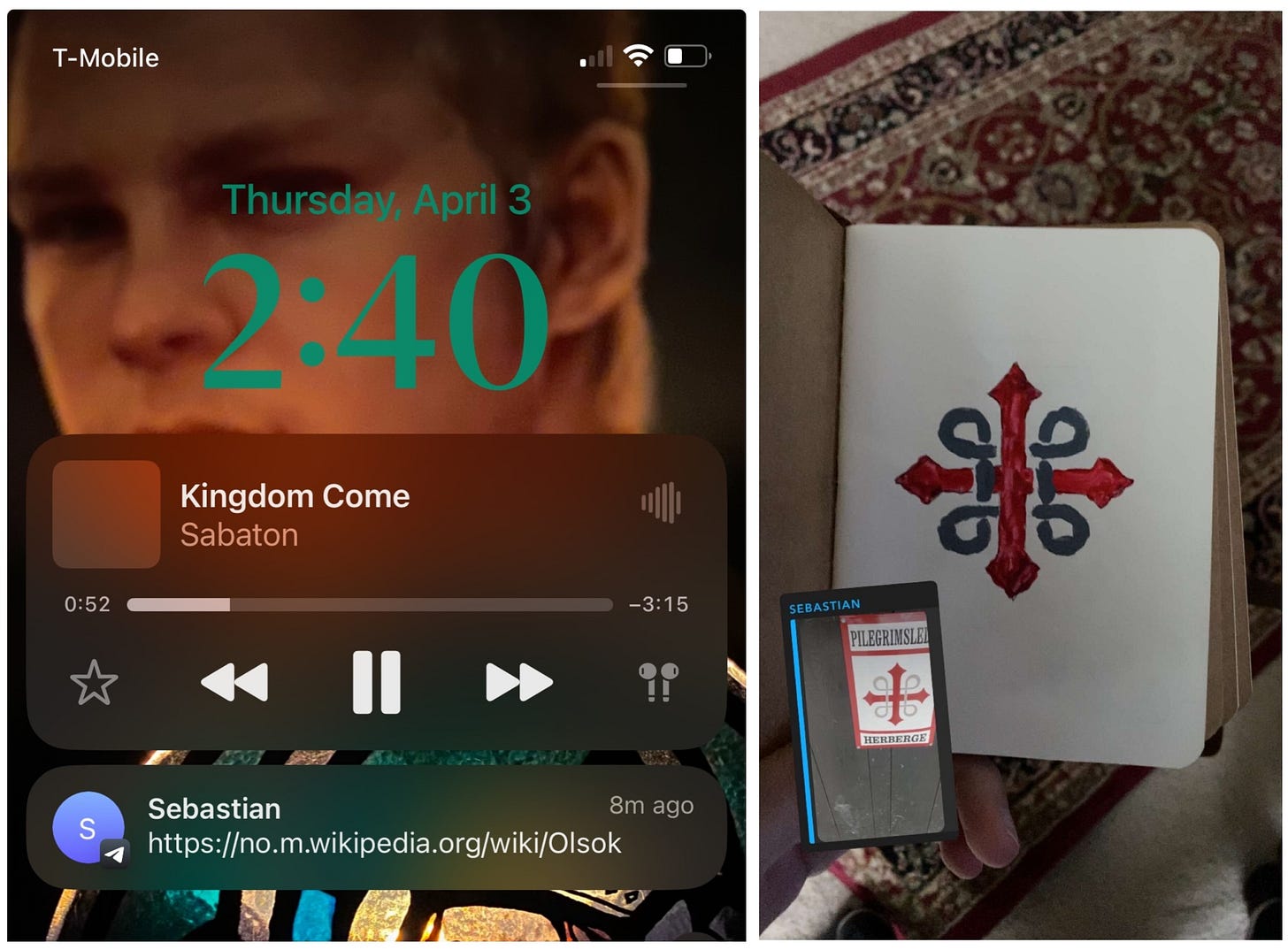
Unexpectedly, Sebastian professed to me after my baptism that he also was interested in exploring the Catholic Faith.
Together, we will walk St. Olavsleden—the very same route that Saint Olaf led his army in 1030. It was one of the most popular Catholic pilgrimages in Europe during the Middle Ages. We will consider the pilgrimage complete at Elias’ grave.
“ The Norwegians most important city is Trondheim. It is now decorated with churches and visited by many people. There is the very blessed King and Martyr Olav’s relics. At his tomb the Lord also today works the greatest healing miracles. And people, who believe that they can be helped through this Holy man’s meritorious deeds, are coming from far away. ”
— Adam of Bremen, 1070
We will be walking the 580km pilgrimage in honor of Elias. Our journey will begin on July 29th, the Feast Day of St. Olaf, in the same town he landed with his army. I recently contacted Bishop Erik Varden, the present day Bishop of Trondheim. He will be meeting Sebastian and I before we embark to Sweden.
In preparation for Sebastian’s curiosity about the Catholic Faith, I will bring to him the very same books I was given when I began my conversion all those years ago. I hope and pray, God willing, that we can give Elias the honor he is due.
I am grateful that God returned me a friend in Sebastian. He is a good man, and I see why Elias enjoyed his company. When we lose one blessing, it would seem, another is often most unexpectedly given in its place.






